|
|
|
|
#1 |
|
Senior Member
|
This topic is a continuation of the topics:
Putin's speech at the 70th session of the UN General Assembly Vladimir Putin's speeches and events II Greetings on Ground Forces Day Vladimir Putin sent greetings to the current and former personnel of the Russian Federation’s Ground Forces on the occasion of their professional holiday, Ground Forces Day. October 1, 2021 - 09:00 The message reads, in part: “This celebration brings together all those who are so proud of the Ground Forces’ combat glory and rich victorious traditions and who serve worthily in Russia and beyond. We pay tribute and show our infinite respect to the many generations of talented and brave senior military commanders, officers and privates who wrote heroic pages of the country’s history. And, of course, during 2021 when we are marking the 80th anniversary of the beginning of the Great Patriotic War, we would like to specially thank our dear veterans who defeated Nazism and defended the freedom and independence of the Motherland. Today, just like always, the personnel of the Ground Forces display their impressive professionalism. You honourably carry out your duties and post good results during surprise combat readiness inspections, exercises and manoeuvres. I am quite confident that you will continue to preserve and to expand the unique combat legacy of your predecessors and will reliably safeguard the country’s national interests.” The source of information - http://en.kremlin.ru/events/president/news/66826 Greetings to President of China Xi Jinping on the 72nd anniversary of the founding of the People's Republic of China Vladimir Putin sent greetings to President of China Xi Jinping on the 72nd anniversary of the founding of the People's Republic of China. October 1, 2021 - 10:00 In his message, Vladimir Putin noted that China achieved impressive success in the economy, social sphere, science, technology and other areas, and is active in addressing current issues on the international agenda. The President stressed that relations between the two states are expanding as a comprehensive partnership and strategic interaction, based on the Treaty on Good Neighbourliness, Friendship and Cooperation, which marks its 20th anniversary this year and provides a highly effective framework for bilateral ties. “I am confident that through our joint efforts, we will continue to enhance Russian-Chinese cooperation in a wide range of fields. This fully meets the interests of our nations and contributes to greater security and stability at the regional and global levels,” Vladimir Putin noted. The source of information - http://en.kremlin.ru/events/president/news/66820 Greetings on the opening of the 6th International Research Conference Social and Labour Conflicts in Russia and Worldwide Vladimir Putin sent his greetings to the participants in the 6th International Research Conference Social and Labour Conflicts in Russia and Worldwide. October 1, 2021 - 10:00 The message reads, in part: “You have established a tradition of bringing together researchers, experts, trade unionists and employers, and what you are doing invariably attracts great public interest. Today, you will discuss a wide range of subjects, mostly dealing with improving labour law, reinforcing social partnerships and protecting the legal rights of the people. This forum takes place at the St Petersburg University of Trade Unions, and this choice is not accidental, since this institution has a department devoted to conflict resolution studies renowned for its expertise in social conflict, scientific research on this subject and developing practical tools for conflict resolution. I am certain that with the proactive contribution from the university’s faculty and experts, this conference will become a highly respected and relevant platform for sharing experience and best practices, the ideas and initiatives put forward during your constructive discussions are guaranteed to attract a lot of attention and interest.” The source of information - http://en.kremlin.ru/events/president/news/66825 Greetings on Avitek’s 90th anniversary Vladimir Putin sent his greetings to the staff and veterans of AVITEK Vyatka Machine-Building Enterprise on its 90th anniversary. October 1, 2021 - 11:00 The message reads, in part: “Over the years many generations of researchers, constructors, engineers and specialists have made a major contribution to strengthening the research and technological potential of your enterprise and developing its talent pool. Today, it stands in its own right as a major research and manufacturing complex, and it is a recognised leader in developing unique pieces of armament for the latest aerospace defence systems.” AVITEK Vyatka Machine-Building Enterprise is one of the largest defence industry companies in Russia. It currently focuses on making specialised equipment for air-defence systems, lifting systems and mechanisms for planes and helicopters, as well as survival equipment for combat pilots. The source of information - http://en.kremlin.ru/events/president/news/66831 Congratulations on the 20th anniversary of the State Transport Leasing Company Vladimir Putin congratulated the State Transport Leasing Company and its staff on its 20th anniversary. October 1, 2021 - 11:30 The message reads, in part: “The State Transport Leasing Company is rightfully regarded as one of the key strategic organisations in the national economy and a recognised leader of air, water and rail transport leasing. In cooperation with its partners – producers and suppliers of equipment, lending agencies and governmental institutions – the company helps to attract major investment for the high-quality modernisation of industrial infrastructure and makes an important contribution to improving the transport services market. The programmes that are being implemented by the STLC support the national transport engineering industry, create demand for the output of Russian industrial plants, and enhance their competitiveness.” The source of information - http://en.kremlin.ru/events/president/news/66830 Greetings to participants, organisers and guests of the 44th Annual World Finals of the International Collegiate Programming Contest (ICPC) Vladimir Putin sent his greetings to the participants, organisers and guests of the 44th Annual World Finals of the International Collegiate Programming Contest (ICPC). October 1, 2021 - 12:00 The message reads, in part: “Our country has twice hosted this respected contest, in St Peterburg and in Yekaterinburg, and both events were held at the highest possible organisational level. This year the contest finals will be held in Moscow. The students and post-graduates of the world’s leading universities will take part in a tight and dramatic contest to demonstrate their knowledge and skills, serious creative and intellectual potential, the ability to find unusual, interesting and, most importantly, effective solutions to very complicated tasks, as well as to convincingly prove their right to be at the top. “I would like to point out that increased attention is being given to IT development in Russia; it is a clear priority for us, which is why we are wholeheartedly proud of the achievements of our university teams at international programming contests and the professionalism and dedication of their teachers and mentors.” The source of information - http://en.kremlin.ru/events/president/news/66829 Meeting with Kemerovo Region Governor Sergei Tsivilev Vladimir Putin had a meeting with Governor of Kuzbass Sergei Tsivilev. The regional head updated the President on the socioeconomic situation in the region. October 1, 2021 - 14:05 - Novo-Ogaryovo, Moscow Region 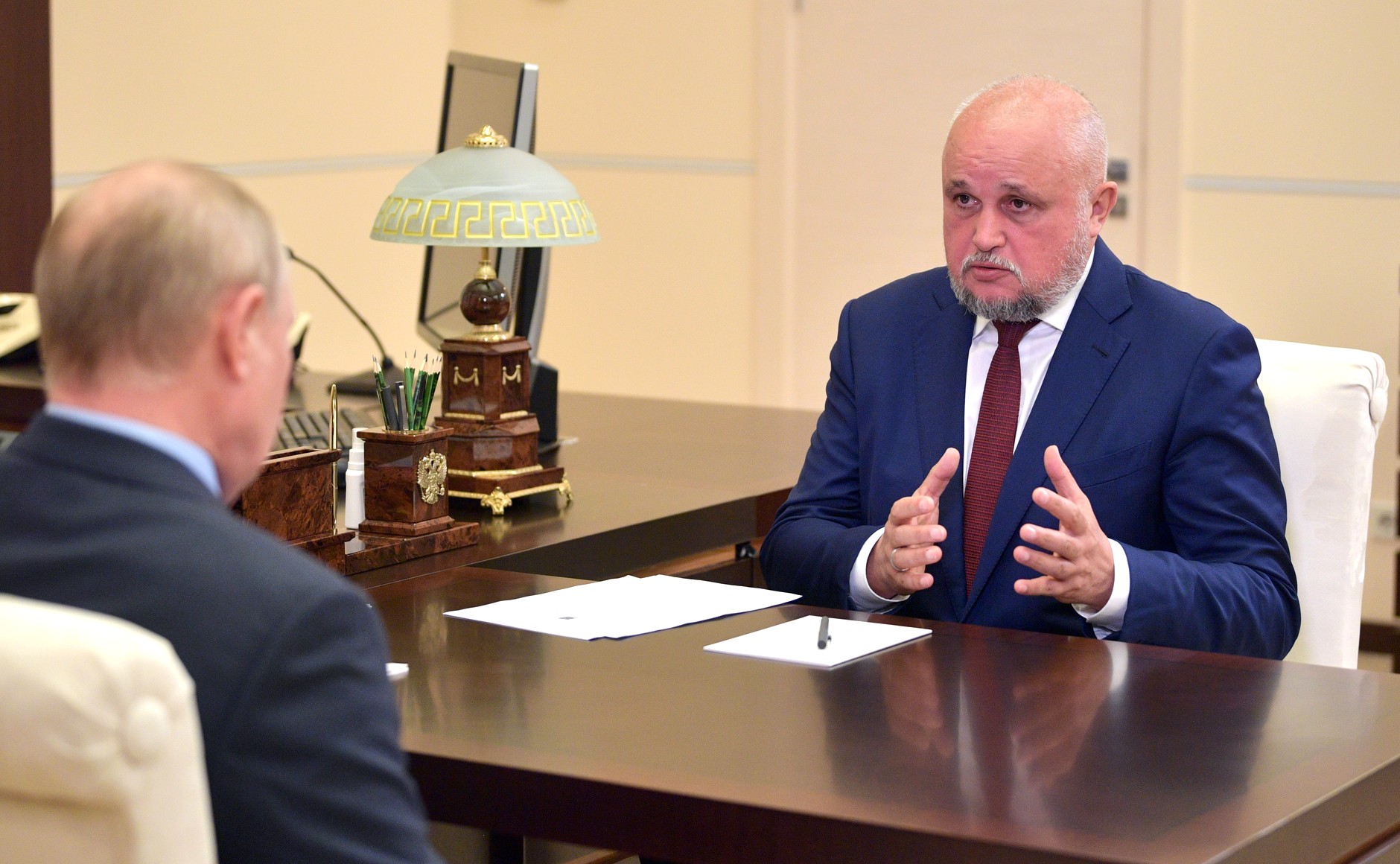 Sergei Tsivilev began by speaking about the My New Outpatient Clinic regional programme aimed at establishing several types of modular clinics depending on the number of potential patients and the necessary equipment. The new facilities are already under construction. He added that with state support, the region will be able to implement these plans faster, and it is a big ask from the Kemerovo residents. Vladimir Putin noted that fighting infectious diseases was an important aspect of healthcare as well as a major challenge for the Kemerovo Region, including the most acute regional problems such as HIV and tuberculosis. Sergei Tsivilev reported that a large hospital for such patients, fitted with the best equipment, opened just two weeks ago in Novokuznetsk. It is helping COVID-19 patients at the moment, but in the future it will be ready to treat other infections, first type pathogens and plague, but the plan is to use it for HIV and tuberculosis. The Governor also spoke about the Sheregesh ski resort, which is included in the socioeconomic development programme. This project is in great demand – in September, Sheregesh actually sold more tours for the upcoming season than Sochi. Major companies such as Azimut and Kosmos have joined the project and will build their facilities there. But, according to the Governor, there is a transport problem, which requires the construction of an airport. There is an investor who will build a terminal, and the region is ready to build roads and other utilities. A runway still needs to be built. With some support from the state, this resort could become one of the world’s top ski resorts. 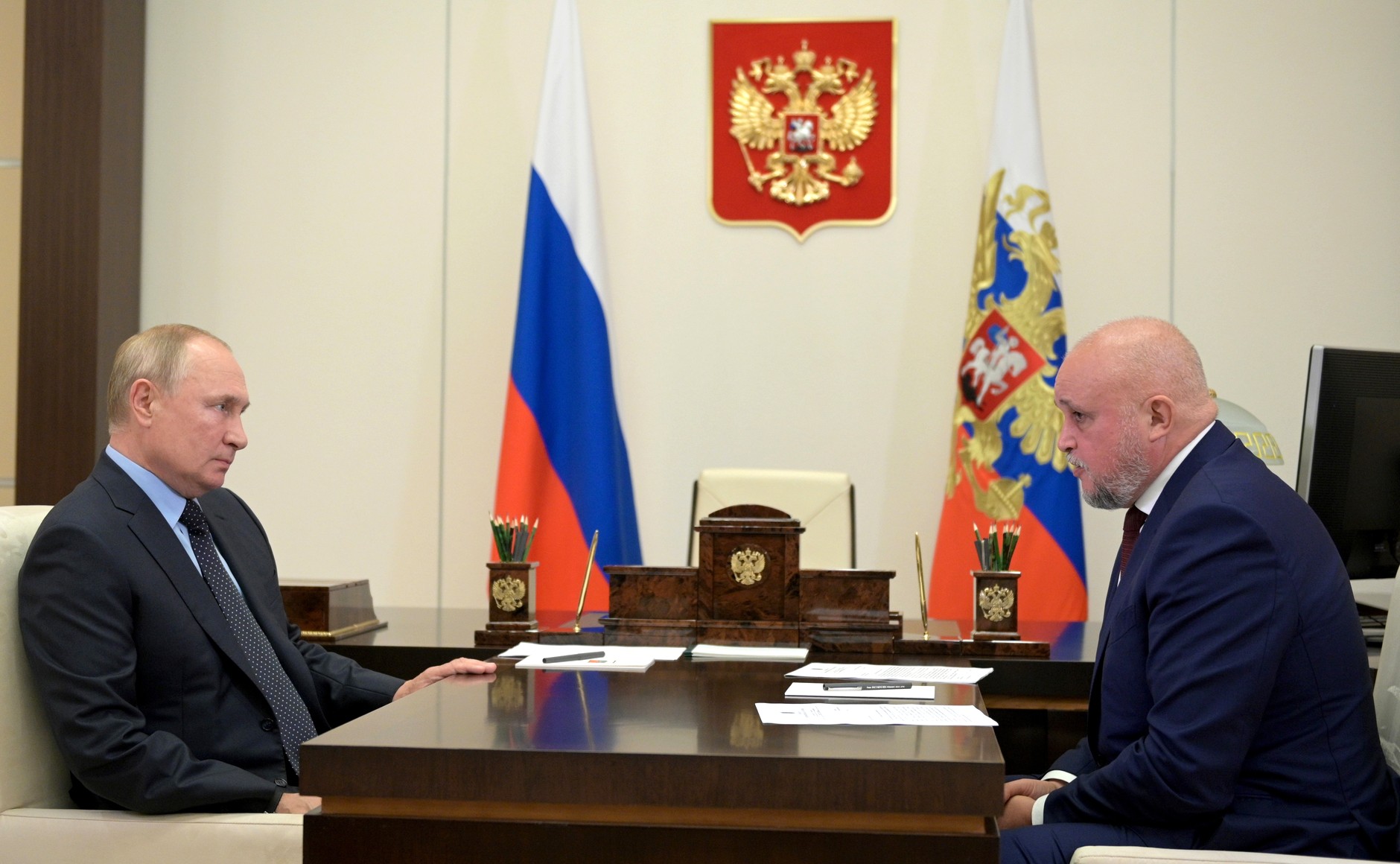 They also discussed the possibility of creating a special economic zone near Kemerovo. The area still has factories that closed after the collapse of the Soviet Union; that capacity could be put to use again. The Governor asked for state support in creating a special economic zone for the chemical industry there; there are potential investors for the project. Sergei Tsivilev raised another issue that is important for the region. This is the need to prevent young people from leaving Kuzbass and to attract more people to the area. He said there were 20 cities in Kuzbass and it was one of the country’s most urbanised regions. But these cities were built in line with the same principle. Once a mine or plant appeared, a city was built around it. It is difficult to attract people to small cities and young people are leaving them. The Governor proposed creating two cities, each with a population of at least one million, by expanding Kemerovo and Novokuznetsk, which currently have populations of 550,000 – 560,000 each. These cities already have relevant infrastructure and airports. A terminal was built in Kemerovo and a new one is under construction in Novokuznetsk. The two cities are linked by a fast-speed regional road. It is possible to launch overall development in both cities, to remove private sector districts and build modern homes. Vladimir Putin told the Governor that it was necessary to act prudently and understand how to meet the interests of the local people. It was essential to work with every family to this end. Mr Tsivilev explained that the authorities planned to buy such private homes and offer people flats in new modern buildings. The region’s authorities have already embarked on this programme. They are spending their own funds on it but its implementation will take quite a long time. If they receive support from the state, they can carry out these plans by 2030. It is necessary to develop serious infrastructure in order to encourage young people to remain in the region. The President emphasised that it was also necessary to create jobs. To prevent younger people from leaving it was essential to provide them with well-paid jobs and career prospects. 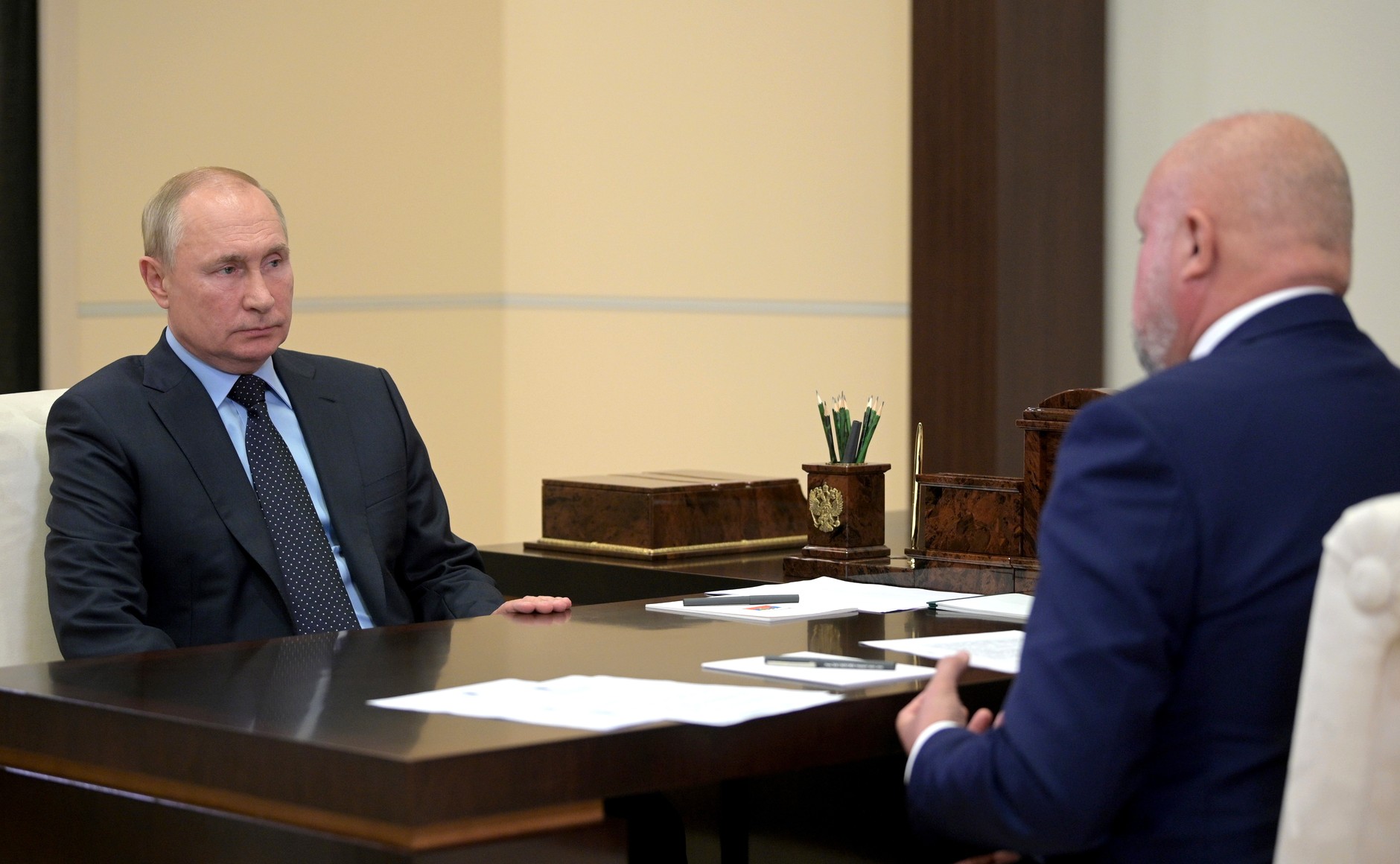 The President also said that the region was about to implement a number of good investment projects and asked the Governor which he considered the most important. Mr Tsivilev recalled that during the St Petersburg International Economic Forum the region signed agreements worth over 300 billion rubles with private companies. Importantly, they were outside the region’s most important industry, coal mining. These are three- to five-year projects. They have already been launched. The Governor thanked the President for his support for the reconstruction of aluminum plants. The chemical industry is also making rapid headway. The Yevraz metallurgical plant is working on a new rolling mill. The Governor attributed the region’s success at the economic forum to the President’s instruction given on March 2 of this year. During the meeting on the development of the coal industry on that day, Vladimir Putin suggested compiling a socioeconomic development programme for Kuzbass. Four days later, the Prime Minister arrived in the region. The region’s authorities worked round the clock with the Government and the entire programme of socioeconomic development was drafted. It was signed on March 6 and the region was allocated 50 billion rubles for implementing it. The business community got the message and agreements worth 300 billion rubles were signed at the economic forum two months later. One ruble earmarked by the Government attracted six rubles from the business community. Vladimir Putin proposed that he and the Kemerovo Region Governor together look at the documents linked with all the issues Mr Tsivilev had raised. The source of information - http://en.kremlin.ru/events/president/news/66824 Greetings to participants and guests of the Russian Paralympic Committee’s 16th Return to Life awards ceremony Vladimir Putin sent a message of greetings to participants and guests of the Russian Paralympic Committee’s 16th Return to Life awards ceremony. October 1, 2021 - 20:30 The message reads, in part: “There are true heroes of the 16th Paralympic Summer Games in Tokyo among the award winners. While performing with a neutral status, you tried to glorify Russia through your achievements, strengthen its standing as a leading sports nation, and contribute to the progress of the Paralympic movement. I will say that you completely succeeded. Today’s ceremony is a tribute to you, to your mentors and coaches, to the volunteers and public figures, to everyone whose truly selfless efforts, commitment and belief in yourself and your capabilities, are an inspiring example for all of us.” The source of information - http://en.kremlin.ru/events/president/news/66834 Congratulations to Mosmetrostroy on its 90th anniversary Vladimir Putin congratulated the current and former staff of Mosmetrostroy on the company’s 90th anniversary. October 2, 2021 - 11:00 The message reads, in part: “This anniversary is an important event for your team and the entire domestic construction industry. You can rightfully be proud of the rich history of your company and the wonderful work traditions laid down by pioneering heroes. Over time, several generations of highly professional and dedicated metro builders have constructed a wide network of metro lines convenient for passengers and erected stations that are unique in beauty and technical equipment. The metro has become a real pearl of our capital, one of the fastest means of public transport loved by Muscovites and tourists. It is gratifying that today you confidently demonstrate the leading positions of Mosmetrostroy, strengthen its scientific, expert and human capacity, and successfully implement ambitious plans for developing the metro. And of course, I would like to especially note your active participation in the implementation of promising infrastructure projects both in Russia and abroad, which require the most modern and high-end engineering and technological solutions.” The source of information - http://en.kremlin.ru/events/president/news/66837 Congratulations to KONAR on its 30th anniversary Vladimir Putin congratulated KONAR’s staff on the 30th anniversary of the company. October 2, 2021 - 12:00 The message reads, in part: “Over the past years, the KONAR Industrial Group has become one of the most efficient companies producing equipment for the oil and gas, shipbuilding, energy and other strategic sectors of the national economy. Experienced professionals work here who actively introduce innovative technologies and advanced management and engineering solutions, set big, ambitious goals, and achieve success. It is important that while improving the manufacturing base, attracting large investments, and creating modern jobs, you give priority attention to the development of the regions, actively participate in the social, sport and cultural life of the Chelyabinsk Region, the Urals and the whole country, and set a real example of a socially responsible business.” The source of information - http://en.kremlin.ru/events/president/news/66838
__________________
Where should they dig the Very Deep Pit? Piglet said that the best place would be somewhere where a Heffalump was, just before he fell into it, only about a foot farther on. (c) Alan Alexander Miln |
|
|
#2 |
|
Senior Member
|
Greetings to President of Germany Frank-Walter Steinmeier and Federal Chancellor Angela Merkel on German Unity Day
Vladimir Putin sent a message of greeting to the Federal President of the Federal Republic of Germany Frank-Walter Steinmeier and Federal Chancellor Angela Merkel on the national holiday, German Unity Day. October 3, 2021 - 10:00 “The reunification of Germany was a momentous historic event that put an end to the Cold War in Europe and launched a new stage in relations between our nations,” the President of Russia stressed in his message. He expressed confidence that the constructive development of bilateral cooperation in various areas and cooperation in resolving crucial issues on the international agenda would fully meet the interests of the Russian and German peoples. The source of information - http://en.kremlin.ru/events/president/news/66839 Greetings to Abasgadzhi Magomedov on winning 2021 World Wrestling Championships in Oslo Vladimir Putin congratulated Abasgadzhi Magomedov on winning the men’s freestyle event at the 2021 World Wrestling Championships in Oslo, Norway, in the 61-kg category. October 3, 2021 - 22:00 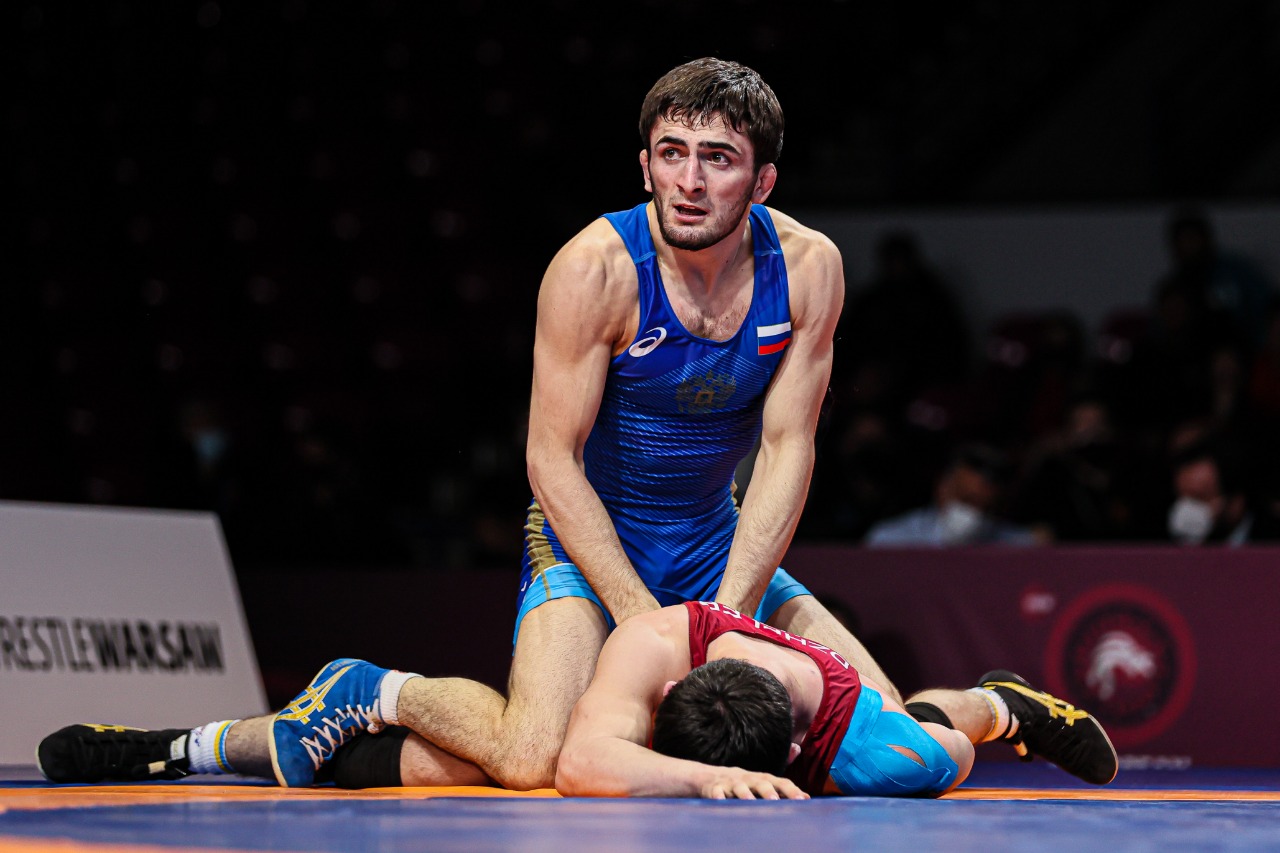 The message reads, in part: “A talented and determined athlete and a worthy representative of the national freestyle wrestling school, you displayed willpower and fine-tuned technique, excellently coped with your task and made it to the top, reaching the top of the winners’ podium.” The source of information - http://en.kremlin.ru/events/president/news/66856 Greetings on World Congress of School History Teachers opening Vladimir Putin sent his greetings to the participants, organisers and guests of the World Congress of School History Teachers. October 4, 2021 - 10:00 The message reads, in part: “Your forum has brought to Moscow teachers from different regions of Russia and a number of foreign countries, as well as academics, experts, prominent politicians and representatives of the authorities. You have come together to discuss complicated and serious subjects, which are in the focus of public attention and call for substantiated and well thought out decisions. You will be discussing the development of school education, ways to improve the teaching of history, the training of skilled personnel, and to enhance the prestige of your important and responsible profession. I would like to emphasise that history holds a special place among school subjects: it largely shapes the world outlook and helps widen a young person’s horizon and plays a defining role in promoting personal qualities such as patriotism and civic spirit, respect for one’s homeland and a feeling of being part of its future. The role of teachers, humanities teachers cannot be overstated. I am confident that your congress will be held in a creative and constructive manner, will offer its participants an opportunity to learn about the latest academic achievements and best educational technologies, and will help consolidate the professional community and exchange the best experience and practices. Of course, I would like to use this opportunity to send my warm regards to you on the coming World Teachers’ Day.” The source of information - http://en.kremlin.ru/events/president/news/66845 Greetings to participants of International Financial Security Olympiad final stage Vladimir Putin sent greetings to the participants of the final stage of the International Financial Security Olympiad, which takes place in Sochi on October 3–9. October 4, 2021 - 11:00 The message reads, in part: “The world is changing rapidly today. Technology is evolving, and modern, promising academic disciplines are emerging. Russia places priority on creating a wide horizon of opportunities for young people, including self-fulfillment, gaining new skills, knowledge and competencies. This Olympiad is an important part of this much-needed, multifaceted work and is aimed at improving the younger generation’s information, financial and legal literacy, as well as preventing crime and extremism. These tasks are of paramount importance for security and effective protection of people’s legal rights, and therefore your project enjoys support from Russian, foreign, and international organisations, and attracts great expert and public interest. I am sure that this Olympiad will be a success, and a memorable event for all the participants, and definitely for the finalists who have now gathered at the famous Sirius centre.” The source of information - http://en.kremlin.ru/events/president/news/66846 Congratulations to Fumio Kishida on his election as Prime Minister of Japan Vladimir Putin sent a congratulatory message to Fumio Kishida on his election as Prime Minister of Japan. October 4, 2021 - 14:00 “There is no doubt that promoting constructive cooperation in various spheres between Russia and Japan will serve the fundamental interests of our nations. I would like to reaffirm Russia’s commitment to dialogue and to working together with you on topical matters on the bilateral, regional and international agendas,” the President noted in his message. The source of information - http://en.kremlin.ru/events/president/news/66844 Meeting with Alexander Avdeyev Vladimir Putin had a videoconference meeting with Alexander Avdeyev. The President signed an executive order appointing Mr Avdeyev Acting Governor of Vladimir Region. October 4, 2021 - 16:15 - Novo-Ogaryovo, Moscow Region 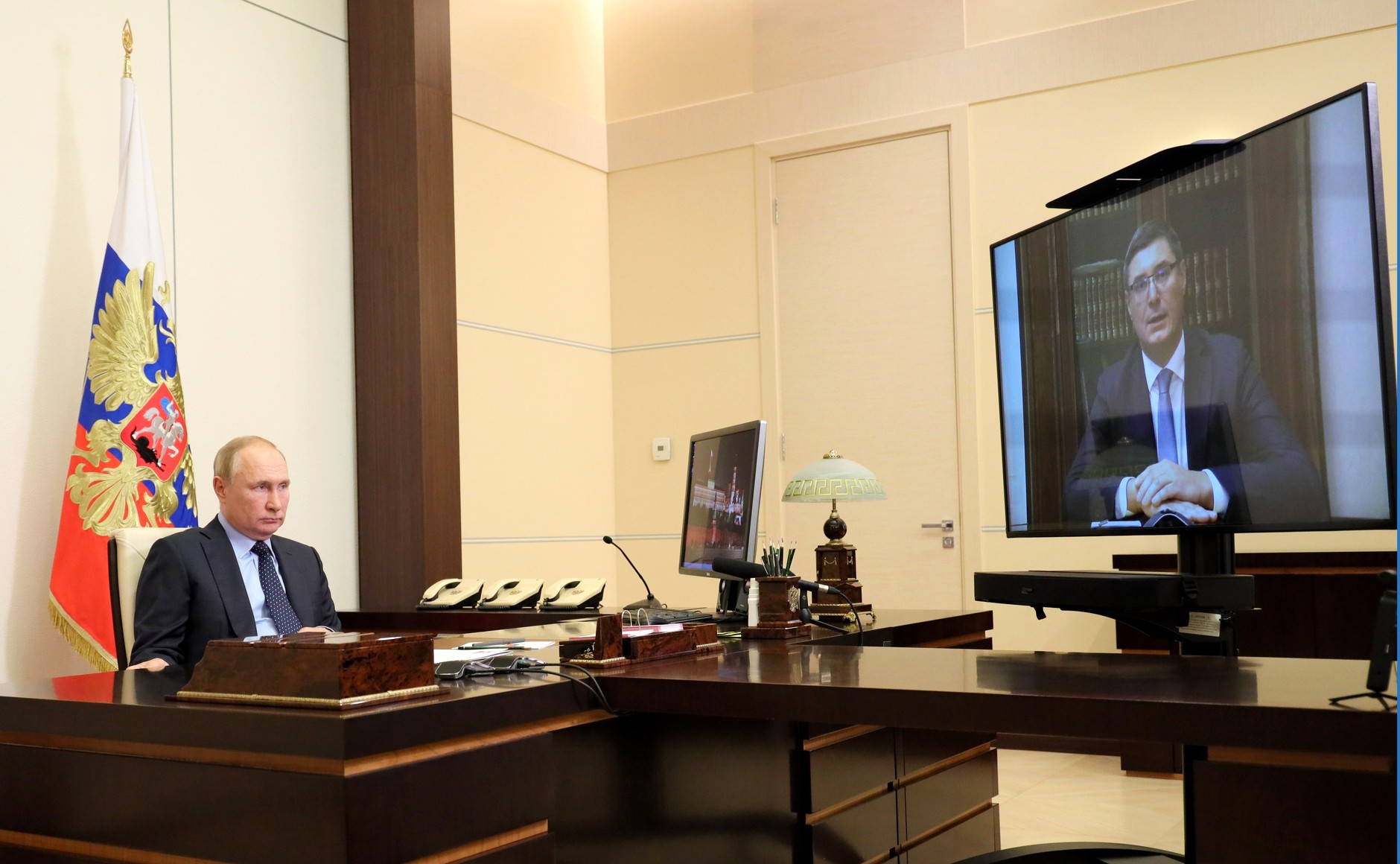 Alexander Avdeyev told the President about his background and experience of holding municipal and regional posts, attracting investment, developing the economic potential at the national and federal levels, as well as his legislative experience as a State Duma deputy. He could apply his experience in the Vladimir Region as well. According to Alexander Avdeyev, priority attention in Vladimir Region should be given to healthcare and, of course, to the development of the economic potential in the region, one of the largest in the Central Federal District. He said he believed that the region’s economic potential has not been used and realised in full. 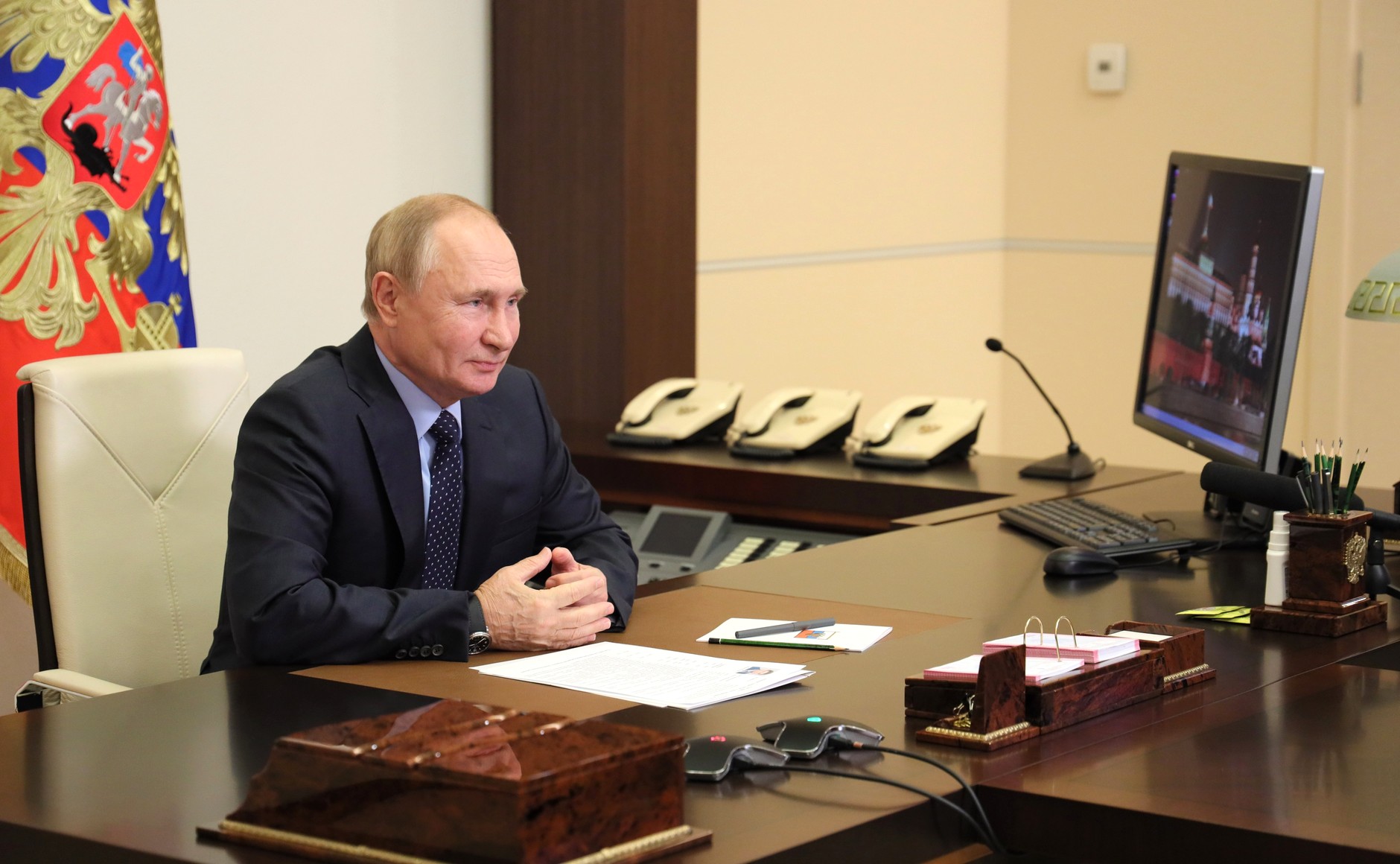 The President pointed out many problems in that important region and said that it is important to work with the people and public organisations directly, without any intermediaries. Vladimir Putin noted that Alexander Avdeyev was an experienced and effective official who had been productive in each of the jobs he held. The President wished him every success in his new job. The source of information - http://en.kremlin.ru/events/president/news/66848 Alexander Avdeyev appointed Acting Governor of Vladimir Region President of Russia Vladimir Putin signed the Executive Order On the Early Termination of Powers of the Vladimir Region Governor. October 4, 2021 - 16:15 The President resolved to accept the early resignation of Vladimir Region Governor Vladimir Sipyagin and to appoint Alexander Avdeyev Acting Governor of Vladimir Region until an elected governor takes office. The source of information - http://en.kremlin.ru/events/president/news/66849 Meeting with Maxim Yegorov Vladimir Putin had a videoconference meeting with Maxim Yegorov. The President signed an executive order appointing Mr Yegorov Acting Governor of Tambov Region. October 4, 2021 - 16:30 - Novo-Ogaryovo, Moscow Region  Vladimir Putin said that in his previous position as Deputy Minister of Construction, Housing and Utilities, Maxim Yegorov had been at the forefront, considering that the ministry is one of the most important and busy government agencies whose performance has a direct effect on the wellbeing of the country and of individual people. In addition, Maxim Yegorov also has regional experience, because he had been an adviser to the Tyumen Region Governor. Maxim Yegorov told the President that in his capacity as Deputy Minister of Construction, Housing and Utilities he was responsible for housing and utilities and four federal projects: clean water, the environmental recovery of the Volga River, comfortable urban environment, and the resettlement of people from dilapidated housing. Vladimir Putin noted that Tambov Region had the same priorities.  Maxim Yegorov thanked the President for putting his confidence in him and said that the offer was a challenge for him, considering his experience. He said he was aware of the region’s problems and was ready to try to meet all the goals set to him. Vladimir Putin expressed the hope that Maxim Yegorov would work energetically to develop the region, applying the skills and knowledge he accumulated in his previous jobs, and wished him every success. The source of information - http://en.kremlin.ru/events/president/news/66851 Maxim Yegorov appointed Acting Head of Tambov Region Administration President of Russia Vladimir Putin signed the Executive Order On the Early Termination of Powers of the Head of the Tambov Region Administration. October 4, 2021 - 16:35 The President resolved to accept the early resignation of Head of the Tambov Region Administration Alexander Nikitin and to appoint Maxim Yegorov Acting Head of the Tambov Region Administration until an elected official takes office. The source of information - http://en.kremlin.ru/events/president/news/66850 Congratulations to Zagir Shakhiyev on victory in 2021 World Wrestling Championships in Oslo Vladimir Putin congratulated Zagir Shakhiyev on his victory in the freestyle 65 kilogrammes event at the 2021 World Wrestling Championships in Oslo. October 4, 2021 - 22:00  The message reads, in part: “You have demonstrated your leadership, and won a hard-fought and exacting victory over a formidable challenger, leaving no doubt that you deserved to win. I am certain that this success will inspire you to reach new heights in sports.” The source of information - http://en.kremlin.ru/events/president/news/66860
__________________
Where should they dig the Very Deep Pit? Piglet said that the best place would be somewhere where a Heffalump was, just before he fell into it, only about a foot farther on. (c) Alan Alexander Miln |
|
|
#3 |
|
Senior Member
|
Telephone conversation with President of Tajikistan Emomali Rahmon
In the course of a telephone conversation, Vladimir Putin extended his birthday greetings to President of the Republic of Tajikistan Emomali Rahmon. October 5, 2021 - 11:10 The sides reaffirmed their mutual resolve for the all-round strengthening of the strategic partnership and alliance between Russia and Tajikistan. The heads of state also discussed the recent developments in Afghanistan and agreed to keep in close contact. Vladimir Putin had previously sent a message of greetings to Emomali Rahmon. The message reads, in part: “Your years of activity as the head of state have won you well deserved respect among your compatriots and abroad. Under your guidance, Tajikistan has achieved considerable successes in the economic and social spheres. We highly appreciate your efforts to strengthen the relations of strategic partnership and alliance between our countries, as well as your contribution to security and stability in Central Asia. I would like to reaffirm our readiness to continue our constructive dialogue and close cooperation regarding the current topics on the bilateral and international agenda.” The source of information - http://en.kremlin.ru/events/president/news/66858 Meeting with winners and finalists of Russia Teacher of the Year contest The President met with the prize-winners and finalists of the national competition, Russia Teacher of the Year 2021. October 5, 2021 - 14:50 - Novo-Ogaryovo, Moscow Region As many as 85 teachers representing all Russian regions competed in the federal round, which started on September 25 in Rostov-on-Don. Fifteen contestants who scored the most points in the round were declared finalists, and five of them prize-winners. The winner was determined by a final round that took place in Moscow the day before and involved a news conference, Question for the Teacher of the Year. Yekaterina Kostyleva, a physics teacher at Gymnasium No. 16 in Tyumen, won the national title. 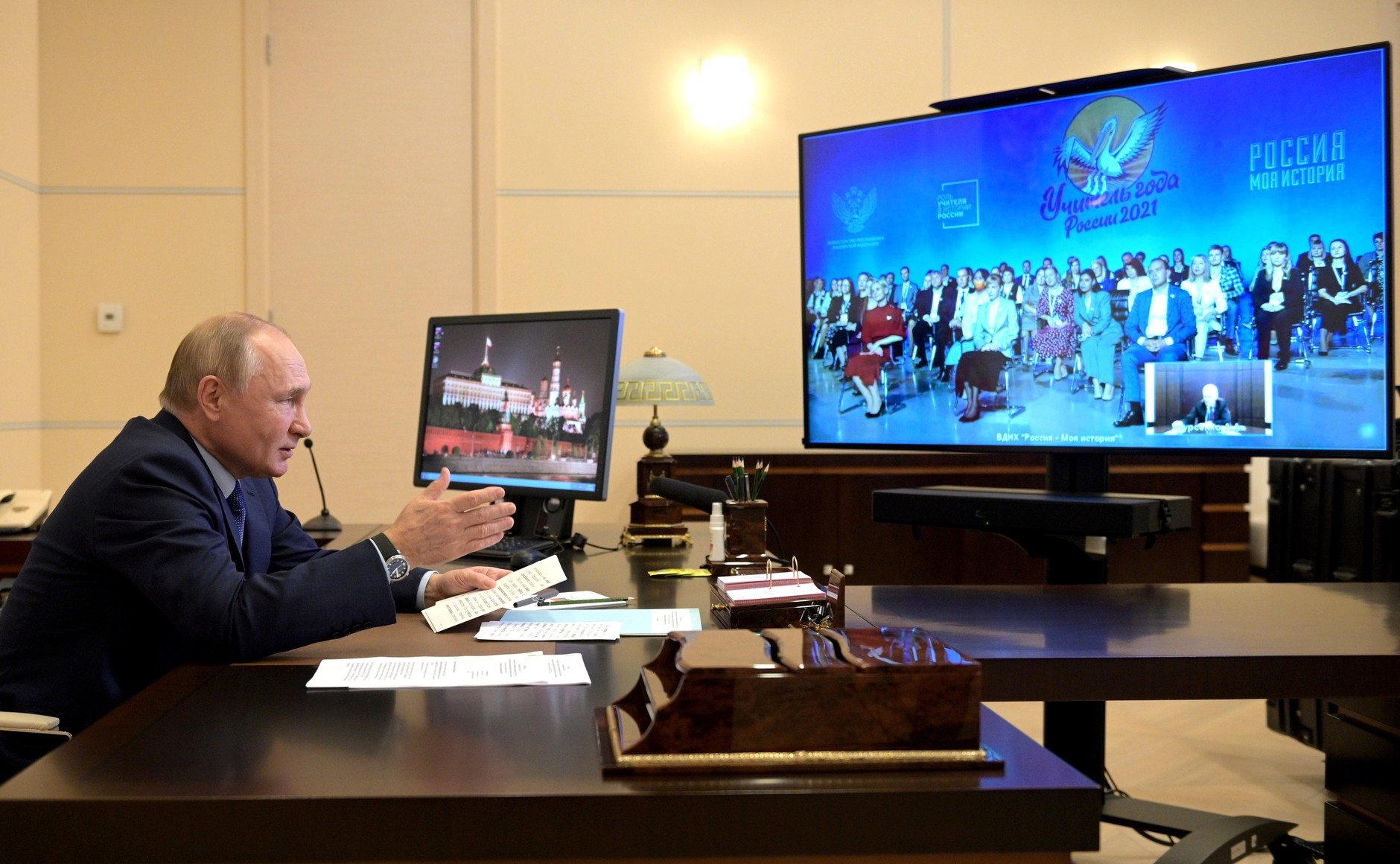 President of Russia Vladimir Putin: Good afternoon, friends. Today, all of us, the entire country, celebrate a good holiday, Teacher's Day. I wish all the best to you, to all Russian teachers on this wonderful day. It is always filled with joyful, positive emotions and kind words, the smiles of your pupils, their parents, your colleagues, and sincere feelings of gratitude for your noble work, for your effort, for what you are doing for the country, for its future – everything you do, undoubtedly, directly affects its future, and this contribution cannot be overestimated. Along with passing on knowledge, you shape your pupils’ worldview and their value system, which is extremely important. You literally establish a link between generations, you encourage children to think, awaken their interest in Russian history, in our great culture. You help them to understand the complexities of the modern world, to understand themselves and to figure out what they have set their hearts on, what their abilities and talents are. All of this is extremely important for every child, for every teenager, and even more so for high school students who are choosing their path in life. Our children’s future is Russia’s future. It will be up to them – today's children and adolescents – to build, to develop, to drive their country forward, and the role of a teacher in training competent and responsible Russian scientists, politicians, Russian citizens is truly enormous and invaluable. 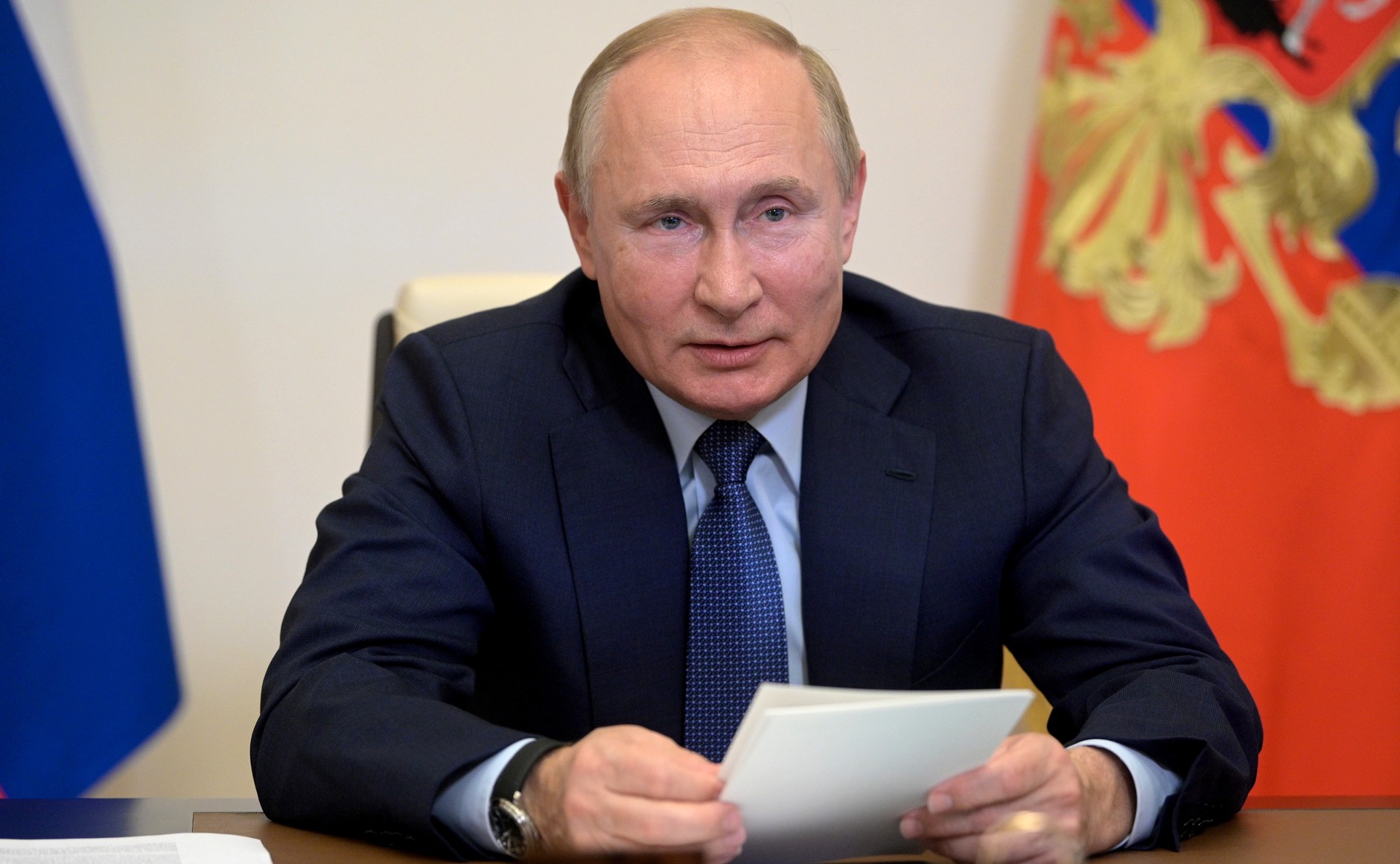 In schools, one generation succeeds another, requiring teachers to acquire new knowledge, master new methods and grow professionally, including by learning to use digital technology for a more enriching educational experience. The promise technology brings us is real, and we will probably discuss this, albeit briefly, during today’s meeting. All this helps ensure that the learning process is in tune with what today’s schoolchildren aspire to. This is what pupils ask whenever I meet them, even if it does not happen very often. By the way, they tend to suggest interesting solutions for, say, history lessons or other disciplines, and you have probably seen this as well. Speaking of history, digital technology offers us extensive opportunities for re-enacting historical events or immersing ourselves in past eras. We had quite a detailed discussion on this topic during the open lesson on September 1. I am certain that the multimedia park Russia – My History, where you are now gathered, as far as I know, will inspire you to come up with new ideas. However, we all understand that no matter how advanced and cutting-edge the technology used in the learning process, it can never replace direct, face-to-face communication. After all, we are all humans, not machines or robots. A teacher’s personality, emotions, wisdom, warmth, attention and power of conviction have a tremendous bearing on the pupils’ intellectual and moral development, as we have seen once again when schools had to switch to remote learning. 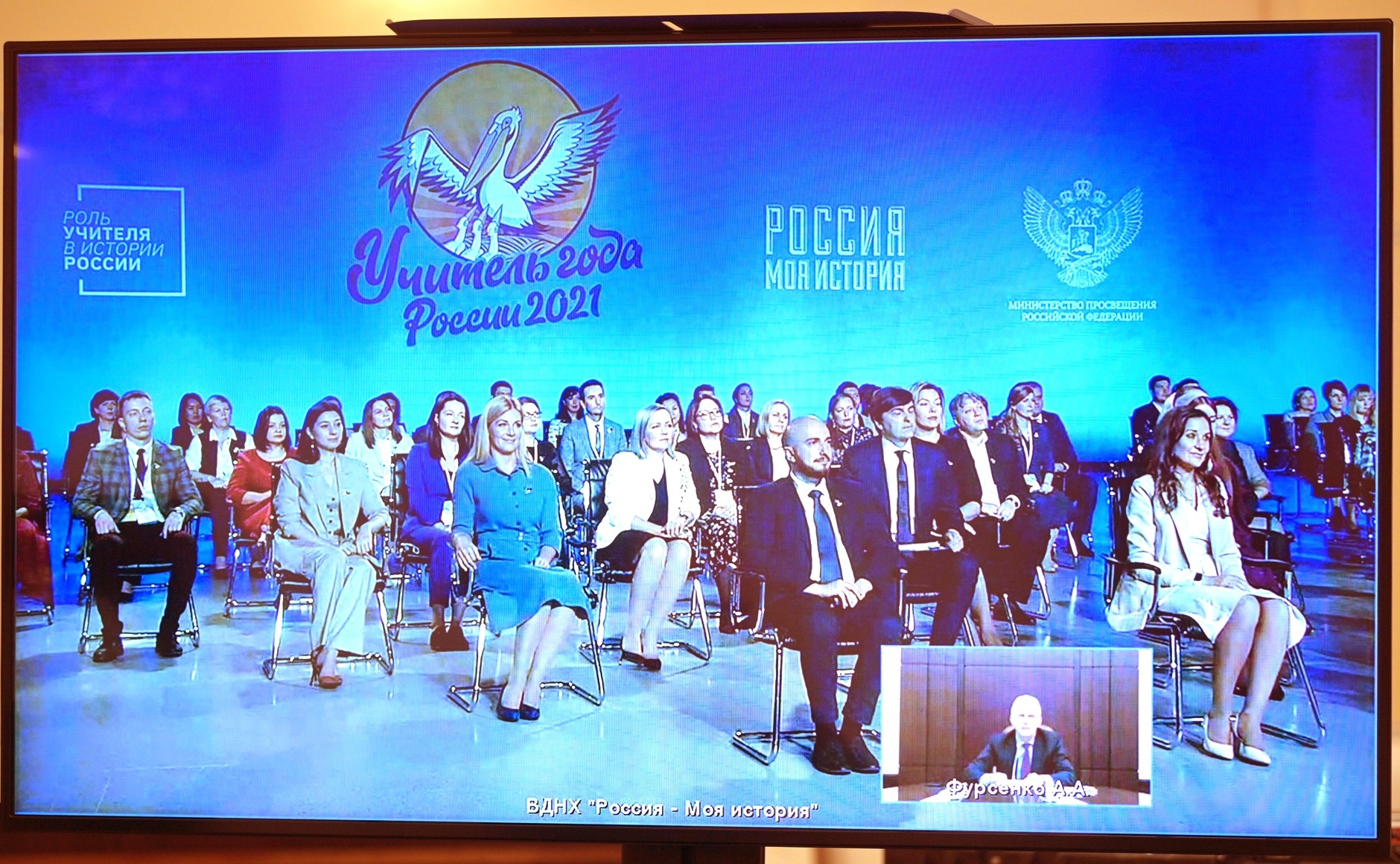 To highlight the importance of the teaching profession for our society, 2023, when we will be marking the 200th anniversary of the birth of Konstantin Ushinsky, the founding father of Russian pedagogy, will be the year of teachers and mentors. This will be the Year of the Teacher. Preparations will begin soon, and I am asking you, winners and finalists of the main national teaching excellence contest, to contribute to these preparations and share your insights and ideas with your colleagues from the Education Ministry. I would like to extend my warmest congratulations to you on reaching such a high professional level as today. The contest lasted for a whole year, and you managed to score success, become the best teacher in your region, reach the finals, and demonstrate your pedagogical talent at the federal level. Your victory in the contest is also an excellent example for your students. It shows how to display one’s abilities, not to be afraid to compete and how to become a leader. Schoolchildren and young people in general have good opportunities to stand out and make a career in art, science or sports. It is great that they can look up to people like you and boldly conquer new peaks. 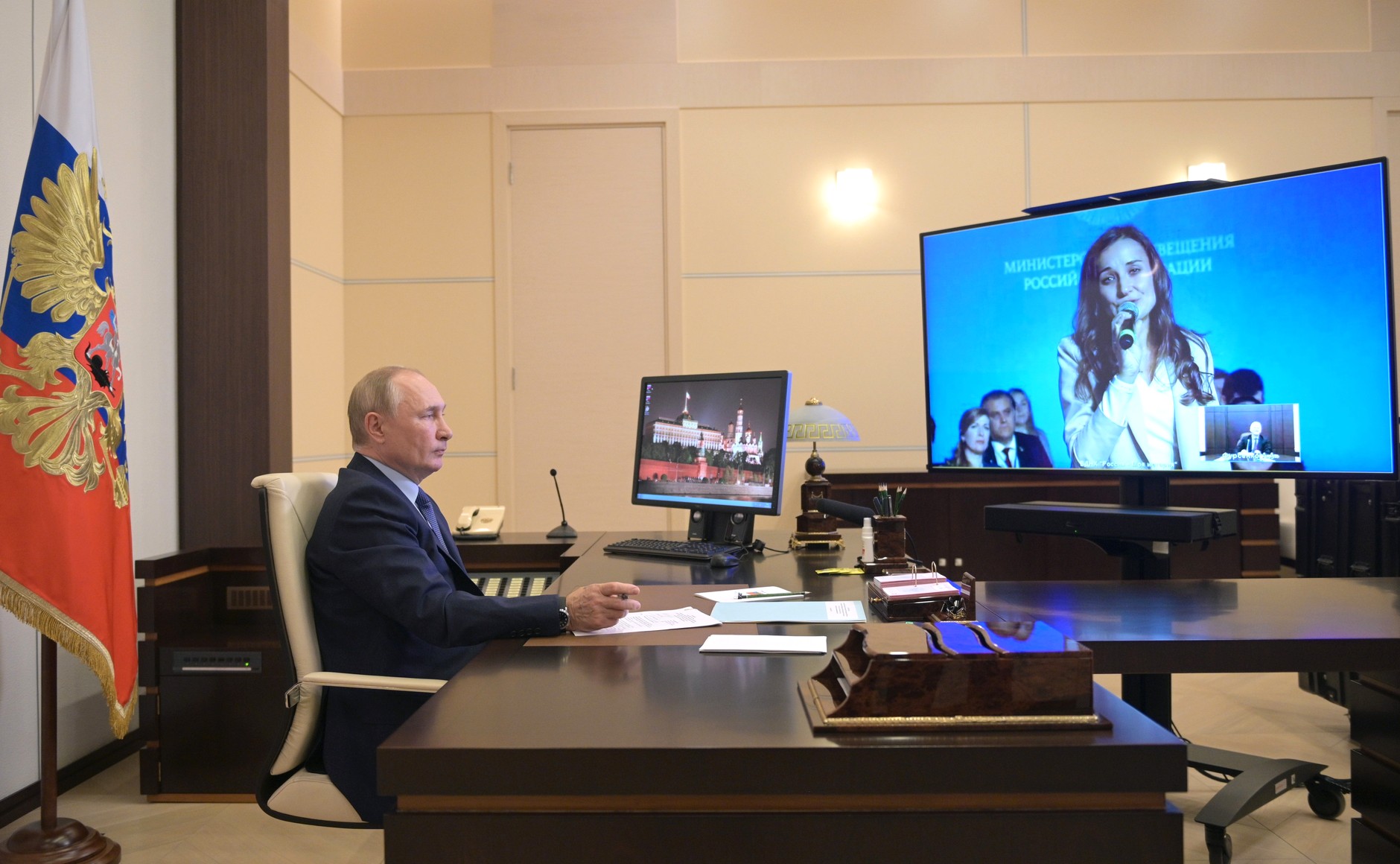 I know that all participants in the Teacher of the Year contest are brilliant specialists, outstanding, interesting people whom the whole country should know. In fact, you keep saying yourselves that we must raise the prestige of teaching, the prestige of teachers. Therefore, we have already made a decision: starting next year, contests will take place in a new format, with broad media coverage to keep the public focus on the best representatives of the profession and to enable the best teachers to set a benchmark for the entire national teaching community. However, true professional recognition for all teachers is the success of their students, the education of people who are looking for and finding their path in life. They are confidently walking along this path, helping and doing good for their families and friends, society and homeland. I wish you such teaching achievements. I am sure you will reach them. Happy holiday to you once again. Friends, if you have any questions, proposals or comments, I would be happy to listen to them. Go ahead, please. The source of information - http://en.kremlin.ru/events/president/news/66859 Meeting with Government members The President met with members of the Government of the Russian Federation, via videoconference. October 5, 2021 - 16:50 - Novo-Ogaryovo, Moscow Region The agenda of the meeting that focused on the implementation of the climate policy also included several other current issues. Reports on the current coronavirus situation were delivered by Deputy Prime Minister Tatyana Golikova, Healthcare Minister Mikhail Murashko, Head of the Federal Service for the Oversight of Consumer Protection and Welfare – Chief State Sanitary Physician Anna Popova and Moscow Mayor Sergei Sobyanin. Minister of Labour and Social Protection Anton Kotyakov updated the meeting participants on youth employment support measures. Education Minister Sergei Kravtsov reported on the performance of the Russian national team at the EuroSkills Competition, which was held on September 23–26, 2021, in Graz, Austria. Gold winners Diana Bagautdinova and Sagdiana Rustamova, as well as Director General of WorldSkills Russia Robert Urazov, spoke about preparations for the competition and the possibility of applying its methods to train young professionals across the country. Deputy Prime Minister Viktoria Abramchenko reported on the elimination of unauthorised dumping sites within city boundaries. 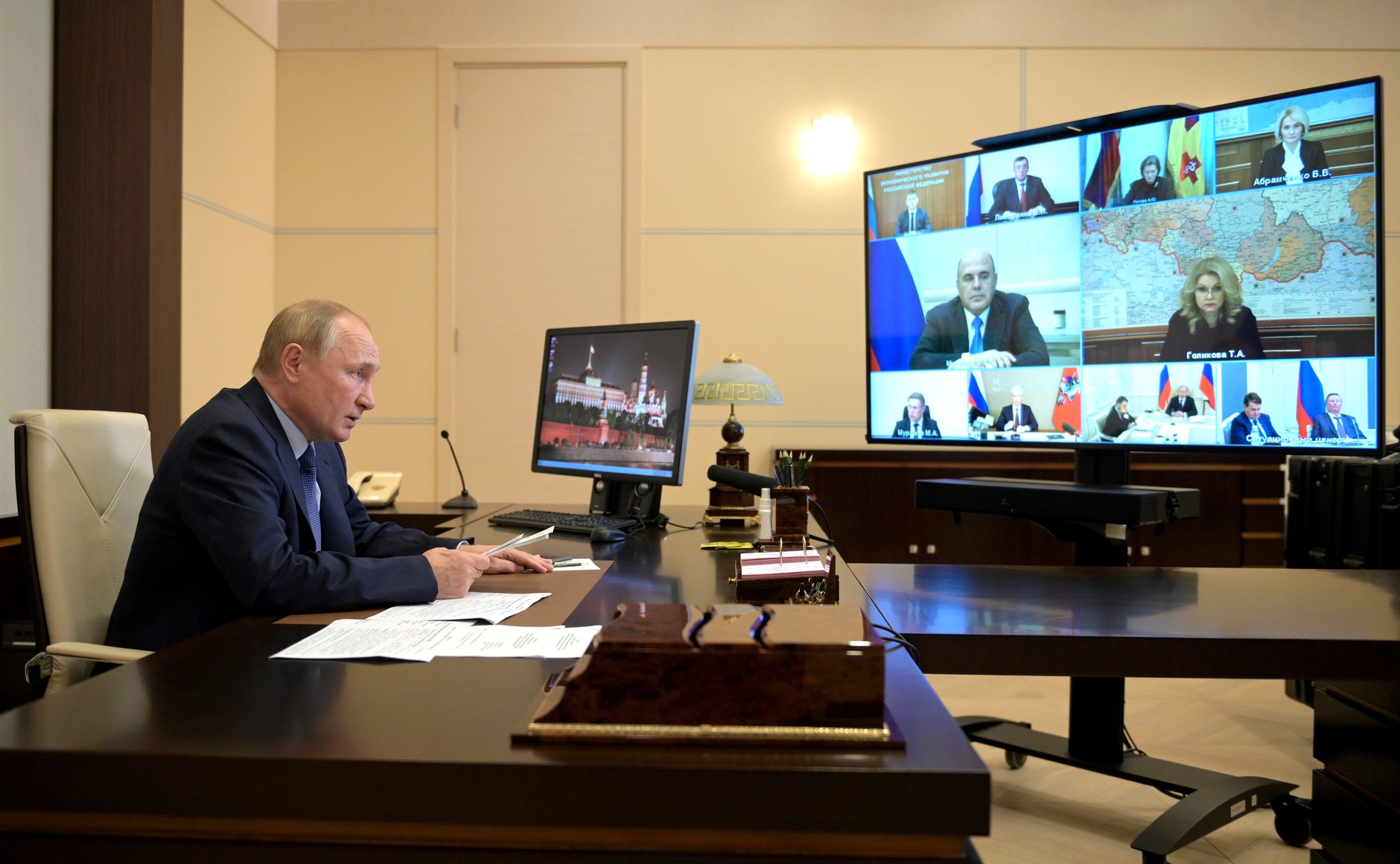 President of Russia Vladimir Putin: Colleagues, good afternoon. We have a very serious and important item on our agenda today. It has to do with climate change and our response to what is happening in the world, in the global economy, and in our own. But first of all, we need to consider several current matters, which are no less important. The most significant of them is, naturally, the coronavirus response effort, so I would ask Ms Golikova, and then Mr Murashko and Anna Popova to give us an update. Go ahead, please. <…>  Vladimir Putin: As for climate, we agreed to hold an in-depth discussion on this issue back during the St Petersburg International Economic Forum. We will talk about the transformation of the energy sector at a separate meeting tomorrow; it is a very important matter. We have approached it several times before, and tomorrow we will talk about it in greater detail. And now we will discuss our actions within the framework of the climate agenda. Climate change is a common, global problem. Like many other countries, we can see and feel all the threats and risks in this sphere, including desertification, soil erosion, and the thawing of permafrost, which occupies over 60 percent of our territory. Moreover, the mean annual temperature is rising in Russia 2.5 times faster than the world’s average, as we all know and as I have mentioned many times before. Over the past 10 years, it has increased by nearly 0.5 degrees. The speed of warming in the Arctic is even higher. This accounts for our informed and serious approach to the problem of global warming. We are ensuring and will continue to ensure Russia’s consistent compliance with all of its obligations and support for the relevant international initiatives, first of all the Kyoto Protocol and the Paris Agreement. The goal formulated in my Address to the Federal Assembly is to reduce the cumulative emissions in Russia over the next 30 years to a level below that in the EU, which is an ambitious goal. However, on our way towards this objective we must also deal with one more task: while reducing the negative effects of the Russian economy on climate worldwide, we must at the same time ensure the highest pace of our economic growth. At first glance, this looks like two different goals, but it is this result that we must achieve by implementing Russia’s socioeconomic development strategy with a low greenhouse gas emission level by 2050. The Government has already prepared a relevant project, and next on our agenda is a detailed plan of action to reduce the carbon intensity of the national economy. I would like to ask you to tell us about the drafting of this plan and the concrete timeframe for its implementation. I would like to specifically discuss ways to reduce net greenhouse gas emissions. There are many options here. We do not need to blindly choose any established or standard solutions. We need to select plans with the most significant cumulative economic effect per tonne of emissions reduced. We certainly must act competently and take full advantage of the opportunities that are being opened up by the current and future changes in the global economy, especially projects that bring direct benefits to the national economy and at the same time lead to a noticeable reduction in greenhouse gas emissions. Russia is actually implementing such plans now. One of them has to do with associated petroleum gas utilisation in the oil industry. I would like to emphasise this once again, although I have said it many times before – in this respect, we can safely say we are ahead of the whole planet, because as far as I am aware of, no other country has ever reported such high volume of APG utilisation. Hence another issue we are working on, and I am referring to the electrification of the oil and gas transportation infrastructure, and significant investment in the petrochemical and gas chemical industry, extremely important things. A programme for the comprehensive modernisation of the thermal power segment is implemented in power generation. Projects to improve efficiency and energy efficiency have also been launched. We are introducing new technologies and materials in construction. A very important area – we are upgrading the heat supply system, converting public transport to electricity and gas. I ask the Government to intensify this work. You all know, and we have talked about this many times: we need to invest in the development of an appropriate infrastructure. Suppose there is no refuelling infrastructure, say, for gas vehicles – then, that does it, everything will freeze. Action plans need to be updated with more ambitious targets. The most effective projects are concentrated precisely in these areas, both in terms of economic results and positive climate impact. It is important to take into account the changing structure of the global economy, which is pushing up demand for certain commodities such as copper and rare earth metals. This should be reflected in the long-term plans of our geological exploration and extractive industry. Yet another priority is the further development of green energy. The Russian energy production pattern has moved to the fore in the world in this regard. The share of power produced by nuclear power plants, hydropower stations, wind turbine generators and solar electric plants has exceeded 37 percent in Russia. We must certainly use these competitive technological advantages, to speed up the implementation of projects in the nuclear power industry, to proactively develop small-scale hydropower plants, and use the potential of high and low tides. This is being actively discussed all over the world and we have something to work on in this area. We even have certain competitive advantages in this regard. We will probably talk about this tomorrow. Russia has the potential to emerge as a leader in the budding world hydrogen and fuel ammonia market. Apart from the nuclear and other traditional sources, there are, as I said, non-standard solutions, such as deriving energy from the tides. The case in point must be primarily the Russian Far East, but other regions have potential in this regard as well. All these possibilities should be thoroughly calculated and analysed. Neither should we forget about [ensuring] the sustainable development of the oil-and-gas industry and the coal industry. You can see what is taking place in Europe, where there is hysteria and confusion on the markets. Why so? Because no one wants to take this seriously. Some people are trying to gamble on climate change problems, others tend to underestimate this or that, still others are starting to cut down investment in the extractive industries. The transition must be orderly. Orderly! It is quite certain that we in this country have every opportunity to avoid these mistakes. We see what certain ill-balanced decisions, unbalanced development, and U-turns can lead to. Today, as I said, this can be clearly seen on the European energy market. As I said, we will discuss this topic tomorrow. It is obvious that cutting emissions would not be enough to resolve the issue of global warming. Greenhouse gas removal projects are equally important, as we have discussed on numerous occasions, and Russia has immense potential for carrying out these initiatives. Our forests, the tundra, agricultural lands, marshes and oceans possess tremendous capacity to absorb greenhouse gases. In order to unleash this potential we need to make sure that forests and land are used many times more effectively than they are today. This is where fighting wildfires comes in. We need to expand areas subject to reforestation, expand the pristine wilderness and master new agricultural technology. I have already issued an instruction to this effect: to enact a comprehensive legal framework by July 2022 to ensure the implementation of climate-related projects that are be recognised globally, and engage in this activity in Russia, of course. Given how vast Russia is, as well as its global standing and role, Russian climate-related projects provide ample opportunities for international cooperation for decades to come. Make no mistake, they can play a leading role in global efforts to prevent climate change. It is clear that businesses need effective incentives to launch projects of this kind. There are plans to create so-called carbon markets, and a pilot project to create one on Sakhalin is already underway. This region can reach carbon neutrality as early as in 2026, and serve as a point of departure for developing the national market for trading in carbon units. Reporting on greenhouse gas emissions and removal is also critical, so there must be no delay in creating a national monitoring system for this purpose. Researchers can play an essential role in ensuring that climate-related data are accurate. Efforts to deploy a network of so-called carbon ranges in Russia are already underway. They will be used to test carbon dioxide emissions control and removal solutions and study the absorbing capacity across all ecosystems. Today, I am asking the Government to deliver a progress report on drafting a scientific and technical programme on eco-friendly development and climate change by 2030. Colleagues, all the areas I have just highlighted not only require our attention, but compel us to take informed decisions, and to understand where this will take us and how much this will cost. The fact that I put a special emphasis on understanding the consequences of the initiatives we intend to undertake was not a coincidence. Let me reiterate that reducing negative climate impacts should not loom as an onerous burden on businesses and Russian nationals. On the contrary, all the decisions we take must be designed to serve as drivers of economic growth and technological development of Russian economy. The source of information - http://en.kremlin.ru/events/president/news/66863 Meeting with LDPR leader Vladimir Zhirinovsky Vladimir Putin held a working meeting with Chairman of the Liberal Democratic Party of Russia Vladimir Zhirinovsky, via videoconference. October 5, 2021 - 19:00 - Novo-Ogaryovo, Moscow Region  The President and Mr Zhirinovsky discussed the results of the September elections to the State Duma and the future plans of the LDPR parliamentary faction. The source of information - http://en.kremlin.ru/events/president/news/66865 Congratulations to Abdulrashid Sadulayev on winning the 2021 World Wrestling Championship Vladimir Putin congratulated Abdulrashid Sadulayev on winning the 2021 World Wrestling Championship in Oslo in the freestyle wrestling 97 kg competition. October 6, 2021 - 12:30  The message reads, in part: “You are rightfully considered an experienced, eminent athlete and an excellent representative of the national school of freestyle wrestling. At competitions of the highest level, the Olympic Games in Tokyo and Rio de Janeiro, you consistently demonstrated a fighting spirit, defeated strong and well-prepared opponents, and have won a well-deserved gold again at this championship. Keep it up!” The source of information - http://en.kremlin.ru/events/president/news/66868
__________________
Where should they dig the Very Deep Pit? Piglet said that the best place would be somewhere where a Heffalump was, just before he fell into it, only about a foot farther on. (c) Alan Alexander Miln |
|
|
#4 |
|
Senior Member
|
Meeting on development of the energy industry
Vladimir Putin conducted a meeting on the development of the energy industry via videoconference. October 6, 2021 - 15:00 - Novo-Ogaryovo, Moscow Region The meeting was attended by Deputy Prime Minister Alexander Novak, presidential aides Igor Levitin and Maxim Oreshkin, Minister of Natural Resources and Environment Alexander Kozlov, Minister of Industry and Trade Denis Manturov, Minister of Economic Development Maxim Reshetnikov, Finance Minister Anton Siluanov, Energy Minister Nikolai Shulginov, Head of the Federal Anti-Monopoly Service Maxim Shaskolsky, governors and heads of major energy companies. 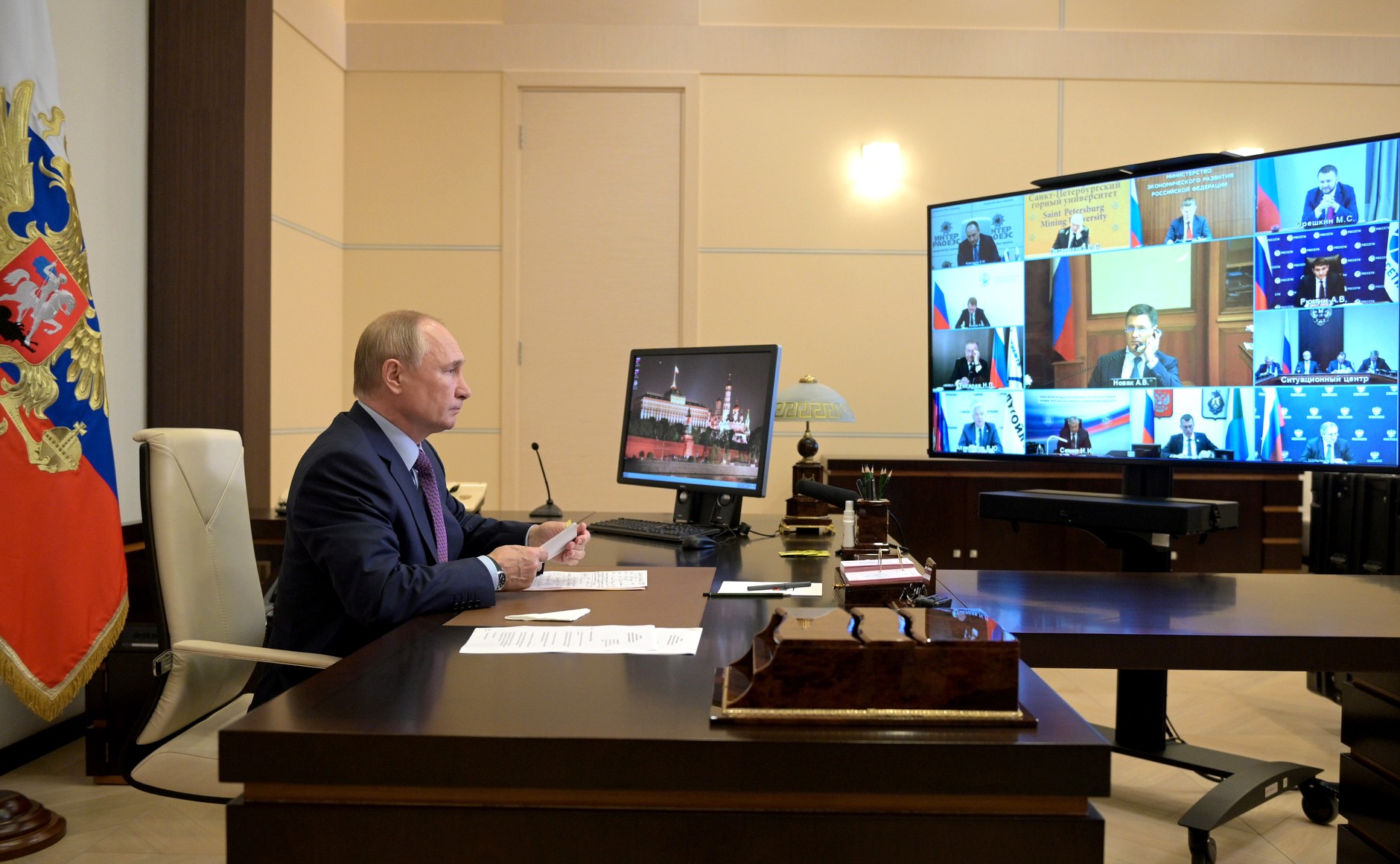 President of Russia Vladimir Putin: Good afternoon, colleagues. Yesterday we reviewed long-term plans linked with global climate policy and today I suggest discussing in more detail the current situation in the energy market and prospects for its development. A number of governors of Russian regions are taking part in our meeting. I believe this is a good opportunity to jointly analyse the regional aspects of major processes occurring in the global energy market. Now, the world economy is recovering well after the past year’s crisis. The demand for energy is growing and, hence, prices are soaring. As you know, the global energy market does not tolerate hectic moves and vagaries. Investment plans in this area are long-term. Therefore, any abrupt and rash actions may lead, and, judging by the current market situation, are already leading to serious imbalances like those we are seeing in the European market that has been affected this year by several unfavourable factors all at once. First, the rapid post-crisis recovery of the economy has “heated up” the energy demand. Second, gas reserves in many European countries’ underground storage facilities dwindled as a result of the harsh winter in early 2021. I am referring precisely to their underground gas storage facilities, the underground storage facilities of our European partners. Third, the production of wind energy declined noticeably later in the summer because of hot and windless weather. It should also be taken into consideration that the energy balance has changed dramatically in Europe over the past ten years. Many countries in the region have given up their coal-burning and nuclear power plants in favour of wind power generation that is heavily dependent on weather conditions. And, finally, fourth, the practices of our European partners [are to blame]. These practices have reaffirmed that, properly speaking, they have made mistakes. We were talking with the former European Commission; all of its activities were aimed at curtailing the so-called long-term contracts and at transitioning to gas exchange trading. It turned out – and today this is absolutely obvious – that this policy is erroneous, erroneous for the reason that it fails to take into account the gas market specifics dependent on a large number of uncertainty factors. Consumers, including, for example, fertiliser producers, are losing all price benchmarks. All of this is leading to failures and, as I said, imbalances. As a result, the gas price has broken all historical records. Today it is approaching $2,000 per thousand cubic metres of gas, which is over ten times last year’s average price. I would like to ask my colleagues to report in detail on the developments. In the meantime, I would like to underscore that Russia has always been a reliable supplier of [natural] gas to its consumers all over the world, both in Asia and Europe. Russia always fulfils all its obligations in full – all its obligations, I would like to stress this. Right before this meeting, I looked at a reference paper from Gazprom. Our exports outside of the former Soviet republics, primarily to Europe, of course, were at a record high in 2018, dwarfing deliveries to Asia that did not have any serious impact on these figures. So, in 2018, we hit a record high of 201.7 billion cubic metres. In 2019, our partners asked for less, so deliveries were slightly lower at 199.4 billion cubic metres. Marked by the pandemic, 2020 saw a decline in European manufacturing, dragging gas exports down to 179.35 billion cubic metres. The economy has been recovering in 2021. In the first nine months, deliveries increased 18.8 billion cubic metres or by 15 percent year-on-year. If this momentum carries on, our fuel exports to Europe, including natural gas, can very well set a new record. By the way, Gazprom’s long-term gas export contracts set forth minimum and maximum supply levels, and Gazprom has never refused requests for more supplies from its consumers, as long as they filed the relevant applications. There was not a single instance when Gazprom turned down an application. The Federal Republic of Germany is Russia’s biggest European consumer. In the first nine months of 2021, it increased its natural gas imports from Russian by 10.12 billion cubic metres to 131.8 percent compared to the same period last year. Even in 2020, when the overall deliveries to Europe declined year-on-year, we still increased exports to Germany by 4.7 billion cubic metres, which gives us 112.9 percent. I have to say that there has been all kinds of speculation on Ukraine’s gas transit system and deliveries through this country. I would like to reiterate that under the contract we have to pump 40 billion cubic metres of gas through Ukraine’s gas transit system per year. In the first nine months of 2021, Gazprom increased its supplies, or should I say transit volumes through Ukraine, by more than eight percent. We have every right to believe that we will exceed our contractual obligations in terms of gas transit through Ukraine. Further increasing these volumes does not make economic sense for Gazprom, since costs will also be higher. It is much cheaper to supply gas using the new pipelines, saving us about $3 billion per year for the supply volumes in question. In addition, I would like to inform those who actually care about preserving the environment, instead of just using this as a political weapon, that the new pipelines that were launched over the past years or are about to become operational can reduce CO2 emissions 5.6 times thanks to their new equipment. Accordingly, supply volumes go up, while emissions go down. This has to do with the superior characteristics of these pipelines enabling them to pump gas at a higher pressure. Everyone must know this. Nevertheless, colleagues, today I would like you to present your proposals about what else can be done to stabilise the global energy market. We are ready for this work and would like this to be a fully commercially based project, with due regard for the interests of all the participants in this process. I would like to emphasise that the current situation on the European energy market is another clear example of the fact that hasty, let alone politically influenced decisions are unacceptable in any sphere, but especially so when it comes to energy supply on which the sustainable operation of enterprises and the welfare and quality of life of millions depends. Therefore, our decisions regarding the development of the fuel and energy complex of our country, Russia, must be prudent, taking into account our national interests and, most importantly, the needs of our citizens, and, of course, they must be sustainable in the long run. We must try to take a look beyond the horizon of not just one decade, but two or three decades. According to international experts, including OPEC, the demand for oil will begin to decelerate from 2035, but overall oil consumption will be increasing until 2045, approximately by 0.7 percent annually. The demand for natural gas will continue to grow faster, by over 1 percent annually, primarily because gas as a cleaner fuel will be replacing coal in the global energy balance. International experts believe that the demand for coal will increase slightly over the next five years, especially in Southeast Asia, then, according to their forecasts, it will reach a plateau in 10–15 years before decreasing. But we must make a comprehensive analysis of the impact of potential changes in the energy sector, their influence on our economy, and thoroughly consider all possible development scenarios. Our actions, such as transition to the budget guidelines and the continuing replenishment of the National Wealth Fund, ensure the long-term stability of our economy regardless of any developments in foreign policy or foreign economic activity, as the past year has amply demonstrated. At the same time, we must diversify our economy, actively investing in infrastructure and the creation of new enterprises. Special attention should be given to our coal-producing regions, where new jobs must be created outside the coal sector. I have already issued these instructions. Today I would like to hear a comprehensive report on what has already been done in this regard, and I also propose that today we discuss the development of new promising energy spheres, including small nuclear power stations, hydrogen energy and renewable energy sources, such as tidal energy, which could have enormous potential. We talked about this only yesterday. Yes, there are many unresolved matters in that sphere, but we must definitely think about this, launch the necessary studies, including scientific research, and do this very seriously and thoroughly, thinking, as I have already mentioned, several decades ahead. Let us get down to our agenda. Deputy Prime Minister Alexander Novak has the floor. <…> Deputy Prime Minister Alexander Novak: Speaking about the gas market, it has also rebounded to the pre-crisis level. You have spoken in detail about the crisis that is unfolding in Europe and Asia. Prices have soared there by $500 in one day. It is obvious that this is a result of not only fundamental factors related to the European politicians’ choice of spot contracts over long-term ones and a faulty forecasting of the supply and demand balance in their countries, which is connected, in part, to an increase in consumption and a decline in gas production in Europe. For example, we are aware that since 2013 gas production has slumped by 10 percent in Norway and by 70 percent in the Netherlands, which used to be a major supplier in Europe. However, these factors would not have had such a major influence on the growth of prices without the current market speculation and general hysteria. Actually, it all began last summer, when it was extremely hot in Latin America, there was a heatwave, and the United States reoriented its LNG supplies towards Latin America. This created a shortage of LNG in both Europe and Asia. A rapid growth of energy consumption in Asia, primarily amid the shortage of power generation facilities, created a shortage of supply. Consequently, the shortage of gas in underground gas storage facilities in Europe with due regard for last winter, as you have mentioned, is approximately 25 billion cubic metres. These are indeed serious factors. However, I would also say that market speculation, which are driving the prices up, are very strong as well. This most likely calls for an investigation into the activities of stock market speculators, because objectively the current price does not reflect the current situation. Overall, I would say that such prices are not good for the gas market. Of course, gas supplying companies are making a profit, but fundamentally, many enterprises, especially gas chemical ones, may have to shut down in these circumstances, which is already taking place, as we can see happening in Britain and several other countries in Europe and elsewhere. These prices have accelerated the transition to renewable energy sources and, of course, a desire to invest in production projects, that are, in fact, less effective. Therefore, the market must be stabilised as soon as possible. Mr President, as you have pointed out, in this case Russia is fully honouring its commitments under contracts when it comes to supply volumes, which are, historically, exceeding the volume of supplies to Europe. In my opinion, there are two factors, which could cool off the current situation. First of all, it is an early completion of the certification and the issuance of a permit for pumping gas via the completed Nord Stream 2 pipeline. This would give a positive signal. Second, if possible and practical, additional gas, even if in small amounts, should be traded on the electronic stock market in St Petersburg, which would reduce the effect of market speculation. However, it should be remembered that the pumping of gas into our underground storage facilities is still ongoing. It will last for another 10 to 14 days. It is important to take this into account, because we first of all must ensure sufficient supplies for the autumn and winter season in our country. <…> 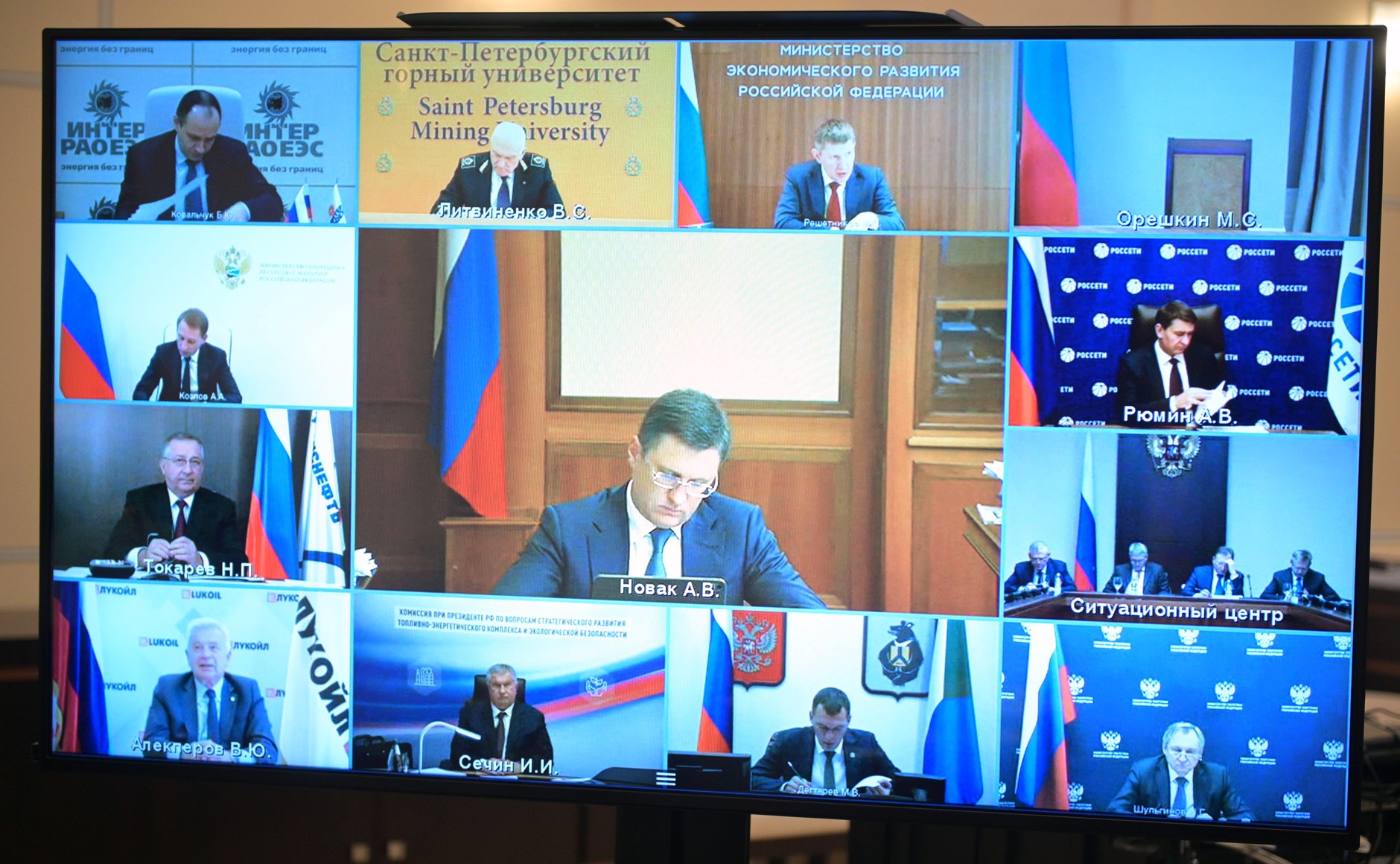 Vladimir Putin: Mr Novak, you have proposed increasing gas supplies to the market and selling more on commodity exchanges in order to cool down speculative demand and overcome the trading frenzy in Europe. This can and should be done, though not on the European spot market, but, as you have said, on the St Petersburg exchanges. Overall, as I have said in my opening remarks, the proposal to switch to an exchange trading system for natural gas came from the European Commission experts under the previous mandate, mostly from British experts. Where are those British experts with their proposals now? We know where they are, but consumers in continental Europe have been left to suffer from these initiatives. We need to discuss exchange trading one more time, and we will. If it can help cool down feverish demand, this can be an option, but of course, this should not be detrimental to us. I am referring to customers buying gas from underground gas storage facilities during the autumn and winter peaks in Russia, as you have said. Overall, exchange trading in gas is not effective since it carries multiple risks, and we have always told them. After all, this is not like trading in watches, underpants or ties, or cars; it is not even like oil, which can be produced and stored anywhere, including in tankers, waiting for the market situation to clear up. Gas is different, since it cannot be stored this way. Even LNG has to be produced, liquefied, loaded into tankers, delivered and then converted back into gaseous state. This is a costly and complex process. It does not work like that. What we are seeing today is the result of their persistent or, to put it bluntly, careless actions, to say the least, with dire consequences for the market. Increasing gas supplies through Ukraine’s gas transport system is possible, but this would generate losses for Gazprom. As I have already said, Gazprom saves about $3 billion per year on its new pipelines because it uses the latest pumping equipment and new pipes, so pressure can be higher, which is impossible for Ukraine’s gas transport system. It has not undergone any upgrades for decades, and any of its pipes can burst at any moment or some other accident may happen. Should this happen, everyone will suffer, including the transit operator and the consumers. For this reason, we need to review opportunities for increasing supply on the market, but we need to exercise caution. I ask you to discuss this with Gazprom and make the necessary calculations. I do agree with you that feverish demand is not what we need, since such turmoil does not promise any good. I remember the discussions within the European Commission, and I have been to Brussels myself. I do not remember, but I think that you were there to. Talking to the so-called experts was not easy, since they tend to take a somewhat snobbish attitude and believe that their opinion is the only right one, and do not want to hear anything else. I hope that this time something will change. At the same time, I fully agree with you that we need to look to the future and, of course, keep an eye on what is going on around the world. <…> Vladimir Putin: Mr Shulginov, regrettably, I need to get back to the gas issues, because there are so many speculations. You see, Gazprom believes that it would be economically more expedient, more profitable for it to pay the fine imposed by Ukraine in order to be able to increase the gas flow volume via the new systems for the reasons I have mentioned: the pressure in the [new] pipe is higher, the CO2 emissions are lower, and the overall costs are lower by around $3 billion per year. But I have asked them not to do this. We must fully comply with the contractual obligations regarding the transit of our gas via Ukraine, through the Ukrainian gas transit system. First of all, nobody, including Ukraine, should be placed in a difficult situation despite all the factors at play in the Russian-Ukrainian relations today. And second, we must not undermine trust in Gazprom as a reliable, absolutely reliable partner in all regards. I would like to ask you as Energy Minister to personally monitor these issues and to see to it that Gazprom complies with all its contractual obligations regarding the transit of Russian gas to Europe across Ukraine. <…> Governor of Yamal-Nenets Autonomous Area Dmitry Artyukhov: Mr President I would like to get back to the gas issue. There is a problem I would like to draw your attention to. As many as 70 percent of Russian gas is being produced in the Nadym-Pur-Taz region. It is the heartland of our gas industry, where everything necessary has been created over the past 50 years, including railways, motorways, power generation facilities and whole cities. We have almost half a million gas industry professionals, many of them professional dynasties, and very strong teams ensuring gas production today. However, it is a fact that easy gas resources – Cenomanian gas – are becoming gradually exhausted, and so an increasing number of new projects we are discussing today are located further north. The phrase “Arctic shelf” already sounds as our next goal. On the other hand, our traditional region, which has all the necessary infrastructure, still has considerable potential for continuing gas production. But the matter concerns difficult gas fields, primarily the Achimov and Jurassic formations. Mr President, I would like to say, by way of example, that the first gas flowed on Yamal in 1962, when the Tazovskoye deposit was discovered. Commercial production began there only three months ago: it took us 50 years from the discovery of the first deposit in the region to commercial production. This difficult field waited 50 years for this to happen. Actually, we have many of such clear but difficult gas fields with trillions of cubic metres in potential output. Of course, a large package of measures should be implemented to start using them, such as regulatory acts, technological solutions and, of course, economic and tax incentives. Another important thing is that difficult gas fields always have, which is a fact, large volumes of gas condensate, WLHF (wide light hydrocarbon fraction) and ethane. This meets, of course, the development goals of the petrochemical and gas industry. In the future these raw materials will be put to good use in Tobolsk and the Volga Region. Mr President, you chaired a meeting here in Yamal in 2009 on the development of the Yamal Peninsula, and a number of key decisions were adopted. Over ten years have passed now since then, and as we look back, we can see that everything has been accomplished, and all the decisions that were made have been fulfilled. The Bovanenkovskoye field has started operating, and the Yamal LNG has also been launched even earlier than planned. To my mind, we are now facing the same important task, and we would like to ask you to issue an instruction on drafting a comprehensive programme for developing Yamal’s hard-to-extract gas deposits. This, of course, would create a lot of demand in the sector, generate huge tax revenue, and support a gas production balance, which is a highly important aspect, as you mentioned at the very beginning. I would like to ask you to issue this instruction on hard-to-extract gas deposits. The oil industry has largely travelled along this road, and it is high time for the gas industry to start moving on. Vladimir Putin: Mr Artyukhov, you have raised a very important matter. Are you talking here about old deposits that are being gradually depleted? Dmitry Artyukhov: I am talking about old deposits and reserve deposits that so far remain untapped. As an example, I would like to mention the Tazovskoye field that remained dormant for 50 years. Vladimir Putin: I see, this is indeed an important matter. Thank you for raising it. The thing is that the Soviet Union developed these deposits decades ago and established the well-known Urengoy-Pomary-Uzhgorod route that reached further into Europe. Just like in Norway and Holland, these deposits are being gradually depleted, and Gazprom is developing new ones further north. The Governor has just mentioned the nearby Nadym-Pur-Tazovsky region. Still this is a different place, and new pipeline systems linking it with the main European consumers are shorter by 2,000 kilometres. Consequently, Gazprom finds it much more profitable to deliver gas via these systems, via the Nord Stream 1 and Nord Stream 2 pipelines. This is more profitable, shorter and therefore cheaper, as far as the supplier, Gazprom, and the end European customer, namely households and industrial consumers, are concerned. But I agree with Mr Artyukhov that we should not forget about deposits that we have been developing for decades, and we should take the necessary action for ensuring more balanced production. We will also note this in today’s decision. <…> 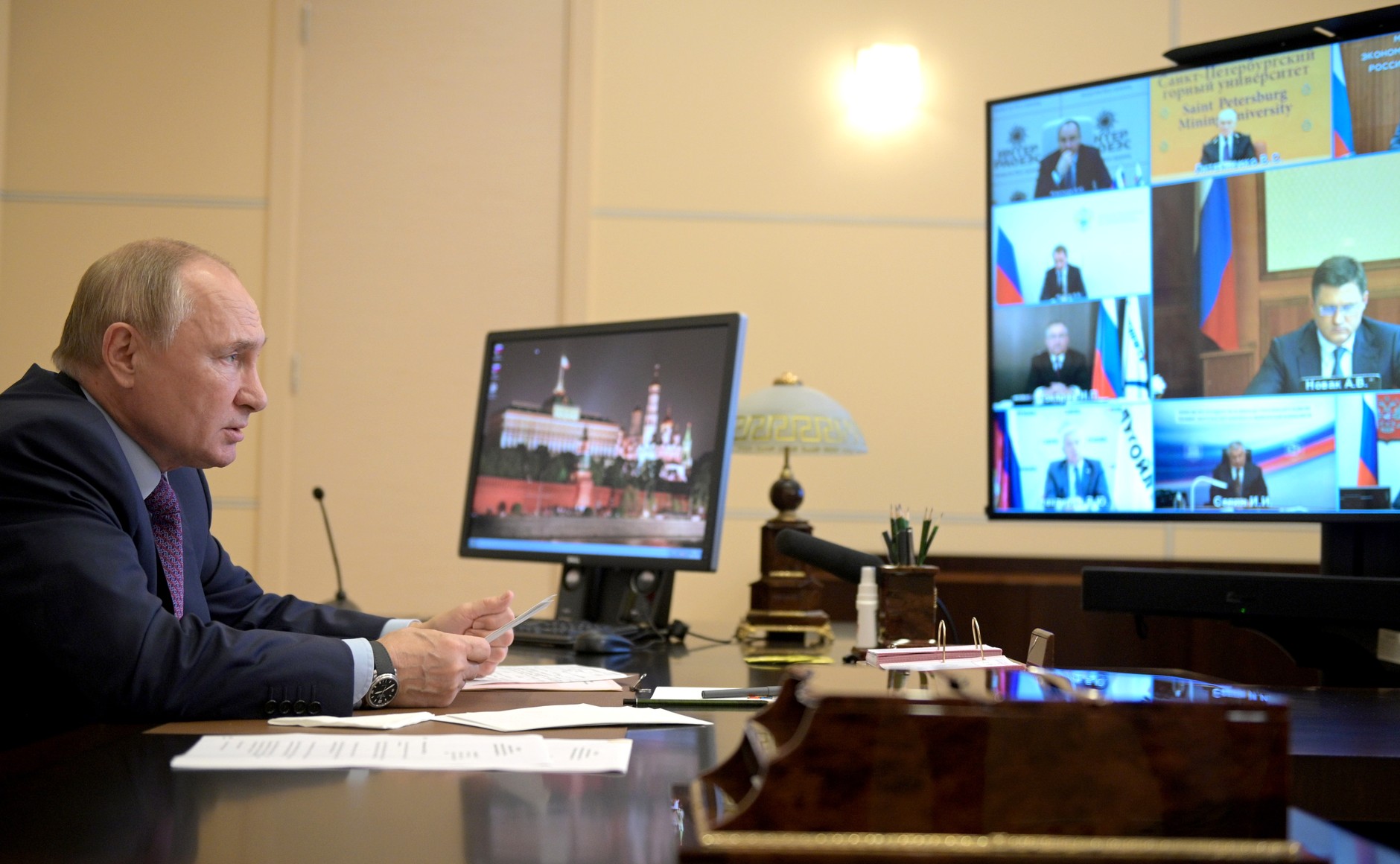 CEO of Inter RAO PJSC Boris Kovalchuk: Mr President, thank you for giving me the floor. Since the Inter RAO Group is a single electricity export/import operator, let me quote some data on what is taking place on the European markets. But let us start with Russia. During the first eight months of this year, the total value of the Russian Federation’s electricity/electric power wholesale market (the whole of our electricity market) has grown by 3.7 percent against the background of the nearly 6-percent inflation. All of this (with plenty to spare) is within the instructions you handed down following the meeting of the Commission for the Fuel and Energy Sector in Kemerovo. Now back to what is happening in Europe. We have taken the markets of the UK, Germany, France, Finland and the Baltic states, where we operate. During the first eight months of 2021, the prices surged by 100 percent on the same period in 2020, and by another 100 percent in September of this year. Right now I have the data from futures trading for tomorrow, and again the price rise amounts to 100–150 percent. As of today, the overall electricity price growth in Europe is practically 1,000 percent. This compares with 4 percent in Russia. In Russia, the total electricity price is about 20 euros per 1 megawatt-hour. Let me quote tomorrow’s prices in Europe: Lithuania – 256 euros; Latvia – 347 euros, Germany – 302.5 euros, France – 298.3 euros, and UK – 320 euros. As we can see, the foreign markets are almost ten times more expensive than the Russian market. All of this conformed to the decisions you approved at the commission meeting in Kemerovo. <…> I would just like to cite a few examples. In Italy, for one, it was decided to raise the consumer electricity prices by 29.8 percent, as of October 1, and the gas prices by 14.4 percent, a thing absolutely impossible in Russia. Spain approved a special emergency law on September 14 limiting the three-month tariff indexation by 4.4 percent. In the Russian Federation, the tariffs grow by 4–5 percent a year and moreover there is an ongoing effort to fight the rise. France has frozen price growth ahead of its [presidential] election, conscious of what this may lead to after Engie’s 13-percent gas price hike. Such are the realities. Owing to your efforts and the Government’s work, the Russian energy industry is ensuring both reliable and competitive electricity production. This is our advantage, especially with account taken of our balance. As for carbon border taxes, we fully support what you have said on ensuring that these approaches are soft and smooth. Here is a curious fact though. Germany is at the forefront of efforts to reduce CO2 emissions. However, what is really happening? The price in Germany is 10 times higher, while coal-fired stations account for 27 percent of the country’s energy mix, compared to 13 percent in Russia. For this reason, it is strange when you fight for carbon neutrality with prices that high and twice the share of coal in the energy mix compared to the Russian Federation. For example, only 3 percent of the 60 GW obtained from renewables, mostly wind, will be available on the German power exchange tomorrow. In fact, a quarter of Germany’s energy system is not working. This is why this is happening. Just for the sake of comparison, look at the pricing in Ukraine. Today prices range between 67 to 70 euros, even though the Ukrainian economy is a far cry from the European Union, and is mostly powered by nuclear stations, and their costs have been already amortised. Still, this is an unbearable price for businesses. Mr President, I will not provide any other example, except this one. In Germany, government agencies produce video clips telling people how to spend winter without lighting or heating, how to put candles into flowerpots to warm up a room, and how to make windows draft-proof with duct tape and cling film. Just a few years ago now, this would have been impossible to imagine, as if the stone age was back. <…> Vladimir Putin: Thank you, Mr Kovalchuk. Yes, you were quite right to ask how they can fight for carbon neutrality, if the share of coal in the energy balance in Europe, and in this case we are talking about Germany, is twice as high as in Russia? Well, it turns out they can. This is what they, I mean the Europeans, are doing and trying to do at someone else’s expense. In this case, they are trying to do this at our expense, at the expense of the Russian Federation. I really do hope that we will be able to launch a dialogue on this subject, taking into consideration the interests of all sides on the global energy market. The source of information - http://en.kremlin.ru/events/president/news/66866
__________________
Where should they dig the Very Deep Pit? Piglet said that the best place would be somewhere where a Heffalump was, just before he fell into it, only about a foot farther on. (c) Alan Alexander Miln |
|
|
#5 |
|
Senior Member
|
Meeting with Communist Party leader Gennady Zyuganov
Vladimir Putin held, via videoconference, a working meeting with Gennady Zyuganov, the leader of the Communist Party of the Russian Federation (KPRF) faction in the State Duma. October 6, 2021 - 19:30 - Novo-Ogaryovo, Moscow Region 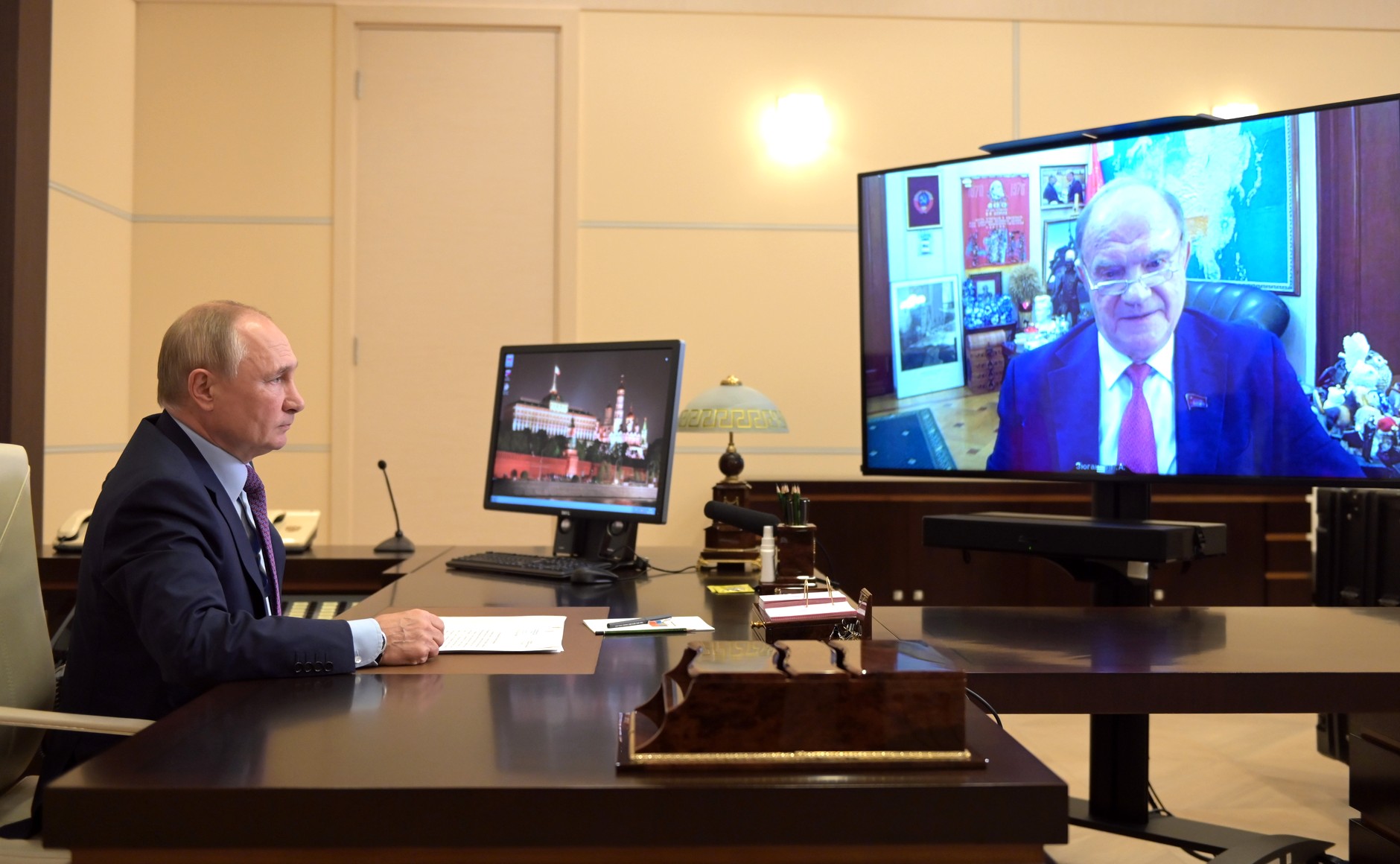 The long term plans for the work of the new State Duma were discussed. The source of information - http://en.kremlin.ru/events/president/news/66869 Greetings to 7th Congress of Association of Russian Student Sports Clubs Vladimir Putin sent greetings to participants at the 7th Congress of the Association of Russian Student Sports Clubs public youth organisation. October 7, 2021 - 09:30 The message reads, in part: “Over the years, the Association has come a long way, filled with outstanding events, and has brought together energetic and enterprising participants from various Russian regions. Most importantly, it has accomplished a lot in order to make physical fitness more accessible and to involve young people in an active and healthy lifestyle. It is important that, apart from sports projects, the Association of Russian Student Sports Clubs focuses on implementing large-scale initiatives that help to educate young men and women using intransient spiritual and moral ideals and in the spirit of patriotism and an active civic position. It also helps unlock their creative potential.” Established in 2013, the Association of Russian Student Sports Clubs ranks among Russia’s largest national youth sports organisations. It consists of 426 student sports clubs from 73 Russian regions. The source of information - http://en.kremlin.ru/events/president/news/66873 Birthday greetings to Vladimir Putin Heads of state and government from foreign countries and leaders of international organisations have been sending Vladimir Putin numerous messages of greetings on his birthday. October 7, 2021 - 12:40 President of Azerbaijan Ilham Aliyev, Prime Minister of Armenia Nikol Pashinyan, President of Belarus Alexander Lukashenko, Prime Minister of the State of Israel Naftali Bennett, President of Kazakhstan Kassym-Jomart Tokayev and First President of Kazakhstan Nursultan Nazarbayev, President of Kyrgyzstan Sadyr Japarov, President of Tajikistan Emomali Rahmon, President of Turkey Recep Tayyip Erdogan, President of Turkmenistan Gurbanguly Berdimuhamedov, President of Uzbekistan Shavkat Mirziyoyev and Prime Minister of Japan Fumio Kishida personally greeted the Russian President on the occasion of his birthday by telephone. During the conversations, the leaders touched upon possibilities to expand bilateral relations, as well as current international topics. The source of information - http://en.kremlin.ru/events/president/news/66874 Meeting with permanent members of Security Council Vladimir Putin held a meeting on current issues with permanent members of the Security Council, via videoconference. October 7, 2021 - 14:45 - Novo-Ogaryovo, Moscow Region Taking part in the meeting were Prime Minister Mikhail Mishustin, Federation Council Speaker Valentina Matviyenko, State Duma Speaker Vyacheslav Volodin, Deputy Secretary of the Security Council Dmitry Medvedev, Chief of Staff of the Presidential Executive Office Anton Vaino, Secretary of the Security Council Nikolai Patrushev, Interior Minister Vladimir Kolokoltsev, Foreign Minister Sergei Lavrov, Director of the Federal Security Service Alexander Bortnikov, Defence Minister Sergei Shoigu, Director of the Foreign Intelligence Service Sergei Naryshkin and Special Presidential Representative for Environmental Protection, Ecology and Transport Sergei Ivanov.  President of Russia Vladimir Putin: Colleagues, good afternoon. Today, we will discuss ways to ensure Russia’s internal stability and security. The Interior Minister will make a keynote presentation. I suggest that we get down to work right away. Mr Kolokoltsev, go ahead please. The source of information - http://en.kremlin.ru/events/president/news/66872 Telephone conversation with President of Cuba Miguel Diaz-Canel Bermudez Vladimir Putin had a telephone conversation with President of the Republic of Cuba Miguel Diaz-Canel Bermudez. October 7, 2021 - 17:15 The Cuban leader wished Vladimir Putin a happy birthday. The parties reaffirmed their commitment to further strengthening the Russian-Cuban strategic partnership. President of the International Olympic Committee Thomas Bach and former Prime Minister of the Italian Republic Silvio Berlusconi, the head of the Forza Italia (Forward, Italy) party, also extended birthday greetings to the President of Russia over the telephone. The source of information - http://en.kremlin.ru/events/president/news/66875 Greetings to organisers and participants of 11th International Demidov Assembly President of Russia Vladimir Putin sent greetings to the organisers and participants of the 11th International Demidov Assembly. October 8, 2021 - 10:00 The message reads, in part: “The current Assembly is taking place in Nizhny Tagil, a major centre linked with the history of a highly famous clan of Russian entrepreneurs who made a tremendous contribution to developing the Ural region’s industry and its cities. The Assembly events are dedicated to preserving, studying and popularising the famed dynasty’s immensely rich legacy. These matters will be the subject of an in-depth and all-round discussion involving scientists and experts from various countries at a scientific conference titled Demidov Museums and Collections. Indicatively, we are now also marking the 180th anniversary of the first exhibition at the Ural Ore Mining and Metallurgical Museum-Reserve in 1841. At that time, outstanding industrialist Pavel Demidov opened the regional Museum that now ranks among Russia’s oldest. Its collections include over 450,000 highly valuable artefacts dating from the 17th, 18th, 19th and 20th centuries, such as rare archive documents, models of industrial objects and works of art. Truly selfless people, utterly loyal to their cause, have always worked here, and they continue to work at the Museum today. They painstakingly preserve the memory and origins of the Ural region’s civilisation comprising ore mining and metallurgical factories, the assertion of national metallurgy and, of course, the destinies and outstanding achievements of many generations of the Demidov family.” The source of information - http://en.kremlin.ru/events/president/news/66880 Meeting with Deputy Prime Minister Marat Khusnullin Vladimir Putin had a working meeting with Deputy Prime Minister Marat Khusnullin, who reported on housing and road construction. October 8, 2021 - 14:05 - The Kremlin, Moscow 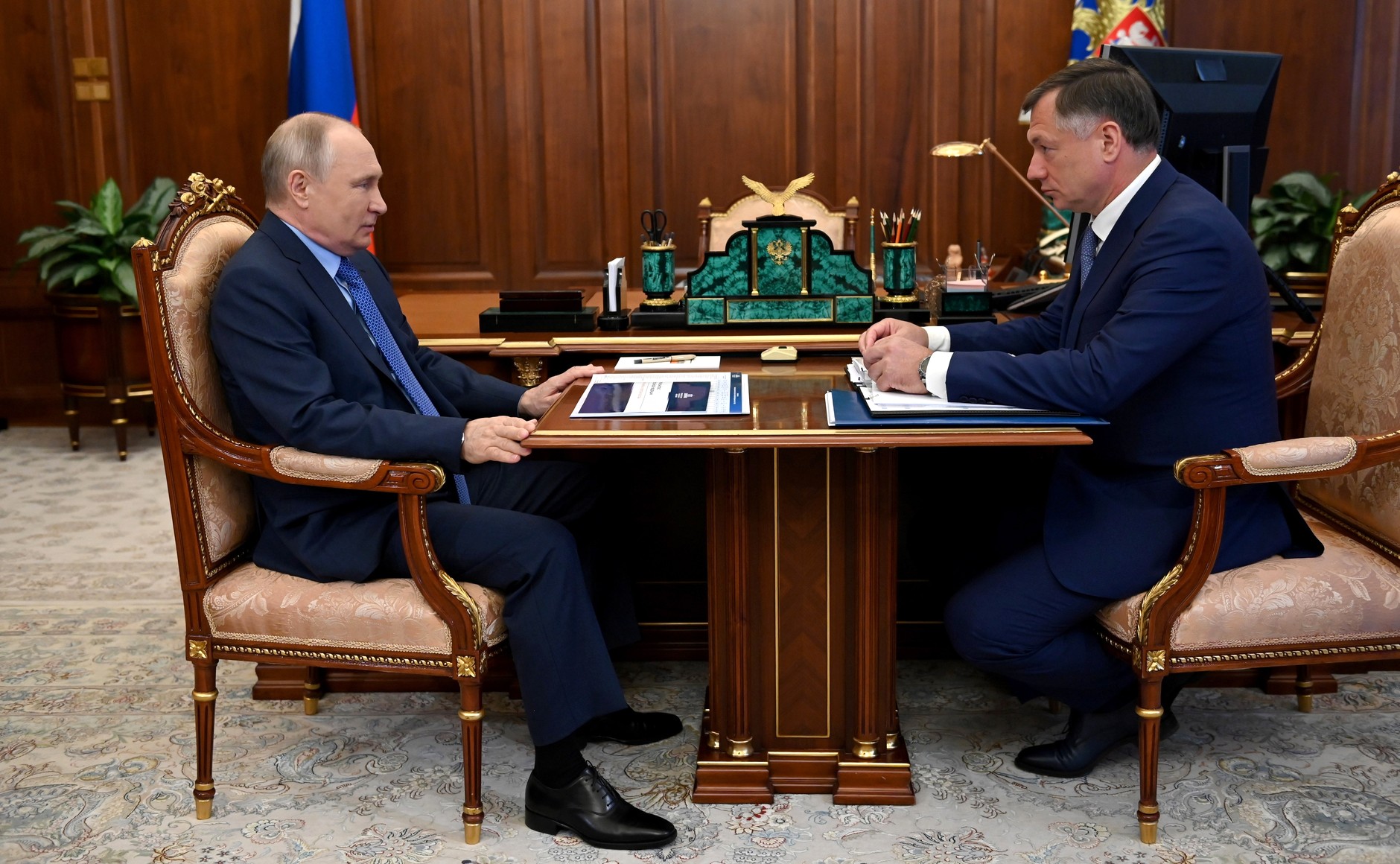 President of Russia Vladimir Putin: Mr Khusnullin, I know that you want to discuss the construction sector and road construction, but I would like to ask you to begin with housing. I know that there has been some positive momentum there, as you reported to me not so long ago. Go ahead, please. Deputy Prime Minister Marat Khusnullin: Thank you, Mr President. Your Executive Order on achieving the goals set forth in the national project, to increase new housing to 120 million square metres, improve living conditions for five million families every year and achieve a 1.5-fold improvement in amenities, guides our efforts. To deliver on this target, we have created timetables, coordinated them with all regions and we are following these schedules. Let me show you these charts. Mr President, we can say in all confidence that this year we will achieve the best results in Russia’s contemporary history. This is attributable to the indicators you approved and the decisions you made, primarily, on mortgages, cutting red tape, and I will speak about this in a moment, as well as the system-wide project efforts by the Government jointly with the Presidential Executive Office in the regions. On mortgage lending, first, I would like to thank you for extending the corresponding programme. Vladimir Putin: You believe that we will exceed 85 million square metres, don’t you? Marat Khusnullin: Mr President, I am certain we will, unless something unexpected happens, and we hope that this will not be the case. Otherwise, I am positive that we will go beyond 85 million. We see the potential, Mr President, and now we want to go even further and set 90 million square metres as a target for next year. This is an extremely challenging objective, but we are discussing it with the governors in order to be able to reach it. The fact that we have been supporting families with children is essential, Mr President. Thank you very much for that. This is what matters the most, and really helps people out there. On this slide, you can see the most important development: the number of construction permits almost doubled compared to last year. This means that construction is actually gaining momentum, and people believe in this sector. Comprehensive territorial development has been quite good, and a law was adopted to this effect last year, quite a challenging law by the way. Thank you for supporting it. Projects are underway in four regions. All in all, 478 projects will give us 106 million square metres in various settlements. This effort will reshape entire cities and neighbourhoods, and we are committed to carrying this momentum forward. We intend to keep working along these lines on housing construction for the next three years, and to expand our operations from year to year. We are working with the governors to make this possible. I would like to say a few words about road construction. To begin with, I would like to thank you for making a number of important decisions during the pandemic last year to proactively allocate money for development. Vladimir Putin: That was your proposal, and so was the one concerning the human resources involved in road construction. I remember how we discussed that working in the open air was better than staying in a hostel. Marat Khusnullin: Mr President, thanks to this decision, we exceeded the annual plan by 12 percent last year, and we are progressing ahead of schedule. We actually opened more federal roads last year than ever before. This year, to maintain the trend, we are again going to show an increase of 6 percent – even against last year’s record – in the physical volume of asphalt paving, and 10 percent in terms of the funding spent. Vladimir Putin: Are you saying you spend more money than asphalt? 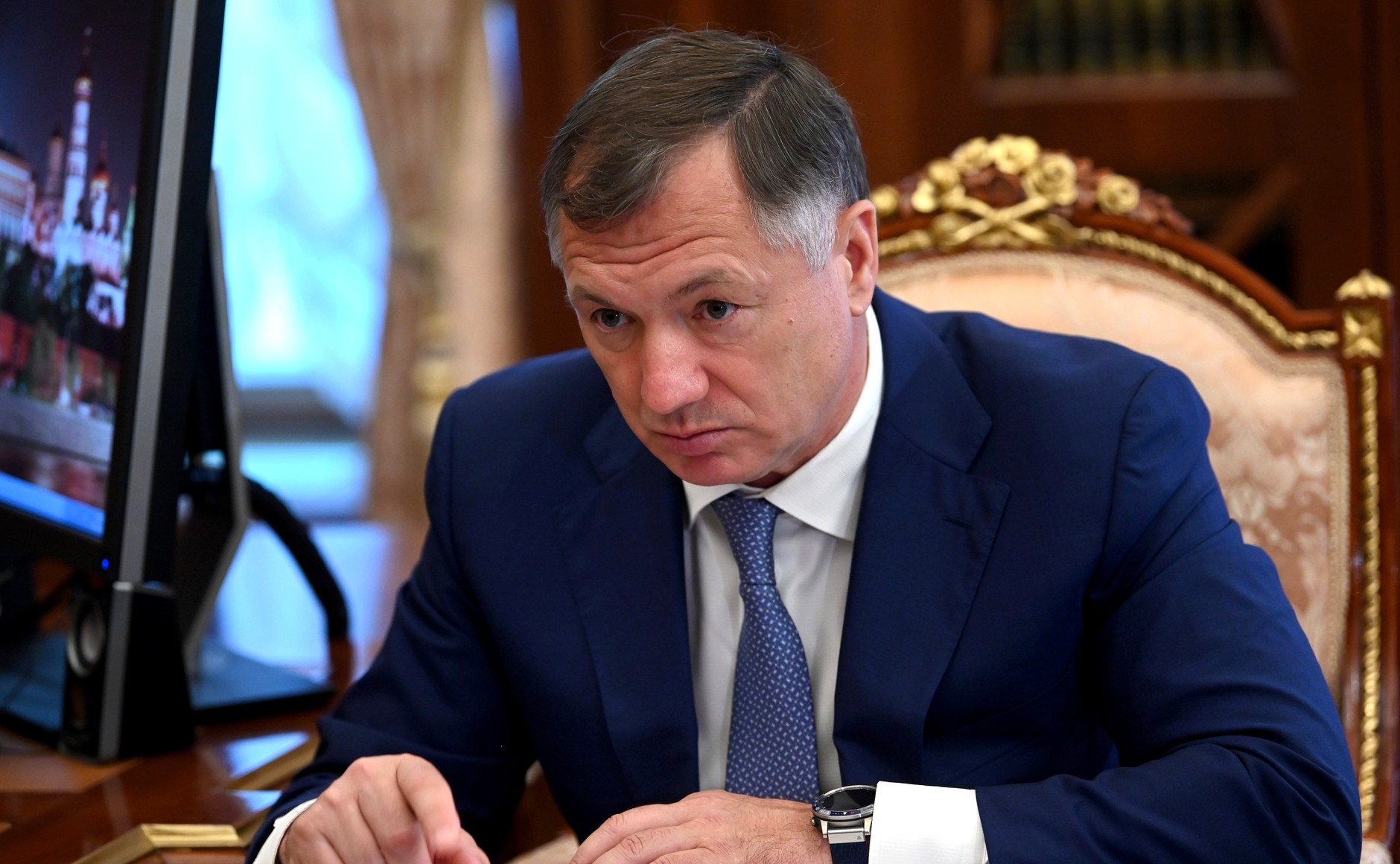 Marat Khusnullin: We make advance payments so that we can buy materials in time. We have no doubt that we will exceed our plans this year. We are also 100 billion ahead, that is, we have shifted the money “to the left.” And thank you very much for the proposal at the party congress in June to allocate another 30 billion for the repair of motorways – that is additional money for the regions. Vladimir Putin: This is not too much where road construction is concerned, you just need to spend it wisely and look at each region. We have more than 500,000 kilometres of regional roads, and only 60,000 federal roads, compare that to 500,000, and then there are more than 900,000 local roads, almost a million. If I remember correctly, we had plans to improve more local roads than even regional ones; we were planning about 85. Marat Khusnullin: We planned to improve 85 percent of roads in all extended urban areas and around them, and we will meet this target. With regional and municipal roads, we plan to improve more than 50 percent by 2024, and in general, the overall network, the backbone road network we have been working on, the main roads of our country – we plan to bring 85 percent up to standard by 2024. This is a very ambitious plan, and we are working on it. Can I go on? Vladimir Putin: Yes, please. Marat Khusnullin: We have achieved a good road safety level. We have reduced mortality under the Safe and High-Quality Roads National Project. Vladimir Putin: We need to continue this work together with the police and road workers. We should not be losing as many people to road accidents as during military operations. What I see is a comprehensive effort, and the Interior Ministry is working better and better, and so are the road workers. These are comprehensive efforts, and we must also develop medical aviation to be able to help people in the first hour after an accident. We need to work in all areas, on all dimensions. Marat Khusnullin: Mr President, we are working on this at the road safety commission, and we are doing very well. The first results are fairly good. We are achieving a steady decline, even though traffic has increased this year – last year, there were restrictions during the first six months. Vladimir Putin: It is imperative to help the regions build crossings – both overhead and underground crossings. This should be done systematically. Marat Khusnullin: Yes, Mr President. We will do this, we will continue. Vladimir Putin: I ask you to continue working on this, of course. Marat Khusnullin: This year we have made a breakthrough in the sphere of legal regulation. I have updated you about this several times. You have issued many instructions and signed several laws, or more precisely 10 federal laws, which stipulate 60 important amendments aimed at reducing the investment and construction cycle in the industry by 30 percent. Vladimir Putin: Very good. Marat Khusnullin: I will explain what this includes a bit later. In addition, the Government has adopted 136 regulations. This means that we will be able to carry on with this job very stringently. In the past, we had regulations for 96 construction procedures in the sphere of housing construction alone. Thanks to the recent changes, the number has been reduced to 32. In addition to those 96 procedures, we also had up to a hundred various approvals. Thanks to the decisions we have made, the number of approvals has been cut to 50, which will reduce the timeframe by 30 percent overall. This brings me to the main question and request to you, Mr President. We would like you to instruct the Government, the Government Executive Office and the heads of the regions to adjust their regulations accordingly. We have accomplished a great deal together with the Federation Council and the State Duma in manual mode. Now we need to finalise and implement these regulations. This will allow us to reduce the timeframe by 30 percent and save 1.5–2 trillion rubles by doing this quicker – this is our main breakthrough instrument, and we have learned to use it quite well. 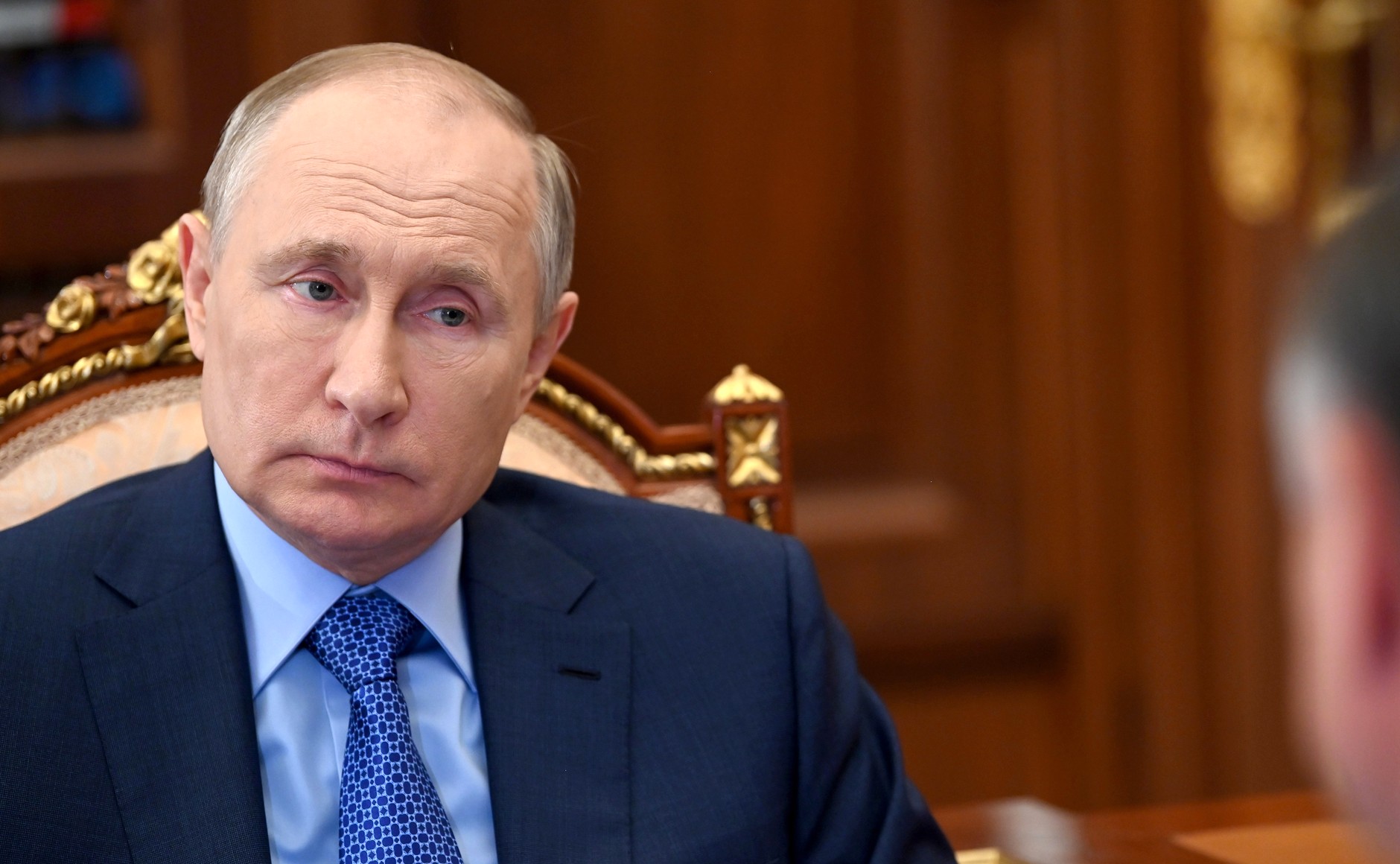 Vladimir Putin: If we get all of this together and move forward, we will achieve our objective of 120 million square metres. Marat Khusnullin: Exactly, Mr President. We have also greatly improved the transfer of communication lines and the connection of customers by simplifying and reducing the cost of this process. We have adjusted a complicated law on airport environs, which is especially important for Moscow Region and cities with million-plus populations. We have found a compromise solution. Vladimir Putin: It should also be remembered that excessive regulations hamper effective work. Marat Khusnullin: Mr President, since September 1, we have officially cancelled 3,800 standards. Overall, over the past two years, the status of 6,800 out of 10,500 standards has been changed from obligatory to advisable. We have corrected many imbalances and opened the doors to new technologies. Vladimir Putin: Mr Khusnullin, one of the main issues concerns, of course, construction economics. As you are aware, several construction companies have appealed to me, and I have issued relevant instructions to the Government. I am sure that you are also dealing with these matters. Marat Khusnullin: Mr President, we are dealing with these matters very seriously. We have divided the construction economics into component parts, analysing what should be done about human resources and the increase in the cost of materials. Vladimir Putin: Good. The source of information - http://en.kremlin.ru/events/president/news/66879 Greetings on opening of 16th All-Russian Science Festival NAUKA 0+ Vladimir Putin sent greetings to the participants, organisers and guests of the 16th All-Russian Science Festival NAUKA 0+. October 8, 2021 - 16:30 The message reads, in part: “I would like to note that this festival is a special one, since 2021 has been announced the Year of Science and Technology in Russia. By bringing to its venues an impressive number of participants – prominent scientists, teachers, experts, university and school students – the forum is carrying out an important educational mission: it is making a significant contribution to popularising scientific knowledge and encouraging young people to take an interest in fundamental and applied research. Today, our country’s competitiveness, the effective development of its economy and social sphere are largely dependent on the wide-scale introduction of breakthrough technologies and science-intensive production facilities. It is necessary to support in every possible way the promising schools of scientific, engineering and technological thought, to strengthen the personnel potential of advanced research centres, design bureaus and design institutes, to be more active in recruiting young and talented scientists and inventors, and to set the stage for their creative self-fulfillment.” The source of information - http://en.kremlin.ru/events/president/news/66883
__________________
Where should they dig the Very Deep Pit? Piglet said that the best place would be somewhere where a Heffalump was, just before he fell into it, only about a foot farther on. (c) Alan Alexander Miln |
|
|
#6 |
|
Senior Member
|
Congratulations on Agriculture and Processing Industry Workers’ Day
October 10, 2021 - 09:00 President of Russia Vladimir Putin: Friends, I would like to heartily congratulate you on your professional holiday, Agriculture and Processing Industry Workers’ Day. The Russian agricultural sector is experiencing exceptional growth. Today it is one of the flagships of our economy. Who would have thought that possible several years ago? And for these successes credit belongs to you first. Your work and its results carry great significance for our country, for each household and family. Due to your conscientious and tireless work over the past few years, we have reached high crop yields – both grain and other crops – and are maintaining this trend, which is again confirmed by the very good results we are seeing now. You have reached them despite such a difficult and dry summer, in addition to confronting a complicated epidemiological situation. We are witnessing the same positive trend in animal husbandry, as we watch the volume of meat and dairy products grow each year. Viniculture, horticulture and the production of organic foods are showing prospects for rapid growth. The agro-industrial sector, while remaining true to Russia’s best traditions, is actively putting into practice advanced technologies. Its production is competitive both on domestic and foreign markets; in fact, the share of highly-processed products for export is growing.  Agritourism is becoming more popular among Russians, especially families with children. This provides additional impetus and resources for the development of small farms and agricultural enterprises. Small businesses have huge potential and we will wholeheartedly support this important sector and do everything in our power to make it even more successful and rural life more comfortable, innovative and trouble-free. Thus, as of the beginning of last year, mortgages for rural homebuyers have been offered at annual interest rates as low as 3 percent. Since its launch, over 90,000 families have relocated using, in part, this loan. This year, an entire range of major projects aimed at improving the social sphere and the wellbeing of our citizens was launched. They relate to the modernisation of primary healthcare services and a comprehensive programme to overhaul school buildings, as well as connect houses and facilities to the natural gas network. All of these programmes are focused on rural areas, small towns, and villages. The creation of decent and attractive living conditions in rural areas is one of the key priorities of state policy. Russia and her people are proud of the achievements that all our agriculture and processing industry workers have accomplished. Thank you very much for your honest work, your reliability and your devotion. Congratulations on your holiday! I wish you and your families health and wellbeing, and all the best. The source of information - http://en.kremlin.ru/events/president/news/66887 Greetings to PhosAgro staff Vladimir Putin congratulated the staff of one of the world’s biggest phosphate-based fertiliser producers, PhosAgro, on the company’s 20th anniversary. October 10, 2021 - 10:00 The President’s message reads, in part: “Throughout the past years your company has shown confident growth, consistently increasing output and making a hefty contribution to the country’s food security. I believe that such impressive results come from well-coordinated and highly professional efforts by the several thousand-strong staff of the holding’s enterprises and efficient managerial solutions. I would certainly like to note your focus on creating high-end jobs, introducing innovative environmentally-friendly technologies and implementing socially significant initiatives in healthcare, sport, youth policy and large-scale charity projects.” The source of information - http://en.kremlin.ru/events/president/news/66886 Greetings on the opening of international drills for quick response teams handling sanitary and epidemiological emergencies Vladimir Putin sent greetings to participants in international drills for quick response teams handling sanitary and epidemiological emergencies by using mobile labs, held in Kazan on October 11–15. October 11, 2021 - 10:00 The message reads, in part: “Welcome to the international drills for quick response teams, the first large-scale event of this kind held in Eurasia. “It has become clear in the past years how relevant and necessary it is for sanitary and epidemiological services to be fully prepared to prevent the threat of dangerous infectious diseases. Obviously, international cooperation is essential for solving this problem successfully, as it has been confirmed by our experience in countering the coronavirus pandemic. It is necessary not only to agree on strategic approaches but also, and this is equally important, to hone practical cooperation in order to promptly detect and eliminate outbreaks that may cause a pandemic. “It is important that these drills are an opportunity for specialists from twenty countries to share professional practices and test mobile labs and specialised equipment for various purposes as well as determine best algorithms for responding to sanitary and epidemiological emergencies. “I am confident that the event with such extensive representation will contribute to strengthening international cooperation in this important field and the skills acquired during this exercise will help successfully protect public health in our countries.” The source of information - http://en.kremlin.ru/events/president/news/66892 Greetings on the opening of the High-Level Commemorative Meeting of the Non-Aligned Movement Vladimir Putin sent greetings to the participants and guests of the High-Level Commemorative Meeting to mark the 60th anniversary of the First Conference of Non-Aligned Countries. October 11, 2021 - 10:30 The message reads, in part: “The Non-Aligned Movement plays a very significant role in international affairs, consistently upholds the principles of unconditional equality of all nations, respect for their sovereignty and legitimate interests. It supports a constructive multilateral dialogue in strict accordance with the spirit and letter of the UN Charter. Today, with the global situation growing more and more turbulent as humanity confronts a growing number of threats and challenges, the positive potential of the Non-Aligned Movement is especially important. This influential and respected organisation is actively involved in resolving crises and makes a significant contribution to collective efforts to build a more democratic and stable world order, and to strengthen trust and mutual understanding between members of the international community. Russia has been recently granted observer status with the Non-Aligned Movement. This, undoubtedly, creates new opportunities for interaction in addressing current issues on the regional and global agenda, to ensure security and sustainable development worldwide.” The source of information - http://en.kremlin.ru/events/president/news/66891 Meeting on science and technology support for agriculture development The President chaired a meeting on science and technology support for the development of agriculture held via videoconference. October 11, 2021 - 16:00 - Novo-Ogaryovo, Moscow Region The meeting was attended by Deputy Prime Ministers Viktoria Abramchenko and Dmitry Chernyshenko, Presidential Aide Andrei Fursenko, Minister of Industry and Trade Denis Manturov, Minister of Agriculture Dmitry Patrushev, Minister of Finance Anton Siluanov, Minister of Science and Higher Education Valery Falkov, Head of the Federal Service for Veterinary and Phytosanitary Supervision (Rosselkhoznadzor) Sergei Dankvert, the heads of the State Council commissions on agriculture, on communications, telecommunications and the digital economy, and on the economy and finance, the heads of regions, as well as representatives of academic institutions in the agricultural sector and the Rusagro group of companies. 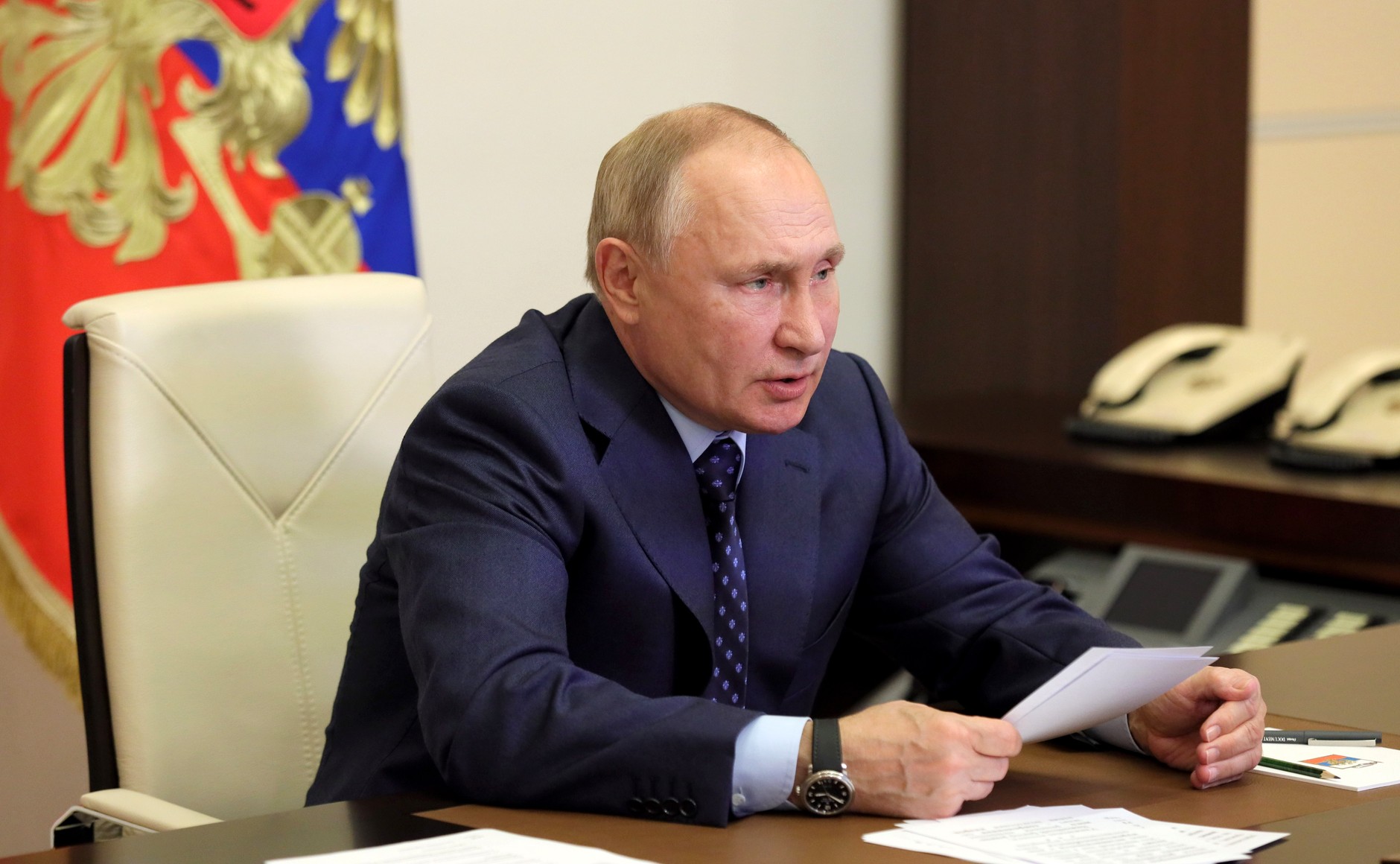 President of Russia Vladimir Putin: Colleagues, good afternoon. Today we will discuss matters related to building up the scientific and technical potential of national agriculture, and its adaptation to systemic challenges, including climate change. Before we begin, I would like to once again wish all the best on Agriculture and Processing Industry Workers' Day, which we marked yesterday, October 10, to everyone who works in this industry: researchers, agronomists, farmers, workers, machine operators, livestock specialists – everyone. Largely thanks to your dedicated work, my friends, we have seen a good harvest even in this year’s difficult weather conditions. It will meet Russia’s demand for all major food groups. Those high performance indicators are certainly the result of systemic changes in national agriculture. It has become very up to date, relying on advanced technologies and innovations. To achieve this, we have done a lot together. We have directed significant federal and regional resources to the development of agriculture, combining the capabilities of the state, businesses and our research organisations, which is fundamentally important. Five years ago, we decided to launch the Federal Scientific and Technical Programme for the Development of Agriculture to promote the use of the most recent Russian agritech projects in our national agriculture. But advanced scientific knowledge and breakthroughs in agriculture or in any other sphere for that matter are, of course, not meaningful in and of themselves. It is critically important for these results to promote the well-being and good health of our people, the quality of life in rural communities, and the creation of new jobs. Of course, they should be geared towards our common national development goals that we must achieve in this decade. In this regard, I believe the right thing to do would be to extend the scientific and technical programme to 2030 and to ensure the uninterrupted allocation of funds for the development of innovative technologies that must be immediately used in the agricultural sector. When creating or implementing advanced solutions, it is imperative to be mindful of the need to adapt agriculture to climate change. We keep talking about it, and this is exactly what we should be doing, in fact. Of course, we must focus on the rational use of natural resources, environmental protection and carbon footprint reduction. I mentioned quite recently at a meeting on energy that this should be done in line with global trends, but, at the same time, we must be aware of what is happening in our country, what our competitive advantages are, and at what pace and in what manner we should be working in order to achieve our goals. This approach must be used in all areas of the economy, research and technology. 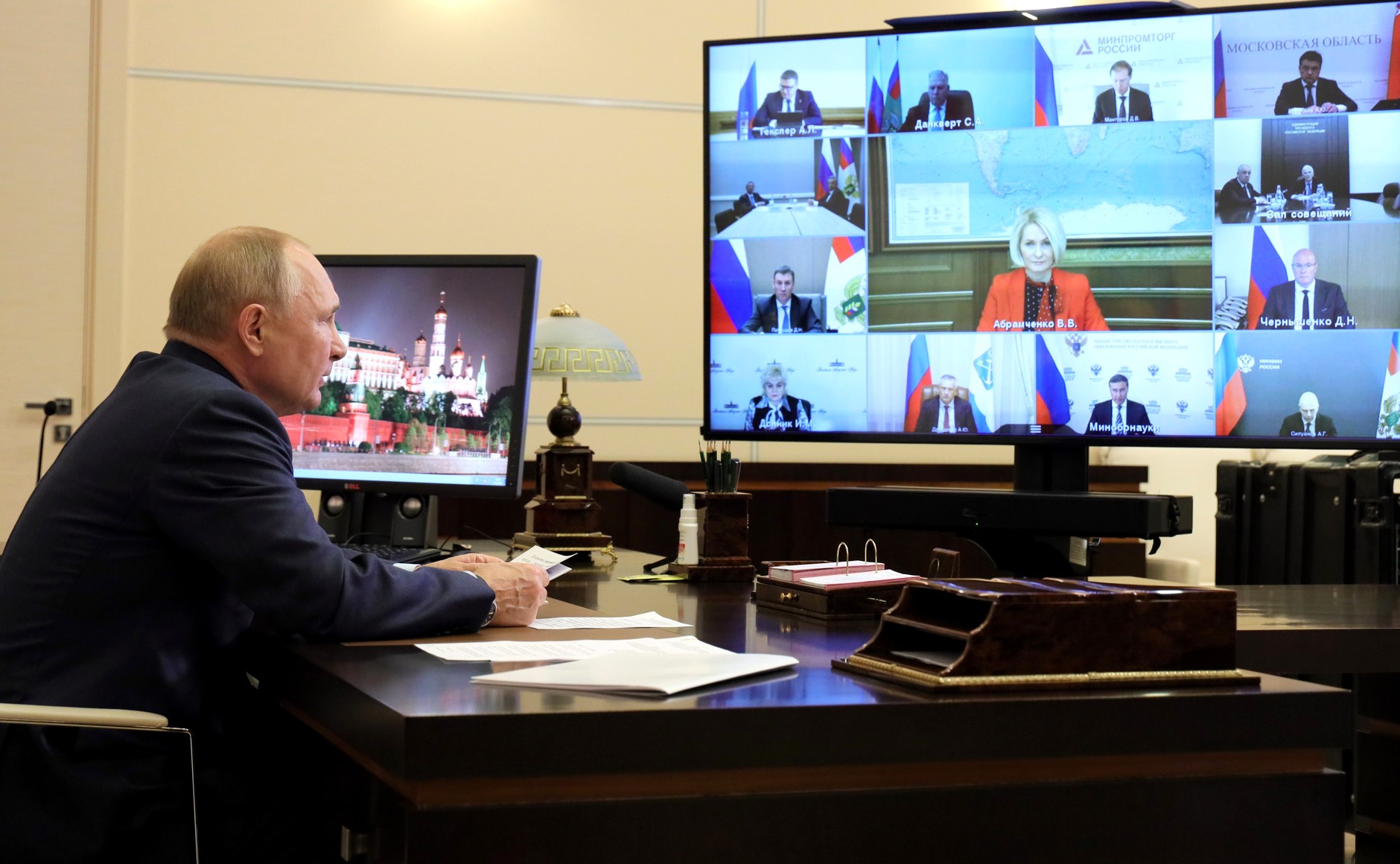 Colleagues, Concentrating financial and scientific resources and the production potential of agribusiness, as well as making clear plans for the implementation of the projects will help us effectively overcome the biggest challenges in ensuring food security and increasing the production of organic food. Our producers are well positioned to saturate the domestic market and to take the leading positions internationally. In fact, this is already happening in a number of areas. The issue is not about food exports alone. We need to energetically promote our advanced agricultural technologies to global markets. Notably, working under the scientific and technical programme, we have developed new varieties of the most important agricultural crops, come up with comprehensive technological solutions, and accomplished a lot in order to provide farmers with at least 75 percent of the domestic seeds within the next decade. We must make this goal as specific as possible and enshrine in the Food Security Doctrine the level of seed self-sufficiency we must reach in 5, 7 and 10 years. It should be broken down by specific agricultural crops, primarily strategic, key crops that form the basis of our food market, which is, of course, wheat and other grains. We need to rely on the same approach to ensure that Russia’s livestock breeding sector can find the pedigree stock it needs domestically. For example, it is thanks to the achievements by the Russian stock-breeders that a Russian heavy chicken breed was developed. This chicken is as good as, and could be even better, than similar foreign products. This is a major step in making Russia’s entire agro-industrial complex more independent and competitive. Colleagues, An updated personnel training system is essential for delivering on these objectives. This can be said about any sector, and agriculture is not an exception. This work must keep pace with the deep-running technological transformation that is changing the agrarian sector around the world. Agriculture is becoming a high-technology industry in the full sense of the word. Many processes have been largely automated, and the use of digital solutions, mathematical modelling, artificial intelligence and big data are growing. Interdisciplinary specialties like bioinformatics, biophysics and biochemistry continue to be developed. This means that in the agrarian sector new knowledge and solutions are born at the confluence of various sciences. As a matter of fact, similar processes are unfolding in all areas of knowledge, and agriculture is one of them. Colleagues, it is along these lines that I would like to hear your proposals on upgrading education programmes for the agricultural sector, training researchers and faculty for agriculture universities, including by stepping up their collaboration with other education and research institutions, as well as companies working in the real economy. This includes updating agriculture education to enable young people to acquire the most advanced knowledge and to master professions that will be competitive on the labour market, as well as contribute to research projects and other undertakings, build careers in agriculture, and use breakthrough technology. Let me reiterate that in the long run the effectiveness of our efforts hinges on how we train specialists for the agrarian sector. I think everyone understands this, so let’s discuss these matters today. <…> 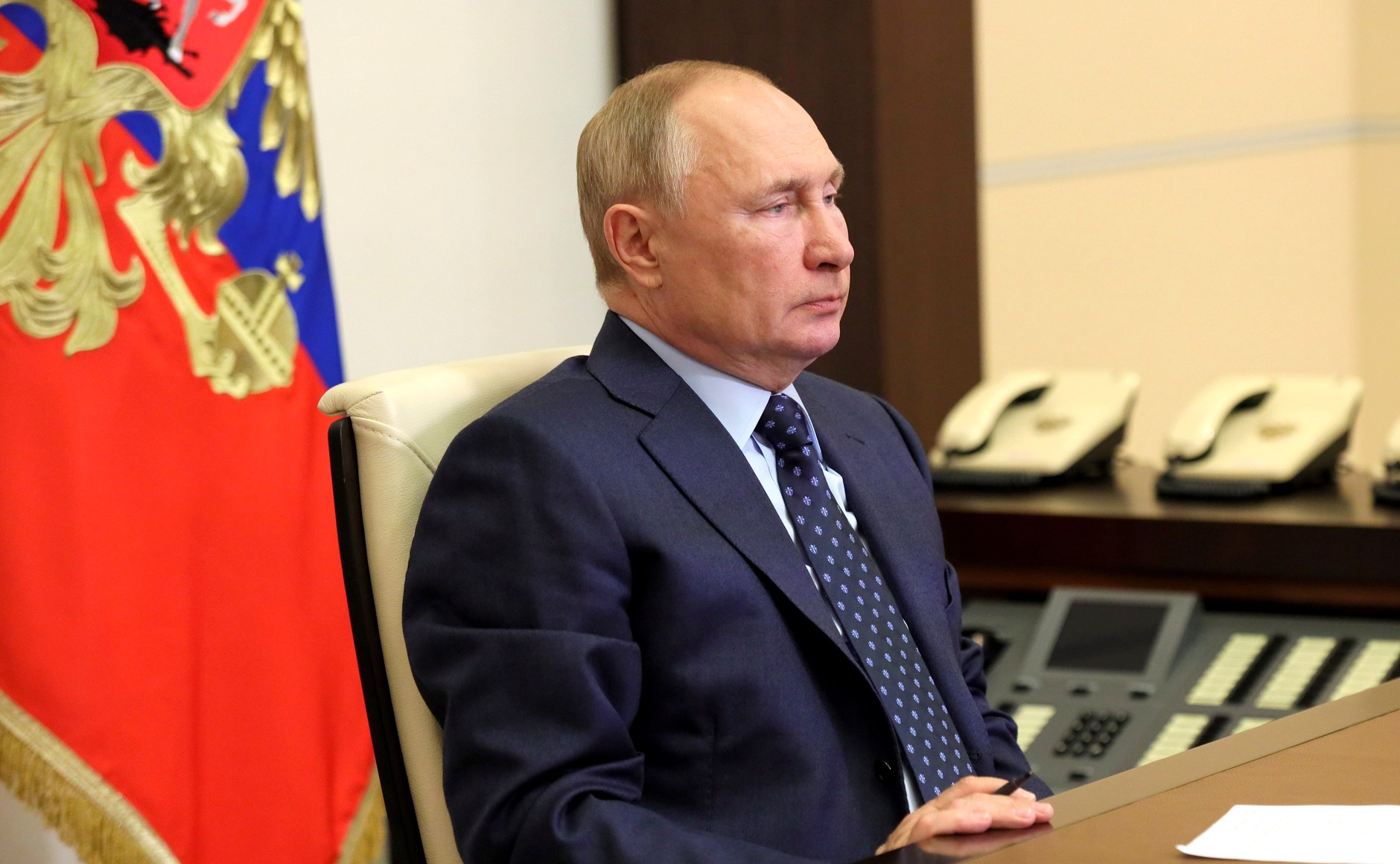 Vladimir Putin: I want to thank everybody. We have extended this programme, as agreed, through 2030. It is necessary, as was mentioned earlier today and as is also specified in the documents that were drafted in advance, to consider some issues in the context of how the situation in agriculture is evolving around the world and in our country. We have to address as many issues as other countries do, probably more, because we have let some things go unheeded. Of course, we need to take measures to provide more incentives that will encourage the use of what we have developed inside the country. It is quite obvious that this requires proper information support and funding, as well as amendments to relevant regulatory acts to make this extension of the programme through 2030 effective and focused on the main lines of development. We need to allocate the required funding. It is provided for in the programme, so this should never be overlooked when drafting a budget. This applies to a huge range of activities. We need to make a list of key crops and determine the level of self-sufficiency in Russian selection seeds in each case; and to make a list of the main agricultural breeds and evaluate the level of self-sufficiency in livestock breeding. We need to analyse and identify the necessary popular interdisciplinary areas of research of which I talked in my opening remarks. The importance of all this is evident to all the participants in today’s meeting. Of course, a package of measures needs to be drawn up to facilitate cooperation between agricultural businesses of different sizes; in this case, I would not give preference to our large farms over smaller ones. Farmers should be consulted with on the different lines of their businesses to find out what they need. Regarding personnel training, it is important to listen to our leading research and educational institutions and introduce appropriate changes to supply the sector with top-notch specialists up to world standards. Our agricultural sector has shown that to continue growing it requires attention like this from the government. I want to wish every success to all those present today and ask that the required list of instructions be prepared. Thank you very much. All the best to you. The source of information - http://en.kremlin.ru/events/president/news/66894 Meeting with permanent members of the Security Council Vladimir Putin held a meeting on current issues with the permanent members of the Security Council via videoconference. October 11, 2021 - 16:40 - Novo-Ogaryovo, Moscow Region The meeting was attended by Prime Minister Mikhail Mishustin, Federation Council Speaker Valentina Matviyenko, State Duma Speaker Vyacheslav Volodin, Security Council Deputy Chairman Dmitry Medvedev, Chief of Staff of the Presidential Executive Office Anton Vaino, Security Council Secretary Nikolai Patrushev, Minister of the Interior Vladimir Kolokoltsev, Defence Minister Sergei Shoigu, Director of the Federal Security Service Alexander Bortnikov, and Special Presidential Representative for Environmental Protection, Ecology and Transport Sergei Ivanov. 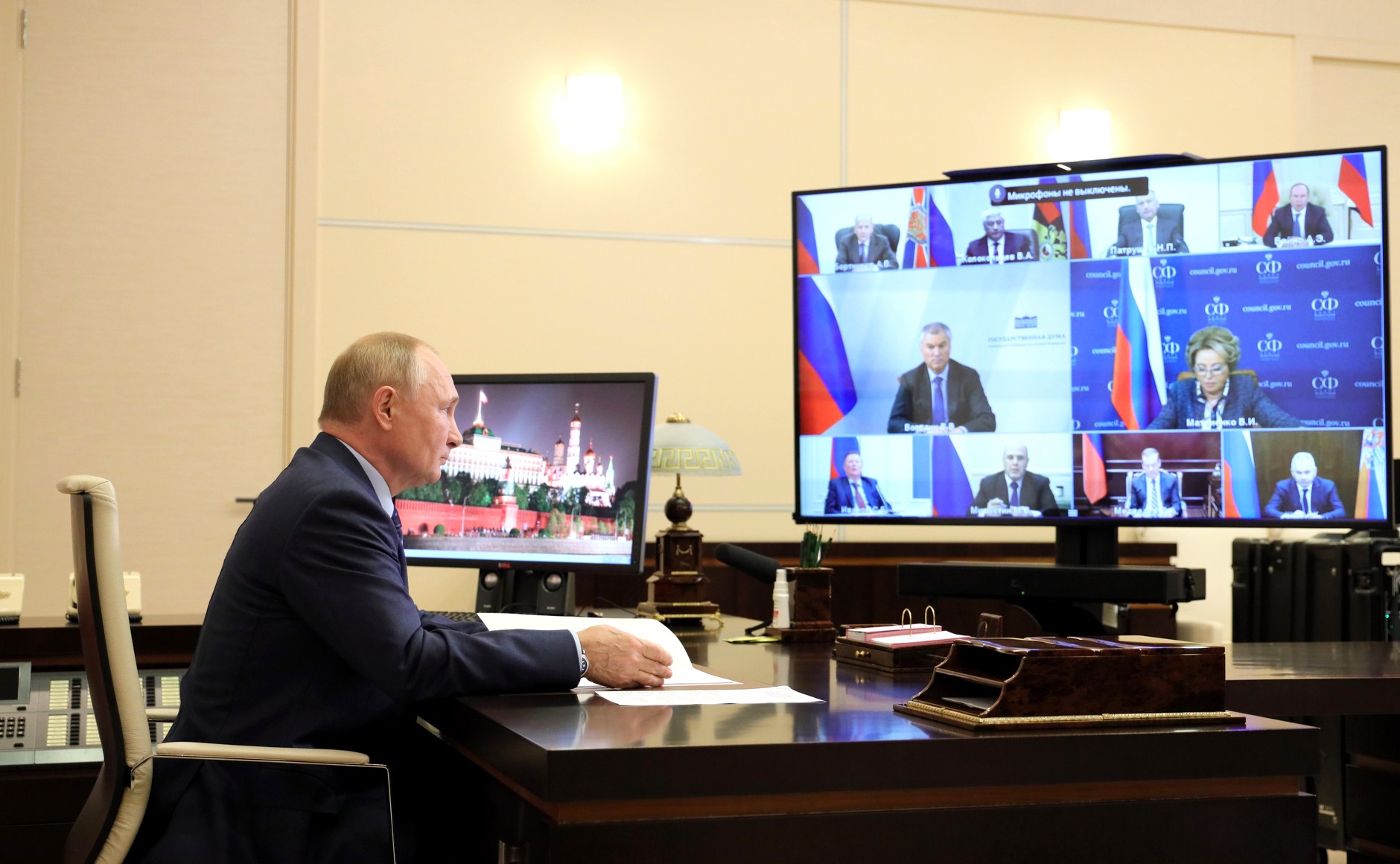 President of Russia Vladimir Putin: Good afternoon, colleagues. We will hold a CIS summit on October 15. In this context, I would like to talk to you and consult you on some aspects of our cooperation with our friends, our allies in the post-Soviet space, the members of the Commonwealth of Independent States. Federation Council Speaker Valentina Matviyenko: Mr President, excuse me, please… Vladimir Putin: Yes, go ahead please. Valentina Matviyenko: You had a cough on and off at the meeting. We were all worried. We will have an international women’s forum this week and we are looking forward to your participation. We are concerned about your health. Vladimir Putin: Ms Matviyenko, please do not worry. Everything is all right. I have been tested, not only for COVID-19 but for other viruses as well, almost every day. Everything is all right. It was just cold outside and I moved around more. Nothing bad is happening. I would like to wish good health to all of you. I know that all of you have been vaccinated. But do not forget to get a booster shot on time, to feel confident, energetic and work well, as we have been doing for a long time. This is particularly important in the current situation. Of course, I would like to attend the forum you mentioned. However, let’s return to our current meeting. The source of information - http://en.kremlin.ru/events/president/news/66897 Meeting with leader of A Fair Russia – For the Truth party Sergei Mironov Vladimir Putin had a meeting via videoconference with Sergei Mironov, Chairman of the A Fair Russia – For the Truth political party. October 11, 2021 - 19:10 - Novo-Ogaryovo, Moscow Region 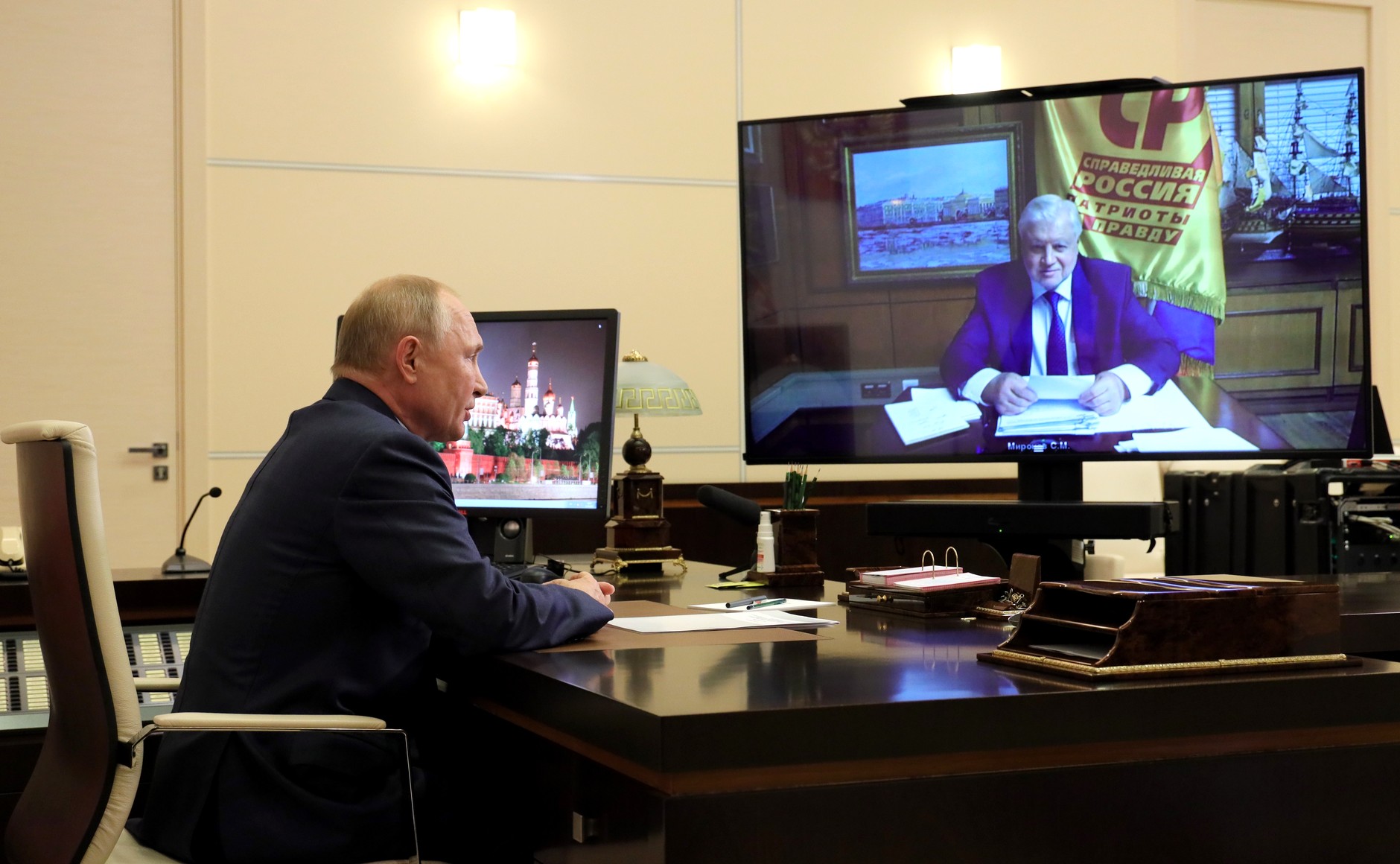 Sergei Mironov informed the President about a number of the party's initiatives. They exchanged views on the results of the elections and discussed the faction’s plans for working in the State Duma. The source of information - http://en.kremlin.ru/events/president/news/66899 Congratulations to Alexander Schallenberg on his inauguration as the Federal Chancellor of Austria Vladimir Putin sent a message of congratulations to Alexander Schallenberg on his inauguration as Federal Chancellor of the Republic of Austria. October 11, 2021 - 19:20 Relations between Russia and Austria have traditionally been constructive. I hope your activities as the head of government will promote the development of bilateral cooperation in different areas for the benefit of our nations and the strengthening of security and stability in Europe, the Russian President said in his message of congratulations. The source of information - http://en.kremlin.ru/events/president/news/66900 Telephone conversation with Angela Merkel and Emmanuel Macron Vladimir Putin had a telephone conversation with Federal Chancellor of Germany Angela Merkel and President of the French Republic Emmanuel Macron. October 11, 2021 - 20:00 The worrying stalemate in the effort to end the internal conflict in Ukraine was discussed in detail, with the three leaders noting the importance of implementing the 2015 Minsk agreements as the only possible basis for a settlement. Interest was also expressed in further coordinating efforts in the Normandy format of Russia, Germany and France. The President of Russia offered a principled assessment of the course of action pursued by the Kiev authorities, which refuse to honour their commitments under the Minsk agreements and accords reached at the previous Normandy summits, including the one in Paris (on December 9, 2019). Considering the difficulty of settling the conflict in the southeast of Ukraine, the leaders instructed their political advisors and foreign ministries to step up contacts and work in the Normandy Four format, resulting in a meeting at the level of foreign ministers in this format. The leaders also agreed to continue to use different channels to evaluate conditions for convening another Normandy summit if need be. Other international issues were discussed during the call, including counter-terrorism efforts on the African continent. The source of information - http://en.kremlin.ru/events/president/news/66901
__________________
Where should they dig the Very Deep Pit? Piglet said that the best place would be somewhere where a Heffalump was, just before he fell into it, only about a foot farther on. (c) Alan Alexander Miln |
|
|
#7 |
|
Senior Member
|
Address to the 15th meeting of the Conference of the Parties to the UN Convention on Biological Diversity
October 12, 2021 - 09:30 President of Russia Vladimir Putin: President Xi Jinping, Mr Guterres, ladies and gentlemen, Greetings to the participants of the 15th meeting of the Conference of the Parties to the UN Convention on Biological Diversity. This convention was adopted almost 30 years ago and it remains a key universal instrument of international law that unites countries and multilateral organisations in their efforts to conserve nature and to promote the sustainable use of our planet’s resources. These goals are more relevant than ever before, because we can see how human activities and the rapid development of technology, industry and agriculture, unfortunately, often negatively affect the environment and climate. In this regard, I would like to express my gratitude to our Chinese friends and personally to President Xi Jinping for their support of efforts to step up international cooperation in the sphere of conservation. In turn, we are committed to working together with all stakeholders in order to preserve our common habitat. And, of course, we are grateful to our Chinese colleagues and the Secretariat of the Convention for hosting this meeting of the Conference, which is going by the name “Ecological Civilisation: Building a Shared Future for All Life on Earth.” This conference provides a good opportunity to exchange views on how to maximise the harmonious coexistence of humans and nature, to most effectively mobilise the efforts of the international community to protect biodiversity and to promote the sustainable use of natural resources, as well as to define the goals and modalities of international cooperation in these areas. I would like to take this opportunity to point out that Russia has a unique and abundant supply of natural resources for supporting life on the planet, and biodiversity conservation is an absolute priority for us. We try to approach it responsibly, consistently and systematically. Moreover, state institutions, businesses and civil society have partnered on this work. A comprehensive sustainable development strategy is being implemented in our country, whose framework includes significant attention to the environmental agenda, protecting and growing the numbers of rare and endangered animals and plants, as well as further strengthening specially protected natural areas. At the federal level alone, there are 109 nature reserves, 64 national parks and 62 sanctuaries. In all, including regional and local specially protected natural areas and other forms of protection, over 25 percent of land in Russia is now protected under environmental law, which, believe me, is truly vast. In addition, we are going to create at least 23 new protected natural areas by 2024. 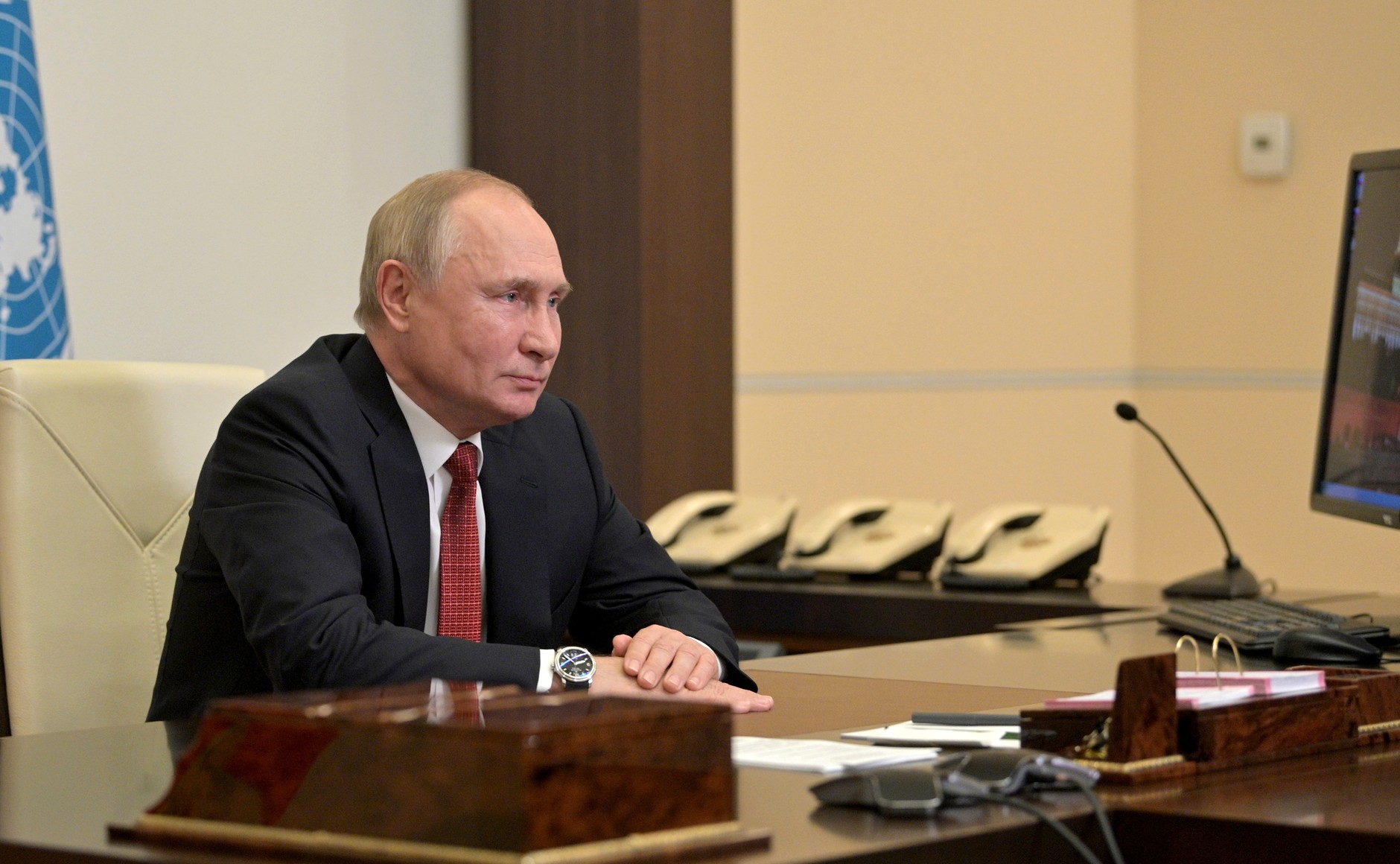 Protection of rare animal and plant species is guaranteed at the state level in our country. The measures taken to this end are yielding tangible results. In particular, the populations of Central Asian and Far Eastern leopards, snow leopards, saiga antelopes, polar bears, bison, birds of the falcon family and, of course, the Amur tiger have also grown. And we will continue these efforts, including in coordination with our foreign partners. In this context, I want to point out the fact that we plan to hold the Second International Forum on the Conservation of the Tiger Population in September 2022. This forum will take place as part of the Eastern Economic Forum in Vladivostok. We look forward to the participation of representatives from all countries where these rare predators are found. I would be remiss not to mention that thanks to the tremendous absorptive capacity of our forests, our country is making a major contribution to addressing global environmental and climate problems and helping to preserve biodiversity. As you may be aware, Russia accounts for 20 percent of the world's forest reserves. And we will continue to improve the quality of forest management and take additional steps to combat wildfires and restore forests. The very fact that this conference exists clearly shows that nature conservation cannot be successfully addressed by any country alone. This must be taken up by all countries, without exaggeration, by all humankind. We fully support the idea of pursuing closer international cooperation on all pressing issues related to protecting flora and fauna, the atmosphere and water resources. This cooperation must be carried out on the basis of generally accepted scientific data, a clearly defined and comprehensive legal framework, and with respect for state sovereignty over natural resources and economic activities. Of course, it is important to be mindful of national priorities and the specifics of each country, as well as to focus on the needs of the developing world, including the least developed countries. The post-2020 Global Biodiversity Framework is currently being negotiated. Russian experts are taking part in this work. We want the programme to include specific ideas and proposals regarding biodiversity protection and to help restore global environmental balance. I would like to close by expressing confidence that this meeting of the Conference of the Parties to the UN Convention on Biological Diversity will be productive and effective and, most importantly, promote constructive cooperation between the countries participating in the Convention. Thank you. The source of information - http://en.kremlin.ru/events/president/news/66898 Greetings on opening of the 5th International Conference on Protection of Human Rights in Eurasia: Exchange of Best Practices of Ombudsmen Vladimir Putin sent a message of greetings to participants in the 5th International Conference on Protection of Human Rights in Eurasia: Exchange of Best Practices of Ombudsmen. October 12, 2021 - 10:00 The message reads, in part: “It is important that, despite the restrictions imposed due to the COVID-19 pandemic, you continue this highly popular multilateral dialogue involving national ombudsmen and representatives of state agencies and the academic and expert communities. The agenda of this year’s conference includes two highly topical subjects: the rights of people with disabilities and environmental human rights. The participants will review ways of improving the legislative framework and law enforcement practice so as to eliminate any barriers hampering the inclusion of people with disabilities in society and ensuring effective environmental protection and the safest possible use of natural resources. I hope that you will exchange professional experience and will have constructive and detailed discussions, and that your ideas and initiatives will help protect the rights and interests of our states’ citizens.” On October 12, Moscow is hosting an international conference on the protection of human rights in Eurasia. It involves over 40 ombudsmen from foreign states, the heads of international organisations and integration associations of human rights activists, the heads of Russian government agencies and representatives of civic society and the academic community. The source of information - http://en.kremlin.ru/events/president/news/66907 Meeting with deputies of the eighth State Duma Vladimir Putin met with deputies of the Federal Assembly’s State Duma of the eighth convocation in the Grand Kremlin Palace’s St George Hall. October 12, 2021 - 15:35 - The Kremlin, Moscow President of Russia Vladimir Putin: Deputies of the State Duma, Mr Volodin, I am glad to welcome all of you in the Kremlin on the day of the first session of the State Duma of the eighth convocation and congratulate all of you on the beginning of its work and, of course, on your victory in the competitive, open elections. I am pleased to note that the lineup of the parliament has a substantial number of new members. Out of 450 deputies, 218, almost half, will work in the State Duma for the first time. But all of you, all without exception, are active and engaged people. You have already established yourselves in politics, in public service, and in your profession. It was the United Russia party that set this trend for renewal. In its parliamentary party, which has kept the constitutional majority – 48.5 percent, also almost a half, are new deputies. The CPRF, A Just Russia – For Truth and the LDPR have confirmed their important role in the parliament. The New People, elected to the State Duma for the first time, has also formed its parliamentary party. All this proves that the political system of Russia is developing, meeting the changing requirements of society, and giving an opportunity for energetic and purposeful people to become politicians at the federal level. At the same time, many newly-elected deputies have served with several State Duma convocations, and this is important for successful law-making and for developing the best parliamentary traditions. It goes without saying that continuity should exist. As you know, these traditions are maintained by people who have created and expanded them, rather than in offices and conference rooms. Certainly, your experience was needed during preparations for this first meeting. I know that this short but important and responsible period was well-coordinated and productive for the parliamentary parties and the deputies’ working groups. As a result, the key organisational matters were quickly resolved today, the parliamentary parties were registered, the committees and commissions were formalised under State Duma regulations, the line-up and chairs have been determined, and the house leaders have been elected. Now you can work confidently on reviewing the packed legislative agenda. 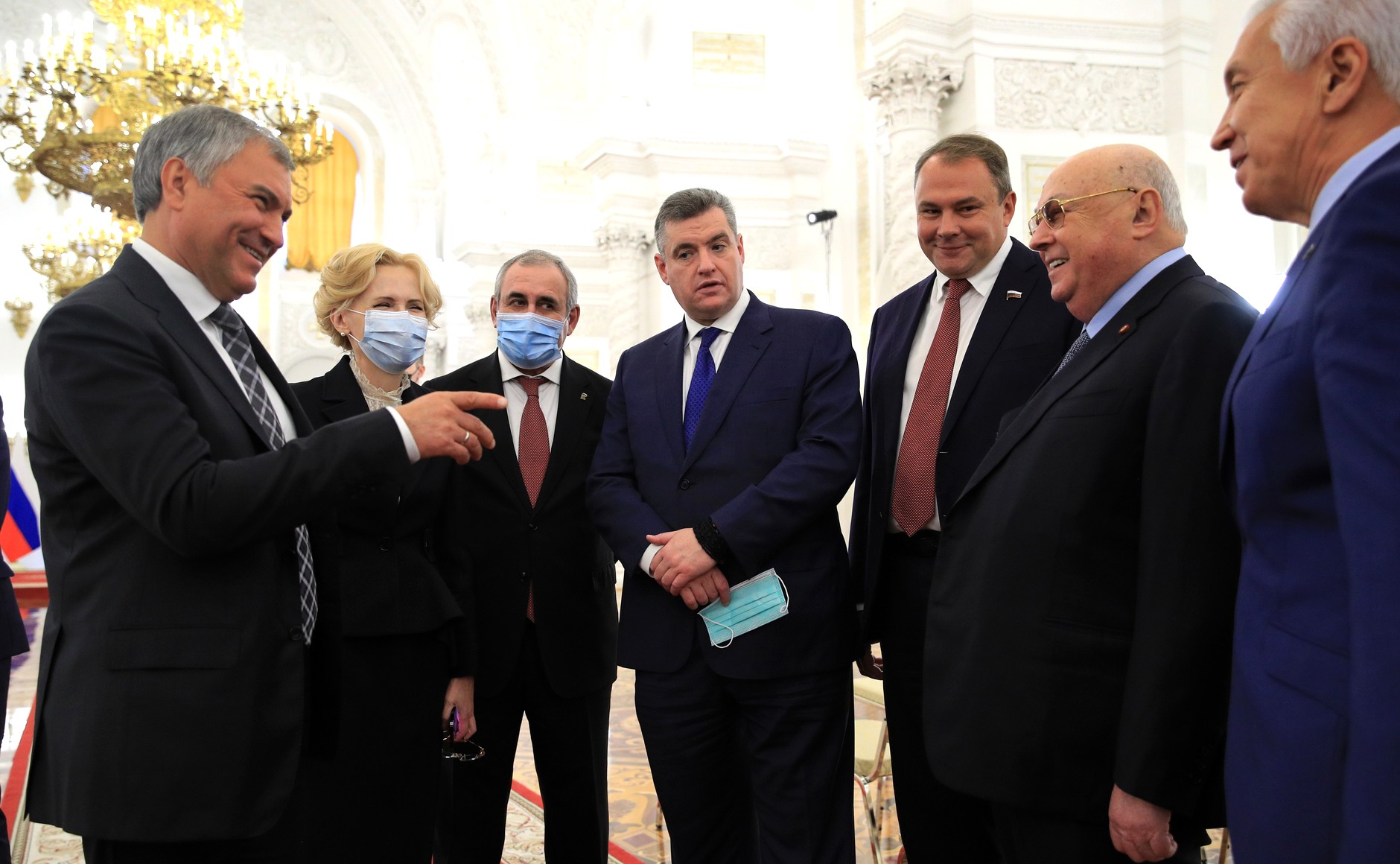 Colleagues, You represent all regions, as well as various professional and social communities. Each parliamentary party has its own election programme. But I am confident that all of you are united by a striving to work in the interests of Russia, for the sake of successful future development, and for consolidating our traditional values as stipulated by the updated Constitution, and of course, to improve people’s well-being and quality of life. You have your mandates thanks to the people’s will and trust. This support from our multi-ethnic nation, the only source of power in the country, guarantees the State Duma’s power and authority, its responsibility for the country and for all its decisions. I expect you to earn this high level of trust everyday through intensive and effective work. Every deputy and parliamentary party represents the hopes of specific people, voters, that is, your voters. Even if they are a minority, their votes, requests and proposals should be heard. You will certainly strive to fulfil your promises and party programmes and to put forth legislative motions. It is important that they be closely linked with our national development goals so that all of us can work together for the sake of the common good. As you have seen, it is possible to reach much more impressive results by pooling our administrative, financial and common resources, at the municipal, regional, and federal district levels, as well as at the Federal Government level. This gives us much more successful and positive results, and results that are expected from us by the nation, by our people. Yes, of course, there is no way to avoid differences in approach, in positions or points of view, but this is absolutely normal. A parliament is a venue where people should express different views and where a path to well-balanced decisions should open up in discussions and arguments. A constructive dialogue between parliamentary parties, broad discussions of key issues with the participation of the regions and civil society organisations, and continuous, working cooperation with the Government of Russia are very important at this point. These are indispensable conditions and a firm foundation for adopting quality, necessary laws that really work. Our country, and hence all of us, are facing many difficult challenges. I will repeat that the low average income of our citizens, of millions of people, is our main enemy, a threat to steady development and our demographic future. In the next few years, we need to establish an integral system for supporting families with children, starting from when a mother is expecting a baby to the graduation of her children from school. As you know, we have started drafting this programme, this system. We are doing this in stages, gradually, ensuring guaranteed benefits at every step. I would like you to continue working this way on other issues as well. Of course, the ultimate goal is to increase the average income of our people, create jobs in all regions, ensure the continued growth and restructuring of the economy, support high-tech industries and remove the barriers that still impede the development of small business – people should have as many opportunities as possible to increase the well-being of their families. Serious problems in healthcare, education, housing and the environment demand particular attention. The solution to these and many other problems largely depends on the effective performance of the State Duma, the country’s highest representative body. This is why it is so important for each parliamentary party and each deputy to realise their high responsibility for drafting and adopting laws. Some of the first bills that you will be considering include the federal budget as well as the budget for social security. These documents, submitted by the Government, have at least three priorities: social policy, economic development, and healthcare, of course. The largest budget item is social policy, and that primarily includes support for families with children, and senior citizens. Over the next three years, the Government plans to allocate 41.5 trillion rubles for social needs, 15.1 trillion rubles for economic development and support for the regions, and 10.9 trillion rubles for healthcare. I would like to note that every other ruble to be spent under the bills on the federal budget and on social security funds will be directed to the implementation of Russia’s social policy and to healthcare. With the continuing pandemic and the difficult situation in the global economy, there are problems we still need to address. Indeed, the economy has generally recovered to pre-crisis levels as we say, but many problems persist, including inflation. Inflation will exceed the forecasted level of 5.8 percent this year. Higher inflation naturally hits the poorest population groups hardest. We must be aware of this, keep this in mind and respond accordingly. Let me remind you in this regard that social monetary benefits, which come from the federal budget, should be indexed to actual inflation in 2022. Federal coffers contain sufficient funds to do this, and I would like to bring this to the attention of the State Duma deputies and the Government. As it is, maternity capital remains the only social support measure that is being indexed to forecasted inflation. I propose, starting from 2022, to start indexing maternity capital based on the previous year’s actual inflation as well, not the projected figure.  (Applause.) I ask the deputies to adopt the necessary amendments to the law. I believe this decision will be right and fair. We are always attentive to those who need government support. This year, we have made lump sum payments to pensioners and families with school-age children. I instructed the Government to submit additional proposals on social support measures, which are of the essence in the context of high inflation. We will consider these proposals at a meeting in the near future. I would also like to stress that the United Russia party went to the elections with a programme based on proposals from people from all regions of our country. These initiatives must be fully reflected in the draft law on the budget, and the factions, of course, must monitor the implementation of these projects so that they bear results before the deadline. I would like to note once again that making our national ideas and the constructive, substantive priorities in the parliamentary parties’ programmes a reality is our common task. It requires the joint, coordinated work of all factions. I hope that this is how it will be in practice, and, let me repeat, the activities of the State Duma will only be successful if the deputies strive to develop the solutions that our country, society and citizens need. United Russia, which holds over two-thirds of the mandates, demonstrated this approach during the preparations. It could lead most committees, but the faction continued the traditions of the previous convocation and, when approving the leadership of the committees, provided other factions with the opportunity to chair almost half of them. Thus, the opinion of voters, your voters, colleagues, of those who voted for these parties, was taken into account, and they received additional opportunities for effective and responsible work in order to fulfil the demands of their voters. 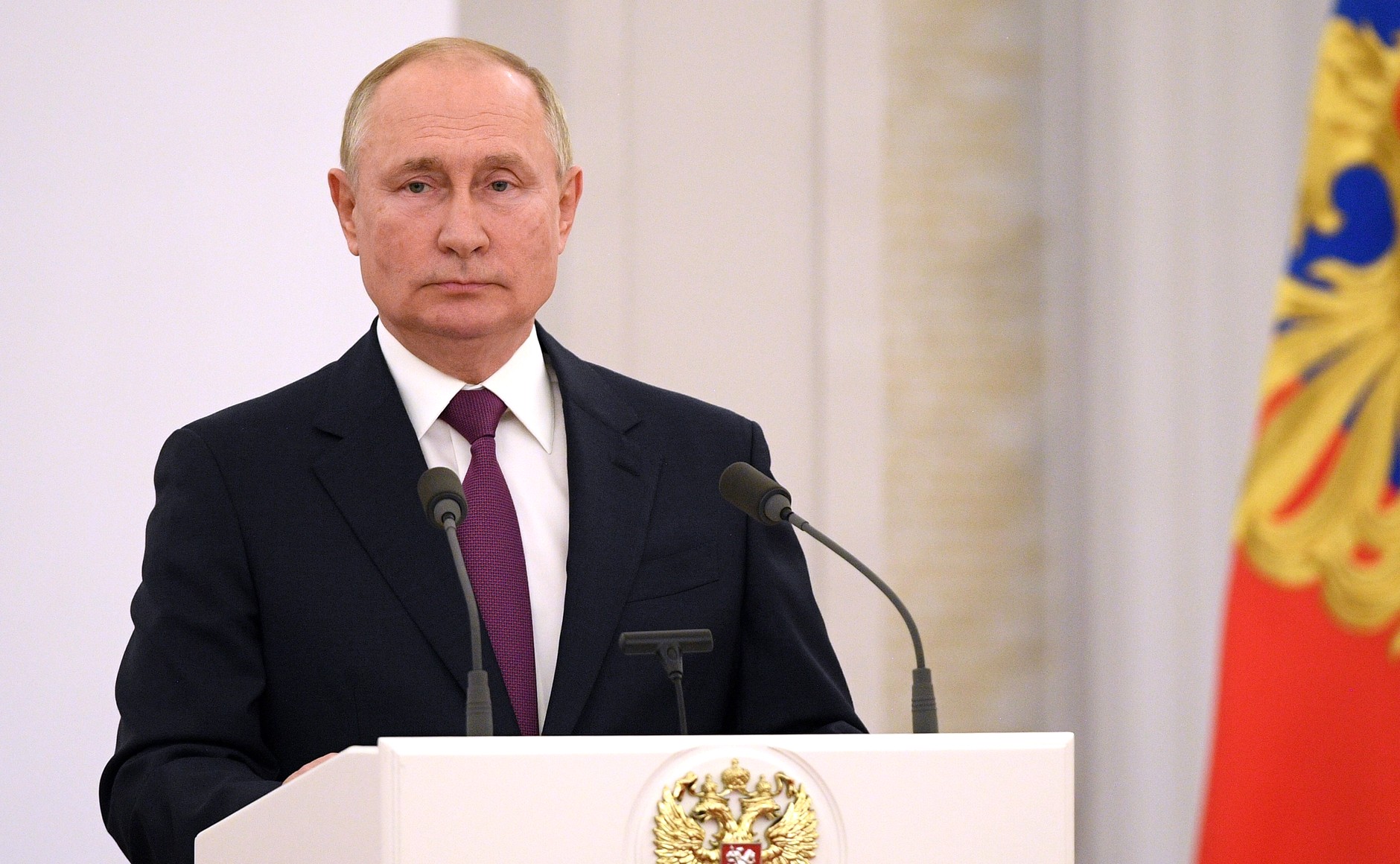 Colleagues, The legislative process requires thoughtful and professional work as well as consideration of many factors, such as financial sources (those above all, perhaps) and, most of all, knowing and understanding people’s requests, essential interests and needs. This is why you should always stay in touch with your voters, know their worries and daily problems, and help them without fail. Now I would like to address those who are part of parliament for the first time. Those who have worked here for more than one convocation know about this, and this is what they are doing. This is my point: the drafting and adoption of laws, lawmaking is the main activity of the Duma, for all deputies; this is clear, understandable. However, for the people, for your voters you are primarily their representatives. Do not forget this. People can and will address you with diverse questions. Maybe some will not be within your competence, but they rely on you, so remember that they went out and voted for you. I would also like to ask you to comprehensively analyse how the regions are carrying out our national goals and to help them promptly when your support is needed. The State Duma deputies have the authority to do this, including parliamentary control. I would also like to talk about the situation with the coronavirus infection. There is no getting away from this today. You know that the number of infections is growing in many regions and medical specialists are working in difficult conditions. We all know well that vaccination can save us from the virus and from a severe course of the disease. It is necessary to step up the vaccination pace. I would like to ask you to be most active in this work, to educate people and speak in the media. People trust and listen to your advice and recommendations. It is very important to do this without a tone of administrative reprimand. We should persistently and patiently work with the people and explain to them the benefits of preventing this dangerous disease. Colleagues, In conclusion, I would like to emphasise again the importance of continuity in your activities – in both the lawmaking process and your ability to create an atmosphere of trust, mutual respect and cooperation, while being open to society and our people. The deputies of the previous, seventh convocation did a lot to promote the traditions of Russian parliamentarism that had its 115th anniversary this year. I hope your deputy corps will not only preserve the best traditions of this most important historical heritage but will also make its own contribution to its development. I would like to wish you success in serving Russia and our people. All the best to you. Thank you.  State Duma Speaker Vyacheslav Volodin: Mr President. On behalf of all the deputies, I would like to express my gratitude to you for your support of the parliament, for the steps you are taking to promote democracy in our country. Last year, you proposed an initiative to delegate some of the President’s powers to our citizens; now they will be able to participate in the formation of the Government of the Russian Federation, through their deputies. This puts an additional responsibility on the State Duma deputies. I do hope that the decisions that we worked out today and then adopted will help make the legislative branch of government more effective and, most importantly, responsible for the decisions made. Indeed, we have chosen a complicated configuration that you initiated, where the opinions of all parliamentary parties (we have five of them in the State Duma now) are taken into account and, as you rightly said, citizens who have elected deputies from various parties also have a say. Now, regardless of their party affiliation, people who voted for these five factions, five political parties will have the opportunity to influence decision-making in the State Duma, a real chance to participate in the discussion of these decisions. The new State Duma has more committees than before, 32. But this actually reflects, among other things, the new authority to form the Government that was given to the State Duma by the Constitution. There will be committees that correlate with federal ministries where it was necessary. This structure will allow us to work more effectively with industry-specific ministries, focus on the agenda and adopt more effective laws. We are actually preparing the State Duma for this, discussing issues with the party faction leaders, and we believe this is achievable and especially important at present as Russia is facing challenges and problems on a global scale. We believe the lower house absolutely must have an agenda that will unite all members regardless of their party affiliation. That is why it means a lot to us that work has begun without foot dragging: tomorrow, the State Duma committees will begin to hold their meetings and the State Duma Council will gather for a meeting; on Thursday, we will get down to our legislative activities. This is why people run for the State Duma in the first place – to represent the interests of our citizens and solve issues and problems by using laws. Hopefully, support from the President will allow us to do this effectively. Indeed, the path our political system has traversed, becoming more open and competitive all the while, shows how much is possible. But it is only possible if we develop incrementally, without slipping into populism and demagogy, something we also talked about earlier today. Mr President, you have noted many times, when wishing [deputies] all the best in their election campaigns, that the path of populism is destructive. We have twice lost our country and there may be no third chance to hold it together. It is essential to understand this and to do everything it takes to make sure that parliament strengthens our sovereignty and addresses the issues raised by the President. Thank you very much.  Vladimir Putin: Mr Volodin, colleagues, Thank you for the words you addressed to me. Still, I believe this is a good occasion for us to express gratitude to the citizens of Russia for their engagement during the election campaign, for their proactive approach to life and for the confidence they have in the authorities and the candidates they have voted for and who are now members of the State Duma. Of course, this confidence stems from their hope that all of us, all levels of power will work conscientiously and hard, and do whatever we – you – can, to address the challenges facing the country, so that our people have confidence in what is happening in the country and, as they used to say earlier – I am not afraid to use this stock phrase – confidence in tomorrow. I am sure that you will spare no effort. I wish you every success in your work. Thank you very much. All the best to you. The source of information - http://en.kremlin.ru/events/president/news/66905 Anatoly Seryshev appointed Presidential Plenipotentiary Envoy to the Siberian Federal District Vladimir Putin signed an Executive Order on the Presidential Plenipotentiary Envoy to the Siberian Federal District. October 12, 2021 - 17:40 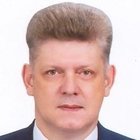 In accordance with Article 83 (k) of the Russian Federation Constitution, the President resolved to appoint Anatoly Seryshev Presidential Plenipotentiary Envoy to the Siberian Federal District, relieving him of his current position. The source of information - http://en.kremlin.ru/events/president/news/66909 Dmitry Mironov appointed Aide to the President of the Russian Federation Vladimir Putin signed an Executive Order on the Aide to the President of the Russian Federation. October 12, 2021 - 17:45  The President resolved to accept Dmitry Mironov’s resignation from the post of Governor of the Yaroslavl Region and appointed him Aide to the President of the Russian Federation. The source of information - http://en.kremlin.ru/events/president/news/66910 Meeting with Mikhail Yevrayev Vladimir Putin met with Mikhail Yevrayev via videoconference. The President signed an executive order appointing him Acting Governor of the Yaroslavl Region. October 12, 2021 - 17:50 - The Kremlin, Moscow  President of Russia Vladimir Putin: Good afternoon, Mr Yevrayev. Mikhail Yevrayev: Good afternoon, Mr President. Vladimir Putin: Mr Yevrayev, did you graduate from St Petersburg University of Economics and Finance? Mikhail Yevrayev: Yes, exactly right. Before university, right after leaving school, I went to work as a turner. Later I entered university and worked at a plant at the same time. So, I traversed the entire path from worker to boss. Vladimir Putin: Where did you work as a turner? Mikhail Yevrayev: The Kalinin Plant on Vasilyevsky Island. Vladimir Putin: I see. In Moscow you worked in interesting and very important areas such as at the Ministry of Regional Development and the Ministry of Digital Development, Communications and Mass Media. All this is obviously important and seriously broadens one’s outlook and opportunities for trying one’s hand at the federal level. As far as I can see, the proposal made to you is somewhat unexpected. What do you think about it and if you take it, what goals would you set yourself? This is bearing in mind that the Yaroslavl Region is the very centre of Russia, a very industrialised region. You know the main types of business in the region as a whole, what they are linked with and how important they are for the civilian and defence industries. Go ahead, please. Mikhail Yevrayev: Mr President, it is indeed a major region with a big history. Much has been done there recently but naturally, much remains to be done. I have familiarised myself with the issues affecting the Yaroslavl Region. Of course, people are primarily concerned about road maintenance, transport, problems with housing and utilities and, naturally, soaring prices. Of course, it is necessary to go there and take a closer look, talk to local people and business owners and clearly outline the goals I will be pursuing in office. But my experience of working on different projects in different capacities in the federal civil service during the past 17 years gives me confidence that I am up to the job. 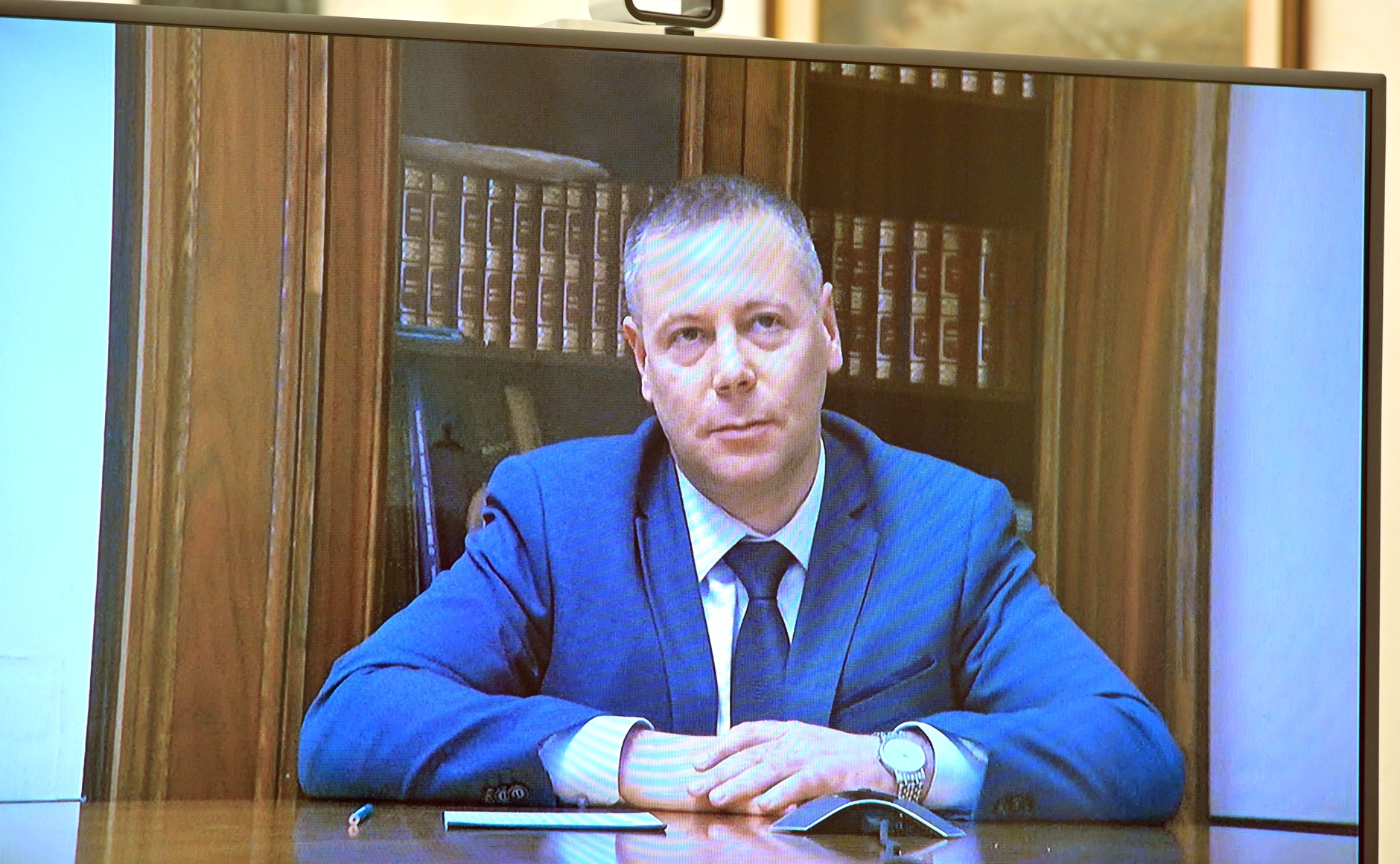 Vladimir Putin: Mr Yevrayev, you have very good character references. Everyone who has worked with you over the years is very positive about your personal and professional qualities and your abilities, all of which I hope will be on display in this new, very important endeavour. You will have enough time to say what you can do for the Yaroslavl Region, which will play a role in the future election campaign. I would like to wish you success. I assume after your first steps in this new job we will meet again to talk in more detail and discuss what is next for you in this position. I will do all I can to support you. Mikhail Yevrayev: Thank you so much, Mr President. I will try to justify your confidence and the trust of the people of the Yaroslavl Region. Vladimir Putin: That is what matters most. Thank you. All the best to you. Mikhail Yevrayev: All the best. The source of information - http://en.kremlin.ru/events/president/news/66908 Mikhail Yevrayev appointed Acting Governor of Yaroslavl Region Vladimir Putin signed an Executive Order on the Acting Governor of the Yaroslavl Region. October 12, 2021 - 17:55 Following the early resignation of Governor of the Yaroslavl Region Dmitry Mironov, the President appointed Mikhail Yevrayev Acting Governor of the Yaroslavl Region until an elected governor takes office. The source of information - http://en.kremlin.ru/events/president/news/66911 Meeting with Prime Minister of Armenia Nikol Pashinyan Vladimir Putin received Prime Minister of Armenia Nikol Pashinyan at the Kremlin. October 12, 2021 - 18:00 - The Kremlin, Moscow President of Russia Vladimir Putin: Mr Prime Minister, I am very happy to see you. Thank you for accepting the invitation and coming here. We are in constant contact by telephone but, of course, a personal meeting is always more productive for reaching the required results. I hope this will be the case this time, too. We will talk in both formal and informal atmospheres. We will have lunch, discuss current issues, and talk about our plans. We will soon have a CIS summit, and I would like to synchronise our watches for this, and of course, for our main cooperation goals, including the settlement in the region today and in the long-term perspective. I am very happy to see you. Welcome.  Prime Minister of Armenia Nikol Pashinyan: Thank you, Mr President. I am very happy to see you. This is our fourth meeting this year and I would like to thank you for the invitation to visit Moscow. I think such frequent meetings point to the high dynamics of our relations and our mutual understanding of the importance of our strategic, allied ties. 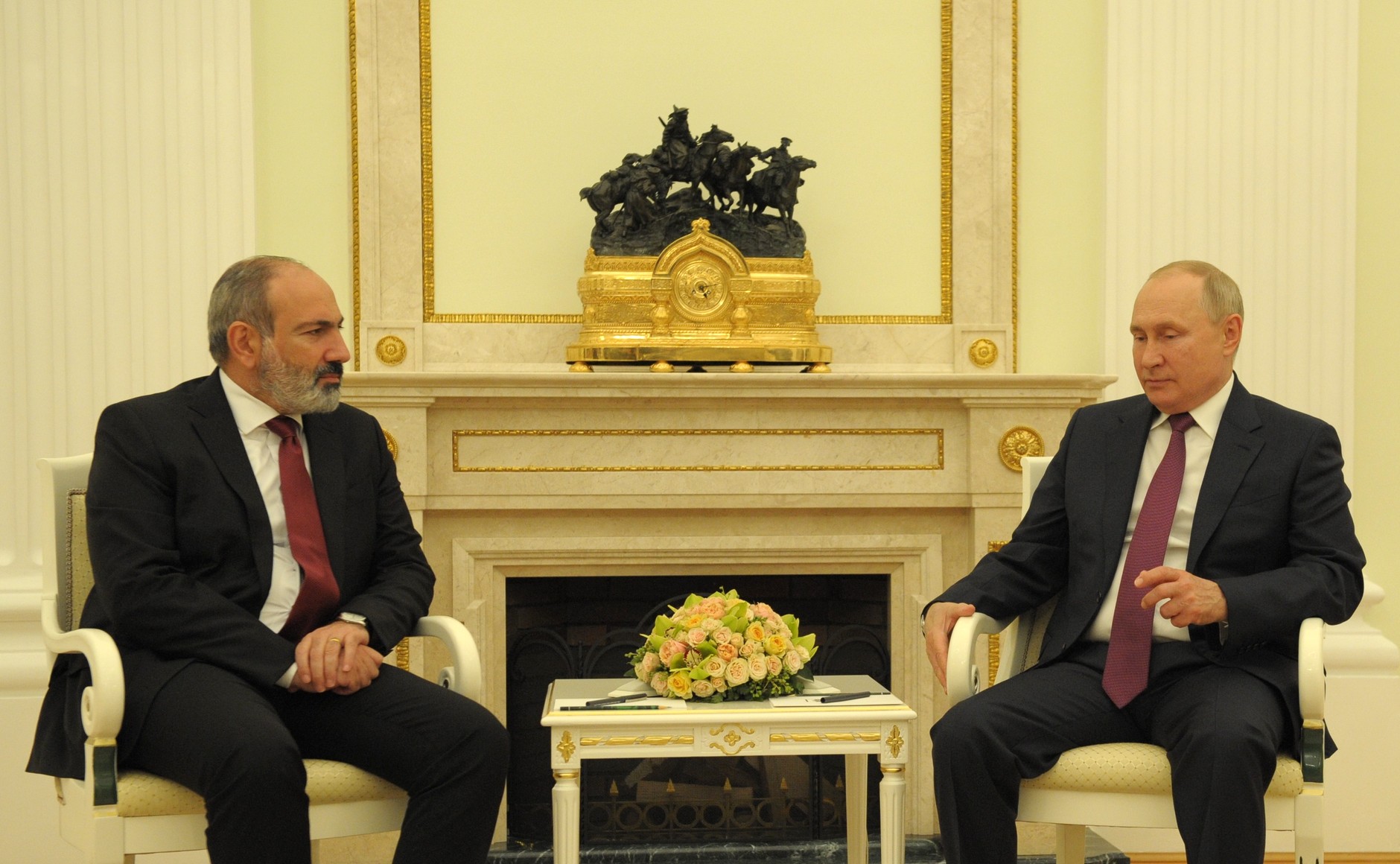 Of course, dynamic processes are taking place in our region and in the world as a whole. It is very important for allies to meet often, talk and, as you say, synchronise our watches. Of course, unfortunately we cannot yet speak about complete stabilisation in our region. As you noted, the Nagorno-Karabakh conflict remains an issue. It is clear that Russia is playing a key role in settling the conflict and ensuring security in our region in general, being a co-chair of the Minsk OSCE Group. Naturally, all these issues are very important. They are key issues, and I am very glad to have this opportunity to discuss the entire agenda Thank you very much. 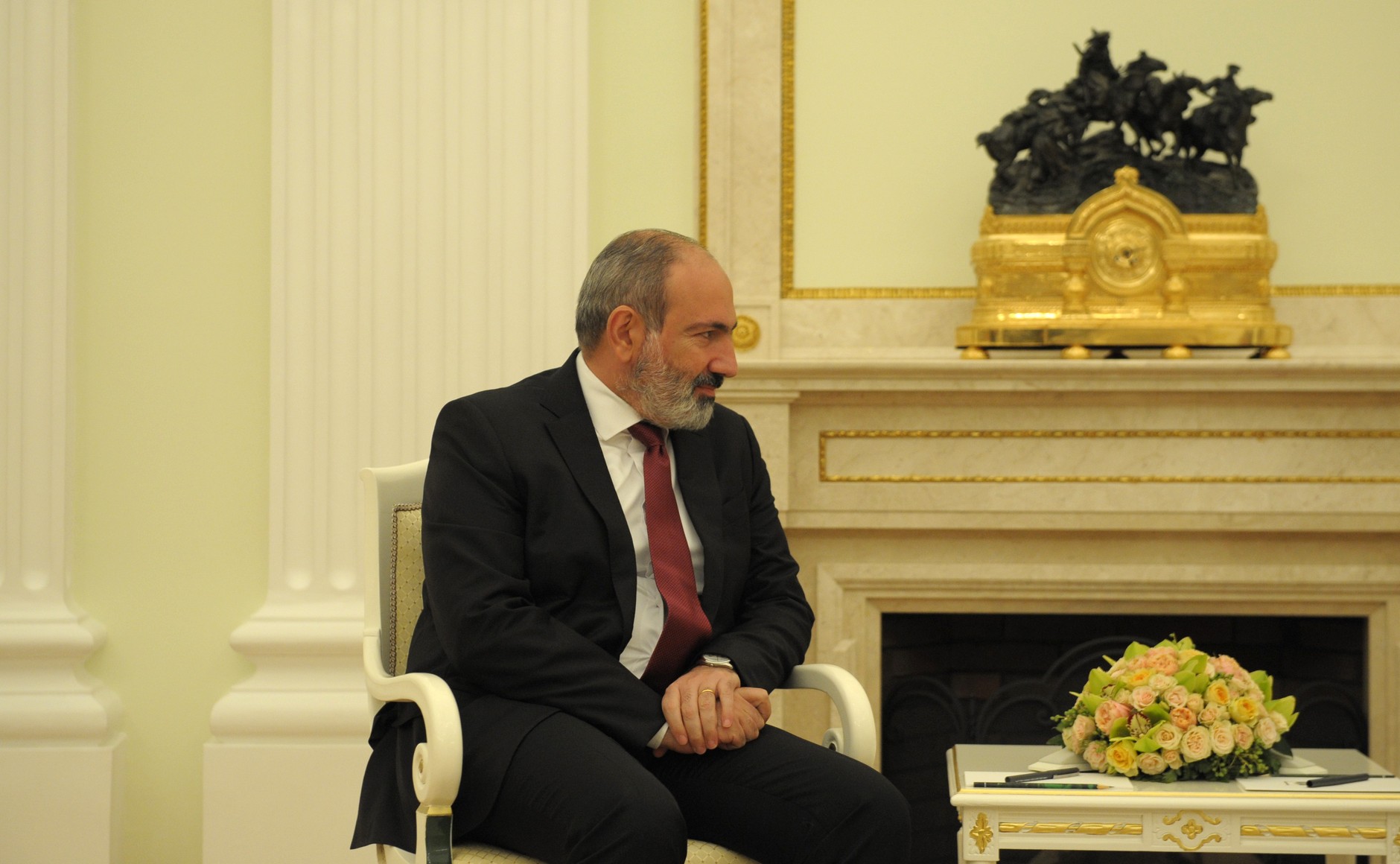 Vladimir Putin: Thank you. The source of information - http://en.kremlin.ru/events/president/news/66912
__________________
Where should they dig the Very Deep Pit? Piglet said that the best place would be somewhere where a Heffalump was, just before he fell into it, only about a foot farther on. (c) Alan Alexander Miln |
|
|
#8 |
|
Senior Member
|
Greetings to participants and guests of the Russian Energy Week International Forum
Vladimir Putin sent greetings to the participants and guests of the Russian Energy Week International Forum, which takes place in Moscow on October 13–15. October 13, 2021 - 09:00 The message reads, in part: ”The Forum venue will once again play host to representatives of government agencies, major companies and the expert community from Russia and abroad. There are a number of issues related to current trends on the global energy market on the agenda, including efforts to improve the industry’s infrastructure and introduce cutting-edge digital technologies. The efficiency of energy production and consumption is the most important factor in the growth of national economies and has a significant impact on people’s quality of life. Many countries have already adopted policies to accelerate the development of clean energy technologies. The Forum business programme is therefore set to look in detail at the possibility of developing green energy based on renewable sources and the transition to new, more environmentally friendly fuels. I am confident that the events of the Russian Energy Week will allow you to learn more about the achievements of the country’s fuel and energy sector, and that your initiatives will be put into practice.“ The source of information - http://en.kremlin.ru/events/president/news/66914 Greetings to participants of 17th Meeting of Heads of Security Agencies and Intelligence Services of CIS Countries Greetings to participants of the 17th Meeting of Heads of Security Agencies and Intelligence Services from Member-countries of the Commonwealth of Independent States, in Moscow. October 13, 2021 - 12:30 The message reads, in part: “By tradition, you will be discussing a wide range of topical matters linked with efforts to maintain the security, sovereignty and national interests of the CIS countries. You will share relevant experience and new methods, analyse the current global situation and that in the Eurasian region and predict future developments. The services and agencies headed by you boast serious operational, analytical, technological and HR capabilities. Today, it is important to use this powerful potential to the greatest possible extent for reliably protecting our states and the entire Commonwealth from domestic and external threats. First of all, this implies the fight against international terrorism and extremism, trans-national crime rings, illegal arms trafficking, cyber-crime and drug trafficking, smuggling and illegal migration. The well-coordinated and systemic work in all the main areas, constant information exchange and joint operations are essential for accomplishing these tasks. I am confident that specific decisions adopted at the current meeting will help to strengthen peace and stability in our common region, that they will facilitate the future sustainable development of CIS countries and the prosperous life of our peoples.” The source of information - http://en.kremlin.ru/events/president/news/66917 Russian Energy Week International Forum plenary session Vladimir Putin took part in the plenary session of the Russian Energy Week International Forum. The panel discussion topic is Global Energy: Transformation for Development. October 13, 2021 - 16:40 - Moscow President of Russia Vladimir Putin: Friends, Ladies and gentlemen, I would like to welcome all participants and guests of the Russian Energy Week. Moscow is again hosting heads of the leading energy companies and corporations, authoritative experts and specialists, in order for them to jointly discuss the current state of and prospects for the global energy sector and its most important trends, and, of course, to suggest mechanisms for the long-term stabilisation of the energy market, which is of particular importance amid the current challenges that our moderator has just mentioned. The energy sector has felt the full impact of the crisis caused by the COVID-19 pandemic, when forced restrictions, business slowdown, production stoppages and transport disruptions all over the world dramatically reduced the demand for energy resources. The people present in this room know this quite well because these problems have affected their companies. Last year’s results show that global primary energy consumption declined by 4.7 percent, which was the heaviest shock for the sector over the past 70 years. Prices have been adjusted to the falling demand. Last year, for example, the price of natural gas in Europe dropped by 60 percent to $113 per thousand cubic metres against $159 in 2019 and $282 in 2018. The situation in the oil sector was altogether unique. None of you or us could even believe it. Nobody could even imagine that last spring oil would record negative prices for the first time in history. It became more expensive to store oil than to purchase it. This situation is simply unique. The OPEC+ agreements played a key role in stabilising the oil market at that time. The OPEC and non-OPEC countries managed to develop efficient cooperation, ensure the stability of the oil sector during the pandemic and, most importantly, create conditions for investment activity If investment in new deposits and future oil production had been suspended, the market would have quickly faced a huge, critical shortage. We are seeing some of these things today. Now at the stage of global economic recovery and growing oil demand, our countries are also stabilising the market and its price quotes. They are promptly increasing oil production and shipping. Russia is a responsible OPEC+ member. We assume the agreement will remain valid until the end of next year, 2022. At the same time, the current results show that cooperation between our countries has every opportunity for further expansion. It may embrace additional areas, including the development of new eco-friendly technology for producing and processing hydrocarbons, and an exchange of the best practices for measuring and reducing the carbon footprint. As distinct from oil, the situation in the gas market, primarily in Europe, does not yet look balanced and predictable. The main reason for this is that not everything in this market depends on producers: gas consumers are playing an equal and even bigger role. I am going to say a few things that may sound like obvious and commonplace truths in this professional audience, but various persons in charge have lately chosen to forget about them or keep silent about them, replacing an analysis of the situation with empty political slogans. Here is what I am talking about. Over the past 10 years, the share of renewable energy sources in the European energy balance has skyrocketed, which, on the face of it, appears to be a good thing – and they are now playing a significant and noticeable part. What can you say? It is a good thing any way you look at it. However, this sector is notorious for erratic power generation. It requires large reserve capacities. In the event of major generation failures, primarily due to bad weather, this reserve is simply not large enough to cover the demand. This is exactly what happened this year, when, due to a decrease in wind farm generation, there was a shortage of electricity on the European market. Prices soared, which triggered a spike in natural gas prices on the spot market. Importantly, gas consumption is seasonal. Its reserves are traditionally replenished in the summer to meet the winter demand. However, this year, even after a cold winter in Europe, many countries chose not to do so, relying on spot gas supplies and the “invisible hand” of the market, but a spike in demand has sent prices even higher. To reiterate, the rise in natural gas prices in Europe stemmed from shortages of electricity, not the other way around. There is no need to lay the blame on other people, which is what some of our partners are trying to do. Occasionally, you get stunned by what is being said on this account, as if these people do not know the numbers – I will say more about this later – as if they do not see the reality and are just covering up their own mistakes. Systemic flaws have been gradually introduced in European energy over the past decade, which led to a major market crisis in Europe. As a reminder, when nuclear and natural gas-based generation were the leading energy sources, there were no such crises, and there were no grounds for them. Thankfully, problems of this kind have no place in Russia. A long-term approach to the fuel and energy complex allows us to set Europe’s lowest residential and industrial electricity rates. To put that into perspective, the average price of electricity in Russia is about 20 euros per megawatt-hour; in Lithuania it is 256 euros, 300 euros in Germany and France, and 320 euros in the UK. The growth of rates in our country is limited and is strictly regulated, which is not the case in European countries, where, due to an increase in the cost of power generation, utilities bills have been climbing almost every month recently. I have these numbers on my fact sheet, but I am not going to bore you with the details now. I would like to say a few more words about the gas market situation. You often hear that high listings are good for raw materials producers allowing them to see super-profits without making any visible effort. However, those defending this position do not understand what they are talking about; they prefer not to look ahead, and are slow to take into consideration the long-term implications. But these implications are clear, including for the industry: the dramatic, repeated surge in energy prices influences business, the economy, and the utilities sector during periods of drastically increased costs; many businesses are forced to cut energy consumption and reduce production volumes. This means that high prices can ultimately have negative consequences for everyone, including producers. Russian producers, including those in this room, are well aware of this. Stability and predictability are important in any market. Russia fulfils its contractual obligations to our partners in full, including its partners in Europe, ensuring guaranteed, uninterrupted gas supplies in this direction. We are seeing conditions that will result in record high volumes of gas distribution to the global market by year end. Moreover, we are always willing to meet our partners halfway and are ready to discuss additional actions. We consistently work to strengthen the energy security of the entire European continent. Major infrastructural projects – Turk Stream, Balkan Stream, Nord Stream 1 and Nord Stream 2 – are being implemented jointly with European companies, our partners and friends. Their task is to ensure, for years ahead, the stability and predictability of gas availability in the amounts needed by the European countries. I would like to add that the implementation of these projects is leading to a considerable – by several orders of magnitude – reduction in greenhouse gas emission. Just for your information: the carbon intensity of Russian natural gas distribution along the Nord Stream 1 pipeline is 66.7 percent lower than that of US LNG. I am saying this just to compare. At the same time, we now need to come to terms regarding the global mechanisms to balance the energy market. We should launch a meaningful, substantive dialogue between energy producers and consumers on this issue, a dialogue free of political bias and imposed clichés. We are talking about extremely important matters, which directly influence the functioning of business and organizations, as well as the wellbeing of households and millions of people both in Russia and in our partner countries, including those in Europe. I am confident that this dialogue can help find solutions that take into account market trends and the interests of all sides. Colleagues! Of course, climate change is among the main factors determining the long-term development of the global energy industry. Russia fully understands the serious nature of the challenges in this area. We see and understand the threats and risks for all people, the whole world, as was just said, and for this country. In Russia, the average annual temperatures are increasing more than 2.5 times faster than overall global temperatures. In the past ten years, they have increased by almost half a degree, and Arctic temperatures are rising even more rapidly. Russia supports international initiatives to preserve the climate and is fulfilling its obligations. In the next few decades, we are set to ensure that the accumulated volume of net greenhouse gas emissions will be even lower than in the European Union. Colleagues, these are not empty words but a guide to action. We are already implementing a number of projects that are yielding and will yield results for many years to come. Russian oil and gas companies are flaring less associated gas. I would like to repeat once again that I have recently discussed this matter at a meeting: we are showing better indicators than anywhere else in the world. We are launching projects to trap carbon dioxide, and we are converting to higher technical standards. Large projects are underway to modernise the power-generating industry and the housing and utilities sector. Of course, we will continue to support these initiatives in the future. Russia’s tremendous potential for boosting energy efficiency accounts for an estimated one-third of current energy consumption. In this respect, I have asked the Government of Russia to update the state programme on energy efficiency and energy saving; we recently discussed this matter at a government meeting. We need to extend this programme until 2035, and we will do so. We have to work more actively in all sectors of the national economy, including industry, agriculture, transport, and the housing and utilities sector, to achieve our ambitious goals and reduce the GDP’s energy needs and intensity, as well as the negative environmental impact. I would like to add that Russia will take practical action to ensure the carbon neutrality of its economy, and we have set a specific benchmark: no later than 2060. I have said it before and I will say it again: climate conservation is a common goal for all humankind. Much work lies ahead of us. Undoubtedly, it is hard and demanding work involving a wide range of specialists, corporate executives, public associations and governments. At the same time, the climate agenda must not be ‘weaponised’ to promote the economic or political interests of individual countries. We all need to work to put together common to all of us, clear, fair and transparent climate regulation rules to be applied globally. They must rely on a genuine concern for the climate and an understanding of each country’s role and contribution based on mutually acceptable models for accounting and monitoring greenhouse gas emissions and greenhouse gas absorbtion. It is critically important to stick to technological neutrality principles, that is, to take an impartial inventory of the carbon footprint created by different types of energy generation. Few people are aware of this, but the nuclear energy’s carbon footprint is lower than that of solar energy. I think even the specialists here are, perhaps, hearing this for the first time. Russia has unique practical expertise in the development and extended operation of nuclear technology, including fast neutron reactors, which will eventually make it possible to convert to a closed fuel cycle and to make wider use of small nuclear power plants and small reactors. By the way, a low-power floating nuclear power plant is already operating in Chukotka. Building on the achievements in this area, we will continue to export nuclear technology and thereby contribute to decarbonising the global energy sector. Of course, climate projects, including the ones that use natural ecosystems, should play a key role in overcoming this global challenge in the form of accumulated greenhouse gases. Russia can offer truly unique solutions in this regard. The effectiveness of these projects in our country is significantly higher than the effectiveness of investing in the development of renewable energy in Europe. In order to implement these initiatives and to create a better business environment, it is necessary to channel the investment flow into projects offering the highest return. Of course, when implementing climate projects, there can be no place for sanctions or other restrictive measures that are usually politically motivated. Also, the international situation is telling us that climate issues must be tackled in close coordination with the plans for expanding economic sectors, primarily, the energy sector. According to expert estimates, in the next 25 years, the share of hydrocarbons in the global energy balance may decline from the current 80–85 percent to 60–65 percent. Importantly, the role of oil and coal will go down – my Russian colleagues in this hall are well aware of this and proceed from this – whereas the role of natural gas as the cleanest “transitional” fuel will go up. This applies to developing the production of liquefied natural gas (LNG). We plan to increase its production in Russia to 140 million tonnes a year by 2035. We also hope to strengthen our positions in this dynamic market and occupy about 20 percent of it owing to low production costs and competitive logistics. I would like to note that LNG is already the main cargo in the Northern Sea Route. In addition, by 2035, we expect to increase our share in global petrochemical supplies from the current 1 percent to 7 percent. I will add that in the next few decades, hydrogen and ammonia will strengthen their positions in the global power industry, as we also know well. They will be used as raw materials, fuel and energy sources. Russia has scientific, resource and logistical opportunities to capture a substantial share in these promising markets. I already spoke about this at the recent economic forum in Vladivostok and urged our colleagues from the Asia-Pacific Region to cooperate in this area. I hope our partners from Europe, the United States and other countries will also respond to this proposal. Friends, The consequences of the pandemic and the shakeup of the regional energy markets have shown once again how important it is to ensure the stable, confident performance of the fuel-and-energy sector for the modern world and to supply consumers with affordable energy with minimal impact on the environment. All participants in the market – both producers and consumers – must take balanced and responsible action to ensure the world’s energy and environmental security. They should tailor these actions to the long-term perspective in the interests of the sustainable development of our countries and the prosperity of our people. Russia is ready for such constructive, trustworthy and close cooperation, including a direct dialogue with our partners in Europe and with the European Commission, with a view to searching for common solutions on stabilising the energy markets and countering climate change. I am confident that we will definitely achieve results in resolving these difficult issues. Thank you for your attention. <…> Plenary session moderator Hadley Gamble: Mr President, in your remarks, you just were mentioning about what is happening in the gas crisis. I think it would be really interesting to pick up on that. You mentioned blame-shifting; you talked about hollow political motives. So much has been said and so much has been written in recent weeks about what has been happening, and I want to ask you about it directly. Has Russia been using energy as a weapon? Vladimir Putin: Russia is not using any weapons at all, if you have noticed. With regard to the economy, where would we be using weapons? What conflicts are we participating in? This is absolutely out of the question when it comes to the economy. Even during the most complicated Cold War periods, Russia fully complied with its contractual obligations and supplied gas to Europe. By the way, back then your compatriots in the United States were also opposed to a pipeline for this gas project. The leadership of the Federal Republic of Germany at that time was successful in having its own way and saw this project through to the end. It is still operating and is a part of Europe’s energy balance. The weaponising of energy is nothing but politically-driven and entirely groundless bloviation. Take a look at current developments. Europe is producing about 54 billion cubic metres of gas a year. The output numbers are falling in the UK, the Netherlands and Norway and, in all likelihood, will continue to do so. Gazprom alone produces over 500 billion cubic metres of gas. Production is growing and will continue to grow, because Gazprom’s reserves alone amount to over 35 trillion cubic metres of gas. If you look at it from a global perspective, Russia's reserves are unlimited and are of planetary size. We are increasing supplies to Europe even amid today's conditions that are challenging for us. Gazprom has increased gas supplies to Europe by about 10 percent, and gas supplies to Europe have increased by about 15 percent including LNG, because LNG has increased to about 13–14 percent. We are ready to keep doing so. Importantly, our companies have never, not once, refused to meet our partners’ requests to increase supplies. Even during the challenging autumn-winter periods in recent years, when our partners asked us to increase supplies even in excess of our contractual obligations, we have always done so and are doing so now. We supply as much gas as our partners ask for. I would also like to draw your attention to another circumstance, where supplies of, say, US LNG went from Europe to Asia when prices changed accordingly. Of the total shortage of LNG supplies to the European market, which is over 14 billion cubic metres in terms of LNG, about half had been undersupplied by US companies. So, who is weaponising energy? Is it us or someone else? We are increasing our supplies to Europe, and our partners from other countries, including the United States, are decreasing supplies to Europe. This is open information. All you need to do is go online and see for yourself, everything is there. And you are talking about Russia being accused of weaponising energy resources. This is complete nonsense and politically-driven chatter, which has no substance behind it. This is how things are in general. Hadley Gamble: When the European benchmark, though, is up nearly 600 percent for the year… It has taken several months to get to this point, several weeks of a price surge globally. I mean, at the end of the day, I guess the question is how can you expect Europe to believe you are a reliable energy partner when you are not supplying that energy via the pipeline? Vladimir Putin: A beautiful woman, pretty. I say one thing, and she responds with something entirely different. As if she did not hear what I said. I will tell you one more time now. Hadley Gamble: Mr President, I heard you. Vladimir Putin: Listen, you just said: you are not supplying gas to Europe via gas pipelines. You are being misled. You and everyone else who uses information from such sources. We are increasing deliveries to Europe; Gazprom has upped supplies by 10 percent, and in general, Russia has increased supplies to Europe by 15 percent. Pipeline gas is up by 10 percent, and LNG, up to 13 percent. We are increasing, not reducing deliveries. But other suppliers have cut deliveries by 14 billion cubic metres. US suppliers account for half of the cuts. Did I say something you did not catch? Did you hear me? We are increasing deliveries. And if we are asked to increase further, we are ready to increase deliveries further. We are increasing by as much as our partners ask. We have not denied a single request, not a single one, and we are increasing supplies to Turkey, via Blue Stream and TurkStream; we are increasing supplies to the Balkans – they have been redirected through TurkStream now, but we are increasing deliveries via the existing routes as well. We have even increased supplies through the Ukrainian gas transportation system. This year’s increase of supplies through the Ukrainian gas transportation system, in excess of our contractual obligations for transit, will be approximately 10 percent. We cannot increase it any more. Everyone is hinting we should increase supplies even more via Ukraine. But it is dangerous because the GTS has not been repaired for decades in Ukraine. It can burst if you increase the pressure, and Europe will lose this route completely. About 80 percent of the equipment is obsolete, over 80 percent. Nobody wants to listen or hear anything. Everyone is just determined to blame Russia. 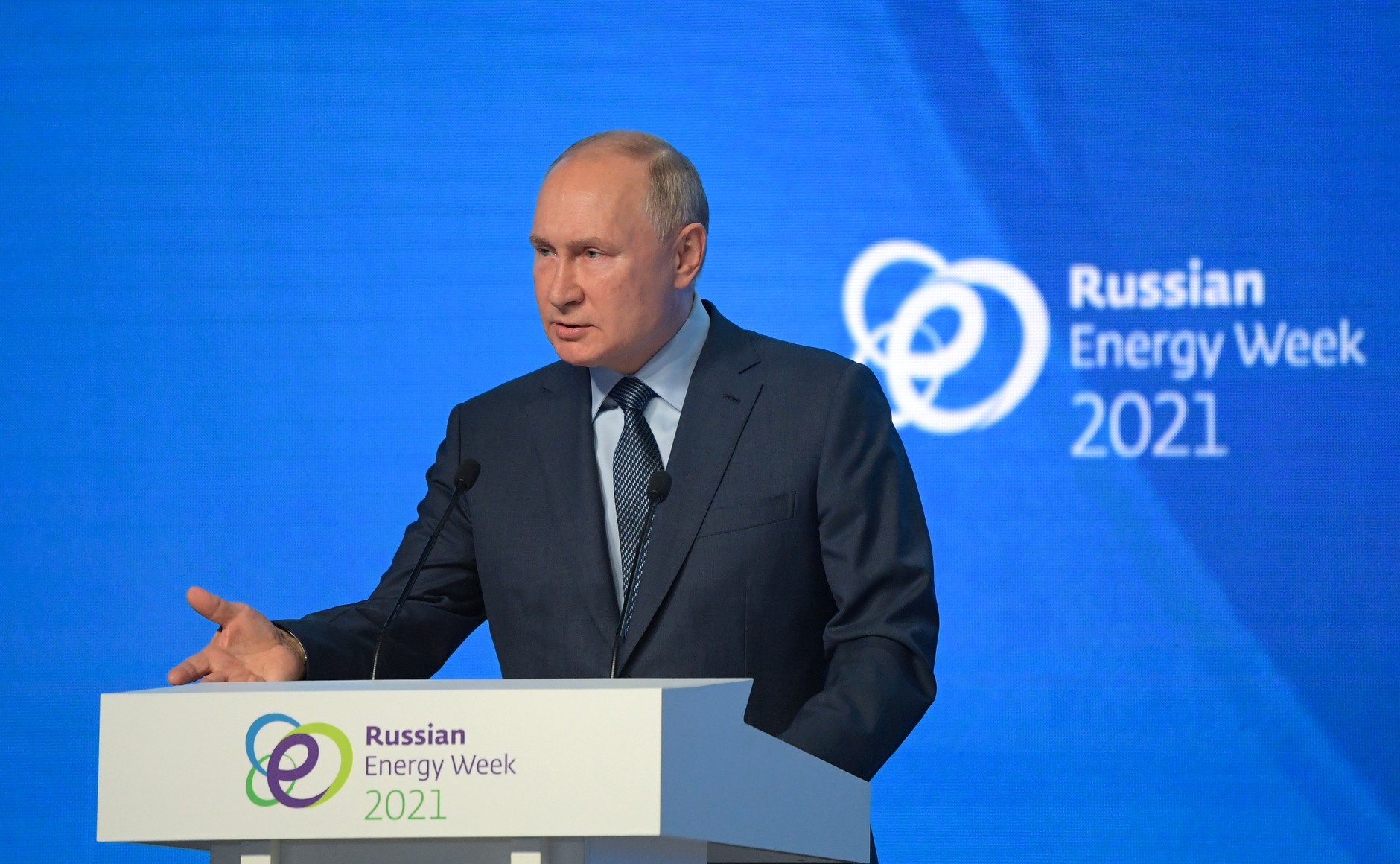 Hadley Gamble: Who is they? European partners? Vladimir Putin: Russia’s ill-wishers. They can be in Europe, or in other countries anywhere in the world. Hadley Gamble: Okay, walk me through this. Essentially, the markets are looking for some sense of stability here. Are you saying that in terms of increasing supplies to Europe that you would get the current capacity increased by as much as 15 percent? The IEA says that could calm the markets. Vladimir Putin: I have already said that we increased it by 15 percent. Just now. In the first nine months of 2021 we increased gas deliveries to Europe by 15 percent. You see, we are not the problem. It is the Europeans who caused this problem. They did not fill their storage facilities on time. First, the wind power generators did not work in the summer. Everyone knows this. You just cannot help this, because this is what the weather was like. They did not pump the amount of gas they needed into their underground storage facilities on time. They were filled only to 75 percent, which is very little. Everyone understands and sees this. Deliveries from other parts of Europe, and the United States, declined. We increased supplies, while the United States reduced them. Of course, all this caused a panic. This is what caused it. Part of the energy resources, some of the gas is stored in Ukraine’s underground storage facilities. I may not have the exact figures, since we do not have the precise data, but about 18 billion cubic metres of gas, maybe a little bit more, were pumped into Ukraine’s underground storage facilities. A substantial portion of this volume belongs not to Ukrainian operators, but to European ones, to private entities, etc. We know, and our Western partners know what is going on in Ukraine’s energy sector today. In 2008, we were unable to recover gas from these storage facilities even though it belonged to Russia. Why has the energy crisis started with Ukraine in 2008? We wanted our gas back, but they refused, and started consuming it. Today, there are irresponsible politicians in Ukraine who are calling for this gas to be nationalised, I mean the gas in Ukraine’s underground storage facilities that does not belong to Ukraine. And what can we see now? We see private operators, including foreign ones, starting to pump out gas from Ukraine’s underground storage facilities. We are ready to deliver even more gas, but to do so these volumes have to be ordered. I am telling you: we increase deliveries to the extent that we are asked to do so. Today, we are up 15 percent, and if they ask for more, we will give them even more. This is within our contractual commitments. Not only do we fulfil all our obligations, but we are even ready to exceed them, but to do so, we need orders for additional volumes. After all, we cannot send out gas into nowhere. It has to have a destination. We deliver as much as we are asked. There has not been a single instance when we refused to deliver. Hadley Gamble: These things will come at a cost. Can you assure us that there will be no price gouging? Vladimir Putin: Let me explain this to you. This is the second very important question. Our European partners have been insisting on setting up a European hub, an exchange, thinking that trading gas on a free market would balance out the energy market. As I have said recently, this primarily was the case for the former college of European Commissioners. We have always told them that long-term contracts must remain a priority. These approaches imply different price setting mechanisms. Under long-term contracts, prices are pegged to global prices of crude oil and some other petroleum products such as gas oil, etc. There is no secret about this. Still, it is the market that determines these prices. Let me emphasise that this pricing mechanism is pegged to the price of oil on the market. Nobody imposes anything on anyone. Furthermore, there is a certain lag before gas prices are adjusted compared to oil, about six months, enabling operators and consumers to anticipate future developments and adjust their actions accordingly. The spot market is different. Prices depend on supply and many circumstances that are hard to predict. There is too much uncertainty: whether the winter is cold and long, the underground gas storage facilities may or may not be filled, the wind turbines can stop working, prices can go up in Asia, and gas supplies can move there. The reasons that led to a spike in prices on the European market are obvious. However, Gazprom will never see this money, be it $2,000 per 1,000 cubic metres, or $1,500, or $1,225, which is the current price. Gazprom sells gas under long-term contracts that are tied to the price of oil. Some of our colleagues in this room are heads of Russian companies who know that oil, I mean Russia’s Urals crude, is currently traded at $81-$82 per barrel. The prices Gazprom charges are tied to these oil prices. Gazprom does not get $2,000 per 1,000 cubic metres. That is why we built the first gas pipeline, Nord Stream 1, to Germany along the Baltic Sea bed, and are about to complete the second one. Germany buys gas for $250, $230 or at the maximum price of $300 per 1,000 cubic metres, not $2,000 or $1,500. This means that Gazprom actually loses money. On the spot market, it would have gotten $1,200 per 1,000 cubic metres, but instead they get $250 to $300. However, Gazprom is interested in maintaining this stability. Why? Because they know that it will sell a certain amount of gas at a specific minimal price, which enables them to plan their investment policy. This benefits both the supplier and the consumer. Hadley Gamble: So what is a fair price for Russian gas then, when you have 800 million people who are facing a very-very cold winter? What is a fair price? Vladimir Putin: I have already told you. Hadley Gamble: The oil is sitting above 80. Vladimir Putin: As I have said, this is a fair price, which is not regulated by the government; it is regulated by the oil market. Oil prices fell last year or in 2019, and gas prices immediately also fell as a result. And, of course, Gazprom also reduced production, and net earnings and profits, and everything else also went down. Oil prices started growing little by little, and its incomes also rose. But it does not profit from speculative spot prices in Europe. I want you to hear this, and I want those people who will be watching our meeting to hear this, as well. It profits from oil price quotations and long-term contracts. I repeat for the third time that it does not receive $2,000, like at the London Exchange or somewhere else in Europe. And, of course, these countries, including Germany, are our main consumers. Such countries, our main consumers, such as Germany, should bow low to Gerhard Schroeder for the fact that Germany now receives gas at $300, rather than $1,000 or $1,500. This is a positive factor for households, for the people of the Federal Republic of Germany, the industry and the European economy’s global competitiveness. Hadley Gamble: Mr Putin, at the end of the day, though, a big question has been surrounding, as you were mentioning, the blame game. One person who has not cast blame on Russia is, of course, the outgoing Chancellor of Germany, Angela Merkel. She has advocated that you continue to use Ukraine to supply gas to Europe, beyond the commitments of 2024. Can you commit to that? Vladimir Putin: It is a great exaggeration to say that she does not blame Russia for anything. We have very different approaches to many matters and problems. The claims … Hadley Gamble: But not on Nord Stream 2. Vladimir Putin: Yes, speaking of Nord Stream 2, you are right, she has never blamed us because she and I have always assumed that this is a purely commercial project that is not politically motivated, as the project’s opponents have always said. They said that it was economically unprofitable and politically motivated, and that Russia will only lose from this, but it is building Nord Stream 1, Nord Stream 2, TurkStream, etc., in order to bypass Ukraine, purely out of political considerations. Look, this is just more nonsense, total gibberish. Let me explain this. First, the Gas Transmission System of Ukraine was built under the assumption that only one territory of the Russian Federation, namely, the Urengoy field, produced gas. This deposit is being depleted little by little, and we have started producing gas in more northerly regions, including the Yamal Peninsula, and we have started building our new pipeline system from there. We have been persistently and gradually building pipeline offshoots all over the Russian Federation for over a decade now, proceeding from our capabilities. We also started building our export routes from there. This is how Nord Stream 1 and Nord Stream 2 came into being. Now, let us move on to economic feasibility and political motivations. Everyone, please listen carefully to what I am saying. This route is 2,000 km shorter than the Ukrainian route; therefore, it links our main consumers in Europe more quickly and is cheaper. You see, this means shorter and cheaper transit, including for end consumers, because the transit price is part of the end price for consumers, including those in Europe and the Federal Republic of Germany. It is A – shorter; B – it is therefore cheaper; C – it uses cutting edge equipment, including pipes for pumping gas under high pressure and gas-pumping equipment. What is a gas compressor station? It is a small plant that pumps gas along the pipeline, but in the process, it uses some of the gas and causes emissions. What I wanted to say is that for Nord Stream 1 and especially Nord Stream 2, CO2 emissions are 5.6 times lower compared to Ukraine’s gas transportation system. When some claim that there is a political agenda, they are simply ignoring obvious facts. They are the ones who are guided by political motives. Nord Stream 2, just like Nord Stream 1, are purely economic projects. This is what the outgoing Chancellor has always said, and I fully agree with her. Hadley Gamble: So will you extend your commitments to continue with the flow of gas through Ukraine, beyond 2024? Vladimir Putin: This is also a purely economic project. I have already told you that the degree of wear and tear within Ukraine’s gas transportation system stands in the range of 80 to 85 percent. Maintaining, let alone increasing volumes, is a challenge, and we are now increasing them despite all odds, regardless of our political differences. I have already said that we will exceed our contractual obligations on gas transit by 10 percent this year. At the very least, they could have thanked us for this. Instead, all we hear are insults. However, to pump gas, you need to make sure that, first, the system is up to standard. This applies to us, to European consumers, and to the Ukrainian operators. This is the first point. Second, we need to understand how much we can sell. This is a very important question. I have raised this issue with Ms Merkel, and she has been asking us the same question all the time. To answer your question, let me tell you that we are ready to retain this contract. Moreover, we can even increase supplies, if the necessary economic and technological conditions are met. But we need to understand how much we can sell. There will probably be questions on the environment, the transition to a low-carbon economy, the carbon footprint, etc. But if Europe wants to move away from carbon fuel, including giving up on gas in the future, how can we undertake to increase transit through Ukraine, if Europe wants to stop buying our gas? Tell us how much you are planning to buy and sign a contract on these deliveries. This way we will know how much we can deliver along the northern route, how much will go into TurkStream, and how much will still go through Ukraine, and if we can increase this volume. We need to understand what the market volume will be. When Europe tells us, and everyone else, that we are scaling down the carbon footprint and moving away from carbon, but after 2024 you will have to pump gas through Ukraine for who knows for how long, maybe 100 years, how does that make sense? Are you in your right mind? Let us sit down, put our cards on the table, open them and count everything. If the question is whether we are ready, the answer is positive. We are ready. We need to calculate everything. Hadley Gamble: Alexander Novak, your Deputy Prime Minister, was suggesting last week that moving quickly with the regulatory hurdles, getting them out of the way before allowing gas to pass through Nord Stream 2, would actually, at least in the medium term, assuage the gas crisis that we are seeing in Europe. Have you had any indication from Europe that that is moving more quickly, that we could see Nord Stream 2 come online at a sooner date? Vladimir Putin: No, on the contrary. We see that the administrative barriers are still there, and there are various questions related to the Third Energy Package in Europe, and this project is not an exception. There are a number of details, and I do not want to elaborate too much on this right now. These administrative barriers do exist and have yet to be removed. I know that Nord Stream 2 is currently discussing this, with the German authorities among others. The German regulator must take the corresponding decision, but has not done so yet. Of course, if we could increase deliveries through this route, this would substantially ease tension on the European energy market. I am 100 percent sure about this. Of course, this would affect prices on the European gas market. This is obvious. However, we cannot do this so far because of the administrative barriers.  Hadley Gamble: President Putin, in the past you have said that China and Russia agree on a number of issues, you are very close in terms of your priorities, both regionally and globally. I just want to get a sense of how you feel about what has been happening of late in terms of rising tensions in the South China Sea. President Xi has reiterated that it is a historic task to complete the reunification of the motherland, that it must be fulfilled. And, of course, he is talking about Taiwan. When you think about this a bit more broadly, if China were to invade Taiwan, would you say there is a real risk of war? Vladimir Putin: If you followed closely what the leaders of the People's Republic of China were saying, in one of his speeches at an international event that was held most recently, I believe, by the UN, which I attended, President Xi Jinping said that the People's Republic of China was not planning to use its armed forces to resolve any issues. He said something along these lines. This is my first point. Second, as far as I understand the Chinese philosophy, including state building and governance, it does not include the use of force. Third, I believe China does not need to use force. China is an enormous and powerful economy. It has become the world's number one economy in terms of purchasing power parity leaving the United States behind. China is capable of achieving its national goals by building up this capacity, and I see no threats here. With regard to the South China Sea, indeed, mixed interests are at play, but the Russian Federation is operating on the premise that every country in that region should be given a chance to resolve all arising controversial issues without the intervention of non-regional powers in a calm manner relying on the fundamental norms of international law and by way of negotiations. I believe the potential is there, and it is far from being fully tapped. Hadley Gamble: In terms of that response, obviously $3.5 trillion in global trade flows through the South China Sea every year, and almost as much in terms of oil as in terms of goods. So, it is considered an international waterway. When you talk about external powers, those that are not regional, are you referring to the United States? Vladimir Putin: I am talking about the countries that are not part of that region. Hadley Gamble: When you think about this a bit more broadly, President Xi has, of course, taken drastic measures to address this energy crisis. He has essentially said that they would buy gas at any price. Obviously, there are a lot of conversations being heard about whether or not China was going to be able to stick to their goals, in terms of the climate change agenda, in the face of this rising crisis. How damaging do you think it will be to the green energy agenda if China is forced by this crisis to move away from their goals? Vladimir Putin: You are asking me questions that I am in no position to answer, since I am not the leader of China, but the President of the Russian Federation. I do not know for certain what the Chinese leadership is planning. I only know what they are doing, including in cooperation with us. First, China is our largest trade and economic partner. Despite a recession in the global economy, trade between Russia and China is on the rise and exceeded $100 billion over the first nine months of this year which is a good figure for us. We may even reach an all-time high this year. In this sense, China is a highly reliable partner of ours. I am not talking about any political component, although China is our strategic partner and ally in almost all major areas of cooperation. China, our reliable partner and ally, fulfils all of its obligations too. If any questions arise, including, say, in the economy, we sit down and negotiate and look for solutions. We find solutions through mutual compromises. This also applies to energy cooperation. Firstly, China is working with us on one of the largest LNG projects, which also involves Total, by the way, and our NOVATEK. The project is called Arctic LNG, and it is very successful. China will most likely participate in the next project as well. We have agreed on the supply of pipeline gas to China, built a pipeline, and are planning to reach a total of 38 billion cubic metres. China is a big market, a huge, growing economy, with growing consumption. We are now working out a second route across the territory of Mongolia, and I believe we have already agreed on it in general. I have already mentioned this. Now take coal supplies, for example. Coal-based power generation is huge in China, and the country's government is making great efforts to reduce it. It is not so easy to do. China has a population of 1.5 billion. They have to ensure the interests of their people, they must think about them, which is what they are doing. They have built a well-routed policy to reduce hydrocarbon emissions, including the transition period when they rely heavily on natural gas. We will increase both through the existing systems as well as through forward-looking ones. I am not sure if China can actually fulfil all the plans, because the volume is very large, but everything that has been done in China so far, in terms of achieving their goals, everything has been fulfilled. They have achieved everything in the economy, and this gives us hope and confidence that when it comes to reducing the anthropogenic load on the environment, China will achieve its goals planned until 2060, I think. <…> Hadley Gamble: That leads me to a question about the oil market. Mr Putin, do you believe that we are going to see oil at $100 a barrel? Vladimir Putin: This is quite possible. The price of oil is currently rising. We, I mean Russia and our partners within OPEC Plus, are doing everything we can to stabilise the oil market for good. We seek to prevent price swings because this does not serve our interests. We are committed to honouring our obligations on production cuts in full. These are very complex decisions for the Russian economy and our companies. You see, unlike other oil fields, in the Middle East for example, we pump oil in territories with a harsh climate. Cutting production requires us to take additional action, which leads to additional costs. Still, we agreed to go down this road and scaled down oil production, which stabilised the market. By the way, the Crown Prince of Saudi Arabia, the King of Saudi Arabia and former US President Donald Trump all played a positive role in this process. This I can tell you in all responsibility because I took part in these trilateral talks. Trust me, this is not about politics. He championed the interests of American companies and wanted these decisions. Even though the United States did not take part in the OPEC Plus format directly, the country still influenced this process because it touched upon the interests of American oil producers. Overall, we were able to stabilise the market and save jobs, including in the United States. The market has stabilised. However, we have yet to recover to pre-crisis production levels of 11 million barrels per day. We believe that we need to expand production as demand for fuel grows on the market. I have my colleagues here in this room, heads of Russian companies. Of course, the budget is our priority, but we also cater to the interests of our major companies and coordinate our actions with them. The fact that we decided to cut production, in the end, benefited the global market. It stabilised, and prices went up to an acceptable level, creating a win-win situation for the Russian companies and for the budget in terms of higher revenue from a higher price of oil. Overall, the situation turned to our advantage. We do not seek to restrain production in order to cause skyrocketing prices, as we are seeing on the gas market. We want any changes to be gradual and well-balanced. Hadley Gamble: President Putin, I’ve heard that former President Donald Trump called you directly about prices and about the oil market, trying to get that OPEC Plus deal done. Do you have the same relationship with the White House today, with President Biden? Has he contacted you as a member of OPEC Plus? Vladimir Putin: No, I did not discuss these issues with him but we are in contact with the administration and I believe, generally we have established a working and sustainable relationship with President Biden. Now the Under Secretary of State is in Moscow. She is discussing with her Russian colleagues issues linked with our further contacts with President Biden. So, our relations with the current administration are constructive enough. Hadley Gamble: The latest Pew Research poll says that 44 percent of American Republicans want President Trump to run again in 2024. Would another Trump presidency be good for the energy market? Vladimir Putin: This has nothing to with us. Do you understand? I do not want to make such assessments in this regard. I said earlier – before the elections in the US, before Mr Trump’s election, after it, and before the latest election – that we will work with the US leader who will be elected by the American voters, the American people. We do not give any assessments. I believe our nations have fundamental interests in ensuring security, reducing strategic offensive arms, countering terrorism and money laundering, including tax havens, and stabilising energy markets. There is no doubt at all that these objective goals and mutual interests will lead to the improvement of our relations in one way or another and that the US political establishment will stop using Russian-US relations to the detriment of its own interests and its own businesses. The Americans have introduced sanctions in the energy sector. What have they achieved? ExxonMobil has withdrawn from profitable contracts, stopped its participation in them with one exception for a contract in the Far East, which it has been part of for a very long time. So, who has gained anything? Nobody has gained anything. Gas prices have skyrocketed and the Americans have to suffer from some events that took place in the oil market. The result is not just zero but negative for those who are doing this. I hope the realisation that this policy has no future will eventually prevail and we will be able to gradually restore our relations. <…> Hadley Gamble: President Putin, when you think about this with regard to Russia’s commitments on the climate change agenda, are you planning to attend COP26? Vladimir Putin: I have not made up my mind yet with the pandemic still going on. In any event, I will take part in this work. I am not sure yet if I will attend it in person, but I will certainly take part in it. Hadley Gamble: Are you afraid of getting COVID? Vladimir Putin: At one point, I could have become infected, with my closest employees, who, unfortunately, got sick, being around, but this did not happen because, as experts are now saying with complete certainty, I was protected by our Sputnik V vaccine. However, it is not about me. The fact of the matter is that when I go somewhere, over a hundred people come along, including the press service, security guards, drivers, protocol staff, in a word, a large number of people who, in one way or another, could get exposed. This is something to ponder. 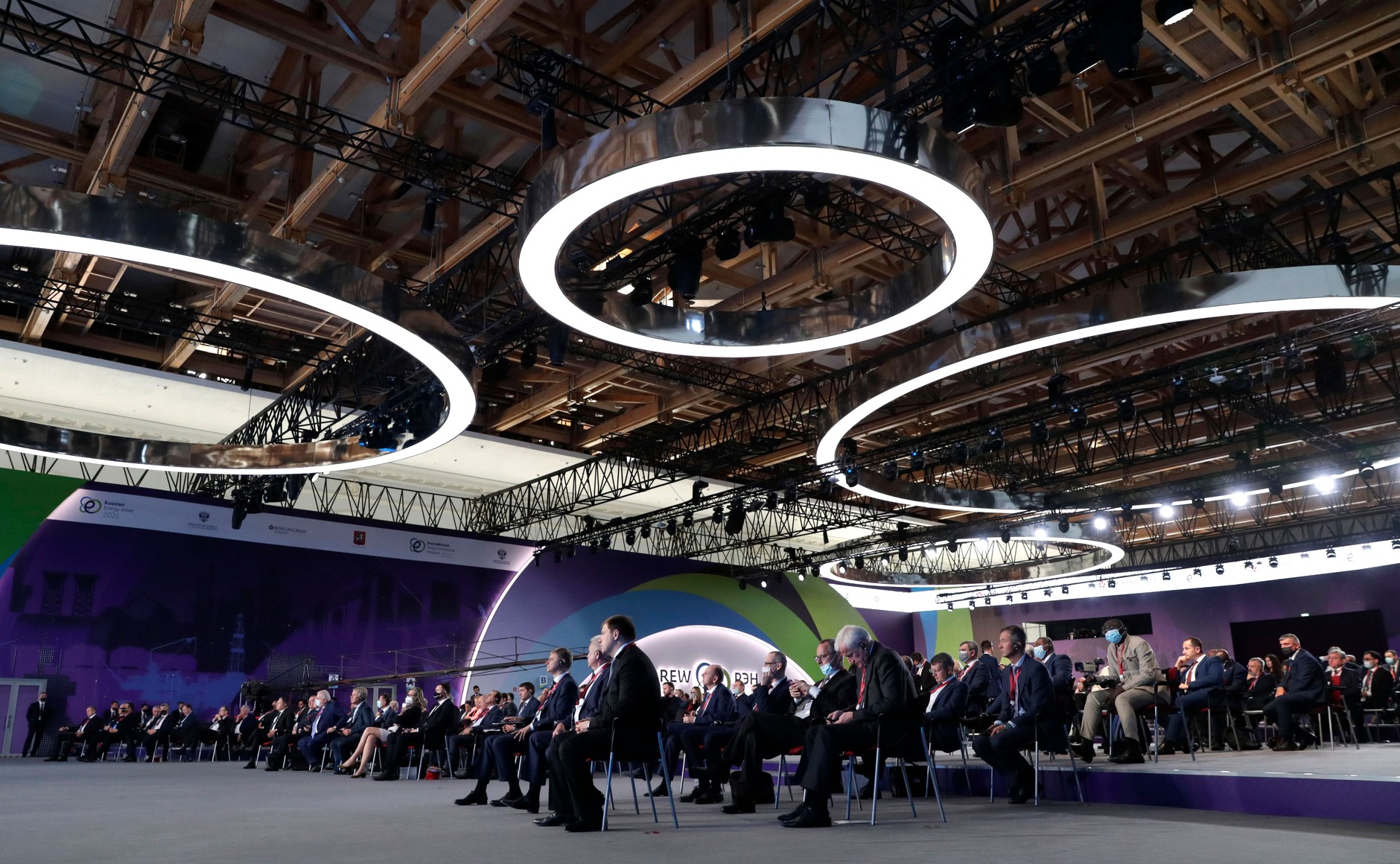 Hadley Gamble: I just spent two weeks in quarantine so I could be here. Walk us though the climate change commitments that you can make today for Russia. Because at the end of the day, many people say this is a country that is not doing enough, that they are not doing as much as Europe in terms of trying to get to net zero. I fact, Greta Thunberg recently put it as “blah, blah, blah, blah.” How do you respond to that? Vladimir Putin: Let us look at what is going on without any political clichés. You mentioned Russia's willingness to increase energy supplies to Europe and the rest of the world. So, do you want us to increase them or not? If you do, then we need to produce it. Or do you not? Electricity does not come from a power outlet; we need a primary source of energy to produce it in order to meet the growing needs of Russia and the global energy market. Now let us face reality. We have increased not only gas supplies, but we have also increased coal supplies to the global market by 8 percent in both directions – to the East and to the West – and to Europe as well. Production increased by about 8.5 percent, and our exports grew by 8 percent. Now let us take a look at our energy balance: nuclear power accounts for 26 percent, hydropower 20 percent, and gas 40 percent. The hydrocarbon balance at 86 percent is a very low number. The United States, with its 77 percent, is the second best in this regard. Germany’s net energy balance runs at 64 percent. It is even lower in other countries. We have the world’s cleanest hydrocarbon energy balance today, one of the cleanest. And we continue to work to make it zero, as I said, by 2060. Just like some other countries have set themselves the same goal. And we are ready to do so. We have drafted corresponding plans and provided tax breaks for the companies and industries that will engage in emission cuts, including under the renewable sources and hydrogen energy programme. We have an entire programme covering tax incentives. I believe that Russia has not only proclaimed it, but, I want to emphasise this, is following this path. We understand that disregard for the preservation of the environment can be disastrous not only for all humankind and for the entire world. This is what we started our discussion with today. As I said, warming is happening at a faster pace in Russia and even faster in the Arctic region, where we have entire cities built on the permafrost. This represents a real danger for us, and we are thinking about it and working on it. Hadley Gamble: You mentioned nuclear several times today, just now and in your remarks earlier. Do you believe it is a mistake for governments, for example, for Germany, for other countries, to move away from nuclear energy? Vladimir Putin: I do not want to speak in such terms or accuse anyone like others accuse us – groundlessly and using any pretext, or even without one. Whether it is a mistake or not, is up to the people of Germany to decide. As I have already said, nuclear generation accounts for 21 percent in Russia’s energy mix. If I said otherwise, I was wrong. Nuclear accounts for 21 percent, and hydropower for 26 percent. Germany decided to move away from nuclear energy. If you want to know my opinion on this matter, whether this is a mistake, in my opinion, it does not make any sense, because nuclear power accounts for over 80 percent of energy balance in France, Germany’s neighbour. Does it make any sense to close down nuclear generation in one place while on the other side of the fence, on the neighbouring territory, nuclear is flourishing? I can understand that in a country as big as Russia, with its immense territory – the biggest country in the world – you could say that we will develop nuclear in one part of the country, but there are reasons not to do so in other parts. However, in Europe with its density where everything is crammed together, does this make any sense? Either they have to agree on this policy on a pan-European level, or it will not make any sense. That said, nuclear power accounts for a substantial portion of Germany’s energy mix. I do not remember the exact number. I think it was over 30 percent… (Addressing Director General of State Atomic Energy Corporation Rosatom Alexei Likhachev.) How much did you say? Nuclear accounts for 11 percent in Germany’s energy mix you say? We are talking about nuclear, right? They used to have over 30 percent, but now they have only 11 percent. This is a huge loss in power generating capacity. Of course, they must replace this resource with something. But what? Wind turbines? That is tricky. It is how you get price hikes. You see, everything must be done softly, calmly, in a balanced and calibrated manner. This is what matters. In addition, professionals must be the ones to take these decisions, not someone else. I have learned recently that there was a ruling by a court in the Netherlands on Shell. Quite a curious ruling at that. Let us see. The court ruled that Shell mush reduce CO2 emissions by 45 percent. This sets a precedent. If people who lack any professional insight take these decisions, you inevitably get price swings on the global market. In the Middle Ages, when the weather was colder and the climate was harsher, I think it was the Dutch who used frozen rivers and channels to skate from one place to another, and to this day they are quite good at skating. If this carries on, people in Holland will return to this means of transportation, and will put on their skates to visit one another, because it will be too expensive to drive cars, including electric vehicles. People will skate not only to get from point A to point B, but also to warm themselves. The market is telling us that this danger exists. The decisions in this sphere must be made by professionals, of course, in close contact with non-governmental organisations and the public, who must carefully monitor the developments in this area and set the government and energy companies’ mind on taking the right steps in this regard, because the future of humankind depends on whether the planet gets overheated or not. We must act professionally. Many decisions come at random today based on the current political situation. I believe many participants in this process are taking advantage of people's fears about climate change to achieve domestic political goals or, perhaps, to derive certain economic benefits, because low-carbon energy also involves the production of equipment and the creation of infrastructure, and much more. It is necessary for the public and public organisations, including environmental organisations, to be aware of these problems and to be clear-eyed when making final decisions. Hadley Gamble: Speaking about that smooth transition, I want to ask you about this proposed legislation by the EU that would basically ban drilling in the Arctic, oil and gas. Is that in your view a mistake? Because that would certainly hit the Russian economy pretty hard. Vladimir Putin: You see, if such decisions lead to some price spikes, it will not affect us that much, because we will cut production and recoup everything we anticipated through higher prices. To reiterate, there is no need to bring politics into decisions of this nature. These decisions must be made in close cooperation with professionals and experts in this area if we want to strike the right balance between green energy and conventional energy without hurting consumers and people. We have spent a full hour discussing international developments. Who gets hurt by these prices? Ultimately, consumers. Domestic gas prices for residential consumers in Russia, I believe, is $64, in dollar terms, per 1,000 cubic metres, and $64 for industrial consumers. Look, this is a far cry from $1,200 on the European spot market, but the entire economy is in a good rhythm. By the end of this year, we may achieve major GDP growth, in fact, record-breaking. There are issues, to be sure, but the necessary conditions for stable growth and the necessary environment for people to plan their lives are being created. Look at what is happening in Eastern Europe and Western Europe. As I said, rates go up every month there. The situation in Ukraine is the same and gas prices for households have already reached $281 per 1,000 cubic metres at a time where average income is $230 in dollar terms. I may be a little off with my numbers, but things are like that more or less. Are the consumers managing? There is a gap between prices and incomes. In the end, they will ruin the utilities sector and so on. A number of regions in Ukraine have already refused to conclude energy contracts, because they do not have the money to pay for it. You see, if we approach these decisions in an unbalanced manner, we will only create more problems, not resolve them. <…> Hadley Gamble: President Putin, you have said that you are not sure yet whether you will attend COP26. But I want to get a sense from you of how you see the structure for climate change, in terms of policy. Should this be a UN of climate, in terms of all of these nations coming together and setting global policies? Should this be done at a regional level? How should this look in the future, in your view? Vladimir Putin: What is the question about? What international legal mechanisms are functioning and would it be possible to create them? Hadley Gamble: Correct. Vladimir Putin: First, as I have already said, I believe we have very constructive relations with the OPEC countries in oil production and operations in world markets. I think the mechanism that has been created, OPEC Plus, is working very well in the interests of the entire industry and the global energy system. I believe that when output reaches the pre-crisis level, we will be able to continue this work, which includes the green agenda, and we have laid some groundwork in this respect. I mean that we will discuss modern production technology, the use of hydrocarbons, and transitioning to hydrogen and other energy sources, including renewable ones. Second, we have a corresponding association of gas producers. This is the international community of producers. We could also work well in this area. It is the same as the G20. Naturally, this must also become one of the main items for discussion on the UN agenda, especially at those venues that are dealing with climate issues. We should not just say: Oh, we feel so bad. We should also decide what we should do all together to meet the interests of the economy and people and to create the necessary conditions for developing green energy. You know that, say, car producers are being compelled to switch to electric vehicles. Well, this is because automobile transport is a major polluter. We know this. It is common knowledge. But what is the primary source? As I have already said, electricity does not just come out of the socket. In the Federal Republic of Germany, for one, coal generation amounts to 35 percent in the energy balance; 30, 33, 35 percent is coal generation that releases the most CO2 emissions in the air. Make all the electric vehicles you want, but coal generation at power plants will contribute to higher emissions. Meanwhile, the effects of gas are not as bad. But understand, you have to look professionally at all these issues. Hadley Gamble: But in terms of accountability, how do we hold these various governments accountable in terms of that accountability? You have said China fulfils their commitments; you have said you are on track to fulfil yours. How do we hold various governments accountable? Because that is what people want. Vladimir Putin: Governments must be accountable both in their own countries as well as in developing common standards of conduct. But this cannot be achieved unless the decisions are fair, unless no one exploits the common human concerns of climate change for narrow and selfish purposes or seeks competitive advantages under the banner of nature conservation. If we find that kind of platform and develop such transparent approaches to making final decisions, then we will be moving in the right direction on the environmental conservation agenda. If not, then there will be imbalances, as is the case with the European gas market today, and ultimately, the chances of improving the climate will not go up. 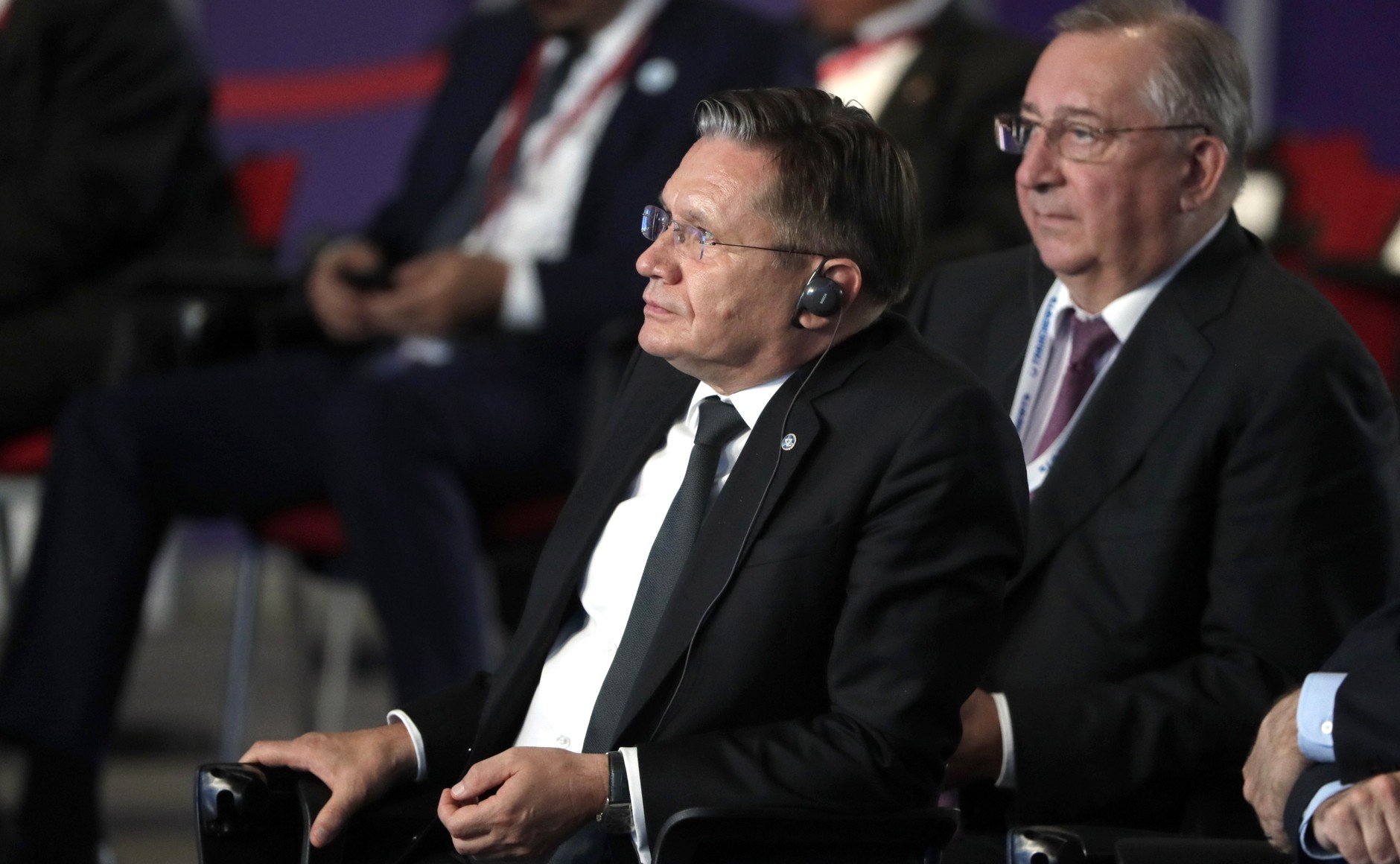 Hadley Gamble: In your view then, have uneven climate change policies, whether it be in Europe or the United States, given the West less leverage in these kinds of conversations, particularly when it comes to OPEC/OPEC Plus decisions? Vladimir Putin: We do have certain concerns about what we are now seeing and hearing in the European Union, about the carbon tax, because if any decisions are taken unilaterally, if we see that they are a tool of unfair competition, I think in that case, the result will be similar to what we have now. Prices will go up, and that will be it. What did the Americans do? They left the European market or cut their sales by half and reduced gas supplies by 14 billion cubic metres, if you calculate in cubic metres. The same will happen again. If ill-conceived decisions are made, we will also react accordingly. You must realise that Russia has competitive advantages due to its large supplies of various hydrocarbons. Yes, we have them. But these are our so-called natural competitive advantages, something to be accepted as a fact. There is nothing you can do about it. It is not a good idea to invent schemes to affect these natural competitive advantages and try to limit them. Better to have an honest, open dialogue. We are ready for this. Hadley Gamble: President Putin, I can’t help but sense a bit of animosity when it comes to your European partners. What could Europe do to fix that situation? Vladimir Putin: We are not displeased at all. We are simply seeing how the discussion is going and where it is leading. I think I have shown convincingly enough that what is happening today in the European energy markets is a man-made result to some extent, a result of short-sighted policy. But these are their problems. Let me repeat once again that we need an honest and sincere dialogue. We meet and work permanently with our partners in Europe, and I have the impression that there is an understanding of the need to develop such a sincere, transparent dialogue. But let us see how this will happen in practice. Hadley Gamble: The Europeans have a trust deficit with Russia, and it is not just because of this current crisis in the gas market. It is also, of course, the massing of 80,000–100,000 Russian troops on the Ukrainian border. At what point do you believe that you will solve these issues with your European partners? Because it requires dialogue. Would you be willing to talk to NATO directly? Vladimir Putin: Yes, we are ready to deal with NATO directly as well. As for our troops, they are on Russian territory. We held the Zapad 2021 military exercises quite recently. This is true. These are large exercises and we conducted them on our territory. Our so-called partners from America also hold such large-scale exercises but they do it thousands of kilometres away from their national territory. After all, we did not come to the suburbs of Washington or New York to conduct drills. They came to us and conduced them at our borders. How should we react to this? Let me repeat that we hold exercises on our national territory. There is nothing surprising in this and we are not going to explain ourselves to anyone over it. In effect, our partners are themselves destroying all prior agreements, including those on confidence-building measures in Europe. This concerns the eastward expansion, as I have already said many times. This also concerns the extreme imbalances in the Baltic states, whose armed forces are not counted anywhere, and so on and so forth. We are not violating anything, not a thing. We did not withdraw from the ABM Treaty or the INF Treaty. We did not walk away from the Open Skies Treaty. It was not us who did it – this was done by our American partners. But to avoid responsibility, they lay the blame on us, while the media blows up the story in the interests of whoever is paying. That is all. Nothing surprising is happening in the world. However, we will do what we deem necessary while protecting our interests and ensuring our security. I assume that… Hadley Gamble: Is that why you have developed a hypersonic missile that flies at Mach 3 and is precision guided? Vladimir Putin: No, Mach 3 or even greater is being developed in the United States. Our system travels at a speed of over Mach 20. These are not just hypersonic, but intercontinental missiles. This is a much more serious weapon than you just said. They have been put on combat duty in Russia. Other countries are developing similar systems. There is nothing unusual about it, and high-tech armies around the world will have such systems soon. There is nothing unusual about it. Please note that, while having such systems and having for the first time in history outperformed our main competitors in high-tech weapons systems, in this case, the United States, we are not abusing this advantage and are not threatening anyone. Furthermore, we are willing to talk about the reduction of offensive arms. And based on the assumption that our US partners are interested, we are willing to keep in mind that we have such systems and, one way or another, take this circumstance into account during the negotiating process. There is no need to build up pressure. All we need to do is stop the idle chatter and sit down for a substantive discussion on this subject. As we can see, the current administration is gradually embarking on this path, and our contacts to this end have been expanding, by the way, since I met with President Biden in Geneva. Hadley Gamble: This isn’t the beginning of an arms race? Vladimir Putin: I must admit that the arms race is already underway, unfortunately. It began after the United States withdrew from the ABM Treaty. Please note what I said to our partners back in 2003: do not do this, please do not withdraw from the ABM Treaty. It is a fundamental thing, a cornerstone of international security. What is missile defence about? It is not just defence, but an attempt to gain strategic advantages by neutralising the nuclear capacity of a potential adversary, that is, us. How are we supposed to respond? I have said it many times before and, if you are interested, I can say it again: we either need to create a similar system with unknown effectiveness which will cost us a fortune or create a different system which will certainly be able to overwhelm missile defence. I said back then that we would create it. Our US partners had the following to say back then: our missile defence system is not directed against you, so you do whatever you want, and we will operate on the assumption that it is not directed against us. That is what we did, so what now? Now, they do not like it. Now they say: oh, now you have this hypersonic weapon. Well, you do not like it, but we did not like it when you withdrew from the ABM Treaty, either. We are not the ones who started this, but we are now ready to keep in mind the objective circumstances and to conduct a constructive dialogue to this end. Hadley Gamble: President Putin, before I let you go, I just want to ask you to walk us through what is happening in Russia today, because at the end of the day, you do have a problem, because you have real incomes that have fallen for five of the last seven years; the average Russian has 11 percent less to spend in terms of their buying power than they did in 2013; and you have got a declining population. Also, of course, 10 percent of your GDP is made up of what is extracted from the Arctic, and, of course, the permafrost is melting. So you do have some serious economic issues and challenges. You also have the structural issues to the economy related to oil and gas, to petrols, that you have talked about so many times in the past. Ronald Reagan said that freedom is prosperity. When you think about that with regards to modern democracy in Russia – in the past you’ve made comments to the effect that Russia was not ready for full democracy – where are we today, in your view, in Russia? Vladimir Putin: To begin with, I do not recall myself ever saying that Russia is not ready for full democracy. It is just that democracy is understood in different ways: freedom of speech, freedom of religion, freedom of organisation, holding mass rallies in the streets, and so on. When various rallies in Europe or the United States are dispersed with rubber bullets and tear gas – is it freedom or not? You made the right gesture now [with your head], it does not look very much like freedom. Freedom and democracy cannot but rely on the culture and traditions of a particular nation. The United States went to Afghanistan ignoring the traditions, culture and history of the Afghan people. What did they get as a result? A tragedy. The danger of terrorism growing and spreading across the region and around the world is enormous and has increased. It is the result of ignoring the realities of that country. This applies to any country, including Russia. If we are talking about the development of democracy in Russia, we must be mindful of its culture and traditions, including the traditions of parliamentarism. Parliamentarism in Russia goes back over 100 years. We now have a new party in the parliament. Same as in the energy sector – and especially here – things should be evolving steadily, calmly and without negative outbursts. You see? Everything must guarantee the interests of the people, and Russia’s political system is also evolving steadily so as to prevent any revolutions. We have reached our limit on revolutions. We need a stable and calm environment that guarantees the rights and interests of the Russian people and stable development of the economy and social sphere. Thankfully, we are on this path today and I hope that we will continue that way. The worries about the death of democracy in Russia have been greatly exaggerated, as Mark Twain famously said in response to rumours about his death. Do not worry about us and better think about yourself and what is going on at your home. I think parliamentarism in Europe has big problems. Look at the traditional parliamentary countries, what is going on there, how power is being formed there, and how many corruption-related issues are haunting them. Take lobbying in the United States. What is lobbying about? What is official lobbying in the United States about? It is legalised corruption, that is what it is, it is clear as day. It is clear to everyone. Everyone keeps quiet. And why are presidents elected indirectly in the United States, which brings to power candidates who received fewer votes – this happened three times, I think, in the history of the United States. I am not going to bring up other comparable things. Do we have flaws? We do, but that does not mean that we have more of them than you do. I think even fewer. Now, about the economy. Yes, we have problems in the economy. Yes, of course, incomes in our country have fallen just like in the rest of the world. We are very worried about this state of affairs and are working to make sure that economic growth and the quality of this growth translate into higher wages. It is a complex process that needs time, a lot of focus, and administrative and financial resources. We have not achieved results for everyone, but we know what is happening and where, where people particularly need state support, so we are doing it in a targeted manner and providing additional income for families with children and for senior citizens. We are targeting the needy cases quite effectively. Indeed, unfortunately, inflation is up at over 7 percent, or even 7.5 percent, I think. This is way above our expectations. But someone among you, one of the participants, said that banks around the world print money like candy wrappers. Our Central Bank does not. I met with the Central Bank Governor yesterday to discuss our financial policy. Our bank does not do so, but we are part of the global system. Food prices have grown by even more than 7.5 percent in our country, but we are aware of that. How much have food prices grown around the world? For various reasons, including in the wake of developments on the global energy markets. Indeed, we are part of a system. We have our share of problems, and we are working on them. I am confident that, given the support of the Russian people, we will certainly overcome these challenges. 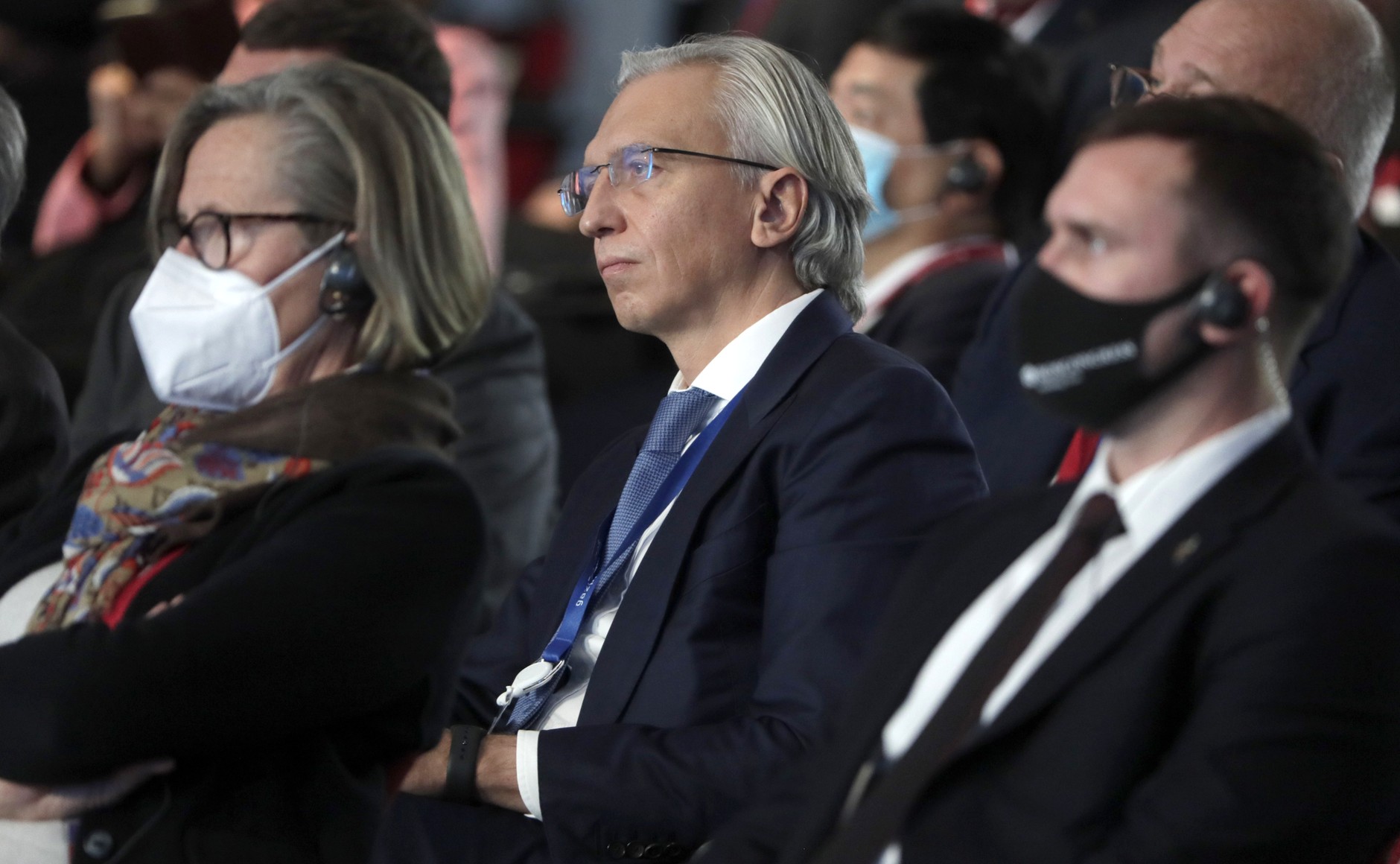 Hadley Gamble: Mr President, at the same time, corruption is still a big problem in Russia. You sit at 129 out of 180 nations in terms of the corruption index. When you came to the presidency, you made a massive clean-up of the Yeltsin-era oligarchs, if you will, of those who took advantage of the breakup of the Soviet Union for ill-gotten gains. But corruption flourishes where there is a disregard for human rights. In your view, with regards to human rights in Russia, is it normal that you have the kind of abuses that we see today, that journalists are labelled as “foreign agents”? Your Nobel Prize winner is worried that he is going to be labelled as a foreign agent. Is that normal to you? Vladimir Putin: I think it is abnormal to persecute journalists. Incidentally, if we take the number of journalists killed, the number of journalists who were affected in the world – look at what is happening in the world and where. Unfortunately, Russia is not the only country where this is happening. Of course, this is a result of the country’s internal development and its democratic processes. This is perfectly obvious. But, you know, it will be difficult for me to find countries where mass media are actually funded from government sources but occupy such an implacable position towards the authorities as in our country… It is even hard for me to imagine… Gazprom funds one of our radio stations: it occupies extreme positions on every issue, and its every other employee has a foreign passport or a permanent residence permit. It is still open, nothing is done, everything is all right. Of course, when journalists cross certain lines they are, of course, entering risky territory and our job is to protect them. Unfortunately, we do not always manage. That is true. Hadley Gamble: Can you assure us that Mr Muratov, your Nobel Prize winner, will not be labelled as a foreign agent? Vladimir Putin: Look, if he does not violate Russian law and there is no cause to designate him as a foreign agent, this is not going to happen. However, if he uses the Nobel prize as a shield to do something that violates Russian law, he would be doing so deliberately to attract attention or out of some other considerations. Regardless of what you may have achieved, everyone must clearly understand: it is necessary to abide by Russian laws. As for foreign agents, I have said this many times and can repeat it: We did not invent this law. The United States adopted this law in the 1930s and has been using it up to now, in part, as regards Russian media. What is this? It appears that it is possible to do this in the United States but impossible in Russia? In both countries this is done with the sole purpose of protecting the internal political processes from external influence. There is no ban on political or any other professional activities of foreign agents. They must simply register themselves as such and that is it. Meanwhile, in the United States, this is punishable almost by criminal prosecution. Therefore, we know what we are doing, and we will do what is in the interests of the Russian Federation. Hadley Gamble: Final question, Mr President, with regards to this specifically. I mean, you are ex-KGB. Is there really a fifth column in Russia led by the likes of Alexei Navalny that you are so worried about? What is it? What is it that worries you so much about those in the opposition that you have to jail them? Vladimir Putin: If you look at street protests, you will see that far from all of their participants are in prison. People are working – those who do not violate applicable laws. As for the defendants you mentioned, they are in detention facilities not for their political activities but for criminal offences, in part, against foreign entrepreneurs operating in Russia. These were repeat offences. Moreover, they were actually forgiven for these violations more than once. But there must be some consequences for those who commit them. There is no reason to abuse the trust of society to achieve economic or other advantages, using political activities for protection. This is what I think happened with the defendant you mentioned. As for the opposition in general, it is out there working. It is alive and well and continues criticising the authorities. Moreover, its criticism, let me repeat, is probably tougher than in other countries. Switch on some Russian media and you will understand everything. They are working; nobody is doing anything to them, everything is all right. Moreover, they are even getting money from Gazprom. Gazprom sells gas to Europe and funds opposition media. If you do not know anything about this, I am asking you to look into it more carefully. Many things will become clear. Hadley Gamble: Well, that certainly has not kept some of our panellists from investing in Russia. Folks, unfortunately I am getting the wrap sign, so I am going to have to leave it there. Twentieth anniversary of Russian Energy Week. Mr President, thank you so much for joining us, panellists as well. Everybody have a great day and enjoy the conference. Vladimir Putin: I would like to thank our moderator who, I believe, has created a certain atmosphere and our colleagues and friends from energy companies for taking part in our work. They did this despite their very busy schedules. They work not only in their own countries but also all over the world, since these are global companies and they have schedules for travelling around the world. I am hoping that those who are with us via videoconference and those in this hall will continue working productively as in previous years despite all the difficulties that we are facing today in the global energy industry. I would like to assure you that on our part, the Government of the Russian Federation and yours truly will do all we can to create for you the necessary conditions to work in Russia. This work will conform to the highest environmental standards while also yielding maximum economic benefits for your companies. We have already done much in previous years. I am confident that we will soon do even more in the interests of the global energy industry and the countries where we work. Thank you for taking part in our work today. Thank you very much. The source of information - http://en.kremlin.ru/events/president/news/66916
__________________
Where should they dig the Very Deep Pit? Piglet said that the best place would be somewhere where a Heffalump was, just before he fell into it, only about a foot farther on. (c) Alan Alexander Miln Last edited by Alex Him; October 23rd, 2021 at 06:58 AM. |
|
|
#9 |
|
Senior Member
|
Meeting with heads of security agencies of CIS countries
Vladimir Putin met, via videoconference, with delegation leaders at the 17th Meeting of Heads of Security Agencies and Intelligence Services from Member-countries of the Commonwealth of Independent States (CIS). October 13, 2021 - 20:10 - The Kremlin, Moscow The meeting was attended by Chief of the Foreign Intelligence Service of the Republic of Azerbaijan Orkhan Sultanov, Chief of the State Security Service of the Republic of Azerbaijan Ali Nagiyev, Director of the National Security Service of the Republic of Armenia Armen Abyazyan, Chairman of the State Security Committee of the Republic of Belarus Ivan Tertel, Chairman of the National Security Committee of the Republic of Kazakhstan Karim Masimov, First Deputy Chairman of the State Committee for National Security of the Kyrgyz Republic Rustam Mamasadykov, Director of the Foreign Intelligence Service of the Russian Federation Sergei Naryshkin, Chairman of the State Committee for National Security of the Republic of Tajikistan Saimumin Yatimov and Deputy Minister of National Security of the Republic of Turkmenistan Guvanch Ovezov. 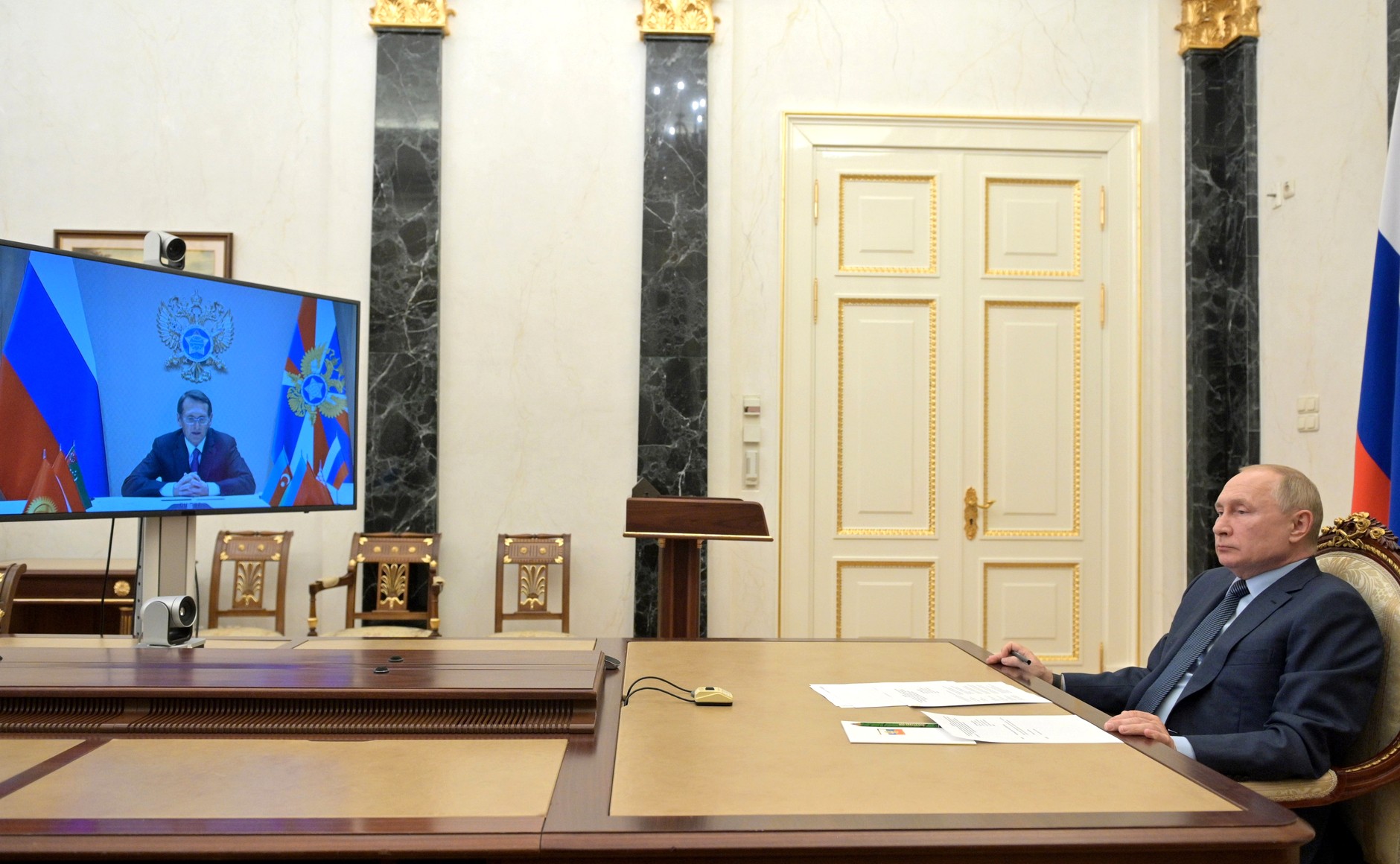 President of Russia Vladimir Putin: Good afternoon, colleagues, meeting participants. I welcome all of you, heads of security and intelligence services of CIS countries, to the capital of Russia. The practice of regular meetings in this format has proved its relevance. This time, during the meeting you will discuss in detail the situation in the region and the world, identify the range of internal and external challenges for our countries and the entire Commonwealth, and determine ways of neutralising potential threats. This year, the CIS turns 30. Throughout this period, our organisation inevitably faced difficult trials in a rapidly changing world. Against the background of many factors that have contributed to uncertainty, it sought to operate according to the principles of equality and mutual consideration of interests. In the number of members, it remains the largest regional association in the post-Soviet space. I would like to emphasise that it serves as an authoritative and at times irreplaceable venue for our countries to engage in constructive dialogue and cooperation on many fronts. The nations of the Commonwealth are linked by a common past, centuries-long experience of friendship and productive cooperation, and millions of intertwined human destinies. We in Russia cherish and take pride in this heritage. We understand that by joining efforts and capacities today, in the 21st century the CIS countries are better positioned to achieve its most ambitious goals, acting as partners and allies and working together towards a successful and prosperous future for all of us. Notably, over the past decades, the CIS security and intelligence services have invariably strived to closely coordinate their activities to ensure the security of the state and society and to protect citizens’ rights and freedoms, and have achieved significant progress on this path. Today, your main shared goal continues to be safeguarding the stability, sovereignty and peaceful development of our countries and facilitating the multidimensional integration processes within the CIS. As before, it is important for your agencies to closely monitor the situation and any challenges or risks, to comprehensively analyse and forecast their impact on security in our common region, to understand the implications they may have for the international, political, economic and cultural spheres, and to respond accordingly. Over the past years, we have seen that the close partnership of your agencies has noticeably strengthened security in the Commonwealth and helped to more effectively combat common threats, which include international terrorism, extremism, arms and drug trafficking, transnational crime and illegal migration. However, we must move forward and promote interaction across all key areas. Neutralising potential threats emanating from Afghanistan is of particular importance for CIS security. We are well aware of the fact that developments in that country may have a strong impact on the state of affairs in Central Asia, the South Caucasus and other regions. These issues were discussed in detail at the CSTO and the SCO summits in September. We will, of course, review these issues during the upcoming CIS summit as well. The situation in Afghanistan is quite challenging, as you know. After the withdrawal of US troops, power passed into the hands of the Taliban, who are setting their own rules and regulations. However, a number of ISIS-associated international terrorist groups continue to operate in that country. Militants with experience in waging war in Syria and Iraq are being drawn there. So, it is possible that terrorists might try to destabilise the situation in neighbouring countries, including the CIS countries, and go as far as starting to expand outrightly. In this regard, it is important to constantly monitor the situation on the Afghan border and to be ready to counteract the militants. To do so, it is important to coordinate the work of security agencies and, if necessary, conduct joint special operations, all the more so as you have a successful track record of working in this area, including as part of the CIS Anti-Terrorism Centre. One of your priorities is to ensure the information security of the Commonwealth countries. The information space and the global web have been rapidly developing in recent years, creating new opportunities for business, education and communication. However, at the same time information technology is increasingly often used for crime – from economic scheming and drug trafficking, to extremist propaganda and terrorist recruiting. All these illegal criminal activities certainly require the special attention of your services. I would like to note that integration processes are moving forward in the Commonwealth space. Trade, investment, financial and transportation flows are growing in scale and intensity. We have to understand that this productive work – using our competitive advantages and combining our capacities to meet common challenges – is meeting with a mixed response, sometimes a desire to interfere and trip us up. This is why your services must continue to help protect the economic interests of the CIS states, working together to make the CIS more competitive, to promote dynamic development and uphold the lawful interests of our entrepreneurs and companies. It is also important to further develop information exchange, including analysis and forecasting, upgrade the methods and forms of cooperation and make them more up-to-date and efficient. Of course, the CIS states should continue to jointly train personnel and to regularly upgrade the qualifications of security and intelligence professionals. You have quite a bit of experience with this work and you should make better use of it. It is important not to forget that the future of your services depends on having promising, talented specialists. Colleagues, meeting participants, I am confident that this meeting and, most importantly, the continuous joint efforts of our services will help us address the key tasks of CIS security and stability and promote the peaceful development and prosperity of our countries and peoples. I wish you success in your service and all the best. Thank you for your attention. As we agreed, Mr Naryshkin will now take the floor. Go ahead, please. Director of the Foreign Intelligence Service Sergei Naryshkin: On behalf of all my colleagues, heads of intelligence and special services of the CIS countries, I would like to thank you for this meeting, as well as the support and understanding that our community has been enjoying from you in addressing the objectives our services pursue: identifying and preventing all kinds of external threats to our states and citizens and permanently keeping a close eye on developments in various regions of the world, primarily in the so-called instability zones. I would like to report to you that today we held the 17th regular meeting of the heads of security and intelligence services of our countries. My colleagues and I had quite a detailed conversation, and tomorrow we will continue to discuss topical matters related to our cooperation in the context of new, hybrid threats our countries face, as we know, from a group of Western states. What causes these threats is primarily the fact that the United States and its allies persist in their attempts to export, may I say, their Western values, or totalitarian-liberal values, as I call them, in order to influence our countries into changing our domestic and foreign policy. Of course, we have accumulated a vast amount of evidence showing that the United States coordinates these destructive efforts. At the same time, in the wake of all the dramatic developments in Afghanistan, we do understand that the rejection of force by the United States in its efforts to promote democracy is merely a response to the defeat the United States and its Western coalition suffered in Afghanistan. Of course, we do understand that the rapid pull-out was a heavy blow to the reputation of Washington as the leader of the liberal world. The United States will hardly mask the destructive ramifications of this step on its reputation by holding the Summit for Democracy, scheduled for the end of this year. In the eyes of the Americans, the White House, this initiative is designed to convince the international community that the United States is strong and ready to lead the entire world. According to reports received by our special services from various channels, while still recovering from the defeat and the hasty withdrawal from Afghanistan, which caused Washington serious political and moral damage, the US is not only working on but implementing other destructive plans. This includes efforts to expand American presence in Central Asia, the recent military and political alliance between Great Britain, Australia and the United States, as well as plans nurtured by Washington and its allies to incite instability ahead of elections at various levels to be held in our countries in the coming years. Of course, we could not turn a blind eye to the Afghan context. We do understand the growing threat to all CIS countries that emanates from Afghanistan, which includes terrorism, migration and drug trafficking. This threat is particularly apparent in Central Asian countries. <…> 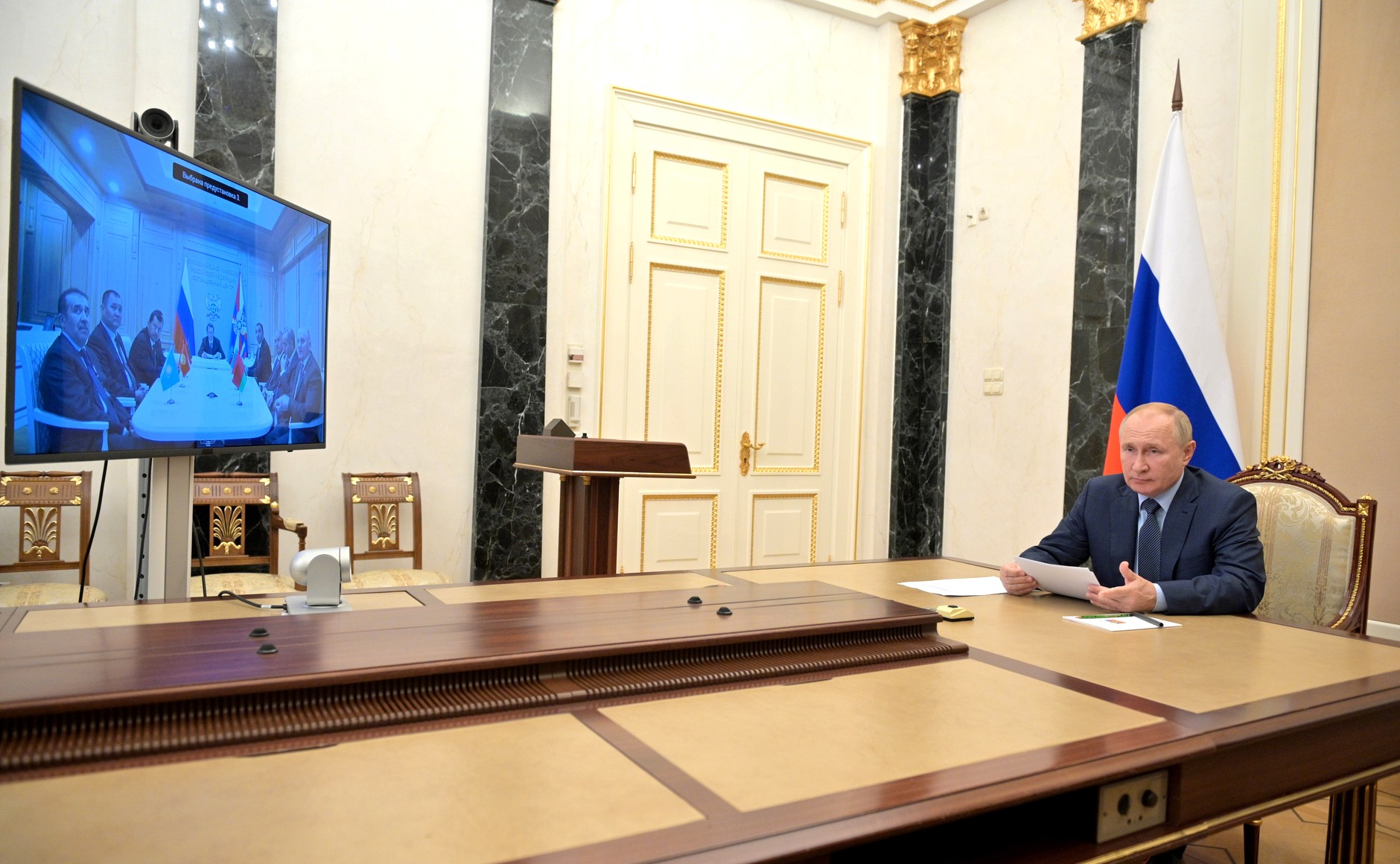 Vladimir Putin: I would like to address my colleagues and remind them once again that all the matters, in which you are involved professionally, are constantly in the limelight at the governmental level, at the level of heads of state. They are constantly within our field of vision, particularly, of course, in connection with the latest developments in Afghanistan. I have already mentioned this in my opening remarks, and our colleagues from Tajikistan and Kazakhstan have just said as much. This is certainly a matter of great concern for us. It goes without saying that this is our common security space, we have transparent borders, and we are not indifferent to what is happening in our countries and the CIS. This is why we will constantly focus on this at the top governmental level as well. You are aware that the defence ministries are also engaged in cooperation, both informational and in terms of arms and equipment deliveries and personnel training. But this work cannot be effective unless you provide information support and secret service assistance. A lot depends on your efforts to ensure the security of our countries and peoples. I assure you that all of us are expecting an efficient performance from you. We are relying on you and your personnel. I would like to thank you for coming to Moscow and for the fact that you are pooling your efforts. It is only along this path, by merging our potentials, that we can achieve the results we all need. Thank you very much once again. I wish you productive work both tonight and during the day tomorrow. Please convey my best wishes and regards to the heads of state and government of your countries. Thank you very much. The source of information - http://en.kremlin.ru/events/president/news/66919 Interview with CNBC After the plenary session of the Russian Energy Week forum, Vladimir Putin gave an interview to Hadley Gamble, Anchor at CNBC, an American television network. October 14, 2021 - 02:00 - Moscow Hadley Gamble: Mr President, thank you again for having us at the Russian Energy Week. President of Russia Vladimir Putin: The same to you. Hadley Gamble: Mr President, I want to ask you a little bit more specifically about your succession plans. Every good CEO has one. When you think about this with regard to Russia, do you really want to be president when you are 84 years old? Vladimir Putin: No, I prefer not to answer questions of this kind. This is what I usually say in response. There is quite some time left before the next election, and discussing this topic has a destabilising effect. We need calm and stability so that all government agencies and structures work in all confidence, and do not worry about the future. It is true that under the Constitution I can do this, and run for another term, but there has been no decision to this effect so far. Hadley Gamble: Mr President, I want to ask you specifically about the Middle East. You mentioned several times your relationship with Saudi Arabia, of course, via OPEC+. How do you see the region today? Are you worried about what is happening there with the departure of the United States? Vladimir Putin: I think that the Middle East is a very promising region of the world. What I currently see both in the United Arab Emirates and in Saudi Arabia is that the leaders of these countries are proactive in their efforts to diversify their economies. They are thinking about the future, and I am certain that they will achieve results because they are steadfast in their commitment. As for our efforts to stabilise the global energy market, it is true that we have debates that can get quite heated, and each of us defends their positions, but in the end, we always arrive at balanced decisions that are acceptable to all the sides, at least this has been the case so far. Our partners, despite the fact that they are leaders in oil production and sales, are still making plans on green energy. At first glance, this may seem strange, but this is what is really happening. We are discussing with them opportunities for investing heavily in new technologies and energy sources. I think that this is a very promising sphere for future cooperation. Hadley Gamble: So, Mr Novak, a few months ago, suggested that we were going to see oil contracts denominated in something other than US dollars. Possibly, in crypto. When do you think that we will see that happen? Vladimir Putin: Contracts in crypto? This seems premature. Of course, cryptocurrency can be used in settlements, but it is very unstable. It is fine for transferring funds from one place to another, but I think it would be premature to use it in trading, especially when dealing with energy resources. So far cryptocurrency has lacked any backing. It is legitimate and can be used in settlements, no doubt about that, but it is too early to use it for trading in oil or other raw materials and energy sources. However, things change, and everything has the right to exist. We will see how this will go from here. Maybe crypto will one day be used to store value. But we see how the market fluctuates, so it seems too early for that now. Hadley Gamble: Does that mean, though, in your view with regards to crypto, people like Elon Musk, the value of what they hold is worthless? Vladimir Putin: This is not what I said. Of course, there is value there. However, can it be used in settlements when buying and selling oil? This is what I am talking about. In order to mine crypto, you need a lot of energy, and for that people have to use traditional sources of energy, primarily hydrocarbons. Hadley Gamble: I know via your Central Bank Governor, our conversation this summer, she essentially said to me that you are moving away from US dollar-denominated assets when it comes to trying to diversify away from the US dollar. Is that so sanctions have less of a bite to the Russian economy? Vladimir Putin: I think that the United States is making a big mistake when it uses dollars as a sanctions tool. This is what they are actually doing because they make it impossible to pay for products under sanctions with US dollars. Our clients simply cannot pay us in dollars for the products we deliver to them. What happens next? We have no choice other than to switch to other currencies in our settlements. This is the first point I wanted to make. The second is, when other countries that rely on the dollar as their reserve currency or in settlements see what is going on, they start worrying that the dollar may be used against them in a similar fashion. They also start scaling down their dollar assets and do not use the dollar in their settlements as actively as they used to. As a result, even the closest US partners and allies are reducing the share of the dollar in their reserves, which is a statistical fact. Of course, we are doing this, by reducing the share of the US dollar in our reserves, as well as in settlements. This is not always possible, but we try to switch to national currencies. In this regard we can say that the United States is cutting the branch it is sitting on, because the status of an international reserve currency is a major competitive advantage, but through their actions they are undermining it, undermining their strategic economic interests for the sake of momentary political gain. Hadley Gamble: Do you see the US dollar devolving into a currency that is not the world’s reserve currency? Do you believe that could happen? Vladimir Putin: It is undermining its standing as a global reserve currency. The volume of dollar-denominated settlements is declining, and countries are scaling down their dollar reserves. That said, we are not interested in giving up on dollar settlements altogether. So far, we were quite satisfied with using dollars in settlements for energy resources, primarily oil. However, if the US authorities persist in their policy as I have described it, we will have no other choice. The US will have undermined confidence in the dollar by its own actions. Besides, the US sovereign debt is growing. Congress has once again increased the sovereign debt ceiling. What does this mean? Money printing. What would be the result? Higher inflation. This is probably the first time inflation in the United States is growing at a speed that has not been seen for quite a while. These are economic reasons that undermine confidence in a currency. Everyone is asking themselves: what next? What will the US economic authorities do with this huge debt? What will they do? Manipulate the dollar and depreciate its value? What will they do with the debt? These are, of course, fundamental issues, and they do not have anything to do with us. It is up to the Federal Reserve and the US Administration with its economic policy. The United States is the world’s biggest economy, a high-technology one, setting the tone for the global economy in its entirety, and it is our objective interest to avoid any turmoil and major fluctuations, but this does not depend on us. We are keeping a close eye on these developments, analysing them and taking the necessary steps to ensure our long-term interests. Hadley Gamble: A question for you on China. President Xi says you are his best friend. Does it concern you what you are seeing from the United States with regards to the AUKUS agreement? Do you think that that is heightening tension with China creating the potential for a new Cold War? Vladimir Putin: I also believe that President Xi Jinping is my friend. We have worked together for many years and have achieved good results on both the political and economic tracks. I believe that this benefits the people of China and Russia, and gives more balance and a sense of stability in international affairs. Creating blocks like the one you have mentioned, formed by the United States, Great Britain and Australia, undermines regional stability. I believe that being friends with someone is a good thing, but being friends against someone is bad. This undermines the stability we have been discussing and that matters so much to us. What has happened has happened, but I do hope that the situation will not follow some unpredictable scenario and would not create additional tension in the region. Hadley Gamble: Before we let you go: in terms of your greatest concerns, you mentioned inflation; we now have a prospect of stagflation. We talked about AUKUS, we talked about tension in the South China Sea, and what has happened in Afghanistan. Now we have the gas crisis. A cornucopia of issues facing the world. What is your greatest concern today? Vladimir Putin: Our greatest concern and the main task is to increase people’s incomes. This is our priority, our number one task, and we are not going to resolve it by simple linear methods. To do this, we must ensure the growth of the economy and a change of its infrastructure. This is a long-term goal. We are not going to use populist methods. It is based on qualitative economic growth that we intend to resolve major social tasks, including an increase in the incomes of the Russian people and the demographic problem, which is our second most important task. It implies a package of social issues: healthcare, education and support for families with children. To resolve all these tasks, we have mapped out certain national development goals. This is a big issue. Therefore, we should resolve the two main problems ‒ improve demography and increase people’s incomes, raise their quality of life on this serious economic foundation I have just mentioned. This is what we are going to do in the near future. Hadley Gamble: What about Mr Navalny? Are you interested in improving his quality of life? Vladimir Putin: The person you mentioned is in a detention facility. Hadley Gamble: Not great quality of life. Vladimir Putin: Not the best conditions on earth but he is not alone. Apart from him, other people have also violated Russian laws. We are not going to put anyone in some exclusive conditions, including those that are covering up their dealings with political activities. I think this answers your question. Hadley Gamble: Mr President, thank you. Vladimir Putin: Thank you. The source of information - http://en.kremlin.ru/events/president/news/66920 Greetings on opening of Cities of Labour Glory Forum Vladimir Putin sent his greetings to the participants, organisers and guests of the Cities of Labour Glory Forum. October 14, 2021 - 11:00 The message reads, in part: “This year we marked the 80th anniversary of the beginning of the Great Patriotic War. The Soviet people rose to defend their Motherland as soon as the war began. Everyone fighting on the front or toiling deep behind the enemy lines spared no effort to bring closer the day of Victory over the enemy. In 2020, the Year of Memory and Glory, a title of honour, City of Labour Glory, was established as a sign of our infinite respect for those who in the harsh conditions worked at evacuated defence plants, as well as factories and mines, on public transport and at hospitals, exceeding production targets and norms and providing the troops with everything they needed. Of course, it is very symbolic that this forum is taking place in Nizhny Novgorod, a city that was among the first to be awarded this title. Gorky, as this city on the Volga River was called during the war, was a major transport hub and an important military hardware and arms manufacturing centre. I am confident that the citizens of the large and small cities carrying this lofty title, City of Labour Glory, will continue to treat with great respect the priceless historical, patriotic and creative legacy of the legendary generation of victors and make their important contribution to developing their native country through their success, achievements and aspirations for the future.” The source of information - http://en.kremlin.ru/events/president/news/66933 Greetings on 25th anniversary of Kulikovo Field State Museum of Military History and Nature Reserve Vladimir Putin congratulated the workforce of the Kulikovo Field State Museum of Military History and Natural Reserve on its 25th anniversary. October 14, 2021 - 12:00 The message reads, in part: “This anniversary is a meaningful event for all those who love their country’s history and take pride in its military glory. Today, your unique museum complex brings together on the ancient land of Tula the architectural monuments and churches erected in honour of the fallen warriors of the legendary Kulikovo Field, archeological and ethnographic collections and rare documents. And of course, great attention is given to organising modern interactive multimedia exhibitions. The entire extensive collection brings to life the heroic deeds of the defenders of Russian land and one of the Motherland’s greatest sons, our national hero Prince Dmitry Donskoy. I would like to single out all the important work done by the museum and reserve employees – from scientific and academic research and search efforts, to educational, outreach and patriotic projects, including those for children, they safeguard our invaluable cultural, historical and intellectual heritage. It is thanks to your selfless devotion and sincere love for your chosen profession that the Kulikovo Field State Museum of Military History and Nature Reserve continues to draw numerous visitors.” The source of information - http://en.kremlin.ru/events/president/news/66932 Third Eurasian Women’s Forum Vladimir Putin took part in the opening of the third Eurasian Women’s Forum. The main theme of the forum is Women: A Global Mission in a New Reality. October 14, 2021 - 12:40 - St Petersburg President of Russia Vladimir Putin: Friends, I am sincerely happy to welcome all of you to St Petersburg and to the third Eurasian Women’s Forum. As you know, it was held for the first time in 2015, and has confidently gained a place among reputable international platforms, which can be confirmed by the current forum’s representation. It has brought together women leaders: politicians, entrepreneurs and public activists from over 100 countries, which is incredible in today’s conditions. The Forum’s cooperation and interaction with such associations as BRICS, APEC, UNIDO, and W20 is growing. 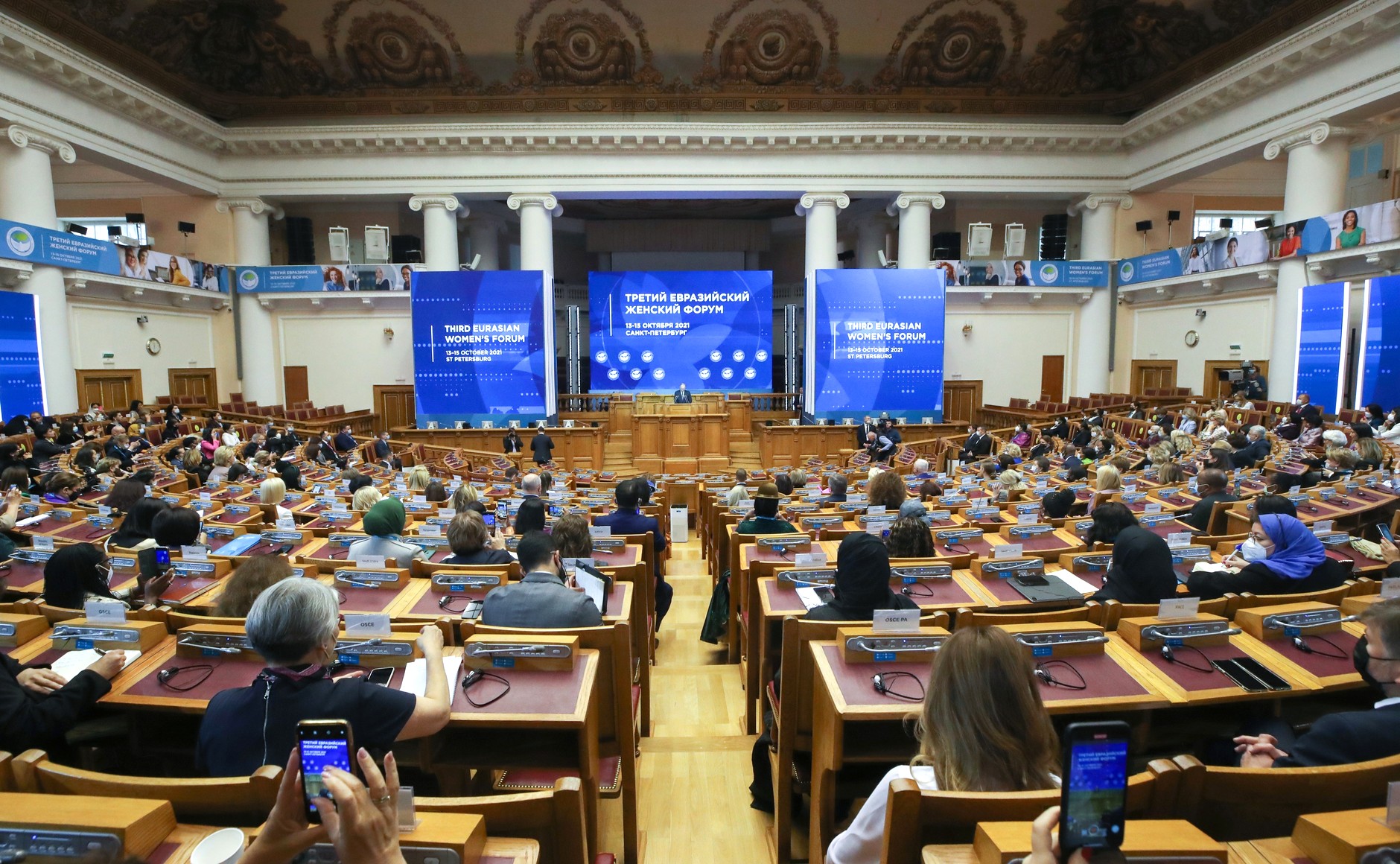 The modern dynamically changing world sets new goals for society and states. And, of course, women are playing an increasingly significant role in addressing them. These include sustainable economic development, the global climate agenda, ecology and environment protection, as well as new approaches to education as a process that accompanies people throughout their lives, and the ambition to build it on more fair and balanced principles of the social support system. Of course, the coronavirus pandemic and overcoming its consequences have also become a global challenge. All over the world, women doctors and medical workers have come to the forefront of the fight against the pandemic, taking on the hardest work. Millions of people, without any exaggeration millions of people all over the world are grateful to them for saving their lives. Women, with their keen understanding of the value of life, compassion and mercy, have always had a special mission in healthcare. I am confident that it will remain the same in the future, including in determining further actions in the healthcare sector, pharmaceutics, and protection of health in general, with due account of the lessons of the pandemic. Women’s activities in searching for responses to global and local challenges, as well as their active involvement in all spheres of life serve common interests and help to discover the human potential at its best. Today it seems to be the key factor for progress and advancement, as well as specific changes for the better all over the world: within separate countries and, as I have already said, on the entire planet. 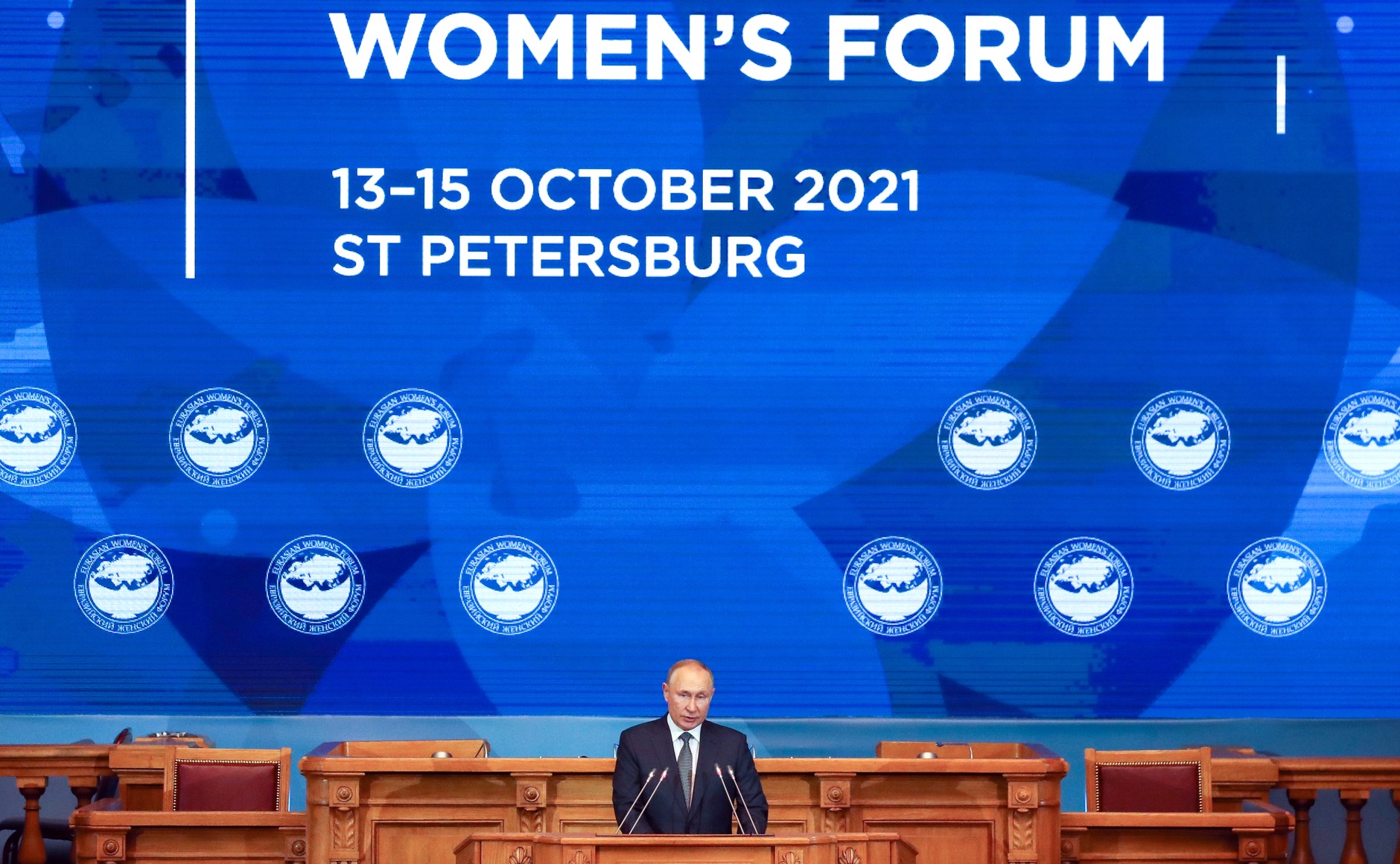 Friends, Traditional family values are of great importance for our country, for the entire Russian society. Oddly enough, this often causes controversy, and we are even criticised in this regard. Of course, with the absolute need to ensure the freedoms of every person, including the freedom of self-identification, nevertheless, I am still convinced that traditional family values are the most important moral support and a guarantee of successful development both in the present and in the future. Women have a special role in Russian families. The generosity with which they devote themselves to raising children and caring for their loved ones deserves the sincerest gratitude. But at the same time, I would say Russia traditionally respects the business and professional skills of women. And the fact that they are excellent specialists in various industries, responsible and reliable colleagues does not need any additional proof for our citizens. Once again: the things that are almost breakthroughs for some countries, accompanied by loud campaigns about the rights and freedoms of women, are a long-standing practice and tradition for our country. And we are proud of such modern features of our society. By the way, we – often deservedly – critically assess the Soviet period of our modern history, but it must be admitted that, largely due to the Soviet period, such an atmosphere has developed in society in relation to women. In Russia, we can see a widespread presence of women in government bodies and outstanding stories of their business success. They make up the majority in the fast-growing creative industry sector – more than 58 percent, as well as in Russian science, where the share of women is almost 40 percent among researchers. It is quite obvious that in today’s conditions a woman should not have to choose whether she will devote herself to her children and family or focus on her professional ambitions. We proceed precisely from this understanding. That is why Russia constantly creates all the conditions so that after the birth of a child, a woman can start or resume her professional career at any time, achieve success and develop in the job that she likes. 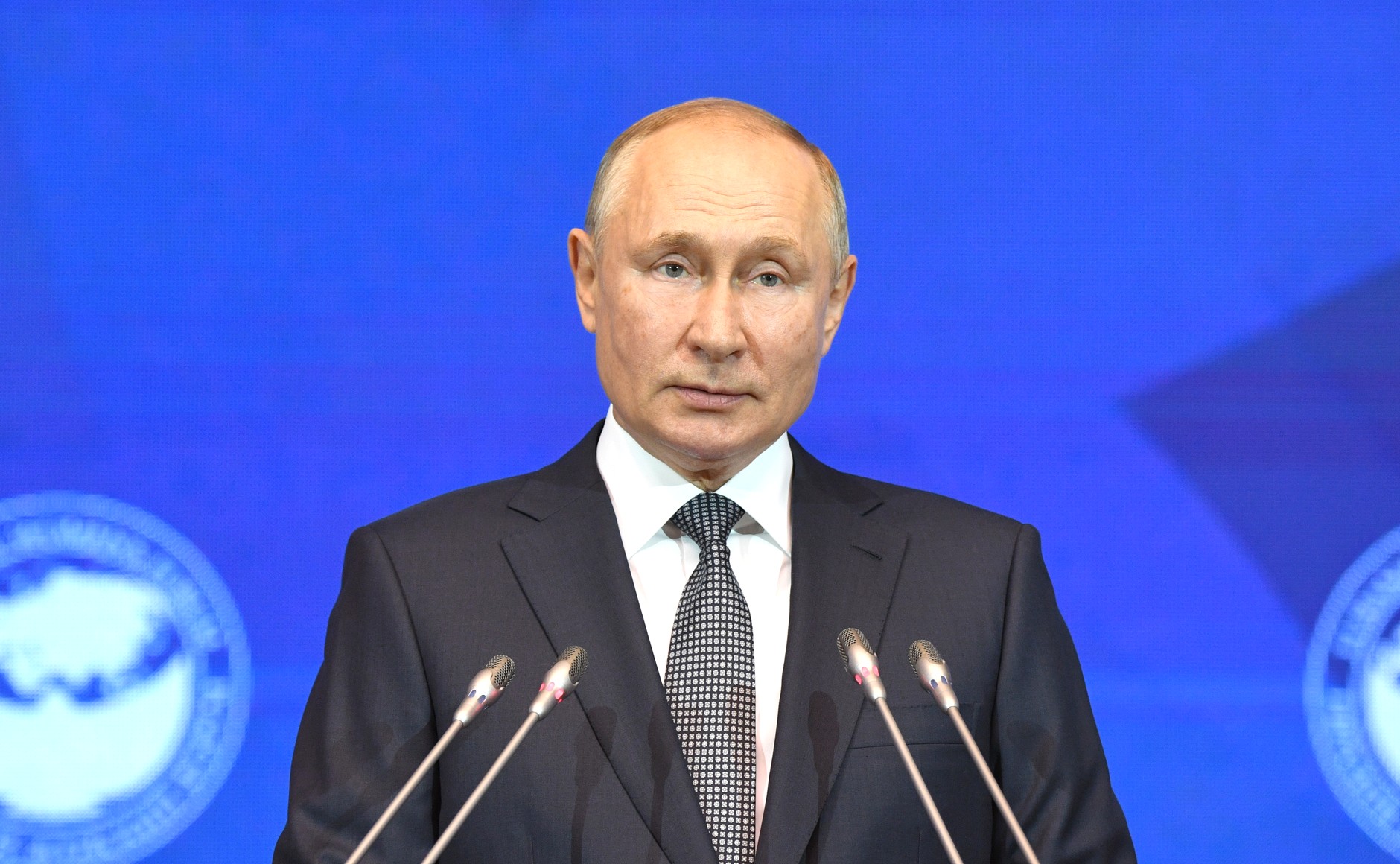 We have done a lot to increase the availability of kindergartens and nurseries. Of course, we should perhaps do even more to improve this situation. We will carry on because it is important to solve the problem of every family. Moreover, there are programmes of professional training, and advanced training, which can be accessed by women on maternity leave. We also support families with children who have financial difficulties. Let me remind you that this year a number of new decisions have been adopted, such as assistance to pregnant women and payments to single parents, which, as a rule, are women, mothers in most cases, and there is no point in pretending otherwise. Over the last few years, we have significantly readjusted the entire system of payments for families with children, made it more effective and intend to continue this work in order to adopt an entire range of understandable and client-friendly social measures to support families until their children finish school. This help and support from the state will make it possible for women to plan their future more confidently. 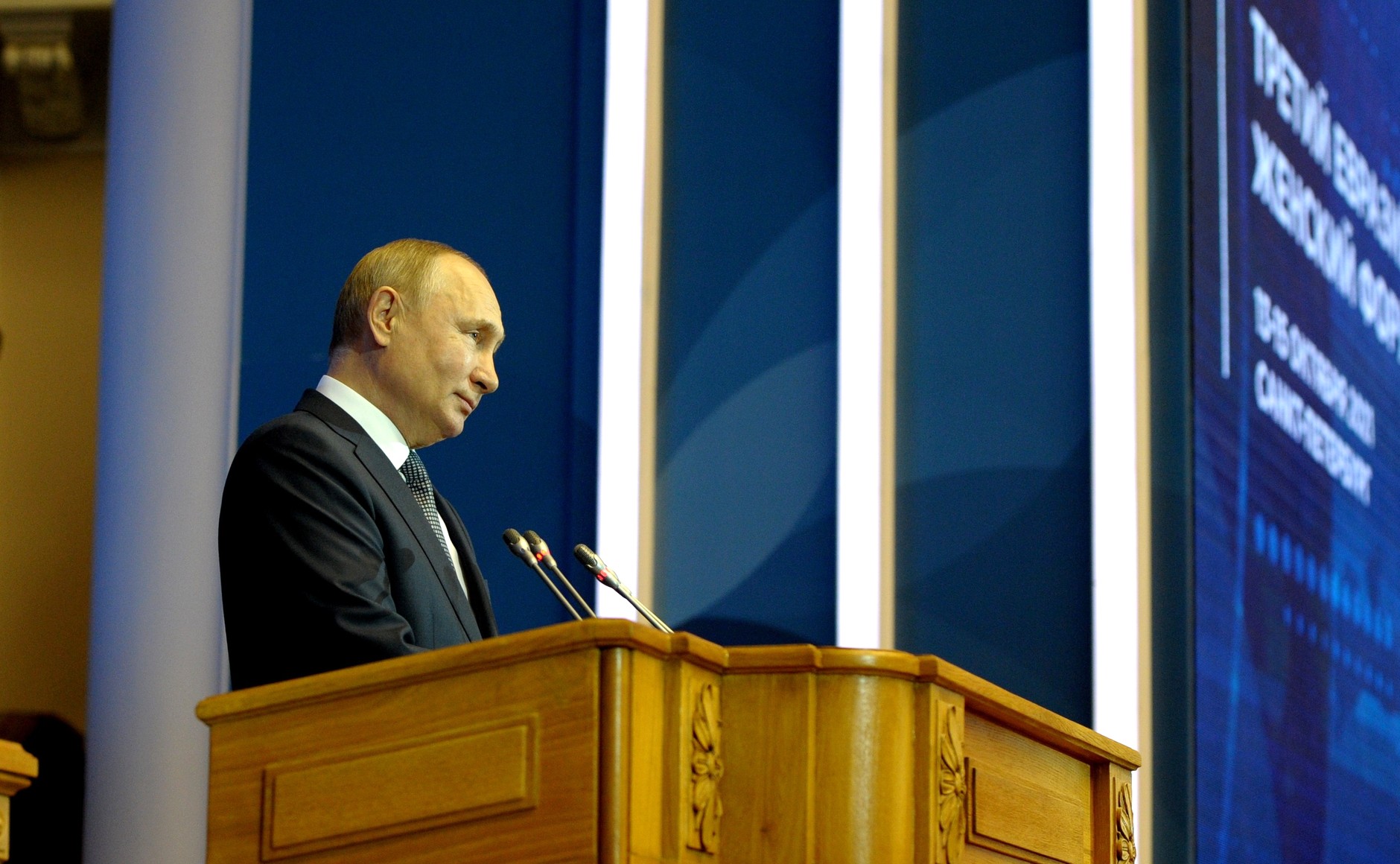 Colleagues, Of course, on the global scale, a lot more should be done for the full implementation of women’s rights, in order to ensure the possibility of their free, non-discriminatory participation in all spheres of life everywhere. Even in economically developed countries – we follow these discussions and see them – even there, imbalance and inequality in career planning and in wages are often recorded. I closely follow these discussions in the so-called developed economies, and there are enough problems there. The Eurasian Women’s Forum, as a platform for international dialogue, new initiatives, and development of common approaches to global problems, makes the realistic achievement of the goals you discuss at this forum closer. And I am sure that your personal example, the example of leaders, women who enjoy their well-deserved recognition in all spheres, inspire a lot of people in various countries, millions of people without exaggeration. I wish you success and fruitful work, as well as happiness, health and joy to you and your families. Thank you for your attention. The source of information - http://en.kremlin.ru/events/president/news/66924 Greetings to 7th World Congress of Compatriots Living Abroad Vladimir Putin sent greetings to participants and guests at the 7th Congress of Compatriots Living Abroad, now underway in Moscow. October 14, 2021 - 15:00 The message reads, in part: “The current forum that brings together delegates from over 100 countries is taking place following the approval of the amendments to the Constitution of the Russian Federation. For example, the Constitution now includes a provision on protecting the rights and interests of compatriots and on preserving the all-Russian cultural identity. These legal norms create conditions for further improving the state policy with regard to those who, as fate had willed it, found themselves outside the Homeland. Support for compatriots and efforts to facilitate the implementation of significant projects in education, enlightenment, culture and social security invariably rank among the most important nationwide priorities. We intend to expand the work in this direction, including within the framework of the relevant governmental commission. The Congress’ theme, Russia and Compatriots in a Changing World, calls for reviewing a wide range of truly topical matters. I hope that, during your discussions, you will voice ideas and initiatives aiming to search for the most effective ways of realising the constructive potential of the multi-million-strong Russian World. I would like to sincerely thank you for your active efforts to promote the Russian language and Russian culture, to preserve Russian traditions and a rich spiritual legacy. We will continue to provide you with all-round assistance and support in the future.” The source of information - http://en.kremlin.ru/events/president/news/66939
__________________
Where should they dig the Very Deep Pit? Piglet said that the best place would be somewhere where a Heffalump was, just before he fell into it, only about a foot farther on. (c) Alan Alexander Miln |
|
|
#10 |
|
Senior Member
|
Meeting of Supreme Eurasian Economic Council
Vladimir Putin took part in the meeting of the Supreme Eurasian Economic Council, via videoconference. October 14, 2021 - 15:05 - St Petersburg  Also taking part in the meeting were Prime Minister of Armenia Nikol Pashinyan, President of Belarus Alexander Lukashenko, President of Kazakhstan Kasym Jomart Tokayev, President of Kyrgyzstan Sadyr Japarov, heads of the EAEU observer states – President of Uzbekistan Shavkat Mirziyoyev and President of Cuba Miguel Diaz-Canel Bermudez; Chairman of the Board of the Eurasian Economic Commission Mikhail Myasnikovich, Chairman of the Executive Committee and Executive Secretary of the Commonwealth of Independent States Sergei Lebedev, and Chairman of the Board of the Eurasian Development Bank Nikolai Podguzov. The participants discussed current issues related to the activities of the Eurasian Economic Union, including joint efforts to counteract the spread of the coronavirus and to address the socioeconomic consequences of the pandemic, energy cooperation and the formation of unified oil and gas markets, and collaboration on the climate and environment agenda. The participants in the meeting approved a series of documents, including a statement On Economic Cooperation between the Member States of the Eurasian Economic Union within the Framework of the Climate Agenda and a resolution On Transitioning to the Second Stage in the Formation of Unified Markets of Oil and Petroleum Products in the Eurasian Economic Union. President of Russia Vladimir Putin: Friends, colleagues, Like all of you, I would like to express satisfaction with the fact that despite certain COVID-related challenges, our integration efforts continue, and continue to deepen. The remarks of our colleagues confirm that all of us are interested in seeing the Eurasian Economic Union make further progress and that we cooperate closely and achieve results in the most diverse areas, primarily trade and the economy. An important joint project titled Strategic Directions in the Development of Economic Integration to 2025, which we approved at the end of last year, is being implemented successfully. Economic growth resumed in almost all EAEU economies. In particular, Russia’s GDP grew by 4.8 percent in the first six months of 2021. Industrial output in the entire EAEU increased by 4.4 percent and agricultural output by 0.6 percent. Mutual trade is doing quite well, with trade between the EAEU members increasing by almost a third (31.9 percent) in January-June, and EAEU foreign trade with third countries up by a quarter. These numbers were achieved despite the fact that some EAEU member states are being subjected – we are aware of this and spoke about it before – to illegitimate sanctions imposed by some countries. It is no secret that these sanctions are being used not only as a tool of unfair competition, but also as a means to undermine legitimate governments by creating social, economic and political problems or exacerbating existing problems, which any country has in ample supply. 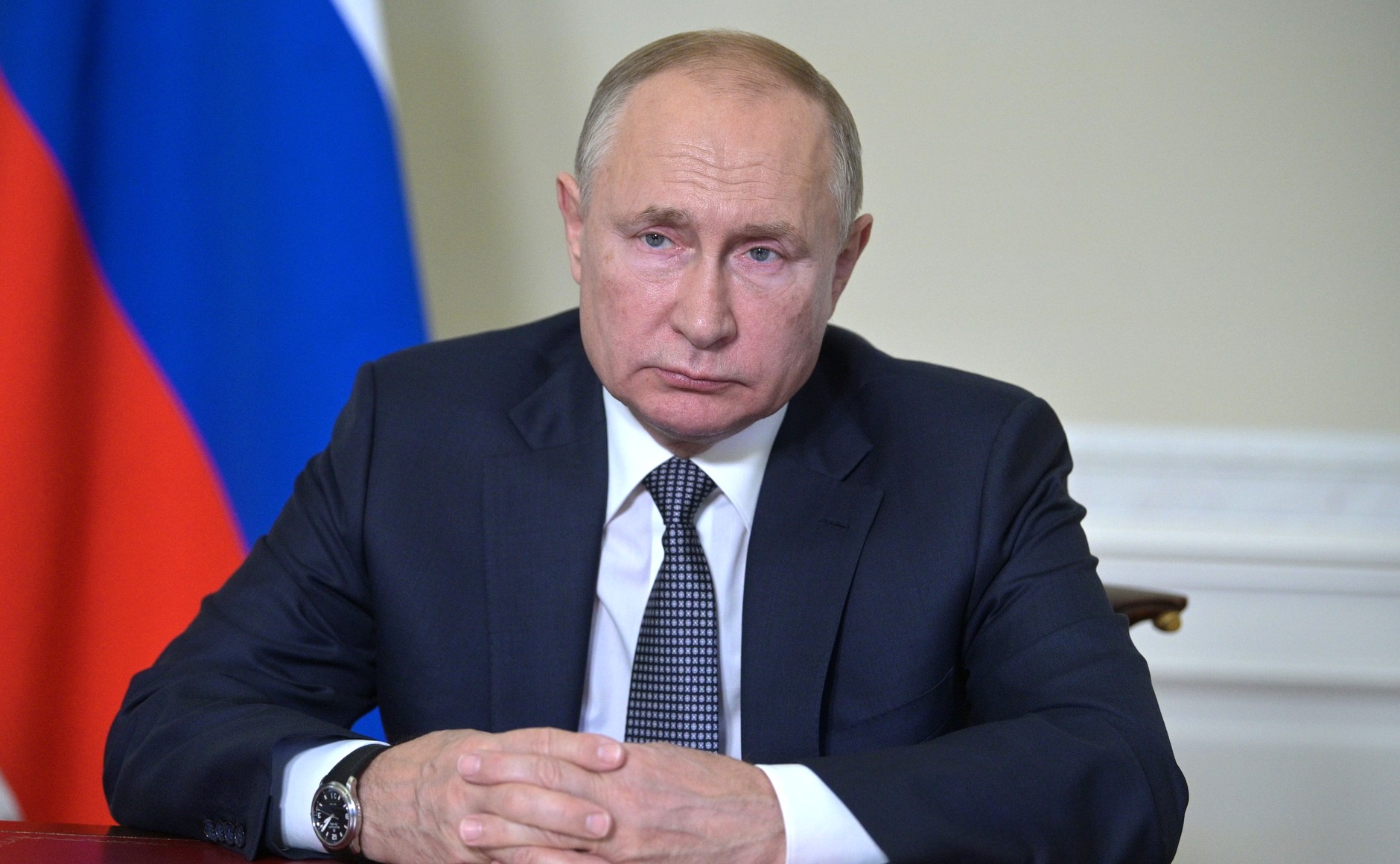 We believe such unfavourable external conditions should drive closer cooperation within our union. The importance of close interaction is becoming even more important as we are getting ready to switch to national currencies and cut the use of the dollar and euro in mutual settlements, to make arrangements for import substitution and development of advanced high-tech industries, and to provide people with food. Incidentally, Russia has gained vast experience in supporting economic growth under Western restrictions, and we are willing to share it with our EAEU partners. Implementing major economic projects is easier and faster if done as a collaborative effort. I cannot but agree with our chairman [Kassym-Jomart Tokayev] that there is a shortage of such projects. Of course, we need to look for them and implement them, to introduce innovative technologies and to meet the growing demand for high-quality goods and services and thus effectively resist outside pressure. In this context, we believe it is important for the EAEU to continue to work systematically to build up cooperation in the manufacturing industry and agriculture and to ensure maximum freedom for the movement of goods, services, capital and labour in order to form a truly full-fledged and steady common market. Importantly, much has been accomplished in these areas. Recently, the EAEU member states have made significant progress in unifying regulations governing retail trade in goods. A process for harmonising national consumer protection regulations has been launched, and general principles and approaches to ensuring food security have been approved. A resolution on starting the second phase of forming common EAEU markets for oil and petroleum products was submitted for our approval today. 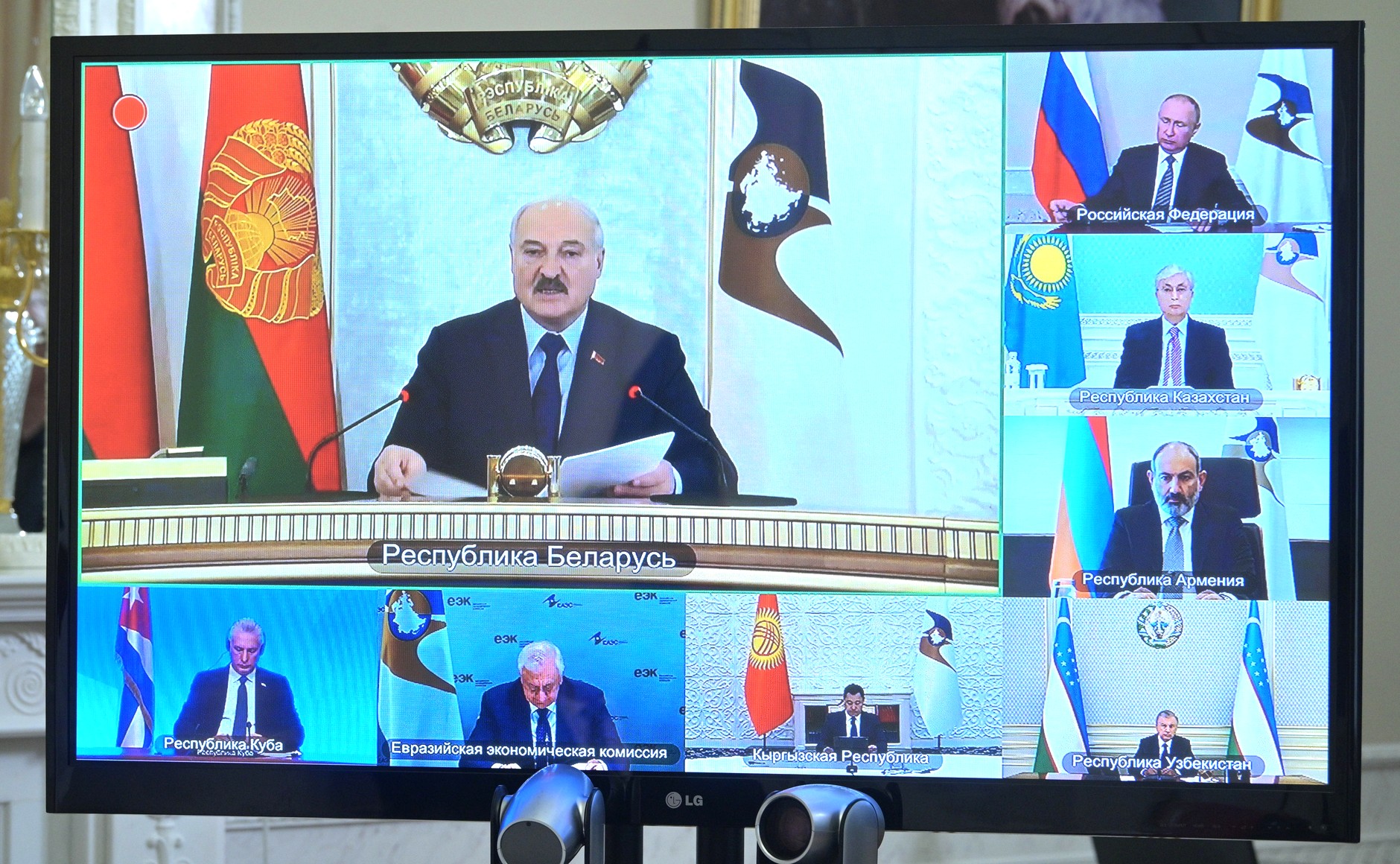 A joint statement on cooperation in the environmental sphere has also been drafted. This document reflects an understanding of the fundamental importance of combating climate change and preserving the environment for all our states. The agenda includes stepping up interaction on environmental issues and, in particular, the development of a harmonised climate regulation system so that companies in our countries can be guided by clear and agreed upon rules concerning environmental protection. Notably, Russia is currently making concerted efforts to reduce its economy’s carbon intensity, to cut greenhouse gas emissions, and to promote green energy. Our proposal is that acting within the EAEU we should start unifying carbon reporting standards, implement mutually beneficial climate projects, and jointly create our own technologies based on the use of carbon-free energy sources including, of course, nuclear energy and hydropower. Digitalisation is another area of interaction between the EAEU states, which, we believe, deserves special attention. We are also discussing this today. Work in this area is gaining momentum, which, of course, meets the interests of both business circles and the people in our countries, since it makes doing business less complicated and increases mobility and availability of services. The launch on July 1 of a joint digital project in the Eurasian space, the unified Work without Borders search system is a case in point. This electronic service provides access to information about vacancies and applicant CVs throughout the Eurasian Union. Digital technologies do much to help adapt our countries’ economies and our lives in general to the circumstances created by the spread of the coronavirus. The mobile app Traveling without COVID-19 developed in Russia helps a lot to restore freedom of movement across the EAEU member states. It is reliable and convenient, and people came to appreciate its value. Our neighbours – Azerbaijan, Moldova, Tajikistan and Uzbekistan – joined this project as well.  Colleagues, I cannot but note that the ongoing integration of the EAEU is getting the attention of a number of foreign countries, which you have already mentioned. Importantly, observer states are increasingly involved in EAEU operations. They can participate in the integration bodies’ activities at all levels and get familiar with the process of drafting integration documents and implementing adopted decisions. A flexible system of relations between the EAEU and other states, as well as integration entities such as the SCO or ASEAN, is being effectively implemented in practice. In July, a free trade agreement with Serbia came into force, and similar agreements are being negotiated with Egypt and Iran. Talks with India have been given the green light. Research groups are studying the feasibility of creating free trade areas with Indonesia and Mongolia. 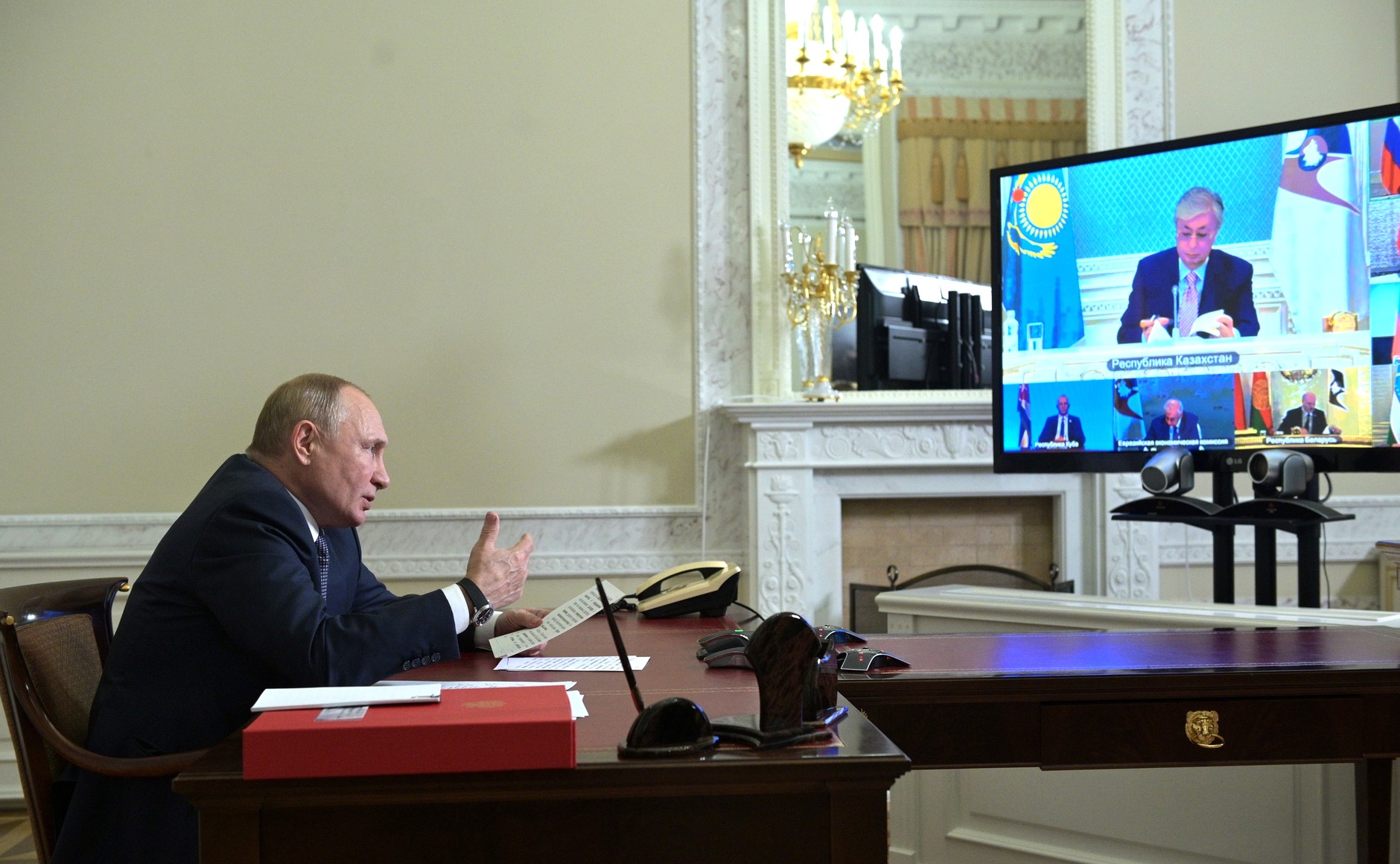 All of that is very useful from the point of view of the potential expansion of Eurasian integration and the implementation of the initiative to create a Greater Eurasian Partnership. Importantly, the more undeniable the EAEU’s real achievements become in the economy, trade and social sphere and, most importantly, in improving the welfare of citizens, the more weight and influence our association obviously will enjoy internationally. In closing, I would like to express my gratitude to our partners from Kazakhstan, who chaired the EAEU this year and, given the challenging circumstances, have in every possible way helped to further advance integration processes. Thank you. The source of information - http://en.kremlin.ru/events/president/news/66927 Address to participants of Second UN Global Sustainable Transport Conference October 14, 2021 - 15:40 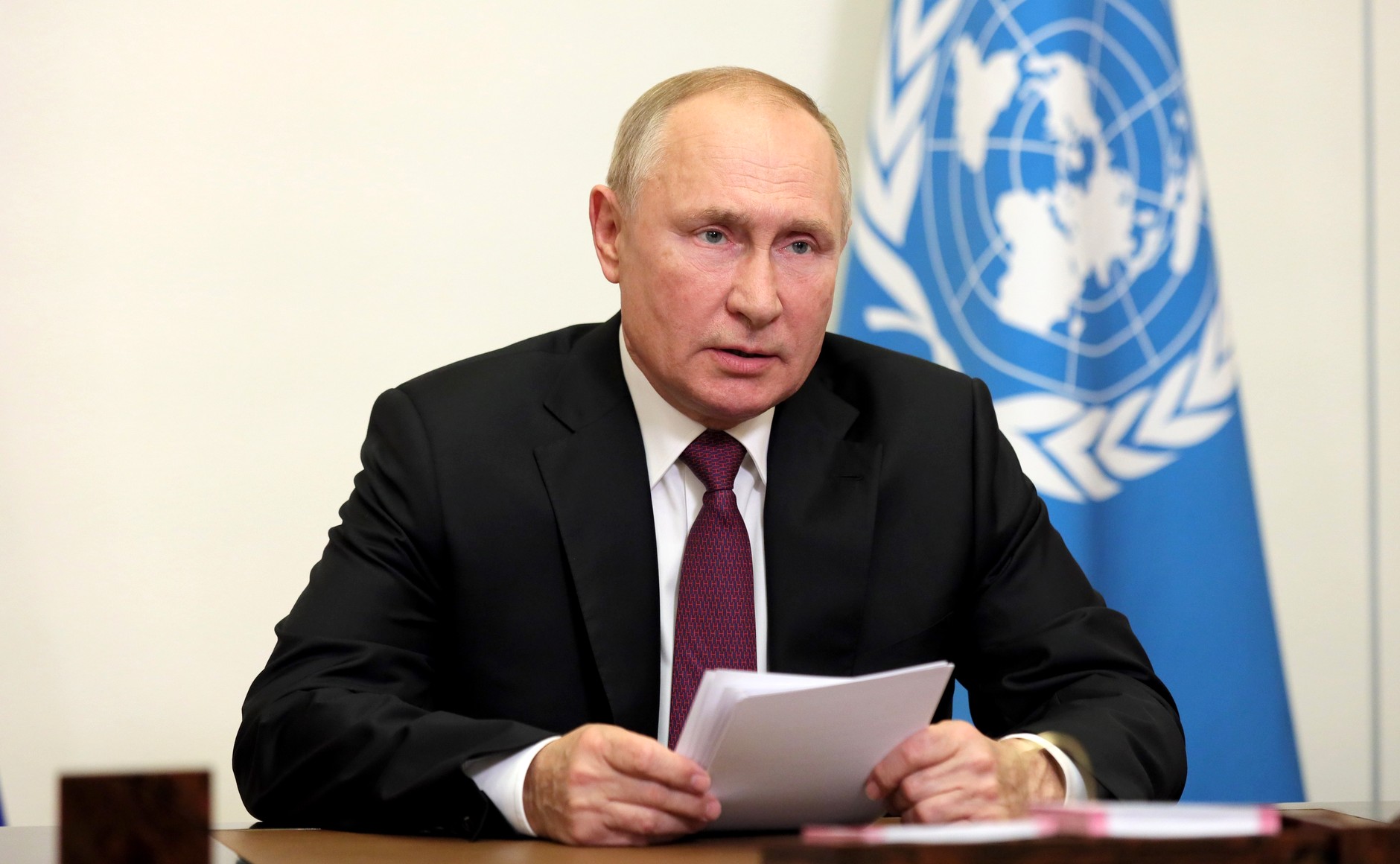 President of Russia Vladimir Putin: President Xi Jinping, Secretary-General Antonio Guterres, ladies and gentlemen, First of all, I would like to thank the PRC President and our Chinese partners for organising the Second UN Global Sustainable Transport Conference. This is the culmination of Secretary-General Guterres’ idea of regularly discussing the development of international transport under UN auspices. It comes at a critical moment given the importance of effectively adapting the transport sector to handling the constantly growing global demand for goods and services, environmental requirements linked with the transition to clean fuel, and the challenges of combating acts of terrorism, smuggling and transport-related crime in general. As of late, this work is being complicated by the COVID-19 pandemic and the introduction of tougher safety and health standards. I believe that everyone agrees that the matters regarding international freight and passenger traffic that have been discussed can and should be addressed and resolved only on the basis of cooperation and interaction between all concerned states. I would like to use this opportunity to inform you that Russia is doing a lot to upgrade and expand its transport infrastructure and to ensure its stability and development. Considering the vast territory of Russia and its challenging climatic conditions, this work calls for a systemic approach and substantial investment. With this in mind, we have adopted an entire series of national programmes for all transport sectors. For example, we are implementing a major national project to develop and expand motorways. At the same time, we prioritise the overhauling and building of new thoroughfares linking Russia’s major industrial centres and economic agglomerations, including those making it possible to directly link Asian markets with European consumers. We are upgrading railway infrastructure, including the trans-Siberian and Baikal-Amur mainlines, so as to expand opportunities for container traffic and to increase the overall capacity of Russia’s trans-continental railways. Russia traditionally devotes special attention to aviation that is often the only link guaranteeing access to remote regions. Therefore, we are doing much to support regional and local air service, primarily for the benefit of the residents of the polar regions and the Far East. In 2021, we will invest $255 million in aviation and subsidise 417 regional domestic routes. Russia is also upgrading the airfield infrastructure of over 60 airports, including aviation facilities of the Far Eastern Federal District. I would like to recall that Russia is successfully transporting cargoes along a unique route – the Northern Sea Route. Its role is continuously growing amid the changing climate, the rapid industrial growth of the Asia-Pacific Region and the need to ship goods from East to West and vice versa along the shortest, most cost-effective routes. We intend to increase freight traffic along the entire 10,500 km Northern Sea Route multiple times over, build infrastructure, including for reliable communications and navigation, and promote port development. We are also working hard to develop the nuclear-powered icebreaking fleet of Russia. In the process, we are inviting all interested partners, including our Chinese friends, to use more actively the opportunities of the Northern Sea Route for expanding trade transactions with Europe. I would like to note that Russia is focused on introducing modern digital technology in transport, expanded use of e-services and artificial intelligence, as well as drones and highly automated transport systems. Starting on January 1, 2022, we will introduce a system of electronic shipping documents in automobile transport, which will allow us to save considerable money, reduce costs and ultimately lower the final price of goods. I consider it our common task to do all we can to make the best use of these new technological opportunities, to benefit people and promote economic growth, international ties and cooperation. One more acute problem that directly concerns the agenda of this conference has to do with the need to ensure transport safety. Over a million people are killed and tens of millions are injured in traffic accidents alone throughout the world every year. I would like to recall that Russia initiated the inclusion of this serious topic in the UN agenda. We urge all interested countries to actively participate in the Russia-proposed high-level General Assembly session on road traffic safety in 2022. In conclusion, I would like to express my confidence that this conference will become an example of true partnership, of open and constructive dialogue, and will make a tangible contribution to ensuring sustainable global development. I wish the participants success and all the best. Thank you for your attention. The source of information - http://en.kremlin.ru/events/president/news/66921 Greetings on opening of White Cane International Charity Festival Vladimir Putin sent greetings to the participants, organisers and guests of the White Cane International Charity Festival. October 14, 2021 - 18:00 The message reads, in part: “Over the past years, your forum has rightfully earned high public respect and recognition, and taken an important place among cultural, socially significant events with an impressive number of participants and guests. I am convinced that such ambitious and relevant initiatives not only help children in need of attention and support to make their cherished dreams come true and to gain confidence in themselves, in their talent and creative abilities, but unite compassionate, caring people, continue the traditions of mercy and charity, and make the world kinder.” The annual festival is timed to coincide with White Cane Safety Day. The white cane is a symbol of the blind. This year the festival is being held for the 12th time. More than 400 children with visual impairments from eight federal districts of the Russian Federation took part in the qualifying rounds. At the festival, children perform on the same stage with famous artists. The source of information - http://en.kremlin.ru/events/president/news/66931 Greetings to Rubezh-2021 Forum Vladimir Putin sent greetings to participants, organisers and guests at the Rubezh-2021 Forum, taking place in the Kaluga Region on October 15–20. October 15, 2021 - 10:00 The message reads, in part: “I would like to greet members of the Russian Popular Front’s Youth Team at the opening ceremony of the Rubezh-2021 Forum. Your influential public organisation is credited with many achievements, including the involvement in nature conservation activities, emergency response efforts, selfless assistance to those in need of care and attention, as well as other no less important voluntary initiatives. Your striving to obtain modern knowledge, to master new competences and your sincere desire to personally contribute to the development of your home cities, regions and the whole of Russia deserve the most profound acclaim. I would like to note that the key task of the Rubezh-2021 Forum is to support talented, energetic and concerned young people from all over the country, to get them into a close-knit and united team of like-minded persons. Many of you will be commended at the current meeting. I am convinced that such high assessment of your work will inspire you to score outstanding achievements in life, studies and creative work, and your voluntary mission will be in high demand.” The source of information - http://en.kremlin.ru/events/president/news/66941 Greetings to Vladimir Dahl State Museum of History of Russian Literature on its centenary Vladimir Putin sent greetings to the staff of the Vladimir Dahl State Museum of the History of Russian Literature on its 100th anniversary. October 15, 2021 - 11:00 The message reads, in part: “We are proud of the names of our outstanding authors, poets, and essay writers, whose remarkable works have enriched the Russian as well as world literature and social thought. Their historical, creative and humanistic legacy carries out a high spiritual and intellectual mission, serves to educate the younger generations, and changes the world for the better. It is valuable that your team carefully preserves and replenishes the museum's collections, which include unique books, archival documents, manuscripts, photographs and video footage. Largely thanks to your dedicated efforts that benefit society, the State Museum of the History of Russian Literature remains a major cultural and exhibition centre, a venue for academic forums, conferences, exhibitions and roundtables. It rightfully enjoys the well-deserved acclaim and attracts visitors from Russian regions as well as foreign states.” The source of information - http://en.kremlin.ru/events/president/news/66942 Meeting of CIS Heads of State Council Vladimir Putin took part, via videoconference, in a meeting of the Heads of State Council of the Commonwealth of Independent States. October 15, 2021 - 13:20 - Novo-Ogaryovo, Moscow Region 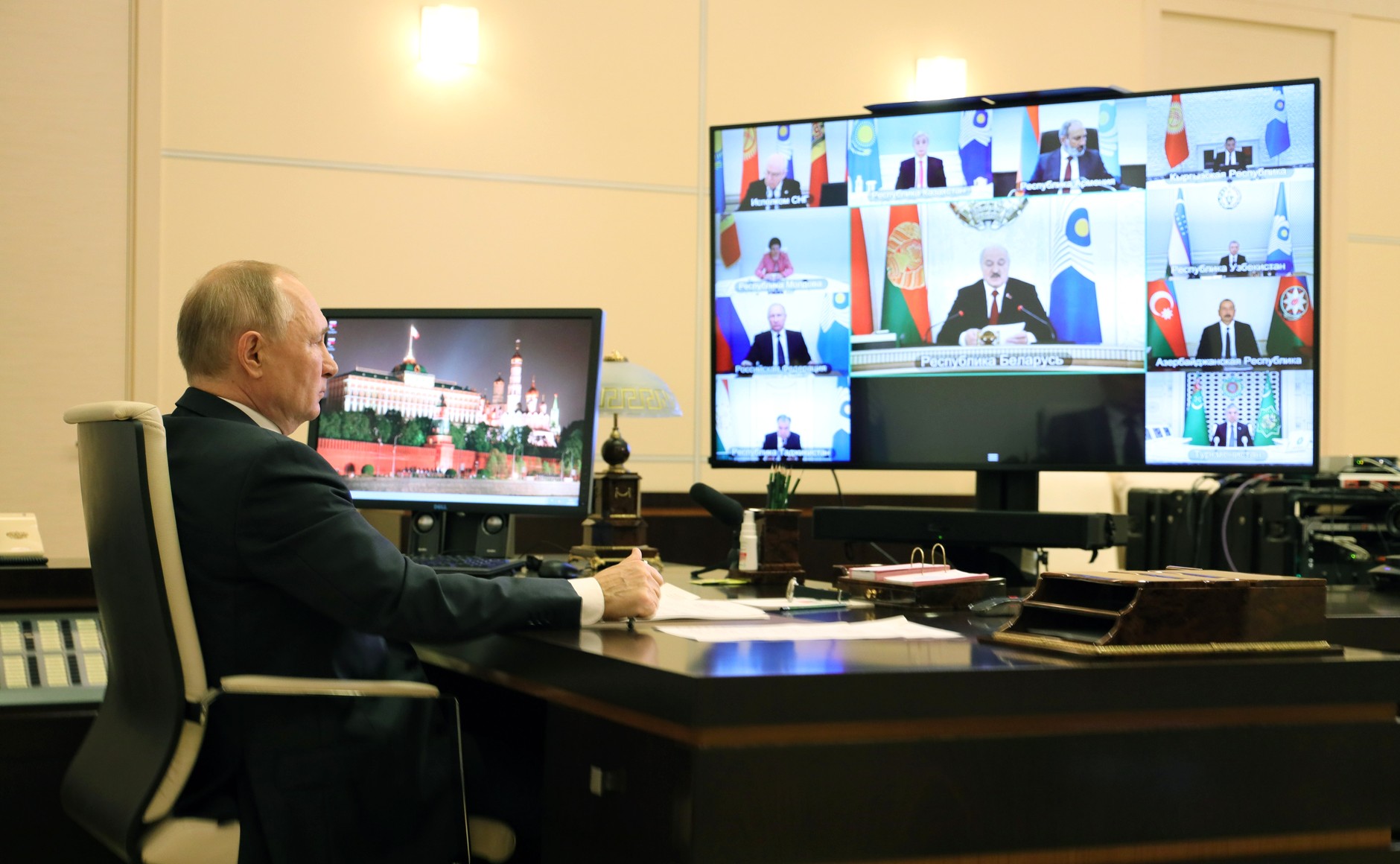 The summit is being held in the year of the 30th anniversary of the CIS (established on December 8, 1991). The CIS leaders summed up the main results of multilateral cooperation within the CIS, reviewed prospects for its further development, and exchanged views on current international and regional matters. The meeting was attended by Prime Minister of the Republic of Armenia Nikol Pashinyan, President of the Republic of Azerbaijan Ilham Aliyev, President of the Republic of Belarus and Chairman of the Heads of State Council of the Commonwealth of Independent States Alexander Lukashenko, President of the Republic of Kazakhstan Kassym-Jomart Tokayev, President of the Kyrgyz Republic Sadyr Japarov, Prime Minister of the Republic of Moldova Natalia Gavrilita, President of the Republic of Tajikistan Emomali Rahmon, President of Turkmenistan and Chairman of the Cabinet of Ministers of Turkmenistan Gurbanguly Berdimuhamedov, and President of the Republic of Uzbekistan Shavkat Mirziyoyev, as well as Chairman of the Executive Committee and Executive Secretary of the Commonwealth of Independent States Sergei Lebedev and Minister of Foreign Affairs of the Republic of Belarus Vladimir Makei. The summit participants approved the Statement by the Heads of State of the Commonwealth of Independent States on the 30th Anniversary of the CIS. 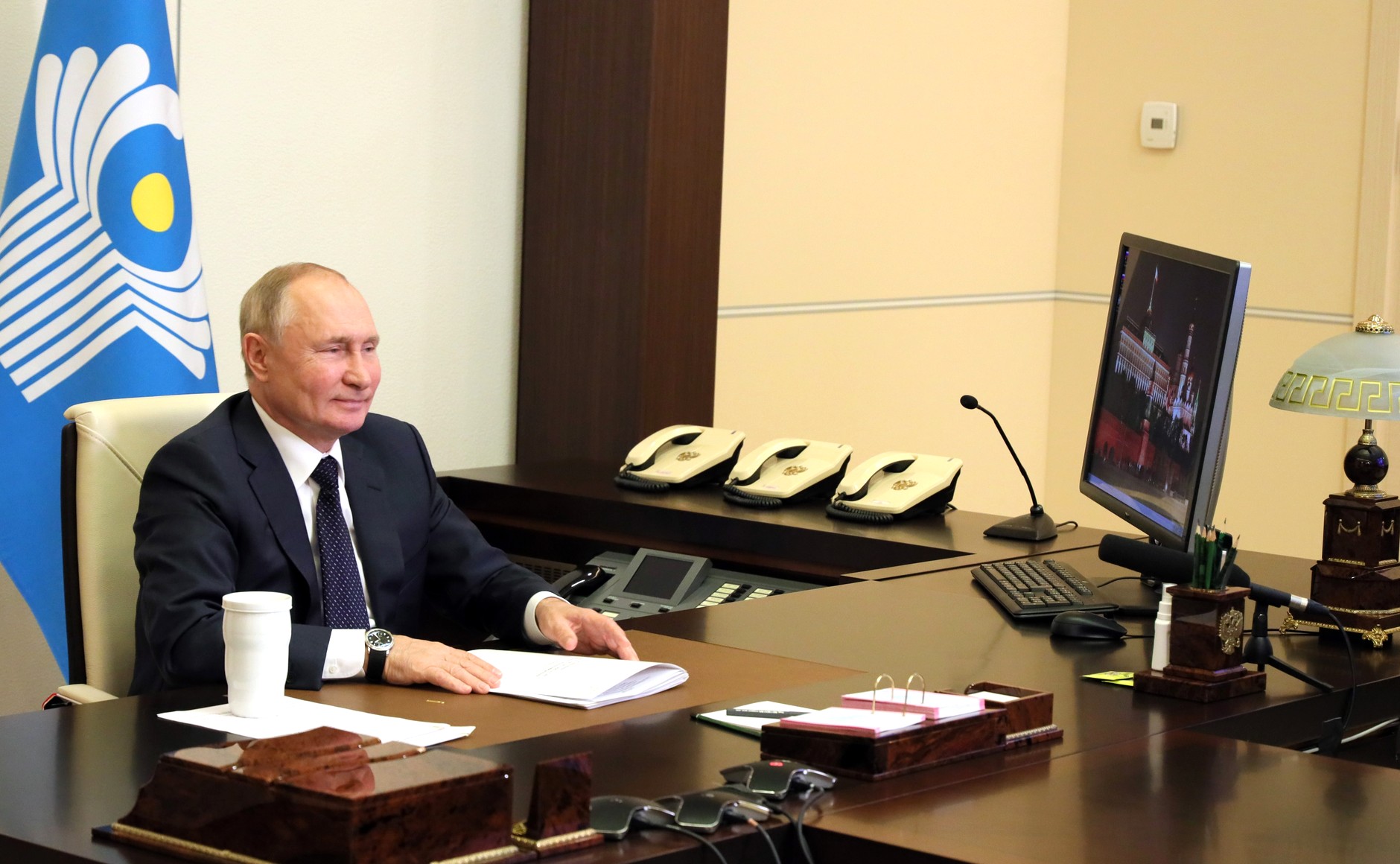 President of Russia Vladimir Putin: Colleagues, friends, I welcome the participants in this meeting, and, just as my colleagues, I would like to express gratitude to Mr Alexander Lukashenko personally and to our Belarusian friends for organising this summit and generally for their active work during the Belarusian CIS Chairmanship this year. The agenda of our meeting is quite full and topical. We certainly support the Statement on the 30th Anniversary of the CIS drafted at the initiative of our Belarusian colleagues. This statement sums up the main results of the organisation’s activities and defines the long-term objectives of its development. In fact, the CIS has come a long way during these three decades and established itself as an authoritative regional integration association, whose member states seek to base their relations upon the principles of neighbourliness, partnership, mutual benefit and regard for the interests of each other. But perhaps the main thing is that owing to the CIS we have managed to preserve and in some areas even to promote the economic, social, cultural and humanitarian ties that we forged over the many years of our common existence within a single state. Unfortunately, sometimes differences and controversies do happen. Even worse, they sometimes evolve into open conflicts opposing specific CIS member states, as was unfortunately the case last year with the events in Nagorno-Karabakh. My colleagues have already mentioned this, and I would like to thank them for what they said about Russia’s actions. It is with the help of our country that it was possible to stop the conflict, and the Russian peacekeeping force guarantees the truce that was negotiated. Russia also helps with humanitarian deliveries and demining operations. Let me emphasise that we are helping both sides and working in two countries, in Armenia and Azerbaijan, to restore essential infrastructure and provide medical assistance to the population. Tens of thousands of refugees, over 52,000 people, have returned home. All this once again proves the wisdom of the sayings we have in Russia that bad peace is always better than a good war, or what matters in any dispute is how it gets resolved. In fact, the key mission of the Commonwealth of Independent States is to create conditions for peaceful cooperation and joint efforts for the sake of prosperity and development of our countries and improving the well-being of our people. This is what the updated Concept of Further Development of the CIS and the CIS Economic Development Strategy until 2030 are all about. In fact, these documents set out a long-term programme of action for creating an integrated political, economic, cultural and humanitarian association of interested countries, empowering each of its members to develop effectively, promoting fruitful trade and economic cooperation and the effective operation of a free trade zone. All this calls for a professional dialogue. It is clear that the negative impacts of the coronavirus pandemic persist in the economy and stand in the way of contacts and cooperation. At the same time, we can note in all satisfaction that trade and investment cooperation indicators within the CIS are improving, or at least beginning to improve. Trade within the CIS increased by almost 27 percent in the first six months of the year, with new prospects for launching major joint investment and infrastructure projects for better connectivity within the CIS and drawing economies and companies into Eurasian value chains in manufacturing and transport. It is important that business communities in CIS member states become increasingly interested in working together to promote the green economy, digital transformation and introducing innovations on a wide scale, as well as using natural resources in a comprehensive and sustainable manner. To carry out projects in all these spheres, it is essential to ensure access to skilled labour resources, improve vocational training, and create favourable conditions for people from CIS countries working within the Commonwealth. It is for this reason that Russia came forward with the idea to have CIS member states adopt a joint statement following today’s meeting on promoting cooperation on migration. This statement calls on our countries to step up efforts in harmonising our contractual legal frameworks regarding labour law, training labour migrants, and developing digital platforms for streamlining employment-related processes. This is important for all of us. In this context, the humanitarian dimension is just as important as the economic aspects. Cultural, educational, academic, civil-society, youth, travel and sports exchanges are very popular among our people and help strengthen friendship and mutual understanding among them. The CIS countries have a great deal in common: their history, spiritual roots, the intertwined cultures, customs and traditions, and of course the Russian language. I would like to express my special gratitude to Mr Lukashenko for stressing this point. The Russian language is the unifying force that brings together the CIS into a single civilisational space. 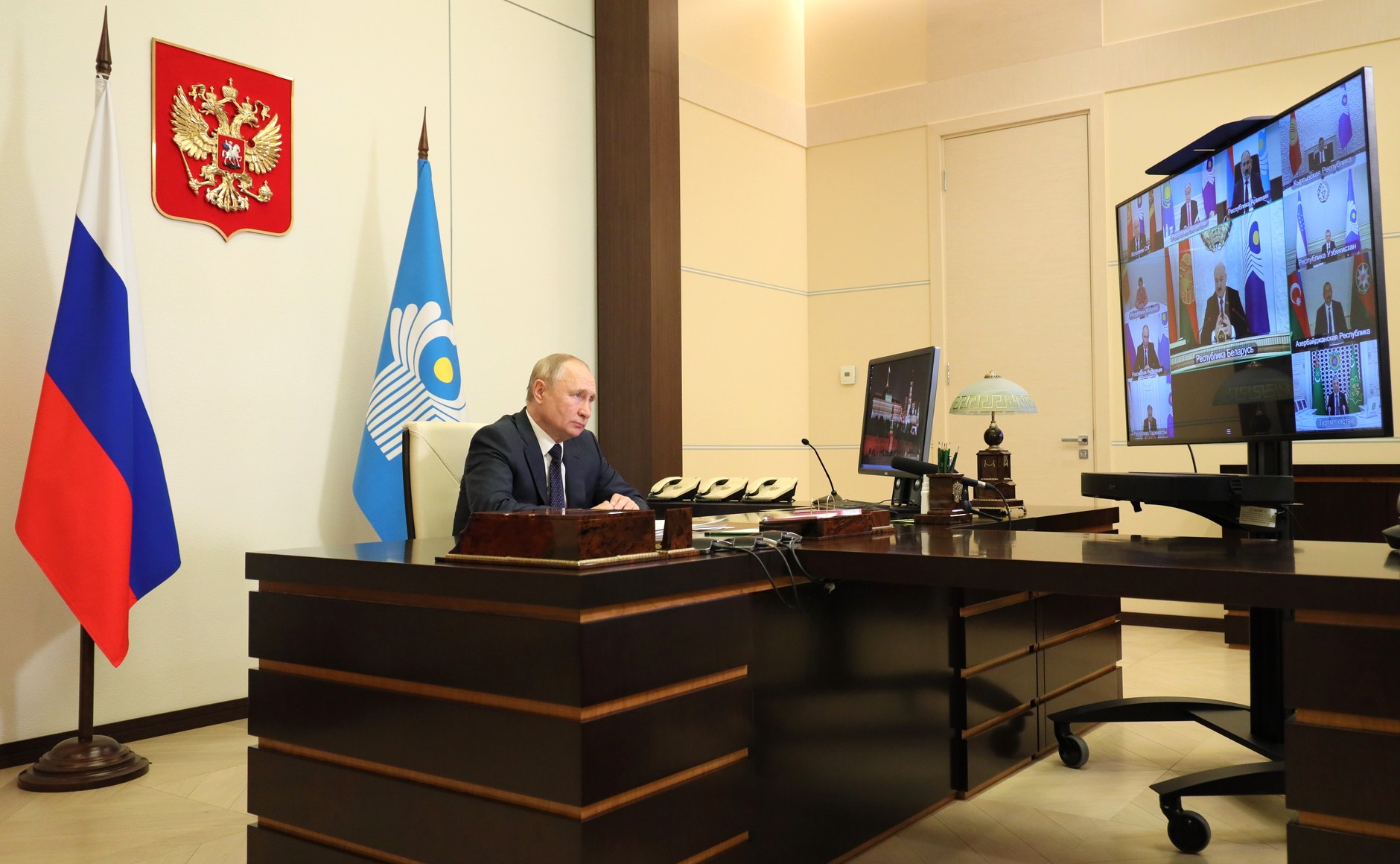 Colleagues, We all understand and know that many labour migrants from the CIS work in Russia. It is important for us, just as it is for you, to ensure that people adapt and live normal lives in Russia. At the very least, they need to speak Russian. They need to understand Russia, its culture and how various ethnic groups in Russia and the former Soviet Union have been living together in order to integrate in society and live a full life in our country, instead of just earning a living. Let me remind you that at the previous summit in December 2020 we decided to declare 2023 in the CIS the Year of the Russian Language as the Language for Inter-Ethnic Communication. We believe the initiatives listed in the programme for this year are quite useful. They are designed to support, preserve and promote the Russian language and culture. We are certain that all this will be a mutually enriching experience for CIS members countries both from a spiritual and cultural perspectives. I would like to place a special emphasis on the need to further expand cooperation and interaction in mass communications and media sectors, and in the information space in general. Our countries have co-founded MIR, an interstate television and radio broadcasting company. I have every reason to believe that it has been working at the highest professional level as a world-class media outlet and has deserved our praise. Preserving the memory of our common Victory in the Great Patriotic War is a priority for all of us. We are grateful to our CIS partners for supporting Russia’s initiatives put forward within international platforms to preserve the historical truth and counter attempts to justify Nazism in all its manifestations. I strongly believe that we need to keep showing solidarity in defending the memory of the feats accomplished by our people, and the sacrifices our people made to defeat Nazism. 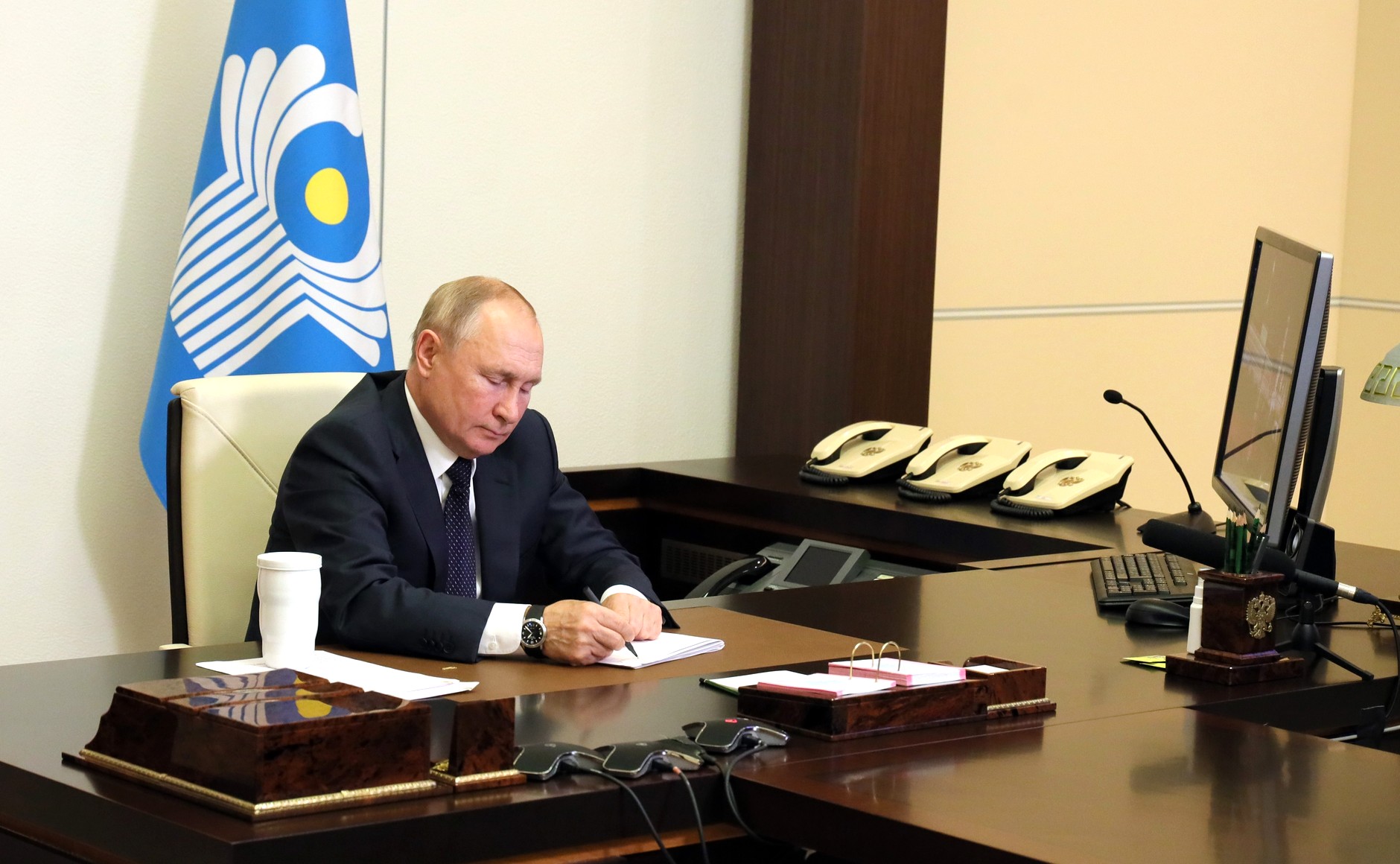 Colleagues, Russia has one more initiative I would like to share with you. I am referring to the joint statement that was drafted for today’s summit and deals with protecting the electoral rights of citizens and guaranteeing electoral sovereignty. In this statement, the CIS countries express their commitment to the key principles of international law on respecting the sovereignty of independent states and non-interference in domestic affairs, including electoral processes. I think that you will agree on the importance of this subject for all our states. In September, Russia held elections to the State Duma, and the vote took place in strict compliance with the law and with a high voter turnout. I would like to emphasise that we must continue to firmly defend and encourage the enjoyment of electoral rights and freedoms by supporting solid democratic institutions and the rule of law. We are ready to closely cooperate with our CIS partners in these efforts. We are also ready to closely coordinate our efforts in resolving topical regional and international problems. I am confident that the CIS member states have big potential for facilitating the resolution of problems in the Eurasian space and jointly countering the challenges and threats to security and stability in our common region. The situation in Afghanistan is a source of concern and this subject is bound to be brought up again. Of course, I agree with our colleagues who spoke about it. This situation harbours risks for Central Asia and the entire CIS space although some countries are not part of this region. Nonetheless, this situation requires that we invigorate our joint efforts, primarily, in countering terrorism and drug trafficking. There is an obvious concentration of extremist and terrorist groups near the CIS borders: ISIS, the Islamic Movement of Uzbekistan, Jamaat Ansarullah, al-Qaeda and many others. In our estimate, the ISIS group in the north of Afghanistan alone numbers 2,000 people. Their leaders are planning to spread their influence to Central Asian states and Russian regions and are placing their bets on fuelling interethnic strife and religious hatred. Terrorists are striving to penetrate CIS territory, in part, under the guise of refugees. Unfortunately, the Taliban-established transitional government does not represent the entire range of Afghan society. At the same time, the intention to hold general elections has been announced, and measures are being taken to resume the normal functioning of government bodies. We will certainly monitor together in the CIS framework whether these words are matched by deeds. I agree with my colleagues who spoke earlier, for instance, the President of Kazakhstan, that we should not rush to recognise the Taliban officially. We realise it is necessary to interact with them but there must be no haste with this, either. We will discuss all this together and consult each other. Nevertheless, it is essential to promote intra-Afghan reconciliation and generally to strive for normalisation there. All of us can facilitate the resumption of the work done by the extended Troika, that is, Russia, the United States and China with Pakistan’s participation, and I would like to ask you to support this. We can also promote the resumption of the Moscow format, in which the region’s key countries, including Central Asian states, take part. We are working to hold meetings within these mechanisms in Moscow as early as possible in October. Drug production in and drug smuggling out of Afghanistan are still extremely grave problems. It is a serious challenge. Afghanistan remains the world’s biggest supplier of opiates accounting for 90 percent of the global market. Despite their promises to fight drug production, the Taliban in reality… I do not know whether they are willing or able to do that… They did it the last time they were in power, and successfully, but today it will not be easy for them to give up this source of revenue, especially given the economic crisis in Afghanistan. The Treaty on Countering the Legalisation of Proceeds from Crime, the Financing of Terrorism and the Proliferation of Weapons of Mass Destruction, which we are to sign today, is creating a good basis for joint efforts by the CIS countries in their fight against terrorism and drug trafficking. The specialised financial divisions of the CIS are being given up-to-date legal mechanisms to combat money laundering. Yet another security-related issue concerns biological security. I would like to thank our CIS partners for supporting the draft statement outlining priorities in the joint work to ensure sanitary-epidemiological safety of the population, protect public health and address dangerous biological factors. We are confident that the CIS states will jointly develop a system to monitor biological risks, exchange information on matters related to fighting epidemics and infectious diseases, respond to health emergencies, and consolidate the legal infrastructure of this professional cooperation. On the whole, we in the CIS have many pressing challenges to address together. I would certainly like to wish our friends from Kazakhstan, who will assume the CIS Chairmanship in 2022, success in promoting constructive and mutually beneficial cooperation and strengthening even further the close, neighbourly ties between our countries. Thank you for your attention. Thank you very much. The source of information - http://en.kremlin.ru/events/president/news/66937 Meeting with leader of the New People party Alexei Nechayev Vladimir Putin had a working meeting, via videoconference, with Alexei Nechayev, head of the New People party faction in the State Duma. October 15, 2021 - 14:30 - Novo-Ogaryovo, Moscow Region 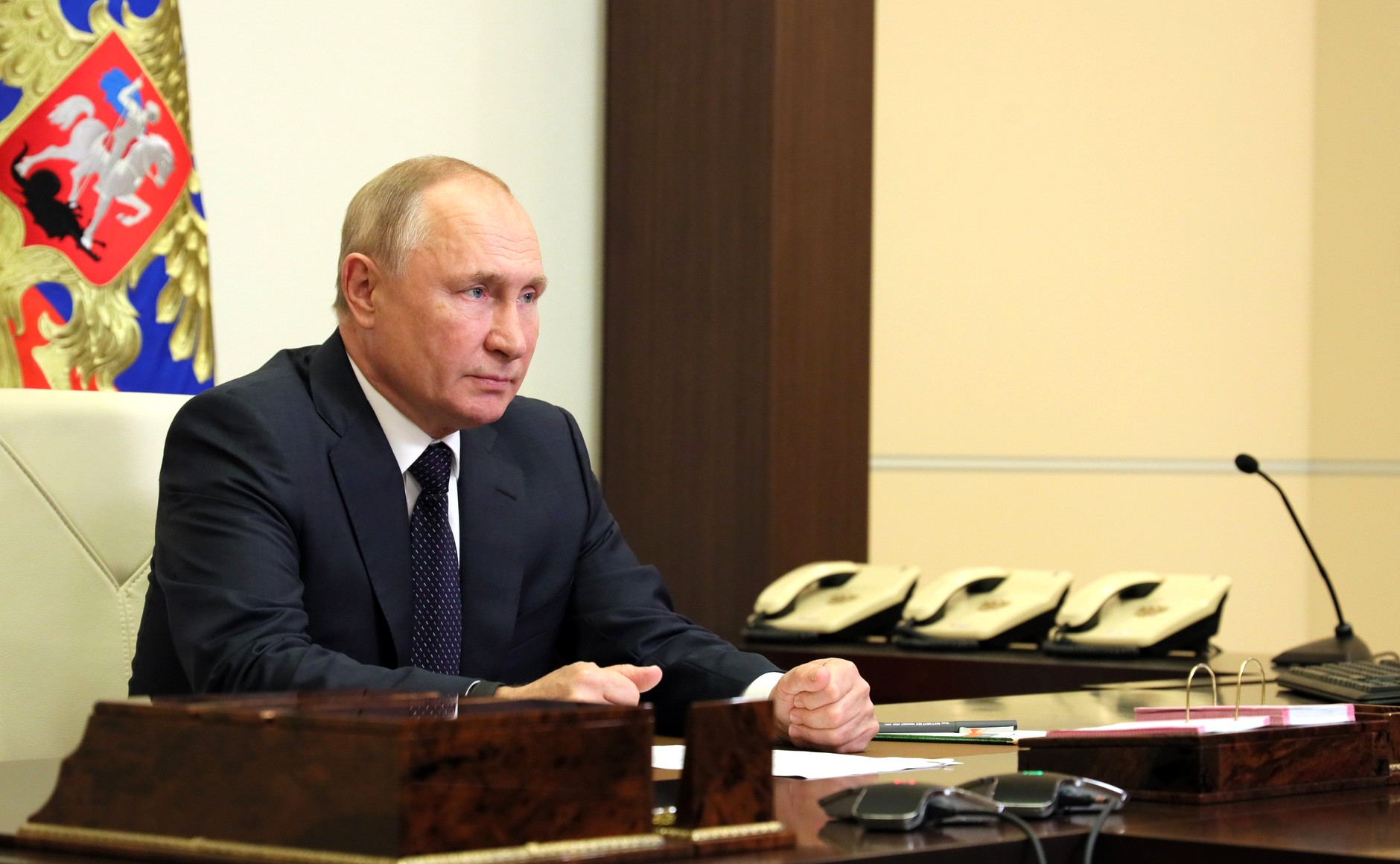 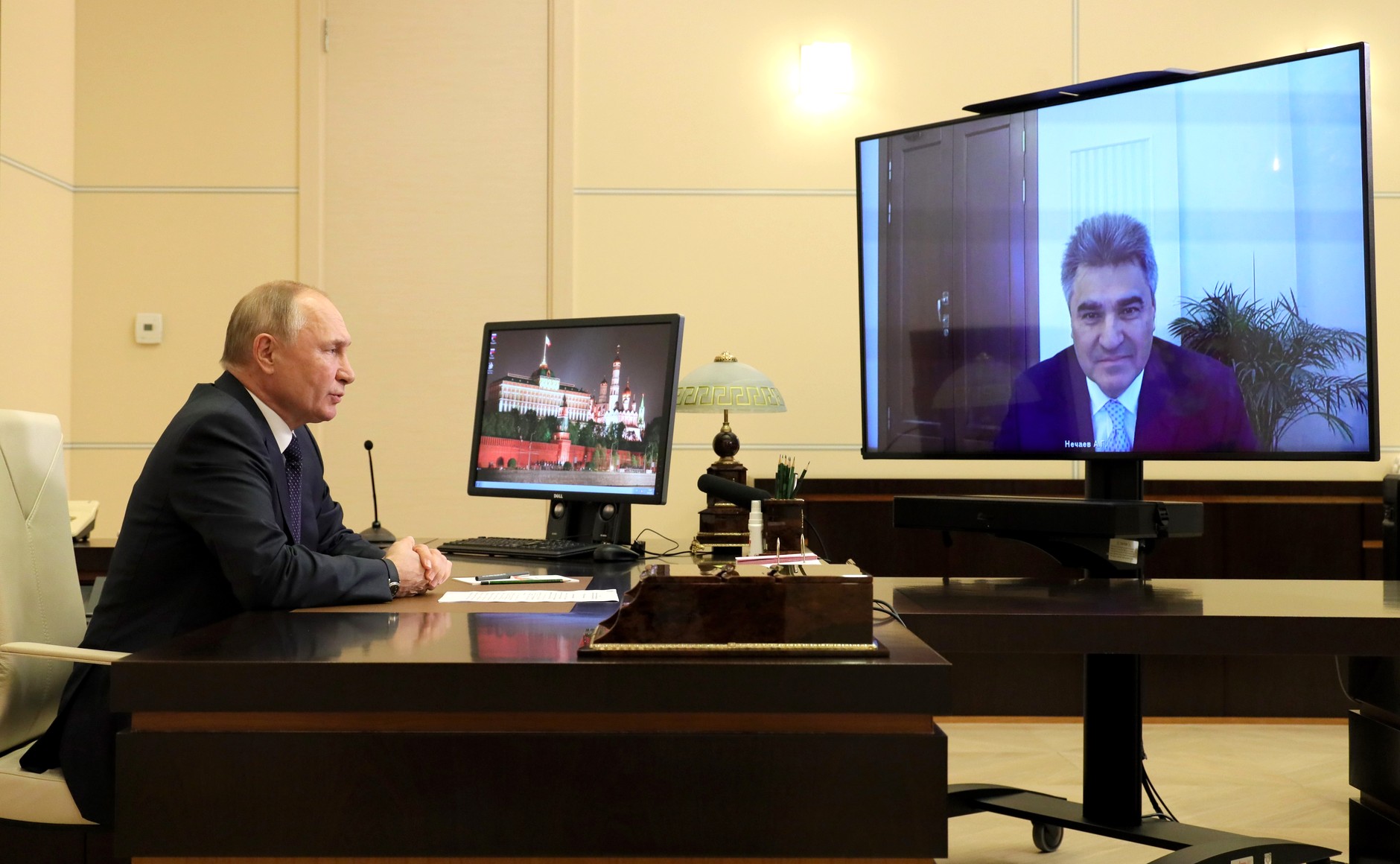  The President was informed of the faction’s plans for its work in the upcoming period. Vladimir Putin and Alexei Nechayev also discussed the current situation. The source of information - http://en.kremlin.ru/events/president/news/66940 Vladimir Putin took part in the Russian census October 15, 2021 - 17:30 - Novo-Ogaryovo, Moscow Region The President took part in the nationwide census of the population through the integrated state and municipal services website (www.gosuslugi.ru).  President of Russia Vladimir Putin: Today, on October 15, the nationwide census kicks off in our country. It will last a month, but in the country’s remote areas, it will be completed by December 20. Census data will help the Government take more accurate, which means more effective, decisions to develop the economy and the social spheres, including healthcare, education and demography. 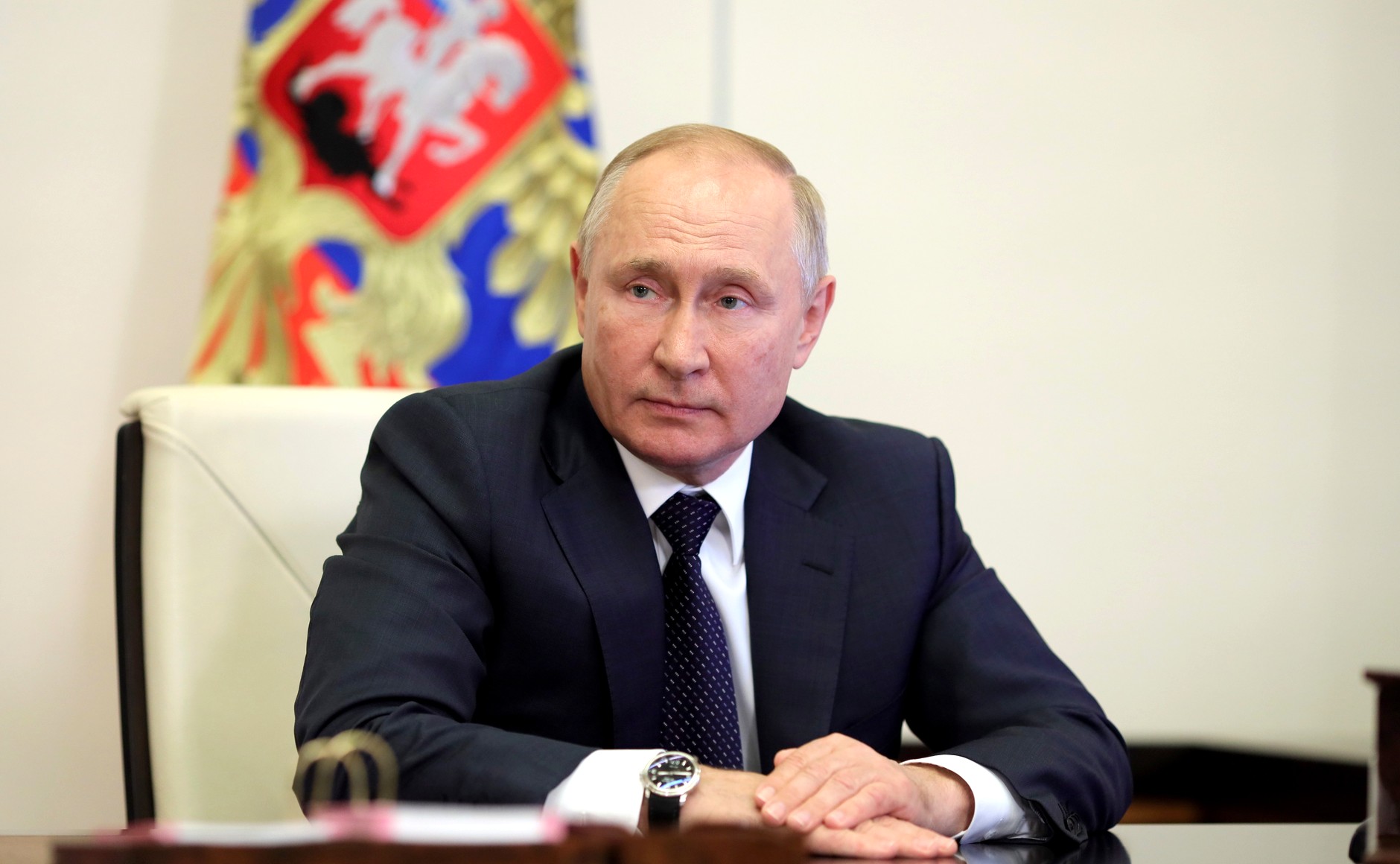 Addressing the citizens of Russia, I want to say that this is not a formal matter. In this connection, I want to remind the authorities at all levels, from the municipalities to the federal government, of your responsibility to render assistance and support to your colleagues carrying out this work, as well as volunteers taking part in it. Thank you. The source of information - http://en.kremlin.ru/events/president/news/66943
__________________
Where should they dig the Very Deep Pit? Piglet said that the best place would be somewhere where a Heffalump was, just before he fell into it, only about a foot farther on. (c) Alan Alexander Miln |
|
|
#11 |
|
Senior Member
|
Greetings on the opening of VTB Kremlin Cup 2021
Vladimir Putin sent a message of greetings to participants, organisers and guests of the XXXI VTB Kremlin Cup international tennis tournament. October 16, 2021 - 10:00 The message reads, in part: “The Russian capital has once again become the heart of the world tennis, and numerous fans of this spectacular game have a wonderful opportunity to witness magnificent dynamic duels of the planet’s strongest players. We are rightly proud of the achievements of the Russian tennis players – winners of the most prestigious international competitions. They performed excellently at the last year’s wrap-up tournament of the Association of Tennis Professionals (ATP), at the Tokyo Olympics and other high-profile competitions. I am confident the VTB Kremlin Cup 2021 will run as successfully as ever and will become a huge festive event in the international sports life leaving everyone with bright unforgettable emotions and impressions.” The source of information - http://en.kremlin.ru/events/president/news/66949 Congratulations to current workers and veterans of Russia’s road industry The President congratulated current workers and veterans of the Russian road industry on their professional holiday. October 17, 2021 - 09:00 The President’s message reads, in part: “This is a professional holiday for builders, engineers and designers employed by the multitude of road industry enterprises. Thanks to your daily efforts and responsible approach to your work, the industry is steadily developing, and new large-scale programmes and technology initiatives are being launched which contribute to strengthening the transport network and promote a broad application of private-public partnership mechanisms. I should stress that strategic projects have been completed in the past years, such as the Crimean Bridge, the Neva and Tavrida motorways, and the Central Ring Road in the Moscow Region. Equally ambitious projects are on the agenda now that will connect the country’s cities and territories through modern and safe motorways. And of course, the existing transport corridors need upgrading, the quality of regional and local automobile roads and respective infrastructure must be improved, and this work should be greatly stepped up since it is vital for our citizens, businesses, and the progress of the Russian economy and social sphere.” The source of information - http://en.kremlin.ru/events/president/news/66950 Greetings on tenth anniversary of Our City portal Vladimir Putin congratulated the staff and users of the Our City website on the tenth anniversary of the Moscow portal. October 17, 2021 - 10:00 The message reads, in part: “This is the first digital service in Russia to provide competent and prompt solutions to city problems such as landscaping, repairing buildings and roads, improving public services and transport infrastructure. Over the past decade, Muscovites have been actively engaged in the life of our capital, maintaining a constructive dialogue with the authorities to effectively deal with shortcomings and violations, without unnecessary bureaucratic procedures or delays. It is important that other regions also widely introduce such convenient and up-to-date services.” Over the past ten years, the website Our City has helped Muscovites to quickly resolve more than 5 million problems of various kinds. The source of information - http://en.kremlin.ru/events/president/news/66954 Greetings on 30th anniversary of public movement Association of Students of Sodruzhestvo Russian Youth Union Vladimir Putin congratulated members of the public movement Association of Students of the Sodruzhestvo Russian Youth Union on its 30th anniversary. October 17, 2021 - 11:00 The message reads, in part: “Over the past years, your organisation has amassed much experience, consolidated its constructive potential, and become by right one of the more authoritative youth public associations in this country. Sodruzhestvo has to its credit a wide range of large-scale and versatile projects that enjoy invariable support from talented and energetic young men and women in many regions of Russia. It is important that you direct your efforts at implementing significant patriotic and educational initiatives and put into practice interesting creative ideas and plans.” The movement Association of Students of the Sodruzhestvo Russian Youth Union is a mass youth public association composed of participants. It has no membership and pursues socially useful objectives. The source of information - http://en.kremlin.ru/events/president/news/66955 Greetings on 25th anniversary of Alexander Solzhenitsyn House of Russia Abroad Vladimir Putin sent greetings to the participants, organisers and guests of the ceremony to mark the 25th anniversary of the Solzhenitsyn House of Russia Abroad. October 18, 2021 - 12:45 The message reads, in part: “Created at the initiative of Alexander Solzhenitsyn, this House of the Russian Diaspora Abroad carries out a lofty historical, cultural and educational mission. Its unique displays, valuable archival documents and works of art, photographs and personal artifacts, as well as rich collections of books and periodicals published abroad preserve the memory of our outstanding compatriots who, trapped by fate, found themselves outside Russia, but suffered from this separation until the end of their lives, with their hearts and thoughts with their Motherland. A very special and important part of the museum’s collection is, naturally, dedicated to Alexander Solzhenitsyn, his life, and his creative, literary and ideological legacy. I am happy to note the enormous contribution made by Natalia Solzhenitsyna and the entire museum staff to the development of this unique project. You are engaged in truly selfless research, exhibition and publishing work, directing your efforts to promote the Russian language and literature, as well as the values of Russian culture abroad, and to strengthen international humanitarian ties.” The source of information - http://en.kremlin.ru/events/president/news/66959 Meeting with Moscow Region Governor Andrei Vorobyov President of Russia Vladimir Putin had a working meeting with Moscow Region Governor Andrei Vorobyov. The Head of Moscow Region informed the President about the situation in the field of education and healthcare. They also discussed gas supply projects and transport infrastructure matters. October 18, 2021 - 14:05 - The Kremlin, Moscow  Andrei Vorobyov noted that Moscow Region continued to expand, that its population was growing, and that local towns had to be taken care of. For example, the number of children has soared by 500,000 in the past eight years. Construction of 50 schools began in 2019, and 50 schools, as well as 15 extensions, are to open by late 2021. There is still a shortage of schools, the Governor admitted, and 50 more are now being built with federal support and using funds from the regional budget. Kindergartens are under construction. A cornerstone has been laid for the first children’s hospital in Moscow Region. This modern hospital employing top specialists will treat children. In additional, the Governor discussed the vaccination of the regional population against the COVID-19 virus and the creation of a so-called “social treasury” that will allow people to obtain government services proactively and automatically, and he also mentioned digital education projects for senior citizens. 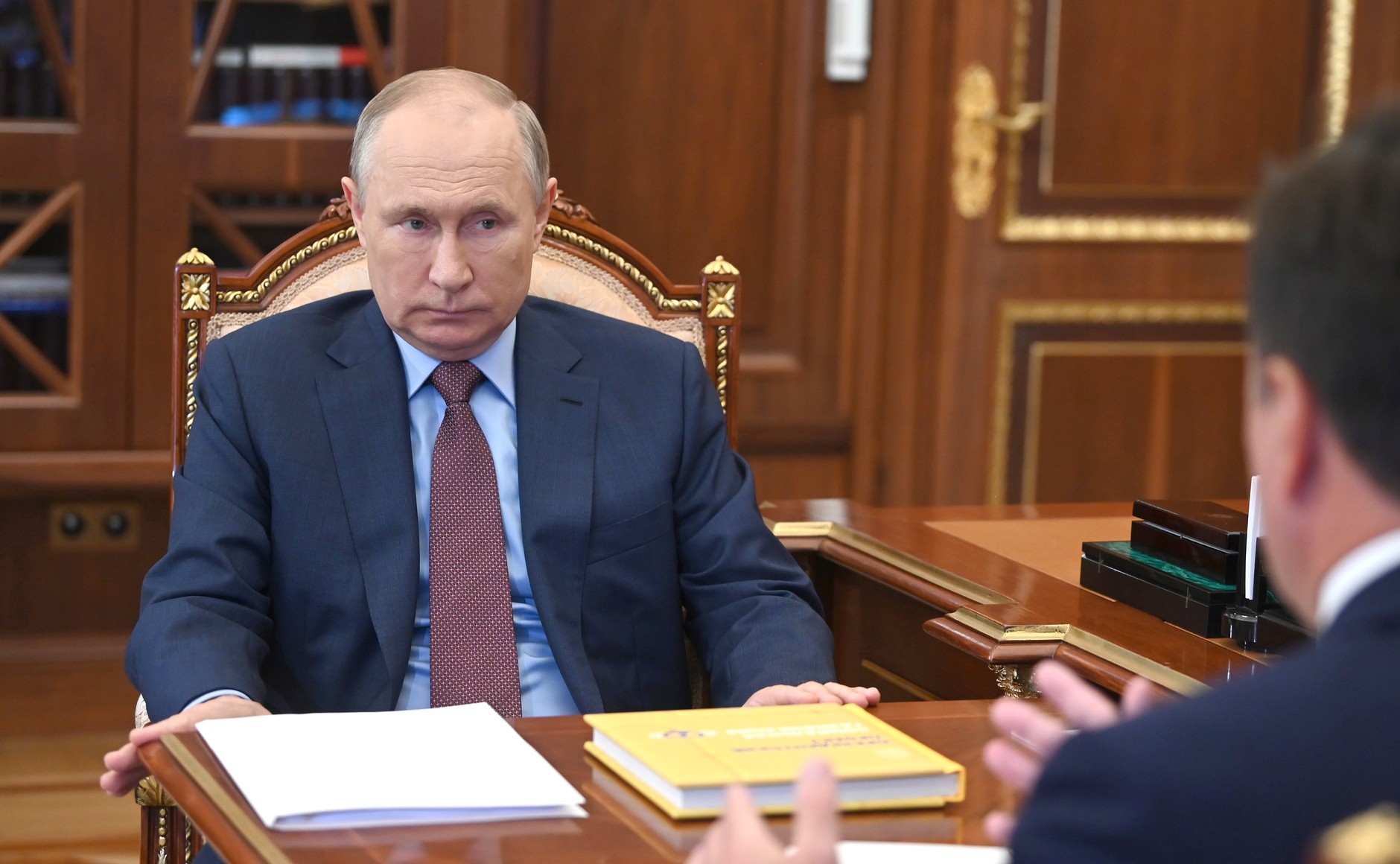 The discussion also covered the implementation of a social gas supply project in Moscow Region. Under this project, free gas pipeline offshoots will extend towards household boundaries. Vladimir Putin raised another matter linked with road traffic and noted that much had been done to prevent congestion. This includes construction of road interchanges, especially those near mainline capacities; however, some problems still remain. 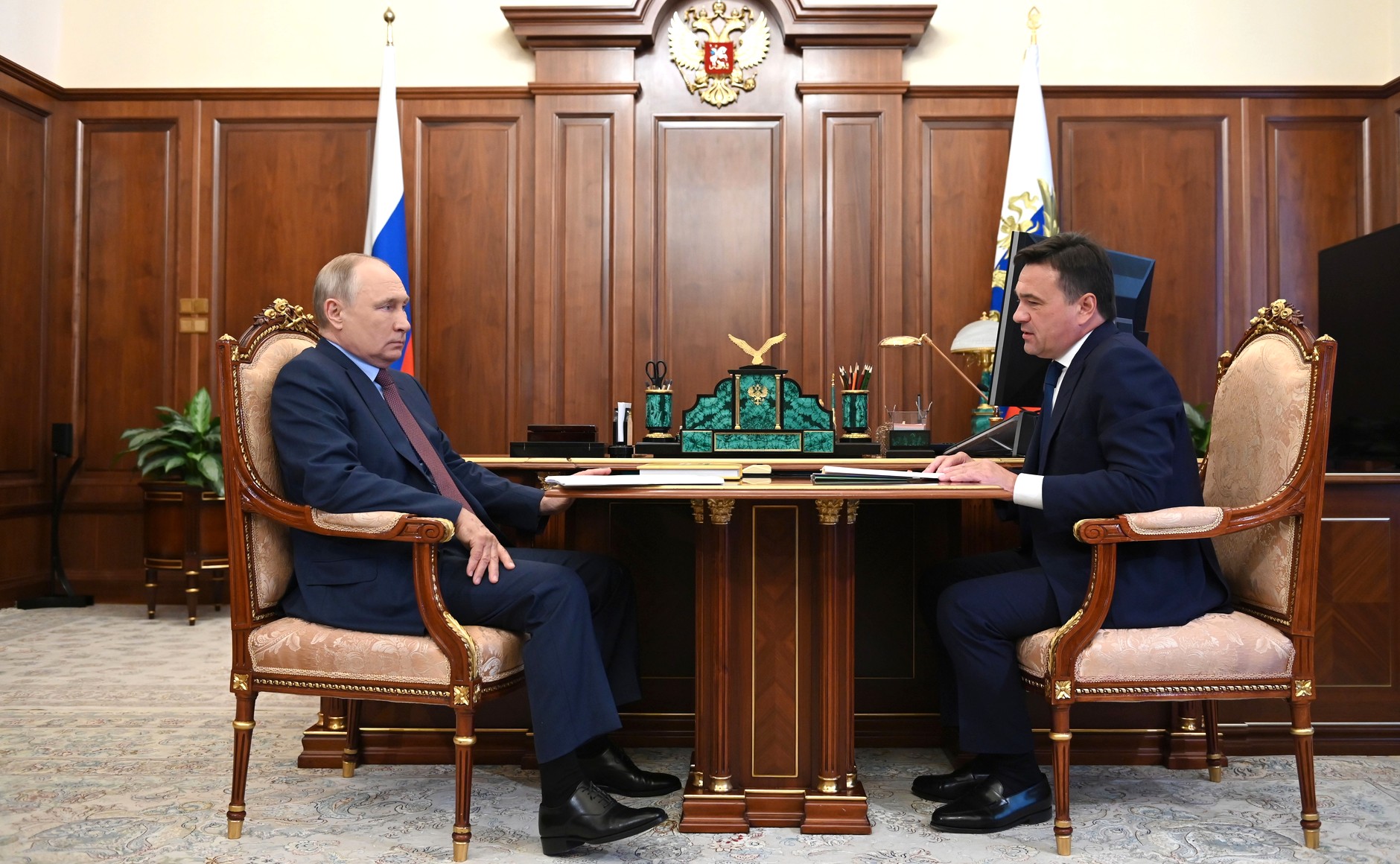 Andrei Vorobyov thanked the President for the Central Ring Road that is now operating at full capacity. New enterprises, especially logistics facilities linked with e-commerce, are opening around it. 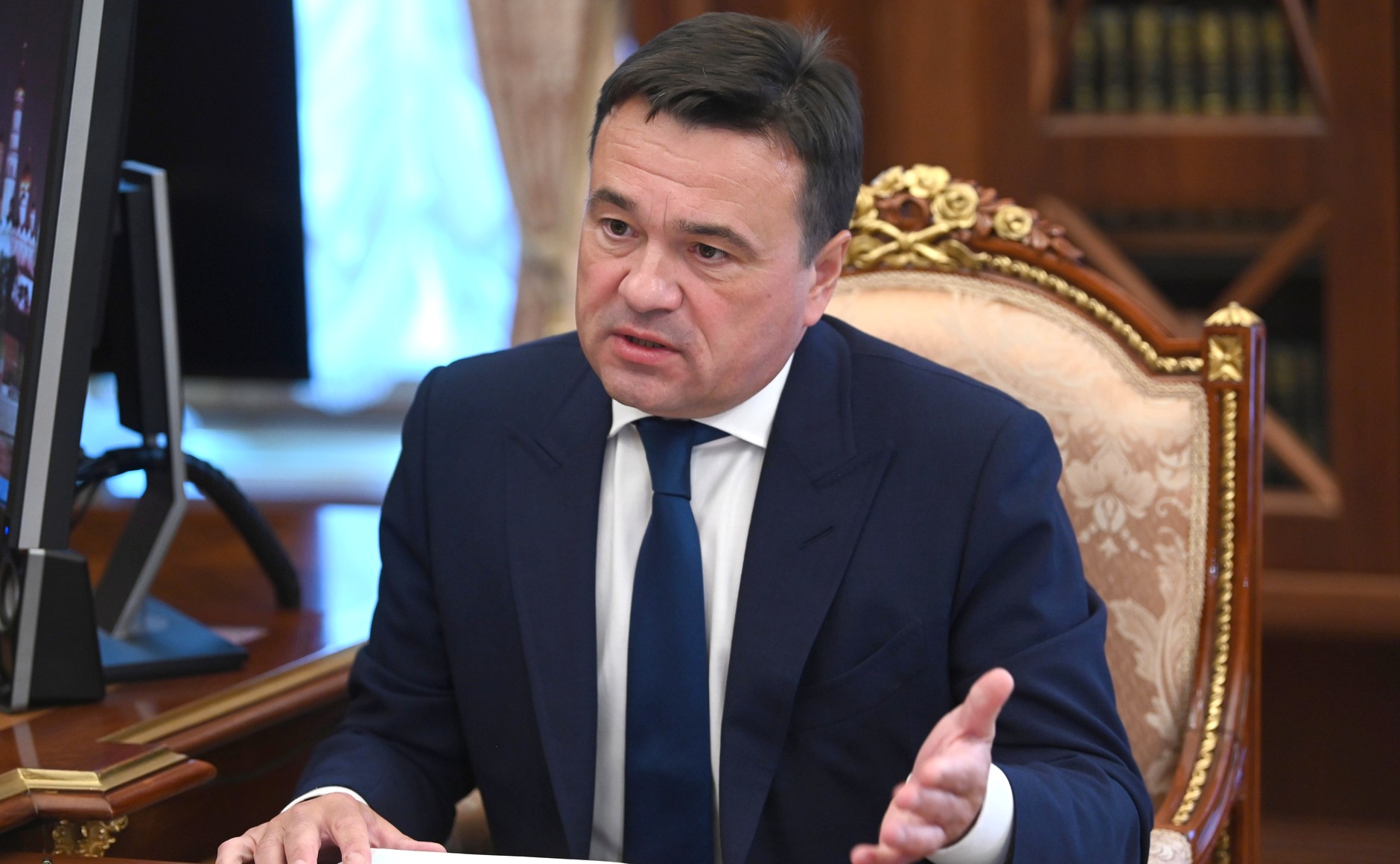 The President also said that he knew there were certain demands for additional funding linked with the construction of interchanges. He explained that he had discussed this matter with the Government which would find the ten billion rubles required for the region. The source of information - http://en.kremlin.ru/events/president/news/66953 Greetings to Team Spirit club, winner of International 2021 Dota 2 world championships Vladimir Putin congratulated the members of the Team Spirit club on winning the International 2021 Dota 2 world championships. October 18, 2021 - 17:00 The message reads, in part: “This is the first time in history that a Russian team – the Team Spirit club – has won this prestigious tournament. Well done! On your way to the finals, you showed outstanding leadership qualities and solidarity. In the decisive duel, which became a real test of skill and character, you demonstrated the utmost concentration and seized the initiative from strong opponents at the most crucial moment. You have really proved that our e-sport athletes are goal-oriented and capable of conquering any heights.” The source of information - http://en.kremlin.ru/events/president/news/66963 Congratulations to Prime Minister of Israel Naftali Bennett Vladimir Putin congratulated Prime Minister of the State of Israel Naftali Bennett on the 30th anniversary of the restoration of diplomatic relations between Russia and Israel. October 18, 2021 - 18:00 The message reads, in part: “Over the past decades, Russia and Israel have gained considerable experience in fruitful cooperation in many areas, as well as partnership in resolving major international issues. We are united by a resolute rejection of anti-Semitism, any manifestations of xenophobia and ethnic strife, as well as any attempts to falsify history and revise the outcome of World War II. I am confident that by pooling efforts we will be able to continue building up the entire range of mutually beneficial ties between Russia and Israel. This certainly meets the fundamental interests of our friendly nations and helps promote peace, security and stability in the Middle East.” The source of information - http://en.kremlin.ru/events/president/news/66964 Greetings on 30th anniversary of Russian Federation Chamber of Commerce and Industry Vladimir Putin congratulated the heads and members of the Chamber of Commerce and Industry of the Russian Federation on the 30th anniversary of its foundation. October 19, 2021 - 09:30 The message reads, in part: “The Chamber of Commerce and Industry is rightly regarded as one of the largest and most authoritative business associations in this country, one possessing a rich history and old traditions. One of the CCI’s undoubted achievements is its significant contribution to strengthening the national economy, creating favourable conditions for the development of modern, effective businesses and the emergence of a business climate, and improving legislation in this area. You are doing a great deal to defend the interests of Russian producers, promote their products and services on global markets, and strengthen collaboration with your foreign colleagues. You are also a reliable partner to the state in dealing with important social tasks.” The source of information - http://en.kremlin.ru/events/president/news/66966 Telephone conversation with Prime Minister of Italy Mario Draghi President of Russia Vladimir Putin had a telephone conversation with Prime Minister of the Italian Republic Mario Draghi. October 19, 2021 - 13:15 The discussion covered preparations for the G20 summit, scheduled to be held on October 30–31, 2021, in Rome. Vladimir Putin praised the efforts of Italy, which currently chairs the G20 within this association’s framework, and voiced his readiness to take part in the summit via videoconference. The leaders also exchanged opinions on the results of an assessment of the situation in Afghanistan at a recent G20 videoconference. They touched upon some matters of bilateral trade and economic cooperation. The source of information - http://en.kremlin.ru/events/president/news/66967
__________________
Where should they dig the Very Deep Pit? Piglet said that the best place would be somewhere where a Heffalump was, just before he fell into it, only about a foot farther on. (c) Alan Alexander Miln |
|
|
#12 |
|
Senior Member
|
Meeting of State Council Presidium
Vladimir Putin chaired a videoconference meeting of the State Council Presidium on Russia’s transport strategy until 2030, and forecast until 2035. October 19, 2021 - 16:25 - Novo-Ogaryovo, Moscow Region The strategy was prepared in accordance with Russia’s national development goals and objectives, to ensure maximum consideration of the economic interests and expectations of all transport services market players, primarily users – citizens of the Russian Federation living in cities and villages, remote and hard-to-reach regions. 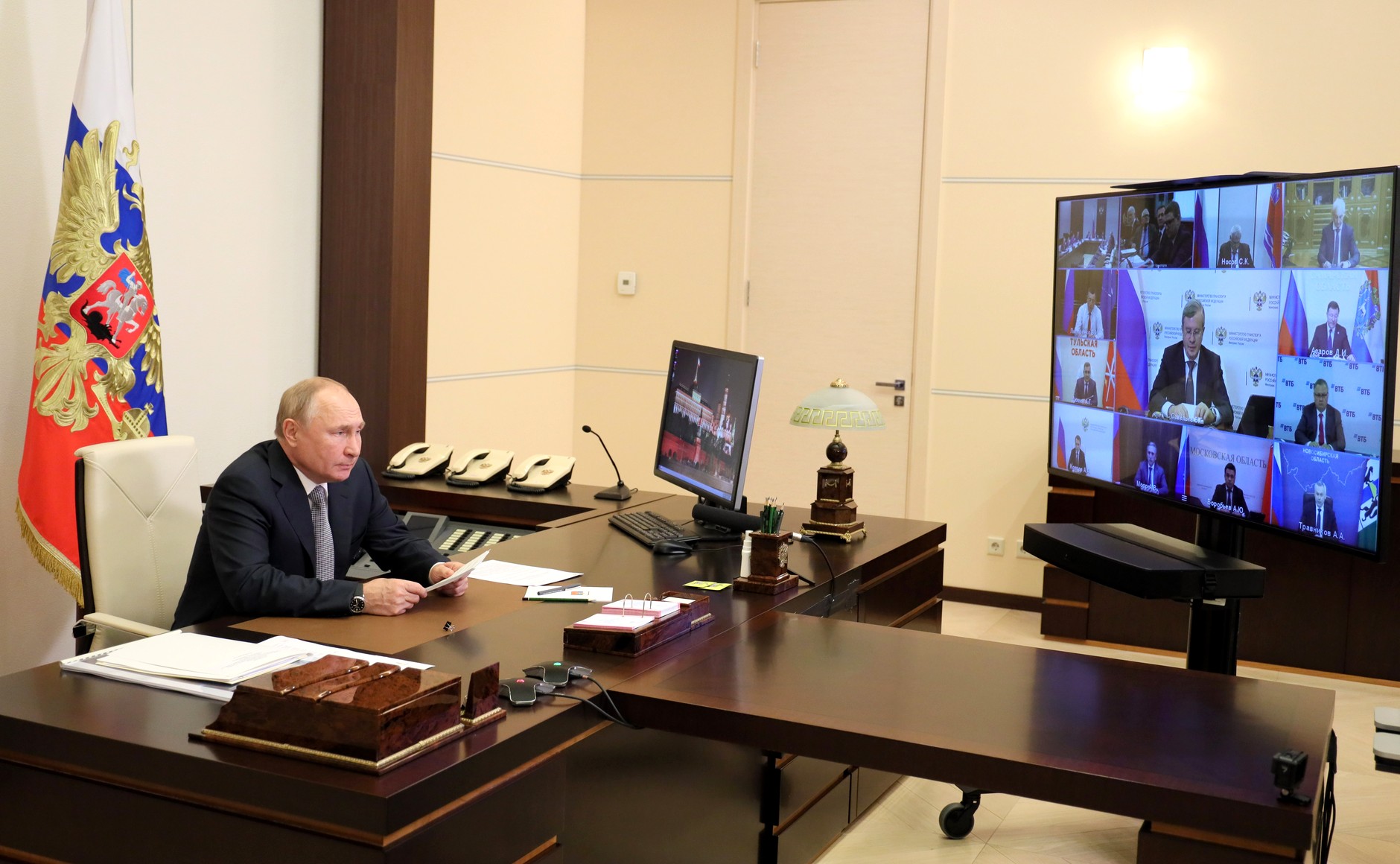 President of Russia Vladimir Putin: Colleagues, good afternoon. At today’s meeting of the State Council Presidium, I propose discussing the draft transport strategy of Russia planned for the period to 2030 and including a forecast for a longer period, the more distant horizon of 2035. This document does not just establish long-term benchmarks; importantly, it is also meant as a framework for the government’s work, for the Russian regions, the key areas of business, as well as construction, engineering and logistics companies, and transport engineering enterprises. The future contours of the national transport system must be determined while taking into account new technological challenges, our economic and social objectives, development plans for the regions and the entire country, and the creation of competitive transit corridors. We certainly need to be mindful of the current global trends concerning transport, which is becoming more environmentally friendly and efficient worldwide, both in terms of fuel consumption and in other parameters. We will talk about this today. I would like to note that specialists from ministries and state agencies were not the only ones who helped draft the Strategy. Much work has been done by the State Council commissions and relevant State Duma committees. I know that yesterday, the State Council hosted substantive discussions of the Strategy and mechanisms for its implementation. Working groups, involving regional leaders, business leaders, and experts, met at the Russian University of Transport. The university has joined us today, and I would like to take this opportunity to wish all the best to its staff, leaders, and students – this year, the Russian University of Transport, the legendary MIIT, marks its 125th anniversary. It is gratifying that this university, founded in the Russian Empire, with its rich educational and awareness-raising traditions, is also active in drafting the country's strategic plans, and provides an academic research base for the development of domestic transport. I wish the university staff success and all the best. Moving on to the agenda of today’s meeting, there are several matters of principle I wanted to highlight. As we agreed with our colleagues, the updated transport strategy must focus on what people need now, and seek to improve the quality of life for our citizens, as well as offer more opportunities for businesses, including SMEs. What this means is that each Russian citizen, no matter where he or she lives, must benefit from transport services that are reliable and safe. Let me remind you that our country’s Constitution sets forth this requirement. Of course, this means that passenger transport and cargo shipments must be carried out dead on time, leaving and arriving at the right time and day. Building on the strategy’s provisions, the Russian regions will draft, with support from the federal Government, their own development plans for the transport sector, factoring in the required financial, organisational and other resources. It has to be noted that we have a big country, and regions can vary by size, population, distance between their cities and other communities like villages or townships, as well as in terms of their economic and budget capabilities. Accordingly, there is a big difference in the development of their transport infrastructure as well, but we need to make sure that we achieve higher standards across the entire country. This means that we need not only to build roads, stations, ports and docks across the country, but also to provide for proper maintenance of the existing infrastructure and ensure quality and timely repairs so that regional and municipal infrastructure meets the existing norms. For this reason, it is essential that we find the best way to balance spending on new construction and infrastructure maintenance so that we do not have a situation we sometimes find ourselves in where new construction is launched before completing what has been already started, losing money on unfinished construction projects. Yesterday you had a lively discussion on this matter. I am asking you to share the results of this debate today. I would like to draw your attention to the following: transport in Russia and the rest of the world is becoming “greener” or more eco-friendly. People are starting to make broad use of electricity, hydrogen and other low-carbon energy sources and I would also add gas to them, instead of petroleum or diesel fuel. This applies not only to public transport but also to commercial freight shipments and the use of private cars. As you know, there is an excise duty in the price of traditional fuel. It is the main source of income of the road funds that pay for the construction and repair of roads. In the past decade, the total length of road surfaces in Russia has increased by 400,000 km with the help of this resource. Federal roads were put in order – the share of repaired roads increased from 39 to 85 percent. It is important to achieve such tangible positive change as regards regional and municipal roads as well. I am confident the regions of the Russian Federation will confirm that much still has to be done in this respect. Obviously, a shift in demand toward cleaner fuel may affect the income of the road funds. Yes, this is not very tangible so far but there is a trend towards this and we must bear it in mind. I would like to ask the Government to report on what decisions it is planning to make in this context. Furthermore, to ensure the dynamic advance of the national economy as a whole, we must develop comprehensively all types of transport: air, water, rail and motor. It is necessary to make them meet the requirements of the people in the best possible way. At this point, I would like to say a few words about an issue that is particularly important for remote, difficult-to-access territories. We have often spoken recently about the development of general aviation. We discussed this issue at a meeting on the socio-economic development of the Far East in September. Once again, I would like to emphasise the need to expand the network of intra-regional air routes, to modernise small airports and update the aircraft fleet on these flights. In general, flights on small aircraft should become more affordable to passengers. I suggest that today we have a detailed discussion of plans for systematic, long-term work in this area that directly affects the interests of people in many Russian regions. And one more point. One of the key goals of the strategy is to develop public transport, municipal and suburban commuting. This is important not only for large metropolitan cities but also for small residential areas that sometimes do not have enough convenient routes to the regional centre and where buses, carriages and commuter trains are quite worn out. This year, we launched an innovative lending tool to replace the public transit fleet in the regions with new vehicles, with pilot projects now being drafted in 12 constituent entities of the Federation. Importantly, these initiatives should be appealing to private investors. However, I would like to point out that these projects will not pay back in all regions, even in the long term. In this regard, the Government needs to come up with special approaches to support investment in public transit, including direct subsidies for repaying interest on loans, so that we do not end up the way we did on some issues directly related to housing and utilities, I mean water supply and sewage. Some governors complained that when these areas of responsibility were passed over to private companies, the latter, unfortunately, often failed to fulfill their obligations, and the dedicated funds were used towards other projects, not sewers or life support systems in the form of water supply or sewage systems, or were even wired abroad. We had cases like that as well. So please use extra caution when applying the same schemes to municipal transport. Colleagues, the draft transport strategy will include the outcomes of today's discussion and the regions’ opinions and will be submitted for consideration by the Government. I want the Cabinet of Ministers to review and approve this document during one of its upcoming meetings. Importantly, actual work should begin immediately, both at the regional level and at the level of federal ministries and departments once the strategy is adopted. I want the Government, no later than the first quarter of 2022, to draft a detailed plan for implementing the transport strategy and to do so in direct dialogue with heads of the regions and leading companies from the industry. It is also necessary, in close contact with the constituent entities of the Federation and business associations, to work on major systemically significant transport projects, both existing and the ones that are being planned. Planning must be done in the most careful way, and miscalculations are unacceptable here, since an investment of colossal proportions is at stake. Everything must be in harmony, and one project must harmoniously complement the next one. This is the way to build a transport strategy, and the plan must serve as a tool for implementing it. Of course, this should positively impact regional economies and promote the development of entire industries and sectors of the economy. Let me stress once again that our transport-related plans, projects and programmes must pursue the main goal, which is to improve the quality of life, so that it is more comfortable and convenient. It is important to make sure that every person knows how and in what timeframe significant transport problems will be resolved, and the regions clearly understand what kind of tools they are going to get in order to make these changes happen. I suggest that we move on to our agenda. Let us discuss everything that has been scheduled for today's meeting.  <…> Vladimir Putin: I would like to thank all those who worked on this crucial document. In fact, they have done an immense amount of work. But what would I like to say? Of course, all of this was done in the previous period. Basically and on the whole, this is extensive, necessary and good work. And certainly we are now talking about a strategy for a period until 2030 and beyond. There is no doubt that we will use all that has been mentioned today, including as a possible addendum to the drafted list of instructions. What would I like you to focus on? If we look at how this work has been carried out in previous years, if we take certain areas of focus in the development of transport infrastructure… In principle, I have information on each of these areas, but I would like to cite as an example what has been obtained as a result of verifying the implementation of the earlier decisions and laws on seaport infrastructure development. In fact, Russia’s port capacities have tripled to 1.2 billion tonnes over the last 15 years. At first sight, this is an impressive figure, but… We have 67 operating seaports, but only six of them are running at full capacity, while 61 are, mildly speaking, underutilised. The main factor impeding their greater competitiveness is the lack of an effective digitalised freight management system. I am talking about the competitiveness of the industry as a whole: speaking about ports, we mean the importance of ports within the transport infrastructure in its entirety. We approved decisions on this system’s development, but they are still to be implemented in full. Why am I talking about this now? These, as a rule, are comprehensive problems. Take, for example, Kaliningrad, where customs registration takes approximately 12 hours, while the freight carriage across the region of the Russian Federation itself – just two hours. But it is stuck at customs for 12 hours. And what are the results? I have just mentioned competitiveness. As a result, our neighbours at the port of Gdansk [in Poland] have increased transhipment volumes alone 12-fold over the last 10 years. They should thank us for our sluggishness and improper work processes. The next point is property management. The Finance Minister has just said that everybody wants to receive federal funds. It may be – well, it actually is – the easiest way, he is right. We often take the measures proposed by the economic bloc, including the Finance Ministry, with a grain of salt. But in this case, I cannot but agree with him. If we look at how property is managed… For example, between August 2019 and November 2020, one company using infrastructure facilities in the seaport of Vyborg under a lease transferred 21 million rubles to Rosmorport while the company itself made 1.2 billion rubles, including by subleasing that infrastructure. Basically, the company paid peanuts and then subleased the facilities to make good money. Look, if we continue with this property management approach, we will eventually run out of federal money. Mr Siluanov is absolutely right. I have already spoken about steps that should have been taken to build a modern system for monitoring cargo traffic. I will come back to it. Why was that not done? One of the reasons is because the industry did not provide the necessary funding for this purpose. And do not tell me that the Finance Ministry refused to give it. These are priorities of the industry itself, and, apparently, in the previous years they were not properly identified. As concerns the infrastructure itself, we have been discussing and developing our nuclear-powered fleet for quite some time. Why? Because we want to deploy it on the Northern Sea Route. Great, we are doing everything right: the border service is operating and the Defence Ministry is working to protect national interests – while 40 percent of the core facilities are in disrepair. Some ports along the Northern Sea Route such as Naryan-Mar or Dikson have not seen any kind of investment whatsoever for 30 years. Thirty years or perhaps even more. My reference documents say it has been over 45 years. How can that be? This has to do with developing the Northern Sea Route. I understand, and we are throwing money at the Emergencies Ministry because it is responsible for safety. But who will be responsible for loading cargo though? Who will do this job? The waters, territory and infrastructure at the port of Dikson are unserviceable. Socially important cargo is discharged over an undeveloped beach while there is an oil terminal being built next to it with a certain amount of funding we provide. Yes, it is necessary, no question about it. But why does socially important cargo have to be unloaded over a beach? Synchronisation between the different types of transport – we have already talked about synchronisation, more precisely, we have talked about insufficient synchronisation, say, in the Eastern Operating Domain. The railway infrastructure is underdeveloped, for example in the approaches to seaports. By the way, the same is happening in the southern regions, in Daghestan, and in the Azov and Black Sea basin. Board to board transhipment is growing. But what about the environment? This raises environmental issues. We understand how important this is today. And oddly enough, the Federal Service for Environmental, Technological and Nuclear Supervision still does not have consolidated data on the inspections carried out by its territorial subdivisions in 2018–2020 or the violations exposed during them. Why is this? There is no consolidated data. What are they doing there? Therefore, I would like to inform you that, based on the results of those inspections, corresponding instructions will be given to the Prosecutor General's Office and other law enforcement agencies to check compliance with the laws, concerning transhipment, spending of budget funds and the use of state property. But overall, I would like to return to the strategy – and I want this to sound like a positive result of the work on the transport strategy – I would like to remind everyone, and maybe I am repeating myself here, but nevertheless, I consider it absolutely necessary to say this again: the main goals of the strategy are to enhance the spatial connectivity and accessibility of Russia’s vast territory, to improve people’s mobility, increase the volume of transit of goods, to shorten transit time, and develop multimodal logistics technologies. The document promotes the digital and low-carbon transformation of the transport industry, and expeditious introduction of new technologies. I really do hope that the targets stipulated in this strategy will be achieved. Let me remind you that according to the baseline scenario, investment in transport should grow to 3.1 percent of GDP in 2024–2030 from an average of 2.3 percent in 2014–2019. Let me remind you that the total investment that we propose to allocate to this industry in the period up to 2035 is about 60.4 trillion rubles, which is a lot. But we expect these investments to yield a cumulative economic effect of about 160 trillion rubles. About 90 trillion should be obtained in 2021–2035, and another 70 trillion, in the period up to 2050, in the longer term. However, we will be able to achieve this result, the country will achieve this result only if we work smoothly, harmoniously, with discipline and full responsibility for the work entrusted to us by this country. I want all of you to be set for such constructive and concrete joint work. And returning to where I started, to the very beginning, I also want to thank those who have worked on the strategy. A lot of work has been done, but more needs to be done now to work out a plan for the implementation of everything envisioned. Thank you very much to all of you. Good luck. The source of information - http://en.kremlin.ru/events/president/news/66968 Address to participants and guests of RGO award ceremony The President sent a video address to the participants and guests of the award ceremony at the Russian Geographical Society. The names of the winners were announced and the award ceremony was held in Moscow. October 19, 2021 - 17:15  The Russian Geographical Society (RGO) confers its awards on the initiators of implemented projects in national geography, environmental protection, as well as the preservation and promotion of natural, historical and cultural heritage. President of Russia Vladimir Putin: Friends, I would like to welcome all the participants and guests of the Russian Geographical Society’s award ceremony. Unfortunately, my work schedule did not allow me to be there with you and to personally congratulate the winners – those who initiated unique, meaningful projects devoted to Russia and the rich natural, historical and cultural heritage of our Fatherland. The restrictions have certainly made your work more difficult, primarily expeditions and field studies. However, judging by the interesting and eventful life of the RGO, there are no barriers for real enthusiasts, travellers and researchers. I would like to thank the supervisory board and the and media council of the RGO for their invariable vigorous support of its initiatives. This support allows professionals and volunteers to systematically engage in research, education and environmental protection and to achieve results worthy of the broadest public recognition and high awards. I know that our researchers are honestly and selflessly serving their chosen cause and are not looking for titles or incentives, not to mention personal popularity. An RGO prize is particularly valuable because it makes it possible to reward people whose work is not so striking but is of great national importance and in demand in most diverse areas of life of Russian society. Owing to the current ceremony, our country will learn the names of courageous, talented and smart enthusiasts. Their example is used to bring up new generations of scientists, experts on regional studies, geographers, scouts, biologists, geologists and archaeologists. This is very important. Russia, the world’s largest and most versatile country, has an enormous potential for scientific discovery. Take the world oceans, for example. Scientists maintain that they have been studied by no more than 7 percent. Russia is surrounded by 13 seas, including cold seas, and their depths, flora and fauna have just started revealing their secrets. Or look at caves. As of now, our speleologists have found almost 5,000 caves, but in expert estimate this is just one tenth of all natural caves on Russian territory. It is very important to preserve wild animal populations. I hope that support by the RGO of the projects on conserving polar bears, leopards, white whales and snow leopards, to name a few, will gain momentum and that different countries will take part in these efforts. We will talk about this in more detail at the International Tiger Forum in Vladivostok in 2022. I am confident that Russia will always have many people who are able to boldly expand the borders of scientific knowledge, persistently follow their dream and make outstanding discoveries. All nominees for the RGO awards are such active, passionate and highly educated people. I am sincerely grateful to you for your brilliant results. I would like to congratulate all prize winners and wish you further success. The source of information - http://en.kremlin.ru/events/president/news/66969 Meeting with United Russia faction leader Vladimir Vasilyev The President met, via videoconference, with Vladimir Vasilyev, Head of the United Russia faction in the State Duma. October 19, 2021 - 17:50 - Novo-Ogaryovo, Moscow Region 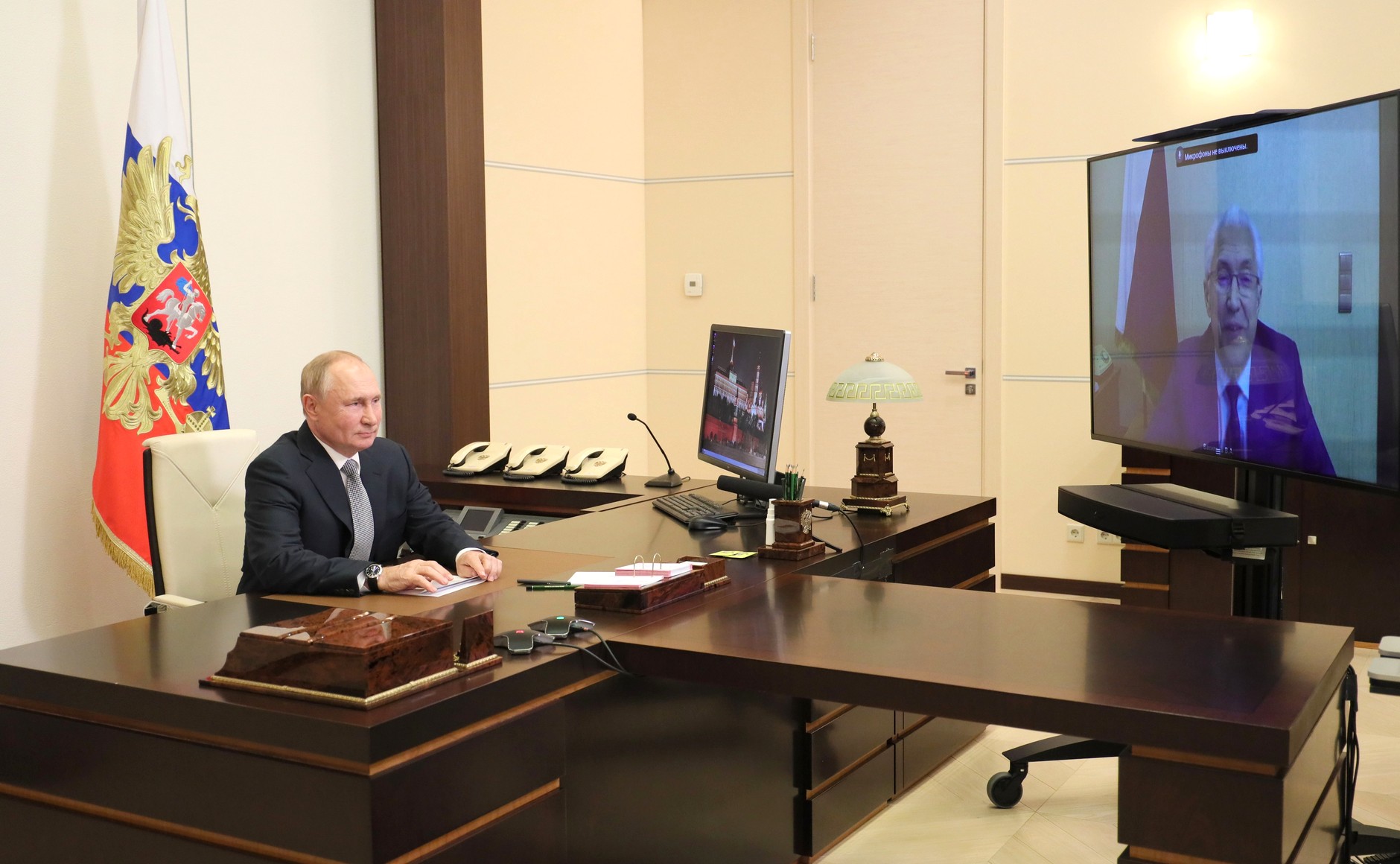 Vladimir Putin and Vladimir Vasilyev discussed plans for the faction’s work and exchanged views on the recent elections. The source of information - http://en.kremlin.ru/events/president/news/66971 Meeting with Government members Vladimir Putin chaired a videoconference meeting with members of the Russian Federation Government, which began with the discussion of the epidemiological situation in the country. October 20, 2021 - 15:45 - Novo-Ogaryovo, Moscow Region Attending the meeting were Prime Minister Mikhail Mishustin, Chief of Staff of the Presidential Executive Office Anton Vaino, First Deputy Prime Minister Andrei Belousov, First Deputy Chief of Staff of the Presidential Executive Office Sergei Kiriyenko, deputy prime ministers Viktoria Abramchenko, Yury Borisov, Tatyana Golikova, Alexander Novak, Marat Khusnullin and Dmitry Chernyshenko, Deputy Prime Minister and Chief of the Government Staff Dmitry Grigorenko, Deputy Prime Minister and Presidential Plenipotentiary Envoy to the Far Eastern Federal District Yury Trutnev, Presidential Aide Maxim Oreshkin, Minister of Economic Development Maxim Reshetnikov and Minister of Finance Anton Siluanov. A number of other ministers, heads of the Accounts Chamber and Rospotrebnadzor, and heads of Russian regions were also invited to attend. 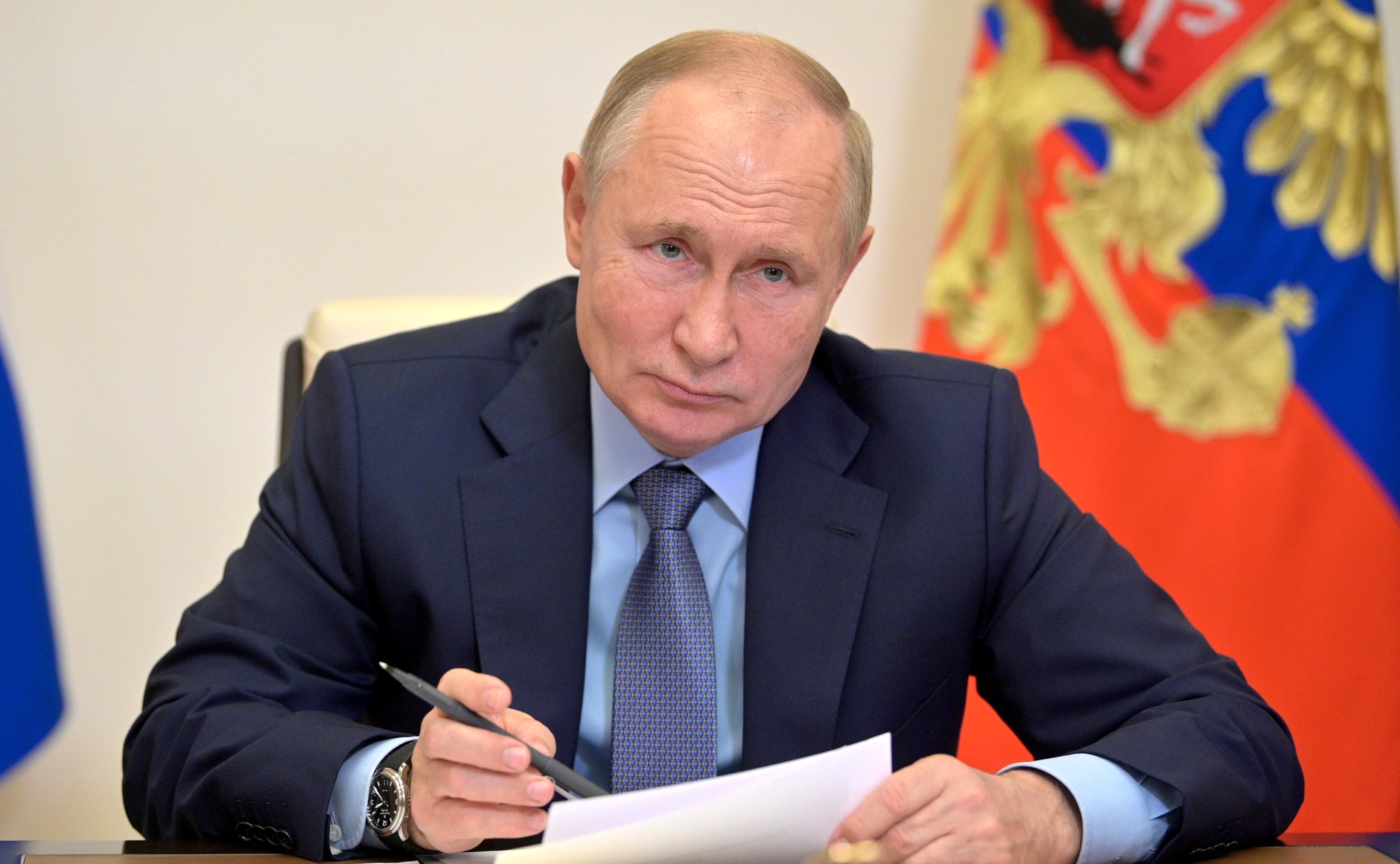 President of Russia Vladimir Putin: Good afternoon, colleagues, You and I discuss this problem almost every day, and we are focusing on it. Unfortunately, the entire world is still dealing with it. I am talking about the COVID-19 infection and its spread. Colleagues have reported yesterday and the day before yesterday, and I just had a look at the latest numbers both for our country and certain regions, and for our foreign neighbours. The overall picture is clear. Nevertheless, I would like to ask Ms Golikova to start with this issue and to report on the current situation with the COVID-19 pandemic and vaccination, including the anti-flu vaccination campaign. We know that, unfortunately, this problem is also escalating, and that it is impossible to overlook it. Ms Golikova, go ahead, please. Deputy Prime Minister Tatyana Golikova: Mr President, Colleagues, Good afternoon. The epidemiological situation caused by the spread of the novel coronavirus infection and other seasonal viruses is becoming more complicated. For over a month, we have seen a steady growth in the incidence and today, the number of new COVID-19 cases reported is approaching 35,000 a day. Today’s high figures are because of the spread of the infection throughout the entire Russian Federation. This is a peculiarity of this increase in cases compared to the previous season. At the same time, this is a difficulty that is putting a very heavy burden on the healthcare system. In addition, the upsurge in the incidence started with high daily figures, which were caused by a failure to observe restrictions and insufficient vaccination rates. Based on figures for the 41st week of 2021, the case rate in Russia stands at 151.4 people per 100,000 of the population. This is 15.5 percent more than the previous week. Today, the disease rates in 35 regions are above the national average. Incidence rates are increasing in all age groups, but we are primarily concerned, of course, about people aged 60+. There are currently 276,500 beds deployed in the Russian Federation, of which 66.1 percent are equipped with oxygen. As of yesterday morning, 86.6 percent of all beds in the country were occupied. We are particularly worried about the growing death rates from COVID-19. Recently, we have been losing over 1,000 people every day. These are terrible figures because they mean lost lives among our close ones. Unfortunately, they have been irretrievably lost. <…> I would like to emphasise that the grievous course of the disease and the high death rates are being observed in unvaccinated people. We are seeing a gradual increase in the vaccination rates, but it is still insufficient. Today, this figure is a little over 45 percent. <…> At the last meeting, we reported on a package of measures that we deemed necessary to take. We implemented them but they are not enough for overcoming the negative trends in current developments. In cooperation with the regions, the Government of the Russian Federation held consultations last week and early this week to draft additional measures that we want to submit for your consideration. In conformity with a decision made at yesterday’s meeting of the Government Coordination Council led by the Prime Minister, I would like to address you, Mr President, with a proposal to introduce non-working on all of Russia’s territory from October 30 to November 7, 2021. We suggest introducing non-working days earlier, for instance, from October 23, in the regions with the most complicated epidemiological situation. (Further, Tatyana Golikova reviewed specific issues concerning testing the population for the new coronavirus infection, vaccinating and isolating contact persons and persons with a confirmed diagnosis or those suspected of the new coronavirus infection, and toughening sanitary and epidemiological measures.) In turn, for the purpose of supporting the healthcare system, the Prime Minister resolved to help the regions. First, 56 billion rubles will be allocated to support the mandatory health insurance system. Second, in addition to this, we will make a centralised purchase and deliver certain expensive inpatient treatment medications to the regions, some that certain regions choose not to purchase citing the lack of financial resources. However, these medications are absolutely essential, particularly during the first few days of treatment. We will purchase 4.1 billion rubles worth of these medications, and help the regions stock up on oxygen. There are instructions from the Prime Minister on this. In addition to the recently allocated 5.1 billion rubles, additional funds from the federal budget will be sent to the regions before the end of the year to purchase medications for patients who are receiving outpatient treatment, in order to provide them with adequate supplies to last through the end of the year. Let me close with this: a heat map has been posted on the Стопкоронавирус.рф website that provides a weekly overview of the epidemiological situation in the regions. Among other things, it helps people understand the state of affairs in their specific region and make informed decisions when planning trips to other regions. Now, and during the upcoming week-long workplace shutdown, we ask our citizens to refrain from traveling to other regions, so as not to further aggravate the epidemiological situation and not to overstretch the public health system in particular regions. Mr President, We are fully aware of the complex nature of these measures, but we are proposing them with our full responsibility for the life and health of our people in mind, and because we realise perfectly well that there is nothing more precious than a human life. So, please support them. Vladimir Putin: Thank you. No doubt, proposals and actions of that kind will be burdensome for businesses. I am aware of this, and you just mentioned that the Government is drafting a decision to support businesses in these circumstances. (Next, at the President’s request, First Deputy Prime Minister Andrei Belousov reported on specific measures to support businesses. The first measure is a one-time payment of grants to small and medium-sized businesses that operate in fitness and sport, hospitality businesses, catering, additional education, consumer services, culture, leisure and entertainment, and other sectors, like in spring 2020. The second group of measures involves the resumption of the lending support programme, that is, the provision of inexpensive instalment loans with long-term repayment plans subject to certain conditions. According to Mr Belousov, the Government believes these two measures will be enough to mitigate the situation. The Government is monitoring the situation in each region and, if necessary, will come up with additional measures.) Vladimir Putin: Indeed, the domestic situation linked with the coronavirus infection is complicated. The disease has been recently spreading at much higher rates in many regions. You have quoted statistics, colleagues. In the meantime, the vaccination level remains low, unfortunately, which largely predetermines the rate at which the infection spreads. Obviously, the authorities must take adequate and prompt response measures under the circumstances. Our main task is to protect the life and health of our people as best we can and to minimise the negative consequences of this dangerous infection as much as possible. To achieve this it is primarily necessary to slow down the spread of the disease and, of course, to further mobilise the reserves and capacities of the public healthcare system, which is now working under extreme pressure. Let me repeat what I have said at the beginning: I took a look at the situation unfolding in neighbouring countries. We must prevent developments similar to those that we are witnessing with great regret and concern in some European countries, such as when people are unable to enter hospitals for several hours and sometimes several days, when they are put on ventilators even inside ambulances. Some of them never make it to the hospital due to a shortage of beds. I am asking you to do everything possible so that this country does not face anything like that. What must be done in this regard? First, it is necessary to expand testing in order to identify infected persons in a timely manner. Ms Popova and I talked to each other a couple of days ago, and we noted that the testing process was still rather slow. A person who has been tested walks away and comes in contact with others as he or she doesn’t know that they are already ill since many show no symptoms in the beginning. They have contact with other people, and then they seek medical attention too late. It is necessary to improve and expand testing, which will make it possible to ensure that infected persons and people who had contact with them self-isolate. It will therefore be possible to break the chain and to prevent the virus from spreading. I would like to draw the attention of our regional colleagues to the fact that they should not make any understatements or paint a glossy picture. This is dangerous and irresponsible in the current situation. Hospitalisation statistics and mortality rates show the real situation. We have to understand an obvious fact. Please keep in mind that we must deal with the situation in the following manner: If a Russian region records more new cases, this does not mean that the local authorities are doing a bad job. On the contrary, this means that, on the whole, the regional authorities are working effectively and are taking preventive action, and that they are not engaged in window dressing. This reflects the efficiency of regional teams’ work, rather than the other way round. Today, I am addressing the people of Russia. Friends, if someone in your family falls ill, you have to take a sick leave and stay home, even if you are up to the ears in work, as our people say. Nevertheless, you have to do this. You will prevent the infection from spreading, and you will not endanger your acquaintances, friends and co-workers. I would like to ask the Healthcare Ministry to closely monitor the granting of these sick leaves in Russian regions, and I am asking regional authorities to monitor the self-isolation of these persons. Please do this naturally and tactfully, and please show respect for them. Second. Let me repeat, right now it is extremely important to stem the tide of the COVID-19 pandemic. Colleagues, in view of the current developments, I support your proposal to announce a paid non-working week in the entire country between October 30 and November 7, inclusively. It is also clear that the epidemiological situation in each region is different, with its own dynamic and trends. Therefore, as we initially agreed when we started fighting this outbreak, the regional heads have the authority to introduce additional measures. In this particular case, it is possible to announce non-working days before October 30, before the stay-at-home period begins for the rest of the country, and extend these non-working days beyond November 7, if it proves necessary. Besides, Ms Golikova mentioned two days off after vaccination. See if you can expand this practice. Some people do experience a fever after receiving the jab. I myself had a fever after my second jab, just over 37 degrees. It is still a fever even if slight. One can only benefit from two days off. See if you can expand this practice further. Think about it, please. I want to stress once again that these days off must be paid. I would like to address specifically the heads of the regions where the morbidity rate is particularly high and healthcare facilities are overwhelmed. Please consult with experts to evaluate the situation, and, if necessary, announce non-working days starting this Saturday, October 23. Once again, you have the authority to do so. Do take charge since you have this authority, and do not wait too long to make the necessary decisions. I will instruct my envoys in the regions to closely monitor this situation and provide support if you need it. Third. It is important that the entire healthcare system in Russia operates without a hitch in these difficult circumstances. I am asking the Government to monitor the availability of medication and oxygen tanks on a daily basis. The Defence Ministry can help here. As you know, I gave respective instructions to the Defence Minister, and it has been arranged. We need a hands-on approach to solving problems that occur in certain regions. Just like we did before, including last year during the first wave of this epidemic, I am asking the Healthcare Ministry to provide staffing support to the regions most severely affected by the current wave and send top-ranked specialists to the regions, including from our leading healthcare centres and clinics. Fourth, businesses, primarily SMEs, will obviously incur certain costs due to the non-working days; Mr Belousov has just spoken about this. In this regard, I am asking the Government to ensure that Russian enterprises and companies receive the support that has just been mentioned. It is one thing to outline it, but then you need to actually implement it. I hope that this will be done in the same orderly way as the Government succeeded in doing in previous periods, the last time. We must take into account our experience from last year; as we know, that approach showed high efficiency. We have assessments from the entrepreneurs themselves, we have studied this. Our colleagues today spoke in detail about those measures, and I ask you to implement them. Next, unfortunately, we are seeing the dangerous consequences of the low vaccination levels in our country. I repeat once again: vaccination really reduces the risks of severe illness or serious complications after, and the threat of death. Therefore, I strongly support the Government’s proposals, and I am urging the heads of the Russian regions to increase their vaccination rates. I also once again urge all citizens to get vaccinated. This is about protecting yourself, about your safety, even your life, your relatives’ health. You know, I look at some people I know, at my friends – and sometimes, to be honest, it is strange, our conversations are strange. I remember asking some of my friends, people from my university, back at the start of the vaccine rollout, did you get vaccinated? And they ask me back, did you? I say, not yet, and they said, I would rather wait until you do. Okay, I have now, and I ask them again, did you get vaccinated? No. Why? Well, I don’t know, I’ll still wait. It's strange, I mean, those are educated people, with advanced degrees, I don't even understand what is going on. And we have a reliable and effective vaccine. So I would like to say this again, we have only two options to get through this period – to get sick or get vaccinated. But it is better to be vaccinated. Why wait for the disease and its severe consequences? Please, show responsibility; make every effort to protect yourself, your health, and your loved ones. This concludes this part, let us move on to current issues. 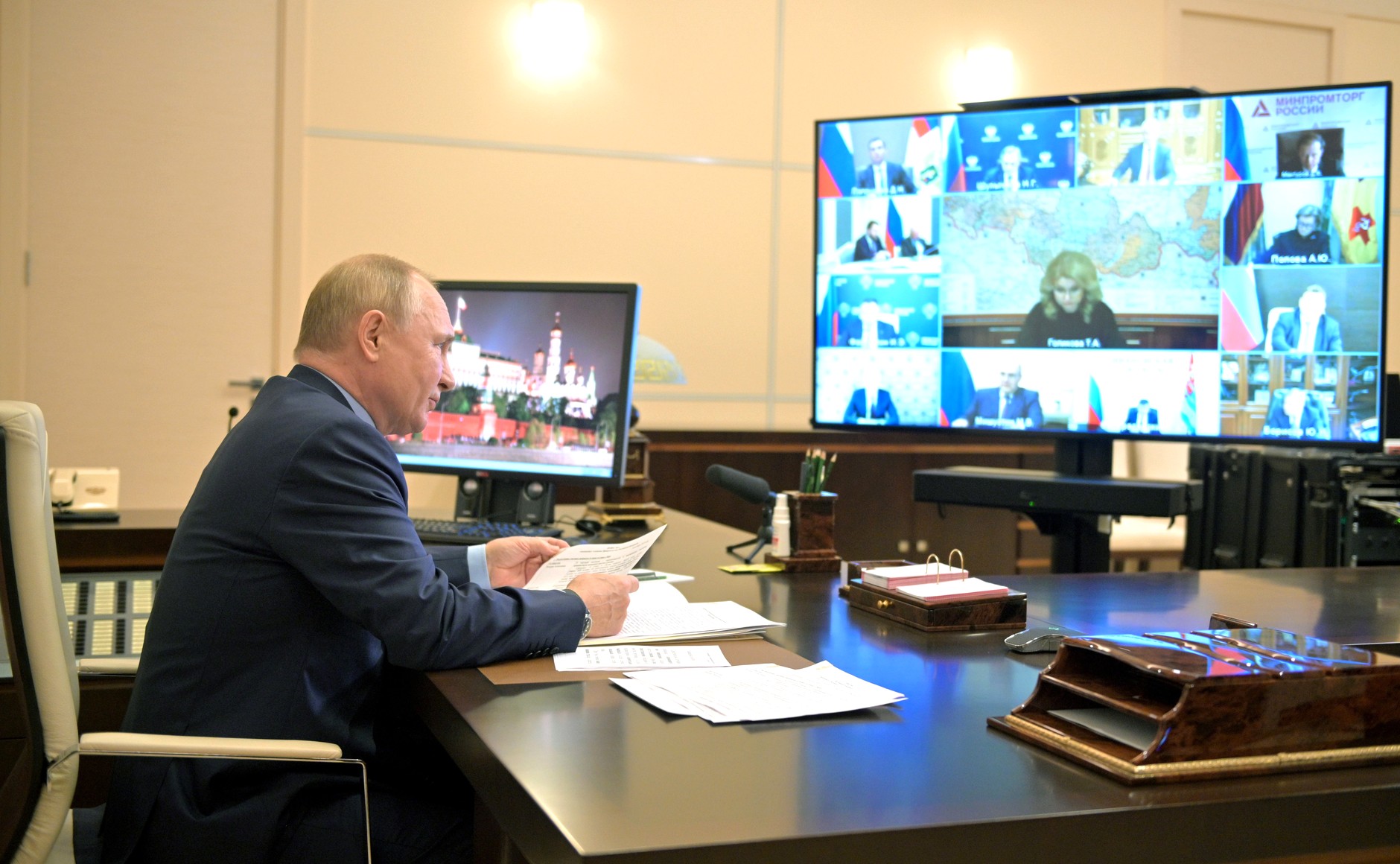 <…> Vladimir Putin: We are not operating in a vacuum, and global energy market developments do, in one way or another, affect us. In this regard, I would like to ask Mr Novak to update us on the situation on key markets. Deputy Prime Minister Alexander Novak: Mr President, The situation on the natural gas market remains quite tense, primarily due to fairly high prices. In Europe, prices average $1,000-$1,100. In the Asia-Pacific region, natural gas prices stand at about $1,200 per 1,000 cubic metres. Notably, since earlier this year, natural gas prices have increased by about 3.5 times. At the same time, we are seeing steep increases in prices for other energy resources. In particular, coal prices have increased three to four times compared to last year, up to $160-$200 per tonne, depending on the type, and electricity prices are up five to six times. In Europe, the price was $50 per megawatt-hour earlier this year, whereas now it is around $300. Mr President, you provided an in-depth and clear-cut overview of the reasons for the current situation on the gas market in your speech at Russian Energy Week. No doubt, these issues include the fact that natural gas storage facilities are far below capacity and that the global economy is recovering at a fast pace since the pandemic. As a result, the supplies of Qatari and US liquefied natural gas were reoriented to the Asia-Pacific region. Notably, natural gas consumption is expected to grow by about 17 percent in China this year and by about 18 percent in South Korea. The Asia-Pacific region as a whole will see the additional demand for natural gas grow by 7 to 8 percent. Of course, production in Europe, which is declining, is also affecting the situation. The most recent European policy to reorient long-term contracts to the commodity exchange and spot gas prices is the key factor. What we have as a result is an out of balance market. Ineffective policies have unbalanced supply and demand. Mr President, I would like to say that our monitoring shows that the current situation is negatively affecting the performance of companies in related industries, primarily in the global chain. What are we seeing? We are seeing a substantial decline in the production of nitrogenous fertiliser and the closing of petrochemical capacity. As of today, about 40–50 percent of ammoniac capacity has been suspended in Europe. This is a very high level, and it has doubled nitrogenous fertiliser prices today. In terms of where this is happening, I will mention a considerable reduction in output from Norway’s Yara, one of the biggest fertiliser producers; Achema, a nitrogenous fertiliser producer in Lithuania; Germany’s BASF and the Dutch fertiliser producer OCI. The Odessa Port Plant has been completely shut down. This is Ukraine’s second largest plant producing ammonia and carbamide. Ostchem has also suspended part of its capacity in Ukraine. As a result of increasing prices and a general decline in production, we are seeing the risk of a new round of soaring prices on agriculture products. This is how the market is already reacting to the current situation. Regarding the impact of growing prices on electricity on the current economic situation, which I mentioned before, I would like to note that gas and electricity suppliers are going bankrupt in many countries. Price increases have already led to the bankruptcy of 12 suppliers serving about 1.5 million households in Britain. Importantly, this is a persisting trend and we are seeing that industries in addition to what I mentioned are being affected. Metallurgical plants that use a lot of electricity are also suspending production. These include, for example, zinc producers and foundries. Thus, a large zinc producer from Belgium has cut production in half at three plants: in the Netherlands, Belgium and France. But soaring electricity prices are not just affecting these industries alone. As of today, we see that, for example, in China, about 160 textile and light industry factories have been shut down due to lack of electricity. There are problems in food production, especially at greenhouse facilities. Producers of greenhouse tomatoes and cucumbers are at risk. We are monitoring the situation closely. The situation, of course, is causing concern. Unfortunately, we do not see any chance of supply and demand in Europe regaining balance any time soon. Much will depend on temperatures during autumn and winter and the demand for gas in Europe and on other markets. This is unsettling, as I mentioned earlier, especially for industries related to the production of essential goods and food. Considering that we are part of the global economy and we maintain economic ties, I believe we need to carefully follow the developments that are unfolding on the energy markets and in other industries in Europe and Asia-Pacific region, that affect production chains and our economy. We will monitor them every step of the way and report back to you. Thank you. Vladimir Putin: Thank you. I think that monitoring alone is no longer enough. And I will tell you why. As a matter of fact, you have named almost all of the factors. Indeed, even without going into the details of the events that triggered the current developments, clearly the cuts in coal production and nuclear generation in a number of leading global economies, a rather harsh winter last year, and shortages of wind generation have led to deficits and low levels of natural gas reserves in underground storage facilities, all of which makes the market skittish. Add to that an increase in consumption in Asia, in the wake of which US companies reoriented their liquefied gas flows from Europe to Asia. In fact, what they did is withdraw a significant amount of gas from the European market and ship it first to Latin America and then to Asia which led to the current state of affairs. But there are even deeper underlying reasons which stem from deeper budget deficits and disruptions in supply chains which sent inflation higher in the leading economies. This is a major factor which negatively affects the final result given the developments I just mentioned. You are right. I am worried about and, as I understand, the Government is worried as well about the potential consequences. I have in mind here the measures to support consumers being proposed by some of our colleagues in Europe. That is the right thing to do, and people must be supported. A number of European countries are planning measures to support households. How will this play out in real life? The households will not cut consumption, but there will be a further reduction in industrial consumption, primarily, in energy-intensive industries, which you just named – the metallurgical industry, the production of ammonia fertilisers, and so on. This will have consequences, which, first, will affect people and ultimately increase prices for other goods. The proposed approach to support the people seem fairly straightforward, but, ultimately, we see that these are most likely decisions dictated by the domestic political situation, the campaign season in a number of European countries, among other things. Ultimately, it will affect the people all the same. If the metallurgical industry consumes less, the prices for its products will rise, which will send prices higher along the entire chain in the same way prices on food markets rise if not enough fertilisers are used, and fertilisers are produced with the use of natural gas. This has consequences for us as well. I am not talking about energy now. If it leads to a decrease in consumption – and this situation will ultimately lead to a decrease in consumption – it will affect our production companies, including Gazprom. So, we are not interested in seeing prices for energy, including gas, grow endlessly. Nevertheless, what is happening now is beyond our control. These are the things that were largely done by our colleagues, including in Europe. But there may be consequences for us, too. As soon as the prices, which you just mentioned, for the fertilisers produced with natural gas, start growing – and they are already growing, since enterprises are shutting down – our producers will be tempted to sell their products at higher prices as well. We know this from recent events in some industries. So, we need to not only analyse what will happen in the near future, but also to come up with a set of measures that would certainly protect the interests of our agricultural producers and, accordingly, keep a lid on prices for food. I want the Government – Mr Mishustin, please organise this work, not just carry out an analysis, as Mr Novak suggested, but also come up with a set of actions aimed at mitigating the negative consequences that may occur on the global markets and affect our economy. These must be calm, well-thought-out, well-prepared and well-calculated decisions, without alarmism. Prime Minister Mikhail Mishustin: I am on it, Mr President. Vladimir Putin: Good. Thank you very much. Colleagues, do you have any other suggestions, comments or thoughts on the current situation? No? Then we will be wrapping up. As I said at the beginning of our meeting, I will sign the necessary regulatory documents later today. Thank you very much. Good luck. The source of information - http://en.kremlin.ru/events/president/news/66972 Executive Order on non-working days in October and November 2021 The President signed Executive Order On Non-Working Days in the Russian Federation in October and November 2021. October 20, 2021 - 17:15 In order to prevent further spread of the novel coronavirus (COVID-19) and to protect public health, the President has announced that October 30 to November 7, 2021, inclusive, will be paid non-working days. Corresponding recommendations were given to highest officials in the Russian Federation regions. The Russian Federation Government was instructed to determine working arrangements for federal cultural institutions and healthcare facilities during the non-working days introduced by the Executive Order. The Russian Federation Government and highest regional officials were instructed to allocate, from respective budgets, financial support for small and medium-sized businesses as well as socially oriented non-profit organisations which are part of the Russian economy and that are most affected by the worsening COVID-19 outbreak and the non-working days in October and November 2021. The source of information - http://en.kremlin.ru/events/president/news/66973
__________________
Where should they dig the Very Deep Pit? Piglet said that the best place would be somewhere where a Heffalump was, just before he fell into it, only about a foot farther on. (c) Alan Alexander Miln |
|
|
#13 |
|
Senior Member
|
Valdai Discussion Club meeting - Part I
Vladimir Putin took part in a plenary session of the 18th annual meeting of the Valdai International Discussion Club. October 21, 2021 - 21:25 - Sochi This year’s theme is Global Shake-up in the 21st Century: The Individual, Values and the State. The four-day programme includes over 15 in-person and online sessions. President of Russia Vladimir Putin: Ladies and gentlemen, To begin with, I would like to thank you for coming to Russia and taking part in the Valdai Club events. As always, during these meetings you raise pressing issues and hold comprehensive discussions of these issues that, without exaggeration, matter for people around the world. Once again, the key theme of the forum was put in a straightforward, I would even say, point-blank manner: Global Shake-up in the 21st Century: The Individual, Values and the State. Indeed, we are living in an era of great change. If I may, by tradition, I will offer my views with regard to the agenda that you have come up with. In general, this phrase, “to live in an era of great change,” may seem trite since we use it so often. Also, this era of change began quite a long time ago, and changes have become part of everyday life. Hence, the question: are they worth focusing on? I agree with those who made the agenda for these meetings; of course they are. In recent decades, many people have cited a Chinese proverb. The Chinese people are wise, and they have many thinkers and valuable thoughts that we can still use today. One of them, as you may know, says, “God forbid living in a time of change.” But we are already living in it, whether we like it or not, and these changes are becoming deeper and more fundamental. But let us consider another Chinese wisdom: the word “crisis” consists of two hieroglyphs – there are probably representatives of the People's Republic of China in the audience, and they will correct me if I have it wrong – but, two hieroglyphs, “danger” and “opportunity.” And as we say here in Russia, “fight difficulties with your mind, and fight dangers with your experience.” Of course, we must be aware of the danger and be ready to counter it, and not just one threat but many diverse threats that can arise in this era of change. However, it is no less important to recall a second component of the crisis – opportunities that must not be missed, all the more so since the crisis we are facing is conceptual and even civilisation-related. This is basically a crisis of approaches and principles that determine the very existence of humans on Earth, but we will have to seriously revise them in any event. The question is where to move, what to give up, what to revise or adjust. In saying this, I am convinced that it is necessary to fight for real values, upholding them in every way. Humanity entered into a new era about three decades ago when the main conditions were created for ending military-political and ideological confrontation. I am sure you have talked a lot about this in this discussion club. Our Foreign Minister also talked about it, but nevertheless I would like to repeat several things. A search for a new balance, sustainable relations in the social, political, economic, cultural and military areas and support for the world system was launched at that time. We were looking for this support but must say that we did not find it, at least so far. Meanwhile, those who felt like the winners after the end of the Cold War (we have also spoken about this many times) and thought they climbed Mount Olympus soon discovered that the ground was falling away underneath even there, and this time it was their turn, and nobody could “stop this fleeting moment” no matter how fair it seemed. In general, it must have seemed that we adjusted to this continuous inconstancy, unpredictability and permanent state of transition, but this did not happen either. I would like to add that the transformation that we are seeing and are part of is of a different calibre than the changes that repeatedly occurred in human history, at least those we know about. This is not simply a shift in the balance of forces or scientific and technological breakthroughs, though both are also taking place. Today, we are facing systemic changes in all directions – from the increasingly complicated geophysical condition of our planet to a more paradoxical interpretation of what a human is and what the reasons for his existence are. Let us look around. And I will say this again: I will allow myself to express a few thoughts that I sign on to. Firstly, climate change and environmental degradation are so obvious that even the most careless people can no longer dismiss them. One can continue to engage in scientific debates about the mechanisms behind the ongoing processes, but it is impossible to deny that these processes are getting worse, and something needs to be done. Natural disasters such as droughts, floods, hurricanes, and tsunamis have almost become the new normal, and we are getting used to them. Suffice it to recall the devastating, tragic floods in Europe last summer, the fires in Siberia – there are a lot of examples. Not only in Siberia – our neighbours in Turkey have also had wildfires, and the United States, and other places on the American continent. It sometimes seems that any geopolitical, scientific and technical, or ideological rivalry becomes pointless in this context, if the winners will have not enough air to breathe or nothing to drink. The coronavirus pandemic has become another reminder of how fragile our community is, how vulnerable it is, and our most important task is to ensure humanity a safe existence and resilience. To increase our chance of survival in the face of cataclysms, we absolutely need to rethink how we go about our lives, how we run our households, how cities develop or how they should develop; we need to reconsider economic development priorities of entire states. I repeat, safety is one of our main imperatives, in any case it has become obvious now, and anyone who tries to deny this will have to later explain why they were wrong and why they were unprepared for the crises and shocks whole nations are facing. Second. The socioeconomic problems facing humankind have worsened to the point where, in the past, they would trigger worldwide shocks, such as world wars or bloody social cataclysms. Everyone is saying that the current model of capitalism which underlies the social structure in the overwhelming majority of countries, has run its course and no longer offers a solution to a host of increasingly tangled differences. Everywhere, even in the richest countries and regions, the uneven distribution of material wealth has exacerbated inequality, primarily, inequality of opportunities both within individual societies and at the international level. I mentioned this formidable challenge in my remarks at the Davos Forum earlier this year. No doubt, these problems threaten us with major and deep social divisions. Furthermore, a number of countries and even entire regions are regularly hit by food crises. We will probably discuss this later, but there is every reason to believe that this crisis will become worse in the near future and may reach extreme forms. There are also shortages of water and electricity (we will probably cover this today as well), not to mention poverty, high unemployment rates or lack of adequate healthcare. Lagging countries are fully aware of that and are losing faith in the prospects of ever catching up with the leaders. Disappointment spurs aggression and pushes people to join the ranks of extremists. People in these countries have a growing sense of unfulfilled and failed expectations and the lack of any opportunities not only for themselves, but for their children, as well. This is what makes them look for better lives and results in uncontrolled migration, which, in turn, creates fertile ground for social discontent in more prosperous countries. I do not need to explain anything to you, since you can see everything with your own eyes and are, probably, versed on these matters even better than I. As I noted earlier, prosperous leading powers have other pressing social problems, challenges and risks in ample supply, and many among them are no longer interested in fighting for influence since, as they say, they already have enough on their plates. The fact that society and young people in many countries have overreacted in a harsh and even aggressive manner to measures to combat the coronavirus showed – and I want to emphasise this, I hope someone has already mentioned this before me at other venues – so, I think that this reaction showed that the pandemic was just a pretext: the causes for social irritation and frustration run much deeper. I have another important point to make. The pandemic, which, in theory, was supposed to rally the people in the fight against this massive common threat, has instead become a divisive rather than a unifying factor. There are many reasons for that, but one of the main ones is that they started looking for solutions to problems among the usual approaches – a variety of them, but still the old ones, but they just do not work. Or, to be more precise, they do work, but often and oddly enough, they worsen the existing state of affairs. By the way, Russia has repeatedly called for, and I will repeat this, stopping these inappropriate ambitions and for working together. We will probably talk about this later but it is clear what I have in mind. We are talking about the need to counter the coronavirus infection together. But nothing changes; everything remains the same despite the humanitarian considerations. I am not referring to Russia now, let’s leave the sanctions against Russia for now; I mean the sanctions that remain in place against those states that badly need international assistance. Where are the humanitarian fundamentals of Western political thought? It appears there is nothing there, just idle talk. Do you understand? This is what seems to be on the surface. Furthermore, the technological revolution, impressive achievements in artificial intelligence, electronics, communications, genetics, bioengineering, and medicine open up enormous opportunities, but at the same time, in practical terms, they raise philosophical, moral and spiritual questions that were until recently the exclusive domain of science fiction writers. What will happen if machines surpass humans in the ability to think? Where is the limit of interference in the human body beyond which a person ceases being himself and turns into some other entity? What are the general ethical limits in the world where the potential of science and machines are becoming almost boundless? What will this mean for each of us, for our descendants, our nearest descendants – our children and grandchildren? These changes are gaining momentum, and they certainly cannot be stopped because they are objective as a rule. All of us will have to deal with the consequences regardless of our political systems, economic condition or prevailing ideology. Verbally, all states talk about their commitment to the ideals of cooperation and a willingness to work together for resolving common problems but, unfortunately, these are just words. In reality, the opposite is happening, and the pandemic has served to fuel the negative trends that emerged long ago and are now only getting worse. The approach based on the proverb, “your own shirt is closer to the body,” has finally become common and is now no longer even concealed. Moreover, this is often even a matter of boasting and brandishing. Egotistic interests prevail over the notion of the common good. Of course, the problem is not just the ill will of certain states and notorious elites. It is more complicated than that, in my opinion. In general, life is seldom divided into black and white. Every government, every leader is primarily responsible to his own compatriots, obviously. The main goal is to ensure their security, peace and prosperity. So, international, transnational issues will never be as important for a national leadership as domestic stability. In general, this is normal and correct. We need to face the fact the global governance institutions are not always effective and their capabilities are not always up to the challenge posed by the dynamics of global processes. In this sense, the pandemic could help – it clearly showed which institutions have what it takes and which need fine-tuning. The re-alignment of the balance of power presupposes a redistribution of shares in favour of rising and developing countries that until now felt left out. To put it bluntly, the Western domination of international affairs, which began several centuries ago and, for a short period, was almost absolute in the late 20th century, is giving way to a much more diverse system. This transformation is not a mechanical process and, in its own way, one might even say, is unparalleled. Arguably, political history has no examples of a stable world order being established without a big war and its outcomes as the basis, as was the case after World War II. So, we have a chance to create an extremely favourable precedent. The attempt to create it after the end of the Cold War on the basis of Western domination failed, as we see. The current state of international affairs is a product of that very failure, and we must learn from this. Some may wonder, what have we arrived at? We have arrived somewhere paradoxical. Just an example: for two decades, the most powerful nation in the world has been conducting military campaigns in two countries that it cannot be compared to by any standard. But in the end, it had to wind down operations without achieving a single goal that it had set for itself going in 20 years ago, and to withdraw from these countries causing considerable damage to others and itself. In fact, the situation has worsened dramatically. But that is not the point. Previously, a war lost by one side meant victory for the other side, which took responsibility for what was happening. For example, the defeat of the United States in the Vietnam War, for example, did not make Vietnam a “black hole.” On the contrary, a successfully developing state arose there, which, admittedly, relied on the support of a strong ally. Things are different now: no matter who takes the upper hand, the war does not stop, but just changes form. As a rule, the hypothetical winner is reluctant or unable to ensure peaceful post-war recovery, and only worsens the chaos and the vacuum posing a danger to the world. Colleagues, What do you think are the starting points of this complex realignment process? Let me try to summarise the talking points. First, the coronavirus pandemic has clearly shown that the international order is structured around nation states. By the way, recent developments have shown that global digital platforms – with all their might, which we could see from the internal political processes in the United States – have failed to usurp political or state functions. These attempts proved ephemeral. The US authorities, as I said, have immediately put the owners of these platforms in their place, which is exactly what is being done in Europe, if you just look at the size of the fines imposed on them and the demonopolisation measures being taken. You are aware of that. In recent decades, many have tossed around fancy concepts claiming that the role of the state was outdated and outgoing. Globalisation supposedly made national borders an anachronism, and sovereignty an obstacle to prosperity. You know, I said it before and I will say it again. This is also what was said by those who attempted to open up other countries’ borders for the benefit of their own competitive advantages. This is what actually happened. And as soon as it transpired that someone somewhere is achieving great results, they immediately returned to closing borders in general and, first of all, their own customs borders and what have you, and started building walls. Well, were we supposed to not notice, or what? Everyone sees everything and everyone understands everything perfectly well. Of course, they do. There is no point in disputing it anymore. It is obvious. But events, when we spoke about the need to open up borders, events, as I said, went in the opposite direction. Only sovereign states can effectively respond to the challenges of the times and the demands of the citizens. Accordingly, any effective international order should take into account the interests and capabilities of the state and proceed on that basis, and not try to prove that they should not exist. Furthermore, it is impossible to impose anything on anyone, be it the principles underlying the sociopolitical structure or values that someone, for their own reasons, has called universal. After all, it is clear that when a real crisis strikes, there is only one universal value left and that is human life, which each state decides for itself how best to protect based on its abilities, culture and traditions. In this regard, I will again note how severe and dangerous the coronavirus pandemic has become. As we know, more than 4.9 million have died of it. These terrifying figures are comparable and even exceed the military losses of the main participants in World War I. The second point I would like to draw your attention to is the scale of change that forces us to act extremely cautiously, if only for reasons of self-preservation. The state and society must not respond radically to qualitative shifts in technology, dramatic environmental changes or the destruction of traditional systems. It is easier to destroy than to create, as we all know. We in Russia know this very well, regrettably, from our own experience, which we have had several times. Just over a century ago, Russia objectively faced serious problems, including because of the ongoing World War I, but its problems were not bigger and possibly even smaller or not as acute as the problems the other countries faced, and Russia could have dealt with its problems gradually and in a civilised manner. But revolutionary shocks led to the collapse and disintegration of a great power. The second time this happened 30 years ago, when a potentially very powerful nation failed to enter the path of urgently needed, flexible but thoroughly substantiated reforms at the right time, and as a result it fell victim to all kinds of dogmatists, both reactionary ones and the so-called progressives – all of them did their bit, all sides did. These examples from our history allow us to say that revolutions are not a way to settle a crisis but a way to aggravate it. No revolution was worth the damage it did to the human potential. Third. The importance of a solid support in the sphere of morals, ethics and values is increasing dramatically in the modern fragile world. In point of fact, values are a product, a unique product of cultural and historical development of any nation. The mutual interlacing of nations definitely enriches them, openness expands their horizons and allows them to take a fresh look at their own traditions. But the process must be organic, and it can never be rapid. Any alien elements will be rejected anyway, possibly bluntly. Any attempts to force one’s values on others with an uncertain and unpredictable outcome can only further complicate a dramatic situation and usually produce the opposite reaction and an opposite from the intended result. We look in amazement at the processes underway in the countries which have been traditionally looked at as the standard-bearers of progress. Of course, the social and cultural shocks that are taking place in the United States and Western Europe are none of our business; we are keeping out of this. Some people in the West believe that an aggressive elimination of entire pages from their own history, “reverse discrimination” against the majority in the interests of a minority, and the demand to give up the traditional notions of mother, father, family and even gender, they believe that all of these are the mileposts on the path towards social renewal. Listen, I would like to point out once again that they have a right to do this, we are keeping out of this. But we would like to ask them to keep out of our business as well. We have a different viewpoint, at least the overwhelming majority of Russian society – it would be more correct to put it this way – has a different opinion on this matter. We believe that we must rely on our own spiritual values, our historical tradition and the culture of our multiethnic nation. The advocates of so-called ‘social progress’ believe they are introducing humanity to some kind of a new and better consciousness. Godspeed, hoist the flags as we say, go right ahead. The only thing that I want to say now is that their prescriptions are not new at all. It may come as a surprise to some people, but Russia has been there already. After the 1917 revolution, the Bolsheviks, relying on the dogmas of Marx and Engels, also said that they would change existing ways and customs and not just political and economic ones, but the very notion of human morality and the foundations of a healthy society. The destruction of age-old values, religion and relations between people, up to and including the total rejection of family (we had that, too), encouragement to inform on loved ones – all this was proclaimed progress and, by the way, was widely supported around the world back then and was quite fashionable, same as today. By the way, the Bolsheviks were absolutely intolerant of opinions other than theirs. This, I believe, should call to mind some of what we are witnessing now. Looking at what is happening in a number of Western countries, we are amazed to see the domestic practices, which we, fortunately, have left, I hope, in the distant past. The fight for equality and against discrimination has turned into aggressive dogmatism bordering on absurdity, when the works of the great authors of the past – such as Shakespeare – are no longer taught at schools or universities, because their ideas are believed to be backward. The classics are declared backward and ignorant of the importance of gender or race. In Hollywood memos are distributed about proper storytelling and how many characters of what colour or gender should be in a movie. This is even worse than the agitprop department of the Central Committee of the Communist Party of the Soviet Union. Countering acts of racism is a necessary and noble cause, but the new ‘cancel culture’ has turned it into ‘reverse discrimination’ that is, reverse racism. The obsessive emphasis on race is further dividing people, when the real fighters for civil rights dreamed precisely about erasing differences and refusing to divide people by skin colour. I specifically asked my colleagues to find the following quote from Martin Luther King: “I have a dream that my four little children will one day live in a nation where they will not be judged by the colour of their skin but by their character.” This is the true value. However, things are turning out differently there. By the way, the absolute majority of Russian people do not think that the colour of a person's skin or their gender is an important matter. Each of us is a human being. This is what matters. In a number of Western countries, the debate over men’s and women’s rights has turned into a perfect phantasmagoria. Look, beware of going where the Bolsheviks once planned to go – not only communalising chickens, but also communalising women. One more step and you will be there. Zealots of these new approaches even go so far as to want to abolish these concepts altogether. Anyone who dares mention that men and women actually exist, which is a biological fact, risk being ostracised. “Parent number one” and “parent number two,” “'birthing parent” instead of “mother,” and “human milk” replacing “breastmilk” because it might upset the people who are unsure about their own gender. I repeat, this is nothing new; in the 1920s, the so-called Soviet Kulturtraegers also invented some newspeak believing they were creating a new consciousness and changing values that way. And, as I have already said, they made such a mess it still makes one shudder at times. Not to mention some truly monstrous things when children are taught from an early age that a boy can easily become a girl and vice versa. That is, the teachers actually impose on them a choice we all supposedly have. They do so while shutting the parents out of the process and forcing the child to make decisions that can upend their entire life. They do not even bother to consult with child psychologists – is a child at this age even capable of making a decision of this kind? Calling a spade a spade, this verges on a crime against humanity, and it is being done in the name and under the banner of progress. Well, if someone likes this, let them do it. I have already mentioned that, in shaping our approaches, we will be guided by a healthy conservatism. That was a few years ago, when passions on the international arena were not yet running as high as they are now, although, of course, we can say that clouds were gathering even then. Now, when the world is going through a structural disruption, the importance of reasonable conservatism as the foundation for a political course has skyrocketed – precisely because of the multiplying risks and dangers, and the fragility of the reality around us. This conservative approach is not about an ignorant traditionalism, a fear of change or a restraining game, much less about withdrawing into our own shell. It is primarily about reliance on a time-tested tradition, the preservation and growth of the population, a realistic assessment of oneself and others, a precise alignment of priorities, a correlation of necessity and possibility, a prudent formulation of goals, and a fundamental rejection of extremism as a method. And frankly, in the impending period of global reconstruction, which may take quite long, with its final design being uncertain, moderate conservatism is the most reasonable line of conduct, as far as I see it. It will inevitably change at some point, but so far, do no harm – the guiding principle in medicine – seems to be the most rational one. Noli nocere, as they say. Again, for us in Russia, these are not some speculative postulates, but lessons from our difficult and sometimes tragic history. The cost of ill-conceived social experiments is sometimes beyond estimation. Such actions can destroy not only the material, but also the spiritual foundations of human existence, leaving behind moral wreckage where nothing can be built to replace it for a long time. Finally, there is one more point I want to make. We understand all too well that resolving many urgent problems the world has been facing would be impossible without close international cooperation. However, we need to be realistic: most of the pretty slogans about coming up with global solutions to global problems that we have been hearing since the late 20th century will never become reality. In order to achieve a global solution, states and people have to transfer their sovereign rights to supra-national structures to an extent that few, if any, would accept. This is primarily attributable to the fact that you have to answer for the outcomes of such policies not to some global public, but to your citizens and voters. However, this does not mean that exercising some restraint for the sake of bringing about solutions to global challenges is impossible. After all, a global challenge is a challenge for all of us together, and to each of us in particular. If everyone saw a way to benefit from cooperation in overcoming these challenges, this would definitely leave us better equipped to work together. One of the ways to promote these efforts could be, for example, to draw up, at the UN level, a list of challenges and threats that specific countries face, with details of how they could affect other countries. This effort could involve experts from various countries and academic fields, including you, my colleagues. We believe that developing a roadmap of this kind could inspire many countries to see global issues in a new light and understand how cooperation could be beneficial for them. I have already mentioned the challenges international institutions are facing. Unfortunately, this is an obvious fact: it is now a question of reforming or closing some of them. However, the United Nations as the central international institution retains its enduring value, at least for now. I believe that in our turbulent world it is the UN that brings a touch of reasonable conservatism into international relations, something that is so important for normalising the situation. Many criticise the UN for failing to adapt to a rapidly changing world. In part, this is true, but it is not the UN, but primarily its members who are to blame for this. In addition, this international body promotes not only international norms, but also the rule-making spirit, which is based on the principles of equality and maximum consideration for everyone’s opinions. Our mission is to preserve this heritage while reforming the organisation. However, in doing so we need to make sure that we do not throw the baby out with the bathwater, as the saying goes. This is not the first time I am using a high rostrum to make this call for collective action in order to face up to the problems that continue to pile up and become more acute. It is thanks to you, friends and colleagues, that the Valdai Club is emerging or has already established itself as a high-profile forum. It is for this reason that I am turning to this platform to reaffirm our readiness to work together on addressing the most urgent problems that the world is facing today. Friends, The changes mentioned here prior to me, as well as by yours truly, are relevant to all countries and peoples. Russia, of course, is not an exception. Just like everyone else, we are searching for answers to the most urgent challenges of our time. Of course, no one has any ready-made recipes. However, I would venture to say that our country has an advantage. Let me explain what this advantage is. It is to do with our historical experience. You may have noticed that I have referred to it several times in the course of my remarks. Unfortunately, we had to bring back many sad memories, but at least our society has developed what they now refer to as herd immunity to extremism that paves the way to upheavals and socioeconomic cataclysms. People really value stability and being able to live normal lives and to prosper while confident that the irresponsible aspirations of yet another group of revolutionaries will not upend their plans and aspirations. Many have vivid memories of what happened 30 years ago and all the pain it took to climb out of the ditch where our country and our society found themselves after the USSR fell apart. The conservative views we hold are an optimistic conservatism, which is what matters the most. We believe stable, positive development to be possible. It all depends primarily on our own efforts. Of course, we are ready to work with our partners on common noble causes. I would like to thank all participants once more, for your attention. As the tradition goes, I will gladly answer or at least try to answer your questions. Thank you for your patience. Moderator of the 18th annual meeting of the Valdai International Discussion Club closing session Fyodor Lukyanov: Thank you very much, Mr President, for your detailed remarks covering not only and not so much the current political problems, but fundamental issues. Following up on what you said, I cannot fail to ask you about the historical experience, traditions, conservatism and healthy conservatism that you have mentioned on several occasions in your remarks. Does unhealthy conservatism frighten you? Where does the boundary separating the healthy from the unhealthy lie? At what point does a tradition turn from something that binds society together into a burden? Vladimir Putin: Anything can become a burden, if you are not careful. When I speak about healthy conservatism, Nikolai Berdyayev always springs to mind, and I have already mentioned him several times. He was a remarkable Russian philosopher, and as you all know he was expelled from the Soviet Union in 1922. He was as forward-thinking as a man can be, but also sided with conservatism. He used to say, and you will excuse me if I do not quote his exact words: “Conservatism is not something preventing upward, forward movement, but something preventing you from sliding back into chaos.” If we treat conservatism this way, it provides an effective foundation for further progress. Fyodor Lukyanov: Speaking of traditions, you also tend to mention traditional values quite frequently, and this is a hot topic in our society. In particular, you have proposed relying on traditional values as a foundation for bringing the world together. However, traditions are destined to be unique for every nation. How can everyone come together around the same traditional values, if they have their own traditions? Vladimir Putin: Do you know what the trick is? The trick is that of course there is a lot of diversity and every nation around the world is different. Still, something unites all people. After all, we are all people, and we all want to live. Life is of absolute value. In my opinion, the same applies to family as a value, because what can be more important than procreation? Do we want to be or not to be? If we do not want to be, fine. You see, adoption is also a good and important thing, but to adopt a child someone has to give birth to that child. This is the second universal value that cannot be contested. I do not think that I need to list them all. You are all smart people here, and everyone understands this, including you. Yes, we do need to work together based on these shared, universal values. Fyodor Lukyanov: You made a powerful statement when you said that the current model of capitalism has run its course and no longer offers a solution to international issues. One hears this a lot these days, but you are referring to our country’s unfortunate experience in the 20th century when we were actually rejecting capitalism, but this did not work out for us either. Does this mean that this is where we want to return? Where are we headed with this dysfunctional capitalist model? Vladimir Putin: I also said that there were no ready-made recipes. It is true that what we are currently witnessing, for example on the energy markets, as we will probably discuss later, demonstrates that this kind of capitalism does not work. All they do is talk about the “invisible hand” of the market, only to get $1,500 or $2,000 per 1,000 cubic metres. Is this market-based approach to regulation any good? When everything goes well and there is stability, economic actors around the world demand more freedom for themselves and a smaller role for the state in the economy. However, when challenges arise, especially at a global scale, they want the government to interfere. I remember 2008 and 2009 and the global financial crisis very well. I was Prime Minister at the time, and spoke to many Russian business leaders, who were viewed as successful up to that point, and everything is fine with them now, by the way. They came to me and were ready to give up their companies that were worth tens of millions, if not hundreds of millions of dollars, for a ruble. Why? They had to assume responsibility for their workforce and for the future of these companies. It was easier for them just to keep what they earned and shift their responsibility to others. At the time, we agreed that the state would lend them its shoulder: they kept their businesses, while the state paid off their margin loans and assumed responsibility, to a certain extent. Together with the businesses, we found a solution. As a result, we saved Russia’s largest private companies, and enabled the state to make a profit afterwards. We actually made money because when the companies were back on their feet, they paid back what they owed the state. The state made quite a profit. In this regard, we do need to work together and explore each other’s experience. Other countries also had positive experiences in making the state and the market work in tune with each other. The People’s Republic of China is a case in point. While the Communist Party retains its leading role there, the country has a viable market and its institutions are quite effective. This is an obvious fact. For this reason, there are no ready-made recipes. Wild capitalism does not work either, as I have already said, and I am ready to repeat this, as I have just demonstrated using these examples. In a way, this is like art. You need to understand when to place a bigger emphasis on something: when to add more salt, and when to use more sugar. You see? While being guided by the general principles as articulated by international financial institutions such as the IMF, the OECD, etc., we need to understand where we are. To act, we need to understand how our capabilities compare with the plans we have. By the way, here in Russia we have been quite effective over the past years, including in overcoming the consequences of the epidemic. Other countries also performed quite well, as we can see. Fyodor Lukyanov: Do you mean that we are moving not only towards an optimistic conservatism but also towards an optimistic capitalism? Vladimir Putin: You see, we need to build a social welfare state. Truth be said, Europe, especially the Nordic countries, have been advocating a social welfare state for a long time. This is essential for us, considering the income gap between various social groups, even if this problem exists in all the leading economies of the world. Just look at the United States and Europe, although the income gap is smaller in Europe compared to the United States. As I have said on multiple occasions, only a small group of people who were already rich to begin with benefited from the preferences that became available over the past years. Their wealth increased exponentially compared to the middle class and the poor. This problem clearly exists there, even if it is not as pressing in Europe, but it still exists. Fyodor Lukyanov: Thank you. I will ask the last question so that we do not keep the audience waiting. You mentioned the UN’s invaluable role. We can understand this, since the UN is a fundamental institution, and so on. However, many now criticise the UN, and you have mentioned this in your remarks. Just a few days ago, President of Turkey Erdogan, whom you know well, said that the Security Council must be reformed because a group of WWII victor countries monopolised power, which is not the way it should be. Do you agree with this statement? Vladimir Putin: I do not. He has recently visited Russia, as you know, and I had a meeting with him. I raised this question myself, saying that I saw his main points. I have to admit that I did not read the entire book, but I did look at some of the ideas. I agree with some of them. This is a good analysis. We can understand why a Turkish leader raises this issue. He probably believes that Turkey could become a permanent Security Council member. It is not up to Russia to decide, though. Matters of this kind must be decided by consensus. There are also India and South Africa. You see, this is a question of fairness, of striking a balance. Different solutions are possible here. I would rather not talk about this now, getting ahead of things and preempting Russia's position on this discussion. But what is important (I just said so in my opening remarks, and I also said this to President Erdogan), if we dismantle the permanent members’ veto, the United Nations will die on the same day, will degrade into the League of Nations, and that will be it. It will be just a platform for discussion, Valdai Club number two. But there is only one Valdai Club, and it is here. (Laughter.) Fyodor Lukyanov: We are ready to step in. Vladimir Putin: Valdai Club number two will be in New York. Fyodor Lukyanov: We will go and replace it with pleasure. Vladimir Putin: But this is the point – we would rather not change anything. That is, some change might be necessary, but we would rather not destroy the basis – this is the whole point of the UN today, that there are five permanent members, and they have the power of veto. Other states are represented on the Security Council, but they are non-permanent members. We need to think how we could make this organisation more balanced, because indeed – this is true, and in this sense, President Erdogan is right – it emerged after World War II, when there was a certain balance of power. Now it is changing; it has already changed. We are well aware that China has overtaken the United States in purchasing power parity. What do you think that is? These are global changes. And India? Another nation of almost 1.5 billion people, a rapidly developing economy, and so on. And why is Africa not represented? Where is Latin America? We definitely need to consider this – a growing giant there such as Brazil. These are all topics for discussion. Only, we must not rush. We must not make any mistakes on the path of reform. Fyodor Lukyanov: The leaders of the Valdai Club will consider holding a meeting in New York. Only, they might not issue visas to all of us, I am afraid, but no problem, we will work on that. Vladimir Putin: By the way, why not? The Valdai Club might as well meet in New York. Fyodor Lukyanov: After you and Biden agree on the visas. (Laughter.) Vladimir Putin: I do not think the heads of state will need to step in. Just ask Sergei Lavrov, he will speak with his colleagues there. Why not? I am serious. Why not hold a Valdai Club session on a neutral site, outside the Russian Federation? Why not? I think it might be interesting. We have important people here in this room, good analysts who are well known in their countries. More people can be invited in the host country to join these discussions. What is wrong with that? This is good. Fyodor Lukyanov: Well, we have just set a goal. Vladimir Putin: It is not a goal; it is a possibility. Fyodor Lukyanov: A possibility. Like a crisis. It is also a possibility. Vladimir Putin: Yes. Fyodor Lukyanov: Please, Piotr Dutkiewicz. Piotr Dutkiewicz: Mr President, I would like to return to the words you have just said, that Russia should rely on Russian values. By the way, we were talking about this at a Valdai Club meeting the day before yesterday. I would like to ask you which Russian thinkers, scholars, anthropologists and writers do you regard as your closest soul-mates, helping you to define for yourself the values that will later become those of all Russians? Vladimir Putin: You know, I would prefer not to say that this is Ivan Ilyin alone. I read Ilyin, I read him to this day. I have his book lying on my shelf, and I pick it up and read it from time to time. I have mentioned Berdiayev, there are other Russian thinkers. All of them are people who were thinking about Russia and its future. I am fascinated by the train of their thought, but, of course, I make allowances for the time when they were working, writing and formulating their ideas. The well-known idea about the passionarity of nations is a very interesting idea. It could be challenged – arguments around it continue to this day. But if there are debates over the ideas they formulated, these are obviously not idle ideas to say the least. Let me remind you about nations’ passionarity. According to the author of this idea, peoples, nations, ethnic groups are like a living organism: they are born, reach the peak of their development, and then quietly grow old. Many countries, including those on the American continent, say today’s Western Europe is ageing. This is the term they use. It is hard to say whether this is right or not. But, to my mind, the idea that a nation should have an inner driving mechanism for development, a will for development and self-assertion has a leg to stand on. We are observing that certain countries are on the rise even though they have a lot of unsolved problems. They resemble erupting volcanoes, like the one on the Spanish island, which is disgorging its lava. But there are also extinguished volcanoes, where fires are long dead and one can only hear birds singing. You, please. 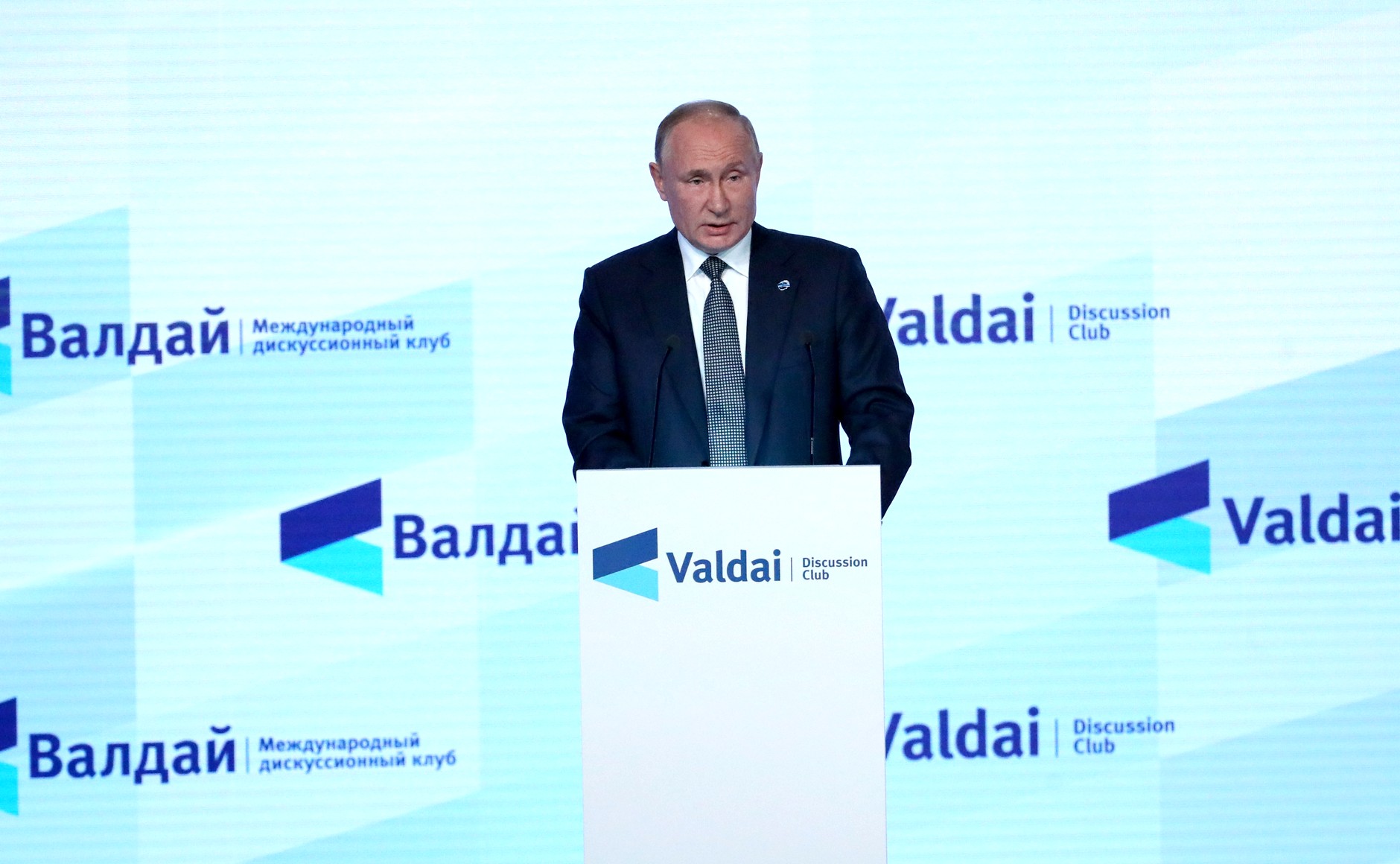 Piotr Dutkiewicz: Mr President, you have referred to Lev Gumilyov, who presented me with a samizdat edition of his first book in St Petersburg in 1979. I will pass this samizdat on to you. Vladimir Putin: Thank you very much. Fyodor Lukyanov: Samizdat, a tradition. Dear friends, please introduce yourselves, when you take the floor. Alexei Miller: Good afternoon, Mr President. I am Alexei Miller, a historian from the European University at St Petersburg. Vladimir Putin: There are two Alexei Millers. Russia is a rich country. (Laughter) Alexei Miller: Two years ago, you were asked during a meeting at the Valdai Club about the European Parliament’s resolution, which made the Soviet Union (and hence Russia) and Nazi Germany equally responsible for the outbreak of WWII. Since then, you have commented on this issue several times in your statements and in the article published in the summer of 2020. In particular, during the ceremony to unveil a monument to the victims of the siege of Leningrad at the Yad Vashem memorial complex in January 2020, you said you would like to propose a meeting of the Big Five leaders to discuss this issue as well, so that we could overcome the current confrontation and end the war on memory. I believe the situation has not improved since then. Or maybe you know something the general public is not aware of, maybe there have been some improvements? It would be great if you could tell us about this. My second question follows on from the first one. When there is such confrontation in the countries that are involved in the war on memory, some forces may be tempted to join ranks and to restrict, to a greater or lesser degree, the freedom of discussion, including among historians. Such discussions always involve a difference of opinions and some risqué or even wrong views. Do you envision the threat of such restrictions in our country? Vladimir Putin: No, I do not believe there is such a threat in our country. We sometimes see the danger of not being responsible for what some people say, indeed, but then this is the reverse side of the freedom you have mentioned. As for my initiative to hold a meeting of the heads of the five permanent members of the UN Security Council, it has been supported by everyone, in principle, and such a meeting could have been organised. The problems that arose are not connected with Russia but with some disputes within this group of five countries. As I have said, they are not connected with Russia. This is the first point. And the second is that the pandemic began soon after that, and the situation has become really complicated. The idea of the meeting received a highly positive response, and I hope it will be held eventually. This definitely will be beneficial. We are discussing this with our American partners, with our Chinese friends, with France – incidentally, the French President supported it immediately, as well as with Britain. They have their own ideas and proposals on additional subjects that can be discussed at such a meeting. I hope the necessary conditions will develop and we will hold this meeting. As for historical memory, the memory of WWII, you know, of course, that I am ready to talk about this with arguments in hand. We have many complaints about the country’s leadership between 1917 and 1990, which is obvious. However, placing the Nazis and the Communists before WWII on the same level and dividing responsibility between them equally is absolutely unacceptable. It is a lie. I am saying this not only because I am Russian and, currently, the head of the Russian state, which is the legal successor of the Soviet Union. I am saying this now, in part or at least in part, as a researcher. I have read the documents, which I retrieved from the archives. We are publishing them now in increasingly large amounts. Trust me, when I read them, the picture in my mind started changing. You can think about Stalin differently, blaming him for the prison camps, persecution campaigns and the like. But I have seen his instructions on documents. The Soviet government was genuinely doing its best to prevent WWII, even if for different reasons. Some people would say that the country was not ready for the war, which is why they tried to prevent it. But they did try to prevent it. They fought for the preservation of Czechoslovakia, providing arguments to protect its sovereignty. I have read, I have really read – this is not a secret, and we are declassifying these archives now – about France’s reaction to those events, including regarding the meeting of the leading politicians with Hitler in Munich in 1938. When you read this, when you see it, you understand that attempts can indeed be made to distort these facts. But you can at least read these documents. I can understand the current Polish leadership’s attitude to the 1939 events, but when you tell them: Just take a look at what happened slightly before that, when Poland joined Germany in the division of Czechoslovakia. You lit the fuse, you pulled the cork, the genie came out, and you cannot put it back into the bottle.” I also read the archival documents which we received after the Red Army entered Europe: we have German and also Polish and French documents, we have them. They directly discussed the division of Czechoslovakia and the time for the invasion. And then to blame it on the Soviet Union? This simply does not correspond to reality and facts. Simply put, who attacked who? Did the Soviet Union attack Germany? No, it did not. Yes, there were secret agreements between Germany and the Soviet Union. Incidentally, I would like to note that the Soviet troops entered Brest when the German troops had been already deployed there; the Germans simply moved back a little and the Red Army moved in. Do you see? There is no point adding a political dimension here. Let us act calmly at the expert level, read the documents and sort things out. Nobody is accusing the Polish leadership. But we will not allow anyone to accuse Russia or the Soviet Union of what they did not do. And lastly, I would like to say that there are some perfectly obvious things. Firstly, it was Germany that attacked the Soviet Union on June 22, 1941, and not vice versa, and secondly, let us not forget who stormed Berlin. Was it the Americans, the British or the French? No, it was the Red Army. Have you forgotten this? It is easy to recall, for it is an obvious fact. As many as 1.1 million of our people died in the Battle of Stalingrad alone. How many casualties can Britain claim? 400,000. And the United States, less that 500,000. A total of 75 percent, and probably even 80 percent of the German military potential was destroyed by the Soviet army. Are you a little rusty on this? No, you are not rusty at all. These events are being used to deal with the current internal political matters in an opportunistic manner. This is wrong, because nothing good will come of manipulating history. At the very least, this does not promote mutual understanding, which we need so badly now. Fyodor Lukyanov: Orietta Moscatelli, go ahead please. Orietta Moscatelli: Orietta Moscatelli, Italy. Thank you for the meeting. As you mentioned, different things have been said about Homo sovieticus over the 30 years since the Soviet Union’s disintegration. Was there really a person like that? Here is my question: Do you think it was true? Do you believe Russia has fully overcome Soviet experience as a society? What are the main features of the Soviet times that you have kept in your life? Vladimir Putin: I, as well as many people of my generation certainly remember this idea and this formula – a new community, Soviet people, the Soviet person. Of course, all of us remember this. In reality, this definition is not at all bad. This is my first point. The second point. Look, the whole world and the United States describe the US as a “melting pot,” in which people of different nations, ethnicities and religions are melting together. What is bad about this? They are all proud – the Irish, people of European and East European origin, you name it, as well as Latin Americans and Africans by their initial descent – many of them are proud to be US citizens and this is wonderful. This is what “the melting pot” is about. Russia is also “a melting pot.” Since the formation of a united Russian state – the first steps were made, probably in the 8th-9th centuries, and also after Conversion of Rus’, the Russian nation and a centralised Russian state began to take shape with a common market, common language, the power of a prince and common spiritual values. The Russian state began to be established and later expanded. This was also a “melting pot.” Nothing particularly new was created in the Soviet Union except one very important circumstance: this new community, the Soviet person, the Soviet people acquired an ideological tinge. Of course, there was nothing good about this because this narrows the horizons of the possible. This is the first point. The second point. Positive features of the Soviet times reflected on the Soviet people. What were they? Patriotism inherent in our peoples, supremacy of the spiritual dimension over material things, all these values I mentioned, including family ones. But negative things in the life and destiny of the Soviet Union also stuck to the Soviet people. Thus, they were deprived of property as such. Private property was embodied in a household plot, but this is quite a different category. Hence, their attitude to labour, the one-size-fits-all approach and so on. The Soviet Union had many problems. They triggered the events that led to the collapse of the USSR. However, it is wrong, crude and inappropriate to paint everything black. Yes, I know we have people that paint everything black. Hence, they deserve to be put into something that smells bad. There are both pluses and minuses, as for “the melting pot,” I think it was good to have it because it enriches the people, enriches the nation. You know, what is typical of Russia, something you can find in all historical documents: when expanding its territory Russia never made life difficult for the people who became part of the united Russian state. This applied to religion, traditions and history. Look at the decrees of Catherine the Great who issued her instruction in clear terms: treat with respect. This was the attitude towards those who preached Islam, for instance. This has always been the case. This is a tradition. In terms of preserving these traditions, the new community of the Soviet people had nothing bad about it except the ideologisation of this melting pot and the results of its functioning. I think I have described everything linked with the Soviet period of our history. Now I have mentioned this again and I do not think it is worth discussing this topic again. As for me, like the overwhelming majority of people of my generation, I faced the problems of that period, but I also remember its positive features that should not be forgotten. Being from a family of workers, yours truly graduated from Leningrad State University. This is something, right? At that time, education played the role of a real social lift. On the whole, the egalitarian approach was very widespread and we encountered its negative impact, such as income levelling and a related attitude to work, but a lot of people still used the preferences of social lifts I mentioned. Maybe, it was simply the legacy of past generations or even cultivated in the Soviet Union to some extent. This is also important. I have now recalled my family. My mum and dad were simple people. They did not talk in slogans but I remember very well that discussing different problems at home, in the family, they always, I would like to emphasise this, treated their country with respect, speaking about it in their own manner, in simple terms, in the folk style. This was not demonstrative patriotism. It was inside our family. I think I have the right to say that the overwhelming majority of the Russian people and the other peoples of the USSR cultivated these positive features. It is no accident that over 70 percent of the population voted for preserving the Soviet Union on the eve of its collapse. Many people in the union republics that gained independence regretted what had happened. But now life is different and we believe it is going its own way and generally recognise current realities. As for the Soviet person, the new formation, as they said then, I believe I have already said enough on this subject. Fyodor Lukyanov: This year’s Valdai Club meeting is special in part because we have a Nobel Peace Prize laureate here with us for the first time in our history. I would like to give the floor to Dmitry Muratov. Dmitry Muratov: Thank you. Good afternoon. Mr President, Valdai Club guests, Fyodor, I want to let everyone know that the prize money has been distributed. Thanks go to the Circle of Kindness Foundation. Furthermore, we hope that our modest contribution will help everyone realise that the Circle of Kindness Foundation helps young people under 18, but then after they are 18, they are left without guidance. It is like saying, “Thank you, we saved you, and now goodbye.” We look forward to the Circle of Kindness Foundation (they appear ready to do this) expanding its mandate. There is the children's hospice Lighthouse, the First Moscow Charity Hospice Foundation Vera, the Podari Zhizn Foundation, the Anna Politkovskaya Award, and the Foundation for Medical Aid for Media Members. That is all. Of course, I also think that, to some extent, probably, this is a prize for our country as well, although I consider myself an impostor. I will do my best to make sure it benefits our people. Now, if I may, a brief remark and a question. Mr President, I have very carefully studied the answer you gave during Moscow Energy Week regarding foreign agents, where you said that we were not the first to adopt this law, that the United States did so back in the 1930s. But, Mr President, since we do not adopt every law that is adopted in the United States, my question about foreign agents remains. After all, I believe this concerns not only dozens and dozens of journalists and human rights activists who are listed in the register, but also hundreds of thousands and even millions of readers. Therefore, I believe it is a serious matter. Most importantly, you have just mentioned Leningrad University and I think your subject of study will help us understand each other well. This law does not provide for any court recourse. You are designated a foreign agent and there is no argument of the parties, no provision of evidence, no verdict. It is a stain. Let me remind you of our favourite childhood book. This is the same kind of brand Milady in The Three Musketeers had. But before Milady was beheaded, the executioner of Lille read the verdict to her at dawn whereas in our case there is no verdict whatsoever. Furthermore, it is impossible to get away from this law. There is not even a warning that you become a foreign agent starting, say, tomorrow. For many, this status undoubtedly means they are an enemy of the Motherland. I remember from my days of army service that under the guard service regulations, the sentry first fires a warning shot in the air. Excuse me, but only security guards at prison camps shoot to kill without a warning shot. I believe we need to sort this out, since the criteria are woefully vague. Take, for example, receiving organisational and methodological assistance. What does this mean? If I am asking a member of the Valdai Club for a comment, and they come from another country, does that make me a foreign agent? They make their announcements on Fridays. I want to remind you that tomorrow is Friday. I would like to ask you to respond to the way this issue is presented. Perhaps, you, Mr President and, for example, the State Duma Chairman, could hold an extraordinary meeting with the editors from various media in order discuss the issues at hand. Thank you very much. Vladimir Putin: First, I would like to congratulate you on the Nobel Prize. I would like to draw your attention to one fact: Nikolai Berdyayev, whom I have mentioned, was expelled by the Bolsheviks on the well-known Philosophy Steamer in 1922. Nominated for a Nobel Prize more than once, he never received this award. Dmitry Muratov: That was about literature. Vladimir Putin: No difference, but yes, I agree. The first Soviet President Mikhail Gorbachev and Barrack Obama also received Nobel peace prizes. So, you are in good company. Congratulations! But we really know. You have just spoken about a hospice. I would give you a prize for that because you are doing this good work. It is truly noble work, the Circle of Kindness, and the like. Your concern about foreign agents; I will not deviate to the right or left. Look, you said that here when these decisions are made… firstly, American laws. Do we have to copy everything from the Americans? No, we do not need to copy everything. Yet many liberals in Russia still think we should copy almost everything. But I agree with you: not everything. You said this is not decided in court. This is not done in the United States either. They summon people to the Department of Justice. Ask Russia Today about what they are doing. Do you know how tough they are? Up to and including criminal liability. We do not have this. This is not about the position of some public figure, some public organisation, or a media outlet. Their position does not matter. This law does not ban anyone from having one’s own opinion on an issue. It is about receiving financial aid from abroad during domestic political activities. That is the point. The law does not even keep them from continuing these political activities. The money that comes from abroad, from over there, should simply be identified as such. Russian society should know what position someone comes from or what they think about internal political processes or something else, but it should also realise that they receive money from abroad. This is the right of Russian society. In fact, this is the whole point of this law. There are no restrictions in it at all. So, when you said there is no verdict, that is right. There is no verdict. There was a verdict for Milady – her head was cut off. Here nobody is cutting off anything. So, just continue working like you did before. But you are right about one thing. I will not even argue with you, because this is true. Of course, we probably need to go over these vague criteria again and again. I can promise you that we will take another look at them. I know it happens occasionally. Even my personal acquaintances who engage in charitable activities were telling me that cases were being made against them portraying them as foreign agents. I am aware of the fact that our colleagues discuss this at the Human Rights Council. I keep issuing instructions on that score to the Presidential Administration and the State Duma deputies so that they go over it again and again, improve this tool, and in no way abuse it. So, thank you for bringing this up. We will look into it. Thank you very much. Fyodor Lukyanov: Just a quick follow-up on that. Mr President, are you not afraid of excessive acts? Vladimir Putin: I am not afraid of anything, why is everyone trying to scare me? Fyodor Lukyanov: Okay, then we are afraid, and you tell us about excessive acts, since you know your former security service colleagues well. Vladimir Putin: Not everyone, this is a mass organisation, how can I know everyone? Fyodor Lukyanov: Well, not everyone, but many. Vladimir Putin: When I was [FSB]director, I sometimes even summoned operatives with specific cases and read them myself. And now I do not know everyone there. I left it a long time ago. Fyodor Lukyanov: I am talking about specific cases. Their psychological makeup is that overdoing things is a safer approach than missing things. Will there be no blanket approach to identifying foreign agents? Vladimir Putin: What? Fyodor Lukyanov: Will they not use a blanket approach to identifying foreign agents? Vladimir Putin: Is there anything there that looks like a blanket approach? How many do we have? Every second, or what? I believe there is no such thing as widespread branding of people as foreign agents. I think the danger is vastly exaggerated. I believe I have formulated the underlying reasons for adopting this law quite clearly. Fyodor Lukyanov: Good. In addition to a Nobel prize winner, we also have a foreign agent in the audience. Margarita Simonyan, please share your experience. Margarita Simonyan: Yes, thank you, good afternoon, We have been foreign agents for many years now. Moreover, I was summoned for interrogation in the United States several years ago, because we did not register as foreign agents earlier, despite the fact that our lawyers, including former rather high-ranking officials from the US Department of Justice (Dima, this information is mostly for you, congratulations on winning the prize), told us – and we have these legal opinions in writing – that this law does not apply to us, because it clearly said in English “except the media.” But when our audience started growing, and we got in their way, they told us: “We do not care what the Department of Justice is telling you, you either register or go to prison for five years.” And I have a summons for questioning because I myself failed to register earlier, before they registered me. I do not travel there anymore, just in case, because I might be jailed. This is my first point. Vladimir Putin: There is no fence against ill fortune, Margarita. (Addressing Dmitry Muratov) You see, in the United States, some people face a five-year sentence. Margarita Simonyan: Yes, five. And we know people who are doing time under this law, five years. Secondly, unlike in Russia, this law definitely has consequences and implies sanctions. For example, one’s accreditation to Congress gets instantly revoked, and if you are not accredited with Congress in the United States, you can no longer go anywhere – not a single event, nowhere (I can see people that know this nodding their heads). You actually work on semi-underground terms there. This is how we have been working for how long now? Six years. But we will continue to do this work. Mr President, as a mother of three young children, I would like to thank you very much for your healthy conservatism. I am terrified by the thought of my 7-year-old son being asked to choose a gender, or my 2-year-old daughter being told from all mobile devices, and even at school, as is now happening in many Western countries, that her future is that of a “person with human milk who gave birth to a baby.” And the thought that these tentacles of liberal fascism, so-called liberal, will reach us and our children. I really hope that this will never be allowed in our country, despite its great openness. You mentioned bloviating, which the so-called humanistic foundation of the European political thought turned out to be, but this so-called freedom of speech turned out to be bloviating too. Freedom of speech turned out to be a postcard made for the people we were in the 1990s, so that we could look at it and think: “Wow, it does exist. Great, we will do that too, we will not have foreign agents, and everything will be fine with us.” This freedom of speech has just strangled our YouTube channel, which was very popular, and everything was cool there, really. And you know very well that this is not a privately-run outfit, but a public project which we created not for ourselves, but for the Motherland, and we have run out of options to get this project back. And we no longer believe in anything other than reciprocal measures. According to their own analyses, Deutsche Welle was behind us in Germany in certain rankings. It broadcasts in Russia without any problems, but we cannot broadcast there. We have already built studios, hired people, produced shows and earned an audience, but now, with the strike of a pen and without any reason, and, Mr Muratov, without a court ruling, everything fell apart in a single moment. This is no a question actually, I am asking, pleading for protection, Mr President. I do not see any other way to protect us other than through retaliatory measures. My question is the following. Moscow has recently hosted a Congress of Compatriots, and you sent greetings to the participants. I took the floor at this forum and asked those of my colleagues in the audience, people who are proactive in defending the Russian world and the Russian language around the world, sometimes putting their lives and freedom at risk, who wanted but could not obtain Russian citizenship, to raise their hands. Half the audience had their hands up. We have discussed this many times. You may remember that several years ago we spoke about granting citizenship to Donbass residents. The procedure was streamlined for them. Can this be done for all Russians? Why is Russia shying away from doing this? The Jews did not hesitate about it, and neither did the Germans nor the Greeks, but we are hesitating. This is my question. Thank you very much. Vladimir Putin: First, regarding the retaliatory measures, I think we need to be cautious when someone makes mistakes like this, and I do believe that you have suffered from them, when a channel is closed or you are unable to work. I know about the fact that your accounts were blocked and that you could not open, etc. There is a plethora of instruments to this effect. Margarita Simonyan: More like carpet-bombing. Vladimir Putin: Yes, to make it impossible for you to work there. I know. On the one hand, of course, they are infringing on freedom of speech and so forth, which is a bad thing. But since they are doing this, you and I have to think about how to spread the word about the fact that they are cancelling you, and then more people will become interested in what you do. Margarita Simonyan: The only problem is that there is no place for people to watch us. People are interested, but there is nowhere to watch us. Vladimir Putin: I do understand, but we need to give this some thought, and explore technical and technological opportunities. As for retaliatory measures, let me reiterate that what matters the most is that they do not turn out to be counterproductive. I do not oppose them, but I do not want them to be counterproductive. As for your question on Russian citizenship, you are right. My position is that we need to improve this tool. There are questions here related to socioeconomic matters: clinics, kindergartens, jobs, housing, etc. Still, the citizenship laws must become increasingly liberal. This is obvious. By the way, this is what the labour market compels us to do. We are thinking about this. Margarita Simonyan: Thank you, Mr President. Vladimir Putin: Thank you. Fyodor Lukyanov: Colleagues, in addition to those in this room, there are other participants who are watching us online, as they could not join us here due to the well-known circumstances. I would like to ask – Robert Legvold, our longtime friend, member of the Valdai Research Council, professor at Columbia University. Robert Legvold: Thank you very much, Fyodor. For me, it is a disappointment that I have not been able to be with all of the participants in the Valdai conference, but I am particularly pleased to have this opportunity to be part of this session. The topic of Valdai this year has been very transcendent and fundamental questions, and I admire Valdai for doing that. President Putin has certainly risen to the challenge of that agenda and has addressed it in an extremely engaging and revealing fashion. My question, however, is narrower but more specific, and I apologise for descending to this level, but it is a question that is important in my country. I think it is important in your country. Although neither your government nor the Biden administration believes that a reset of the US-Russian relationship is possible at this juncture, how do you evaluate or assess the evolution of US-Russia relations since your meeting with President Biden in June? In what areas has there been progress, if any? And what, in your view, are the obstacles to further progress? Thank you very much. Vladimir Putin: On the whole, I have spoken about this; I have answered questions like this. I can only repeat myself now. On second thought, not just repeat – there is actually something to be said about what is happening. The meeting in Geneva was generally productive, and it seemed to us – when I say ‘us,’ I mean my colleagues and myself – that overall, the administration was interested in building ties, reviving them at least in some important areas. What did we agree on? We agreed to begin consultations on strategic stability, and the consultations began and are held regularly, on cybersecurity issues as well. At the expert level, cooperation has started. So we can safely say that although the scope of matters we agreed on was limited, we are on the right track nonetheless. These are the most important matters for today. And in general, the administration (on the American side) and Russia (on the other side) are fulfilling the plans and are moving along this path. And when this happens, as we know, it is always a sign, one of a systemic nature. And now, look, our trade has already grown by 23 percent and in many areas. This, among other things, is an indirect effect of our meeting in Geneva. So, overall, we are on the right track, although, unfortunately – I would not like to talk about sad things now, but we also see certain backslides, remember that phrase we used years ago – one step forward, two steps back – this is also happening sometimes. Still, we are progressing in line with our general agreements.  Fyodor Lukyanov: Thank you. Since we are in a new world now, for balance, I will give the floor to our kind friend Zhou Bo from Tsinghua University in Beijing. Go ahead, please. Zhou Bo: Mr President, it is really my great honour to ask you this question. First of all, let me thank you for this opportunity. I will ask you something about Afghanistan. Afghanistan lies in the heart of the Shanghai Cooperation Organisation. So, if Afghanistan has a problem, then the Shanghai Cooperation Organisation has a problem. Now the United States has withdrawn from Afghanistan. So how can the Shanghai Cooperation Organisation, which is led by China and Russia, united with other countries, help Afghanistan to achieve political stability and economic development? Thank you. Vladimir Putin: The situation in Afghanistan is one of the most urgent issues today. You know, we have just had a meeting in the appropriate format, in part, with representatives of the Taliban. The People’s Republic of China (PRC) is also active in Afghanistan. This is a very serious issue for all of us because for both China and Russia it is extremely important to have a calm, developing Afghanistan that is not a source of terrorism, or any form of radicalism, next to our national borders, if not on our borders. We are now seeing what is happening inside Afghanistan. Unfortunately, different groups, including ISIS are still there. There are already victims among the Taliban movement, which, as a whole, is still trying to get rid of these radical elements and we know of such examples. This is very important for us, for both Russia and China. In order to normalise the situation properly and at the right pace, it is necessary, of course, to help Afghanistan restore its economy because drugs are another huge problem. It is a known fact that 90 percent of opiates come to the world market from Afghanistan. And if there is no money, what will they do? From what sources and how will they fund their social programmes? Therefore, for all the importance of our participation in these processes – both China and Russia and other SCO countries – the main responsibility for what is happening there is still borne by the countries that fought there for 20 years. I believe the first thing they must do is to release Afghan assets and give Afghanistan an opportunity to resolve high priority socio-economic problems. For our part, we can implement specific large projects and deal with domestic security issues. Our special services are in contact with their Afghan counterparts. For us, within the SCO, it is very important to get this work up and running because Tajikistan and Uzbekistan are right on the border with Afghanistan. We have a military facility in Tajikistan. It was based on the 201st division when it was still Soviet. Therefore, we will actively continue this work with China on a bilateral plane, develop dialogue with relevant structures and promote cooperation within the SCO as a whole. In the process, we will allocate the required resources and create all the conditions to let our citizens feel safe regardless of what is happening in Afghanistan. Fyodor Lukyanov: Thank you. Mikhail Pogrebinsky, please. Mikhail Pogrebinsky: Thank you, Fyodor. Thank you, Mr President. I will try to ask a question, the answer to which is awaited, I am sure, by hundreds of thousands of people in my homeland. You mentioned a Chinese proverb about living in a time of change. Our country has been living like that for almost 30 years now, and the situation is becoming more difficult in anticipation of winter, amid the pandemic, and, I would say, the situation with the Americans. A couple of days ago, we had Defence Secretary Lloyd Austin visit our country. He brought $60 million worth of weapons and promised us a bright future as a NATO member, figuratively speaking. I will note right away that any allegations that NATO is irrelevant because Europe does not agree, are prevarication. One does not need to be a NATO member to have US or British military infrastructure deployed in Ukraine. I believe this process is already underway. In your July article on historical unity, you wrote that transforming Ukraine into an anti-Russia country is unacceptable for millions of people. This is true, and opinion polls confirm it. Over 40 percent have good or very good thoughts about Russia. However, this transformation has, in fact, started. A rather long and very dangerous, in my opinion, distance in this direction may have already been covered. I think that if this idea with a para-NATO infrastructure continues to be implemented, the process to form what is now a not so stable anti-Russia Ukraine will be cemented for many years to come. You wrote in your article that if the process continues unabated, it will pose a serious threat to the Russian state, and this may be fraught with Ukraine losing its statehood. People who oppose this movement are facing reprisals. You are aware that they are trying to put Viktor Medvedchuk in prison based on some outlandish charges. How, in your opinion, can this process be stopped? Maybe, you have a timeline for when it might happen? What can be done in this regard at all? Thank you. Vladimir Putin: Unfortunately, I will probably have to disappoint you – I do not yet know the answer to this question. On the one hand, it seems to lie on the surface: the easiest thing is to say that the Ukrainian people must make a decision themselves, and form the bodies of power and administration that would meet their needs and expectations. From one perspective, this is indeed true. But on the other hand, there is another perspective, and I cannot avoid mentioning it. You have just mentioned Viktor Medvedchuk, who has been charged with high treason. For what? Did he steal some secrets and illegally disclose them to a third party? No. What then? Was it his open political position about stabilising Ukraine’s internal affairs and building relations with its neighbours because those relations are extremely important for Ukraine itself? It is concerning that such people are not allowed to raise their heads. Some of them end up killed, and others locked up. One gets the impression that the Ukrainian people are not allowed and will not be allowed to legally form the bodies of power that would uphold their interests. The people there are even afraid to respond to polls. They are scared, because the small group that has appropriated the victory in the fight for independence holds radical political views. And that group actually runs the country, regardless of the name of the current head of state. At least this is how it was until recently: people ran for leadership positions relying on voters in the Southeast, but once elected, they almost immediately changed their political positions to the opposite. Why? Because that silent majority voted for them in the hope that they would fulfil their campaign promises, but the loud and aggressive nationalist minority suppressed all freedom in decision-making that the Ukrainian people expected, and they, in fact, are running the country. This is a dead end. I do not even know how this can be changed. We will wait and see what happens in Ukraine’s political affairs in the near future. For our part, we are making every effort to improve these relations. But the threat you just spoke about — not even spoke about, only mentioned — is quite important to us. And you are right that formal NATO membership may never happen, but military expansion on the territory is already underway, and this really poses a threat to the Russian Federation, we are aware of this. Consider what happened in the late 1980s – early 1990s (I will not tell the whole story now, although you just made me think about talking more about it), when everyone assured us that an eastward expansion of NATO infrastructure after the unification of Germany was totally out of the question. Russia could be absolutely sure of this, at the very least, so they said. But those were public statements. What happened in reality? They lied. And now they challenge us to produce a document that actually said that. They expanded NATO once, and then expanded it twice. What are the military-strategic consequences? Their infrastructure is getting closer. What kind of infrastructure? They deployed ABM (anti-missile) systems in Poland and Romania, using Aegis launchers, where Tomahawks can be loaded, strike systems. This can be done easily, with the click of a button. Just change the software – and that is it, no one will even notice. Medium and short-range missiles can also be deployed there. Why not? Has anyone even reacted to our statement that we will not deploy this kind of missile in the European part if we produce them, if they tell us that no one will do so from the United States or Europe? No. They never responded. But we are adults, we are all adults here. What should we do in this situation? The Minister of Defence arrives, who, in fact, opens the doors for Ukraine to NATO. In fact, his statement must and can be interpreted in this way. He says every country has the right to choose. And nobody says no, nobody. Even those Europeans you mentioned. I know, I spoke to them personally. But one official is not a security guarantee for Russia – he may be here one day and he might be replaced the next. What will happen then? This is not a security guarantee; it is just a conversation on a given topic. And we are naturally concerned. Fyodor Lukyanov: Mr President, since you mentioned NATO… Vladimir Putin: Yes, sorry. About the bases – I know about the corresponding clauses in the Ukrainian constitution. It allows setting up training centers. But these can be anything at all, accounted for as a training center. As I already said, and it was also said publicly: what if tomorrow there are missiles near Kharkov – what should we do then? We do not go there with our missiles – but missiles are being brought to our doorstep. Of course, we have a problem here. Fyodor Lukyanov: We started talking about NATO. NATO Secretary General Jens Stoltenberg was interviewed just two days ago, and he announced that NATO is adjusting its strategic vision somewhat, and now views Russia and China as one common threat rather than two threats. This is an interesting approach, apparently a far-reaching one. But if this is how they see us, maybe it is time for us to unite with China and consider someone else as a threat? Vladimir Putin: We have said many times that we are friends with China, and not against anyone else, but in each other’s interests. This is the first point. The second point is, as distinct from NATO, from the NATO countries, we are not creating a closed military bloc. There is no Russia-China military bloc and we will not create one now. So, there is no reason to talk about this. Fyodor Lukyanov: I see. Mark Champion. Mark Champion: Thank you. Mr President, on the subject of the potential for sending extra gas to Europe, which, as you know, is in a gas crisis at the moment, you have talked about this before, but, you know, at times it has been quite confusing. Sometimes Russian officials indicate that there is additional gas available that can be sent if Nord Stream 2 is opened, and at other times, they have suggested that there is no gas available to send to Europe. And I just wondered if you would take this opportunity to clarify whether there is additional gas available that Russia can send to Europe, if say, Nord Stream opened tonight, or if there is not. Vladimir Putin: Frankly, it is strange for me to hear questions like this. It seems to me I explained everything during the Russian Energy Week in Moscow. However, if these questions are being asked, we should certainly talk more about it. Look what is happening. I believe I said at the meeting with the Government yesterday or the day before yesterday: this is not just about energy sources or gas, but also about the state of the global economy. Shortages are increasing in the leading, economically advanced countries. Take the United States, for one. It has recently made yet another decision to increase its national debt. For those who do not deal with the economy, I can tell you what a decision to increase the national debt means. The FRS will print money and put it at the government’s disposal. This is emission. The deficit is increasing, and inflation is increasing as an emission derivative. This leads to price increases on energy sources, on electricity. This is how it works, not the other way around. However, the situation is also deteriorating due to realities in the energy market. What are these realities? You just spoke about Europe. What is going on in Europe? Maybe I will repeat some of my ideas or maybe I will say something new, if I recall it. In the past few years, the European Commission’s philosophy was entirely devoted to regulating the market of energy sources, including gas, via a commodities exchange, through the so-called spot market. They tried to persuade us to give up long-term contracts where prices were tied to the exchange, that is, market quotes on crude oil and petroleum products. Incidentally, this is market price formation. Since gas prices are established with a lag of six months after a change in oil prices, this is, firstly, a more stable situation and, secondly, a six-month lag allows consumers and suppliers to make adjustments along the way based on developments on world markets. So, everything began to be brought to this spot market, but it largely holds gas on paper, not real gas. These are not physical amounts, which are not increasing (I will explain why in a minute). A figure is written on paper, but there is no physical amount, it is declining. So, a cold winter requires gas from underground storage; a wind-free hot summer means a lack of wind generation on the necessary scale. I have already mentioned the macroeconomic reasons, and these are the sector-based reasons. What happened next on the European market? First, a decline in production in the gas producing countries. Production in Europe fell by 22.5 billion cubic metres during the first six months. This is first. Second, gas storage facilities were underfilled by 18.5 billion cubic metres and are only 71 percent full. The gas storage facilities were underfilled by 18.5 during the first six months of the year. If you look at annual consumption, this number must be doubled. Primarily American, along with Middle Eastern companies withdrew 9 billion cubic metres from the European market and redirected the gas to Latin America and Asia. By the way, when the Europeans were formulating the principles governing the formation of the gas market in Europe, and said that all gas must be traded on the spot market, they were proceeding from the assumption that the European market is a premium market. But the European market is no longer a premium market, you see? It is no longer a premium market. Gas was redirected to Latin America and Asia. I have already said that 18.5 billion cubic metres, plus double that amount, 9 billion (undersupplied to the European market from the United States and the Middle East), plus a decline in production of 22.5 billion – the deficit on the European market may amount to about 70 billion cubic metres, which is a lot. What does Russia have to do with it? This is the result of the European Commission’s economic policy. Russia has nothing to do with it. Russia, including Gazprom, has increased deliveries to the European market by 8.7 percent, I believe, and deliveries to non-CIS countries by 12 percent, I think. But when we speak about non-CIS countries, we mean China as well. This is also good for the international market, because we are increasing deliveries to the global market, and increased deliveries to the European market by 8.7. In absolute terms, this represents over 11 billion cubic metres of gas. American and Middle Eastern companies undersupplied by 9 billion, while Gazprom increased its supplies by more than 11 billion. Can everyone hear me? Not in this audience, but the so-called stakeholders. Someone out there is cutting supplies to you, while we are increasing them. But this is not all. Today, under the so-called long-term contracts – I would like you to listen attentively and to hear what I say – the price of gas is now $1,200 or $1,150 for a thousand cubic metres. European companies that have long-term contracts with Gazprom receive it – take note – at four times less than the current price! Gazprom does not make any windfall profits. We are not concerned about this because we are interested in long-term contracts and long-term mutual commitments. In this case, we ensure the opportunity to invest in production and produce the required amounts for our consumers steadily and reliably. You are asking me if it is possible to increase supplies. Yes, this is possible. Speaking about Nord Stream-2, its first line is filled with gas and if the German regulator issues the permit for shipping tomorrow, it can deliver 17.5 billion cubic metres of gas the day after tomorrow. Technological work on filling the second line of Nord Stream-2 will be completed before the end of this year, in mid- or late December. The total volume is 55 billion cubic metres of gas. Considering that in our estimate the shortage of gas in the European market will reach 70 billion cubic metres, 55 billion is a decent amount. Once the second line is filled, and the German regulator issues its permit, we can start supplies on the next day. Is this possible or not, you asked. Yes, it is possible, but one must have a responsible attitude to one’s commitments and work on this. By the way, we keep saying: Nord Stream-2, Gazprom… But there are five European companies taking part in this project. Why do you mention Gazprom alone? Have you forgotten about them? Five major European companies are working on this project. So, this affects not only the interests of Gazprom but also the interests of our partners, primarily in Europe, of course. Fyodor Lukyanov: Mr President, to an extent, Nord Stream 2, which is now on everyone’s lips, can be viewed as your joint achievement with Angela Merkel. Do you regret that she is leaving office? Will you miss her? Vladimir Putin: The decision on her departure was not mine, after all, but hers. She could have run for another term. She stayed in power for 16 years. Fyodor Lukyanov: Not a long tenure, at all. Vladimir Putin: You cannot say that this is not long enough. Quite a tenure. Helmut Koehl, who unified Germany, also spent 16 years at the top. As for the Nord Streams, we started this process back in the Schroeder days. At the time, when we were working on Nord Stream 1, there were similar attempts to undermine this process, just like today. It was all the same. Fortunately, today this pipeline delivers gas to Europe and Germany, and the volumes are quite high. By the way, we are all talking about green energy. This is important, of course. If there are questions on this subject, I will try to explain how I see this. As for the Russian natural gas, let me emphasise that it has a three times lower carbon footprint compared to LNG from the United States. If the environmental activists are not guided in their efforts by a political agenda and really do care about the future of humanity, they cannot fail to hear this. They must oppose the construction of and demand that all LNG terminals are closed. Unfortunately, the same applies to Ukraine’s gas transit system. I have already said that Nord Stream 2 is a modern, state-of-the-art pipeline that can handle higher pressure. There are absolutely no emissions involved when you deliver gas via the bottom of the Baltic Sea. The compression stations are like small factories. They are gas-fired and also emit CO2 into the atmosphere. Emissions from Nord Stream 2 are 5.6 times lower compared to Ukrainian gas transits, because the system there is old and has been in use since the Soviet times. Environmental activists should have said: “Immediately close down the Ukrainian gas transit!” But no, it is the opposite: “Go ahead and increase supplies through Ukraine.” How is that possible? In fact, it is the same with oil. Even if we leave gas alone, since I have already talked about this at length, what is going on with oil? In think that from 2012 until 2016 annual investment in oil extraction was at about $400 billion, but in the years that preceded the pandemic investment decreased by 40 percent, and now stands at $260 million. This is a cycle that lasts for 15 to 30 years. Do you understand this? In my opinion, what are current problems on top of what I have said? I talked about various political issues. This is one of the important topics that springs to mind. There is a lack of overlap between political and investment cycles in the leading economies, including in energy, a very important sector. How long is a political cycle? Four or five years. What do the leading political forces, parties and politicians do all this time? They make promises. They promise everything, as much as possible and at the lowest cost. This applies, among other things, to the green economy. What comes out of this? Banks stop funding investment, and investment dwindles. The time will come like what we are seeing today, when the market will need to accomplish a breakthrough, but there will be nothing to back this effort. Even today, OPEC Plus countries are increasing oil production even slightly above their agreement, but not all oil producing countries can increase output quickly. This is a long-term process, and the cycle is quite long. The source of information - http://en.kremlin.ru/events/president/news/66975
__________________
Where should they dig the Very Deep Pit? Piglet said that the best place would be somewhere where a Heffalump was, just before he fell into it, only about a foot farther on. (c) Alan Alexander Miln Last edited by Alex Him; October 26th, 2021 at 01:48 PM. |
|
|
#14 |
|
Senior Member
|
Valdai Discussion Club meeting - Part II
Vladimir Putin took part in a plenary session of the 18th annual meeting of the Valdai International Discussion Club. October 21, 2021 - 21:25 - Sochi  Fyodor Lukyanov: Please, Raghida Dergham. Raghida Dergham: Thank you very much, Fyodor. Mr President, it is good to see you again in Valdai and Sochi. My name is Raghida Dergham. I am the founder and executive chairman of Beirut Institute. So I have come to you, I have come to Sochi, from Lebanon, a very wounded country. I am sure, sir, that you are aware of the explosion that took place – the fourth largest – at the port, the civilian port of Beirut. There has been an attempt to investigate what happened, the story itself. There was a Russian captain, there was a Georgian owner of the ship. There was a request to you, Mr President, to share – the request came to you from the judiciary, and it is an independent body from the government – to share what you have, from your satellite pictures, to tell us, to help find the story, this horrible story that happened, that amounted to the assassination of the city, of the capital. My first question, sir: are you willing to share now the information you have, the satellite information, and to lend cooperation to this investigation so that, you know, the values that you spoke about are implemented where it really matters? And secondly, your two allies, Hezbollah and Iran, have been resisting and, in fact, have been demanding the dislodging of the – not the prosecutor, he is really the investigator – the judge who is investigating the case. They have issued a warning that if – to both friends of yours, the President, Michel Aoun and the Prime Minister, Najib Mikati – that if they do not dislodge this investigator, this judge, then the government will fall. Do you support such a position, particularly given that this country is on the verge of a civil war, with Mr Nasrallah announcing that he will not back down, announcing, at the same time, that there are a hundred thousand fighters ready to launch? So, this is a civil war in the action, maybe, right next door to a prize accomplishment of yours, Mr Vladimir Putin, which is in Syria. I thank you. Vladimir Putin: Just a minute, please. Can you explain the beginning of which war you are talking about? I do not understand. Raghida Dergham: Civil war, because, you see, there are armed people on the streets already. You do remember the civil war in Lebanon, and right now… Hezbollah is not the only armed group, I am not claiming that. There are many armed groups, but right now the conflict is over this investigator. His name is Tariq al-Bitar. The insistence of Hezbollah is that he needs to be dislodged. And, in fact, this is interfering with the very principle of the separation of powers, and that led to confrontations on the streets and the possibility of a civil war really happening, Mr President. Do not dismiss that possibility; it is a very scary one. And I am not sure at all it would be in the interests of the Russian policy even for Syria, never mind for Lebanon, and we wish that you will pay attention to Lebanon, particularly after hearing you today emphasise these values. Vladimir Putin: First, about the explosion in the port of Beirut. Frankly speaking, when that tragedy happened – I would like to once again offer my condolences to the Lebanese people over it, the large number of casualties and catastrophic damage – I learned about it from media reports, of course. Many years ago, ammonium nitrate was delivered to and stored in the port; the local authorities did not give it the attention it needed, although, as far as I know, they wanted to sell it profitably. And that desire to sell at a profit came into conflict with the possibility of doing so, with the market and some internal contradictions related to who would get the profit, and so on. In my opinion, this is the main reason for the tragedy, and that is it. As for helping with the investigation, frankly speaking, I do not understand how satellite pictures can help, and whether we even have any. However, I promise that I will make inquiries, and if we do have anything and can provide assistance to the investigation, we will do this. But first I need to discuss the matter with my colleagues who may have this information. As for Hezbollah, Iran and so on, regarding the situation in Lebanon. Take Hezbollah: different people in different countries have a different attitude to it, which I am well aware of. Hezbollah is a serious political force in Lebanon itself. But there is no doubt that we always, including in Lebanon, call for settling any conflicts through dialogue. We have always tried to do this, one way or another. We are maintaining contact with nearly all political forces in Lebanon, and we will try to continue doing this in the future as well, so that the situation can be settled without any bloodshed. God forbid. Nobody is interested in this. The situation in the Middle East has been precarious recently as it is. Of course, we will do everything we can to convince all the parties to the internal political process to stick with common sense and to strive for agreements. Please, take the microphone. Raghida Dergham: President Vladimir Putin, do you support the ultimatum given by Hezbollah that either the investigator Tarek Bitar is dislodged or there is a downfall of the government? Do you support that ultimatum? Vladimir Putin: Listen, colleague, we cannot comment on the internal political processes you have mentioned, whether we support an ultimatum of one of the sides or not, or one of the side’s positions. This would amount to taking the side of one of the conflicting parties, which would be counterproductive regarding the effectiveness of our peace-making efforts. Therefore, I would like to abstain from making such comments. As I have noted, the main thing is to find a platform that can be used as the basis for agreements, without any shooting, God willing. We in Russia are definitely interested in that. Fyodor Lukyanov: Please, Stanislav Tkachenko. Stanislav Tkachenko: Thank you. Stanislav Tkachenko, St Petersburg State University. Mr President, a question about energy. On October 13, Chief of the European External Action Service Josep Borrell first unveiled the Arctic Strategy and then sent it to the European Commission and the EU Council – a new EU document that considers a wide range of problems, including energy. I would highlight two points in that strategy. First, the European Union believes that the mineral resources found in the Arctic – oil, gas and coal – should stay in the ground, including in the Arctic, and to achieve that, the world may even have to impose a temporary moratorium. The second point is linked to the first one. It concerns plans by the European Union and its member states to develop a series of instruments, financial and others, to prevent countries (perhaps primarily the Russian Federation), which will be selling energy resources on the global market, from selling the resources produced in the Arctic. My question is: What is Russia’s attitude to this. Thanks. Vladimir Putin: Right. To be honest, I try to follow what is happening there behind the European scenes, what is going on there every day, but at times, as our people say, I feel like I am missing something. Regarding the EU's Arctic Strategy, what can I say? Russia has its own strategy for our presence in the Arctic – this is my first point. Second, we have always worked and are working quite productively; Russia is currently chairing the Arctic Council, where EU countries are also represented. Third, we have always talked about this, and I actually spoke about this at the meeting with President Biden and his team members in Geneva: we are ready to continue cooperation, in a broad sense, with all interested countries in the Arctic, within the framework of international law. As you know, there are several conventions, on territorial waters, and on the law of the sea, from 1986, I think. We act on the basis of those internationally recognised documents, which Russia is a party to, and we are ready to build relations with all states including the European Union on the basis of those documents. But if someone from the outside is trying to circumvent these internationally recognised documents and limit our sovereign right to use our own territory – according to international law, territorial waters are part of a coastal state’s territory – it is an infringement using mala fide means. The same applies to the 400-mile zone, which is called the zone of preferential economic development. The rules that apply to that area are determined by international law, and we fully adhere to these requirements. By the way, consider the Nord Stream project – in accordance with these rules, we had to request appropriate permits from the coastal states – Finland, Sweden, and Denmark – when we did not even have to enter their territorial sea, but the pipeline crossed those countries’ exclusive economic zones. This is a requirement of international law, and we abide by this law, and everyone, including Europeans, insisted that we acted within the framework of those international legal norms. Do they mean they are not going to abide by them now, or what? We are required to comply, but they can suddenly ignore them, is that it? It will not happen. And if they want to restrict our activities, including in the energy sector, it is up to them, and they can try it. We can see what is happening in the world now, including in the European energy market. If they act like this, take categorical and poorly substantiated action, I doubt anything good will come of it. I remember this popular fairy tale, at least with the Russian audience, where one of the characters makes a wolf fish in the ice-hole in winter using its tail as a rod, and then sits by the wolf’s side chanting quietly, ‘freeze, freeze wolf's tail.’ If the Europeans follow this path, they will find themselves in the same position as those characters in the Russian fairy tale. Fyodor Lukyanov: Who is the wolf? Vladimir Putin: It is not difficult to guess, I think. Fyodor Lukyanov: I don’t get it, I really don’t. Do you mean Russia? They chant – Vladimir Putin: The wolf is the one who has put its tail into an ice-hole in winter trying to catch some fish, in troubled water in this case – that's who. They will freeze. But of course, if they try to impose restrictions. They are already restricting investments, as I said, the investment period in the oil industry is 15–20, or even 30 years, and now banks are refusing to issue appropriate credit resources for these projects. Here you go – the shortage will be felt soon, and nothing can be done about it. The problem is that, unfortunately, decisions in this area, in the energy sector, are made as part of political cycles, which I have already mentioned, and they are not made by experts. As one of my colleagues said, the decisions are not made by engineers, but by politicians who are not really competent in the matter, but they simply deceive their voters. Everyone is alarmed by the climate agenda, which suggests a gloomy future unless we achieve a decrease in the temperature rise to its pre-industrial level, the level as of the beginning of industrialisation. Yes, we know. Between 1.5–2 degrees is the critical line, we know this. But this must be done carefully, while relying on a thorough and deep analysis, not on political slogans. But we can see that some countries are guided precisely by political slogans, which are not even feasible. Still, no one can forbid us to act on our territory as we see fit. We are ready to negotiate with everyone, but we hope that it will be a professional conversation. Fyodor Lukyanov: Mr President, you keep referring to international law, and have just mentioned it once again. So does Russian diplomacy. However, international law is not written in stone like Moses’ tablets. It results from a certain balance of power and interests, then it changes. Maybe it is time to adjust it? Vladimir Putin: But these adjustments are always late, which applies to all kinds of law, including international norms. Social interactions and international relations change faster than the legal norms. This is a well-known tenet of state theory and law. Relations change quicker, they need to be regulated, and those in charge of setting norms usually fail to keep up with these changes. What is international law? It is an aggregate of international norms. By the way, these are not simply rules that someone has scribbled under a blanket, thinking that everyone has to follow them. If we are discussing international public law, the norms governing interstate relations have to be coordinated and agreed upon: you sign them, assume obligations and honour them. If today’s world order hinges upon sovereignty, this means that if someone does not sign a document, you cannot demand that this state complies with something it did not subscribe to. This is called “trying to impose someone’s will on other countries.” The faster we move away from attempts to introduce such practices into international relations, the better, and this would make the world calmer and more stable. Fyodor Lukyanov: We have another colleague from the United States – Christian Whiton, Centre for the National Interest. Christian, you have the floor. Christian Whiton: Hello, Fyodor. Great. Thank you so much for calling on me, and thank you for Valdai, for organising this important conference. President Putin, I really appreciate your important comments, which I do not think we have heard from any other world leader, about culture and its importance. One person here in the United States that might be interested and supportive of what you have said is former President Donald Trump. I am not certain about that, but he has spoken of similar things. My question for you is that there is a lot of speculation that former President Trump may again run for office in 2024, and you have spoken about Angela Merkel, for example. What do you think about the idea of a second Donald Trump presidency? Vladimir Putin: Would you vote for him? (Laughter.) I am not kidding. Where is the joke? Please help us. Would you vote for Donald Trump as a presidential candidate in the United States of America? Christian Whiton: I am sorry, I thought you were asking President Putin. Yes. My view, and I worked in the Trump administration at the State Department, early in his administration. I think it is remarkable. He has redefined conservatism, perhaps, along some of similar lines that President Putin talked about healthy conservatism. However, in our system, if you begin a second term, you are essentially a lame duck, in that you cannot run again, so people start discounting you. Also I like what Donald Trump does in challenging the vocal minority that has infected our culture, but on the other hand his administration had a lot of inefficiencies, if you will, staff in very senior levels that did not agree with his agenda. Sometimes it seemed like the authority of his presidency did not extend beyond the White House to the rest of the very large US government. So my preference is that other conservatives step up like Ron DeSantis, the Governor of Florida, step up and run for President. But if it is a choice between Donald Trump and a Democrat, I would vote for Donald Trump, yes. Vladimir Putin: If you allow me, I would prefer to keep my point of view on this matter to myself and refrain from commenting on what you have just said. Otherwise, you will have to register as a foreign agent. (Laughter.) However, I do understand your idea. Thank you very much for your participation. Fyodor Lukyanov: Anastasia Likhacheva. Anastasia Likhacheva: Thank you. Mr President, when speaking about the biggest challenges of our time, you have mentioned water scarcity and food supply issues. In your opinion, what positive contribution could Russia make to addressing them within as well as beyond its borders, considering that Russia ranks second in the world in terms of its renewable freshwater resources, and has its unique Lake Baikal and great traditions in research, on top of being a major food exporter. Thank you. Vladimir Putin: We are already doing this and will step up our efforts even more. Let me explain what this means and where the concerns about a possible food crisis come from. As I have already mentioned, both at a recent meeting with members of the Government, and just now, there are system-wide dysfunctions within the global economy. They are attributable to growing deficits and inflation and lead to disrupted supply chains. This is not just about the Suez Canal, and the shortage of lorry drivers in Great Britain for delivering fuel to the pump. There is a general disruption, and COVID-19 did play a role in this, unfortunately. There are other reasons, however. Where does all this lead? We were discussing rising fuel prices. This, in turn, pushes up electricity prices. If we convert our prices into euros, one megawatt-hour costs 20 euros in Russia, and over 300 euros in European countries. Of course, there is a difference in terms of income levels, but this gap is too big. Some governments and representatives of international institutions say: “This is the right way to go, keep up the good work.” Just think about this. They are now thinking about paying out subsidies in order to offset this huge hike in energy prices. It could seem appropriate. After all, the state must lend its shoulder to its people. However, this is a one-time fix, and afterwards people will still suffer. Why? Because the volume of primary fuel stays the same, which means that someone will not get it. People, the households who receive this subsidy will not reduce their consumption, despite all the fear mongering on German television. They will not reduce their consumption as long as they are subsidised. Why cut back? But the supply will remain the same. What does this mean? Someone will have to consume less. Who will that be? Industry. In what sector? The metals industry. This will lead to higher prices on all products containing metal and all the way down the value chain. This is a huge chain, from cars to tie-pins. Second, fertiliser producers that use natural gas are already closing their manufacturing facilities. This is already happening. There are reasons to believe that the soil fertilizer sector will be underfunded. What will this result in? There will be less food on the global market, and people will have to pay higher prices. Once again, it all falls on the people, although it all started with an initiative designed to help them. It may seem as if it is headed in the right direction, but it is necessary to raise the question of whether it is appropriate to restrict extraction, including in the Arctic. Do we need to restrict new transit routes, including Nord Stream 2, for political reasons? These are the questions to be asked. We need to think about fundamental things. Considering the growing risks and uncertainty, do we really have to transfer all the supplies to the spot market? Or maybe thinking about long-term investment would make more sense, and using long-term contracts instead, at least in part. This is what we must think about. This is how we can prevent crises from suddenly breaking out. Russia is making a significant contribution to food security today. We are increasing food supplies to the world market; we are exporting over US $25 billion worth of foodstuffs. I have already said this many times and I would like to thank our agricultural producers once again. This is primarily the result of their efforts. We could never even dream about this. Now we must thank the Europeans for their agricultural sanctions. Well done. Thank you for all your sanctions. We have introduced countermeasures in agriculture and invested appropriate resources. By the way, we have boosted the so-called import substitution in industry, not only in agriculture. And I must say, the effect has been good. I did have some anxiety, I must admit, but the overall effect has been very good. We have used our brains, resumed some old projects, and started new ones, including in high-tech industries. I hope will continue to increase production in agriculture. Climate change has also been bringing changes to Russian agriculture. What am I referring to? For example, in Russian black soil regions, the quality of the soil is changing, and things are shifting a little further north. There are also problems caused by natural phenomena and cataclysms – desertification and things like that. But Russia will adapt to this, this is quite obvious, and it will fully meet not only its own needs, but also provide our main partners in the world markets with high-quality and affordable food at world prices. There is also something else. I just said fertiliser plants are closing, but the quality and quantity of harvests, the volume of crops depend on them. But we supply the necessary amounts of fertilisers to international markets, and we are ready to increase production further. By the way, in this respect, in terms of their impact on human health, our fertilisers are among the best in the world – our companies’ rivals are reluctant to talk about this. But I hope that after I have mentioned this, our media will show what I mean, I just do not want to waste time now. Well, as for water resources, some say water will soon be more expensive than oil, but we are not yet planning projects to reverse rivers. This must be treated very carefully and with an understanding of the long-term consequences of the decisions we make. But in general, Russia is one of the countries whose water balance will be stable and secure for a long time. Although we must also think about it. We must think about the purity of our rivers, carefully watch what is happening with the water sector in the Far East, at Lake Baikal, and so on. I will not go into detail now, but we really have enough problems to address. We know about them, we identify new problems. We will continue working according to the plans we have outlined in this regard. When faced with new challenges, we will try to overcome them. [A snippet of text is missing here: Fyodor Lukyanov: Vera Ageeva. Vera Ageeva: Good day! Vera Ageeva, St. Petersburg, an Associate Professor at the Higher School of Economics. I would like to return to the issue of Russian “soft power”. We have already begun to discuss it, and I would like to continue, but a little wider. In recent years, a lot of work has been done to strengthen the Russian "soft power" - in culture, in education, in the field of youth exchanges. However, not all goals can be considered achieved. For example, on the issue of the Russian image, the Russian image abroad, on the issue of establishing a dialogue with foreign audiences, mutual understanding with these audiences. In this regard, my question is: how to make Russian “soft power” truly effective? Thanks. Vladimir Putin: Self-respect is the main thing. We don’t need to go out of our way to prove to someone that we are good. We don’t need to do this. This is the most important thing. Treat yourself, your history, your culture with respect and people will be attracted to you. Fyodor Lukyanov: Richard Sakwa. Richard Sakwa: Thank you. I am a professor at the University of Kent, Richard Sakwa. At the very beginning of your speech, you mentioned the problems of climate change associated with fires and floods not only in Russia, but also in different countries of the world. In October, the 26th Conference of the Parties to the United Nations Framework Convention on Climate Change will take place in Glasgow. How have your views on climate change changed? We talked about climate change before at Valdai Club meetings. But the situation has worsened over time. Can Russia take a leading role in the discussion of climate change issues at the conference of the parties? This issue was also raised at the Russian Energy Week last week. You stated that by 2060 you want Russia to be carbon neutral. Is Russia ready to take a leading role in this matter? In addition, many countries, including the United States and European countries, talked about the "green" course. And how can this question become not just a technical question, but a question about changing the quality of life of people? How can we make their lives more resilient, including by building on the experience of the pandemic? That is, how to achieve this balance between the life of society and the functioning of the state?] Vladimir Putin: You have just mentioned the possibility of assuming the lead. You know, of course, it seems to me that one should seek to tackle the most important objectives. But it is necessary to proceed from reality. We publicly declared our aim of achieving hydrocarbon neutrality by 2060, and so we are doing this. Incidentally (I have mentioned this repeatedly and will say so once again), Russia has a greener energy mix than that of many other industrialised countries. In Russia, 86 percent of the energy mix is composed of nuclear power generation that produces almost no emissions, hydropower generation, gas generation, and renewable sources. Eighty-six percent! The US figure is 77 percent. In Germany, if my memory serves me right, it is 64 percent, and even less so in Asian countries. Isn’t that the lead? It certainly is! We understand, of course, that this is not enough. This is not enough even for us, because here the temperature is rising more rapidly than the global average, while in the North the rise is even faster than on average in the rest of Russia. For us, this is fraught with serious consequences, given that a considerable part of Russia’s territory is in the Far North. We certainly are thinking about this. A few words about people’s lives. Starting with the removal of all kinds of landfill sites, which also generate CO2 in large cities and contaminate people’s lives, something that we are working on, and ending with the situation in our large industrial centres, we have a programme for all of this. We may not be advancing as fast as we would like to, but, overall, we are on schedule with our plans. We would have accomplished this earlier if it were not for the 2008–2009 crisis, which came to us from without, as we are all aware. But our industry simply screamed that many enterprises would keel over if we started to implement the so-called best technologies in that sphere. We had to postpone the implementation of our plans, but now the decisions have been taken at the legislative level and are being implemented. We are giving priority attention in our programme to 12 cities that are the largest emission producers, after which we will turn our attention to all the other emission producers and all industries. This is one of the priorities of our national projects and national plans. As for carbon neutrality in general, it should be remembered that 45 percent of carbon emissions are being absorbed, if my memory serves me well. Incidentally, in this connection we will insist that our absorption ability is taken into account, that is, the absorption ability of our forests, our seas and the territories connected with the ocean. It is an objective fact, and it should be taken into account. Moreover, in this context we have major reserves regarding the implementation of plans, for example, in the area of housing and utilities and energy efficiency. This is definitely what we can and should work on. In other words, what we need is not a mechanical, mindless implementation of measures formulated by others, but a result. We intend to work towards this result absolutely transparently and honestly. However, I would not like our efforts to protect nature and implement climate policy recommendations to become a covert instrument of rivalry on the global markets. This would be very bad. This would undermine trust in what we are doing for the future of humankind. Fyodor Lukyanov: Mr President, do we have a programme of our own regarding our actions in the event the EU introduces a carbon tax and Russian producers have to pay it? Vladimir Putin: So far, no fundamental decisions have been taken that would undermine our interests or that would be non-transparent or absolutely unfair. I have talked with some of the [Western] leaders – I will not name them now – who are aware that the requirements that are being formulated at the level of European institutions are not transparent and cannot be described as fair. All of this certainly calls for more work. We hope that this will be done through dialogue with other countries, including Russia. Fyodor Lukyanov: Angela Stent, our veteran and scientific council member, is with us from Washington. Angela, please, go ahead with your question. Angela Stent: Thank you very much, Fyodor, and I am sorry I am only here virtually. Mr President, I heard you talk about some ways in which the US and Russia are working together, and I want to ask you another question about Afghanistan. Twenty years ago Russia and the United States cooperated to defeat al-Qaeda and to remove the Taliban from power. Twenty years later, now in the aftermath of the American withdrawal, do you believe that counter-terrorist cooperation between Russia and the United States is desirable? Is it possible? Do you think we would still share some of the same goals vis-à-vis Afghanistan that we did twenty years ago? Vladimir Putin: I think that cooperation between Russia and the United States on counter-terrorism is not only possible, but is a necessity. We have discussed this many times, including with you. It is too bad you cannot be in this room with us today. It is obvious that this is a common threat. Unfortunately, it has not become less of a danger than it was 20 years ago. Moreover, this threat has been growing bigger and took on a global dimension on our watch. We can only be effective in countering it by working together. I have already said that our countries’ special services maintain contact, although in my opinion they could have established an even closer relationship, but we are grateful to our American partners for the information that has enabled us to prevent terrorist attacks in the Russian Federation. I can assure you that we will do everything we can to relay any necessary information to our American colleagues in a timely manner if it is relevant to them and if we have the information at our disposal. I would like to emphasise once again that everyone stands to benefit from this cooperation. Fyodor Lukyanov: Mr President, on Afghanistan. The Taliban is de facto in control there. They came to Moscow, and in general communicate with everyone. How long will Russia view them as a terrorist organisation with everyone having to say it is a terrorist organisation every time it is mentioned? Vladimir Putin: This is not about us, Russia. You can see that we work with the Taliban and invited them to Moscow, and we have been maintaining contact with them in Afghanistan. In fact, these decisions were taken at the UN level. It is clear that the Taliban are currently in control in Afghanistan, and we expect them to bring about positive momentum. Depending on how it goes, we will come together to decide whether it can be excluded from the list of terrorist organisations. I believe that we are getting there. Russia’s position will be to move precisely in this direction. However, we need to take decisions like this the same way they were adopted before, when we decided to designate this movement as a terrorist organisation. Fyodor Lukyanov: Asia is clearly underrepresented. We have Professor Shimotomai joining us. Please go ahead. Nobuo Shimotomai: Thank you. Mr President, I am honoured, although I was unable to come to Sochi this time. I found your report very interesting, including your point that state borders have become an anachronism. Indeed, perhaps the most acute antagonism exists in Northeast Asia over state borders and the like. Prime Minister Abe and you made an attempt to fill this gap in search of a new peace treaty. However, over the past two years the prime minister of Japan has changed twice without meeting with you. How do you see future bilateral relations, primarily, the prospects for a peace treaty between Russia and Japan? Thank you. Vladimir Putin: Yes, indeed, political life in Japan is structured in a way where the political scene changes quite quickly, but the interests of the Japanese and Russian people remain unchanged and are based on the desire to reach a final settlement in our relations, including the conclusion of a peace treaty. We will strive to make this happen despite the changes in figures on Japan’s political stage. Most recently, as you are aware, on October 7, I spoke with the new Prime Minister of Japan by telephone. He is undoubtedly an experienced person and is up to date on our relations since he was engaged in international affairs. He is fairly close in a political sense to former Prime Minister Abe. So in this sense, of course, I think we will see continuity in Japan’s position regarding its relations with Russia. Under Mr Abe, we aligned a series of joint actions and joint work to bring Russian-Japanese relations to a new level. I would very much like this work to continue in the same vein going forward. Fyodor Lukyanov: Friends, the President has been taking our questions, just questions, for two and a half hours now. I have a suggestion to optimise our work. We will have a quick Q&A session now. Please, ask short questions, do not make statements like Ms Dergham just did, but ask short questions. The President will give quick answers like a machine-gun burst. Yes? Vladimir Putin: I will do my best. Fyodor Lukyanov: Ryan Chilcote, go ahead please. Ryan Chilcote: Thank you, Fyodor. But please, do not give me a machine-gun burst in response. Fyodor Lukyanov: It depends on your question. Vladimir Putin: We have it, too. (Laughter.) Ryan Chilcote: I understand. My question is about the pandemic. The biggest foreign agent and the greatest external threat is the continuing pandemic. The only difference between Russia and many countries is the low vaccination rate. What do you think about mandatory vaccination as a solution to the problem? Vladimir Putin: I have already said that vaccination will become mandatory when it is listed in the National Immunisation Calendar. Vaccination against the coronavirus infection is not listed there, and in this sense, it is not mandatory. But under current legislation, the regional authorities have the right to introduce mandatory vaccination for certain categories of people in conditions of a growing epidemic on the recommendation of chief sanitary doctors. This is what is happening in our country. But a requirement is not the point. I personally do not support it. Why? Because it is possible to get around any decision imposed from above. People will buy certificates. Maybe it is the other way around with those who get some Western vaccine. I have heard many times how it goes: citizens from European countries come here and get a Sputnik jab and then buy a certificate that they got Pfizer. I am serious. This is what doctors from European countries say. They believe that Sputnik is more reliable and safer. But this is not the point. I am saying this not to promote Sputnik. I am saying that it is relatively easy to get around any imposed solution. It is a well-known observation that hundreds or thousands work on the laws and millions think about getting around them. As a rule, they succeed. Therefore, it seems to me, it is necessary to convince people rather than impose something on them. We need to convince them, to prove that vaccination is a better choice. I talked about this just recently. This applies not only to Russia but also to other countries. There are only two scenarios for almost every person: either get sick or get the vaccine. It is not possible to slip through raindrops. It is necessary to enhance the confidence of people in the actions of the authorities. It is necessary to be more convincing and to prove a point through example. I hope we will learn to do this. Fyodor Lukyanov: Mr Sajjadpour, go ahead please. Seyed Kazem Sajjadpour: Thank you, Mr President. My question relates to Afghanistan. How do you see the American defeat and withdrawal from Afghanistan in a broader strategic sense? Would it change the US global positioning, and what would impact on the alignment of forces that you talked about? Thank you. Vladimir Putin: First, I would like to say that the President of the United States did the right thing by withdrawing troops from Afghanistan. Probably, he did not know the details of how this would proceed but he understood that this would be a line of attack on the domestic political scene. But he still made this decision and assumed this responsibility. Of course, we see how this happened and probably it could have been done differently. Naturally, this will primarily affect the attitude towards the US of those countries that consider the US their ally. But I think that with time everything will fall into place and there will be no cardinal changes. Yes, this will affect relations with allies in the near future but the appeal of a country still depends not on this but on its economic and military might. Fyodor Lukyanov: Alexander Rahr, go ahead please. Alexander Rahr: Mr President, when you and Gerhard Schroeder met at the first session of the Petersburg Dialogue, you said relations between Germany and Russia were the best in a hundred years. Unfortunately, they have deteriorated a lot now. My question is: Will it be possible to resuscitate at least the Petersburg Dialogue with the new German Chancellor, in all probability, this will be Olaf Scholz. Thank you. Vladimir Putin: You know, Alexander, this does not depend solely on us. If the Germans display interest in this issue, we will step up our efforts in this area. That said, the Petersburg dialogue still exists, it has not disappeared and it continues in principle. Of course, it is possible to make bilateral contacts more intensive and productive. I understand this but it is necessary to depoliticise these contacts. I hope this will be done. The coalition in Germany seems to be complicated and its various political forces are likely to have different views. Let’s see what it leads to in practice. I don’t know. But we are for it, we are ready for this.  Fyodor Lukyanov: Anatol Lieven, go ahead please. Anatol Lieven: Thank you, Mr President, for coming. Anatol Lieven from the Quincy Institute for Responsible Statecraft. China and other countries have made a move to electric cars, a key part of their action against climate change. What are Russia’s plans in this regard? Thank you. Vladimir Putin: I have spoken about this many times. Of course, when cars move in cities they are one of the biggest air pollutants like housing and utilities and industry. This is obvious. But on a global scale we should not forget where electricity comes from. Let us be straight with each other. Electric vehicles are a good thing but pollution of the environment during electricity generation is not so good. Meanwhile, the coal generation in European countries, such as Germany, since Alexander just asked about this, is twice as much as in Russia. It is double there. I think it amounts to 32 percent, and here is it 15–16 percent. But in principle this is good. In Russia, such global reserves of natural gas could make gas engine fuel an alternative. It is necessary to change the energy balance in favour of the green agenda and in this case, we will achieve the desired result. Fyodor Lukyanov: Mr President, have you driven an electric car? Vladimir Putin: Yes, I have, in Ogaryovo. Fyodor Lukyanov: How is it? Is there a difference? Vladimir Putin: I drive these cars in Ogaryovo, this is true, but I don’t feel much difference. They are good cars. Fyodor Lukyanov: Konstantin Zatulin. Konstantin Zatulin: Mr President, I am Konstantin Zatulin, a member of the State Duma from the city where we are meeting [Sochi]. But my question is not about this. Vladimir Putin: But mentioning this is not out of place. Konstantin Zatulin: Yes, certainly. My question is about history and memory. At the beginning of this meeting much was said about “Homo Sovieticus,” post-Soviet countries and post-Soviet space today. I would like to note that on November 2 we will mark 300 years of the Russian Empire. This year we celebrated the 800th anniversary of Prince Alexander Nevsky, and you personally unveiled a monument, which made a great impression on many people. But for some reason nothing is being said about the 300th anniversary of the Russian Empire. Is it because we are embarrassed to use the word “empire”? If so, this is a bad idea. This was a major period in our history, the continuous existence of our state, from the Russian Empire to the Soviet Union and on to the Russian Federation, even though they might reject each other in some ways. I would like to hope – we have addressed you on this occasion – that you will receive our letter and will consider the possibility of taking a more active part in this event, even if we miss the exact date, November 2, at least we will remember it. Vladimir Putin: I agree with you. The continuity of history is important for knowing where we are moving. I fully agree with you. If we have missed something here, please accept my apologies. The next event will be connected with your name. (Laughter.) Fyodor Lukyanov: Yury Slezkin. Yury Slezkin: My question concerns history as well. You have been the head of the Russian state for many years, and you certainly think a great deal about your role in Russian history. What do you regard as your main achievements and largest failures as head of state? Vladimir Putin: You know, I never think about my role in history. As soon as you start thinking about this, you need to step down because these thoughts stand in the way of decision-making. I am speaking absolutely honestly now. As soon as you think: “What if this or that happens, and what would Princess Maria Alekseyevna say?” – the game is over, and you better step down. As for what I have accomplished, we had 40 million people living below the poverty line. Today there are too many as well, over 19 million, or even 20 million, according to various estimates. This is too many, but not as many as 40 million. This is probably my main achievement. Our economy has recovered. Some industries, including the defence sector, were as good as dead. If we had lost more time, we would have been unable to restore them; the production links and our scientific schools would have been lost forever. We have restored them, not to mention the fact that the statutes and constitutions of the constituent members of the Russian Federation included all manner of provisions, including the right to mint money, they even had their own state borders, but they did not mention the fact that they were constituent members of the Russian Federation. It was a very serious challenge. We have dealt with that. Or take the fight against international terrorism. You know, I will tell you what I sometimes think, and will be honest with you. Yes, we did overcome that difficult period in the life of our country, especially when it comes to terrorism. This was by far not only my personal contribution that we did it, but thanks to the patience, courage and will of the Russian people. I am not saying this for effect but absolutely sincerely, because I saw the difficulties and suffering Russian families faced. But Russia was equal to the task, which means that this passionarity we mentioned at the beginning, has a big role to play in the Russia nation. We definitely have the internal impetus for development and it is very powerful. Fyodor Lukyanov: Mr President, since you don’t want to talk about your role in history, I would like to try another track. There is a popular trend to discuss the vision of the future, everyone is looking for a vision of the future. The Valdai Club is also looking for it as are many others. Mr Andrei Bezrukov is sitting here in the front row; he also does a lot in this regard. Personally, I am afraid we will not find a vision now, because the world is incredibly uncertain. But I might be wrong. Do you have any vision of Russia’s future, or the world’s, something you would like to see or that you would like your descendants to see? Vladimir Putin: You know, one can talk a lot about this, and I have already answered this question more than once, one way or another, in different forms, and I do not want to repeat my old phrases. I would start with the theme of today's Valdai meeting. What is it? Fyodor Lukyanov: The Return of the Future. Vladimir Putin: No, no. The slogan of today's meeting? Fyodor Lukyanov: Global Shake-Up. Vladimir Putin: It’s longer. Fyodor Lukyanov: The Individual, Values. But “individual” is rarely remembered. Vladimir Putin: Well, it should be, because this is the most important point. I have been remembering [Nikolai] Berdyaev. As you know, he wrote several major works, and they are still popular. He wrote about the new Middle Ages, as was relevant at that time, about freedom, how it was such a heavy burden. But he also said something else – that the individual should always be at the centre of development. The individual is more important than society or the state. I would very much like to see a future where all the resources of society and the state are concentrated around the interests of the individual. We definitely need to strive for this. It is difficult to say now how effective we will be in creating such a system, but this is what we should strive for. A young man over there has raised his hand. Go ahead, please. Dmitry Suslov: Thank you very much, Mr President. Dmitry Suslov, Higher School of Economics. You noted in your remarks today that disagreements around the world – both intranational and international – have reached a level where world wars used to break out in previous eras. So far, we have not seen a world war, at least not a ‘hot’ one. Vladimir Putin: Do you miss this? Dmitry Suslov: I just wanted to ask if this means – we probably have not seen a world war because the world has nuclear weapons – but does this mean it cannot happen at all? And if it cannot happen, it’s like Dostoevsky wrote: if there is no God, anything is permitted. I mean, if there is no threat of a world war, it can lead to complete irresponsibility: you can do whatever you want because there will be no world war, there are no obstacles for pursuing an aggressive policy – and so on. But, if there is a threat of a world war, if the danger of a world war is still out there, shouldn’t Russia, as a nuclear superpower, as a country that has gone through the hardest wars – you also mentioned this today – a country that knows the value of peace, and peace is probably also a universal value, shouldn't Russia declare a little more strongly that the protection of peace, strengthening peace is the goal of Russia’s foreign policy, and some practical steps should be taken here too? Thank you. Vladimir Putin: We say a lot of positive and important things, but our partners simply prefer not to notice many of them. So more talk would be pointless; we must act to achieve what we are talking about. This is not an easy job, not an easy task, but we will definitely work at it. You spoke about nuclear weapons. It is a huge responsibility that nuclear powers have. You also said a third world war may be improbable in the modern situation; but there is still a threat of mutual destruction, let’s not forget about that. The central sector now, please. Tatiana Kastoueva-Jean: Thank you very much. Tatiana Kastoueva-Jean, French Institute of International Relations. I have a question that may seem unexpected but it is very important for France. Newspapers have been asking questions these past days about the presence of Russian mercenaries in Mali. To keep it short, this is my question: can the interests of a private military company that operates outside Russian law be at odds with Russia’s state interests? Thank you. Vladimir Putin: We have discussed this with our French colleagues on numerous occasions, including with President Macron who raised this subject with me. You said that these are private companies, not the state. They do not represent the interests of the Russian state. If they are operating somewhere without instructions from the Russian state, this is a private business, private initiatives related, among other things, to fuel production and other resources, gold, or gems, what have you. However, if this contradicts the interests of the Russian state, which can happen, we will unfortunately have to respond, and we will definitely do something about it. Mehdi Sanaei: Mr President, First, thank you for this opportunity to have this conversation. I have a question about South Caucasus. There was a ceasefire and some agreements were reached, but so far, there has been no final solution, and you know that some countries, republics in the regions, have reasons to question whether this will happen. The three-plus-three format emerged, including with Russia’s support. However, it has yet to become operational. Iran, Azerbaijan and Russia had a platform for working on the North-South corridor. Iran, Russia and Turkey had a trilateral platform for fighting terrorism. By the way, it is unfortunate that South Caucasus has also been affected by terrorism. Of course, Russia plays a very important role here. Other formats with the participation of Armenia and other countries are also possible. Do we need to fast-track initiatives in order to create a format of this kind? What do you think? What format, in your opinion, would offer the most effective solution, taking into consideration the interests of the South-Caucasian republics and countries in the region? Thank you. Vladimir Putin: First, I would like to praise the President of Azerbaijan and the Prime Minister of Armenia for their political wisdom. After all, despite all the tragedy with the ongoing developments, they were able to rise above the political fray and make some very responsible decisions. I do know that they have been facing criticism inside their own countries, as strange as this may seem. There are always political forces that are unhappy and believe that things could have been better. “Go ahead and do a better job” – this is what always springs to mind. After all, President Aliyev and Prime Minister Pashinyan succeeded in stopping the bloodshed. However, there is more to it, although there is nothing more important than saving human lives. Nonetheless, there are other critical aspects to it, namely: it is vital to create proper conditions for a long-term settlement in the region. These conditions can be created only if both sides accept the existing arrangements as long-term and appreciate the advantages, I want to emphasise this, offered by peaceful coexistence, and everyone is interested in this. Azerbaijan is interested in normal transport links with Nakhichevan. It is interested in deblocking connection lines. One of the first tasks facing Armenia is to create an effective economic life and effective interaction in the region going forward, including with Azerbaijan. Armenia is basically interested in this. Interested in unfreezing its relations with Turkey and giving them a modern dimension. In either case, it should lead us to achieving our main goal which is to create a safe environment for the coexistence of the two states and for economic growth. Is it possible to accomplish this or not? It may well be. We did our best to stop the bloodshed, and not only this. Our peacekeepers are performing their duty in a dignified manner, and over 50,000 refugees have returned home. Overall, the situation in the conflict zone remains as it is with no major hostilities. Unfortunately, some incidents do happen, and unfortunately, people die sometimes. Maybe it is difficult to conjure up a completely idealistic picture after so many years of confrontation. The most important thing to do now is to finally settle the situation at the border. Of course, not much can be accomplished without Russia's participation. Perhaps, we do not need anyone else but the two sides and Russia. Why? There are simple and pragmatic things, such as the maps that show where the border between the Soviet republics was in the Soviet period, which are kept by the General Staff of the Russian army. Based on these documents, both sides should sit down and talk. There are things that require compromises on both sides: some things need to be straightened out and some exchanges could be made but both sides must recognise that a deal is beneficial for both sides. Can this be done or not? It can. But, of course, we are also in favour of establishing a multilateral format, such as, say, step up the Minsk Group’s activities. We are working on this, including with our partners. Most importantly, we should achieve our main goal which is to ensure security and to build relations in a positive manner. So far, we have been able to achieve our goals. Of course, we need to look to the future and see what will happen next. It is not about a declaration on a possible extension of the Russian contingent’s stay; it is not about that. The point is to properly align relations between these two countries. This is what matters. I hope we will be able to get it done. Fyodor Lukyanov: Igor Istomin. He has been holding his hand up for a long time. Vladimir Putin: We must wrap up, it is already after 9 o’clock. Fyodor Lukyanov: Yes, we are wrapping up. Igor Istomin: Good evening, Mr President. Igor Istomin, MGIMO [Moscow State Institute of International Relations]. In your speech – I hope I am quoting you correctly – you said that the reforming or cancellation of some international organisations may be on the agenda. In this context, I would like to ask you about the prospects for the Council of Europe and the OSCE, as well as prospects for Russia’s participation in them. Thank you. Vladimir Putin: In general, if these organisations work for implementing the goals that they were established for in a broad sense, there are prospects for their existence. The Council of Europe is primarily a European question. The same largely applies to the OSCE. But if they work exclusively with the post-Soviet space, trying to lecture the newly-formed independent states that appeared in the post-Soviet space, their prospects are limited. I can assure you that if Russia were to withdraw from one of these organisations it would be interesting to see what would happen with them as regards the participation of other countries. Nobody needs moral preaching. So, we need to take a broader look at humanitarian issues and cooperation with the Council of Europe, or security issues in Europe in the broad sense of this word. But let’s finish our session. There’s a colleague with his hand up in the centre. Muhammad Athar Javed: Thank you very much. Dr Athar Javed from Pakistan House, Islamabad. Actually, with all due respect, of course, the counterterrorism campaign is very important internationally, and it will continue. My question to you, Mr President, is about the ongoing negotiations in Pakistan, Iran, Russia and China. And, of course, Pakistan facilitated this Doha process as well. In the wake of NATO failing completely on almost every adventure – or misadventure – they made, including Afghanistan, of course, the mess is their responsibility. But if the Taliban manages to prevent drug trade, secures its territory against ISIS and terminates all the infrastructure, what will be the reaction or the response from Russia, China and Pakistan? Of course, it is not about recognition only. It is, as you said very rightfully, important to empower the Taliban on the ground economically, so the continuity should award social areas, like doctors, salaries, nurses, education, teachers or anything else related to social factors. I think I would really appreciate if you could, say, shed light on this one, on how important it is to again wrap the mess of NATO. But it is important for the region, that is why I think Russia and China should take the lead on this account as well. Thank you very much for this opportunity. Vladimir Putin: As for the mess created by NATO, I do not think we should comment on this because everyone has already expressed his opinion on what the United States and President Biden have done. I have already said what I think about this. I think he did the right thing by deciding to withdraw the troops. But, of course, now we should look to the future. But because they were the one to create this mess, as you said, they shouldn’t shed the responsibility for what is going on there and for the future. And they have plenty of instruments, primarily financial ones, for exerting influence on the situation in Afghanistan. Europe has them, too. One shouldn’t look down at this territory, as our colleagues in the Council of Europe often do. They are also responsible for what happened there. So everyone should join in helping the Afghan people. However, we must still avoid repeating the mistakes of the past. Nobody should impose on the Afghan people what the Soviet Union or the United States tried to inflict on them. Incidentally, the Soviet Union was even more prudent there and this is why the word “shuravi” as the Soviets were called, does not have a negative connotation. The region’s countries are even more interested in normalisation, and Russia will do all it can to achieve it. We see the Taliban trying to fight the extreme radicals and organisations such as ISIS, which leave no doubt as to their terrorist intentions. Yes, they were their fellow travellers, we understand that – after all, we are proceeding from reality – momentary fellow travellers. Now they are attacking the Taliban. But the thing is the Taliban needs to establish relations with all ethnic and religious groups, with all political and public organisations inside Afghanistan. Let’s start with the ethnic component. Yes, the Taliban is mostly made up of Pushtun groups. But there are also the Tajiks – from 40 to 47 percent, according to various estimates. This is a lot, isn’t it? There are Uzbeks, the Hazara, and so on. If we look at this component, then right, I know of course that these groups have their representatives at the ruling level, in the government, but they are not playing the leading roles, and these people do aspire to take important positions in the national governance system. This balance must be found. We are not pushing them, we are just saying how this is seen, in principle, from the outside. We are doing our best to influence them to have regard for the appetites of the people we are in contact with – and we are in contact, by the way, with all political forces in Afghanistan, and we are establishing sufficiently stable relations with everyone. But we would like acceptable compromises to be found so that the problems confronting the country are not being resolved with weapons alone, as it has been. Women’s interests should be taken into consideration as well. After all, Afghanistan is aspiring to be a modern state. And it seems to me that Pakistan plays a no less important part in this than Russia or China. This is why we are interested in promoting cooperation, including with your country, to achieve a common, desirable result. There is no doubt that Russia is interested in Afghanistan at long last emerging from the unending, permanent civil war. The people of that long-suffering – without exaggeration – country must feel safe within their national borders and have a chance for development and prosperity. We will seek in every way to attain this goal. Fyodor Lukyanov: Mr President, thank you for the conversation. I will relieve you of your duties as a moderator, because it is time. Vladimir Putin: I am not claiming your salary. Fyodor Lukyanov: Well, just in case, pre-emptively. I think we had an exceedingly interesting session because we covered practically all matters. Thank you very much. In the course of this session, I was thinking that we should probably stay away from New York for a while. Next year, the Valdai Club will probably meet in Sochi again. We very much hope that everything will be good, and we will see you like this, in person, and talk – only our conversation will last about five hours then. Thank you. Vladimir Putin: Thank you very much. There is no need to hold the closing session in New York; I am saying this without irony. It is fun to visit New York, and some platforms there… It is good to visit Afghanistan, and it makes sense to do that. Other places, like Europe, as well, and to discuss issues that concern Europe most of all such as energy and climate. Why not? I know forums are being held one way or another. Fyodor Lukyanov: We are holding them in many places. Vladimir Putin: Yes. New York is an option, too. Fyodor Lukyanov: Thank you. Vladimir Putin: Are you laughing? Do you think this is impossible? (Laughter.) Colleagues, I want to thank you. Indeed, you have been coming to Russia for many years now and continue to show interest in our country. This gives my colleagues and me an opportunity – I am not the only one at this forum, our ministers attend as well, such as the Foreign Minister and the mayors, and the Mayor of Moscow spoke recently – to share our vision of Russia in the modern world and where we are headed. In my opinion, this has a positive practical outcome. Our colleagues travel abroad occasionally. A Deputy Prime Minister returned from the United States recently and had the following to say: “I was surprised to find out during my conversations with top officials from the US administration or a national security adviser that there is a lack of information.” That is strange. Maybe they do not have enough trust in the CIA, I am not sure. But, in fact, such forums are much sought after, since they provide an opportunity to have a candid conversation, to have a sense of each other and to give the people who make decisions at different levels of power an opportunity to be aware of what is being discussed, including at the Valdai Club. Thank you very much. The source of information - http://en.kremlin.ru/events/president/news/66975
__________________
Where should they dig the Very Deep Pit? Piglet said that the best place would be somewhere where a Heffalump was, just before he fell into it, only about a foot farther on. (c) Alan Alexander Miln Last edited by Alex Him; October 26th, 2021 at 01:51 PM. |
|
|
#15 |
|
Senior Member
|
Meeting with Prime Minister of Israel Naftali Bennett
Vladimir Putin had a meeting with Prime Minister of the State of Israel Naftali Bennett at the Bocharov Ruchei residence in Sochi. October 22, 2021 - 10:55 President of Russia Vladimir Putin: Mr Prime Minister, First of all, I would like to thank you for accepting my invitation and coming to Russia. Let me congratulate you once again on assuming the post of Prime Minister of Israel. It could be said that your visit is timed to coincide with the 30th anniversary of the resumption of diplomatic relations. During this period, Russia and Israel have developed relations that are unique, to a certain extent, and there are good grounds for this. Firstly, the Soviet Union, and this country as its legal successor, stood, in effect, at the origins of the State of Israel. Secondly, Israel has what is probably the biggest Russian-speaking community outside of Russia, which includes many surviving veterans of the Great Patriotic War, and we feel special warmth towards these people. 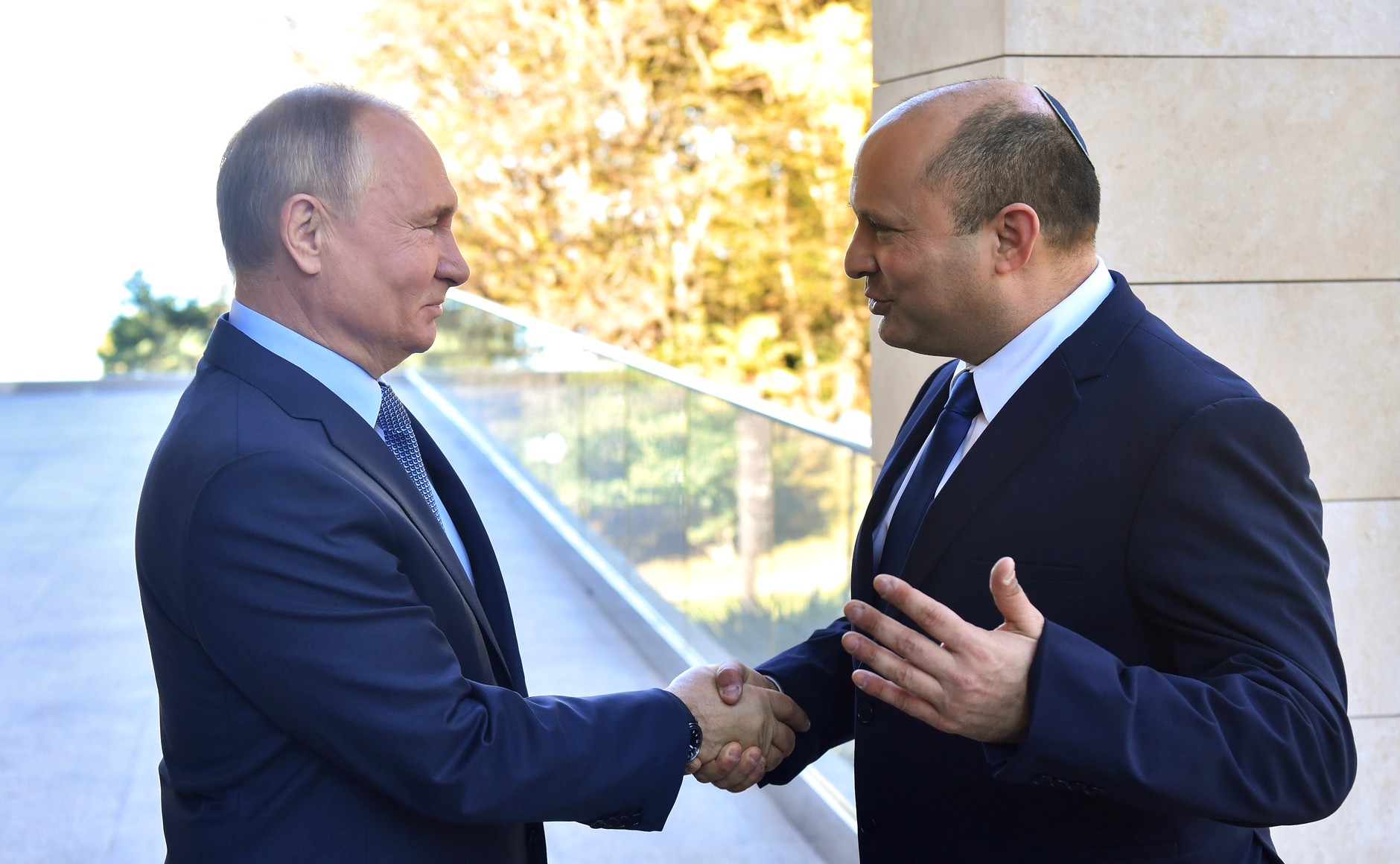 It should be said that our trade and economic ties are developing successfully, even though they are still modest in terms of volume. During the first seven months of this year, trade has grown by 50 percent despite all the pandemic restrictions. And this is a very important component. There are also interesting areas – we discussed this with the former Israeli government – such as the hi-tech branches of the economy. Of course, it would be very interesting and useful for me to exchange information with you on the situation in the region. As you may know, we are taking efforts to restore and strengthen Syrian statehood. There are problems in this regard, and they are numerous. But there are also points of contact and opportunities for cooperation, especially where matters related to fighting terrorism are involved. In general, we have many issues that we can and should discuss. I am quite hopeful that despite the domestic political battles – and they are inevitable for any state – your government will pursue a policy of continuity with regard to Russian-Israeli relations. We have developed sufficiently business-like and trust-based relations with the previous government. In any event, we are glad to see the head of the Israeli Government in Russia. Welcome! 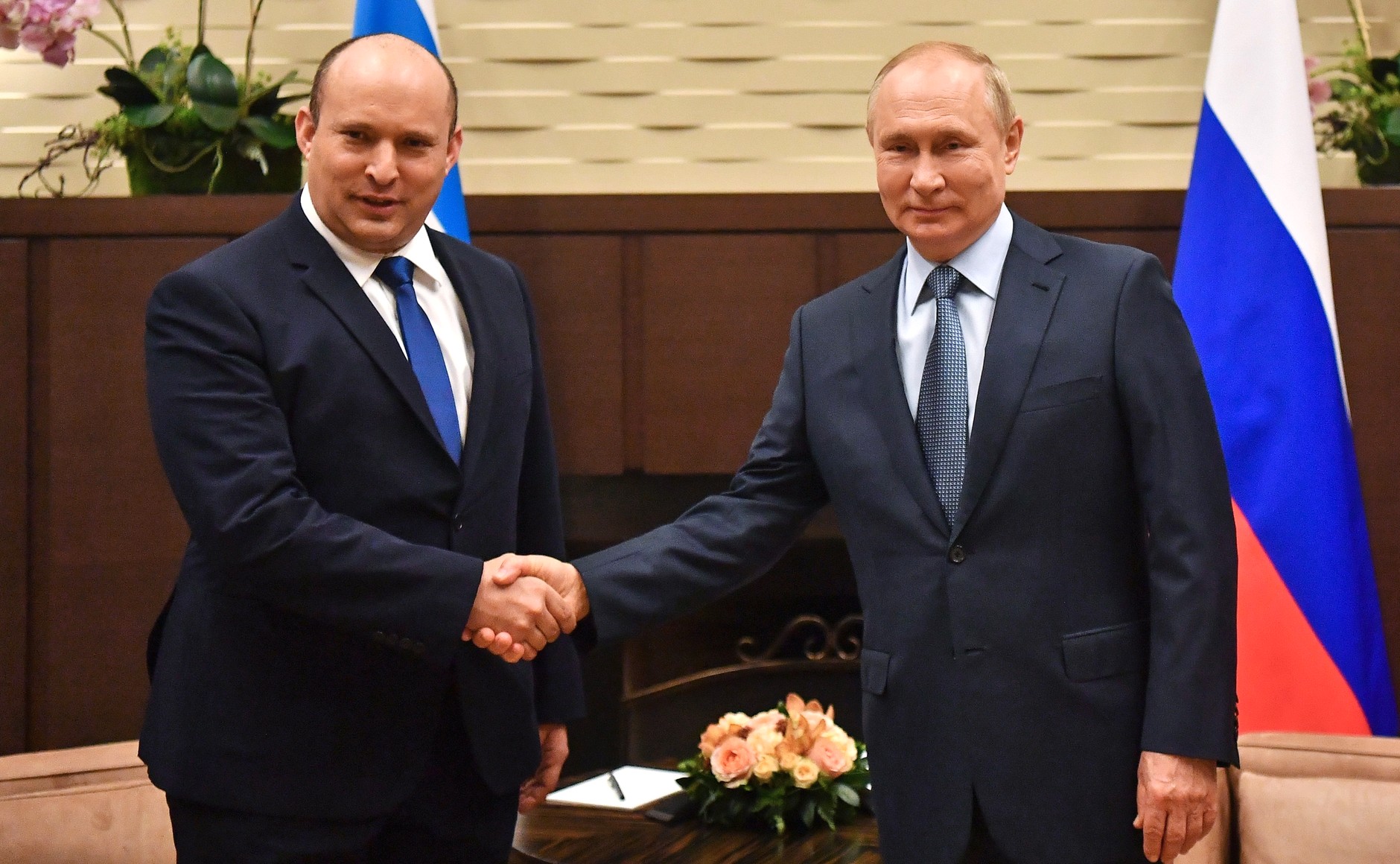 Prime Minister of Israel Naftali Bennett (retranslated): Thank you very much for the warm welcome, Mr President. Relations with Russia – these days, we are symbolically celebrating the 30th anniversary of their resumption – are very special relations for Israel both because of our common past, and because of our present and future. We remember the past quite well, the immense efforts undertaken by the people of Russia and the Red Army to win victory over Nazi Germany in World War II. This was perhaps the most critical moment in the history of the entire world and, of course, that of the Jewish people. It is our responsibility to pass on to future generations the feeling of gratitude that we have towards Russia through the dialogue we conduct, and through the historical documents, and even through the monuments we build. For example, the monument to the Russian soldier in Netanya and the monument to the victims and survivors of the Siege of Leningrad in Jerusalem are two monuments where you, Mr President, took part in their unveiling ceremonies while you were in Israel. As a person who paid much attention to the study of history, I cannot but appreciate the tremendous contribution and efforts of the Russian people and the huge price that they paid for Victory. 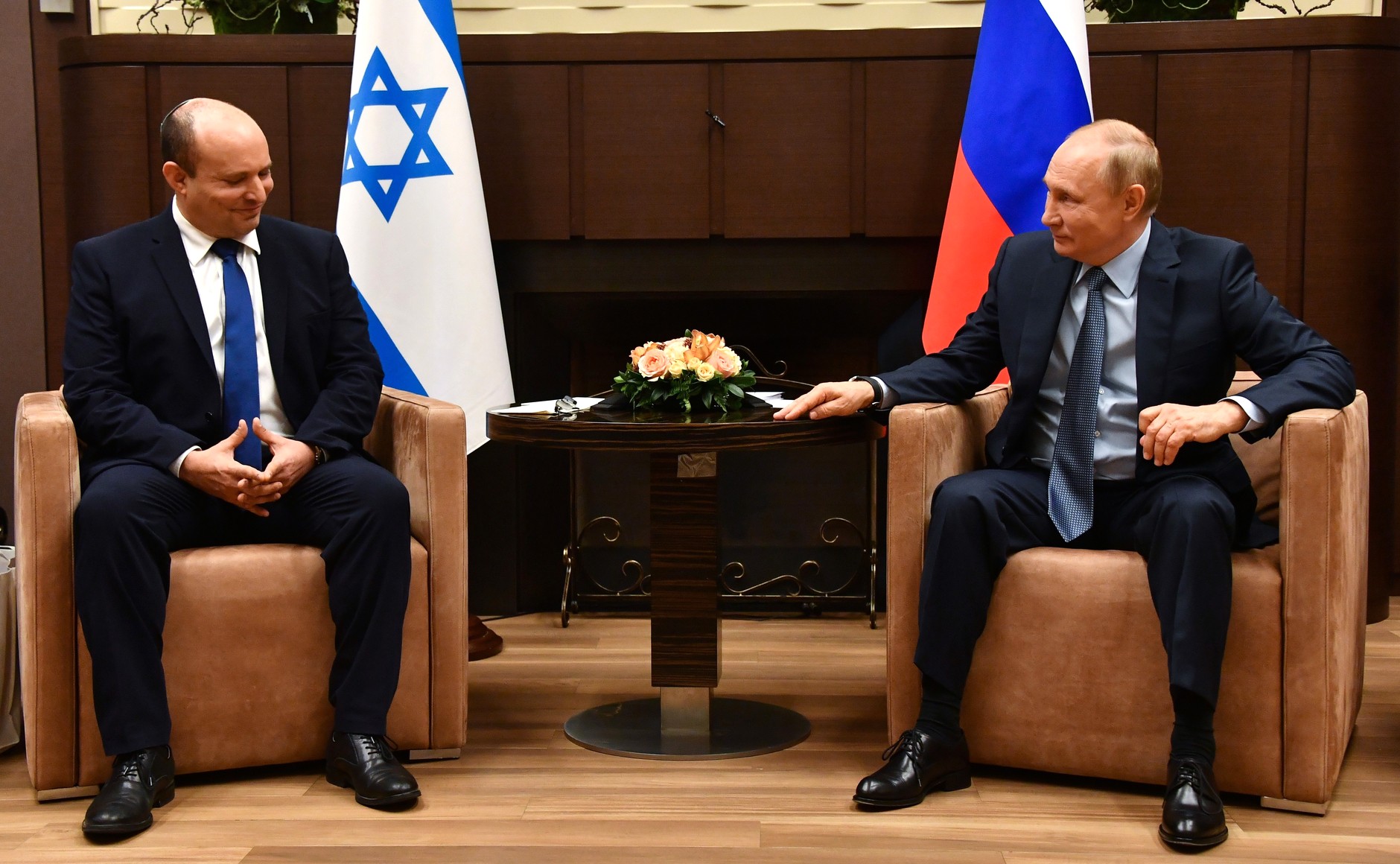 Mr President, I would like to tell you that we are completing the implementation of a major project – a new museum commemorating the Jewish soldiers who fought with the Allied armies during World War II, primarily, of course, the Red Army that had half a million Jewish soldiers, and 200,000 perished at the fronts. This will be a large museum and it will be named after the late President Chaim Herzog, father of the current incumbent Isaac Herzog. I would be glad to give you details about the museum during our conversation. I would be glad to discuss with you many subjects related to our current cooperation and to the development of our economic, scientific, and cultural cooperation. We in Israel have one million Russian-speaking “ambassadors.” They are making a huge contribution to the State of Israel, they are bringing great influence to bear on my country through the culture they have brought along, through their mentality and work culture, as well as through their achievements. 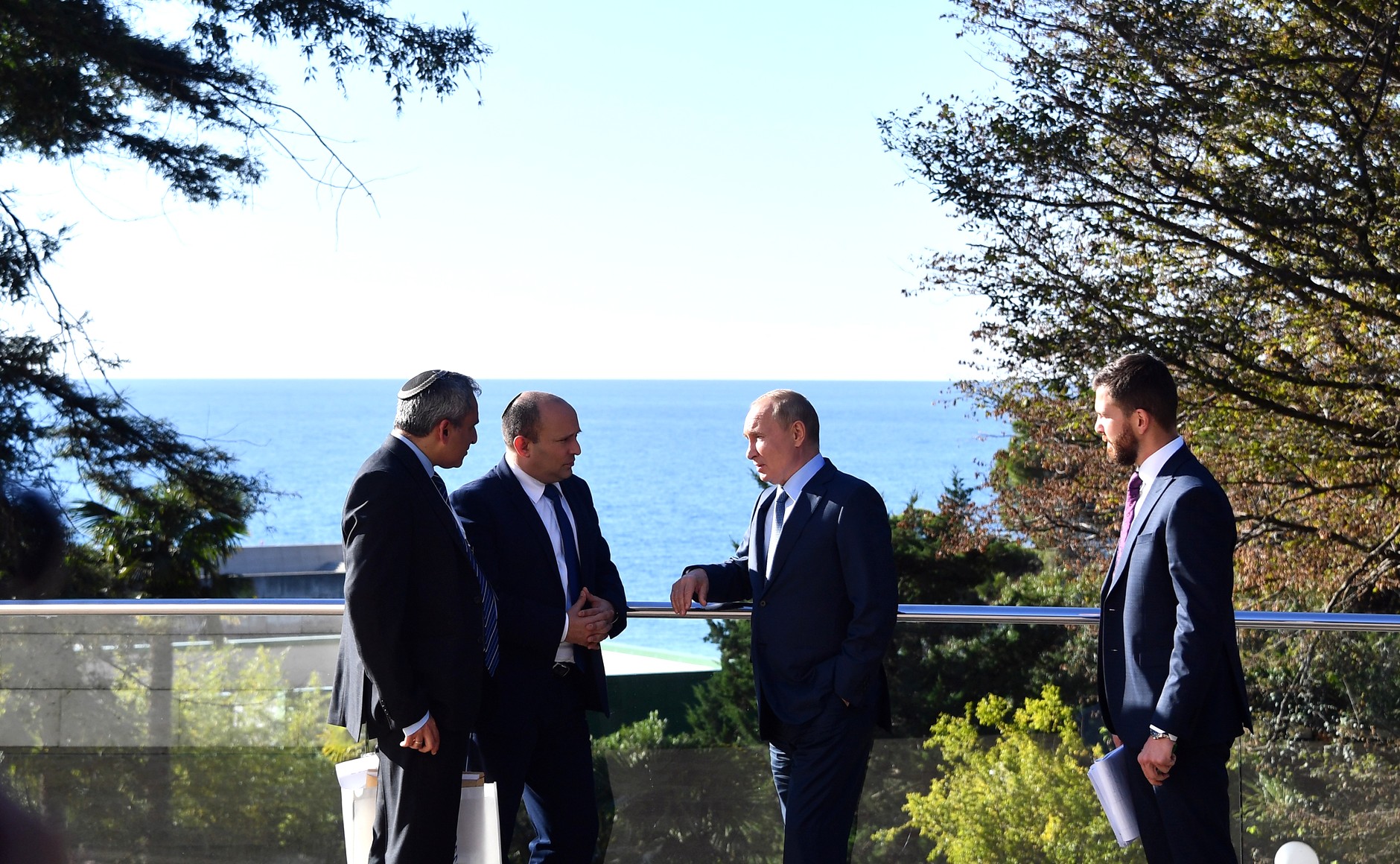 I would like to tell you a story that occurred earlier this week. I was visiting a wounded soldier at a hospital. His mother is a Russian-speaking Israeli. This was his second serious wound in the course of this year. I said: “I am Prime Minister of Israel, I am eager to help you. What can I do for you?” He replied: “All I want is to be back ASAP at my combat unit.” We will discuss in detail, I am sure, Mr President, our economic cooperation. As you rightly said, we have much potential and we are able to actively boost our trade. We will certainly discuss the situation in Syria and the ongoing efforts to stop the Iranian nuclear programme.  I would like to say in conclusion that our entire dialogue and all our relations are based on a very profound bond between our countries and peoples. Mr President, you have spent 20 or even more years consolidating links between our countries and you have brought them to this level. I would like to tell you on behalf of our country and all our people that we see in you a very dear and real friend of the State of Israel and the Jewish people. (In Russian) Spasibo. The source of information - http://en.kremlin.ru/events/president/news/66978 Greetings on start of St Petersburg Open 2021 Vladimir Putin sent a message of greetings to participants, organisers and guests of the St Petersburg Open 2021 International Tennis Tournament. October 23, 2021 - 16:00 The message reads, in part: “These competitions, which traditionally bring together talented and ambitious tennis players from all over the world, have justifiably become one of the most important and eagerly anticipated events in the sports and public life of St Petersburg. The contestants in a fair and uncompromising standoff with their strong rivals showcase great professionalism, dedication and a true champion’s spirit, and offer the spectators a bounty of unforgettable vivid impressions. I should also note that your tournament contribute to the promotion of tennis in our country, attracts new devoted fans to this dynamic and fascinating sport and sets a clear example for young people, showing that perseverance, hard work and stamina in pursuing one’s goals is the key to success.” The source of information - http://en.kremlin.ru/events/president/news/66986 Greetings on 75th anniversary of Gnessin Moscow Special School of Music (college) Vladimir Putin sent a message of greetings to the staff, students and alumni of the Gnessin Moscow Special School of Music (college) on its 75th anniversary. October 24, 2021 - 11:00 The message reads, in part: “Founded in 1946, the school has become an important and inseparable part of the large Gnessin House and has carried on its legendary educational traditions. You can be rightly proud of the school’s rich history and its tremendous contribution to the development of musical art and Russia’s culture in general, as well as several generations of outstanding tutors and mentors. It is largely thanks to their selfless and sincere love for their students that the names and the brilliant performing art of the Gnessin School’s talented graduates are famous throughout the world.” The source of information - http://en.kremlin.ru/events/president/news/66988 Greetings to current staff and veterans of Russia’s customs agencies The President congratulated current staff and veterans of the Russian Federation’s customs agencies on their professional holiday, Customs Officer Day. October 25, 2021 - 09:00 President of Russia Vladimir Putin: Friends, I would like to offer my sincere greetings to all current and retired officers of the Federal Customs Service on their professional holiday and the 30th anniversary of establishing customs agencies in Russia. Their officers have continued the best traditions of many generations of their predecessors as the history of the national Customs Service goes back by many centuries. The Customs Service has changed considerably over the years. An efficient and powerful agency was established following various transformations. Today, it serves as a solid pillar of the state and reliably ensures the country’s national interests. The Federal Customs Service of Russia plays a significant role in replenishing the federal budget, helps expand foreign trade ties and improve the business environment. It addresses these and many other tasks in a responsible manner and with good results. Your large and close-knit team deserves credit for this. Thank you for your work and for your dedication to your professional duty. I am confident that every person who has decided to serve the Motherland should abide by the same high requirements. 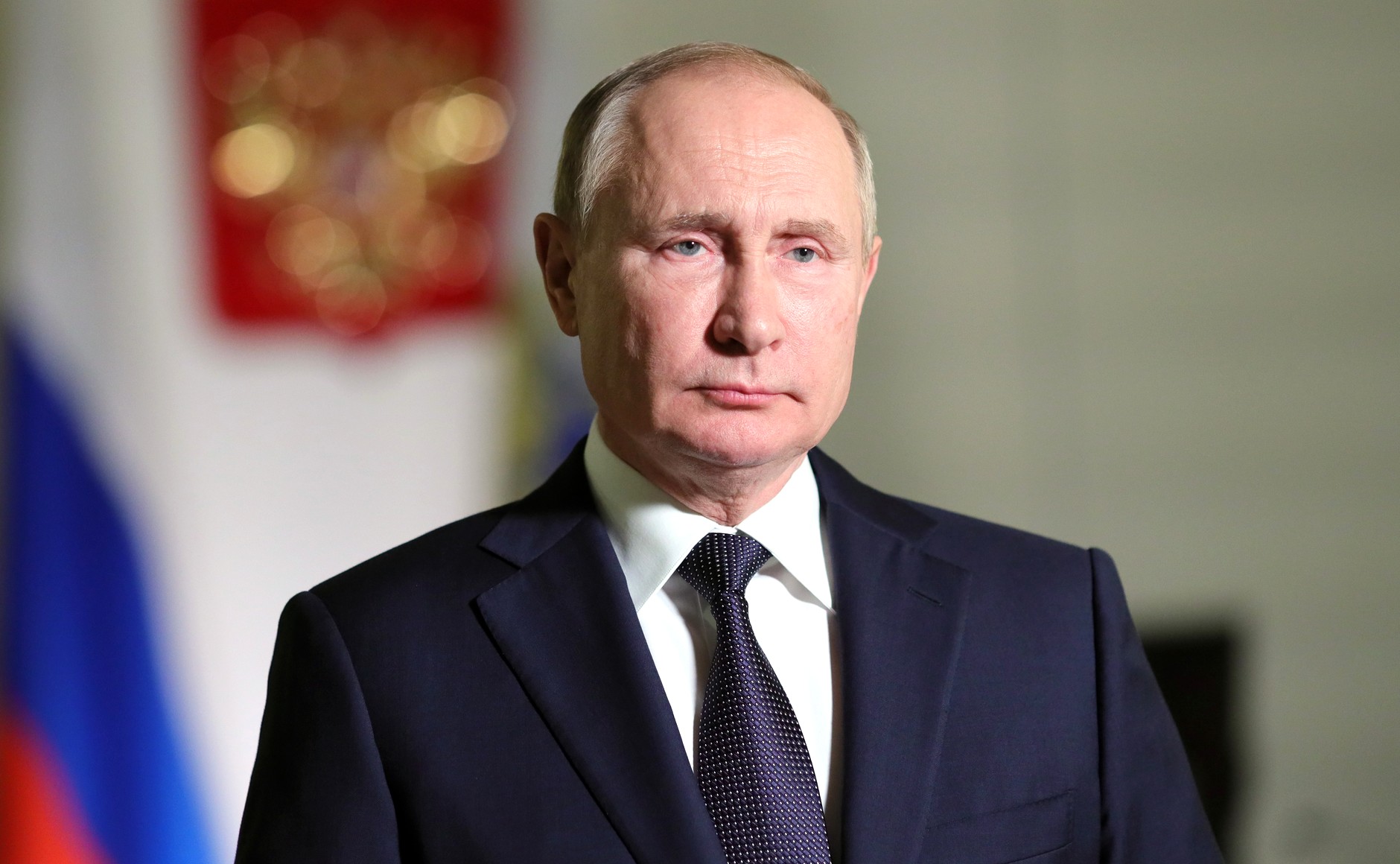 It is also important that you keep up with the times and improve the forms and methods of your work. For this purpose, you master advanced processes, including digital technologies, and strive to turn the Customs Service into a truly up-to-date and dynamic state agency. I would like to note that the wide-scale introduction of interactive electronic services made it possible to radically reduce the time required for customs clearance. These procedures have become faster, more convenient and more understandable for the public, representatives of small and medium-sized businesses and major companies. This certainly makes the Russian economy more competitive and, what is very important, this makes people’s life more comfortable. At the same time, various matters still have to be resolved as fast as possible. There are ample reserves for more transparent and simpler customs clearance procedures and for improving your Service’s overall performance. It is necessary to set the highest standards here, and to be guided by national interests and people’s needs. I expect the Federal Customs Service to continue expanding open dialogue with the business community and strengthening society’s trust. Your unconditional priorities include active assistance to deepening integration processes in the Eurasian region and expanding cooperation with your colleagues from the Eurasian Economic Union and other countries. In conclusion, I would like to once again congratulate you on your professional holiday and the anniversary of the Customs Service. I wish you every success for the benefit of Russia, happiness, health and all the best to you and your families and loved ones. The source of information - http://en.kremlin.ru/events/president/news/66987 Telephone conversation with President of Uzbekistan Shavkat Mirziyoyev October 25, 2021 - 12:00 During the telephone conversation, Vladimir Putin warmly congratulated President of the Republic of Uzbekistan Shavkat Mirziyoyev on his convincing victory during the presidential elections. The parties reaffirmed their mutual commitment to facilitating the all-round development of the entire range of Russian-Uzbek relations of strategic partnership and allied interaction. The President of Russia also sent a message of greetings to Shavkat Mirziyoyev. The message reads, in part: “The voting results have completely confirmed your great political authority, as well as support for your line aimed at facilitating Uzbekistan’s socioeconomic development and the protection of its interests on the international scene. You are making a major personal contribution to strengthening relations of strategic partnership and allied interaction between our countries. I am confident that we will continue to expand practical cooperation in various spheres through joint efforts and interact constructively in addressing topical matters of the regional and global agenda. This, doubtless, meets the interests of the friendly peoples of Russia and Uzbekistan and is consonant with maintaining peace, stability and security in Central Asia.” The source of information - http://en.kremlin.ru/events/president/news/66992 Meeting with Head of the Federal Customs Service Vladimir Bulavin Vladimir Putin had a working meeting with Head of the Federal Customs Service Vladimir Bulavin. October 25, 2021 - 13:50 - Novo-Ogaryovo, Moscow Region 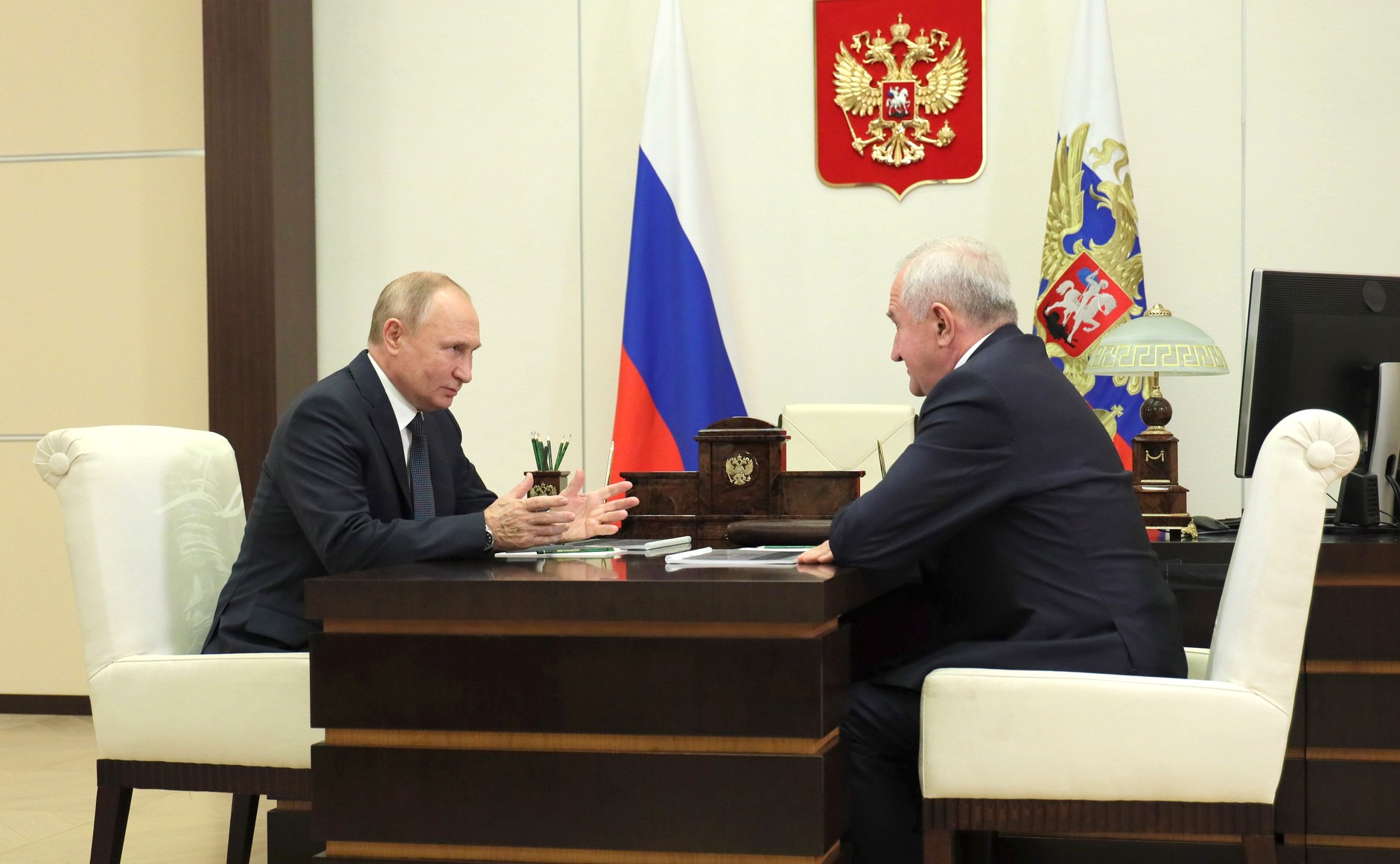 President of Russia Vladimir Putin: I know that you wanted to start our today’s meeting by discussing transformations and how the reform of our Customs Service is proceeding. Please, let us begin. Head of the Federal Customs Service Vladimir Bulavin: Mr President, a year ago, I already reported to you that, in 2020, we had implemented sweeping transformations and a large-scale reform of the customs administration system. The reform was conducted under your decision and was accompanied by a substantial restructuring of customs agencies and an in-depth digital transformation of the customs process. We established online customs declaration centres, a chain of distributed centres – a total of 16 facilities, online customs offices, and the customs offices have been converted into customs facilities and monitoring posts. As it happens, 2021, on the one hand, marks the 30th anniversary of the establishment of the Federal Customs Service, and on the other hand, this is the first year that the Federal Customs Service has virtually worked within a system of new coordinates. Although the year is not over yet, it is possible to sum up certain results. In our opinion, the main principles of the reform that have been implemented have proved their worth. Most importantly, we have managed to accomplish two main tasks: Customs clearance has become faster, more transparent and more convenient for foreign economic operators, and the administrative burden on businesses has been reduced considerably. On the other hand, customs clearance has become more cost-effective for the state in the context of fulfilling customs agencies’ fiscal function. In the long run, we believe that all this has helped expand nationwide trade volumes. I would like to dwell briefly on all these matters. We managed to digitise almost all customs procedures during the reform. For example, our information systems process 860 million entries daily. It takes five seconds to write off customs payments from a single personal account, four seconds for the risk management system to check for customs risks, one second to send a request for data to the digital archive, and about 30 seconds to send request to another federal executive body for information that we need for customs clearance. This made it possible to automate individual customs clearance procedures. This year, we have issued four million declarations in nine months, of which 3.2 million declarations were automatically entered into the system and slightly over one million were automatically issued. One electronic declaration is automatically issued in four minutes without any human input, which means quickly, efficiently and objectively. In general, for risk-free supplies, it takes on average one hour and ten minutes that is, 70 minutes, to issue an electronic import declaration, and 36 minutes to issue an export declaration. Almost 80 percent of all declarations are issued within four hours, which is what the EAEU Customs Code specifies. We believe this has had a significant impact on our relations with business entities. Almost 100 percent of the declarations are submitted online. All other contacts with the participants in foreign economic activity are maintained using the Personal Account of a Participant in Foreign Economic Activity service which can be used to submit a declaration online, make the necessary customs payments, check the status of current accounts, and submit the necessary documents, if requested. To reiterate, we have achieved our goal of making the customs clearance process faster, more efficient and user friendly. And second, of course, it must be said that the customs procedure has become more effective for the state. This year we have transferred 4.8 trillion rubles to the federal budget over nine months. The forecast task has been exceeded by 133 percent: we have transferred 1.2 trillion more to the budget than the forecast task that we had. It is generally accepted that customs payments are mainly export payments. The results of nine months of our work show that two-thirds are payments for imports and one-third for exports, that is, we have transferred 3.2 trillion in import and 1.6 trillion in export payments. It should be noted that overall, this year the Russian Federation’s trade grew 35 percent compared with the first nine months of last year and amounted to US$540 billion. Our exports amount to US$310 billion and imports to US$230 billion, which means we have a generally positive balance. Of course, these volumes have different elements: the growth in value of both imports and exports or payments introduced for the supply of grain and timber; but at the same time, we believe that there is also such an element as the efficiency of customs clearance at the electronic declaration centres. We are handling the increasing bulk of trade quite well. I would like to note our cooperation with the railway. This year we have moved our joint work online, which means that now we have ensured that electronic documents are provided once and the zero VAT for exporters is confirmed online, which has had a significant impact on the movement of goods along the railway. In general, their volumes have grown almost 1.5 times. Transit on our railways has also grown significantly. The railway has a profit of about 50 billion rubles from transit alone. This year, the container traffic will amount to more than one million containers, and this will also entail a total effect of about 60 billion rubles according to the data the railway has. This means we believe that the reforms we have carried have reached their goal: we have largely facilitated and sped up the customs procedures and made the customs process more business-friendly, without losing control over customs. The customs procedure is quite effective for protecting the interests of the state. 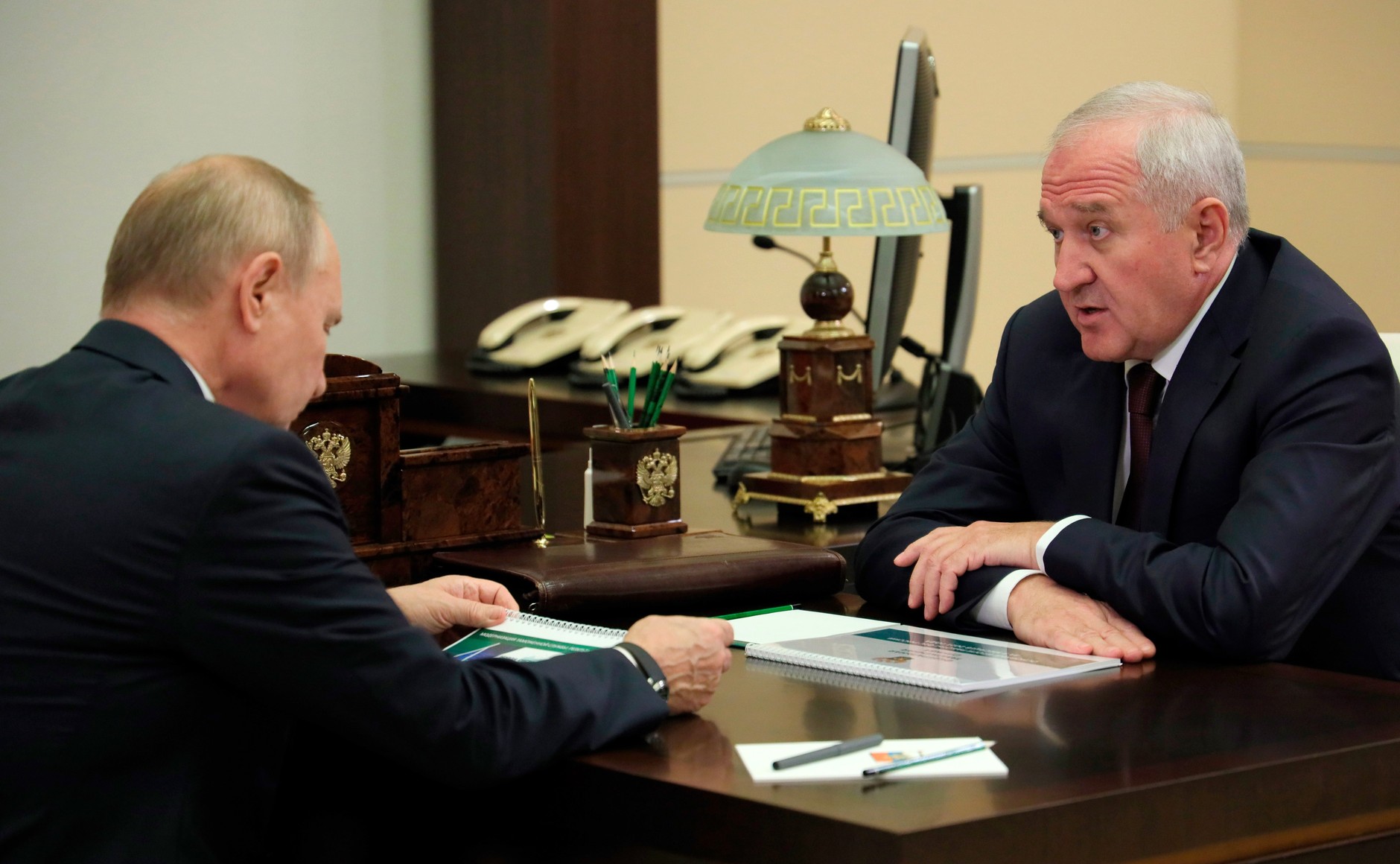 Vladimir Putin: How much are you going to contribute to the budget this year? Vladimir Bulavin: For nine months, we exceeded our targets by 1.2 trillion. If the estimates are not revised upwards in the near future, I think we might exceed this figure. It is hard to make predictions right now. Vladimir Putin: The Government will hear you and make adjustments. You have an extensive programme for upgrading checkpoints. How is it progressing, besides the electronic platforms? Vladimir Bulavin: Mr President, we are actively working with the Ministry of Transport on this, and the creation of an intelligent checkpoint is one of our joint projects – this project is included in the Customs Service Development Strategy to 2030. That is, we are developing a conceptual scheme for an intelligent checkpoint and creating a digital platform that will be used by the oversight bodies working at the checkpoints. According to our plan, this will ensure non-stop movement of goods for risk-free deliveries of consignments. I would also like to note that we are now working on creating a project for digital analysis of the images made by customs inspection complexes. We are using artificial intelligence in the customs service, since our product range includes 12,500 items, and the computer must first be taught to identify each particular consignment so that it commits them to memory so as to be able to analyse images it receives from customs inspection complexes without supervision. In addition, our joint plan with the Ministry of Transport includes equipping the checkpoint with streaming customs inspection complexes, which will scan incoming vehicles without their drivers needing to leave them. At present, it takes about six minutes to scan a vehicle. Currently, a vehicle must first stop and the driver, in order to avoid radiation, must get out, and then the vehicle gets scanned (there are two options: either the frame goes around it, or a vehicle gets pulled through the frame), and this takes about six minutes, or 10 vehicles per hour. If we continue to work like this, clearly, we will not be able to scan more than 240 vehicles [per day]. During the summer, when the workload is heavy, 500 or even more vehicles pass through our checkpoints.  Vladimir Putin: I see. What areas require special attention? Vladimir Bulavin: We are aware of these checkpoints. Currently, they include Burachki, European direction, and the Pskov Region where the checkpoint is being renovated. Upper Lars in Georgia is always a problem. This year, this checkpoint was closed for about 90 days due to bad weather with snow drifts and avalanches. Lower Zaramag in Azerbaijan is also being renovated. All three checkpoints are under renovation. Vladimir Putin: Good. Thank you. The source of information - http://en.kremlin.ru/events/president/news/66993 Greetings to participants and guests of the Middle East Green Initiative launch ceremony Vladimir Putin sent his greetings to the Middle East Green Initiative Summit being held in the capital of the Kingdom of Saudi Arabia. October 25, 2021 - 17:00 The message reads, in part: “Russia attaches high priority to environmental issues, and we commend the efforts of the Saudi leadership to protect the environment and overcome environmental problems that directly affect the quality of life of millions of people. The initiative put forward by the Kingdom is very relevant and timely. The Middle East today faces serious environmental challenges, including pollution of the biosphere, a shortage of fresh water, increasing droughts, and emerging risks to food security. It is important that the comprehensive and balanced action programme developed by Saudi specialists provides for the widespread use of advanced technologies, including for ensuring the rational use of natural resources and planting greenery in large desert areas. The implementation of such an ambitious project will certainly promote major environmental improvements in the Middle East and will become a significant contribution to global efforts on the environmental track. I would like to wish our Saudi and other Middle Eastern partners success in advancing this green initiative and reaffirm that Russia, in turn, is ready to build up comprehensive international cooperation in protecting the environment.” The source of information - http://en.kremlin.ru/events/president/news/66999 Telephone conversation with British Prime Minister Boris Johnson Vladimir Putin had a telephone conversation with Prime Minister of the United Kingdom Boris Johnson. October 25, 2021 - 18:30 Climate issues were discussed in depth in light of Britain’s preparations for the upcoming World Leaders Summit to be held in Glasgow on November 1–2, which will open the 26th UN Climate Change Conference of the Parties (COP26). The Russian side noted its commitment to international obligations and its intention to consistently reduce the national economy’s carbon footprint. Boris Johnson welcomed Russia's plans to achieve carbon neutrality by 2060. Vladimir Putin noted that the Russian delegation in Glasgow will contribute to the successful work of this important international forum. The Russian President and the British Prime Minister exchanged assessments of bilateral relations. They expressed the shared opinion that, despite obvious problems, it is necessary to establish cooperation between Moscow and London in a number of areas. The leaders reviewed several pressing items on the international agenda as well. When discussing the situation in Afghanistan, Vladimir Putin informed his counterpart about the outcomes of the expanded troika consultations and the Moscow format meeting that were held last week in the Russian capital. The leaders were supportive of maintaining the Joint Comprehensive Plan of Action on the Iranian nuclear programme, which is an important factor in ensuring security and maintaining the non-proliferation regime. Vladimir Putin outlined in detail Russia's approach to resolving the internal Ukraine conflict provided the unconditional implementation of the Minsk agreements. It was agreed that the parties will maintain the necessary contacts regarding the issues discussed during the conversation. The source of information - http://en.kremlin.ru/events/president/news/67000
__________________
Where should they dig the Very Deep Pit? Piglet said that the best place would be somewhere where a Heffalump was, just before he fell into it, only about a foot farther on. (c) Alan Alexander Miln |
|
|
#16 |
|
Senior Member
|
Meeting with Sberbank CEO German Gref
Vladimir Putin had a working meeting with CEO and Chairman of the Management Board of Sberbank German Gref. October 26, 2021 - 14:05 - The Kremlin, Moscow President of Russia Vladimir Putin: I know everything is going well, and the bank is actively developing. A record profit, is that right? 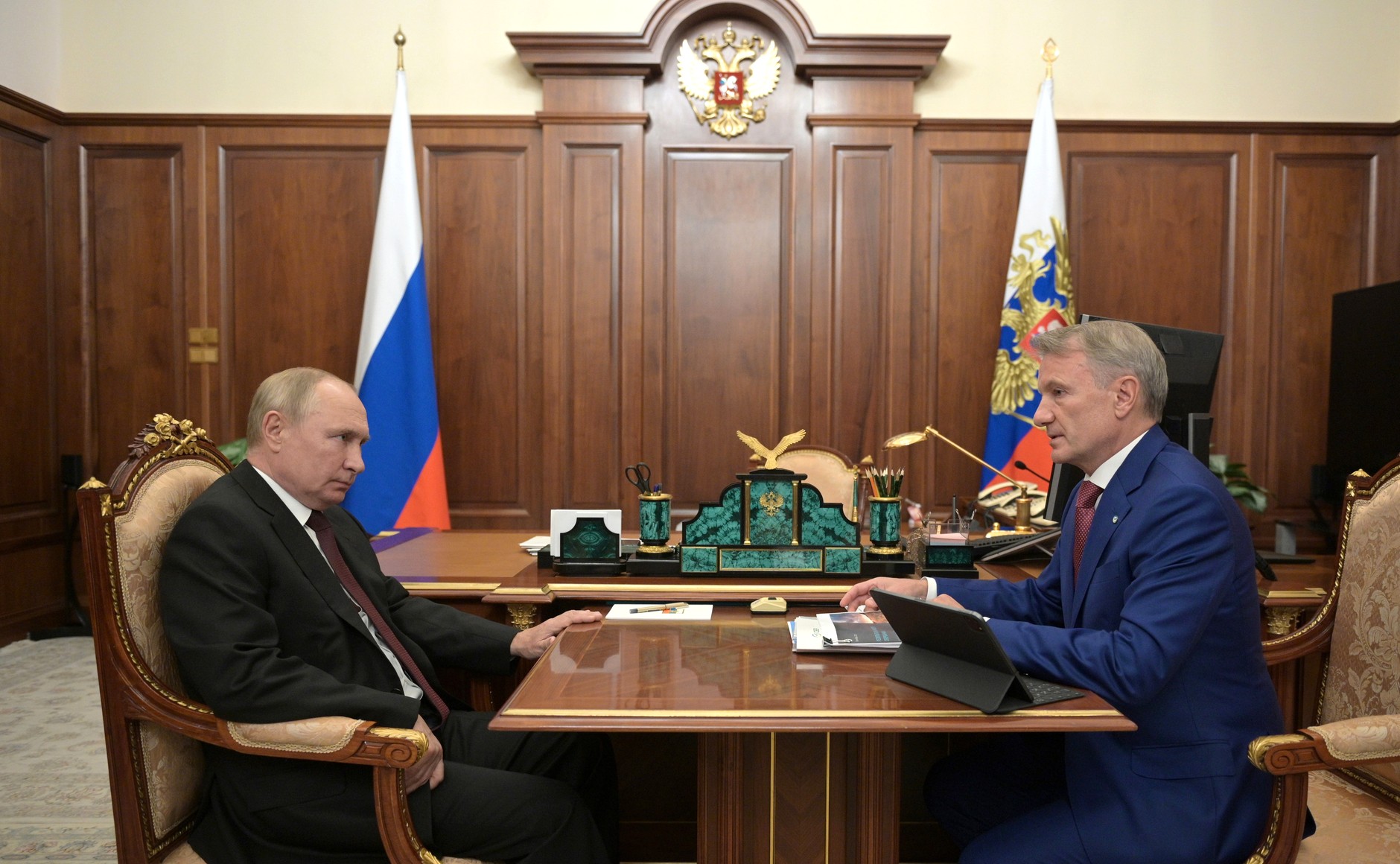 Chairman of the Management Board of Sberbank German Gref: Yes, Mr President. This year we will probably make a profit in excess of a trillion rubles. In this sense, this year has probably been one of the most successful. First, we have seen an economic recovery compared to the previous pandemic year; we have seen a revival in industry, a recovery in demand for credit resources. Our initial projections for lending growth were far less optimistic. What we can see now is that lending to legal entities has already increased by about 3 percent. At the same time, SME lending is up 28 percent, which means a very rapid recovery from the pandemic. Lending to individuals is also doing fine. We had thought mortgage lending would fall drastically after the end of the government programme for a number of categories, but nevertheless, this year, we expect an increase compared to last year, when the preferential mortgage programme was in effect. Surprisingly, demand is very high; developers, along with banks, are beginning to stimulate the market, trying to compensate for the scrapping of the state programme for some people, lowering prices and offering special discounts. In general, we are very close to the level we had with government subsidies. True, mortgage issuance fell sharply at a certain point; but now the segment is gradually recovering. There is good growth in demand for mortgages among families with children, who are still entitled to join the state programme. Overall, we can see rapid economic recovery. This year, according to our estimates, economic growth will be around 4.5 percent, at least 4.5 percent, and expectations for next year are generally quite good. 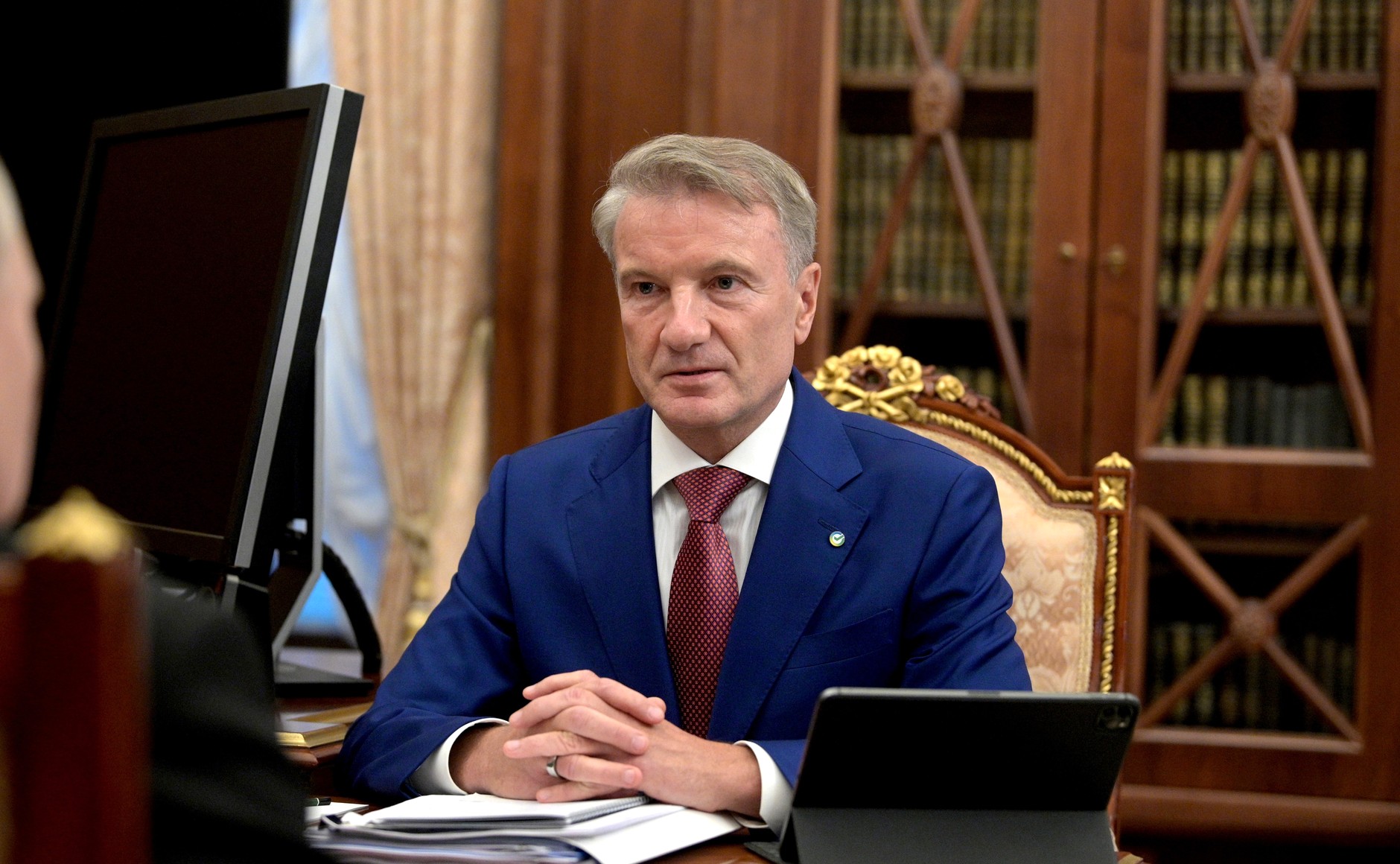 Vladimir Putin: Were you expecting about 3 percent? German Gref: Yes. The growth is 1.5 times higher than expected. And next year – it will depend on the market situation, of course, but expectations are quite good, also around 3 percent next year. Growth is higher than originally expected. Vladimir Putin: What is the structure of the portfolio in general? Has it changed this year? 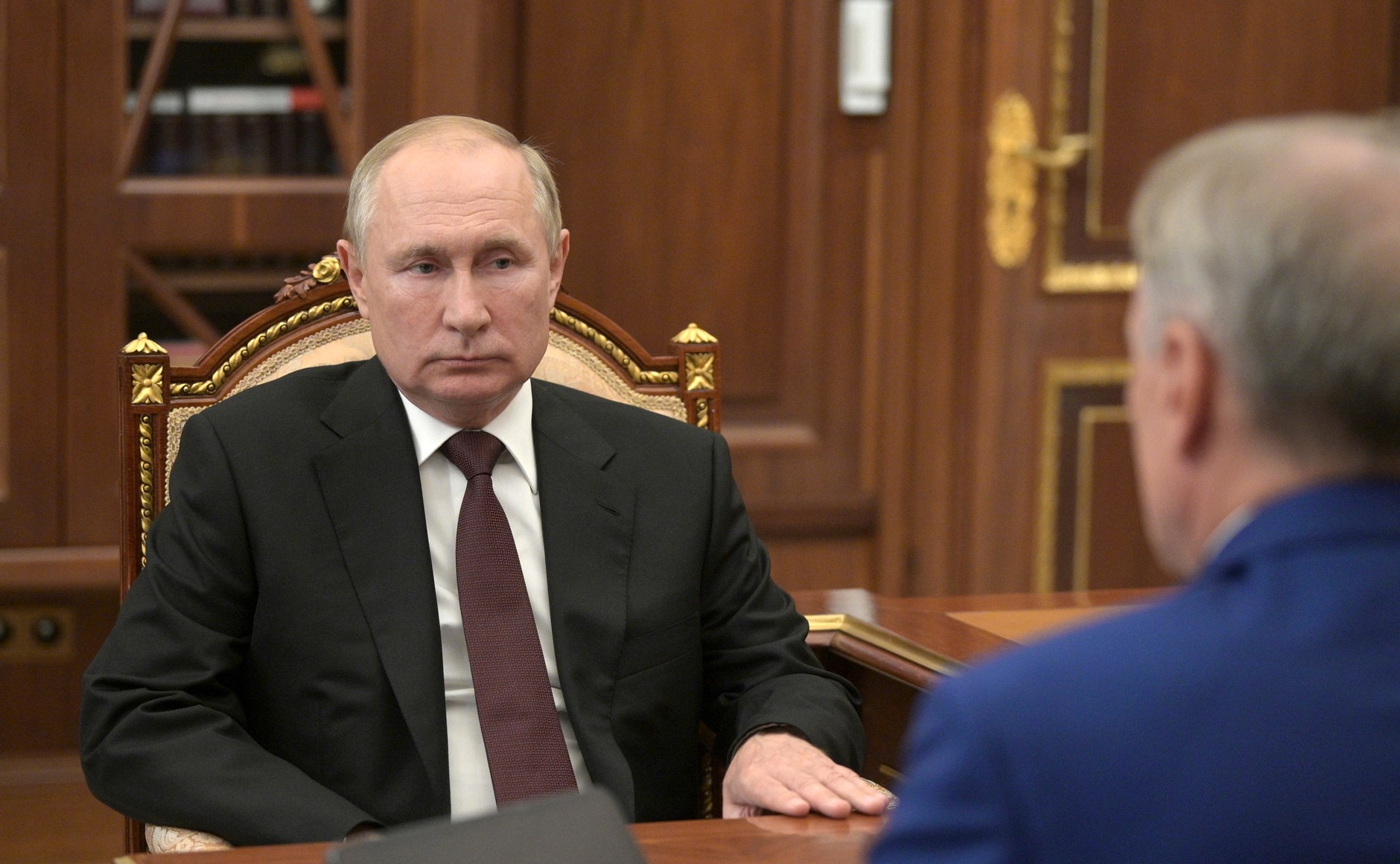 German Gref: Yes. Lending to individuals in our bank is growing five times faster than lending to legal entities. So, over the past six years or so we have had a general trend towards alignment between the portfolios of legal entities and those of individuals. It was about 70 to 30 and now it is already around 60 to 40. We are very undercredited, and our mortgage is on a very low level relative to the GDP. We believe our mortgage lending is growing 2.5 times relative to the GDP, as is normal for countries with comparable demand. So we are likely to have demand in the construction and construction materials markets in the next few years, which is good. If the wave of inflation does not affect us as much and does not continue at its current pace (unfortunately, metals and other things have become much more expensive and housing prices have soared, of course) we would consider mortgage and construction as one of the drivers of economic growth. As for the technological transformation, we are moving forward in accordance with our plans. We will most certainly transfer about 80 percent of all our systems to our new platform, which we have created entirely by ourselves, before the end of next year and we will not depend on imported software. We will still depend on hardware, of course, but software… Vladimir Putin: But this is a key issue.  German Gref: Yes. Under the plan, we will practically complete the transition before the end of 2023. In 2021–2022, we should complete 80 percent, according to our plan. Right now we are on track with our plan and are even a bit ahead of it, so I think these two years are critical for the bank’s transformation. The first problem is, of course, technological independence regarding software. The second matter is certainly the speed of transactions and labour intensity. In 2021 alone, we increased the efficiency of our systems by 50 percent, which is a big leap. This is a result of the introduction of new, cloud instruments. It makes our work reliable – we have far fewer failures and it allows us to develop at the same time. This year, we will make 80 percent more changes in our system than in the previous year, using the same personnel. Of course, this becomes possible owing to the introduction of the new platform, new systemic and cloud solutions. This year, we made additional payments, which was a big burden. We worked very closely with the Government. I also want to thank the Ministry of Communications, the Pension Fund and the Ministry of Labour. All of them worked very well and we did not have a single setback. We were very worried about the September payments, because we had to make three payments in one go, and this was the heaviest burden ever on our employees and our system. But by good fortune, everything went without a hitch. For two days, we asked our employees to work until the last customer was dealt with and our offices were working as long as people visited them. Considering that these were elderly people, we certainly tried to make their visits as comfortable as possible. We tried to eliminate queues. The average waiting time did not exceed five minutes. This happened inconspicuously but there was a lot of work behind it, of course. Now the Government is working very hard on creating the social treasury. In principle, it will be a prototype of potential targeted payments to the people that need them for various reasons. I believe that in the near future we will be able to do much more to overcome poverty with the help of digital technology. 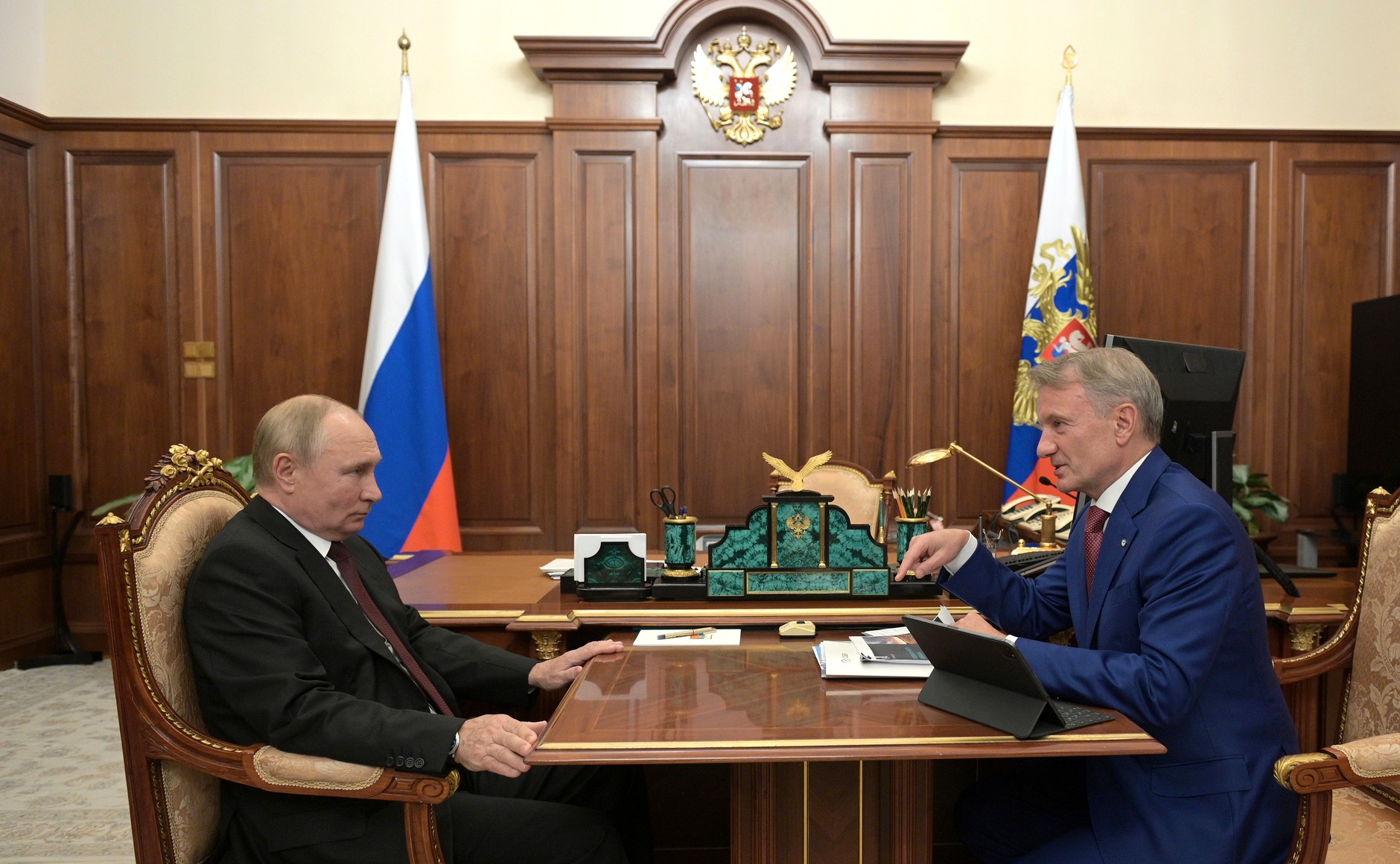 Vladimir Putin: Good. The source of information - http://en.kremlin.ru/events/president/news/67002 Greetings on launch of All-Russian Student Olympiad I am a Professional fifth season Vladimir Putin sent greetings to participants in the fifth season of the All-Russian Student Olympiad I am a Professional. October 27, 2021 - 09:00 The message reads, in part: “Throughout its existence, the Olympiad has become a unique venue allowing talented young men and women who aspire to new knowledge and skills to show what their worth, to display their abilities, to exchange experience and to obtain support for implementing their plans. And, of course, you will be able to discuss topical matters of current concern to young people in a friendly and informal atmosphere. It is important that students from all regions of this country, specialising in the most diverse areas, including technical and natural-science occupations and the humanities, will be able to take part in the Olympiad. Every student has ample opportunity for his or her activities. All they have to do is boldly move ahead towards their long-cherished goal, without fearing difficulties. I am convinced that your inherent energy, optimism and belief in your own strength and capabilities will certainly remain in high demand in the future, as well. I wish you good luck and all the best. I would like to note that Russia will always be a country of tremendous opportunity for hard-working and enterprising young people.” I am a Professional is a flagship project of the Presidential platform Russia – Land of Opportunity. The Olympiad’s participants will be able to test their skills in one or several of 72 available options. Over 400 Russian companies help organise and hold the Olympiad. The source of information - http://en.kremlin.ru/events/president/news/67009 East Asia Summit The President addressed, via videoconference, the 16th East Asia Summit. October 27, 2021 - 15:00 - Novo-Ogaryovo, Moscow Region The 2021 East Asia Summit was held under the chairmanship of Brunei Darussalam. The participants discussed the economic recovery of the Asia-Pacific Region and overcoming the consequences of the coronavirus pandemic. At the end of the session, the participants approved a package of documents. 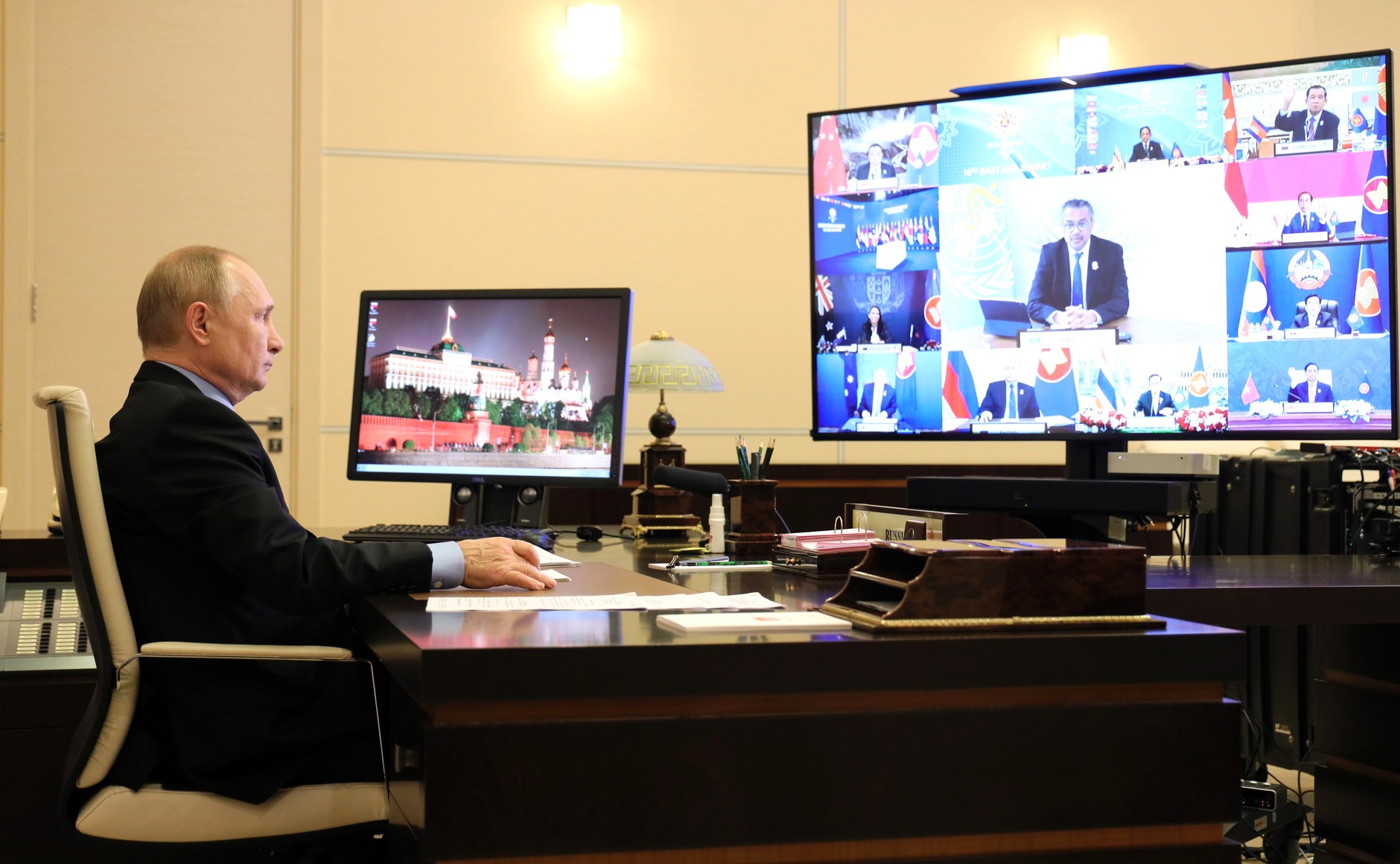 President of Russia Vladimir Putin: Your Majesty, colleagues, I would like to begin by expressing my gratitude to His Majesty Sultan of Brunei Darussalam for organising this event. The East Asia Summits provide a good opportunity to discuss the situation in the Asia-Pacific Region, map out possible solutions to the most challenging problems and coordinate measures to maintain peace and stability and to strengthen mutually beneficial multilateral cooperation. Our common region has indeed become one of the most dynamic global centres of political, business and investment activity. At the same time, it is facing serious challenges and threats in terms of security, and economic and social development, which have been augmented by the coronavirus during the past two years. Therefore, it is quite logical that this summit is focusing on the struggle against the pandemic and efforts to overcome its consequences, as well as the implementation of the joint Statement on Strengthening Collective Capacity in Epidemics Prevention and Response, which was adopted at Russia’s initiative. In this context, we are certainly ready to exchange experience with interested countries on the practical aspects of combatting infectious diseases. We could also expand the training programme for epidemiologists from ASEAN states at the Vladivostok Research Centre of Biosecurity in the Asia-Pacific region. In November and December, we will hold a new series of relevant advanced training courses on that platform, which representatives of the regional countries are welcome to attend. I would like to note that Russia is seeking to make a real contribution to efforts aimed at ensuring free and non-discriminatory access to vaccines against COVID-19 for citizens of all states. We are in favour of developing a procedure involving reciprocal recognition of vaccination certificates, without which it is practically impossible to support the unrestricted movement of citizens of our countries across the region. The use of Russian vaccines, primarily Sputnik V, has been approved by 70 countries, and they are supplied to more than 50. We are grateful to many partners in the Asia-Pacific Region for our joint work to localise the production of vaccines. We will continue to provide Russian test kits and reagents needed for diagnosing COVID-19, including free of charge. Protecting mental health and rendering psychological support is of particular importance against the background of the pandemic and related tough restrictions, including the need to stay at home or go into self-isolation. For this reason, we certainly support the initiative of the Brunei chairmanship to approve a separate thematic statement following today’s meeting. In general, we suggest that a regional mechanism for anti-pandemic collaboration be established under the aegis of the East Asia Summits, and we will shortly submit specific considerations on this score via the expert channels. 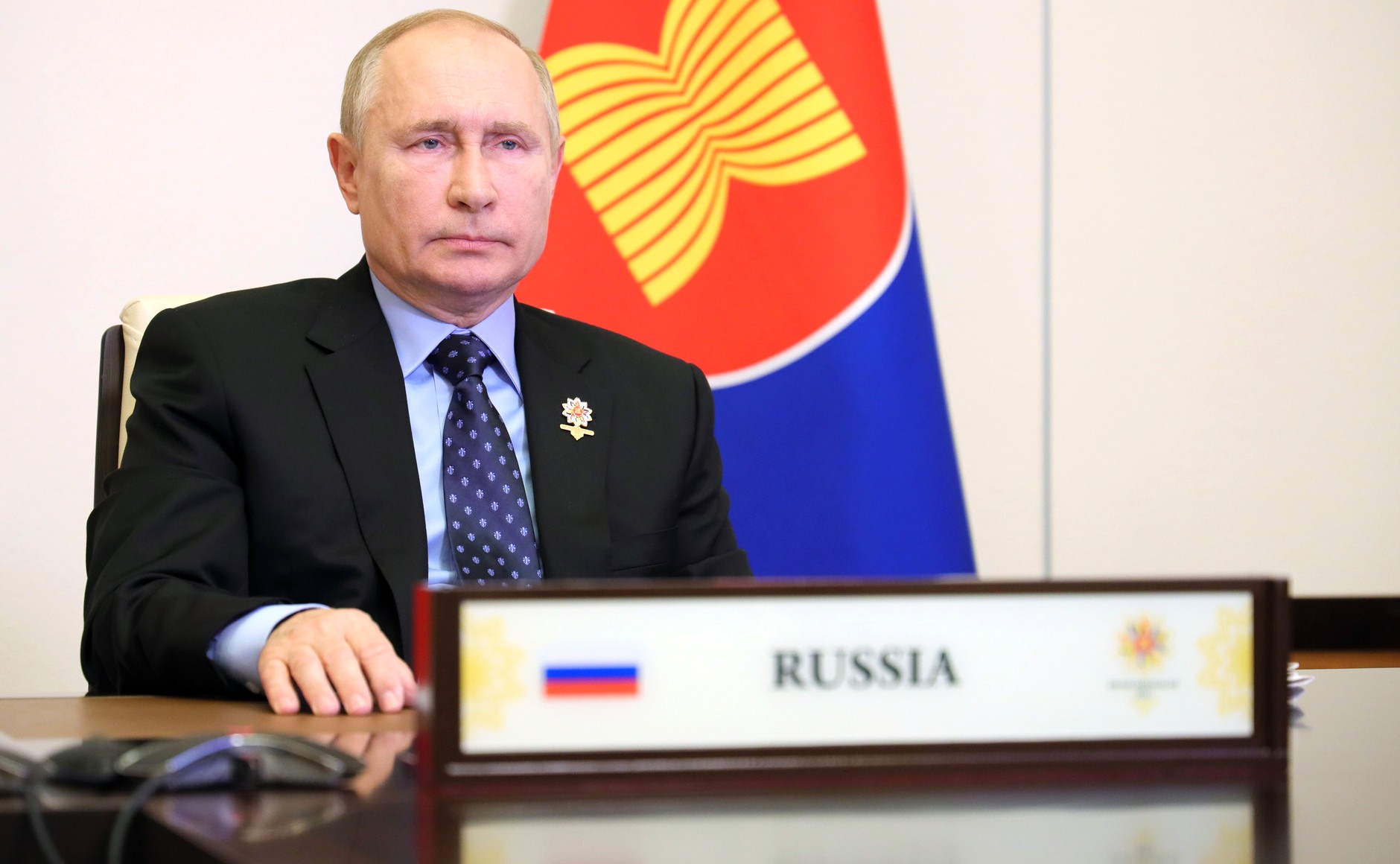 Colleagues, We believe it is quite important for the states in this region to engage in the further strengthening of trade and economic ties, the more so that business activity is gradually recovering. Russia, for one, has managed to reach the pre-crisis level, with GDP growth amounting to 3.7 percent on August 2020. During the first eight months of 2021, Russia’s trade with countries participating in the East Asia Summits grew by more than 34 percent to $162 billion. The states present here account for $18.5 billion in direct accumulated investment into the Russian economy, which is more than a twofold increase over five years. We should support the incipient economic recovery by taking additional measures to stimulate the backbone industries of our economies and by seeking further coordination of efforts in this area. We believe that tourism deserves special attention. It is one of the sectors that have been hardest hit by COVID-19. Meanwhile, for some countries that are taking part in this summit, tourism is the main provider of jobs: before the pandemic, it generated about 10 or more percent of their incomes. In view of this, Russia has suggested adopting a joint statement in support of the tourist industry, following today’s discussion. There is also a specific initiative – to organise a meeting of the heads of relevant departments as early as next January, on the sidelines of the ASEAN Tourist Forum in Cambodia, and then to make such contacts regular. No less urgent are the tasks of stepping up growth in other branches of the economy, including industry, power engineering and finances. With these goals in view, we would consider it useful to prepare and submit for approval by the leaders next year a roadmap of cooperation between the participants in East Asia Summits on the entire range of economic issues. We also support a proposal on adopting a statement on sustainable recovery, based on the outcome of our summit. The priorities mentioned in it, such as efforts to counter climate change, encourage innovation in decarbonisation and develop technology and sectors with low emission levels, require smooth, concerted cooperation from all of us.  And, of course, we are interested in the closest cooperation on digitisation with the participants in the East Asia Summits. Digital technology is very helpful in resolving the comprehensive goal of strengthening coherence in the region, developing its infrastructure and trade, and creating transport-and-logistics corridors. We hope for positive results from the project on innovation for the smart and sustainable cities of Russia and ASEAN. We are launching it as part of our partnership dialogue with the association. Our capital, Moscow, which is among the world’s top seven smart cities, will play a most active role in this project. Finally, I would be remiss not to mention that along with the need to overcome all of the above pressing challenges in healthcare as well as on the social track and in the economy in general, it is important not to relax our joint efforts to maintain regional stability and security. This is all the more relevant given the fact that the number of challenges and threats in the Asia-Pacific region is not decreasing, but growing with old conflicts being exacerbated and new ones emerging. In particular, we have repeatedly noted that with the termination of the INF Treaty, the region is facing the possibility of assault weapons being deployed in its vast territory, and accordingly, the prospect for a new round of the arms race. Realising the danger of such a turn of events, Russia, as you are aware, has announced a unilateral moratorium on the deployment of intermediate and short-range missiles in the APR and other regions and called for a serious discussion on this subject with all stakeholders. Russia’s proposal remains in force and has even become more relevant. To reiterate, Russia has consistently advocated forming a system of equal and indivisible security in the APR and strengthening the atmosphere of constructive cooperation based on international law, including respect for the sovereignty, equality and consideration of each other's interests. We believe this is the only way to cut short existing and emerging threats and to address pressing issues facing our region and the international community, as well as to effectively interact in the interests of sustainable development and improving people’s well-being. Russia will continue to contribute to this joint work. Thank you. The source of information - http://en.kremlin.ru/events/president/news/67010 Greetings to Dina Averina on winning gold at 2021 Rhythmic Gymnastics World Championships Vladimir Putin congratulated Dina Averina on winning the women’s hoop and ball events at the 2021 Rhythmic Gymnastics World Championships in Kitakyushu, Japan. October 27, 2021 - 15:30  The message reads, in part: “You won the first gold medals for our team, with convincing victories in the hoop and ball events, and became a 15-time world champion. Well done!” The source of information - http://en.kremlin.ru/events/president/news/67013 Meeting with Maria Lvova-Belova Vladimir Putin held a meeting with Maria Lvova-Belova via videoconference. The President signed an executive order on her appointment as Presidential Commissioner for Children’s Rights. October 27, 2021 - 18:10 - Novo-Ogaryovo, Moscow Region 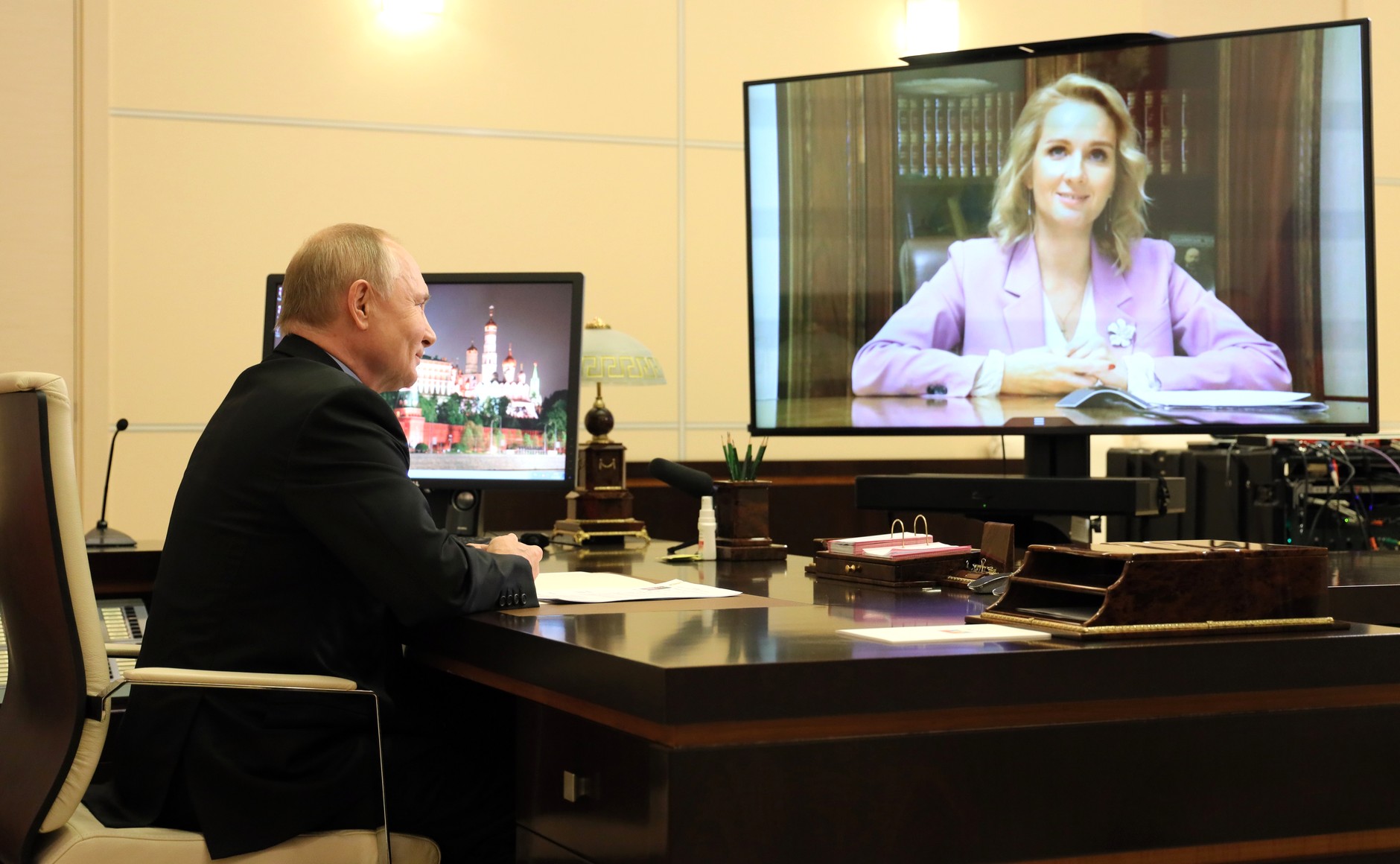 President of Russia Vladimir Putin: Good afternoon, Ms Lvova-Belova. Maria Lvova-Belova: Good afternoon, Mr President. Vladimir Putin: Ms Lvova-Belova, when did you become a member of the Federation Council? Maria Lvova-Belova: I became a member of the Federation Council from Penza Region a year ago. Vladimir Putin: Ms Lvova-Belova, you have such a big family. How many children do you have? Maria Lvova-Belova: Nine children – I gave birth to four and adopted five. Thirteen young people with disabilities are under foster care but they do not live with me. They are part of my assisted living projects. Vladimir Putin: How do you cope with all this? I am referring to your community tasks as well. Maria Lvova-Belova: Mothers with many children are used to multitasking. Vladimir Putin: What among all the things you do and have done do you like most? Maria Lvova-Belova: Mr President, this is, of course, work with families in hardship, orphans, and young people with disabilities. I like this work and consider it important. I understand that if I have an opportunity to take part in their lives, I am very happy to do this. 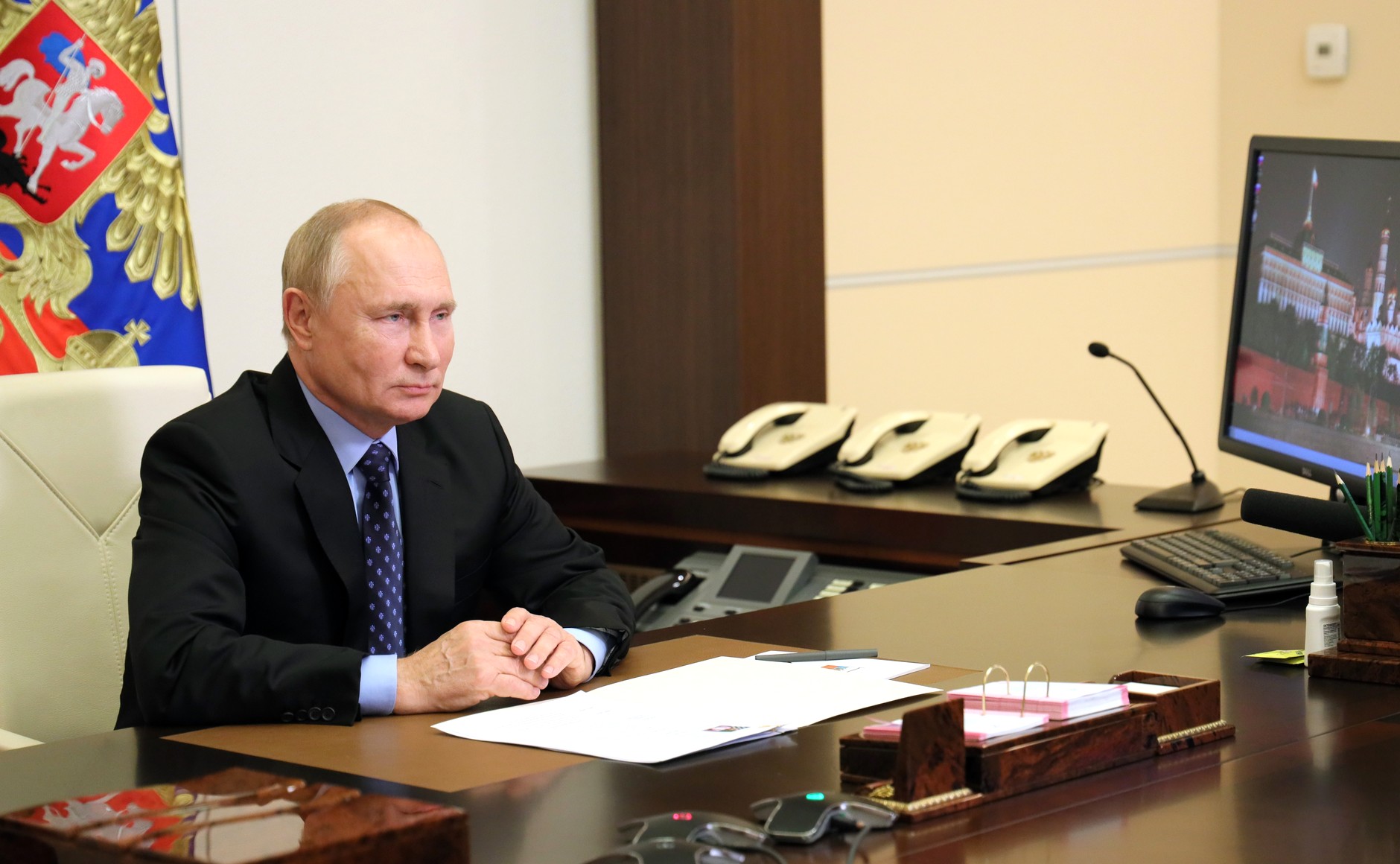 Vladimir Putin: Ms Lvova-Belova, you also have broad experience of large-scale public work and, of course, the family upbringing of your own children. Naturally, the position of a commissioner on children’s rights provides its holder with an opportunity to use all their knowledge, skills and experience to achieve serious, meaningful results for a large number of families and children. As I understand it, you are ready for this work. Maria Lvova-Belova: Mr President, I appreciate your trust. It is truly a great honour for me. I have been involved in protecting children’s rights for 15 years now, which has given me a lot of experience, and it is a personal story for me as well. I understand there will be areas that are new to me, and I will need to get familiar with them, but I am convinced that my track record of working on the ground with socially vulnerable groups, large families and orphans and, of course, my experience in working at the Federation Council under the leadership of Valentina Matviyenko will help me succeed. Plus, I have a good working relationship with Anna Kuznetsova. I think it is crucial to preserve the best practices that have been developed during this time and keep moving forward. It is also important to focus on protecting children’s rights to family, education and health, and to create an equal playing field for all children regardless of their social status, place of residence or health, and to support large families. So, Mr President, if you allow me, if you trust me with it, I will, of course, take up this job with great pleasure. I cannot help but share my personal story with you. When I was 15, I was at a hospital with my younger brother. It was the first time I had seen an abandoned baby, it was in the ward next to ours. It was so little, so defenceless lying there on this bare plastic cover. Back then, as I stood next to this box, I vowed that when I grew up, I would do everything I could to make sure that every child in Russia has proper care, support and the attention of the adults. And I believe that this is the mission of the Commissioner for Children’s Rights. 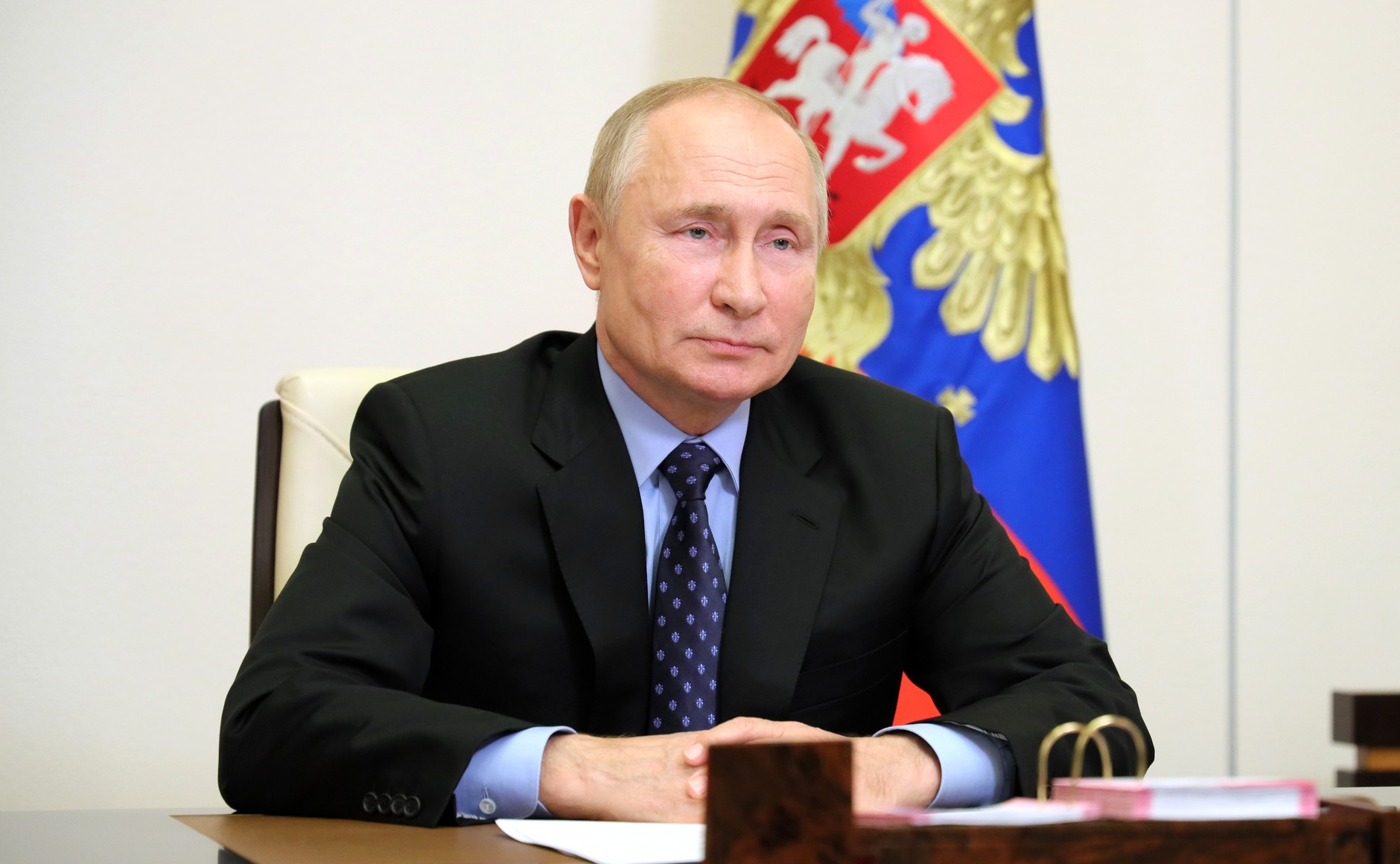 Vladimir Putin: There is much to do here, and this is a noble cause, so I wish you every success from the bottom of my heart. Maria Lvova-Belova: Thank you, Mr President. I would like to ask for a meeting with you two months from now. I would like to delve into this work now, and in two months I will be able to discuss my vision and my goals for the near future in more detail. Vladimir Putin: All right, this is what we will do. Good luck. Maria Lvova-Belova: Thank you very much. The source of information - http://en.kremlin.ru/events/president/news/67015 Maria Lvova-Belova appointed Commissioner for Children’s Rights Vladimir Putin signed the Executive Order On the Presidential Commissioner for Children’s Rights. October 27, 2021 - 18:15 The President has resolved to appoint Maria Lvova-Belova Presidential Commissioner for Children’s Rights for a five-year term. The source of information - http://en.kremlin.ru/events/president/news/67014 Meeting on developing Yamal Peninsula resource potential Vladimir Putin held a meeting, via videoconference, on developing the resource potential of the Yamal Peninsula. October 27, 2021 - 18:40 - Novo-Ogaryovo, Moscow Region Taking part in the meeting were Deputy Prime Minister Alexander Novak, Presidential Aide Maxim Oreshkin, Chairman of the Gazprom Board Alexei Miller, and Chairman of the NOVATEK Board Leonid Mikhelson. 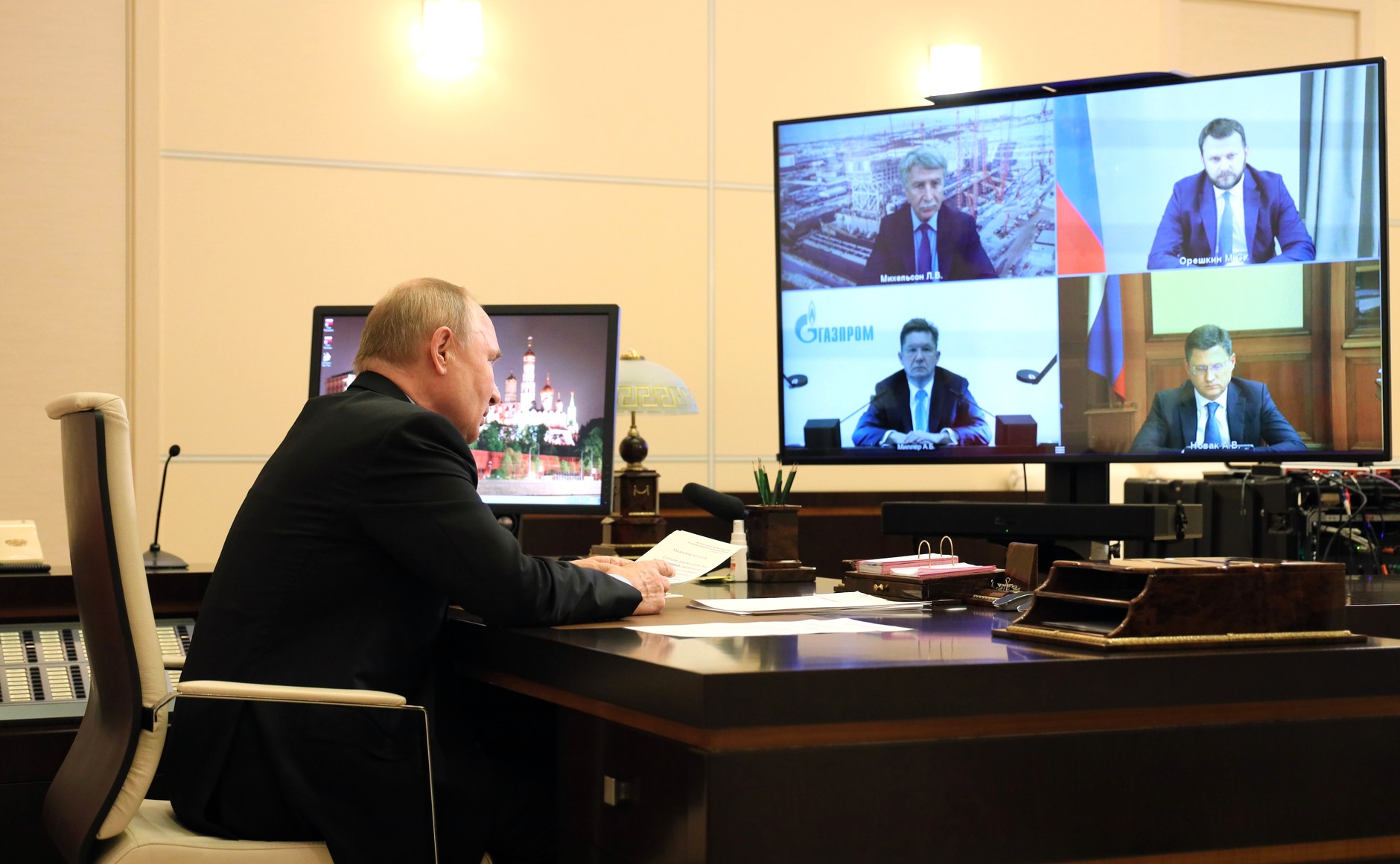 President of Russia Vladimir Putin: Good afternoon, colleagues. Today, we will review a number of advanced projects for the development of the Russian fuel-and-energy sector and the gas segment. We regularly hold these discussions and this is very important, especially against the backdrop of the current developments in the world energy market. As you know, the situation remains very unstable. Primarily, I am referring to the European natural gas market where prices on so-called spot, short-term contracts exceed a thousand dollars per thousand cubic metres, while the gas reserves in European underground storage are significantly below average for the past five years. We have discussed the reasons for this situation, and I have spoken about it too. It is due to a reduction in Europe’s own gas production, and cuts in LNG supplies to European markets, primarily from the United States. They have removed a substantial amount of gas from European markets. Incidentally, Gazprom made up for this and even supplied more gas. It is important to maintain sustainable, reliable energy cooperation. Gazprom is carrying out its long-term agreements with the European countries in full. Mr Miller, when do you plan to complete filling up the Russian underground gas storage facilities? Gazprom CEO Alexei Miller: Mr President, we plan to finish pumping gas into the underground storage facilities by November 1. The target is 72.6 billion cubic metres of gas. However, given that you have made a decision on days off, during which there will definitely be a decrease in consumption on the domestic market, we believe that it is advisable to continue to pump this weekend. This will allow us to reliably increase gas distribution to our consumers in the winter. Our pumping this year was carried out in a very intensive manner. The previous winter was cold and the spring was also fairly cool for a long time, and Gazprom set an all-time high in the volume of natural gas extracted from its underground storage facilities: we took out 10 billion cubic metres more, 60 billion cubic metres, in all. So, we pumped gas into our underground storage facilities this summer, and then in September and October in a very intensive manner. But Europe also set a record in withdrawing gas from its underground storage facilities at 66 billion cubic metres of gas. Unlike us today, Mr President, as you noted, they are significantly behind the level they have had over the past five years. Vladimir Putin: When do you plan to finish pumping to our underground storage facilities? Alexei Miller: Mr President, on November 8. We will achieve the target indicator of 72.6 billion cubic metres by November 1, and will fully complete the pumping on November 8. 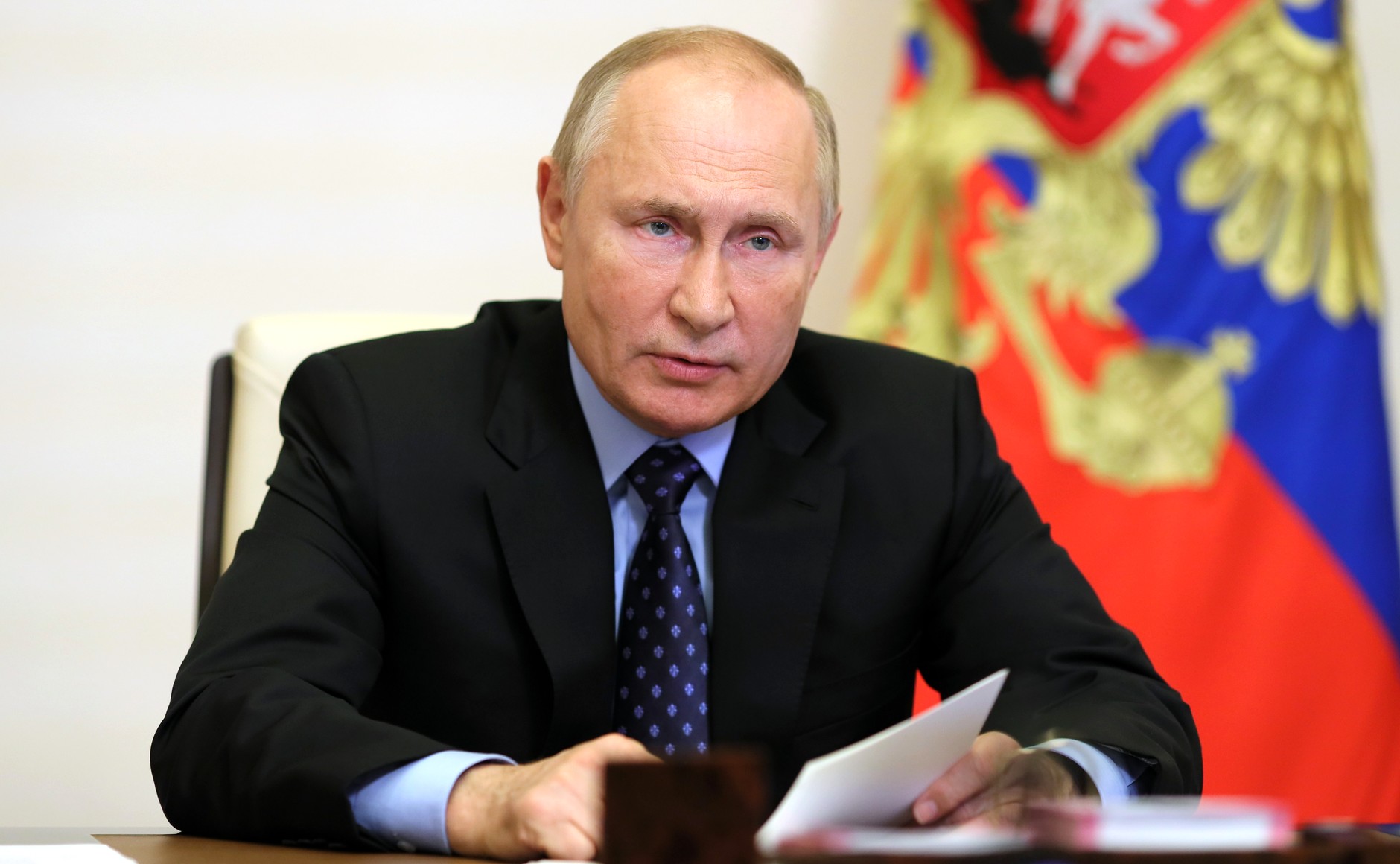 Vladimir Putin: To my knowledge, Gazprom also owns underground gas storage facilities in Europe. Alexei Miller: Yes, Mr President, we have underground storage facilities in Europe, including Austria and Germany. Vladimir Putin: What is the state of pumping into these UGS facilities? Alexei Miller: At present, the volume of gas in these underground storage facilities is insignificant, literally very, very low, a little under 190,000 cubic metres of gas. Vladimir Putin: Mr Miller, all right, after you complete the pumping of gas into Russia’s underground storage facilities by or on November 8, I would like you to start consistent and planned work on increasing the amount of gas in your underground depots in Europe – in Austria and Germany. As we both understand, this will make it possible to fulfil our contractual commitments in a reliable, stable and consistent manner and to supply our European partners with gas in the autumn and winter. In addition, this will create a favourable situation, at any rate, a better situation in the European energy market in general. Alexei Miller: Mr President, this is what we will do. As soon as we complete pumping gas into the underground storage tanks in the Russian Federation, we will start pumping Gazprom gas into the underground storage facilities in Europe. There is no doubt that, as you said, this will make gas supplies more reliable and stable in the autumn and winter.  Vladimir Putin: Fine, do this, and keep me informed on your progress. The main goal for us is to fully supply gas at stable prices to our domestic customers – to individuals, the housing and utilities sector, industry and other sectors. These supplies must be planned for the long-term perspective, with due account of our ambitious plans to provide the regions with gas – this is also important, this is also one of our priorities. To ensure stable gas supplies both inside the country and to our foreign partners, the Russian fuel-and-energy complex is carrying out long-term development plans, putting into operation new fields and creating gas provinces, and we are doing all this in a timely manner. As I said in the beginning, today we will review these projects, including those on further developing the resources on the Yamal Peninsula. Importantly, the Yamal gas production centre is playing a key role in developing Russia’s gas industry in the 21st century. Gas reserves, Gazprom’s gas reserves alone exceed 20 trillion cubic metres. The total gas reserves in the Yamalo-Nenets Autonomous Area are over 50 trillion cubic metres. Large-scale projects are being successfully implemented on the Yamal Peninsula; the largest field, Bovanenkovskoye, is being developed. Gas will be produced here for many decades, for 100 years, perhaps even longer. Unique technical solutions are being tested in the harsh Arctic conditions – unique for Russia and the international gas industry alike. The efficiency of the technologies has been proven by the commissioning of new wells and the Bovanenkovo-Ukhta-2 gas pipeline. In addition, with the participation of our foreign partners, projects for LNG production have been launched in Yamal. The Yamal LNG plant with a capacity of 19 million tonnes per year is operational; the Arctic LNG-2, which will annually produce almost 20 million tonnes of LNG, is under construction. The Arctic port of Sabetta has been built from scratch to service these centres. These and other projects to develop the Russian Arctic will make it possible to meet demand on the domestic and international markets for the long run, and will make a large contribution to ensuring Eurasian energy security. Here I want to emphasise one very important thing. Prices on global energy markets are high, and it is necessary to take advantage of this fact as much as possible not only for expanding the industry, but also for developing the production regions and creating new jobs and high-tech companies. So, along with investment in developing the fields, it is necessary to concentrate on building centres for deep processing of raw materials in the Yamalo-Nenets Autonomous Area. It is important to invest in infrastructure, including transport, including such large and significant projects as the Northern Latitudinal Railway, railway accesses to the port of Sabetta, and further development of the Northern Sea Route. I am now addressing not only the management of Gazprom and NOVATEK who are present here, but other production companies as well: you must get more involved in this work and invest in infrastructure in the common interests of developing Yamal. To reiterate, this will create the foundation for the confident, high-quality, and long-term development of this strategically important region of Russia. Let us begin our discussion. Mr Novak, you have the floor. The source of information - http://en.kremlin.ru/events/president/news/67016 Greetings to participants in Force for Good awards ceremony Vladimir Putin sent greetings to participants in the Force for Good annual awards ceremony. October 27, 2021 - 19:00 “Your project, created and implemented by the Our Future Fund, resolves important and pressing problems. It supports promising initiatives in the field of social entrepreneurship, and recognises those who help solve serious problems of public concern. Thanks to the energy and commitment of these people, various regions are successfully implementing programmes to improve the environment and tourist infrastructure, and are creating modern jobs for people with disabilities, while villages and small towns are building new production facilities. I am convinced that your event will draw wide public interest and promote the noble ideas of social entrepreneurship.” The source of information - http://en.kremlin.ru/events/president/news/67018 Greetings on opening of Eighth Congress of National Medical Chamber Medical Community Union Vladimir Putin sent greetings to participants in the Eighth Congress of the National Medical Chamber Medical Community Union. October 28, 2021 - 10:30 The message reads, in part: “The National Medical Chamber is rightfully regarded as one of the largest and most influential public organisations in this country. It brings together heads of specialised ministries and agencies, scientists and practicing doctors from many Russian regions. These people have good knowledge of topical problems facing the national healthcare system, and they help resolve these problems in their everyday work. Your priority tasks include the elaboration of departmental standards and their implementation, regulation of ethical aspects in medicine, protection of the interests of medical personnel and efforts to improve the professional training system. I would like to specially note the National Medical Chamber’s substantial contribution to the COVID-19 response effort. We are proud of the finetuned system of public health agencies, the selfless work of doctors, nurses and orderlies. And, of course, we are proud of the fact that Russia has developed the world’s first vaccine with proven anti-COVID efficiency. Today, the matter of actively raising public awareness of the need for vaccination is coming to the fore. I am confident that you will focus on this highly important subject in cooperation with volunteer organisations.” The source of information - http://en.kremlin.ru/events/president/news/67026 Greetings on 15th anniversary of Socialist Political Party A Just Russia – Patriots – For Truth Vladimir Putin congratulated members of the Socialist Political Party A Just Russia – Patriots – For Truth on its 15th anniversary. October 28, 2021 - 11:00 The message reads, in part: “Rallying supporters around the values of social justice and patriotism, your party plays a prominent role in the political and public life of our country. Over the past years, it has strengthened its human resources potential, amassed sound experience of participation in election campaigns and gained considerable support from the public, including during this year’s September elections. Based on this strong support, the party is represented at the federal level as well as at regional and municipal government bodies. Importantly, your legislative initiatives are invariably directed at protecting people’s social and labour rights, promoting family values and educating the younger generations. And, of course, your absolute priorities include preserving the moral foundations of society and the age-old historical, cultural and spiritual traditions of our multi-ethnic nation. I would like to stress in particular that the party adheres to a constructive position in the matter of consolidating the social and patriotic forces around large-scale national development objectives.” The source of information - http://en.kremlin.ru/events/president/news/67025 Russia-ASEAN Summit Vladimir Putin took part in the Russia-ASEAN summit via videoconference. October 28, 2021 - 11:30 - Novo-Ogaryovo, Moscow Region The meeting was timed to coincide with the 30th anniversary of relations between Russia and the Association of Southeast Asian Nations, which is marked this year. The leaders summed up the results of long-term cooperation, considered ways to expand political, economic and humanitarian interaction, and exchanged views on the situation in the Asia-Pacific region. Taking part in the summit were the Sultan and Head of State of Brunei Darussalam, the incumbent Chair of ASEAN Hassanal Bolkiah; Prime Minister of the Kingdom of Cambodia Hun Sen; President of the Republic of Indonesia Joko Widodo; Prime Minister of Lao People's Democratic Republic Phankham Viphavanh; Prime Minister of Malaysia Ismail Sabri Yaakob; President of the Republic of the Philippines Rodrigo Duterte; Prime Minister of the Republic of Singapore Lee Hsien Loong; Prime Minister of the Kingdom of Thailand Prayut Chan-o-cha; Prime Minister of the Socialist Republic of Vietnam Pham Minh Chinh; and Secretary General of the Association of Southeast Asian Nations (ASEAN) Lim Jock Hoi. 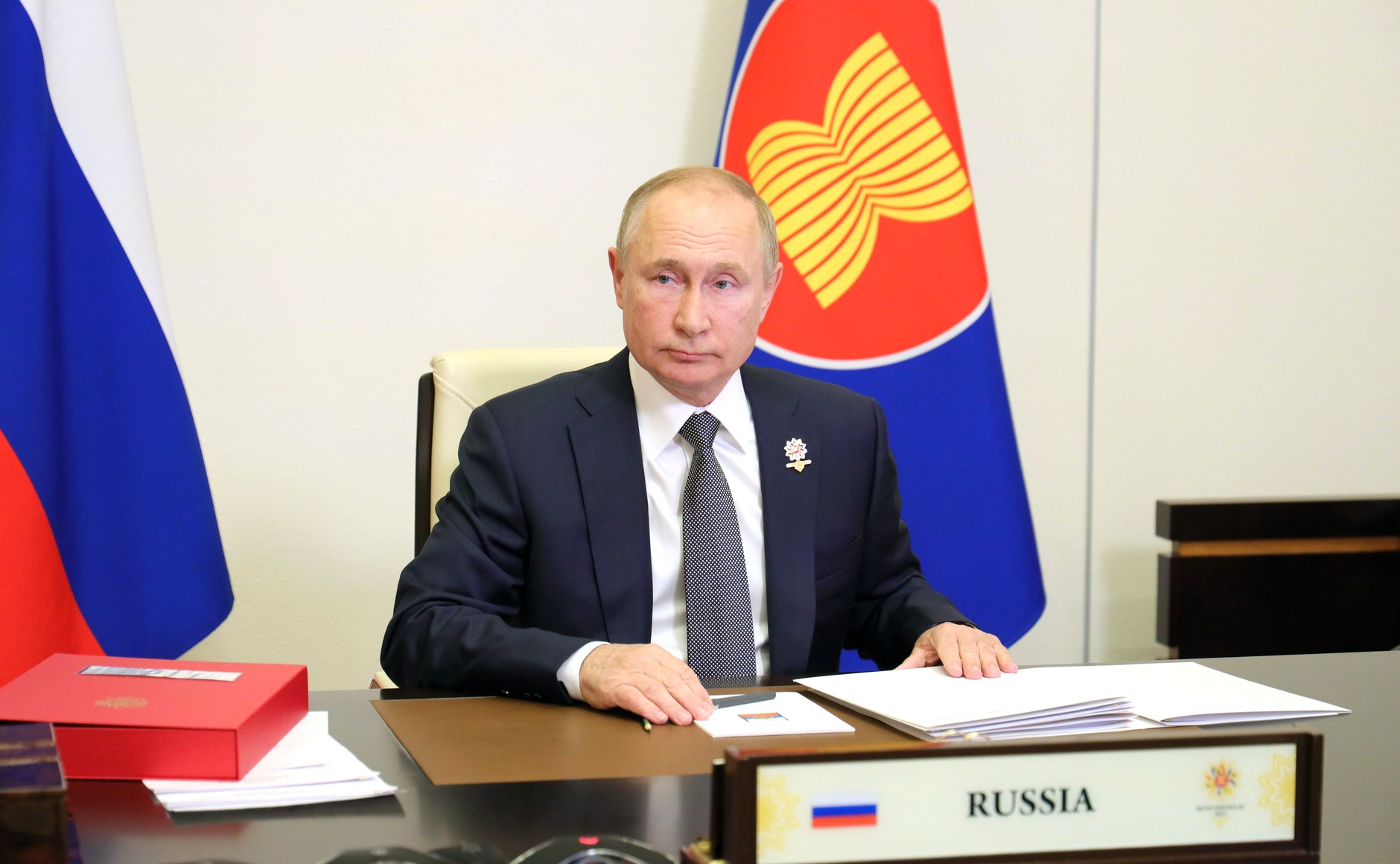 President of Russia Vladimir Putin: Your Majesty, colleagues, First of all, I would like to greet His Majesty the Sultan of Brunei Darussalam, who is chairing the Russia – ASEAN Summit. My greetings to all our ASEAN friends. Strengthening ties with ASEAN and its member states has always been and remains one of Russia's foreign policy priorities. This year we are celebrating the 30th anniversary of official relations between our country and ASEAN. These relations, as recorded in the Joint Statement adopted at the Russia-ASEAN Summit in Singapore in 2018, are truly strategic in nature. 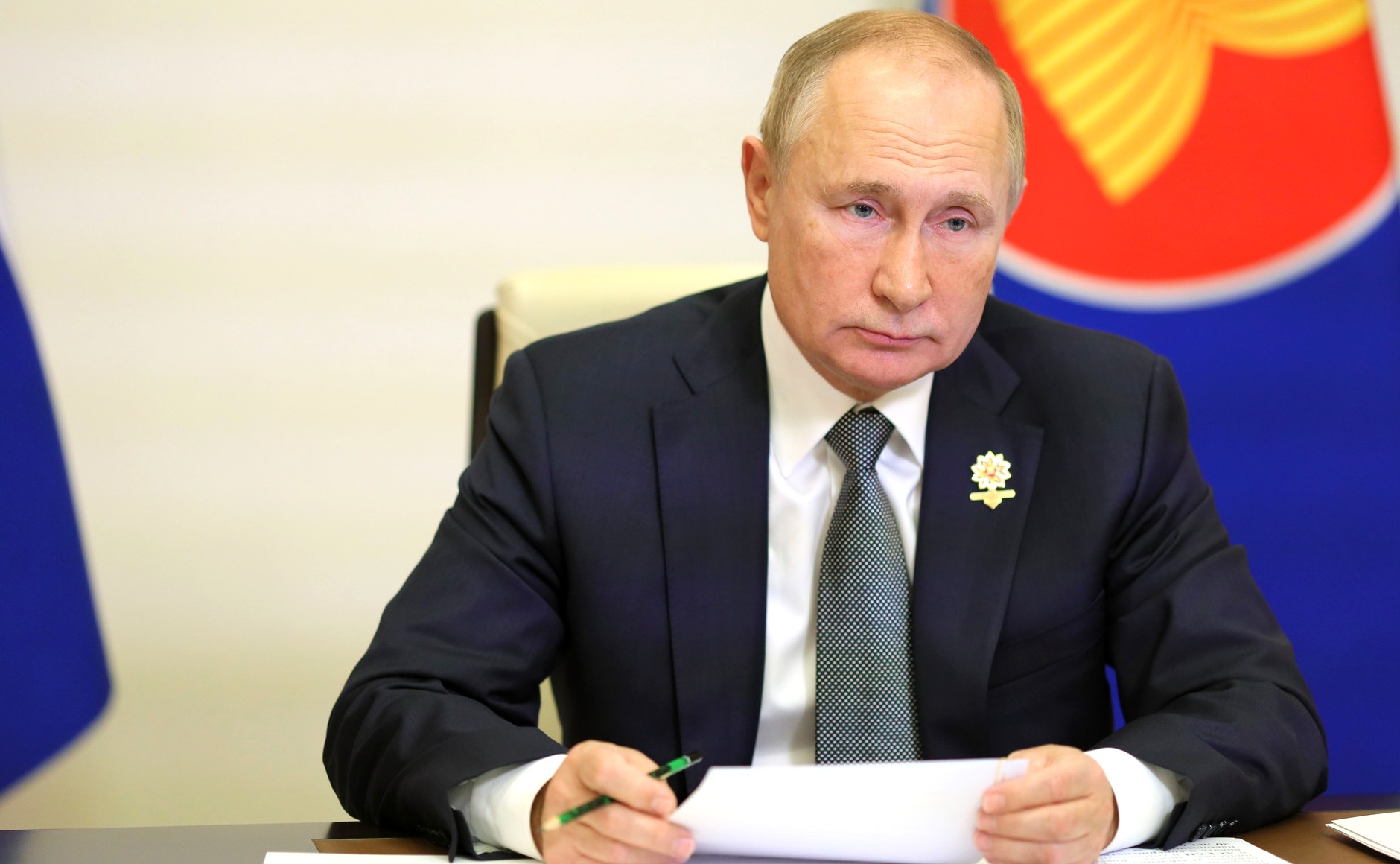 This is confirmed by the accumulated experience of practical cooperation and a solid package of agreements between us that cover the political, economic, social, humanitarian and other spheres. It is important that not only governments, but also businesses, the public and academia are involved in the interaction between Russia and ASEAN. I would like to point out that the positions of Russia and the ASEAN states on key global and regional matters are similar in many respects. Most importantly, we all support the expansion of equal and mutually beneficial cooperation in the vast Asia-Pacific space. 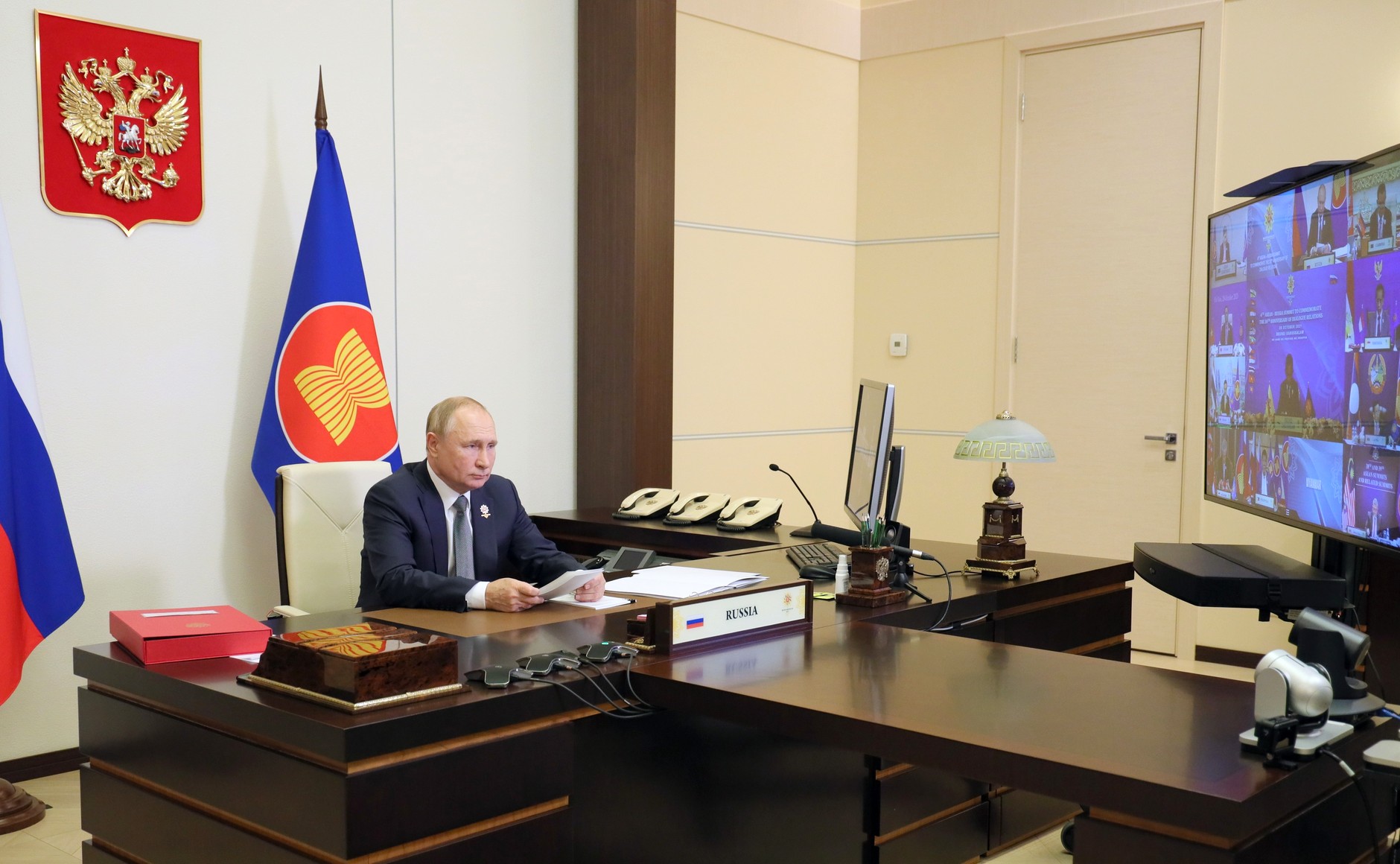 We now have real opportunities to intensify cooperation between Russia and ASEAN, including with regard to strengthening stability and security, post-pandemic economic recovery, stimulating trade, and expanding humanitarian contacts. I am sure that today's summit will be held in just such an atmosphere. I wish all of us productive work. Thank you for your attention. The source of information - http://en.kremlin.ru/events/president/news/67019
__________________
Where should they dig the Very Deep Pit? Piglet said that the best place would be somewhere where a Heffalump was, just before he fell into it, only about a foot farther on. (c) Alan Alexander Miln |
|
|
#17 |
|
Senior Member
|
Greetings on opening of 14th Eurasian Economic Forum in Verona
Vladimir Putin sent his greetings to the participants and guests of the 14th Eurasian Economic Forum in Verona, Italy. October 28, 2021 - 12:00 The message reads, in part: “The Forum has earned recognition as a respected venue for expert discussions on the current state and future development of international trade and investment cooperation, as well as vital political, social and demographic processes in Greater Eurasia. The Forum’s agenda always includes current issues, the solution of which largely determines the future of Eurasian states and the world as a whole. They include energy security, digital transition, sustainable development, climate change and overcoming global economic imbalances, which have greatly increased as a result of the pandemic. I would like to emphasise that Russia is open to constructive work with foreign partners in all these areas. I have no doubt that the Forum will be held, as is the tradition, in a businesslike and creative atmosphere and will provide an impetus to strengthening multifaceted cooperation among Eurasian states in the spirit of genuine partnership, equality and mutual respect.” The source of information - http://en.kremlin.ru/events/president/news/67024 Meeting with permanent members of Security Council The President had a meeting on current issues with the permanent members of the Security Council, via videoconference. October 28, 2021 - 14:00 - Novo-Ogaryovo, Moscow Region  Taking part in the meeting were Prime Minister Mikhail Mishustin, Federation Council Speaker Valentina Matviyenko, State Duma Speaker Vyacheslav Volodin, Deputy Chairman of the Security Council Dmitry Medvedev, Chief of Staff of the Presidential Executive Office Anton Vaino, Security Council Secretary Nikolai Patrushev, Foreign Minister Sergei Lavrov, Defence Minister Sergei Shoigu, Director of the Federal Security Service Alexander Bortnikov, Director of the Foreign Intelligence Service Sergei Naryshkin and Special Presidential Representative for Environmental Protection, Ecology and Transport Sergei Ivanov. 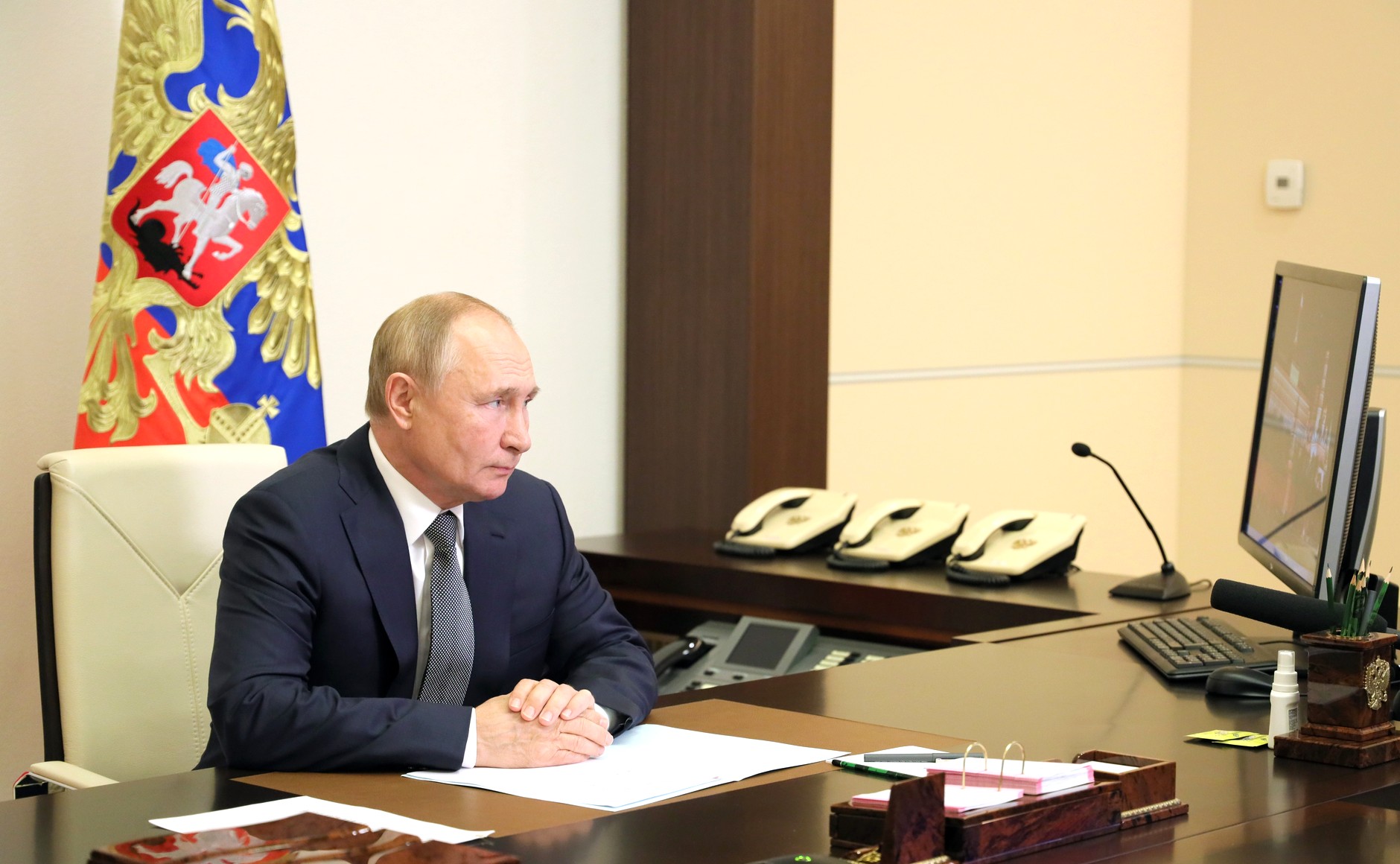 President of Russia Vladimir Putin: Colleagues, good afternoon. As you know, an international conference on environmental protection and land use is to be held in the UK in early November. The agenda is quite broad. We will also discuss topics related to this agenda today. Special Presidential Representative for Environmental Protection Sergei Ivanov will make a report. Let us get started. Please, Mr Ivanov, you have the floor. The source of information - http://en.kremlin.ru/events/president/news/67023 Report on law enforcement monitoring in Russia in 2020 A report on the results of the monitoring of law enforcement in Russia in 2020 has been prepared and published in accordance with Presidential Executive Order No. 657 of May 20, 2011 On Monitoring Law Enforcement in the Russian Federation. October 28, 2021 - 17:00 The monitoring of law enforcement in the Russian Federation was conducted under a plan endorsed by Government Resolution No. 1951-r of August 31, 2019, and the methodology approved by Government Directive No. 694 of August 19, 2011. The report contains information on monitoring the implementation of the rulings of the Constitutional Court of the Russian Federation, fulfilment of the rulings by the European Court of Human Rights, and law enforcement in various areas of Russian law. Based on this analysis of law enforcement, the report presents proposals on the need to adopt statutory instruments in the Russian Federation and on measures to make law enforcement more efficient. The source of information - http://en.kremlin.ru/events/president/news/67027 Greetings on the 20th anniversary of the Union of Russian Museums Vladimir Putin sent his greetings to the Union of Russian Museums on the 20th anniversary of its creation. October 29, 2021 - 10:00 The message reads, in part: “All these years, you have been carrying out a noble mission of bringing together the museum community in our vast country to address major tasks that are highly relevant in the modern world. Museums safekeep invaluable evidence of important historical events, hold memories of our outstanding compatriots, preserve genuine art masterpieces, and play a tremendous role in popularising the national cultural and spiritual heritage, exposing people – especially young people – to beauty, fostering their artistic taste. In this regard, I would like to note the creative, painstaking, and truly dedicated efforts of many generations of museum workers. Thanks to their high professionalism and responsible attitude, Russia has unique museum collections, which we rightfully consider our national pride and heritage of all humanity.” The source of information - http://en.kremlin.ru/events/president/news/67032 Congratulations to winners of women’s group all-around competition at 2021 Rhythmic Gymnastics World Championships in Kitakyushu The President congratulated Anastasia Bliznyuk, Polina Orlova, Alisa Tishchenko, Maria Tolkacheva and Angelina Shkatova on winning the women’s group all-around competition at the 2021 Rhythmic Gymnastics World Championships in Kitakyushu, Japan. October 29, 2021 - 14:30 The message reads, in part: “You had no equals in group all-around exercises as you enchanted the audience with exquisite mastery, grace and charm, and rightfully became world champions following a face-off with strong rivals.” The source of information - http://en.kremlin.ru/events/president/news/67037 Meeting with President of Finland Sauli Niinistö The President of Russia received in the Kremlin President of the Republic of Finland Sauli Niinistö, who is in Russia on a working visit. October 29, 2021 - 17:20 - The Kremlin, Moscow President of Russia Vladimir Putin: Mr President, I want to cordially welcome you to Moscow. Thank you for accepting our invitation to visit Russia, despite the difficult epidemiological situation. Finland is our reliable partner and a close neighbour. Next year, we will mark 30 years of the fundamental treaty that serves as the basis of current relations between Russia and Finland. Of course, we will discuss the entire scope of our relations today. But first, I would like to note that, despite the challenges posed by the pandemic, this year we can overcome, to a large extent, the economic damage that our relations have sustained due to COVID-19. Russia-Finland trade has grown by 21 percent year on year. Both exports and imports have seen balanced growth. We continue to work on large projects. The intergovernmental commission has resumed its work. Unfortunately, the tourist industry has suffered heavy losses. However, we have already resumed flights between Russia and Finland. I hope that by the end of the year, we will be able to resume railway service as well. We continue our contacts in humanitarian sphere – unfortunately, still online. Nevertheless, this work continues. I am pleased to note that Russia remains among the top trade and economic partners of Finland. Mr President, welcome.  President of Finland Sauli Niinistö (retranslated): Thank you. I am very pleased to have this opportunity after a two-year break. We have all gone through something completely unexpected and I hope we are moving into the future. Indeed, we are neighbours and have much in common but we have been kept apart by the pandemic. It is a good thing we have held this session of the intergovernmental commission and had a constructive discussion. Indeed, it is a pity our citizens travel less across the border. I hope we will return to the previous scale as soon as possible. It is good we have an opportunity to discuss various issues. We have a wide range of items on the global agenda, including climate change. It is very useful for us, residents of small nations, to hear what people from larger countries think. I would like to thank you once again for this opportunity. 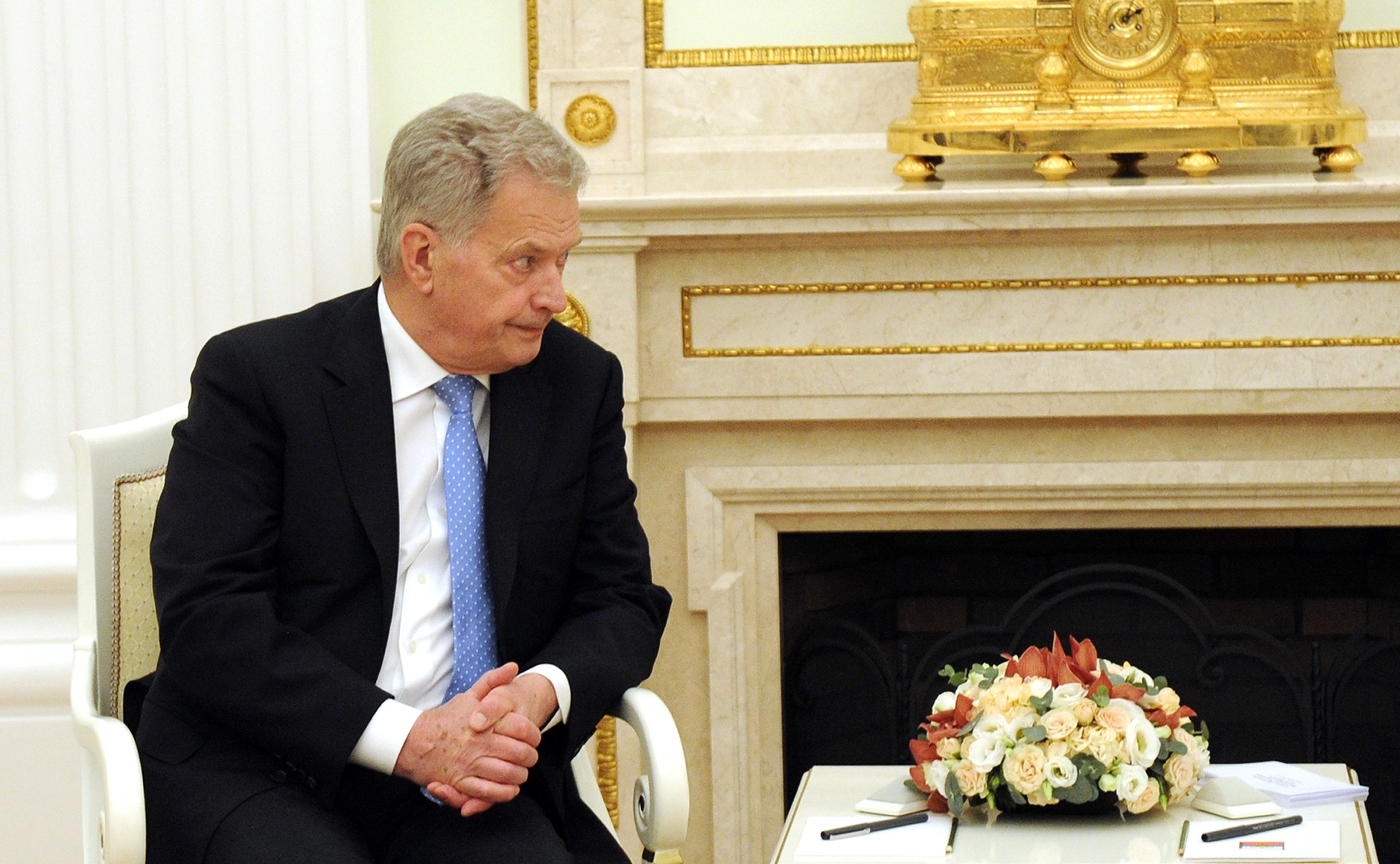 Vladimir Putin: Thank you for mentioning the issues linked with environmental protection. The fact that we are neighbours matters a great deal because the implementation of the requirements that the international community is drafting now to counter climate change will largely depend on our concerted efforts. As Russian experts are telling me, our positions are very close to the views of our Finnish colleagues. In this context, I would also like to say that Russia will hold the Presidency in the Arctic Council through to 2023. I know that Finland has always paid much attention to cooperation in the Arctic. I hope that today we will be able to talk about this as well. 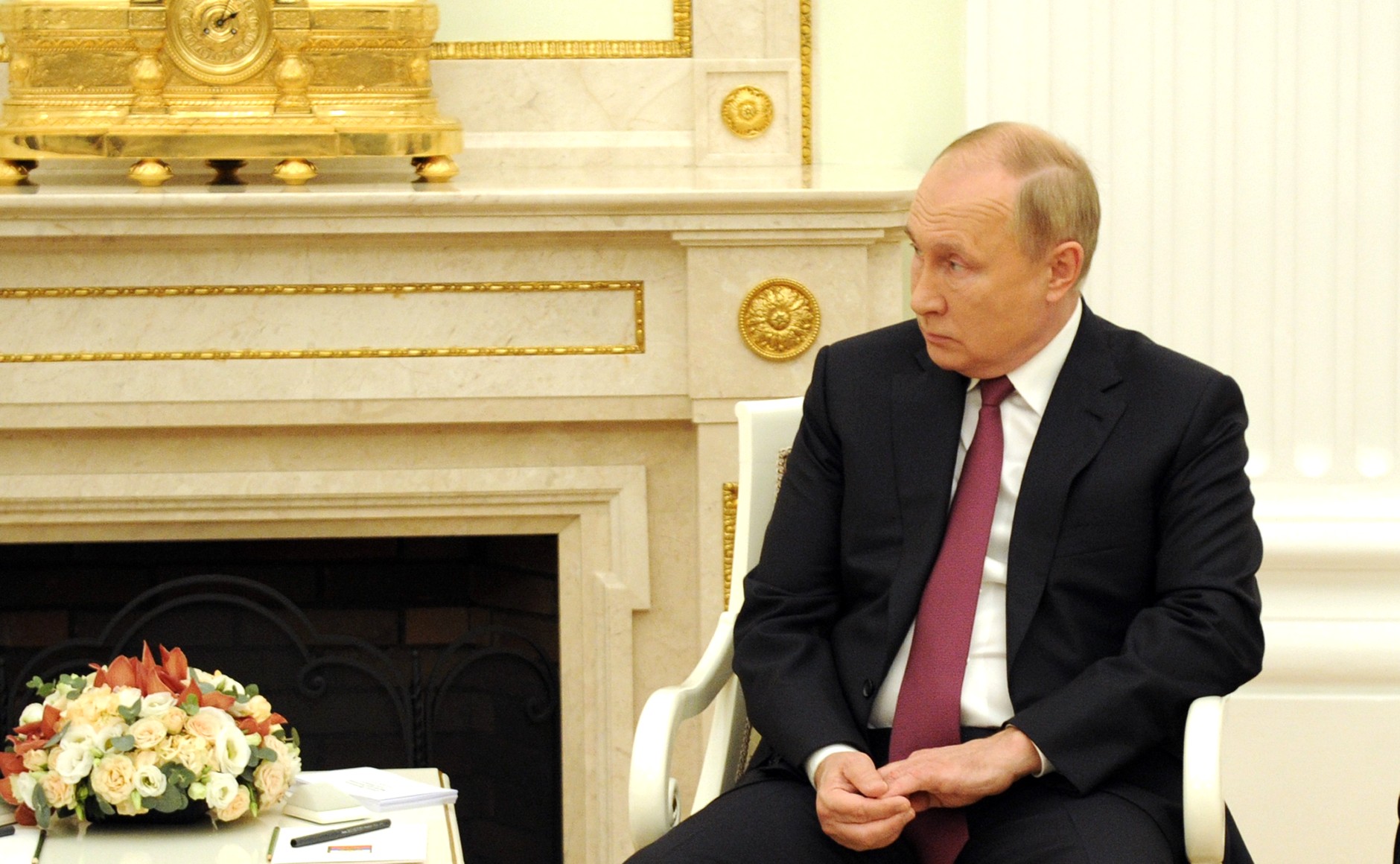 Sauli Niinistö: We have one more issue in common. In the context of climate change, forests are becoming an increasingly important resource and today we have an opportunity to discuss forest-related problems. I wish you every success during your Presidency in the Arctic Council. Vladimir Putin: Thank you very much. The source of information - http://en.kremlin.ru/events/president/news/67033 Instructions for Healthcare Minister Mikhail Murashko October 29, 2021 - 19:25 Vladimir Putin instructed Healthcare Minister Mikhail Murashko to visit, together with his deputies, the regions where the situation with the coronavirus infection is the most critical in order to provide local healthcare workers guidance and other assistance they need. The source of information - http://en.kremlin.ru/events/president/news/67035
__________________
Where should they dig the Very Deep Pit? Piglet said that the best place would be somewhere where a Heffalump was, just before he fell into it, only about a foot farther on. (c) Alan Alexander Miln |
|
|
#18 |
|
Banned
Join Date: Sep 2010
Posts: 996
|
The President addressed, via videoconference, the first working session of the heads of delegations of the G20 member countries, invited states and international organisations.
The*theme of*the*session is The*Global Economy and*Global Health. The*agenda includes global economic recovery, ensuring digital transformation and*the*implementation of*the*Sustainable Development Goals, overcoming the*consequences of*the*coronavirus pandemic, strengthening healthcare systems, and*implementing universal vaccination. The*Summit is being held on*October*30–31 under Italy’s chairmanship. * * * Speech at*the*first session of*the*G20 Summit President of*Russia Vladimir Putin: Chairman Draghi, colleagues, I*shall speak on*the*topics that were put forward by*Italy for*today’s discussion: the*global economy and*global health. I*should say straight away that this theme largely concerns what we are all working on, and*Russia’s position, as*I*saw from the*previous speeches, mainly overlaps with what our colleagues spoke about here. Last year the*economic authorities of*the*G20 member countries and*many other countries decided to*significantly increase their budget deficits against the*backdrop of*the*deep crisis caused by*the*pandemic, which allowed for*launching global economic recovery. However, such extraordinary measure accompanied by*securities buyouts by*central banks should be limited in*time. In*fact, this is what was said here earlier. In Russia, for example, the budget deficit rose to four percent of the GDP in 2020 against the background of large-scale support measures for the population, small and medium-sized businesses, and the healthcare system. This allowed us to achieve a recovery of the labour market. In the current year we have normalised our macroeconomic policy to the point that the budget will be in the surplus. We have not only achieved that, but we have also tightened our monetary policy. Overall, the*situation in*G20 countries is slightly different. While in*2017–2019, the*average budget deficit was around 3.8 percent of*GDP, it grew to*11.2 percent in*2020 amidst the*pandemic. This year, although slightly lower, the*budget deficit remains rather high at*8.7 percent. I*would like to*note that the*United States will account for*40 percent of*the*G20 countries’ budget deficits combined in*2020–2021. I*am saying this because we all understand very well that the*state of*the*US economy is what determines the*state of*the*global economy. Excessive stimulation has resulted in*the*general lack of*stability, growing prices of*financial assets and*goods in*certain markets such as*energy, food, etc. Once again, significant budget deficits in*the*developed economies are the*main cause of*these developments. With these deficits persisting, there is a*risk of*high global inflation in*the*medium term, which not only increases the*risk of*lower business activity but reinforces and*exacerbates the*inequality that was also mentioned today. That is why it is important to*prevent aggravating stagflation and*instead do what can be done to*normalise the*budgetary and*monetary policies, improve the*quality of*demand management in*the*economy and*update economic priorities*– and*primarily prioritise overcoming inequality and*boosting public welfare. We have always welcomed and*continue to*welcome the*efforts of*the*G20 to*support the*poorest countries. I*agree with those who have already said that sustainable growth of*the*global economy is, of*course, impossible unless this issue is addressed. By*the*way, the*developed countries, including many of*the*G20 states, have recently been affected by*inequality and*poverty. It is important to*deal with this problem by*means of*economic and*budgetary policy. I*would like to*point out that, despite the*decisions of*the*G20, vaccines and*other vital resources are still not available to*all the*countries in*need. Among other reasons, this is due to*competition, which is dishonest, in*my*opinion, as*well as*protectionism and*the*fact that certain countries, including G20 countries, are not ready for*mutual recognition of*the*vaccines and*vaccination certificates. There is an*urgent need for*the*World Health Organisation to*expedite the*pre-qualification of*new vaccines and*drugs*– that is, to*evaluate their quality, safety and*effectiveness. I*am convinced that the*sooner this is accomplished, the*easier it will be to*resume global business activity, including tourism, which has been hit the*hardest. I*propose instructing healthcare ministries of*the*G20 to*address the*matter of*mutual recognition of*national vaccination certificates within the*shortest possible term. Experts believe that COVID-19 will continue to*be a*threat for*a*long time. I*think WHO representatives will speak about this today as*well. Considering that the*virus continues mutating, we should develop mechanisms to*boost vaccines promptly and*consistently. I*would like to*remind you that Russia was the*first country in*the*world to*register a*COVID-19 vaccine, Sputnik V. Currently, this vaccine is approved in*70 countries with a*total population of*over 4 billion people, and*it has demonstrated high safety and*effectiveness. In*addition to*the*double-dose Sputnik V, we also developed and*widely use a*single-dose vaccine, Sputnik Light, which can boost the*effect of*other vaccines. We are working with our colleagues from Europe on*having this vaccine available there and*offering it to*our partners. Large-scale efforts to*counter the*coronavirus require higher-quality and*more affordable medical care in*all countries and, therefore, wider international cooperation in*healthcare. In*view of*the*current situation, the*role of*the*World Health Organisation is becoming increasingly important and*its activities, of*course, deserve our full support. It is unacceptable to*make attempts to*impinge upon the*prerogatives of*the*WHO, which operates under the*aegis of*the*United Nations. In*this context, I*fully agree with the*President of*France, Mr Macron. In*addition to*the*pandemic, other crises on*the*regional energy markets have shown once again how essential it is for*the*modern world to*have a*stable and*reliable energy sector. I*would like to*say a*few words about this. Supplying affordable energy to*consumers is extremely important and*our colleagues have just talked about it. I*would like to*add that the*stability of*global energy markets directly depends on*the*responsible conduct of*all market participants, both energy producers and*energy consumers, with due account for*each party’s long-term interests. Russia supports having an*in-depth pragmatic discussion of*this matter, based on*purely economic considerations. More here... http://thesaker.is/first-session-of-...esident-putin/ |
|
|
#19 |
|
Senior Member
|
Meeting with Head of the Federal Service for Financial Monitoring Yury Chikhanchin
Vladimir Putin had a working meeting with Head of the Federal Service for Financial Monitoring Yury Chikhanchin. October 29, 2021 - 19:30 - The Kremlin, Moscow 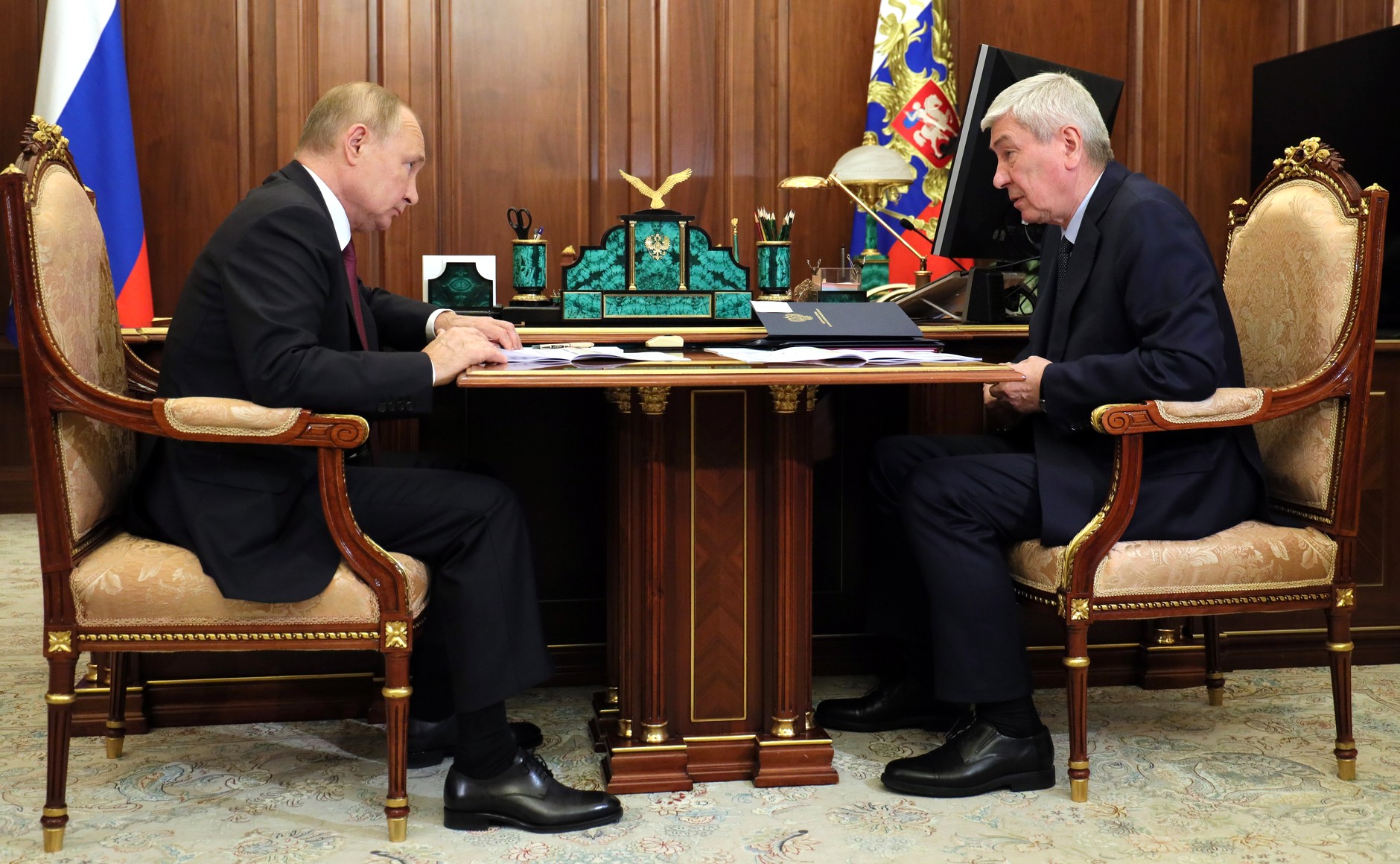 President of Russia Vladimir Putin: Mr Chikhanchin, it will soon be 20 years since the mechanism for countering money laundering was established. During these years the Service has become a full-fledged financial intelligence service in the direct sense of this word. First, I would like to congratulate you and your staff on this occasion. Head of the Federal Service for Financial Monitoring Yury Chikhanchin: Thank you very much. Vladimir Putin: And, of course, we will talk about current issues. Yury Chikhanchin: Indeed, Mr President, in the past 20 years the Russian anti-money laundering service has trodden a thorny path. In 2000, the Russian Federation was blacklisted by the Financial Action Task Force on Money Laundering (FATF). This is an intergovernmental organisation that counters money laundering and financing of terrorism. A law, the third version, was signed in 2001. Thank you very much for your support on this. In 2002 we were removed from the FATF blacklist and became a full-fledged FATF member in 2003. In 2019, Russia delivered a report at a FATF plenary session, and Russia’s national system against money laundering was recognised as one of the best. I would like to say that we have accomplished a lot during this period. More than 150 laws have been adopted. They tailored Russian law to international standards and requirements, settled the nature of relations between the parties to the anti-laundering system, and determined what transactions and financial instruments the state needed to control today. Naturally, financial institutions, including banks, leasing and insurance companies, and specifically attorneys and notaries etc., are one of the main groups we work with in the anti-laundering system. And our task, in cooperation with the Central Bank, oversight and law enforcement bodies, the General Prosecutor’s Office, the Interior Ministry and the Federal Security Service (FSB) was to ensure, first, that all parties to the anti-laundering system follow the laws in a consistent manner; second, to improve their law abidance, and third, to create mechanisms to prevent “dirty” money from entering the financial system, primarily, banking. I should say that we have managed to resolve many issues. I can say that since the law was passed, the number of financial sectors has increased by 4.5 times while the number of participants grew tenfold: today there are 85,000 entities who submit reports to Rosfinmonitoring, operating in the legal framework. Most importantly, compliance with the law of all financial institutions has doubled. However, there were those who were not getting along with law. Their number has decreased threefold – some of them had their licences revoked, others just closed down whereas some became law-abiding businesses. Countering the shadow sector was one of our priorities. We have indeed managed to lower the shadow sector volumes in cooperation with the Central Bank, the Federal Security Service, the Interior Ministry, the Prosecutor’s Office, the Taxation Service and the Customs Service. The volume of suspicious transactions went down by five times while the number of shadow scheme participants decreased fourfold. Work is underway in the regions. These slides show how the regions are being cleaned up and transgress from the red zone into the yellow and green ones. We undertook a lot of efforts to lower the attractiveness of shadow services. Initially the shadow services – cashing out, withdrawal of monetary funds – cost 1–1.5 percent whereas today the market price rose to 20 percent, with 40 percent on crypto currencies, so these are the costs. Earlier the shadow venues amounted to about 100–150 billion whereas now they went down to 2–2.5. The lifespan of shadow venues was 5–6 years, while today such venues exist one year at the most and then close down. I have already mentioned that increasing the level of law abidance was one of the priorities. In this regard, to relieve pressure on business, we switched over to a distance monitoring mechanism, that is we have practically given up on-site inspections, cutting them by 15 times. Meanwhile, distance monitoring went up by 27 times. It means we are working online through the system of client accounts. Here are some other areas we have managed to improve. I reported to you earlier that there were high risks at the Russian Post and mobile operators as there were a great number of shadow schemes there. As of today, there are only some isolated cases there. But I have to say that money laundering schemes have become more sophisticated. Previously only one bank was operating on the venue, nowadays a group of banks and several other companies of a different kind can be operating such as leasing companies, microfinance organisations and notaries. It means the criminals are trying to spread their activities across several sectors to hinder their identification. However, we have also learned to look for them with the help of digital technology together with the Central Bank, the FSB and the Interior Ministry. Vladimir Putin: Is the work within the EAEU becoming easier, too? Yury Chikhanchin: Yes, we are also active here: we have a council of heads of financial intelligence where all these matters are being discussed. Regarding the shadow sector, we think that the key thing we managed to achieve is basically pushing them out of the Russian territory. Most shadow venues have just moved to other jurisdictions, that is, they operate outside of Russia. Large-scale work has been done on searching and returning stolen money, primarily legalised funds. I must say that the arrests of such funds increased threefold whereas the amount of funds returned grew by six times. But crucially, the number of economic entities involved in the shadow economy has decreased: the number of rogue companies by around 4.5 times, withdrawal of money abroad by six times, while the “transit” with the use of an intermediary company by five times. I would like to mention another area: the criminal world began looking for new sectors to be used – those that are improperly regulated or, let’s say, lack an appropriate monitoring system. In this respect we have problems with notaries, labour disputes commission and courts. We have more or less rectified, together with the Supreme Court, the Prosecutor General’s Office, the FSB and the Interior Ministry, the situation with courts, and the curve is coming down. However, work is ongoing with notaries and the labour disputes commission. Vladimir Putin: How is the commission involved in this? Yury Chikhanchin: What is the labour disputes commissions’ guideline? The staff of an organisation applies to them with a claim that some organisation allegedly owes them money. Prior to that, money is pumped up into that organisation. Following the decision of the labour disputes commission, the bank writes off the funds in favour of concrete individuals. The organisation is a fake one but it has to be proved, it requires a resolution. We are looking for a way out of this situation together with law enforcement and legislative bodies. Meanwhile, this method is being actively employed. Which areas need improving in this respect? First, we lack limitations on using cash. The problem is that practically nobody checks the legality of the money. The second problem is insufficient regulation of the area of cryptocurrency circulation. As of today, there are over 10,000 kinds of cryptocurrencies in the world, including those used by Russians. And there is a really big problem – that of confiscating assets that are located abroad. We have learnt to track those assets but, unfortunately, we are unable to retrieve them. Large efforts have been made with the Presidential Executive Office and anti-corruption commissions of the ministries and agencies, first of all in the law enforcement agencies, the FSB, the Interior Ministry and the Prosecutor General’s Office so as to cut the involvement of officials in corruption activities. I can say that the number of suspicious transactions involving such persons decreased by three times while the use of rogue companies by such persons – by six times. Improvement has been achieved in such areas as the housing and utilities, fuel and energy sector, agro-industrial complex, where risks have decreased by 1.5–2 times. I would like to say a few words about countering the laundering of drug proceeds. A great deal of work has been done here under the State Anti-Drug Committee jointly with the Interior Ministry, the FSB, the Prosecutor’s Office and the Customs Service. We can say that we have squeezed most transactions involving drug payment clearance out of the banking sector. They are gone, but they moved to new technologies when rapid payment systems and cryptocurrencies appeared. The number of cases investigated by us and law enforcement agencies is growing significantly. But we continue working and we managed to achieve some progress. For example, we managed to decriminalise, to a certain degree, the operations of online stores that have been distributing drugs in the country, primarily in the Moscow Region as well as in the Sverdlovsk, Voronezh and Tula regions. The number of criminal cases grows in the areas where we are trying to find the financial component related to drugs. Crucially, we stopped the activities of 10 transnational criminal groups who were importing and selling drugs here in our country or in European countries. Those are big international investigations. Vladimir Putin: You spoke about housing and utilities, the fuel and energy sector, and agriculture. What about the fishing industry? Yury Chikhanchin: There is still a problem in the fishing and timber industries. This problem persists but we are working on it. I should note that we have many potential solutions that can help us remove this problem from the system. As I reported to you earlier, we have been dealing with this in the Far East. Vladimir Putin: You mean getting rid of criminals? 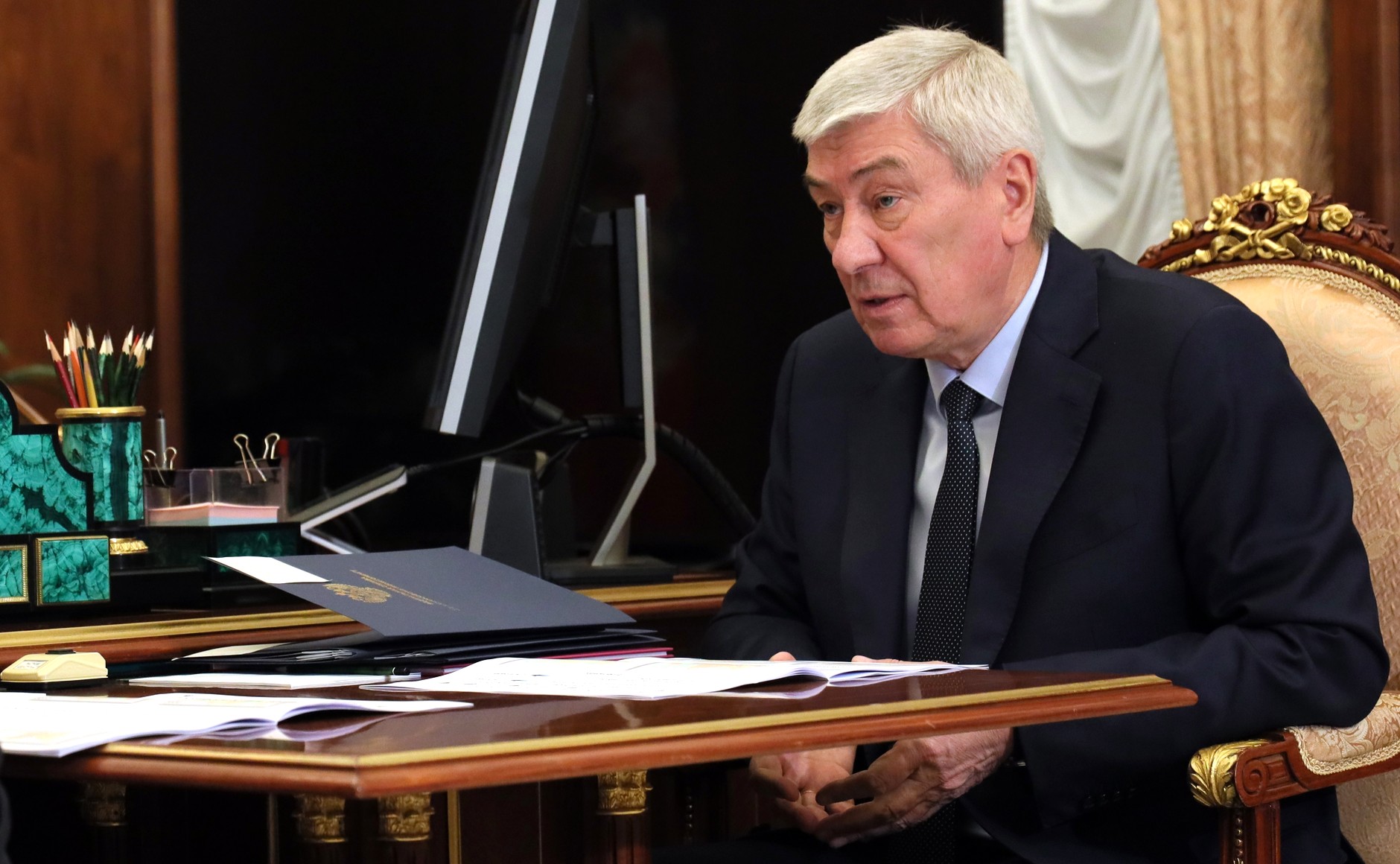 Yury Chikhanchin: Yes, this problem exists and it is our biggest problem. I highlighted it here. Next time I will make sure to report to you on the outcome. Vladimir Putin: Timber and fishing industries. Yury Chikhanchin: Yes, these are currently the two most crime-ridden industries. Specialised working groups and competent agencies are working on this problem to fix the situation. Vladimir Putin: Good. Yury Chikhanchin: I would like to say a few words about monitoring and overseeing budget spending. As for the instruction you gave us jointly with the Defence Ministry and the Central Bank, we tested the monitoring system on a state defence order. And now, in cooperation with the Central Bank, the Federal Security Service, the Interior Ministry and the Prosecutor’s Office, we have launched a monitoring mechanism for contracts, customers and vendors, and for evaluating the regions. This project has made contract performance more transparent as dishonest vendors have been removed. Most importantly, we have ensured that budget funds are spent as planned. If you are interested in statistics, I can say that questionable cashing-out operations involving budget funds have reduced sixfold, and transactions involving shell companies – also sixfold. But most importantly, economic entities dealing with public funds have become four times more law-abiding compared to economic entities operating in other spheres. So, we are trying to keep the public sector in check. Vladimir Putin: What about siphoning money off abroad, does this continue? Yury Chikhanchin: The siphoning off continues but on a much smaller scale. We have taken the budget money under strict control. The treasury and the banking sector are working hard. We are working with Promsvyazbank – here we are trying to… I would like to say a few words about national projects. Last time, I reported to you that a number of national projects, including Education, Safe and Quality Roads, and Healthcare, had been facing serious risks. Now the situation has started to change. You can see the downward trend on the chart. Speaking about Healthcare in particular, I can add that shell companies and the scope of their involvement has reduced four times, with a definite effect on the medication and medical services pricing policy. A positive process is underway in some regions as they move from the grey to the green area, which you can see on the chart. According to the data from the Office of the Presidential Plenipotentiary Envoy to the Northwestern Federal District, thanks to the system for combatting money laundering, around 30 socially significant facilities have been put into operation recently, including schools, kindergartens and other facilities. We are actively working with Promsvyazbank and helping it to set up a risk assessment centre similar to ours. That will allow them to better understand the financial stability of their customers and, most importantly, make sure that financial transactions are transparent. What problems do we currently have? There are two major problems: one is determining the procedure for price structure disclosure because sometimes, contracts are identical but prices differ, and we are working on this. The other problem is the limit of profitability for specific contracts. We are working with government agencies and Promsvyazbank to find a solution because price is the key. Vladimir Putin: This is an extremely important question. Yury Chikhanchin: We are constantly looking for a solution. Vladimir Putin: We will have meetings in Sochi and will again discuss this particular issue – the cost of medical goods. Yury Chikhanchin: It is a problem. There are identical contracts but differing prices. I would like to say a few words about action against financing terrorism. We are taking very serious measures together with the National Anti-Terrorism Committee, the Federal Security Service, the Interior Ministry and the Investigative Committee. It should be noted that recently, we have stopped the financial activity of over 15,000 terrorists, including 850 foreign nationals. Currently, almost 100 percent of assets of all individuals with connections to terrorism get blocked. The number of criminal cases involving both terrorism and financial charges is growing. We continue to take measures to ban foreign nationals directly involved in terrorism, from entering our country. We are taking measures to prevent the funding the proliferation of weapons of mass destruction. Our database currently includes over 250 foreign individuals and legal entities that are involved in trading such weapons. Vladimir Putin: As concerns terrorist organisations, I know that video games can be used for transferring money. 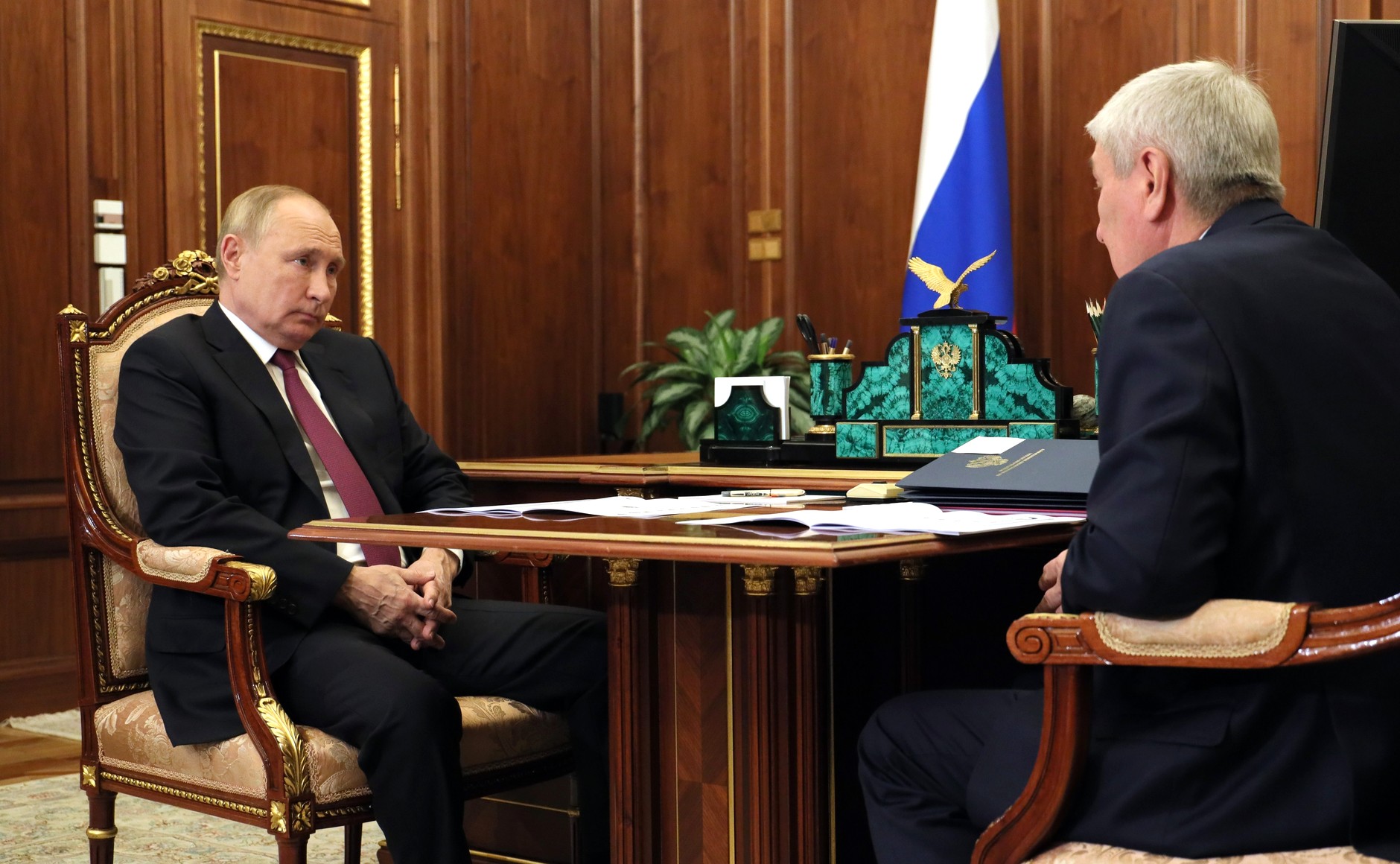 Yury Chikhanchin: Yes, there is a method using in-game currencies. Let’s say there is an online shooter and players pay for weapons or for a player’s assets, etc., when in fact, the money goes to terrorists. It is a serious problem and right now, we are working with the Federal Security Service to model these terrorists’ behaviour with respect to the money they receive. There are two problems here: one is terrorists acting alone, who are very important to us because they are using new funding systems (self-funding or else), and the other is youth movements because they have new tools and ways to conduct new kinds of financial transactions. The international community is, of course, paying utmost attention to Afghanistan. We are also monitoring the developments there along with our colleagues from the Federal Security Service and financial intelligence. We are monitoring migration traffic to expose funds made from drug trading and organised criminal activity. I should thank you for your support for establishing an inter-agency commission to counter terrorism funding. This commission has the authority to freeze assets in an extra-judicial procedure. And in the past five years, we have frozen the assets of more than 2,000 people. Other CIS countries are taking similar measures. We continue to improve the operation of our risk assessment centre. You have visited the centre yourself. There are several divisions. One division focuses on developing a single methodology for assessing the risk of crime and, specifically, money laundering. By now, we have brought together almost 25 ministries and agencies to cooperate, and we are pooling resources – we have over 100 sources to investigate this type of activity. Most importantly, we have determined the zones of highest risk, which are the budget, drugs, credit and finance, and several others. For communication, we use ‘user accounts’ which helps us to quickly share information on risks and make decisions. I would like to tell you about cooperation between agencies. There is a good cooperation mechanism in the form of an inter-agency working group on preventing illegal financial transactions. The working group was established as per your instruction and it is headed by the Chief of Staff of the Presidential Executive Office. The working group comprises 15 ministries and agencies. Some 150 laws have been adopted thanks to its efforts, and not only to counter money laundering. The working group deals with many issues such as eliminating risks for high-risk sectors (for example, precious metals and stones, gambling), developing a common strategy for dealing with sham platforms, for controlling budget spending, etc. We are working on creating an international risk assessment centre. You supported this decision and the Government provided funds. Next year, we are finishing this project. As of today, we have developed common information resources for the CIS countries, communication channels are operating with specific countries. This is the general approach we are taking with this. I would like to say a few words about the International Financial Security Olympiad. Allow me to give you a brochure. This year, as you instructed, we organised the first International Financial Security Olympiad for school and university students. The participants included Russian school students from the eighth to tenth grades and university students from Russia, Belarus, Kazakhstan, Kyrgyzstan, Tajikistan, Turkmenistan and Uzbekistan. They competed in several areas of knowledge, including economy and finance, law, international law and cybersecurity. The Government set up an organising committee headed by Deputy Prime Minister Dmitry Chernyshenko. The organising committee included representatives of all relevant ministries and agencies. The competitions were created in cooperation with the Ministry of Science and Higher Education, the Ministry of Education, the Bank of Russia, our international training centre, the International Network Institute as well as several universities, including the Peoples’ Friendship University of Russia and National Research Nuclear University MEPhI. We also got our partners involved, including Sberbank, VTB, Rosselkhozbank, Promsvyazbank, Gazprombank, Rostec, Rosatom and Almaz-Antey. The Olympiad consisted of several stages. During the first stage, we held a nationwide lesson for school students, and almost 1.5 million took part with teachers giving them lessons, using a special teaching methodology, about financial security of an individual, of a state, of society, and about international financial. The second stage was about shortlisting: we received 31,000 applications for participation from school and university students representing seven countries, and we selected 500 individuals who then took part in a qualification round at Sirius. Here, I would like to thank you for supporting Sirius. Sirius not only provided space for this competition but was largely involved in organising it. Unfortunately, only 400 out of 500 participants were able to attend in person because of the pandemic. They represented eight countries, including one student from India, who won one of the prizes. I will quote some interesting statistics. Two hundred of the participants visited Sochi for the first time. For some of them, it was the first flight in their lives. For practically all school students, it was the first trip to a different city without their parents. Vladimir Putin: Did everything go well? No problems? Yury Chikhanchin: I would like to say a huge thank you to those who helped us, especially the Federal Service for the Oversight of Consumer Protection and Welfare, because the total number of people present was around 700, and we managed to keep everybody healthy. Only two schoolchildren got sick, both with mild symptoms. I would like to thank my colleagues from other agencies, the Interior Ministry, the National Guard, the Federal Security Service, the Administration of the Krasnodar Territory and the Sochi Mayor’s Office. The Olympiad programme also included panel discussions, workshops and meetings with representatives of government bodies, educational institutions and industrial partners. Rosfinmonitoring and our international training centre created games specifically for this event. A specialised UN committee, FATF (Financial Action Task Force) Executive Secretary and a specialised committee of the Council of Europe sent their greetings to the participants. All heads of financial intelligence agencies from the CIS attended. We held a meeting together. We also held a board meeting of the International Network Institute that comprises over 40 universities in Russia and abroad. The Olympiad received high praise and everybody supported Russia’s initiative to hold this competition on an annual basis. The programme also included cultural, sports events and concerts by the St Petersburg House of Music and the Astrakhan Philharmonic. It was a very eventful week for children. This is what we have done so far and what we plan to do. We are ready to continue as long as we have your support. Vladimir Putin: Thank you. The source of information - http://en.kremlin.ru/events/president/news/67034 Greetings on 30th anniversary of Constitutional Court Vladimir Putin congratulated the Constitutional Court judges on the court’s 30th anniversary. October 30, 2021 - 10:30 The message reads, in part: “On October 30, 1991, the constitutional judges held their first working meeting. This day is considered to be the date when the Constitutional Court of the Russian Federation was established. I congratulate you in the 30th anniversary of that great and truly historic event. Throughout its existence, the Constitutional Court has had a key role in ensuring the cohesion of the Russian legal system and has been a guardian of the fundamental constitutional values and the underlying ideas of peace, public accord and social justice. The Court has been working for the triumph of law. Today, we can confidently claim that the Constitutional Court focuses on the crucial issues of public, economic and social life in the country which concern the interests of the state and citizens’ rights and freedoms. Allow me to congratulate the Constitutional Court judges and executive office for their top professionalism, responsible attitude to work and loyalty to their duties.” The source of information - http://en.kremlin.ru/events/president/news/67041 First session of the G20 Summit The President addressed, via videoconference, the first working session of the heads of delegations of the G20 member countries, invited states and international organisations. October 30, 2021 - 14:10 - The Kremlin, Moscow The theme of the session is The Global Economy and Global Health. The agenda includes global economic recovery, ensuring digital transformation and the implementation of the Sustainable Development Goals, overcoming the consequences of the coronavirus pandemic, strengthening healthcare systems, and implementing universal vaccination. The Summit was held on October 30–31 under Italy’s chairmanship. 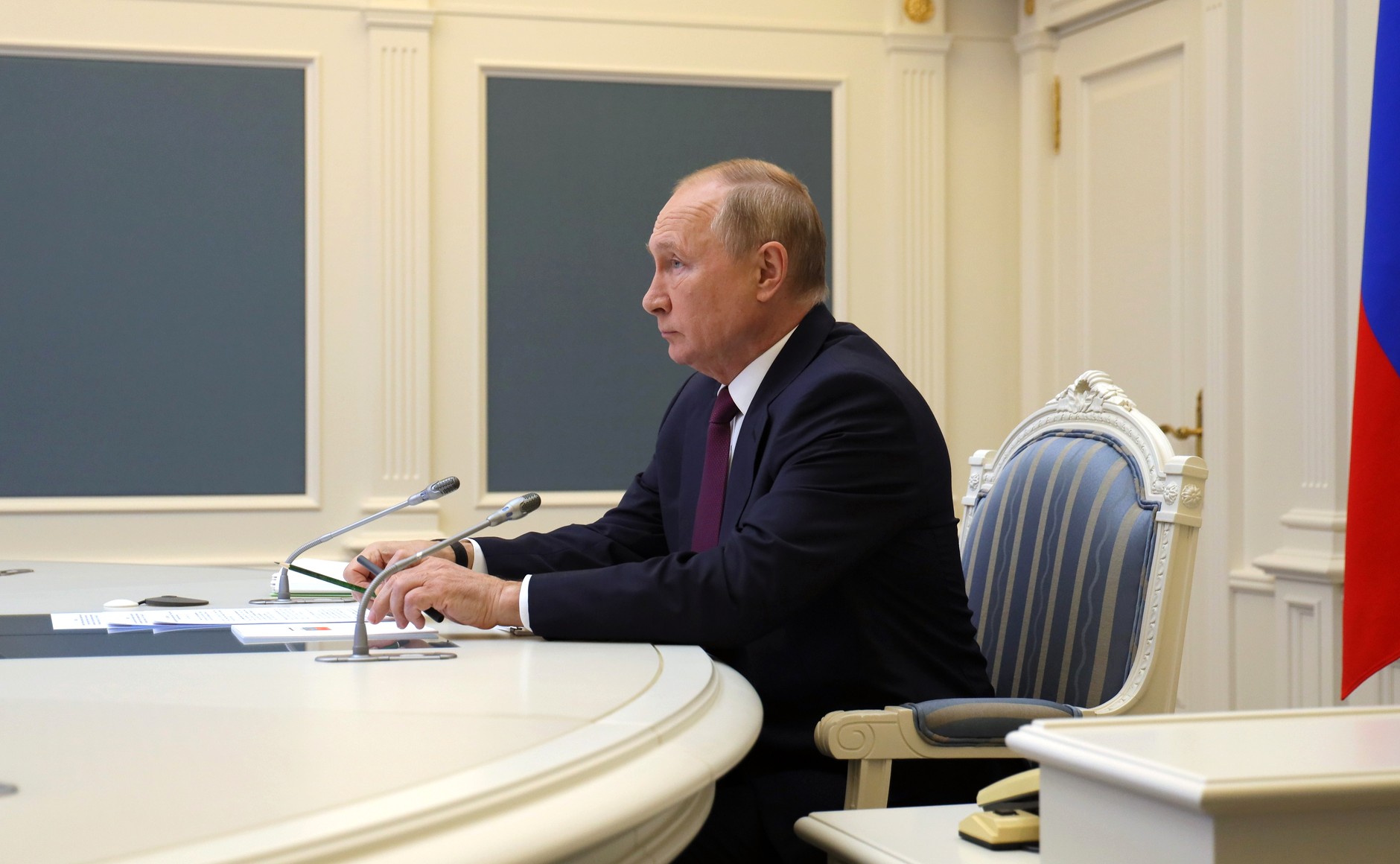 President of Russia Vladimir Putin: Chairman Draghi, colleagues, I shall speak on the topics that were put forward by Italy for today’s discussion: the global economy and global health. I should say straight away that this theme largely concerns what we are all working on, and Russia’s position, as I saw from the previous speeches, mainly overlaps with what our colleagues spoke about here. Last year the economic authorities of the G20 member countries and many other countries decided to significantly increase their budget deficits against the backdrop of the deep crisis caused by the pandemic, which allowed for launching global economic recovery. However, such extraordinary measure accompanied by securities buyouts by central banks should be limited in time. In fact, this is what was said here earlier. In Russia, for example, the budget deficit rose to four percent of the GDP in 2020 against the background of large-scale support measures for the population, small and medium-sized businesses, and the healthcare system. This allowed us to achieve a recovery of the labour market. In the current year we have normalised our macroeconomic policy to the point that the budget will be in the surplus. We have not only achieved that, but we have also tightened out monetary policy. Overall, the situation in G20 countries is slightly different. While in 2017–2019, the average budget deficit was around 3.8 percent of GDP, it grew to 11.2 percent in 2020 amidst the pandemic. This year, although slightly lower, the budget deficit remains rather high at 8.7 percent. I would like to note that the United States will account for 40 percent of the G20 countries’ budget deficits combined in 2020–2021. I am saying this because we all understand very well that the state of the US economy is what determines the state of the global economy. Excessive stimulation has resulted in the general lack of stability, growing prices of financial assets and goods in certain markets such as energy, food, etc. Once again, significant budget deficits in the developed economies are the main cause of these developments. With these deficits persisting, there is a risk of high global inflation in the medium term, which not only increases the risk of lower business activity but reinforces and exacerbates the inequality that was also mentioned today.  That is why it is important to prevent aggravating stagflation and instead do what can be done to normalise the budgetary and monetary policies, improve the quality of demand management in the economy and update economic priorities – and primarily prioritise overcoming inequality and boosting public welfare. We have always welcomed and continue to welcome the efforts of the G20 to support the poorest countries. I agree with those who have already said that sustainable growth of the global economy is, of course, impossible unless this issue is addressed. By the way, the developed countries, including many of the G20 states, have recently been affected by inequality and poverty. It is important to deal with this problem by means of economic and budgetary policy. I would like to point out that, despite the decisions of the G20, vaccines and other vital resources are still not available to all the countries in need. Among other reasons, this is due to competition, which is dishonest, in my opinion, as well as protectionism and the fact that certain countries, including G20 countries, are not ready for mutual recognition of the vaccines and vaccination certificates. There is an urgent need for the World Health Organisation to expedite the pre-qualification of new vaccines and drugs – that is, to evaluate their quality, safety and effectiveness. I am convinced that the sooner this is accomplished, the easier it will be to resume global business activity, including tourism, which has been hit the hardest. I propose instructing healthcare ministries of the G20 to address the matter of mutual recognition of national vaccination certificates within the shortest possible term. Experts believe that COVID-19 will continue to be a threat for a long time. I think WHO representatives will speak about this today as well. Considering that the virus continues mutating, we should develop mechanisms to boost vaccines promptly and consistently. I would like to remind you that Russia was the first country in the world to register a COVID-19 vaccine, Sputnik V. Currently, this vaccine is approved in 70 countries with a total population of over 4 billion people, and it has demonstrated high safety and effectiveness. In addition to the double-dose Sputnik V, we also developed and widely use a single-dose vaccine, Sputnik Light, which can boost the effect of other vaccines. We are working with our colleagues from Europe on having this vaccine available there and offering it to our partners. 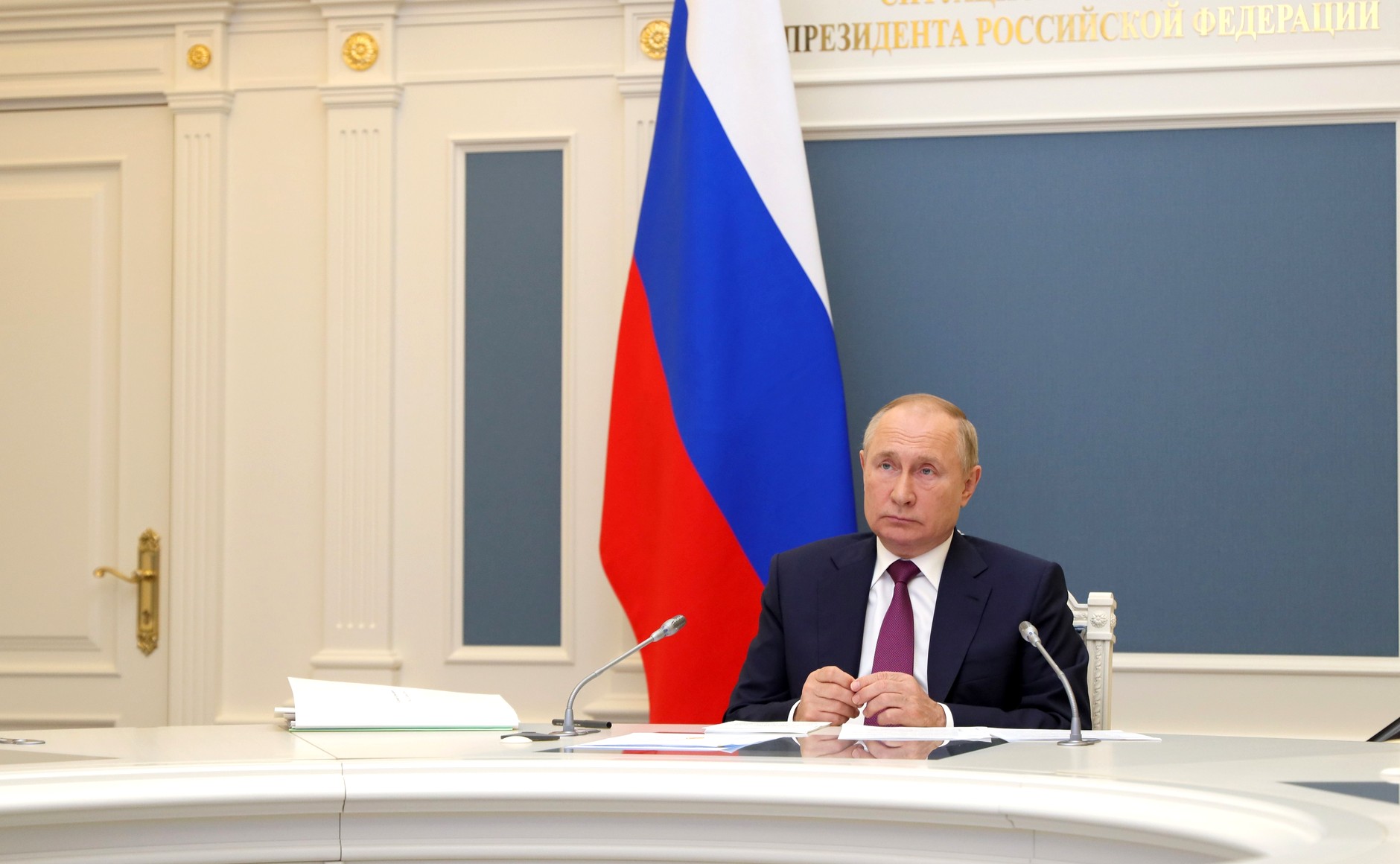 Large-scale efforts to counter the coronavirus require higher-quality and more affordable medical care in all countries and, therefore, wider international cooperation in healthcare. In view of the current situation, the role of the World Health Organisation is becoming increasingly important and its activities, of course, deserve our full support. It is unacceptable to make attempts to impinge upon the prerogatives of the WHO, which operates under the aegis of the United Nations. In this context, I fully agree with the President of France, Mr Macron. In addition to the pandemic, other crises on the regional energy markets have shown once again how essential it is for the modern world to have a stable and reliable energy sector. I would like to say a few words about this. Supplying affordable energy to consumers is extremely important and our colleagues have just talked about it. I would like to add that the stability of global energy markets directly depends on the responsible conduct of all market participants, both energy producers and energy consumers, with due account for each party’s long-term interests. Russia supports having an in-depth pragmatic discussion of this matter, based on purely economic considerations. Colleagues, Creating conditions for an equal and non-discriminatory cooperation for all nations is the main prerequisite for a steady and long-term recovery of the global economy, higher quality of life and better public welfare. As we understand, this is the key goal for the G20 as a forum of the world’s leading economies. Thank you very much. The source of information - http://en.kremlin.ru/events/president/news/67040 Greetings on Motor and Public Passenger Transport Worker Day Vladimir Putin wished all the best to current and former workers of motor and municipal passenger transport in Russia on their professional holiday. October 31, 2021 - 10:00 The message reads, in part: “Motor and municipal passenger transport is a significant component of the country’s transportation system. It plays an important role in strengthening interregional and international ties, in the effective development of industrial production, agriculture, and business, as well as directly affecting the quality of life of millions of Russians. Therefore, the state places special emphasis on upgrading this industry and improving its infrastructure. The Safe and High-Quality Roads national project includes the ongoing upgrade of our transport fleet, adding cutting-edge, environmentally friendly and easy-to-operate vehicles. Large-svale programmes are being successfully implemented to ensure the widespread introduction of digital technology, advanced logistics and management solutions, and to expand the scope of the services provided. It is gratifying that specialists with the highest qualifications have always worked and continue to work in the Russian motor transport sector. They are strong and dedicated professionals. I am confident that you will continue to respect your predecessors’ traditions and to live up to your professional responsibilities.” The source of information - http://en.kremlin.ru/events/president/news/67047 G20 Summit second session Vladimir Putin took part, via videoconference, in the second working session of the heads of delegations from G20 member countries, invited states and international organisations. October 31, 2021 - 16:00 - Novo-Ogaryovo, Moscow Region The participants in the second session, dedicated to Climate Change and the Environment, discussed, in particular, sustainable development and the transition to a low-carbon economy. Following the summit, the G20 Rome Leaders’ Declaration was adopted. The annual G20 Summit was held in Rome on October 30–31 under the auspices of Italy’s Presidency in in-person format with the opportunity to connect via videoconference. At the venue, the Russian Federation was represented by Foreign Minister Sergei Lavrov, Finance Minister Anton Siluanov and Representative of the Russian President in the G20 (Russia’s G20 Sherpa) Svetlana Lukash. The G20 Summit focused on three interconnected priorities proposed by the Italian Presidency: People, Planet, Prosperity. Participants in the top-level meeting paid special attention to the restoration of the global economy, overcoming the coronavirus pandemic, counteracting climate change and the implementation of the Sustainable Development Goals. They discussed the most pressing issues such as ensuring broad access to vaccination, stabilising the key energy, commodities and financial markets, and improving progress in lowering the anthropogenic load on the climate and ecosystems. Participants in the summit set specific goals on improving international cooperation in digital transformation, transiting to a low-carbon economy, and reducing the social, economic and technological divide. They also reviewed practical efforts to counteract unfavourable trends amid growing poverty, hunger and unemployment.  President of Russia Vladimir Putin: Mr President of the G20 Mario Draghi, Colleagues, Indeed, the matters related to combatting climate change that we are discussing today are of the utmost importance and concern each and every one of us. Russia, like other countries, is experiencing – actually experiencing – the negative bearing of global warming, and here is why: we are faced with desertification and soil erosion, and we are especially worried about the thawing of the permafrost, which accounts for a significant part of Russia’s territory. I would like to note that the average annual temperature in Russia is growing faster than around the globe, more than 2.5 times. It has increased by almost half a degree in the past 10 years. In the Arctic, as we all know, the warming is even faster. Naturally, our country is vigorously participating and taking the lead in international climate mitigation and stabilisation efforts. We faithfully comply with all our obligations under the UN Framework Convention on Climate Change and the Paris Agreement. We are consistently implementing a policy to reduce net greenhouse gas emissions and are taking steps to improve energy efficiency in our national economy, to modernise our power generation industry, and reduce associated gas discharge from oil production. The low-carbon power industry is growing at a rapid pace in Russia. The share of energy generated from practically carbon-free sources such as nuclear power plants, hydroelectric dams, wind and solar power plants exceeds 40 percent today, or 86 if we include natural gas, which is the lowest-carbon fuel among hydrocarbons. This is one of the best indicators in the world. According to international experts, Russia is among global decarbonisation leaders. In the past 20 years, Russia’s economy’s carbon intensity has been declining by an average of 2.7 percent annually, which is better than across the globe and even better than in the G7 countries. 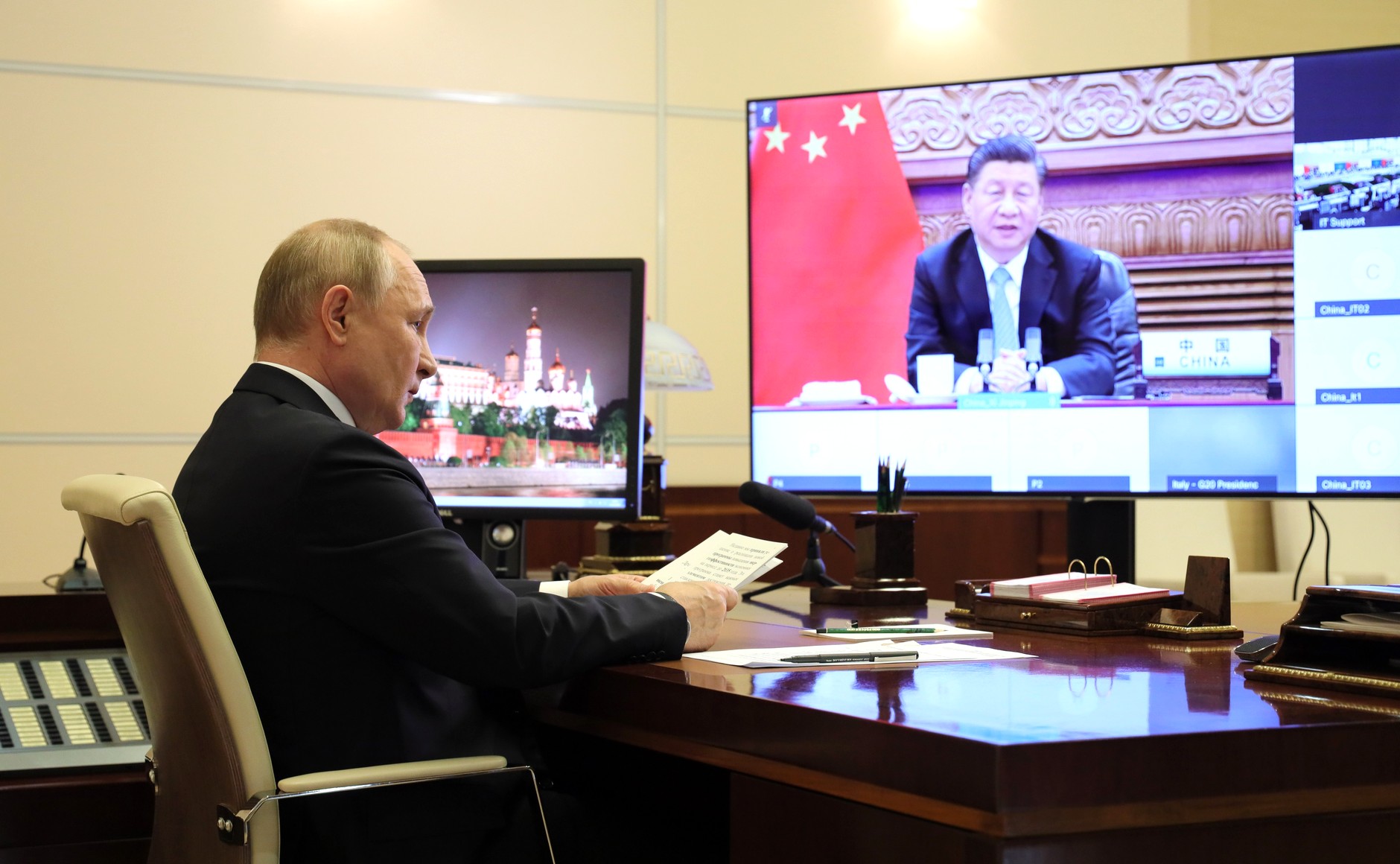 Recently, we decided to implement a new programme to improve energy efficiency for the period until 2035. This programme will make an important contribution to our achieving carbon neutrality by 2060 at the latest. We have publicly announced this commitment. Moreover, we do not just intend to achieve carbon neutrality; we are also going to make sure that in the next three decades, the accumulated volume of net greenhouse gas emissions in Russia will be even lower than that of our neighbours and colleagues in the European Union. This is a perfectly achievable objective for Russia. We hope that together with our partners we will make long-term plans and prioritise them in our energy sectors, relying on the principles of technological neutrality, while objectively taking into account the carbon footprint of various types of power generation. In particular, I would like to mention the carbon footprint of solar energy, which, according to research findings, is four times higher than that of nuclear energy. It is important that the international community’s efforts be directed toward supporting primarily the most effective environmental projects. It is our suggestion that experts begin ranking such projects according to their results as measured by how much greenhouse gas in the atmosphere is reduced for every dollar invested. It cannot be ruled out that some of the projects included in the ranking, such as projects to preserve, for instance, forests in Russia and Latin America, will turn out to be more effective than investments in renewable energy in other countries. 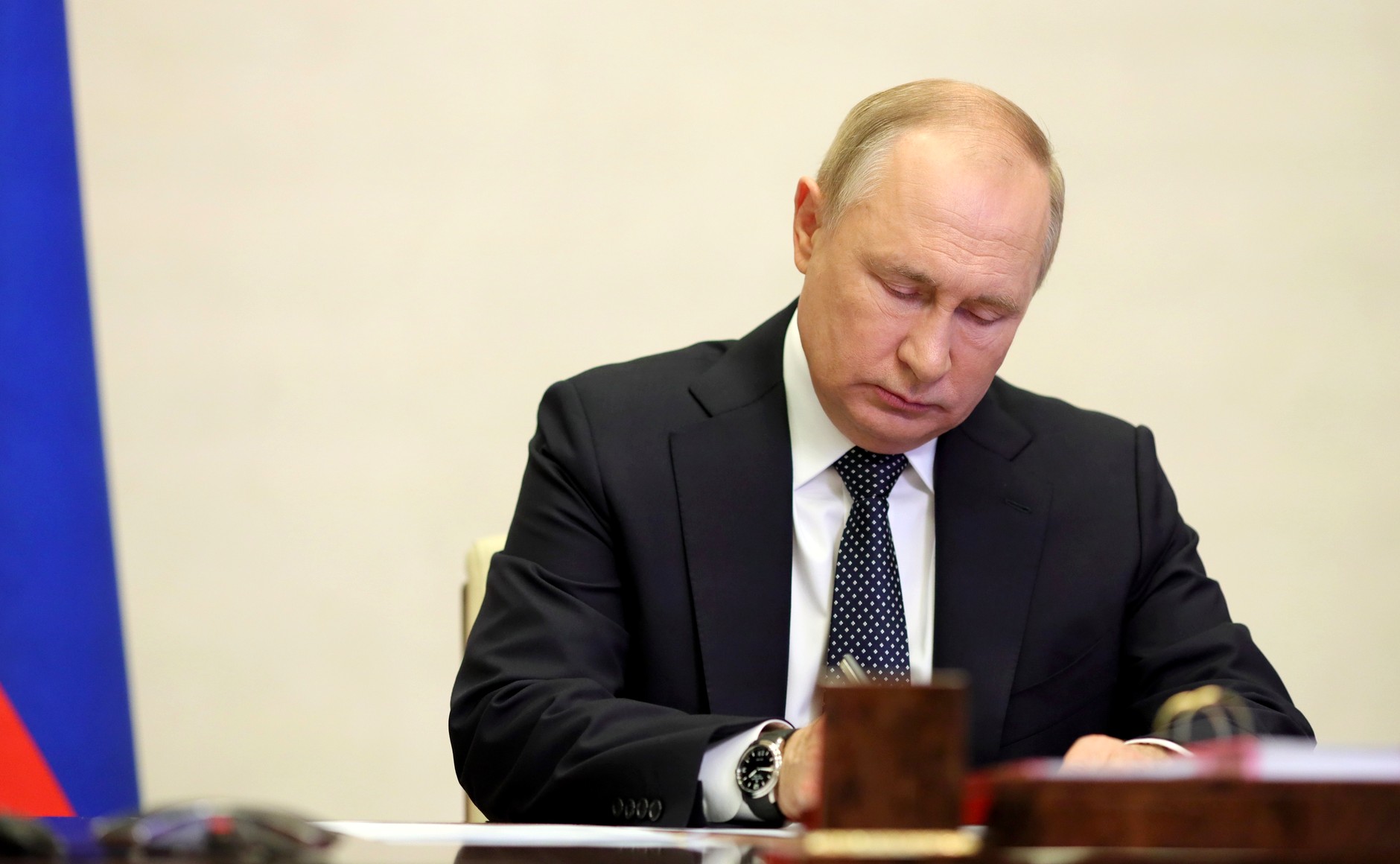 I would also like to underscore that, in our opinion, it is not enough to simply reduce emissions to solve the global warming problem. It is equally important to increase the absorption of greenhouse gases, and here Russia, as well as in a number of other countries, has tremendous potential in terms of the absorbing potential of its forests, the tundra, agricultural lands, seas and swamps. To achieve full use of this amazing potential, we plan to significantly improve the quality of forest management, increase reforestation areas, expand areas of untouched nature, and introduce new agricultural technologies. Climate projects in Russia will also create new opportunities for international cooperation for many decades to come, and of course, they will make a significant contribution to global efforts on the climate track. Overall, we believe that when implementing climate and environmental initiatives, it is important for the G20 to take the lead in drafting uniform, – and I emphasise – fair and, no less importantly, transparent rules for climate regulation. These rules should be based on mutually recognised verification and monitoring methods for greenhouse gas emissions and absorption. And most importantly, climate change should be addressed in a comprehensive manner, closely linked with steps to promote economic growth and, as my colleagues have already noted, people’s living standards. Thank you for your attention. The source of information - http://en.kremlin.ru/events/president/news/67044 Greetings on Bailiffs’ Day Vladimir Putin extended his greetings to the current and former workers of Russia’s Federal Bailiff Service on Bailiffs’ Day, their professional holiday. November 1, 2021 - 10:00 The message reads, in part: “For many years, the Federal Bailiff Service has been making a meaningful contribution to strengthening the rule of law in our country and ensuring the constitutional rights of its citizens. Staying true to your duty and strictly following the principles of legality and justice have invariably remained central to your work. After all, ensuring that court rulings are executed impartially and in a timely manner is a major prerequisite for strengthening the rule of law. Of course, I would like to express my special gratitude and give credit to the Federal Bailiff Service veterans who shaped the service’s traditions.” The source of information - http://en.kremlin.ru/events/president/news/67049 Greetings on 20th anniversary of Federal Service for Financial Monitoring Vladimir Putin sent his greetings to the Federal Service for Financial Monitoring staff to mark the agency’s 20th anniversary. November 1, 2021 - 10:15 The message reads, in part: “Over these past 20 years, your agency’s staff has been working closely with law enforcement, oversight and control bodies, and has undertaken serious efforts to improve the financial and lending sectors, fight illegal financial transactions across all segments of the national economy and combat financial flows feeding terrorist and criminal groups. It is largely thanks to your professionalism, energy and responsible attitude that Russia emerged as one of the leaders in countering money laundering involving proceeds from criminal activity. I am certain that moving forward you will make a meaningful contribution to ensuring national security and effectively fulfil your mission with the main objectives being to introduce the latest and the most effective approaches to fighting corruption and money laundering, preserve budget funds from illicit use and minimise the risk of financial fraud.” The source of information - http://en.kremlin.ru/events/president/news/67050 Meeting with Defence Ministry leadership and defence industry heads A new series of the President’s meetings with Defence Ministry leaders and the defence industry heads began in Sochi. November 1, 2021 - 15:20 - Sochi 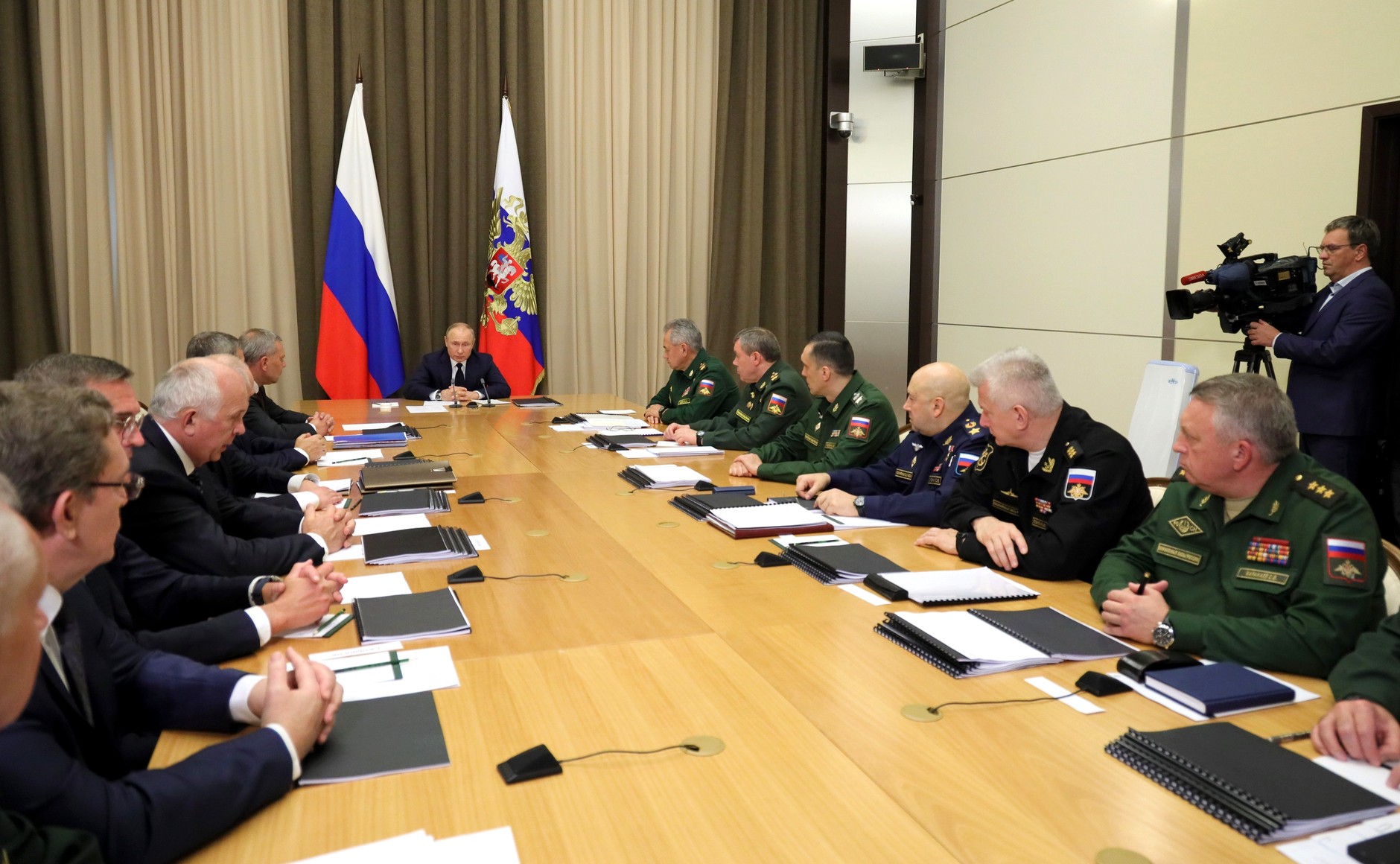 The first meeting centred on the Aerospace Forces and the Navy. Defence Minister Sergei Shoigu in a separate report updated the meeting participants on the progress of COVID-19 vaccination in the Armed Forces. The meeting was also attended by Chief of the General Staff of the Armed Forces and First Deputy Defence Minister Valery Gerasimov, Deputy Defence Minister Alexei Krivoruchko, Commander-in-Chief of the Aerospace Forces Sergei Surovikin, Commander-in-Chief of the Navy Nikolai Yevmenov, Commander of the Strategic Missile Forces Sergei Karakayev, Chief of the Main Operations Directorate of the General Staff and Deputy Chief of the General Staff Sergei Rudskoy, Chief of the Main Intelligence Directorate of the General Staff and Deputy Chief of the General Staff Igor Kostyukov, First Deputy Chief of the Main Operations Directorate of the General Staff Viktor Poznikhir, and Head of the Interbranch Research Directorate of the Main Operational Directorate of the General Staff Yevgeny Shmyrin. Also invited to attend were Deputy Prime Minister Yury Borisov, First Deputy Chairman of the Board of the Defence Industry Commission Andrei Yelchaninov, Deputy Minister of Industry and Trade Oleg Ryazantsev, General Director of Rostec State Corporation Sergei Chemezov, General Director of Tactical Missiles Corporation Boris Obnosov and General Designer of Almaz-Antey Aerospace Defence Concern Pavel Sozinov. 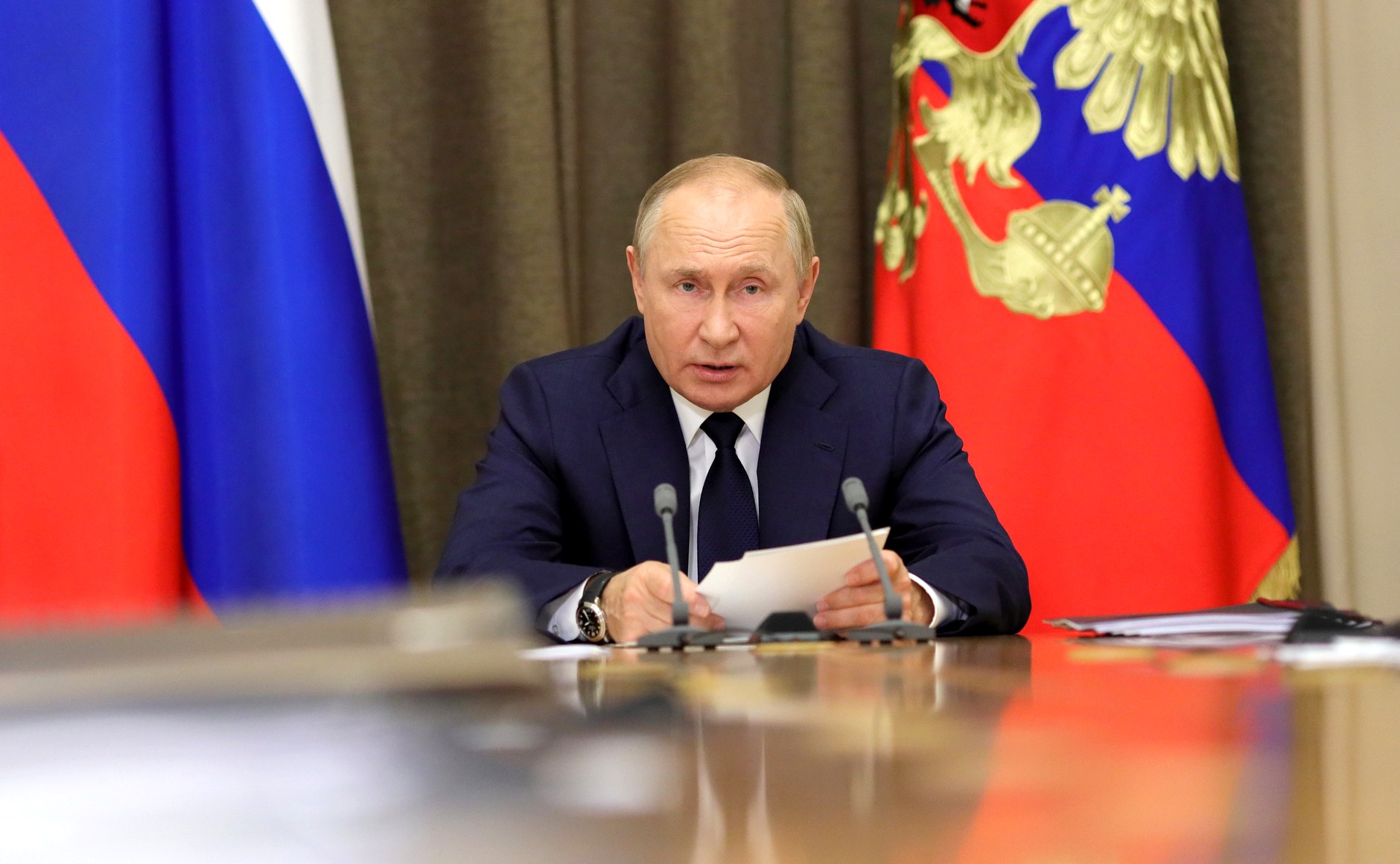 President of Russia Vladimir Putin: Good afternoon, colleagues. We are starting another series of meetings dedicated to technological development and Armed Forces equipment. As always, the participants include leaders from the Defence Ministry and top defence companies. As we have stated on many occasions, this format makes it possible to comprehensively analyse on a regular basis the state of Russia's defence capability and, if needed, to promptly adjust and update plans for modernising the army and the navy, and to improve the defence companies’ performance. Today, we will primarily consider a range of topics related to strengthening the Aerospace Forces, one of the most powerful, high-tech, and maneuverable branches of the modern Russian military. Russia’s reliable protection from an aerospace attack and maintaining strategic parity directly depend on their combat readiness and technical equipment. We are all well aware that some of our foreign colleagues have not abandoned their attempts to undermine this parity, including by deploying elements of their global missile defence systems in the immediate vicinity of our borders. We cannot fail to notice these threats to Russia's security and we will respond appropriately and adequately to the situation. In this regard, I would like to note that in recent years, the Russian Armed Forces’ aerospace defence capabilities have noticeably increased. Our missile attack warning system is functioning smoothly and effectively. Both of its components, the constellation of satellites in orbit and ground-based radar systems – guarantee the detection of potential ballistic missile launches. The system will determine their parameters in a timely manner and notify the military command and control centres. Under the state armament programme, over the past four years, 25 S-400 anti-aircraft missile systems and over 70 modern fighter jets have been produced, and more than 20 S-300 systems and 90 aircraft have been modernised. As a result, the country’s critical military and industrial infrastructure is protected even more effectively now. We need to further improve aerospace defence. This need has been prompted by the leading countries’ developing innovative strike weapons with advanced speed parameters. The general military-political situation also requires further effort, prompted partly by the increasing numbers of NATO flights close to Russia, and NATO ships with guided missiles appearing in the Baltic and Black Seas. Just recently, as you know, a US ship entered the Black Sea – it could be seen through binoculars or through the sight of our defence systems. US plans to deploy medium-range missiles in Europe are also well known, and that also poses a great danger and threat to us. Therefore, in accordance with the earlier adopted decisions, our troops must be supplied, in the next few years, with an additional more than 200 aircraft and 26 S-350 and S-400 anti-aircraft missile systems, as well as the first production prototype or first production models of the latest S-500 antiaircraft missile system. Generally, the current rates of reequipping the air and missile defence forces will make it possible to bring the level of modern hardware to at least 80 percent by 2025–2027. 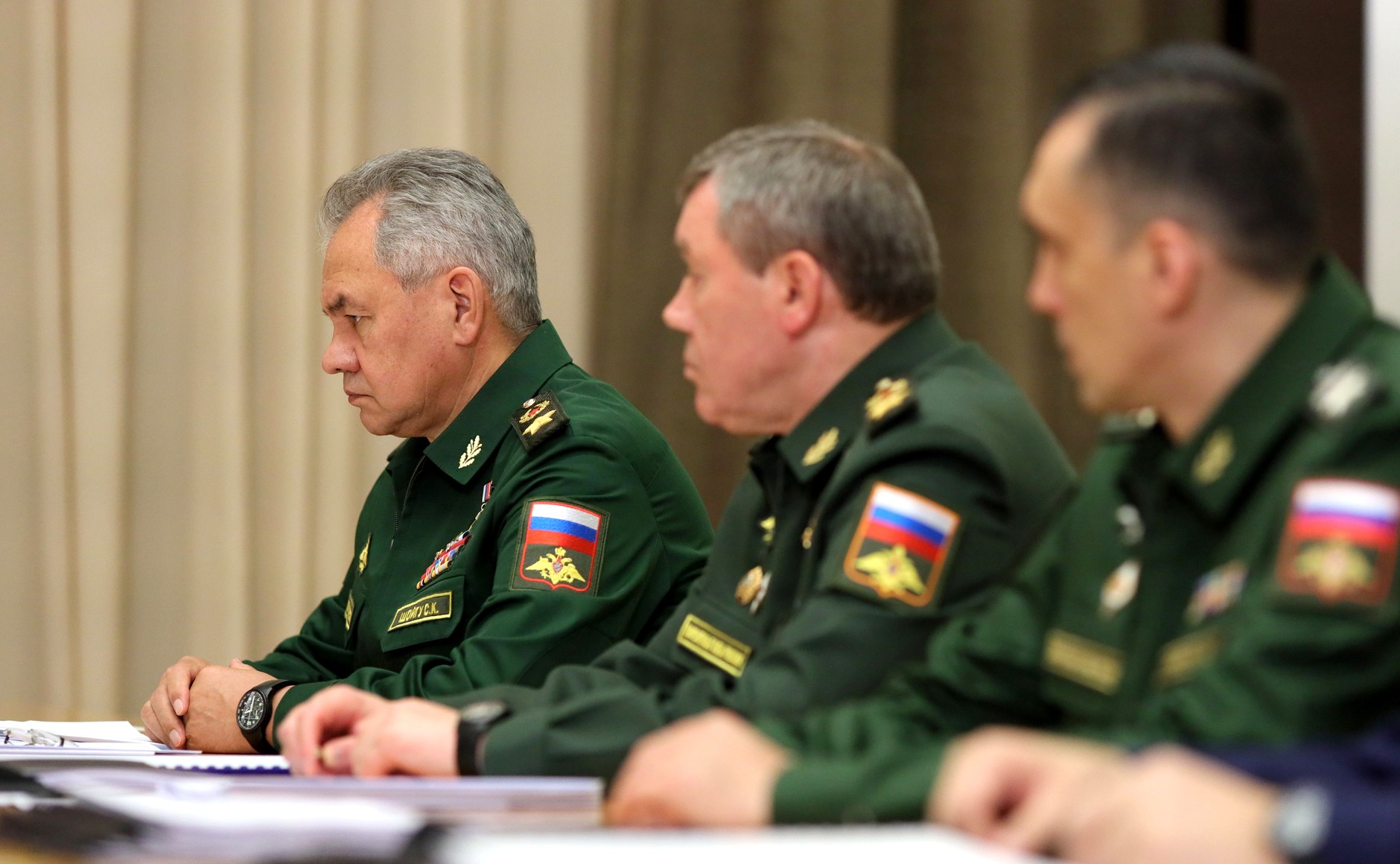 In the process, special attention must be paid to the development of the centralised air and space defence control system, the integration of the sub-systems of intelligence and warning of air or space attack into a single information space, and the deployment of advanced space systems. The updated air and space defence system must detect hypersonic and ballistic targets of all types at long distances and then be able to destroy them along the entire trajectory of their flight. In addition, the military-industrial complex must expedite the development rates of modern weapons for air and space defence, and quickly begin full-scale production using domestic hardware and components. Today, I would like to hear detailed reports on progress in these areas, on existing problems, and proposals on what we should adjust in the near future to guarantee the failsafe implementation of all our plans. One more extremely important goal is to provide the Russian Navy with modern equipment and weapons. In the past four years, the Navy has received 49 new warships and combat craft, nine coastal missile systems and ten aircraft. The programme to upgrade the fleet is making steady headway. In general, by 2027, the number of modern weapons should exceed 70 percent. The formation of shipborne strike groups operating in the near marine area is close to completion. The decisions made during the Sochi consultations and other meetings have made it possible to start increasing the construction of warships for the off-shore maritime and ocean zones. Over 30 of these warships are being built or modernised now. This includes a new class of ship – universal landing ships. The upgrading of the fleet is of crucial, strategic, national importance to us. This is why we are regularly taking part in the keel-laying ceremony of new ships – both surface ships and submarines. And we will continue to do so. 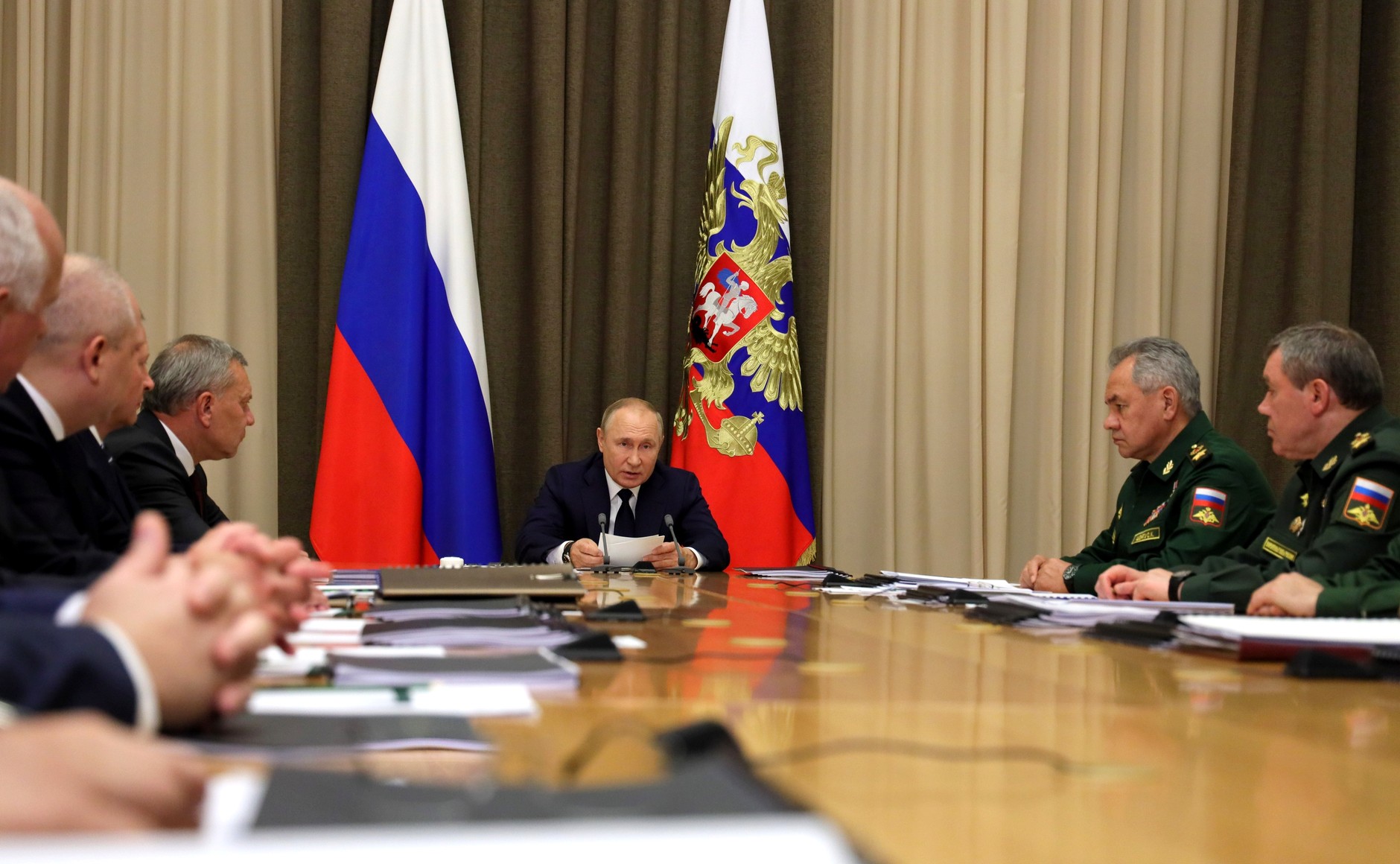 I would like to add that Navy warships and vessels continuously take part in long distant patrols. They carry out operational and training missions and display the flag in the ocean and sea zones of importance to Russia. I would like to recall that in the 2000s, in the early 2000s, such patrols were episodic if not sporadic. Let me repeat, we need to continue the course of technically reequipping the fleet. I would like to draw your attention to several important points. First, we need to be more active in introducing advanced technology, equipment and materials; actually, this is obvious, but I will still make the point. This will improve the operational specifications of ships and submarines and create an opportunity to use new types of weapons. The second point. Considering the buildup of foreign navies with modern nuclear-powered submarines, aircraft carrying and strike ships, and unmanned ships, we must expedite the development of our naval aviation, primarily by supplying the Navy with advanced aircraft and air weapons and conducting a large-scale modernization of existing systems. I would like to hear today what is being done to resolve this task. Before we move to the issues on our agenda, I would like to hear a separate – brief, but separate – report on the vaccination of military personnel in the Armed Forces. I spoke recently with the Defence Minister and asked him to prepare this report. It is brief but I want to hear it today anyway. Go ahead, please. 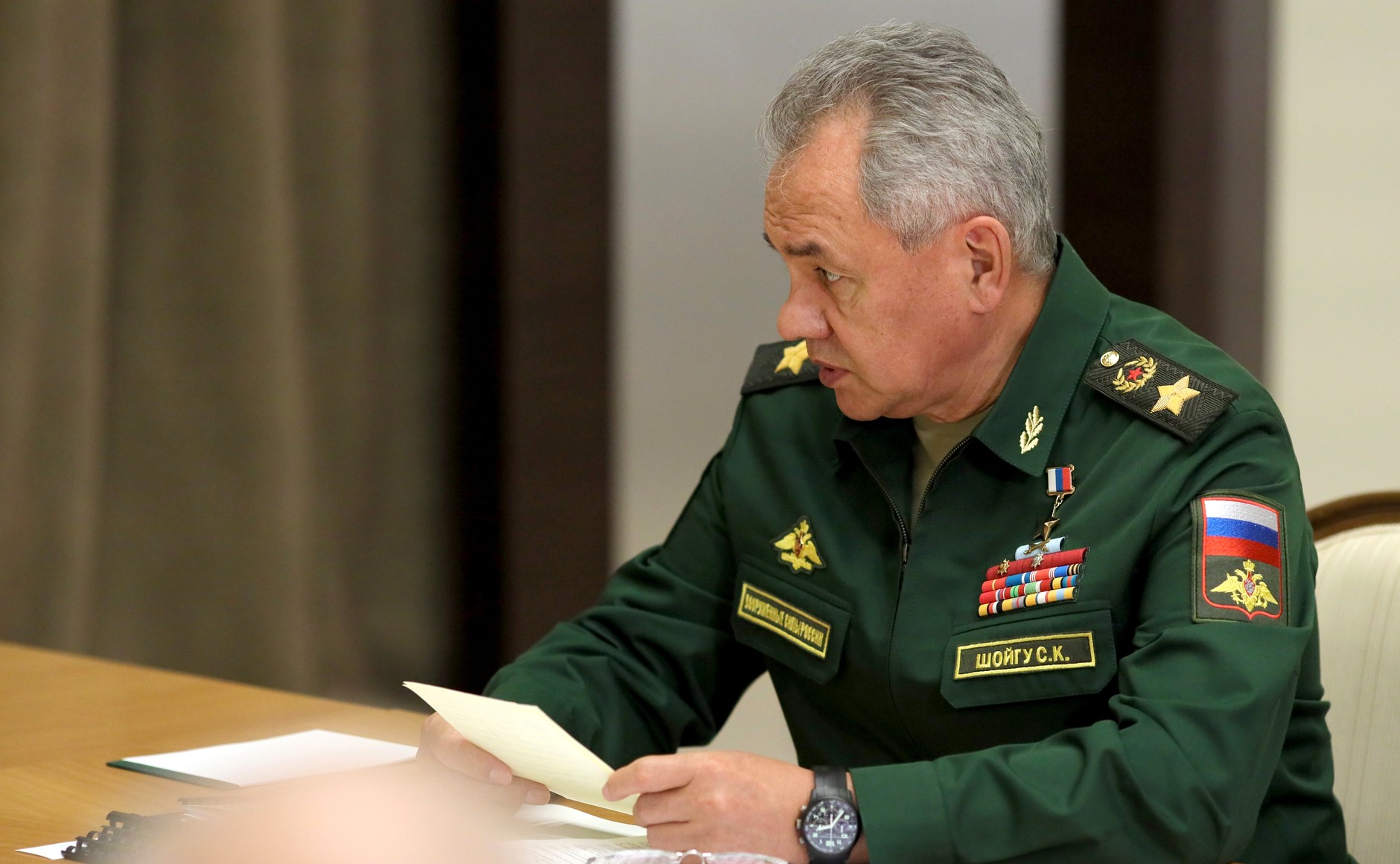 Defence Minister Sergei Shoigu: Thank you. Mr President, in line with your instructions, we started planned vaccination at priority rates in July of last year. Today, 95 percent of military personnel, 70 percent of civilian workers and relatives of service members have been vaccinated. This has allowed us to have fairly high figures in reducing the coronavirus infection and fatality rates. On July 1, we began our planned revaccination programme. As of today, about 25–27 percent of military personnel have been revaccinated. Again, this is proceeding according to plan. To keep the pandemic under control, we increased the number of laboratories six times in 2020. Because of this, since last year, we have reduced the time for obtaining test results to two hours; we can receive test results in two hours in any place in the country. We have also put telemedicine on an around-the-clock schedule. Of course, all moderate to severe patients in our hospitals are monitored by doctors and receive consultations from leading specialists around the clock. As a result, today the incidence rate among Armed Forces personnel is half the national average. In 2021, the incidence rate is 44.5 percent lower than in 2020. As compared to 2020, we have reduced the demand for beds three-fold, so, this year we need three times fewer beds. Naturally, we are helping 27 regions in the Russian Federation in 136 of our hospitals. We are helping them with oxygen supplies (as you instructed last year and repeatedly said this year). We are providing various assistance, including hospitalization and the use of our laboratories. Compared to last year, vaccination has cut the COVID-19 mortality rate in half in the Armed Forces alone. It is 45 percent below the national average per 10,000 people. We have both military and civilian personnel and their relatives. We continue countering the coronavirus under our plan. Like last year, per your instructions, we are ready to deploy a hospital in any part of the country within three hours, minus, of course, travel time. We have nine hospitals at our disposal, complete with all the required equipment and personnel. Today, we are using our medical facilities from this number in Khakassia, in Moscow and Tula regions, in Abkhazia and a number of other regions in Russia where our medical personnel provide treatment, without equipment. We are ready to instantly fulfil your instructions. 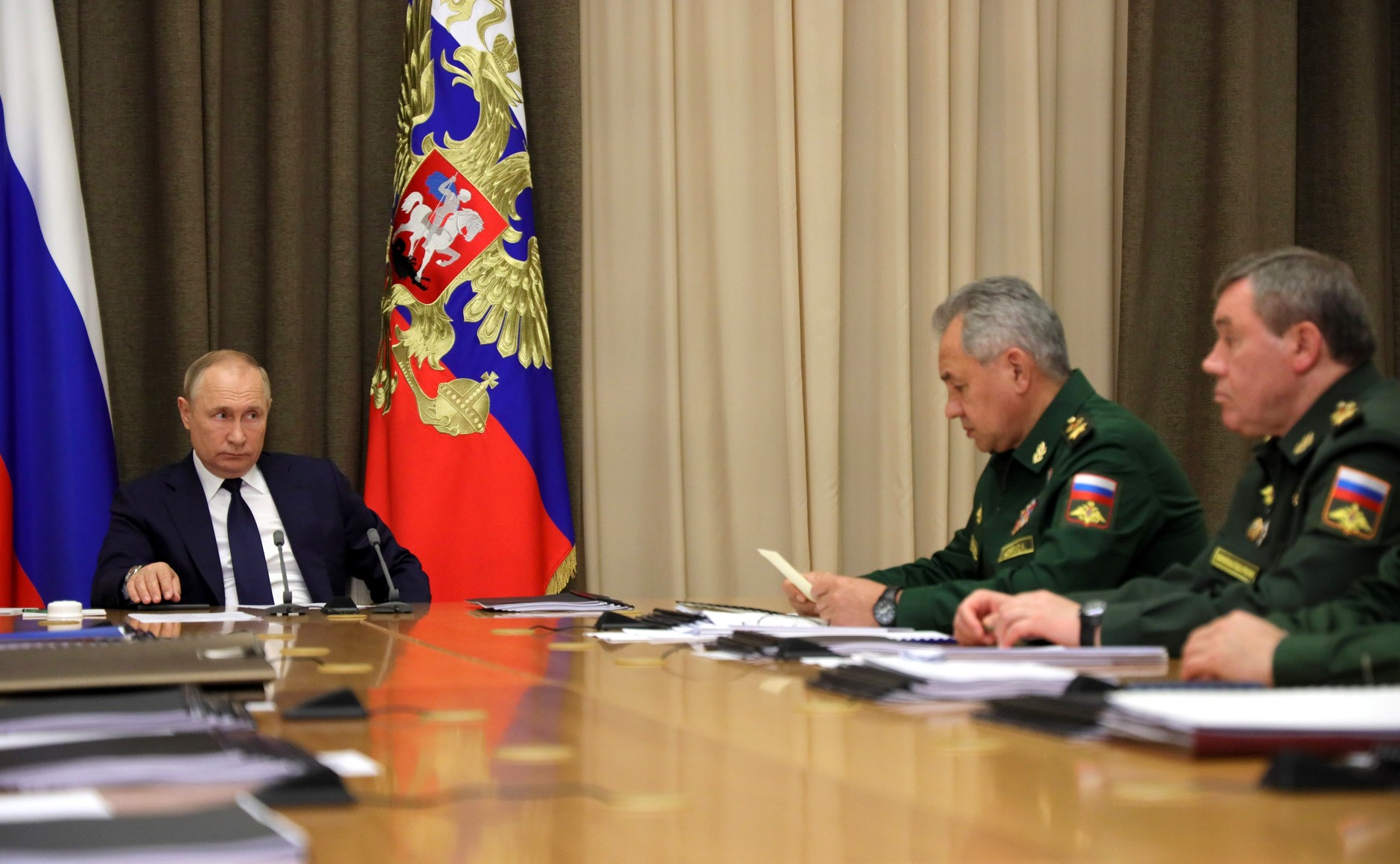 Vladimir Putin: I told the Prime Minister about this today, and his deputy, Tatyana Golikova, and the Health Minister. I have just spoken to all of them. We have a very difficult situation in Russia today, more than 40,000 infected [a day], this has never happened before. We definitely need to continue this effort, which is certainly extremely important for all Russians, and even more so for the Armed Forces – two or three times as important – because we absolutely need all of our military members in the service and in good health. The combat readiness of the Armed Forces depends on this. Therefore, I ask you to continue this work, and to continue to support civil medicine. If necessary, perhaps, you might want to use your construction capacity, because there is a need to continue building prefabricated medical facilities. I would also like to address my colleagues from industry. Perhaps, this concerns the Armed Forces to a lesser extent – I will explain in a minute – and the civilian sector, to a greater extent. Here is what I mean. We know that senior citizens have an increased risk of severe illness – this is an obvious fact today, and the mortality rate among that age group is several times higher than the national average, for the entire population. 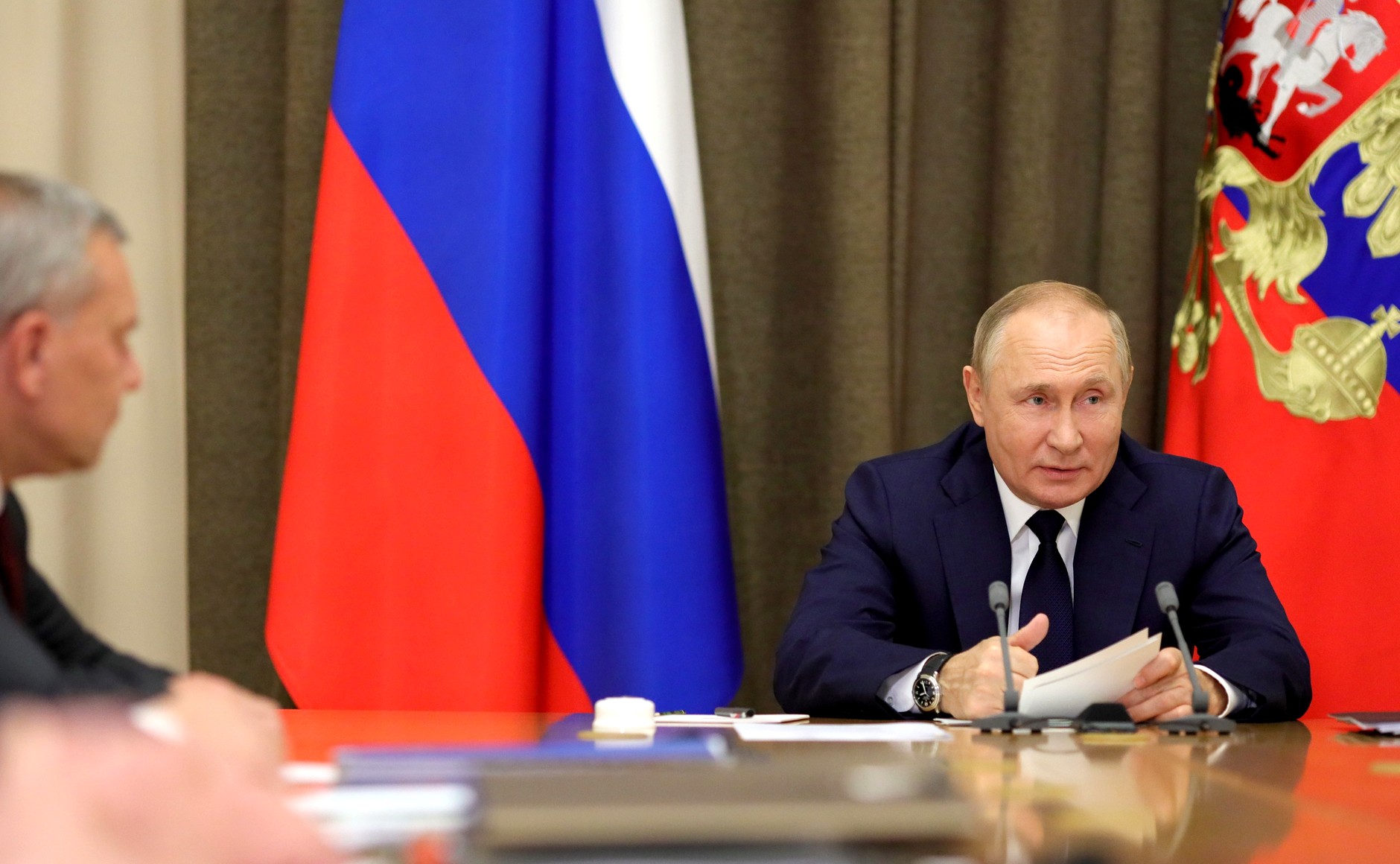 What I am saying, you have employees of different generations working at your enterprises, including the older generation – please keep this under review, including the observance of all the necessary precautions to prevent the spread of the disease. This certainly applies to the entire country, but now I am addressing those who are present at this meeting. On vaccination – vaccines can really protect from severe illness and death. True, new drugs are being developed, and I am sure we will be able to use them soon, I also spoke with my colleagues about this today, with those working on this; but still, the most universal and best way to protect yourself is to get vaccinated. And for the army – in fact, this concerns everyone, including the army – timely revaccination is necessary. I occasionally speak with my colleagues in countries where more than 60 percent of the population has been vaccinated, and they still cannot avoid a new outbreak. I asked them personally, what happened. They failed to start revaccinating on time, missed the moment – we must bear this in mind, too. Even when people get vaccinated, as the minister just said, we need to monitor what happens after that and make appropriate decisions and act on time. Let us get started. The source of information - http://en.kremlin.ru/events/president/news/67051
__________________
Where should they dig the Very Deep Pit? Piglet said that the best place would be somewhere where a Heffalump was, just before he fell into it, only about a foot farther on. (c) Alan Alexander Miln |
|
|
#20 |
|
Senior Member
|
Greetings on 75th anniversary of Burnasyan Federal Medical Biophysical Centre
Vladimir Putin sent greetings to the personnel and veterans of the State Research Centre – Burnasyan Federal Medical Biophysical Centre (SRC – FMBC) of the Federal Medical-Biological Agency on its 75th anniversary. November 2, 2021 - 09:45 The message reads, in part: “The centre’s establishment and activities are closely connected with the implementation of the nuclear project in our country and the huge opportunities it offered in various spheres, including healthcare. The centre has always employed talented scientists, doctors and specialists. They were fully aware of the importance of the tasks set before them and have done a great deal for the development of the national radiation medicine and sanitary science, the creation of effective medications and methods for treating dangerous diseases. Of course, your personnel also made an invaluable contribution to clearing up the consequences of radiation accidents and disasters. The SRC – FMBC is rightly considered a modern and truly unique research and clinical centre and a leader in high-tech medicine. Your area of responsibility includes fundamental research on a broad range of issues, the professional training of medical personnel, medical and sanitary support for the staff of the main strategic sectors of the economy and the defence industry, as well as for high-performance athletes. This multifaceted and important work and your undeviating commitment to the noble principles of compassion and selflessness deserve our deep and sincere gratitude.” The source of information - http://en.kremlin.ru/events/president/news/67059 Greetings on opening of Soobshchestvo Forum of Active Citizens Vladimir Putin sent his greetings to the participants of the final Forum of Active Citizens Soobshchestvo (Community), traditionally held by the Civic Chamber ahead of National Unity Day. November 2, 2021 - 10:00 The message reads, in part: “The Soobshchestvo forum provides a platform for representatives of non-profit and volunteer organisations, the media, and experts from different regions of Russia and gives them an excellent opportunity to discuss key problems in the country and share their experience. I would like to note that this year, despite the unfavourable epidemiological situation, the forum, nevertheless, has taken place and has attracted a large audience. Today you will consider a broad range of socially significant problems and develop common approaches to their solution. The development of the volunteer movement in Russia is at the center of your agenda, as is the importance of combining the efforts of various public associations aimed at supporting healthcare workers and people who find themselves in a difficult situation due to the pandemic.” The source of information - http://en.kremlin.ru/events/president/news/67058 Greetings on opening of Seventh Congress of All-Russian Society of People with Disabilities Vladimir Putin sent greetings to participants in the Seventh Congress of the All-Russian Society of People with Disabilities. November 2, 2021 - 10:30 The message reads, in part: “Since its inception, the All-Russian Society of People with Disabilities has conducted large-scale and meaningful work aimed at addressing topical matters of rehabilitating people with limited abilities, ensuring their social adaptation and protecting their rights and interests. You work to create worthy living conditions for people with disabilities, ensure their career guidance and provide them with jobs. You help them to engage in creative work, in sport, and are actively involved in improving the relevant legislation. And, of course, I would like to note the society’s substantial contribution to implementing the Accessible Environment state programme. This extremely important work is in high demand and has rightly won your organisation prestige and acclaim. I am confident that this congress will be highly beneficial, and that its delegates will be able to exchange experience and best practices and set goals for the future.” The source of information - http://en.kremlin.ru/events/president/news/67057 Video address to participants in forum on forests and land use within UN Climate Change Conference framework The President of Russia addressed the participants of the World Leaders Summit on Action on Forests and Land Use held within the framework of the 26th Conference of the Parties to the UN Framework Convention on Climate Change (COP26) in Glasgow, UK. November 2, 2021 - 12:30 - Novo-Ogaryovo, Moscow Region President of Russia Vladimir Putin: Mr. Prime-Minister Johnson, ladies and gentlemen, I am pleased to have this opportunity to welcome participants in the meeting on forests and land-use. I am convinced that the conservation of forests and other natural ecosystems is a key component of international efforts to address global warming and reduce emissions of greenhouse gases. This topic fits organically into the multidimensional agenda of the Glasgow Climate Change Conference. By aiming to build a carbon-neutral economy by no later than 2060, Russia is relying, among other things, on the unique resource of forest ecosystems available to us, and their significant capacity to absorb carbon dioxide and produce oxygen. After all, our country accounts for around 20 per cent of the world’s forestland. 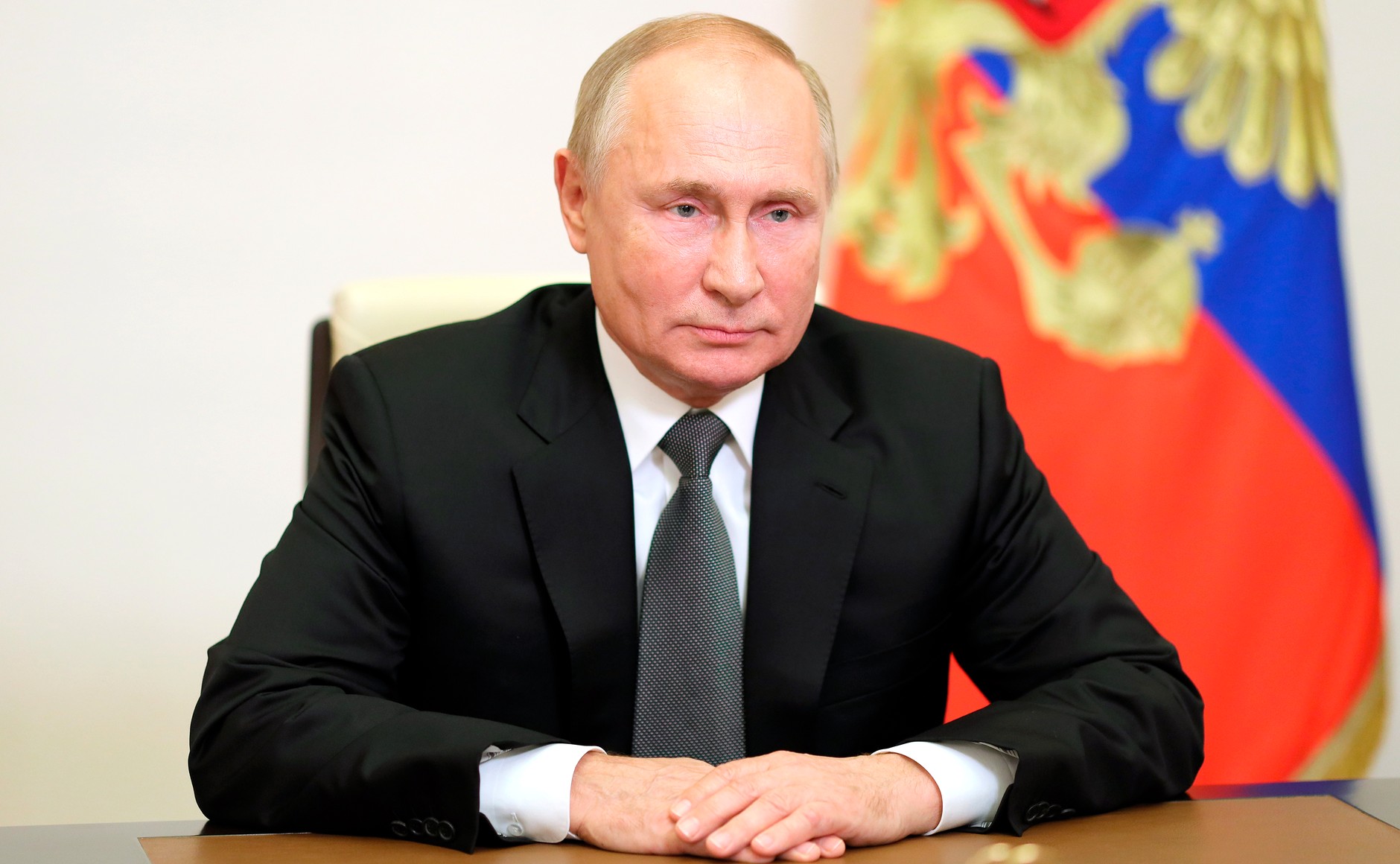 We take the strongest and most vigorous measures to conserve it. We improve forest management, and fight illegal logging and forest fires. We are expanding reforestation areas. We have been consistently increasing funding for these purposes. Russia supports the draft joint declaration on forests and land-use proposed for approval at today’s meeting. We expect its implementation to facilitate closer partnerships between all interested States in forest conservation. This will undoubtedly serve to fulfill the objectives of reducing levels of carbon dioxide in the atmosphere set out in the Paris Agreement. I would like to wish all of us success and all the best. Thank you. The source of information - http://en.kremlin.ru/events/president/news/67055 Meeting with Defence Ministry leadership and heads of defence industry enterprises In Sochi, Vladimir Putin chaired the second meeting with Defence Ministry leadership and heads of defence industry enterprises. November 2, 2021 - 14:30 - Sochi The discussion focused on equipping the Armed Forces with unmanned aircraft. The meeting was attended by Defence Minister Sergei Shoigu, Chief of the General Staff of the Armed Forces and First Deputy Defence Minister Valery Gerasimov, Deputy Defence Minister Alexei Krivoruchko, Commander-in-Chief of the Aerospace Forces Sergei Surovikin, Commander-in-Chief of the Navy Nikolai Yevmenov, Commander of the Strategic Missile Forces Sergei Karakayev, Chief of the Main Operations Directorate of the General Staff and Deputy Chief of the General Staff Sergei Rudskoy, Chief of the Main Intelligence Directorate of the General Staff and Deputy Chief of the General Staff Igor Kostyukov, Deputy Commander-in-Chief of the Aerospace Forces for Armaments Yury Grekhov, First Deputy Chief of the Main Operations Directorate of the General Staff Viktor Poznikhir, and Head of the Interbranch Research Directorate of the Main Operational Directorate of the General Staff Yevgeny Shmyrin. Also invited to the meeting were Deputy Prime Minister Yury Borisov, First Deputy Chairman of the Board of the Military-Industrial Commission Andrei Yelchaninov, Deputy Minister of Industry and Trade Oleg Ryazantsev, CEO of Rostec State Corporation Sergei Chemezov, General Director of the Ural Works of Civil Aviation Vadim Badekha, General Director of Kronstadt JSC Sergei Bogatikov, General Director and Chairman of the Management Board of the United Aircraft Corporation Yury Slyusar. 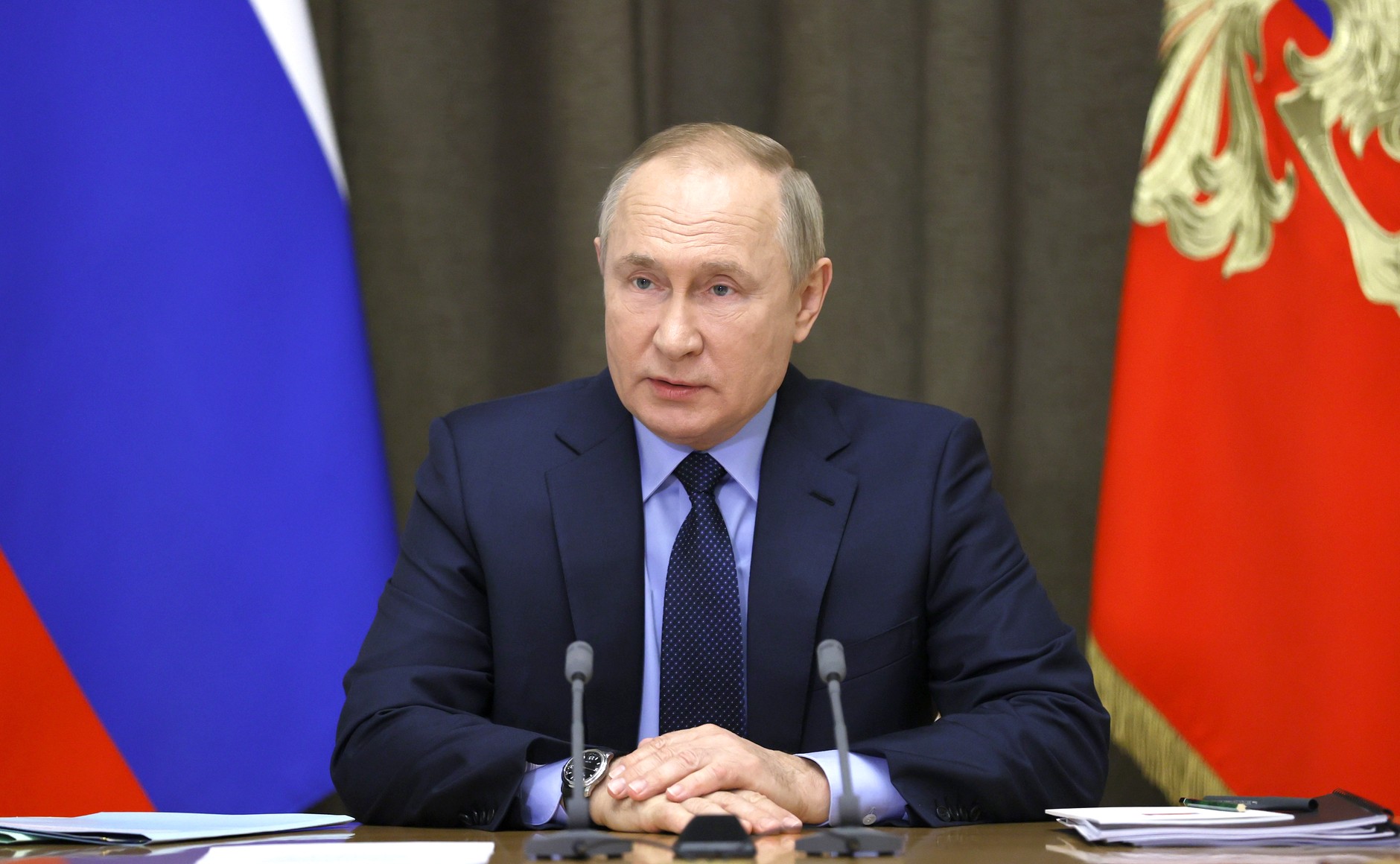 President of Russia Vladimir Putin: Good afternoon, colleagues. Today we will continue our work and discuss the development of unmanned aircraft. We know very well that they have won a reputation during armed conflicts over the past few years, we know their efficiency and the danger they can pose for us, in the context of what we have seen in Syria, namely, terrorist attacks involving drones. We have learned to repel these attacks, and we are doing this effectively.  Today, we have over 2,000 unmanned aircraft. It is necessary to continue working on them in the same intensive manner, just as we have been doing recently, and this involves the use of artificial intelligence and the most advanced achievements of technology and science. Of course, we must bear in mind the experience that we have accumulated in using these aircraft and the analysis of what we are witnessing around us. Let us get to work. Mr Sergei Surovikin has the floor. The source of information - http://en.kremlin.ru/events/president/news/67056 Meeting with Defence Ministry leadership and heads of defence industry enterprises In Sochi, Vladimir Putin chaired the final meeting in a series of meetings with Defence Ministry leadership and heads of defence industry enterprises. November 3, 2021 - 16:40 - Sochi The third meeting focused on equipping the Armed Forces with systems based on new physical principles. The meeting was attended by Defence Minister Sergei Shoigu, Chief of the General Staff of the Armed Forces and First Deputy Defence Minister Valery Gerasimov, Deputy Defence Minister Alexei Krivoruchko, Commander-in-Chief of the Aerospace Forces Sergei Surovikin, Commander-in-Chief of the Navy Nikolai Yevmenov, Commander of the Strategic Missile Forces Sergei Karakayev, Chief of the Main Operations Directorate of the General Staff and Deputy Chief of the General Staff Sergei Rudskoy, Chief of the Main Intelligence Directorate of the General Staff and Deputy Chief of the General Staff Igor Kostyukov, First Deputy Chief of the Main Operations Directorate of the General Staff Viktor Poznikhir, and Head of the Interbranch Research Directorate of the Main Operational Directorate of the General Staff Yevgeny Shmyrin. Also invited were Deputy Prime Minister Yury Borisov, Finance Minister Anton Siluanov, Deputy Minister of Industry and Trade Oleg Ryazantsev, heads of the Federal Service for Technical and Export Control, Rosatom State Atomic Energy Corporation and Roscosmos State Corporation for Space Activities. 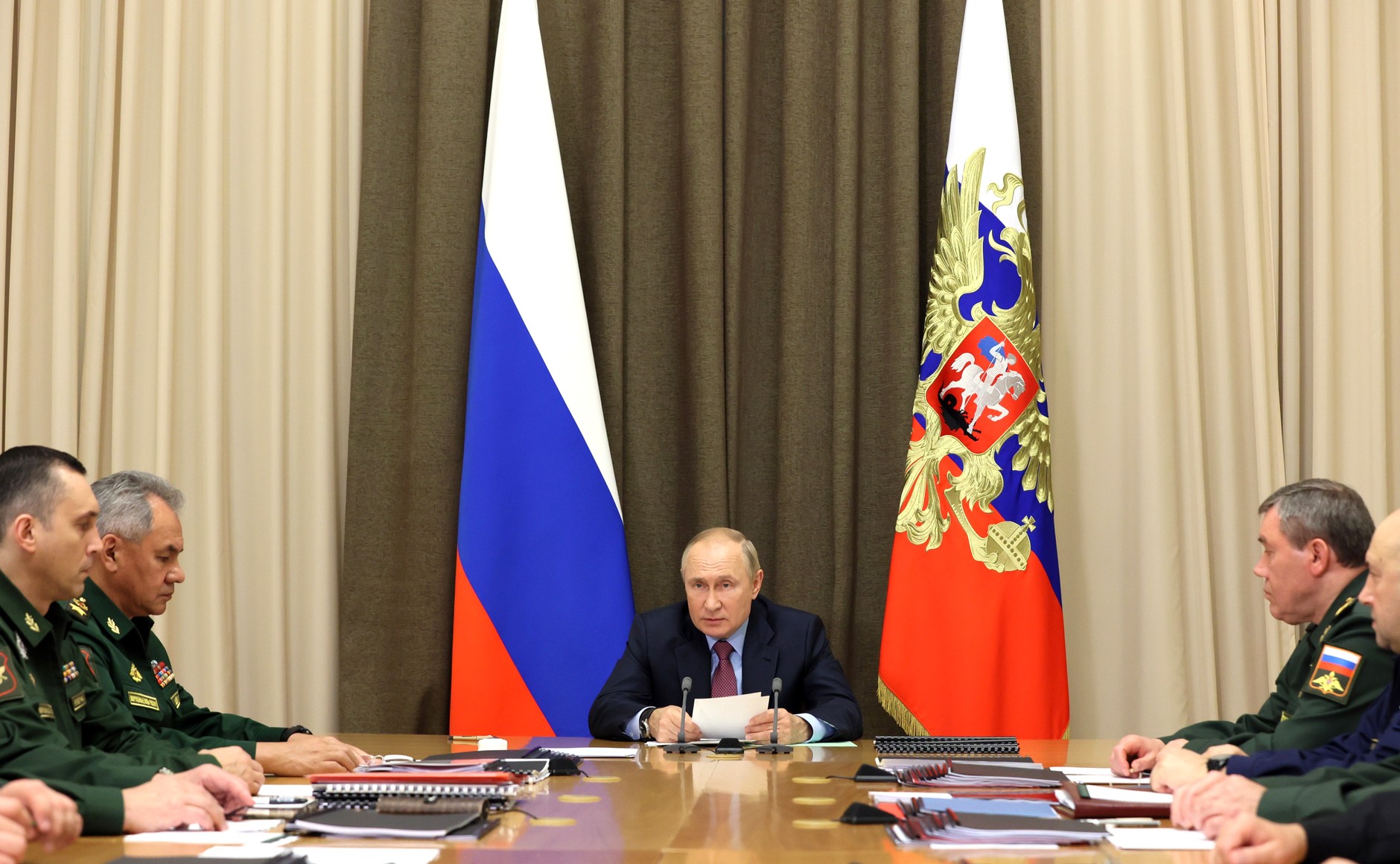 President of Russia Vladimir Putin: Good afternoon, colleagues. We are holding today our final meeting in this series on strengthening and improving the Armed Forces. Today we will discuss the progress in equipping our army and navy with systems based on new physical principles. Developing unique laser, hypersonic, kinetic and other types of weapons was a huge breakthrough in military technology for Russia. It has significantly, many-fold boosted the capacity of the Russian Armed Forces ensuring a high level of Russian military security for many years and even decades to come and it helped strengthen our strategic parity. 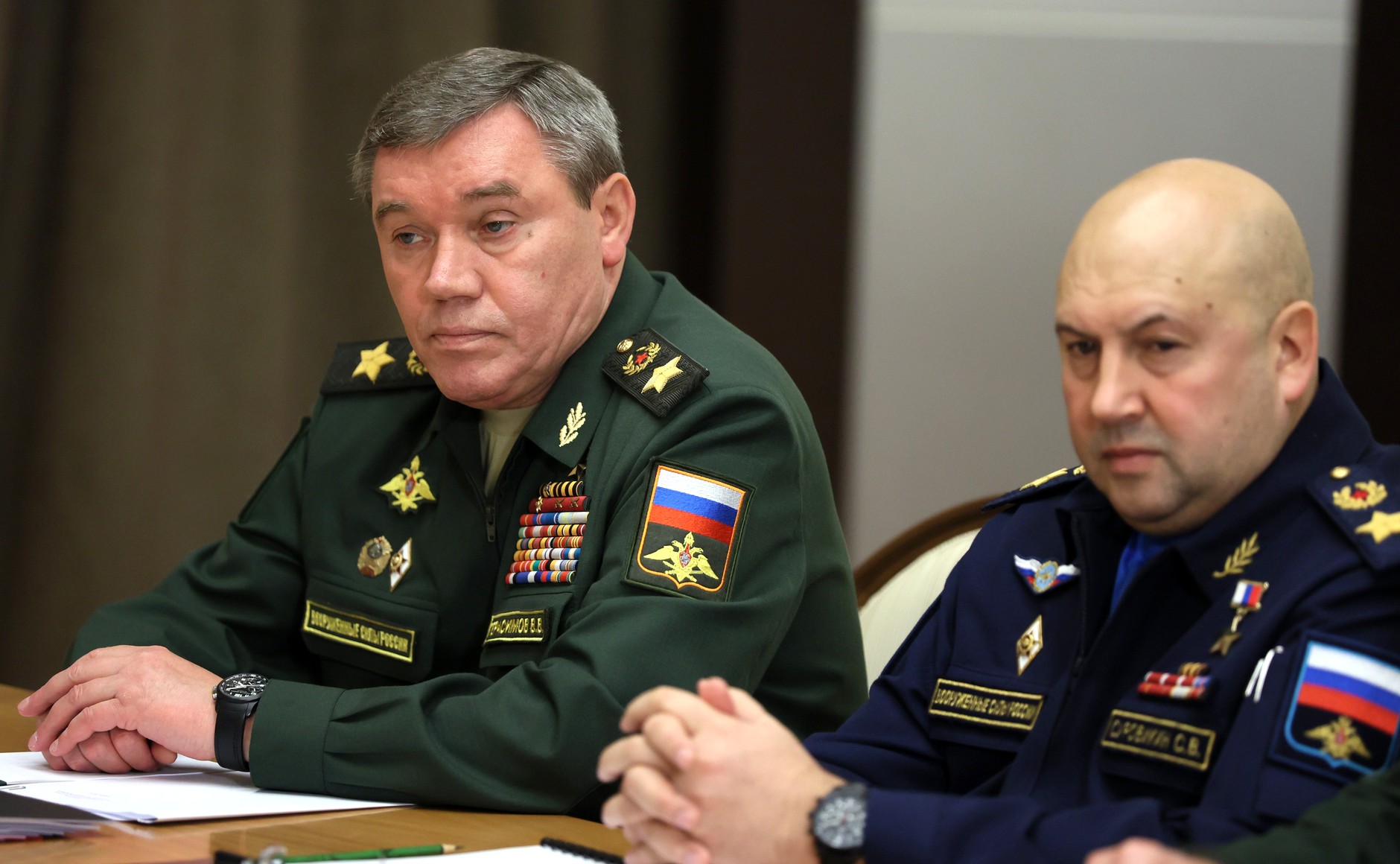 The development and production of these effective and innovative hi-tech weapons is a key development vector for our Armed Forces. Of course, it takes time, extra effort and funding because each particular model is the result of long hard work by thousands of scientists, engineers, programmers and other specialists. 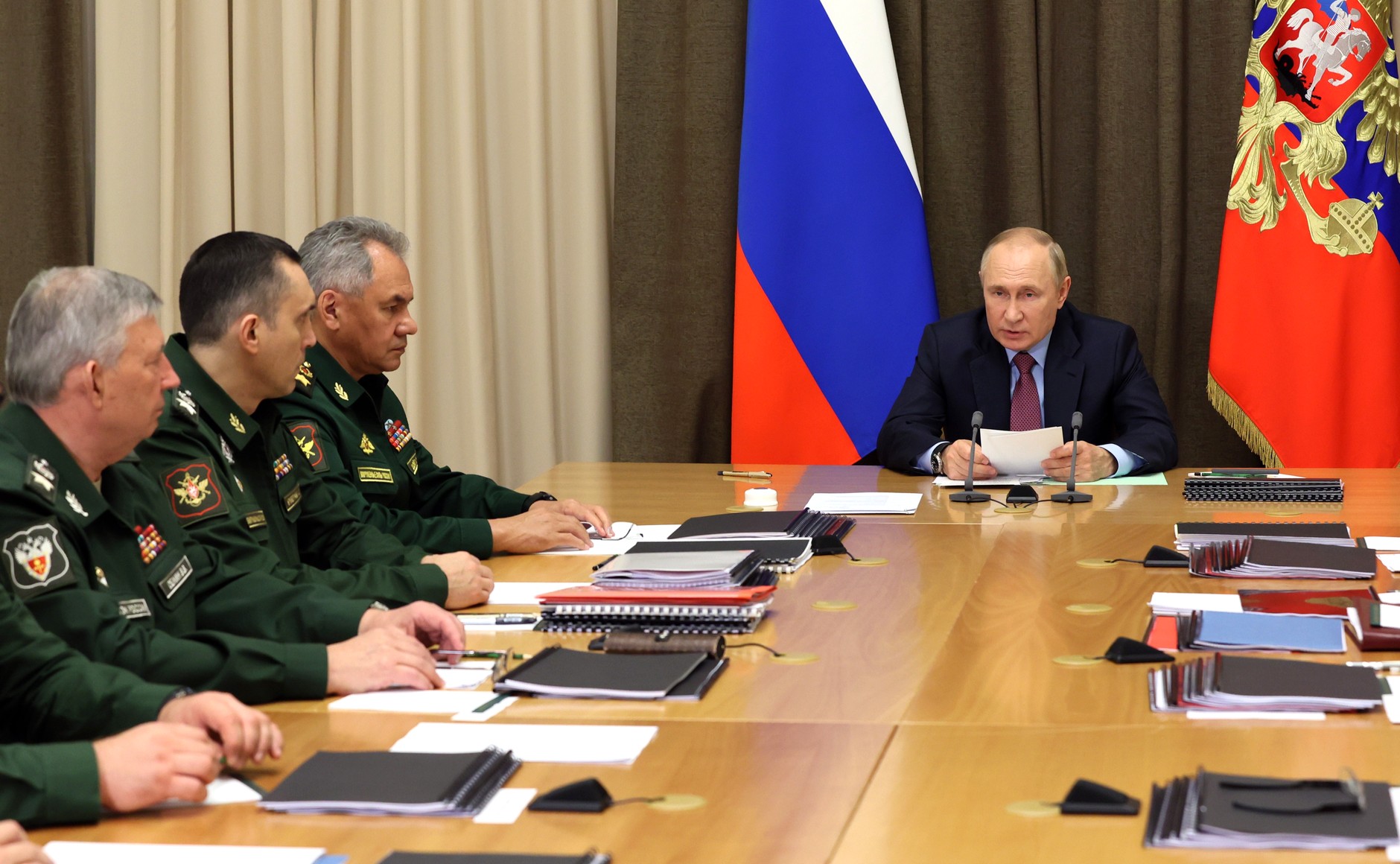 I have noted several times that the Russian military-industrial complex, our fundamental and applied science, have done a lot of groundwork in this area. Tests have convincingly confirmed the unique characteristics of the Peresvet laser systems, and the Avangard and Kinzhal hypersonic weapons. 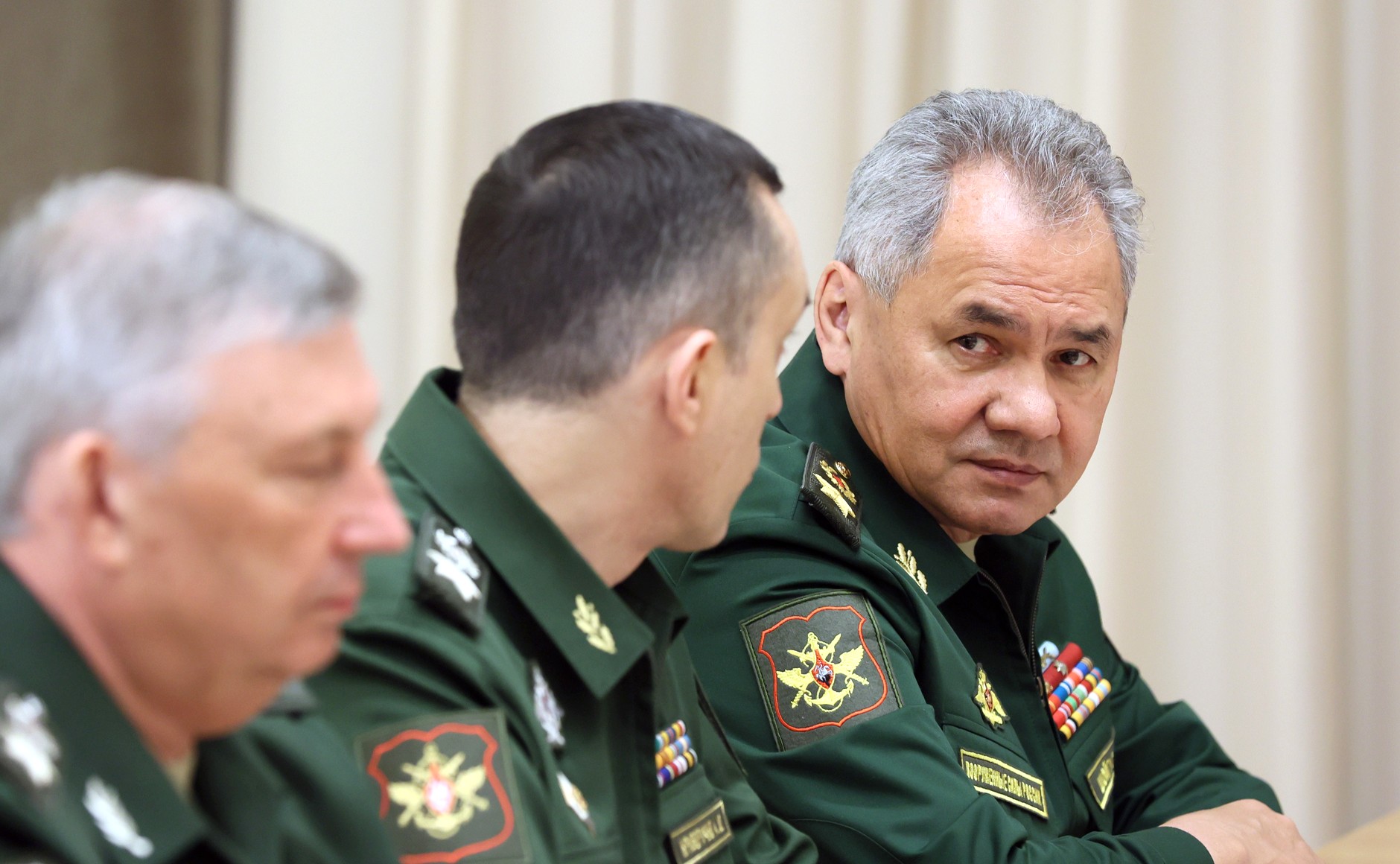 I would like to add that tests of the sea-based Tsirkon hypersonic cruise missile are nearing completion. During the tests, these missiles pointedly destroyed both land- and sea-based targets from submarines and surface ships in full conformity with their objectives. The Russian Navy will start receiving these missiles next year.  Now it is particularly important to develop and introduce the technology needed for developing new hypersonic weapon systems, and more powerful lasers and robotic systems that will be capable of effectively countering potential military threats. Thus, they will further enhance our national security.  I would like to emphasise a very important point. The use of artificial intelligence technology is of primary importance in developing these and other advanced weapons systems. We have talked about this at previous meetings. This technology should ensure a breakthrough in improving combat capabilities of weapons. 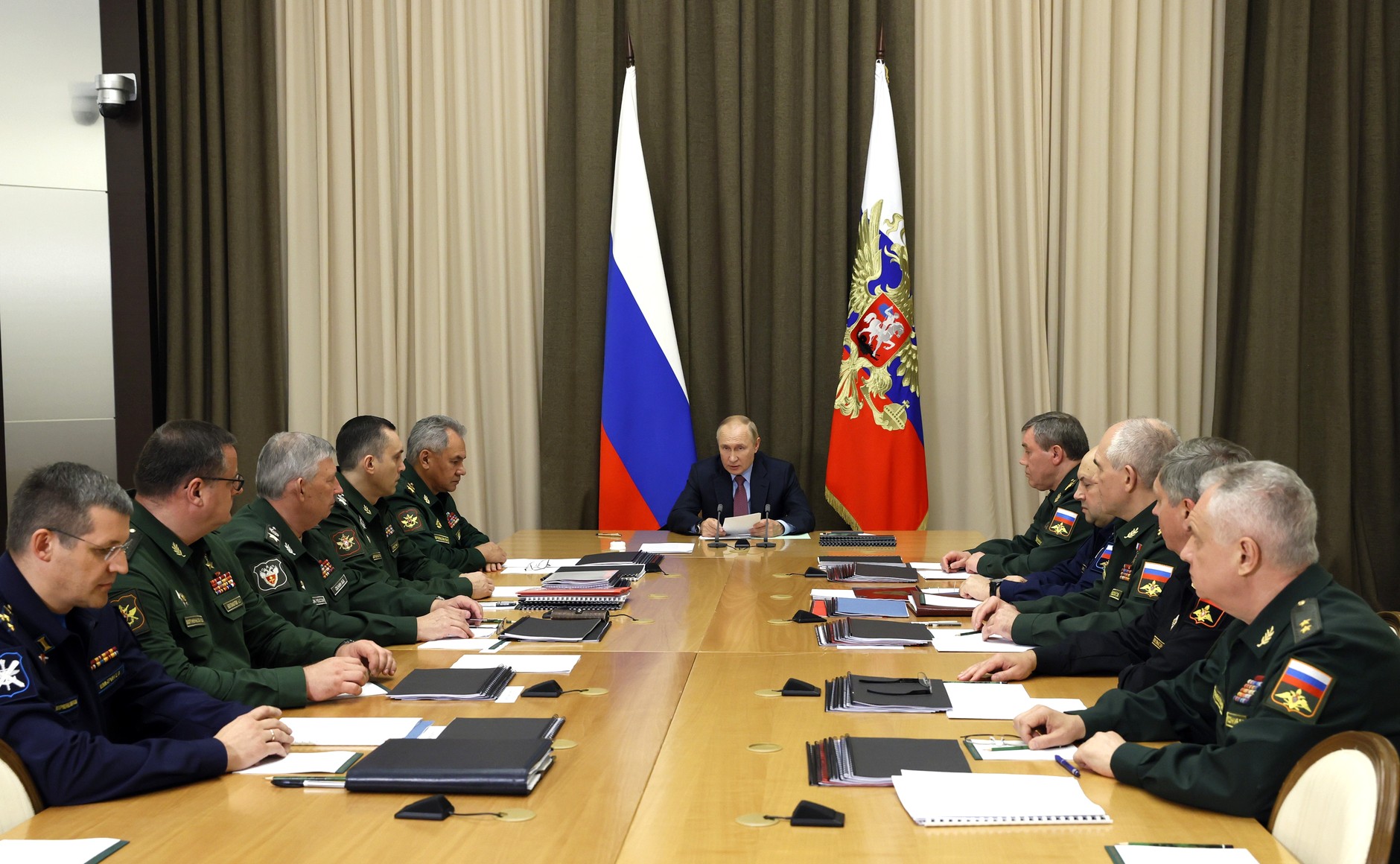 This technology must be used more comprehensively in troop command and control, communications and data transmission, as well as in precision missile systems. It is no less important to introduce artificial intelligence technology when developing advanced robotics with higher autonomy, and to control drones and deep-water vessels. We need to fully reflect these priorities in the new State Armament Programme through 2033. The Defence Ministry is already drafting documents for an integral system of benchmark data for this. The main, fundamental goal in this respect is to make sure that the advanced weapons and equipment that will be produced and delivered to the troops under this programme will reliably protect Russia from potential threats. In general, we know all this: we will talk about it. Let’s start. The source of information - http://en.kremlin.ru/events/president/news/67061 Greetings on the opening of the Third Russian-Korean Interregional Forum Vladimir Putin sent a message of greeting to the participants and guests of the Third Russian-Korean Interregional Forum. November 4, 2021 - 09:00 The message reads, in part: “We recently marked 30 years of relations between Russia and the Republic of Korea, and it is crucial that they continue developing in a constructive and friendly way despite the hurdles and restrictions caused by the pandemic. Credit for sustaining such positive dynamics goes largely to our countries’ regions. Many constituent entities of the Russian Federation, especially those in the Far East and Siberia, are actively engaged in joint work with Korean partners. Big bilateral projects are underway in natural gas extraction, energy, marine transport, automobile industry and shipbuilding, fisheries and agriculture, healthcare and innovative technologies. Interregional partnership clearly contributes to the economic, infrastructure and social progress of our two countries, expanding contacts between business communities and civil societies, as well as government ties. I am confident that you will hold substantive discussions at the forum and will identify new promising areas and ways of interaction for the benefit of our nations.” The source of information - http://en.kremlin.ru/events/president/news/67064 Greetings on National Unity Day On National Unity Day, Vladimir Putin visited a memorial complex dedicated to the end of the Russian Civil War in Sevastopol. The President laid flowers at the eternal flame near the monument and congratulated the people of Crimea and all citizens of Russia on the national holiday. November 4, 2021 - 17:00 - Sevastopol Built on the instruction of the President, the memorial was unveiled on April 22, 2021, on the banks of the Karantinnaya Bay. The Russian Military Historical Society, with support from the International Council of Russian Compatriots, carried out this project; it was designed by Chairman of the Artists’ Union of Russia Andrei Kovalchuk. The monument presents a sculptural composition with two male figures at the centre symbolising the two opposing sides in the Civil War. Above them rises a statue on a pedestal representing Mother Russia that calls on its sons to be reconciled. The bottom of the monument carries the inscription: “We are a single people, and we have only one Russia.” This is where the eternal flame is burning. 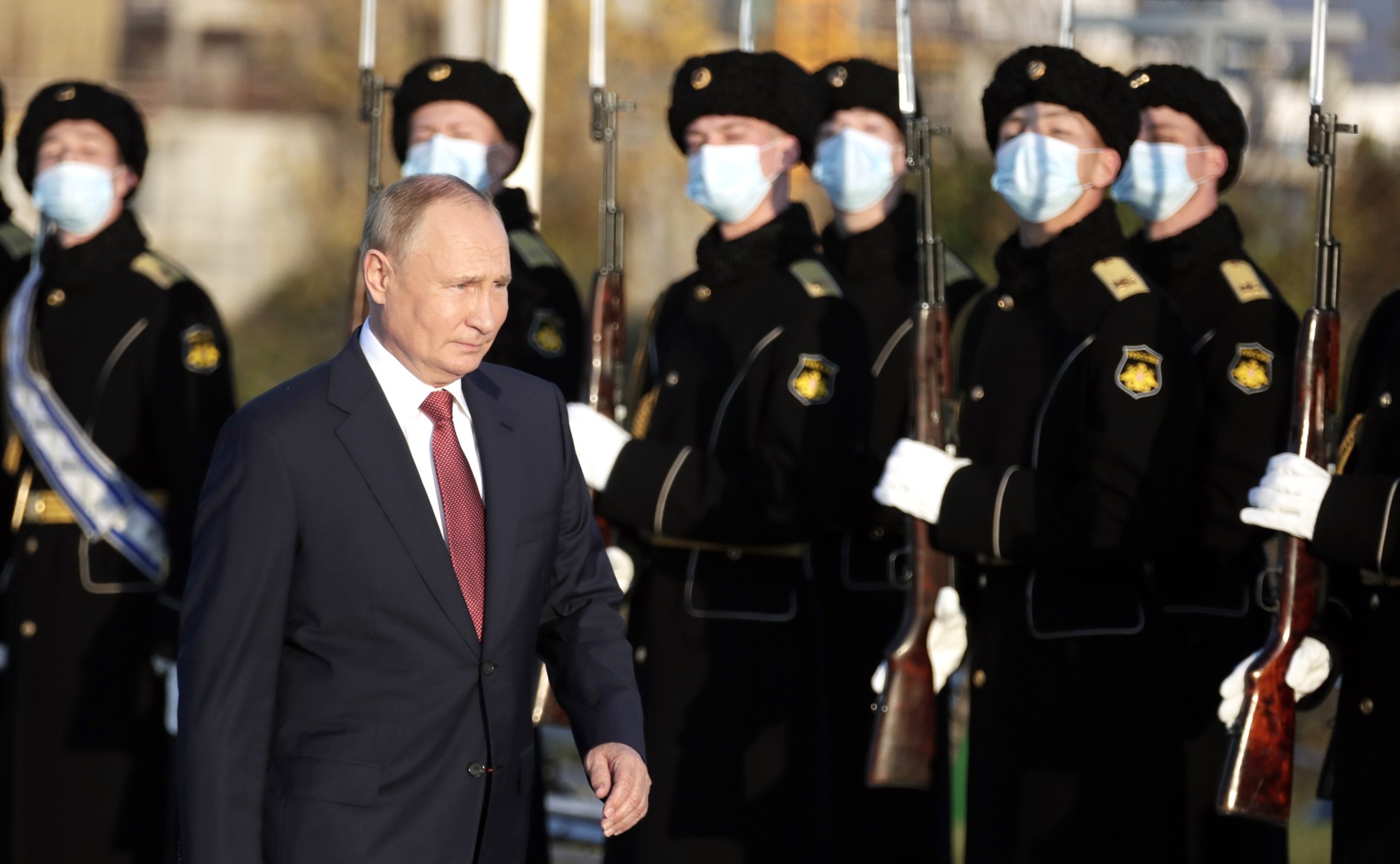 President of Russia Vladimir Putin: People of Sevastopol, Crimea and Russia! Today we mark National Unity Day here in Hero City Sevastopol, in Crimea and all across our vast country. This holiday celebrates the core, essential values that we can all relate to. These include a sincere love for our homeland, respecting our ancestors, and being worthy of their feats in combat and outstanding achievements, as well as our commitment to serve the people of our country, to work hard for the sake of its development and the good of its people. Caring for our Fatherland, and a willingness to stand up for it and defend it has been part of the character of our millions-strong, multi-ethnic people. 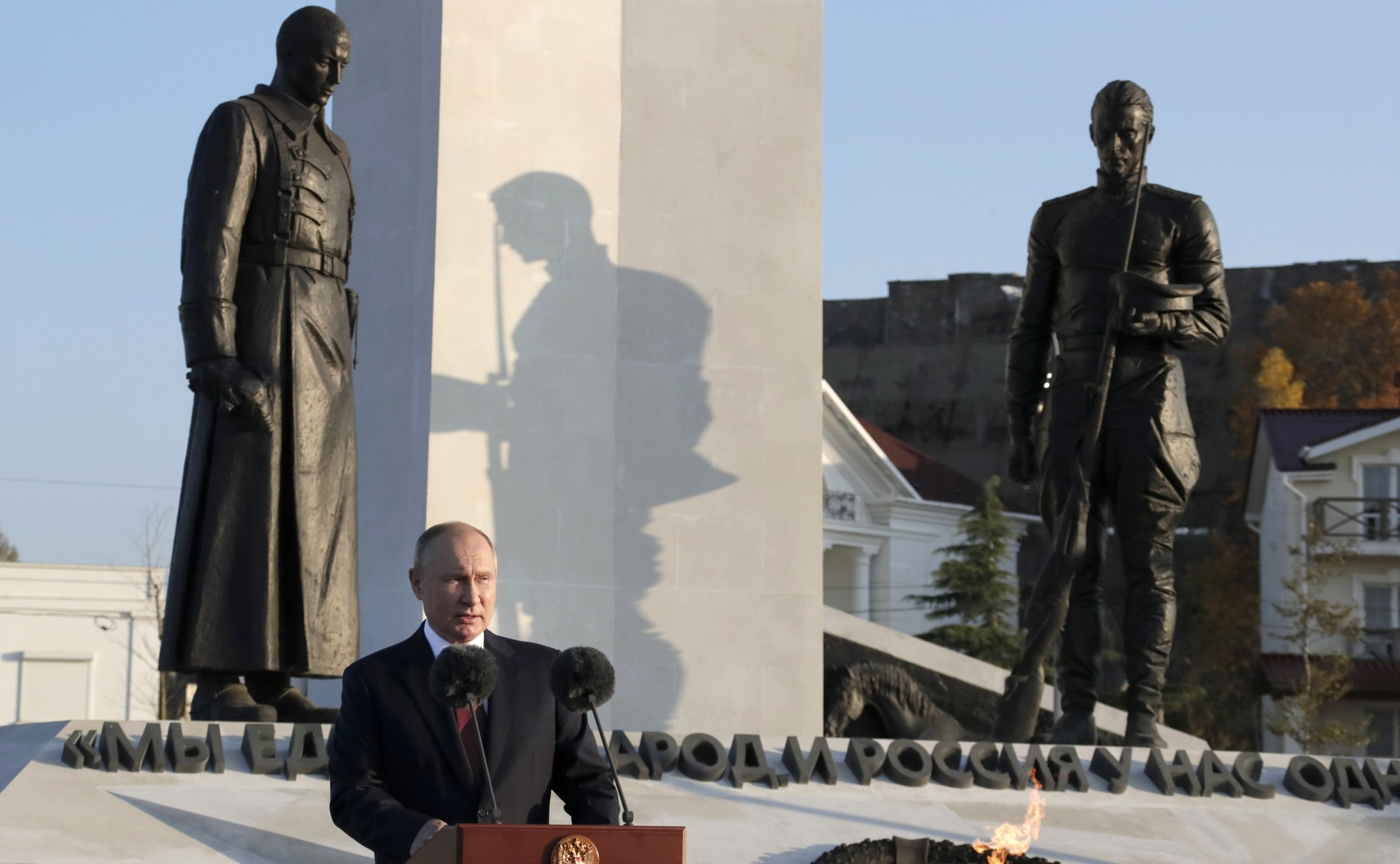 National Unity Day marks a dramatic, life-changing period in the history of our country. In the early 17th century, Russia found itself on the brink of losing its sovereignty and could have disappeared from the European and world maps forever. However, the people of Russia did not let this happen. They came together in a volunteer army led by Minin and Pozharsky to defend their homeland, chase out the invaders and traitors, restore a strong state, and stop sectarian strife. They took on the task of saving the country and paved the way for Russia’s revival and strengthening.  More than four centuries have passed since then, but the feat accomplished by the people still strikes us with its powerful outflow of patriotic feelings, and the fact that people came to understand that there was nothing more important than their Motherland’s destiny and future. 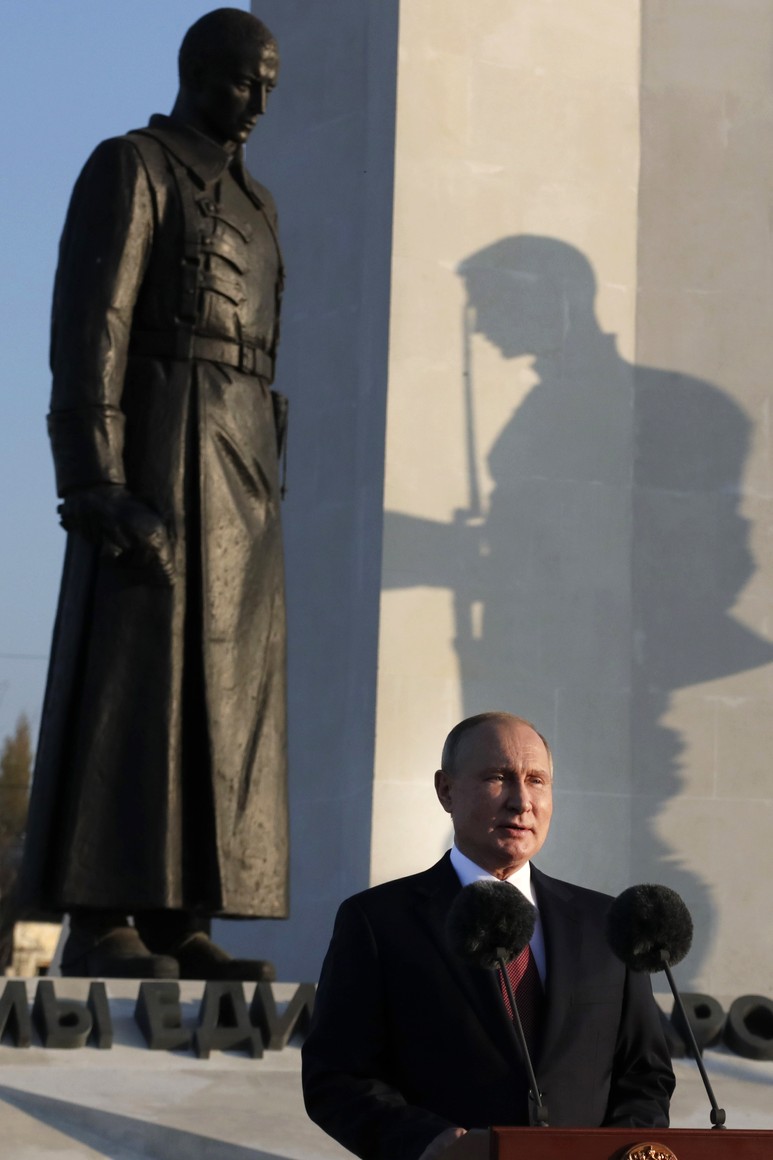 It is thanks to their unity that the people of Russia have achieved remarkable heights in economics, science, technology and culture. Religious leaders representing Russia’s traditional religions have invariably played a special role in consolidating our society and reinforcing the values that bind us together. 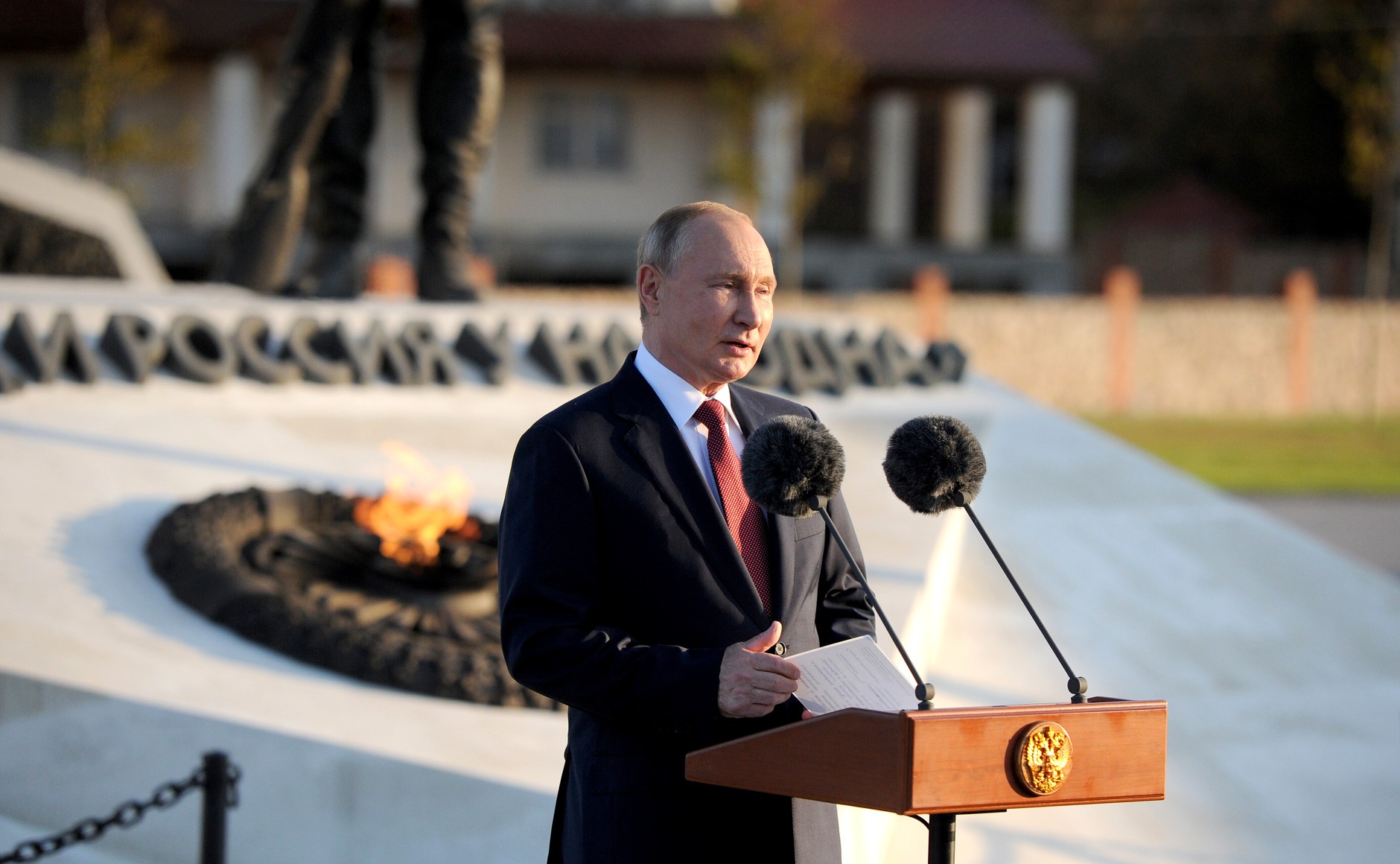 However, there have also been periods when historical challenges undermined the unity of our people. This was the case with the 1917 revolution and the new, terrible time of troubles – the Civil War – that came after it.  In 1920, not far from here, steamboats were departing these shores taking with them those who left their Motherland and emigrated. Of course, most of them were Russian patriots and loved Russia in all sincerity, just like those who stayed behind to build a new country and what they hoped would be a better life. 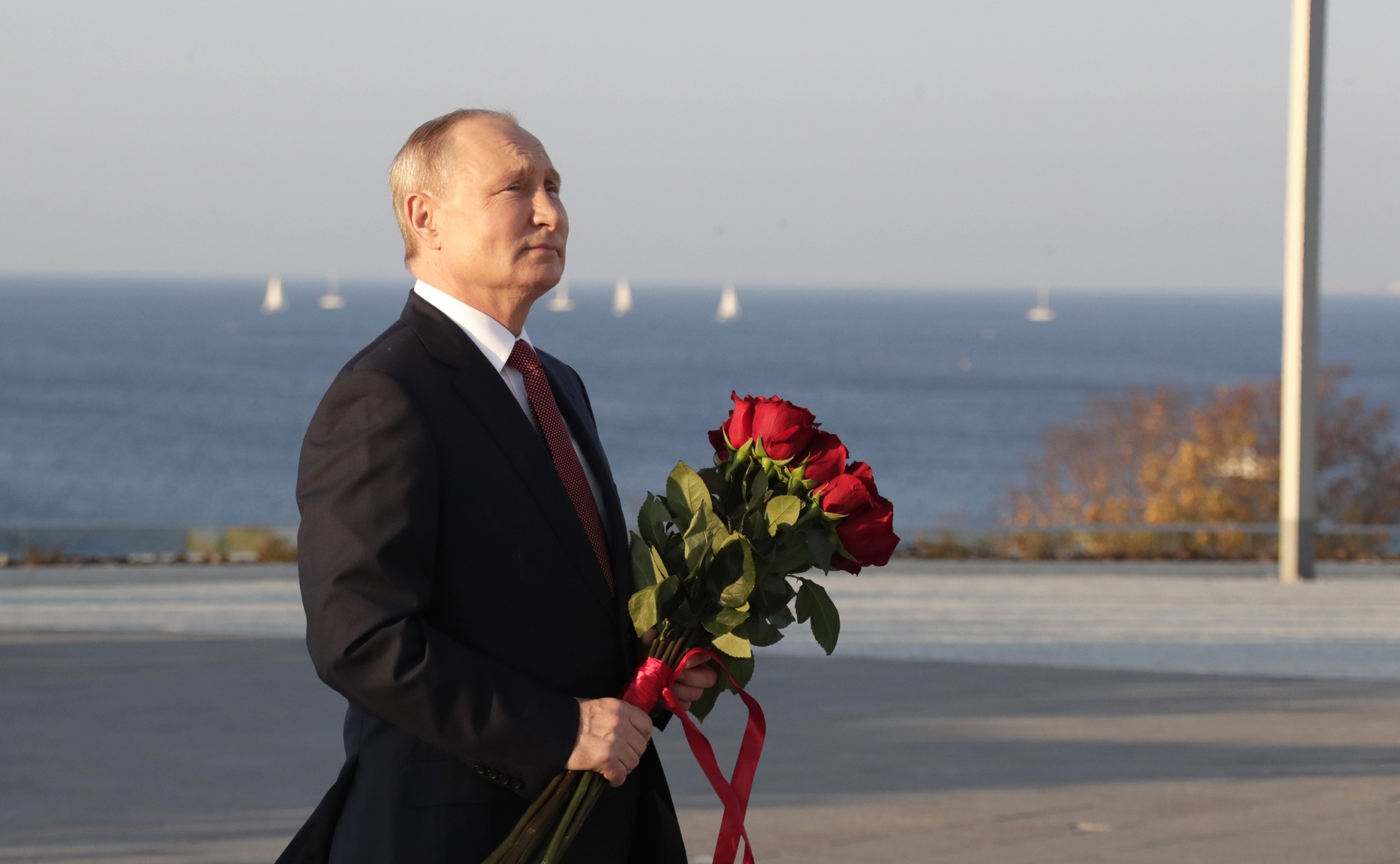 Covered in the blood of Russian soldiers, the Crimean soil remembers the pain of these events and will serve as an eternal symbol not only of the tragic fratricidal conflict, but, even more importantly, the reconciliation that followed and the triumph of historical truth and justice.  The memorial complex in Sevastopol shows that Russia remembers and loves all its devoted sons and daughters no matter what side of the barricades they once were on, and that our country has recovered its historical unity. 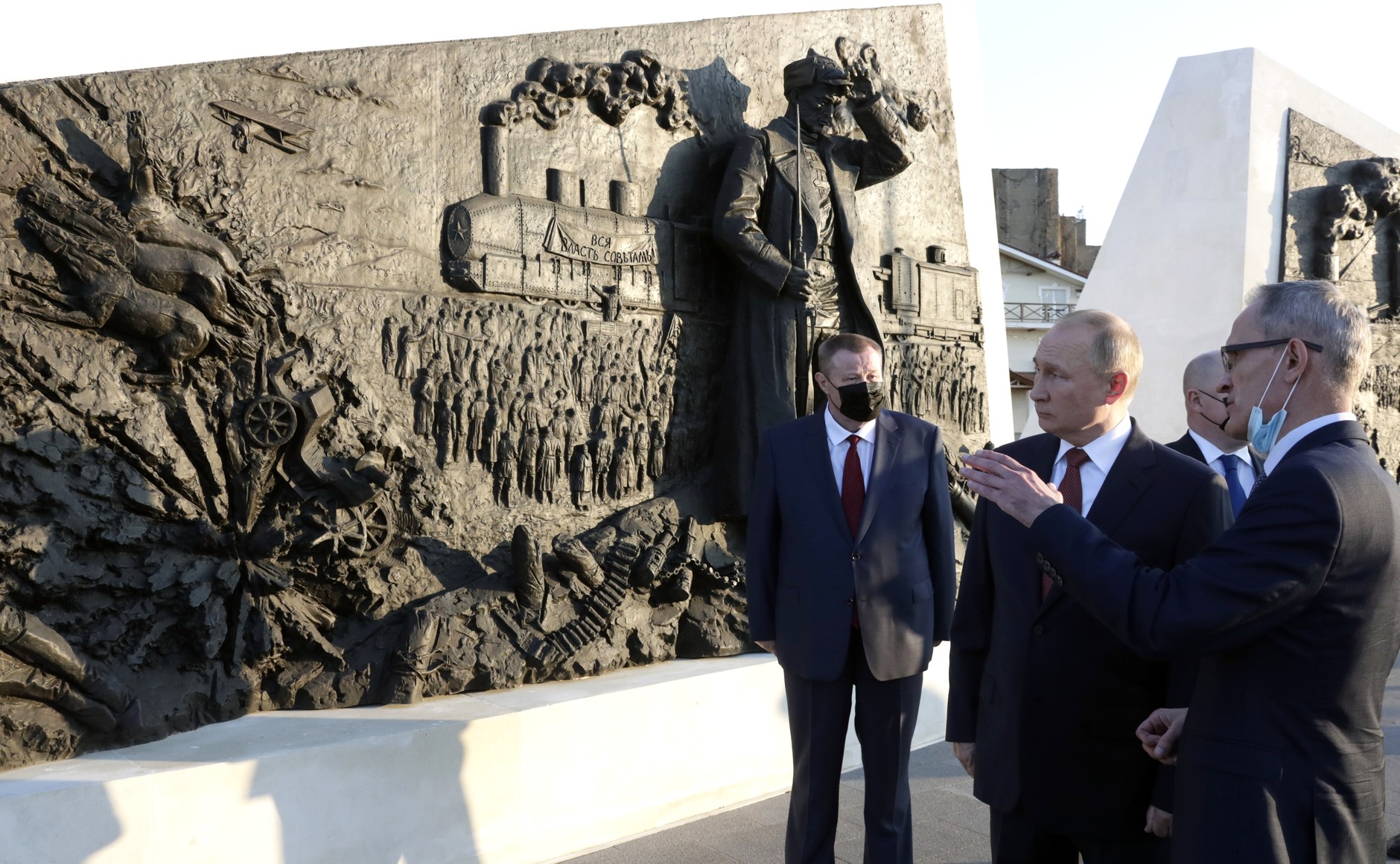 It is of course here, in Sevastopol, in Crimea, that one gets the keenest sense of this live, indissociable bond. Sevastopol and Crimea are now with Russia and will stay with it forever, because this was the expression of the sovereign, free and uncompromising will of our entire people.  My sincere congratulations to the people of Sevastopol, Crimea and all the citizens of our beloved country, our Russia, on this holiday. Happy National Unity Day!  Congratulations! The source of information - http://en.kremlin.ru/events/president/news/67065 Meeting of the Supreme State Council of the Union State Vladimir Putin took part, via videoconference, in the meeting of the Supreme State Council of the Union State. November 4, 2021 - 18:35 - Sevastopol Documents signed during the meeting included the Decree of the Supreme State Council of the Union State that sets forth the Guidelines for Implementing the Provisions of the Treaty Establishing the Union State in 2021–2023. Also, following the meeting, the sides signed resolutions of the Supreme State Council of the Union State On the Results of Russian-Belarusian Trade and Economic Cooperation Throughout 2020 and in January-June 2021, On the Union State’s Military Doctrine, On Awarding the 2021 Union State Prize in Science and Technology, as well as the Resolution of the Supreme State Council of the Union State On Implementing the Decisions of the Supreme State Council of the Union State. 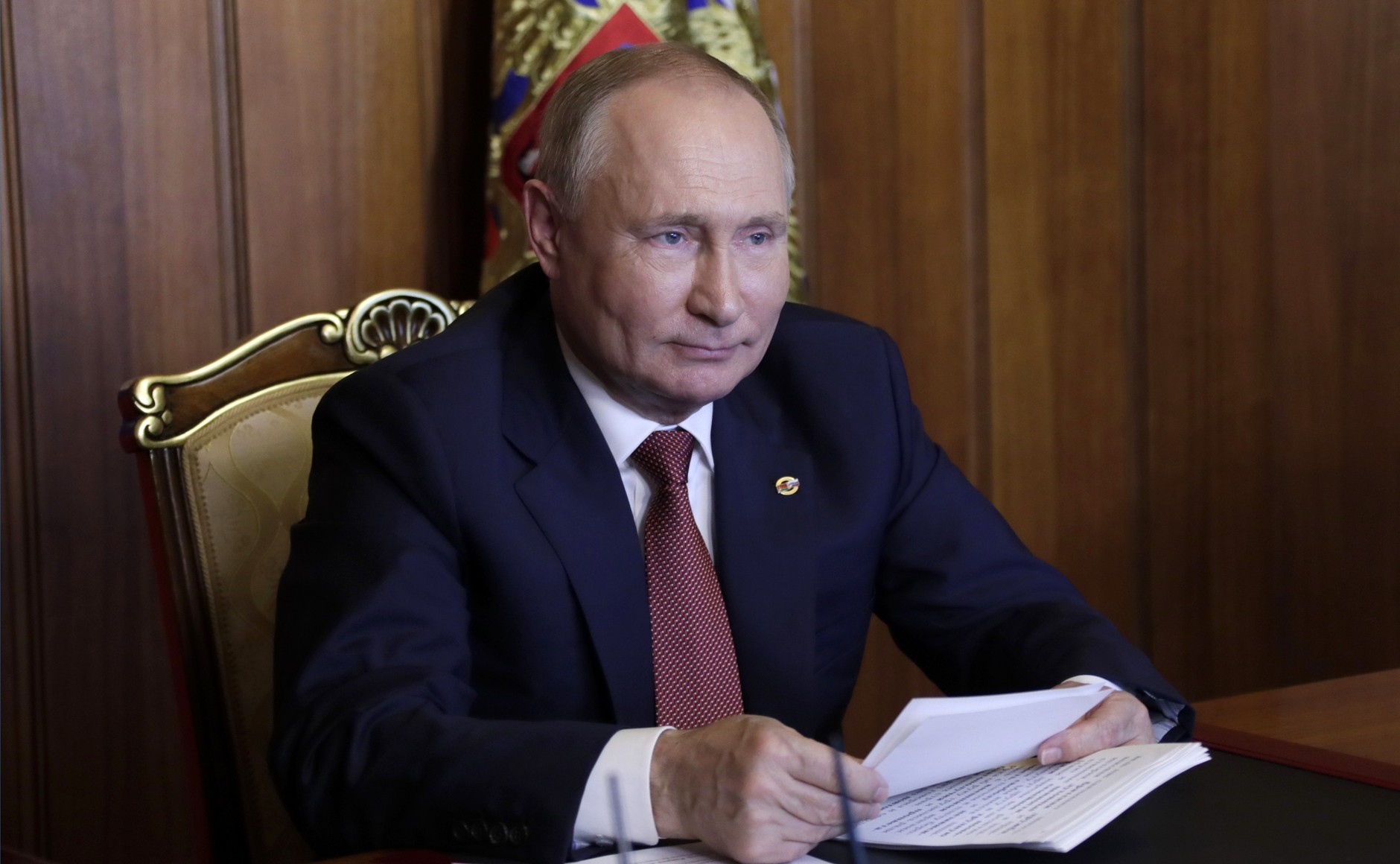 President of Russia Vladimir Putin: Mr Lukashenko, friends, The meeting of the Supreme State Council of the Union State we are holding today is, without exaggeration, truly important. We will be adopting a series of documents for further promoting and enhancing the economic, political and military integration of Russia and Belarus. It is symbolic that this meeting is taking place on a special day for Russia – National Unity Day. Mr Lukashenko, thank you very much for your congratulations. This holiday symbolises the sincere and deep love of our Motherland, as well as the triumphant spirit of unity that has been passed on from one generation to another for many centuries. In this regard, Russia and Belarus have much in common. We share the bond of centuries-old brotherly friendship, a shared past, spiritual and moral values, and quite often, family ties. In all times, our peoples have assisted one another in their hour of need. Together, we have defended freedom and independence, fought shoulder to shoulder against external enemies, and worked hand in hand to ensure the wellbeing and prosperity of our peoples. I have said this on many occasions, but still I would like to reiterate that for Russia, Belarus is not just a good neighbour and our closest ally, with whom we have built a relationship of mutual respect and support, seeking to take into account each other’s interests, but also a truly brotherly Republic, a brotherly people. Making sure that it stays this way forever is our unwavering commitment. Since the citizens of our countries want unity, 25 years ago Russia and Belarus embarked on a journey to establish a political and economic integration structure, the Union State. Over the past quarter of a century, we have accomplished a great deal together for our common economic space. 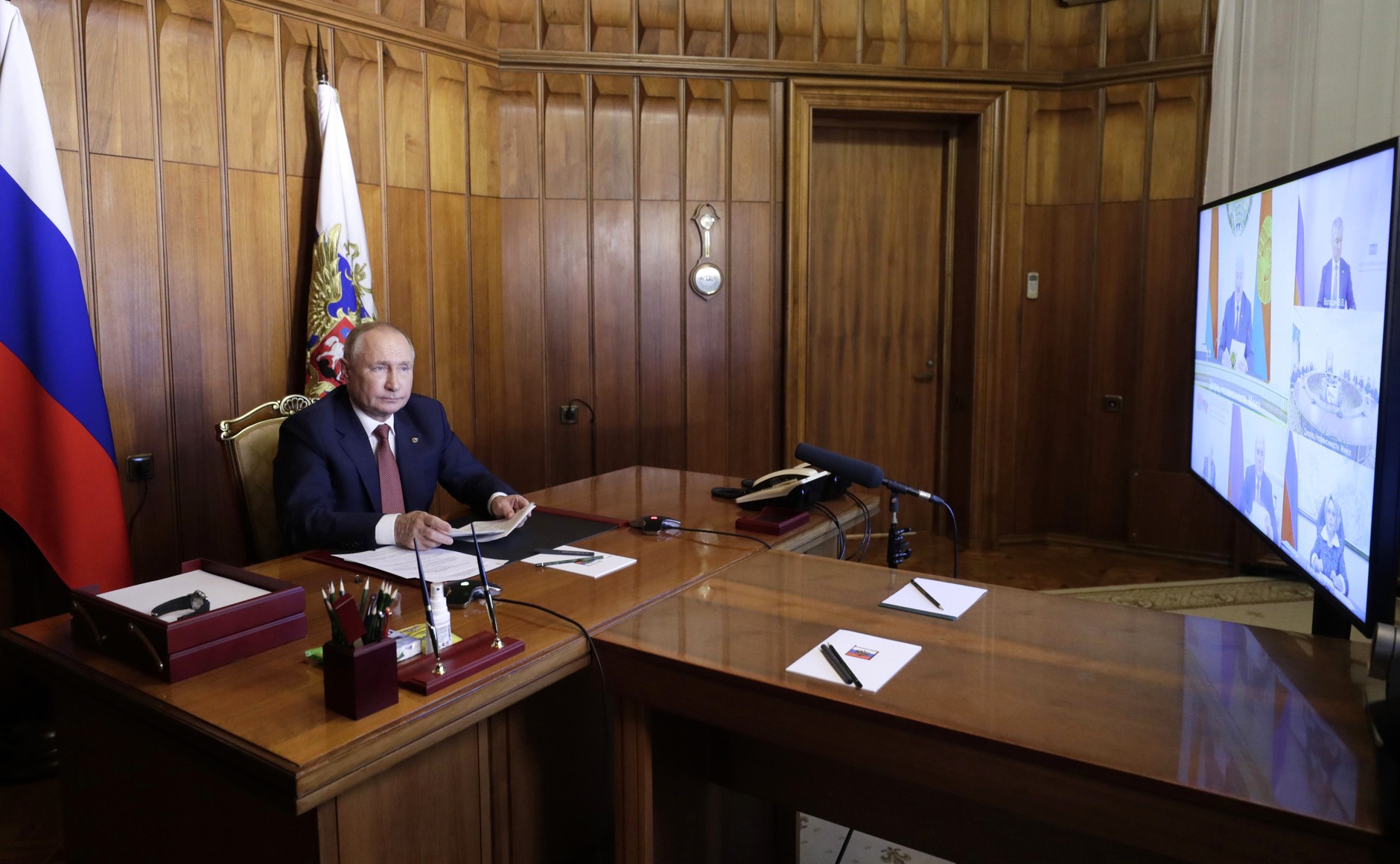 Our countries’ economies are closely intertwined and deeply interconnected. Russia is the main business partner for Belarus and accounts for almost one half of Belarus’ foreign trade. We rank first in terms of direct investment in the Belarusian economy, that’s about US$4 billion. Some 2,400 Russian companies operate in Belarus. In turn, Belarus is Russia’s number one trading partner within the CIS and ranks fourth among all our foreign trade partners with a share close to 5 percent. Even during the coronavirus pandemic, as the President of Belarus has just mentioned, there has been some positive momentum in our bilateral economic cooperation. In particular, according to the data we have, in the first eight months of 2021 bilateral trade increased by almost 36 percent to US$24 billion, while Mr Lukashenko has data for the first nine months: the numbers could be approaching US $28 billion, which is a very robust result. Multifaceted sectoral ties and industrial cooperation between Russia and Belarus are also picking up steam with new shared value chains and a growing common transport infrastructure. We are carrying out high-tech, research-intensive projects, including the construction of a nuclear power station in Belarus – the first unit was launched this year. I would like to remind you about the proposal put forward by Belarus; the President of Belarus also mentioned this in his remarks. It deals with adding a Belarusian cosmonaut to the International Space Station crew. Yesterday, we discussed this with Roscosmos executives in Sochi. We are ready to support this proposal and to carry it out soon. We need to agree on some aspects, but these are not challenging matters, so I am sure we will resolve them. As for integration, we will not rest on our laurels. The President of Belarus said we would be approving a comprehensive and far-reaching document today: the Guidelines for Implementing the Provisions of the Treaty Establishing the Union State for 2021–2023. This is the fruit of lengthy, intensive, and sometimes challenging talks between our governments and corresponding agencies. Mr Lukashenko and I kept a close eye on the progress of these talks. This document covers 28 sectoral Union programmes designed to promote a coordinated macroeconomic strategy, introduce unified taxation principles, which is extremely important, implement a common policy in the credit and financial and banking sectors, in industry and agriculture, harmonise regulations for the unified oil, gas and electric power markets and for transport services. By the way, I have just mentioned the oil and gas markets. We keep a close eye on these matters since they are very important and often cause controversy and heated debate. Nevertheless, even in this sphere we have achieved serious progress. You are probably aware of what has been going on in the global oil and gas markets. Today, Belarus receives natural gas from Russia at a price that is seven or eight times, and at certain points, nine or ten times lower than the European spot markets. Even if we are talking about gas supplies to our consumers under Gazprom’s long-term contracts and make a comparison with them, the price Belarus pays is still three or four times lower. This concerns the people of Belarus and the households there that get energy at the lowest possible price. This also benefits the entire Belarusian economy and its industry, placing it in a favourable competitive environment, which facilitates its development. By carrying out these sectoral integration programmes, Russia and Belarus can create an equal and unified business environment. The two economies will follow common rules and standards, which creates new, truly broad opportunities to promote their progress and will benefit all sectors without exception. Of course, full economic integration would be impossible without progress on establishing a single migration and visa space. It is essential that we fully deliver on the promise of unimpeded labour mobility and guarantee our citizens the freedom of movement while taking into consideration all associated security risks. This is the purpose of the Union State Migration Policy Concept as drafted by our governments. A lot has been done on this front as well. Building the Union State is not just about intertwined economies, but also about coordinating our efforts in other spheres, including political and defence matters. The President of Belarus has mentioned this as well. In this regard, it is essential that we facilitate close ties between Russian and Belarusian ministries and agencies. Of course, the role of the Permanent Committee of the Union State will be growing. Creating an atmosphere of stability and security along our external borders has special importance in this context. We will work together to counter any attempts to interfere in the domestic affairs of sovereign states. Make no mistake, Russia will continue supporting the brotherly people of Belarus. The Union State will make meaningful progress in promoting integration. At the end of the day, this will improve the standard of living and wellbeing of our people. Of course, we will keep up our targeted efforts to give new significance to the Union State and fully unlock its creative potential. Thank you for your attention. The source of information - http://en.kremlin.ru/events/president/news/67066 Meeting with Governor of Sevastopol Mikhail Razvozhayev Vladimir Putin held a working meeting with Governor of Sevastopol Mikhail Razvozhayev. November 4, 2021 - 20:15 - Sevastopol 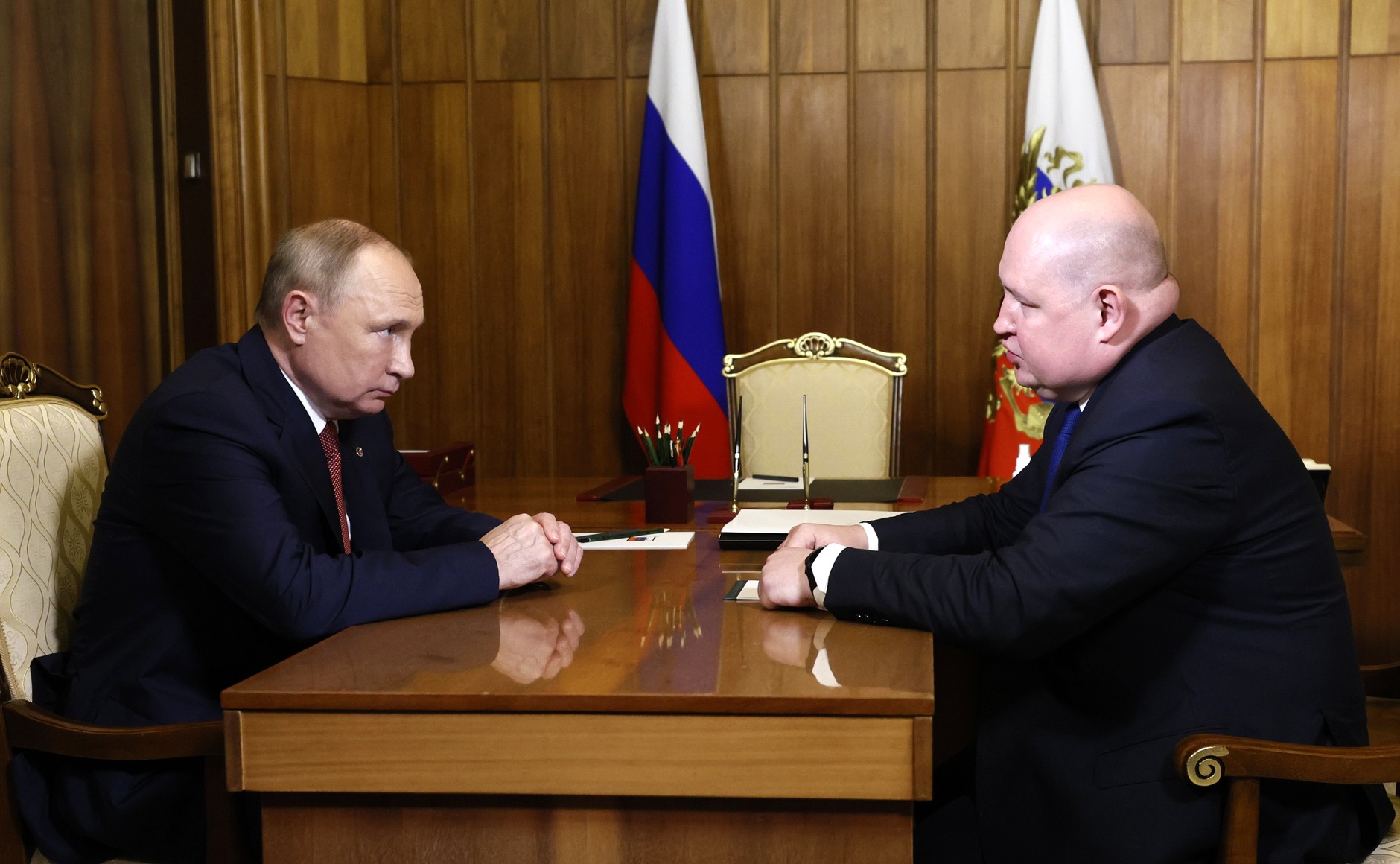 At the beginning of the meeting, Vladimir Putin asked Mr Razvozhayev to extend his greetings to Sevastopol residents on National Unity Day. The Governor recalled another landmark date marked just recently. Eighty years ago, on October 30, 1941, the heroic Defence of Sevastopol began a defensive effort against Nazi invaders that lasted 250 days. Mr Razvozhayev mentioned that recently another remarkable date was celebrated – the 80th anniversary of the beginning of the Siege of Leningrad. By the decision of the President, 50,000 rubles’ worth of additional financial support was provided to residents of the besieged Leningrad and to those who had been awarded the medal For the Defence of Leningrad. The Governor requested that a similar measure be approved to provide assistance to residents of the besieged Sevastopol and to those who had been awarded the medal For the Defence of Sevastopol. The President supported the request. Another topic discussed during the meeting was a cultural cluster that is to be established on Cape Khrustalny, in accord with the instructions of the President. Mr Razvozhayev reported that a Museum of the Heroic Defence of Sevastopol in 1941–1942, with a Hall of Glory, will be constructed at the location, also in accordance with the President’s instructions. A competition for the architectural concept has already been announced; funding for the building works has already been included in the targeted federal programme. The Governor added that he agreed with the President’s remark that no residential buildings should be constructed in Cape Khrustalny’s park area, as had been previously planned. He confirmed that every effort would be made to use the territory for the creation of a public space. The source of information - http://en.kremlin.ru/events/president/news/67067 Telephone conversation with President of Belarus Alexander Lukashenko Following the meeting of the Supreme State Council of the Union State, held via videoconference, Vladimir Putin had a telephone conversation with President of the Republic of Belarus Alexander Lukashenko. November 4, 2021 - 20:50 The presidents exchanged views on the outcome of the Supreme State Council meeting and praised the decisions adopted as having strategic importance for promoting integration processes. They reaffirmed their shared commitment to further strengthening mutually beneficial cooperation in all areas. It was agreed to maintain contact. The source of information - http://en.kremlin.ru/events/president/news/67068
__________________
Where should they dig the Very Deep Pit? Piglet said that the best place would be somewhere where a Heffalump was, just before he fell into it, only about a foot farther on. (c) Alan Alexander Miln Last edited by Alex Him; November 6th, 2021 at 07:12 AM. |
 |
| Share |
«
Previous Thread
|
Next Thread
»
| Thread | |
| Display Modes | |
|
|
All times are GMT -5. The time now is 01:07 AM.
Page generated in 1.47418 seconds.



 Linear Mode
Linear Mode
